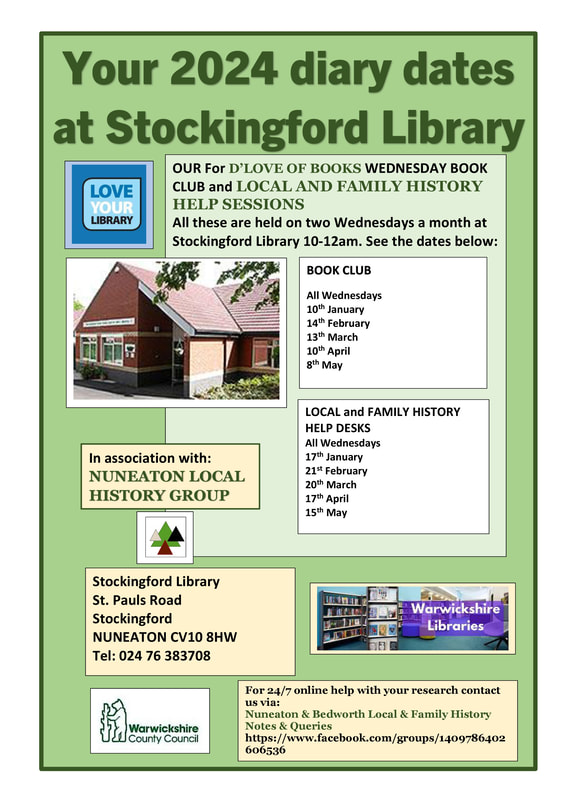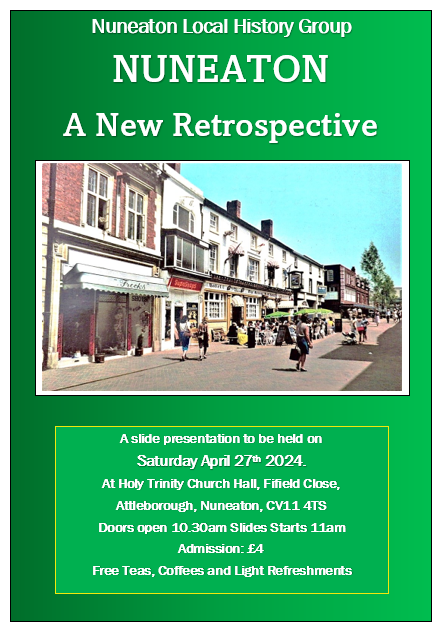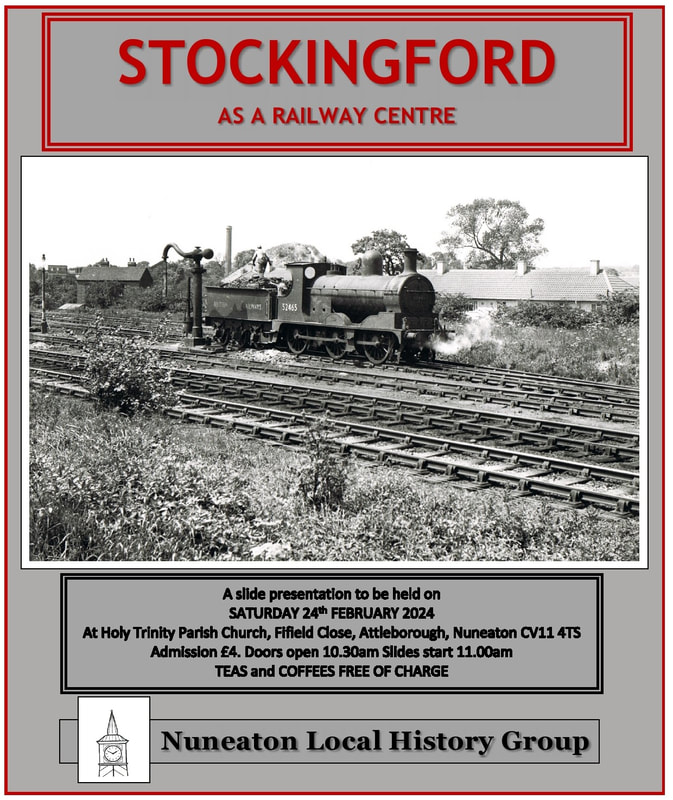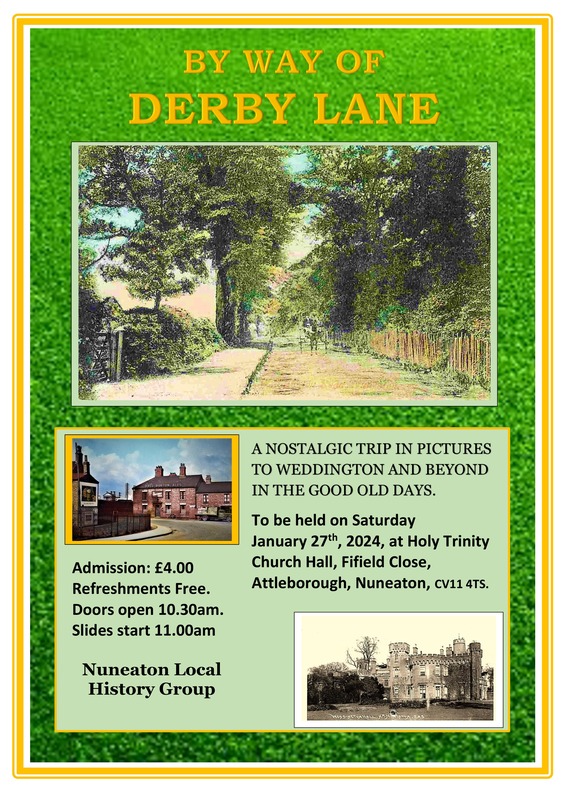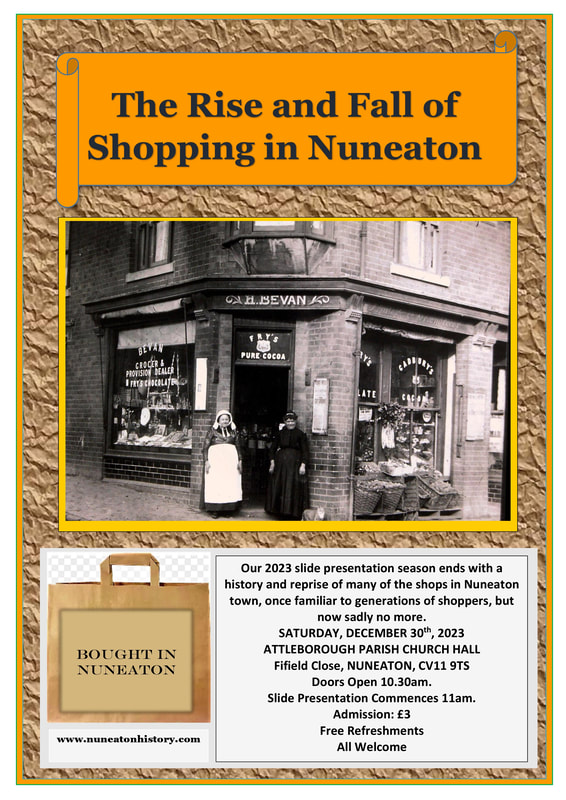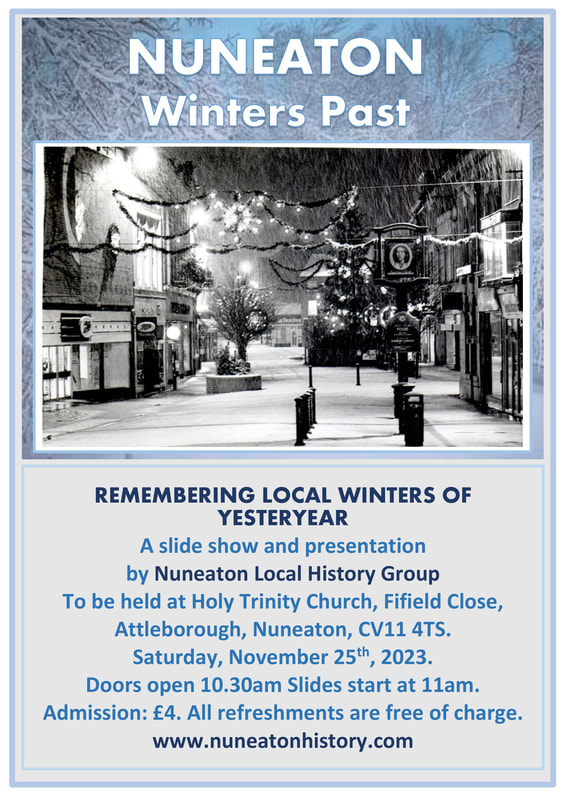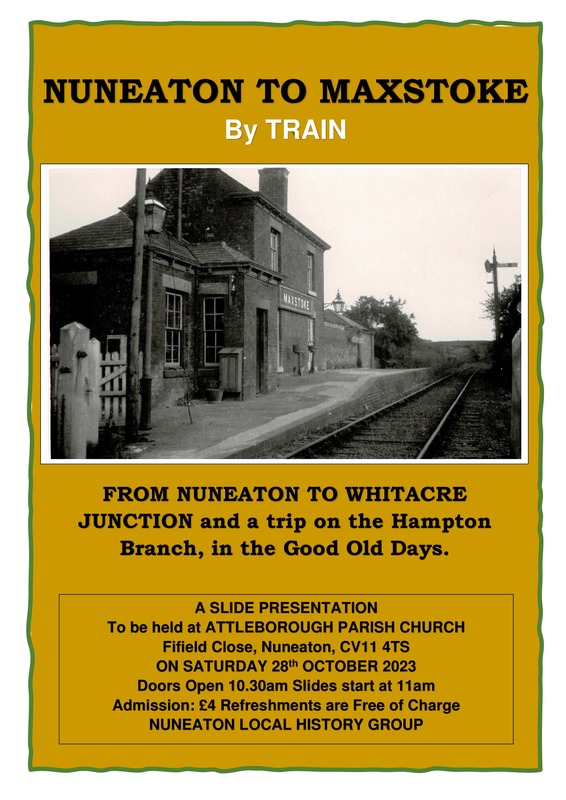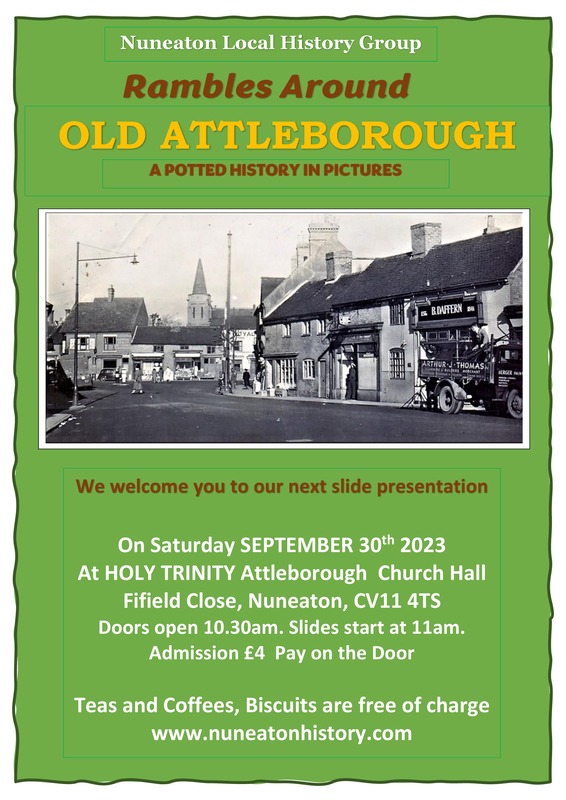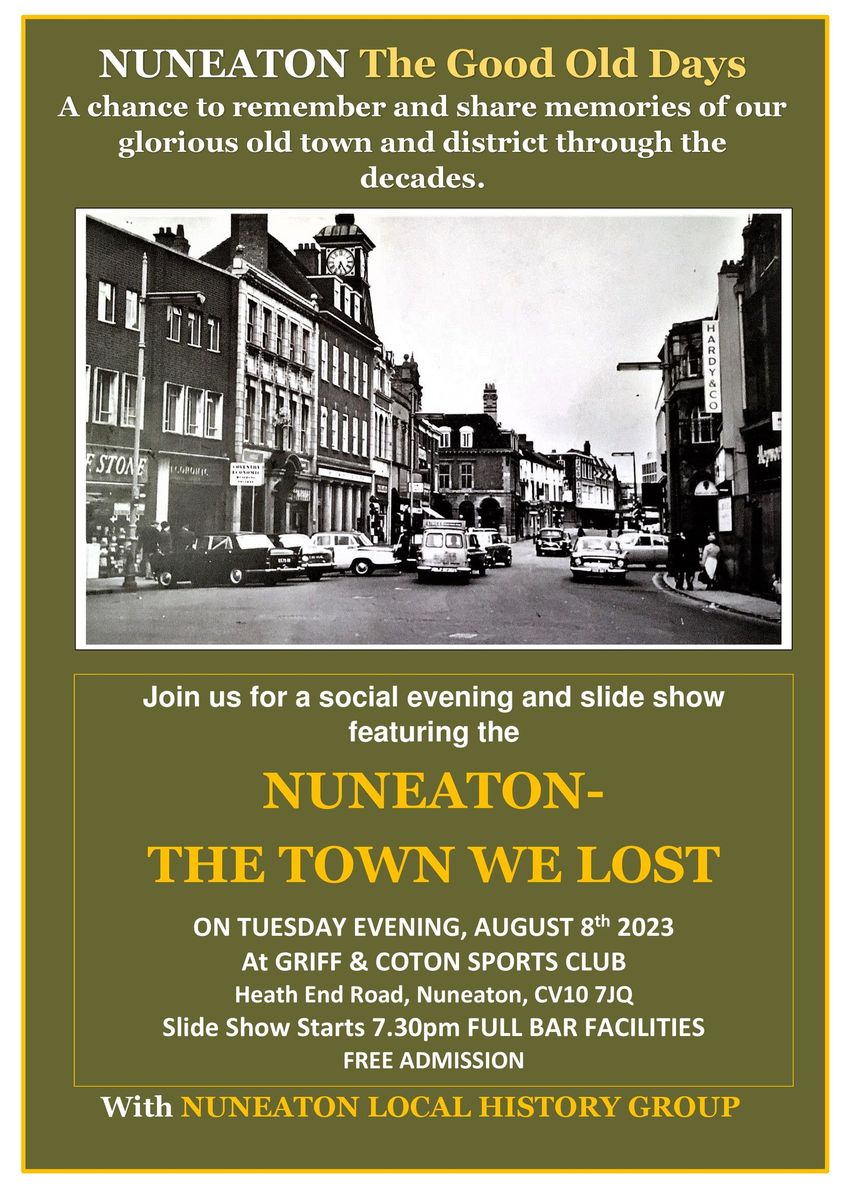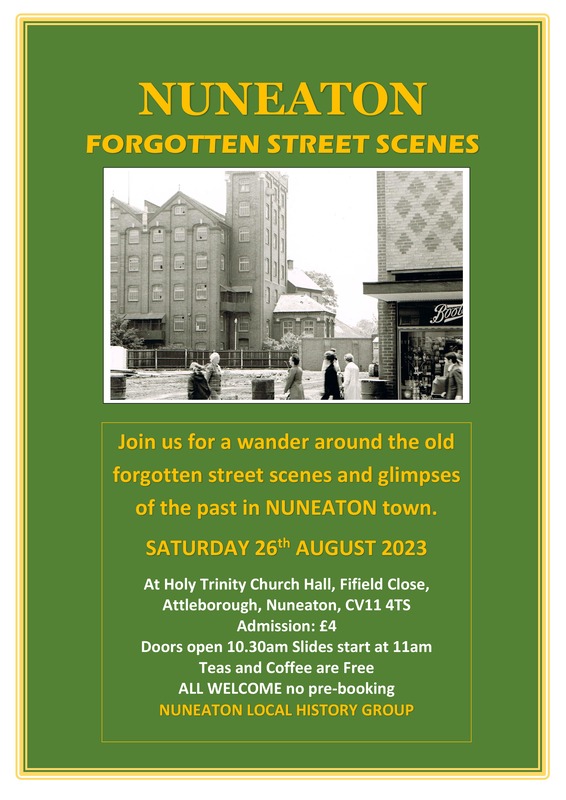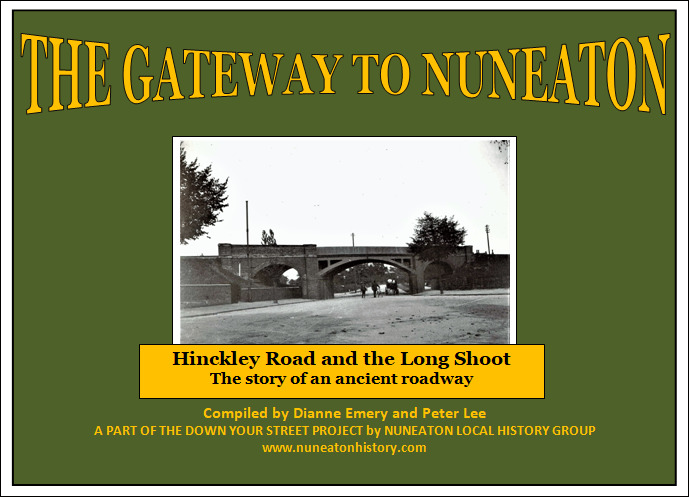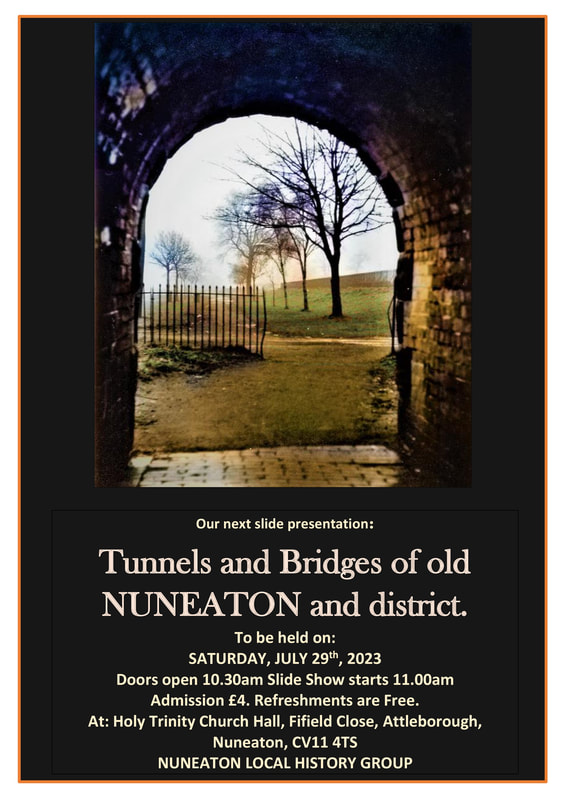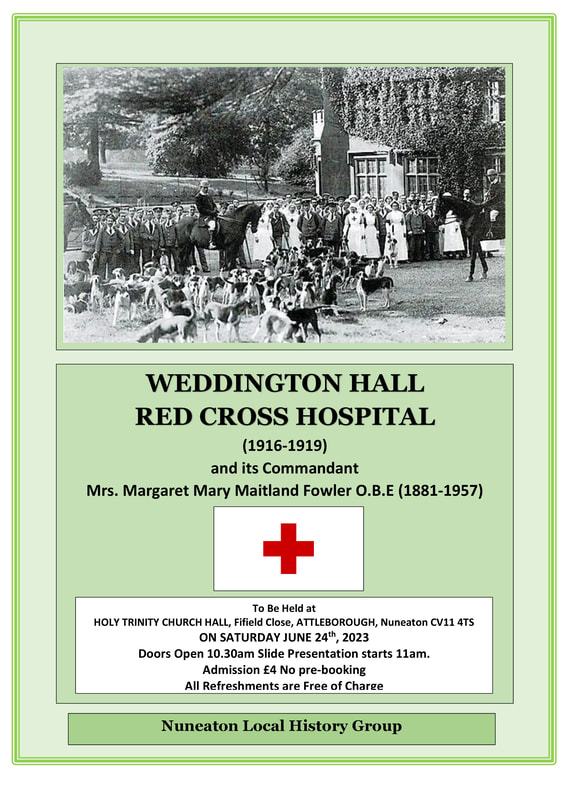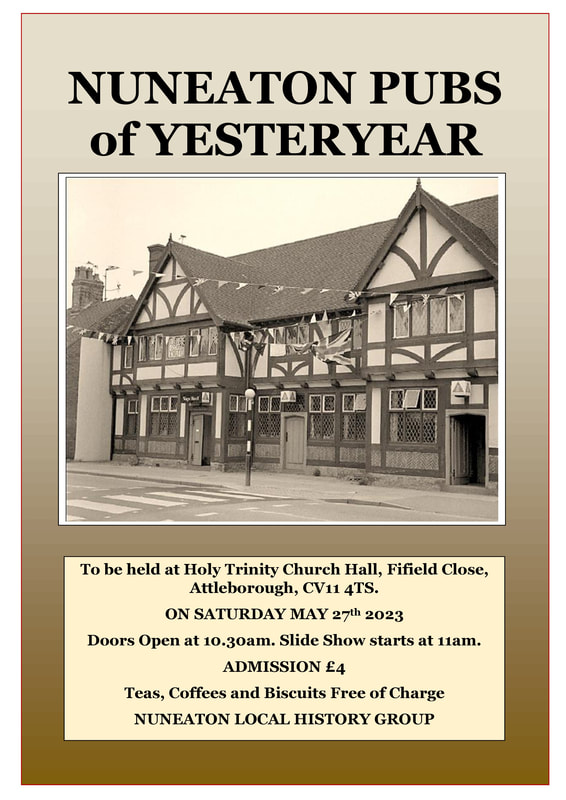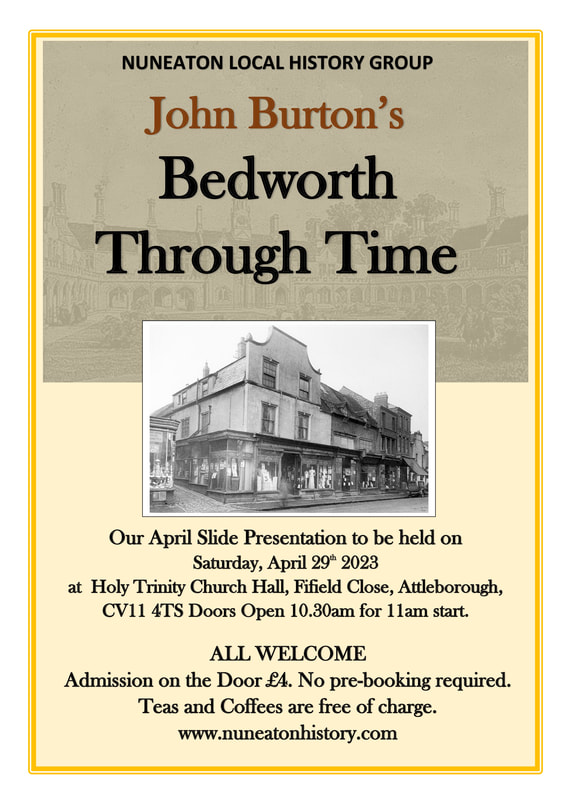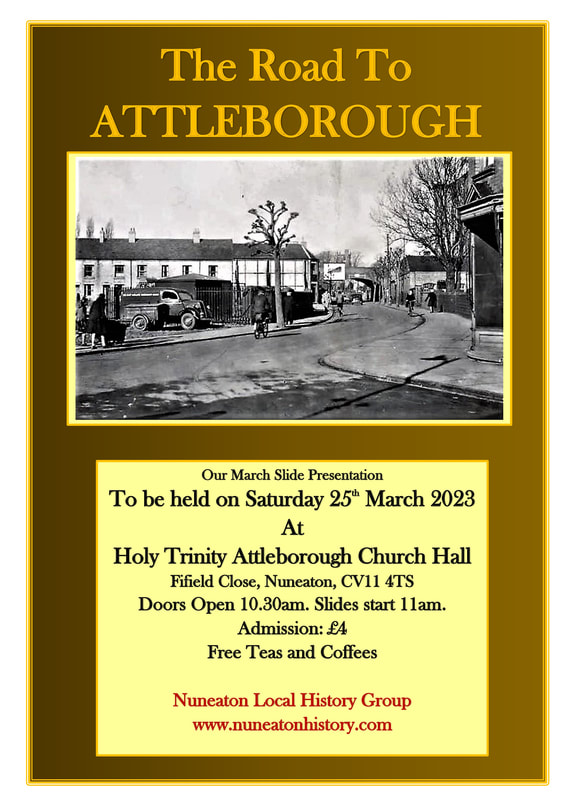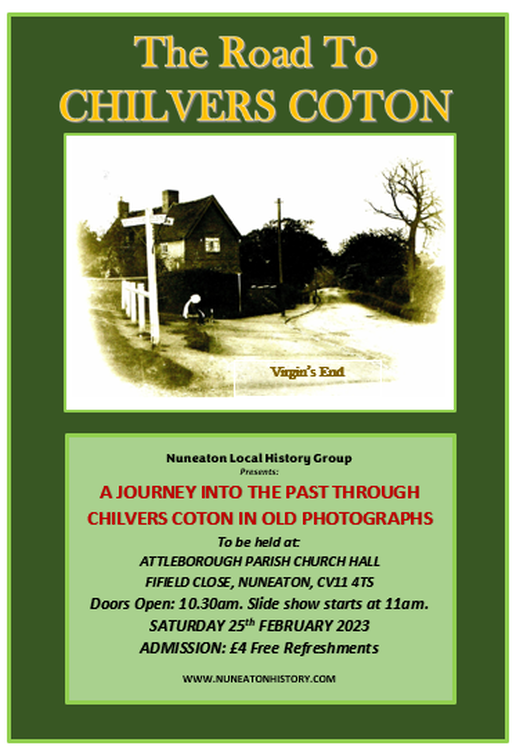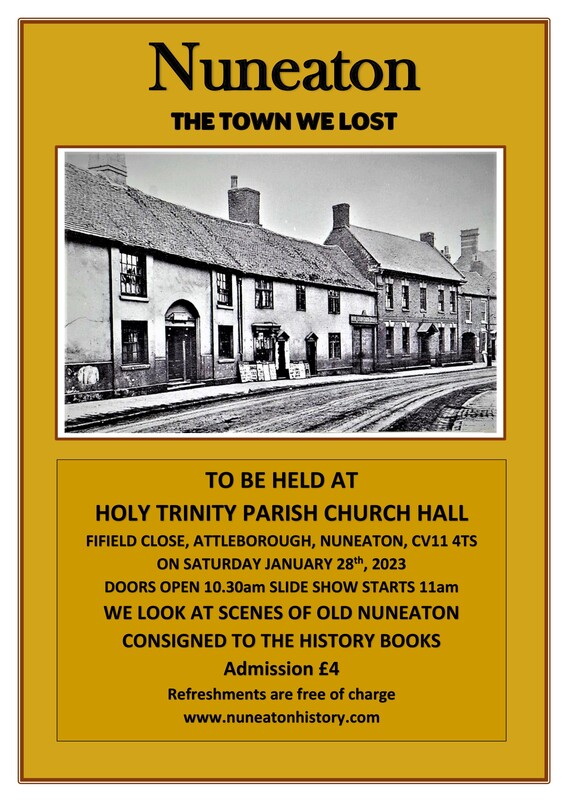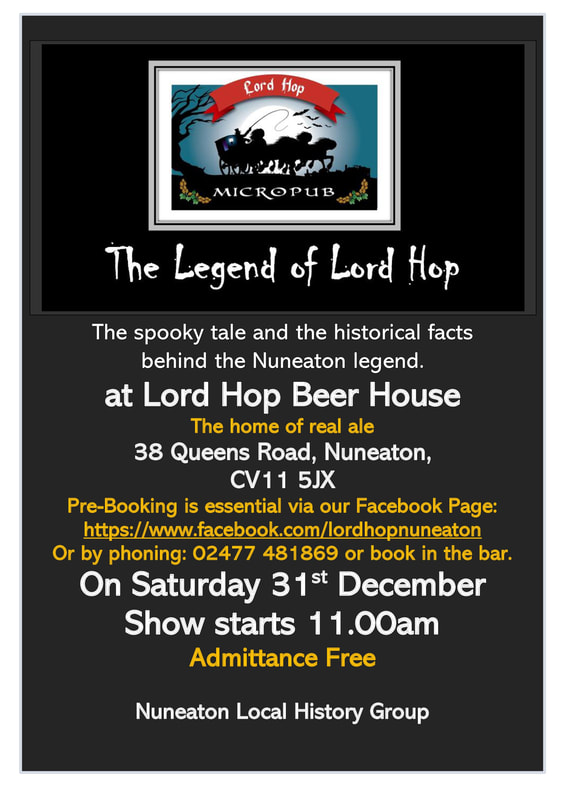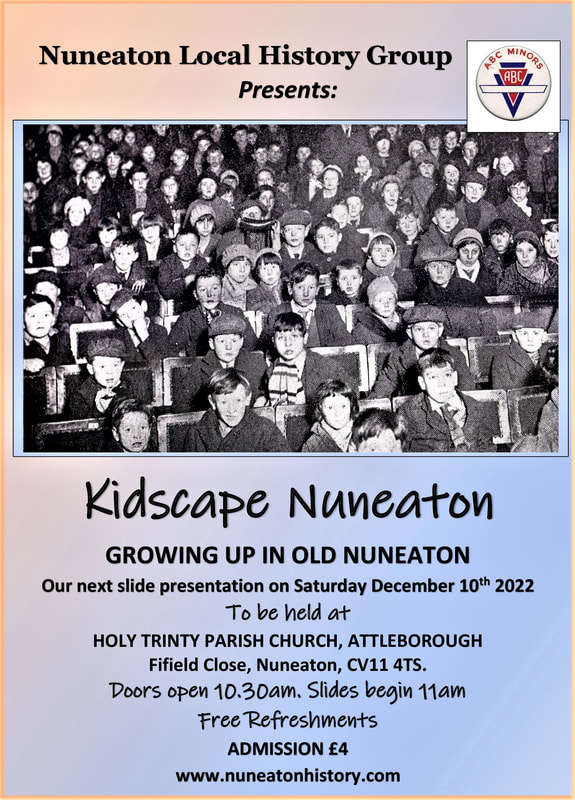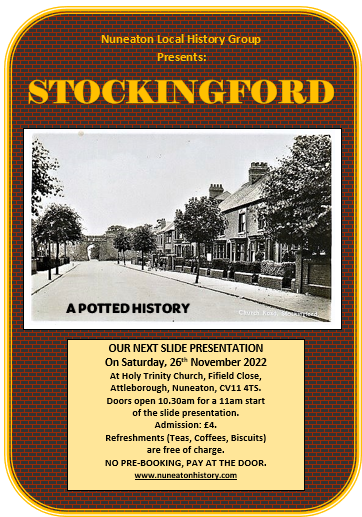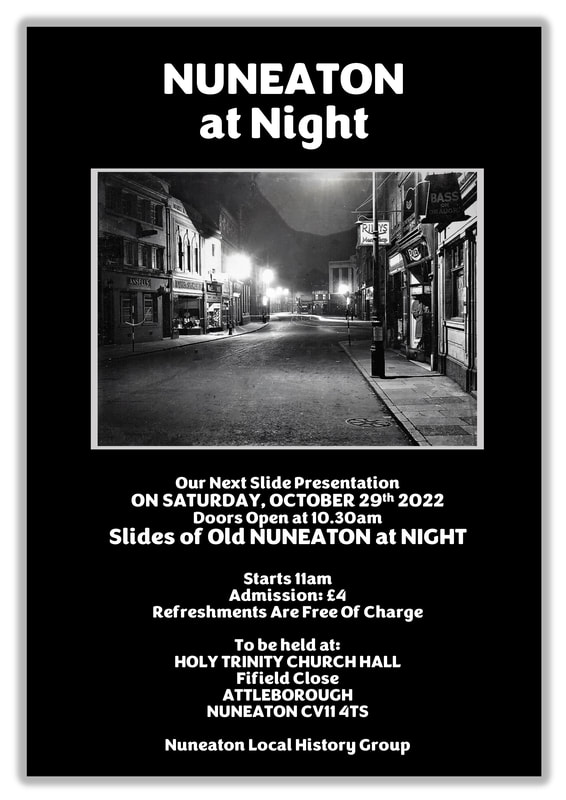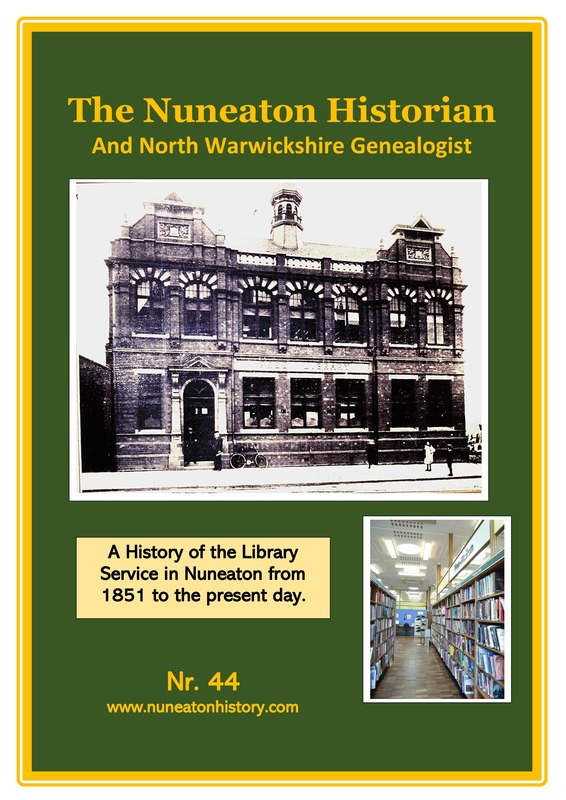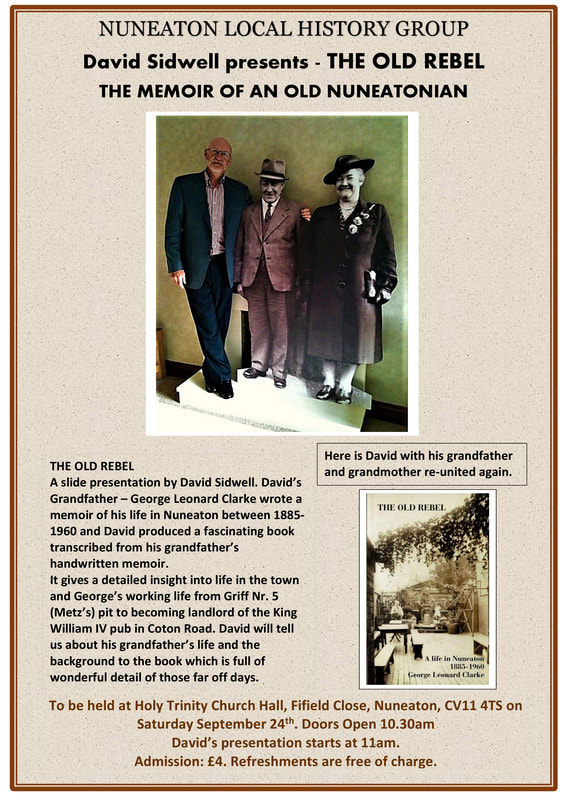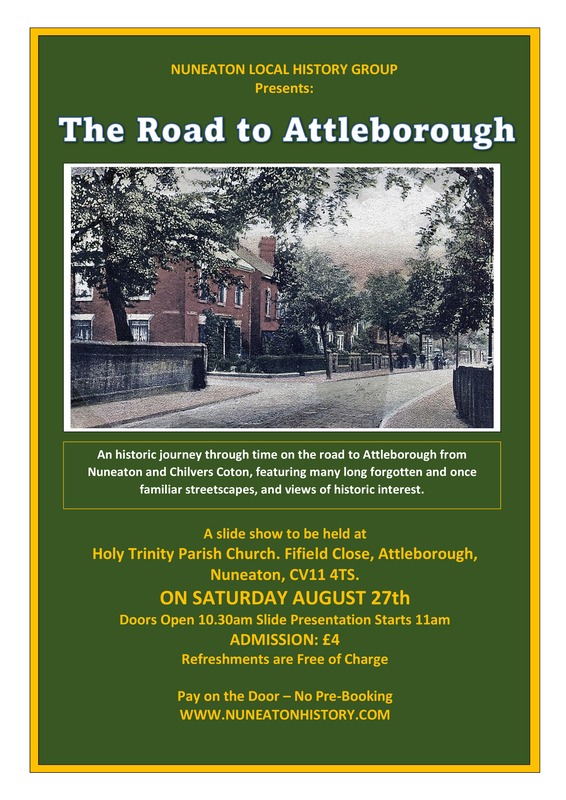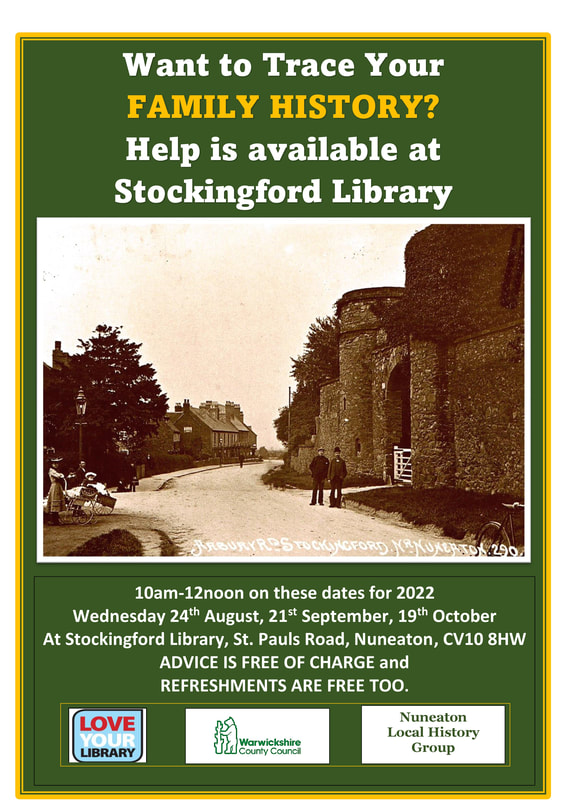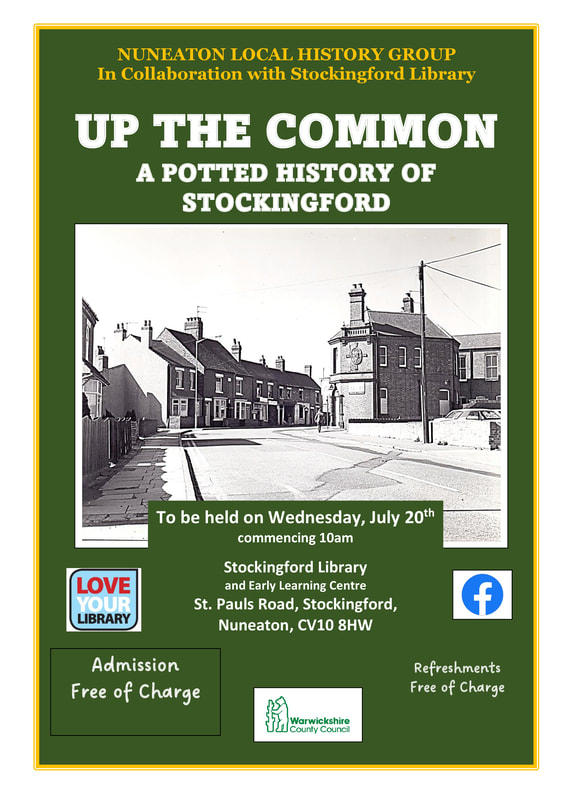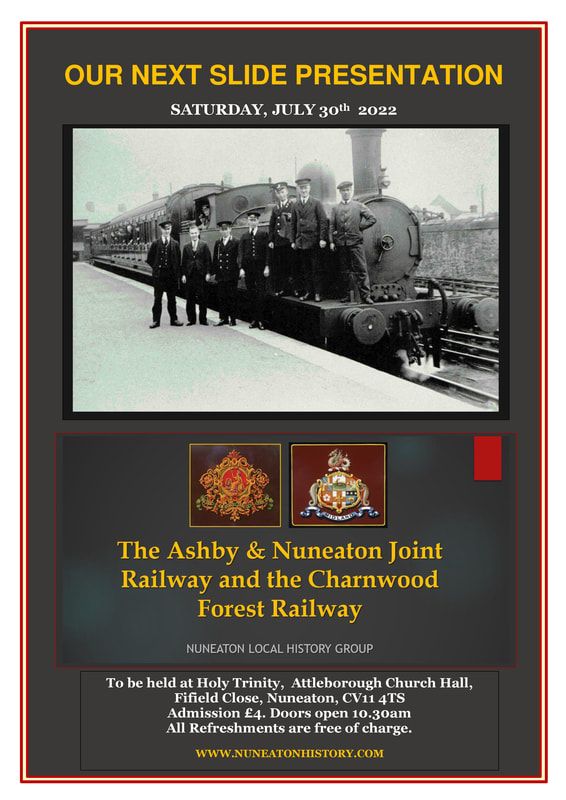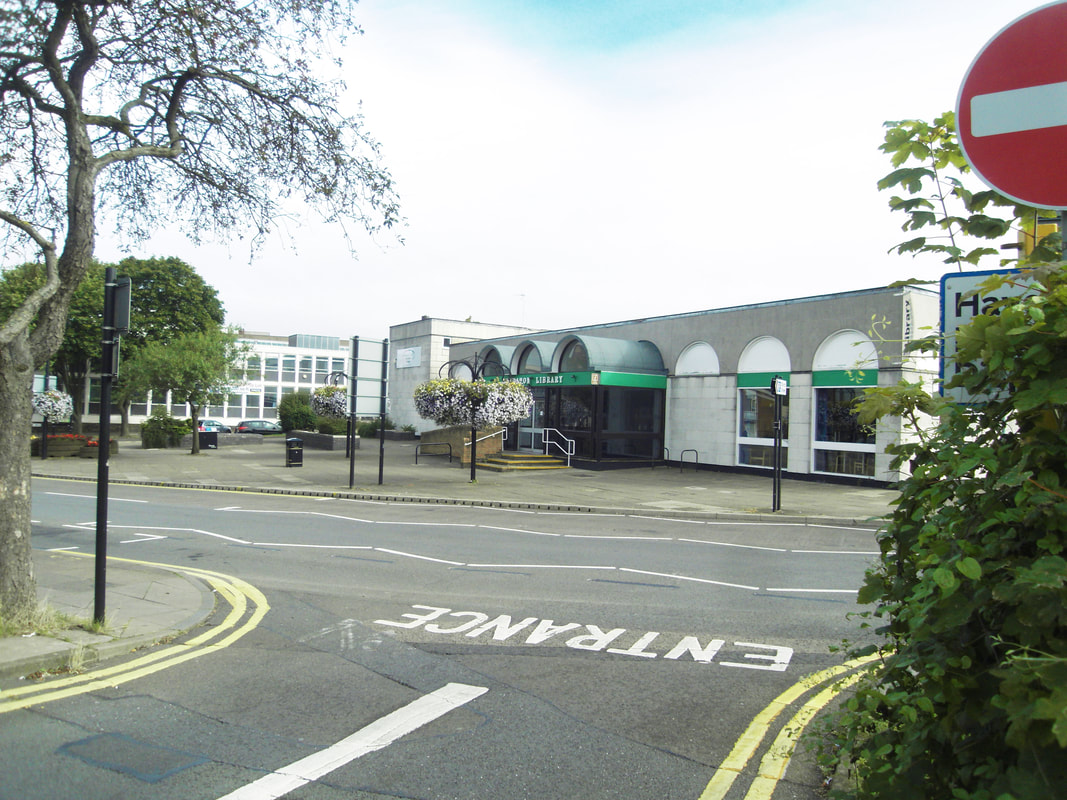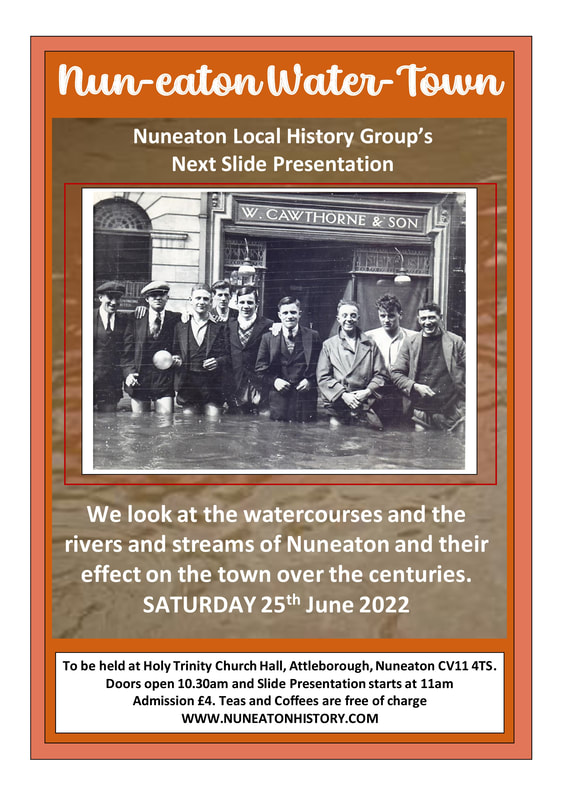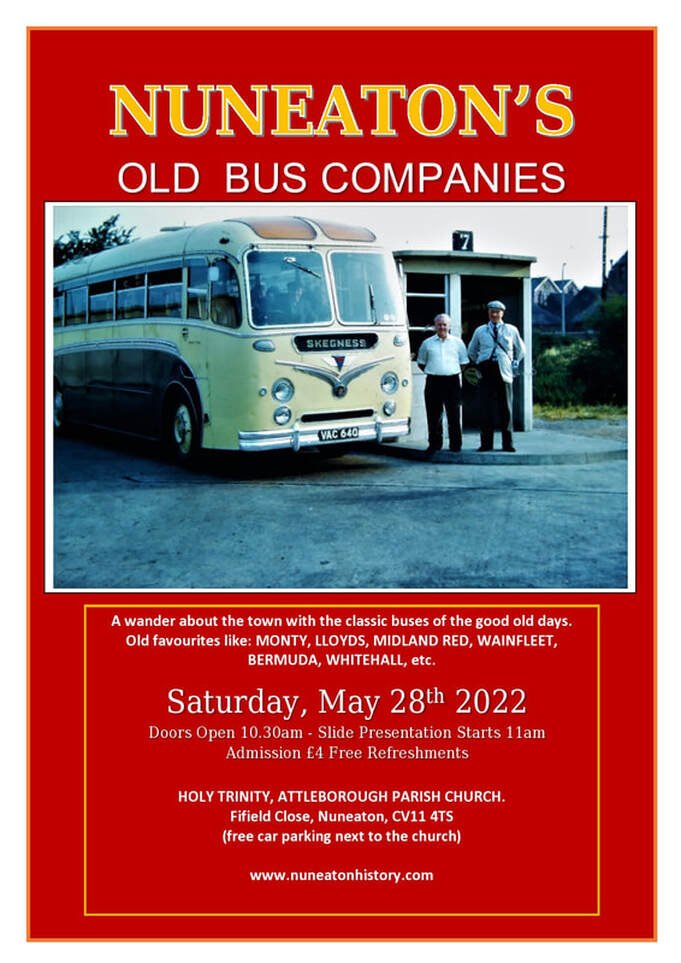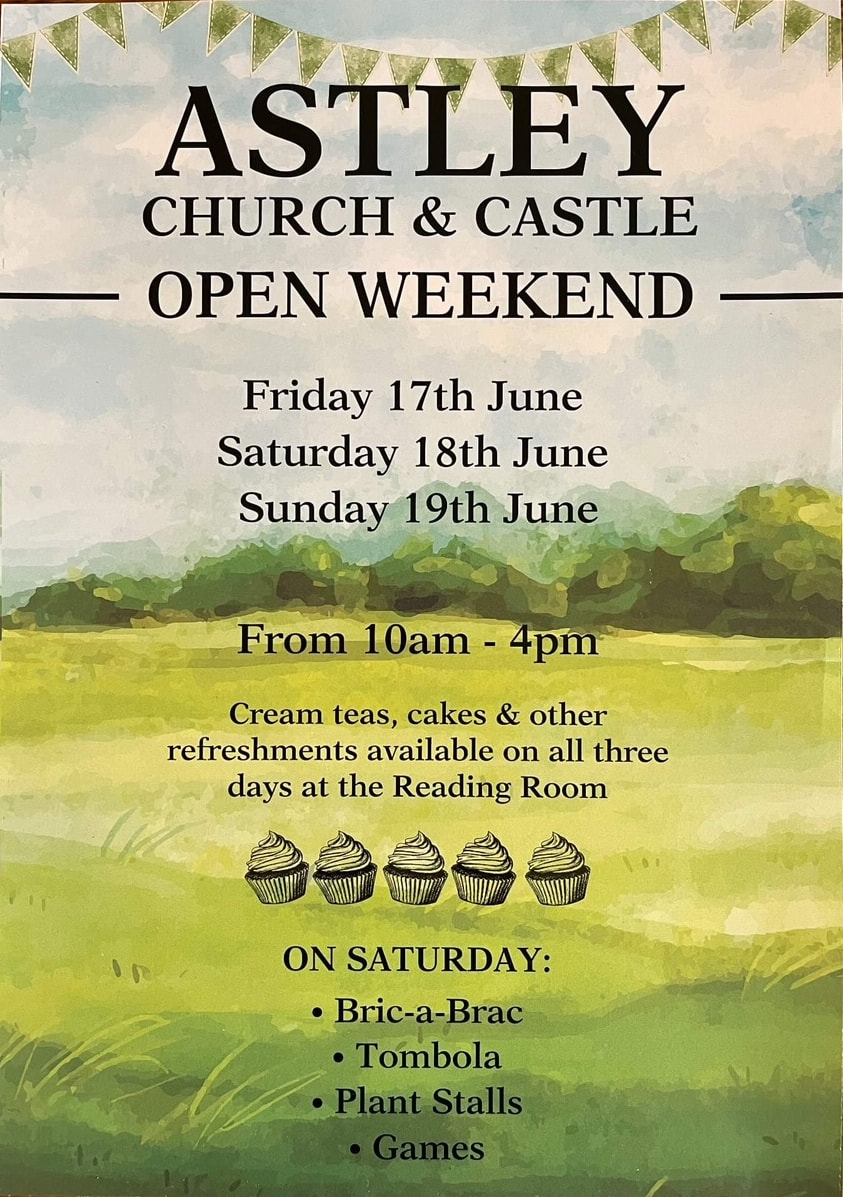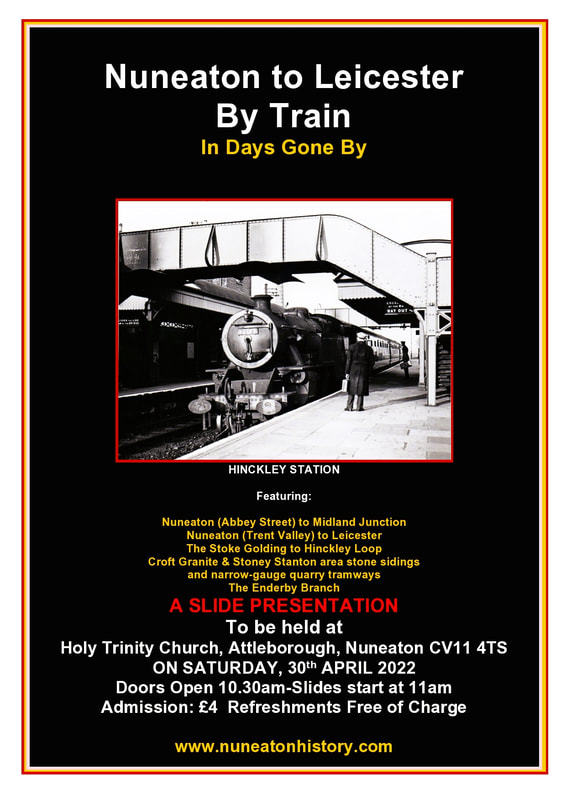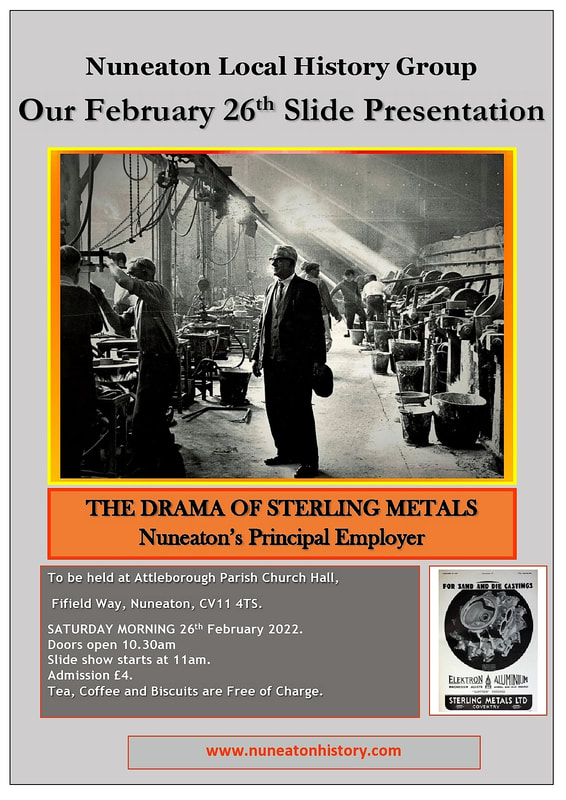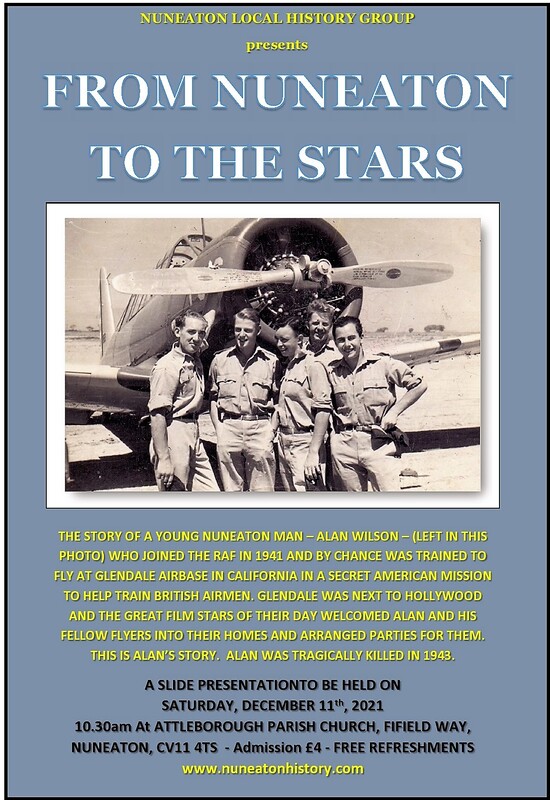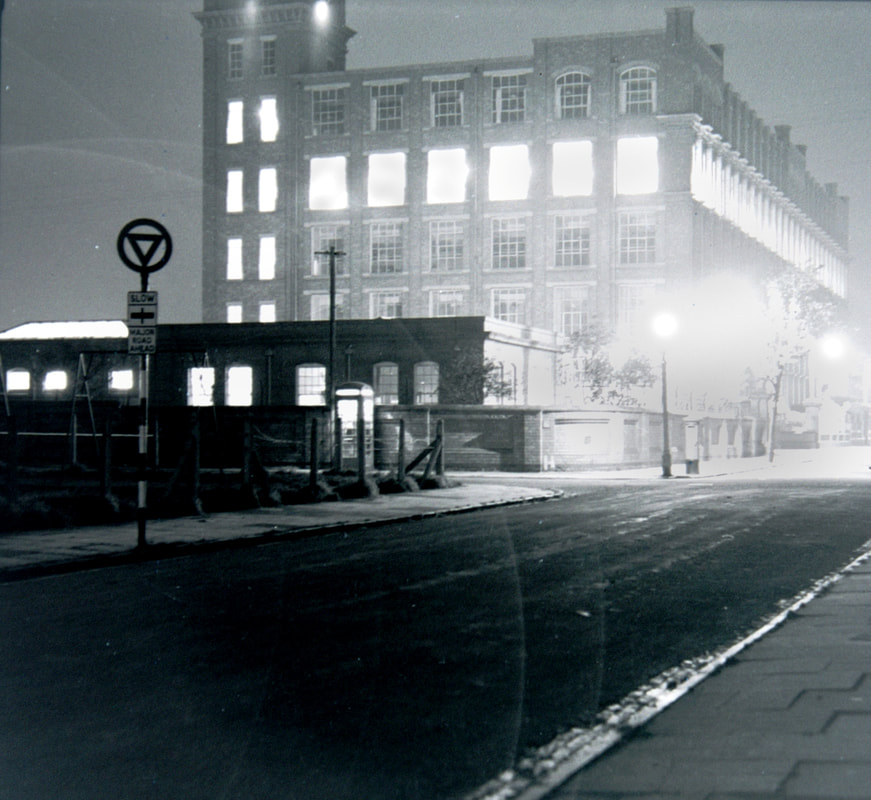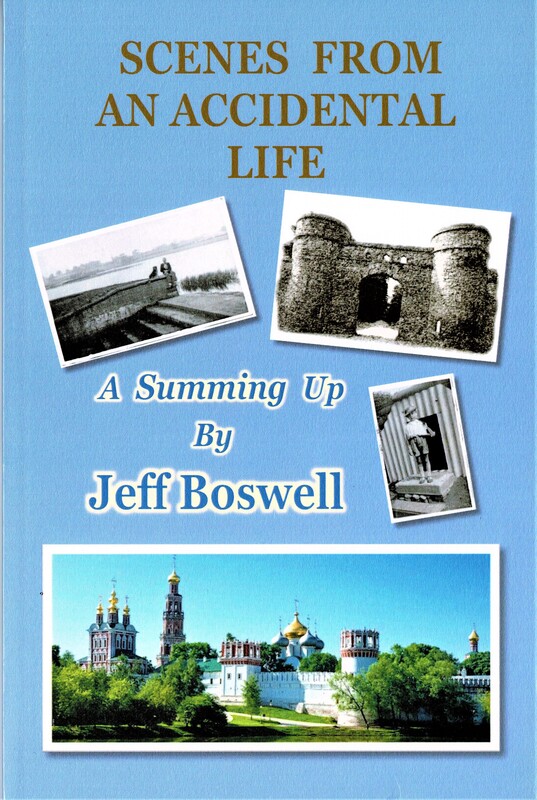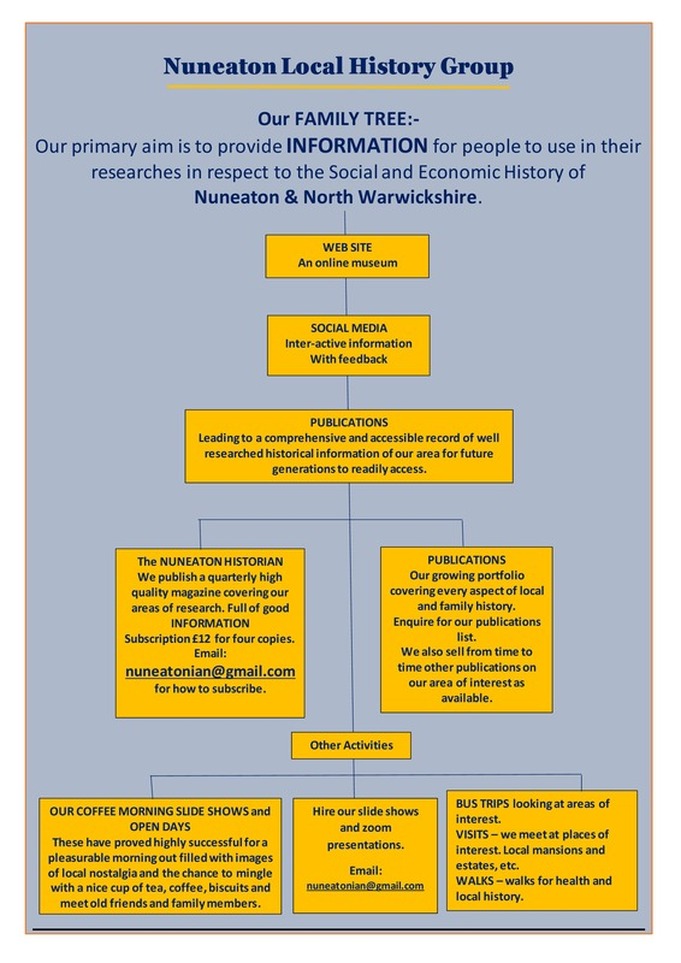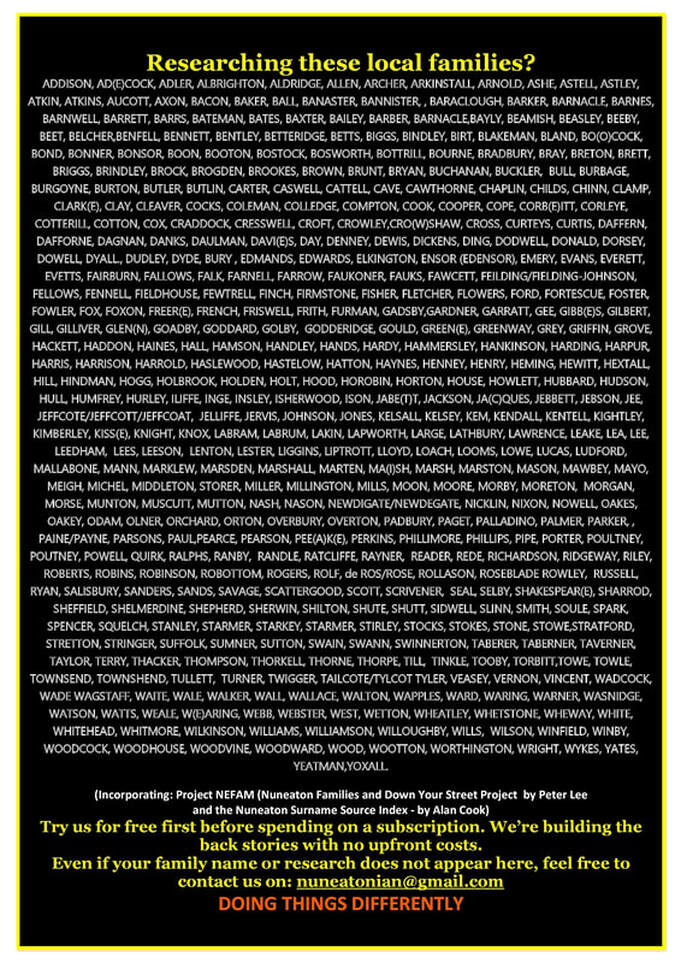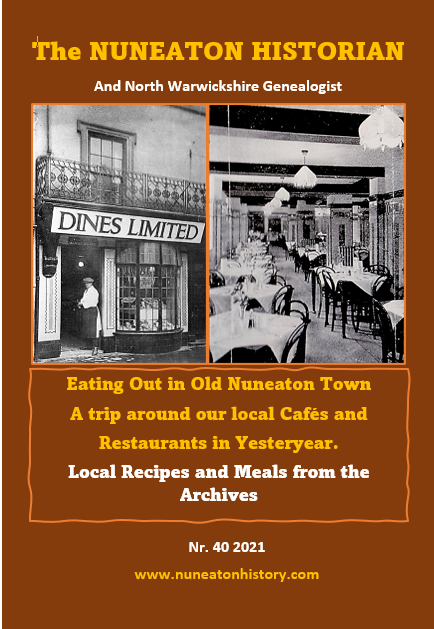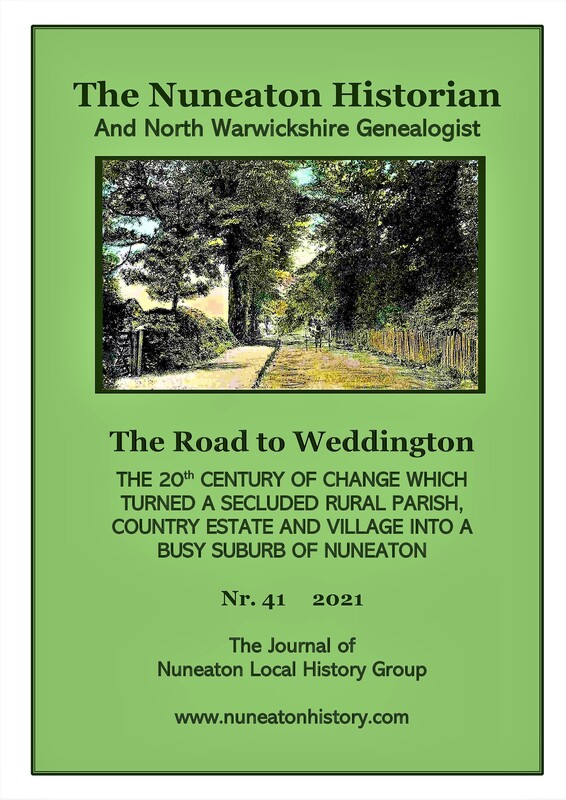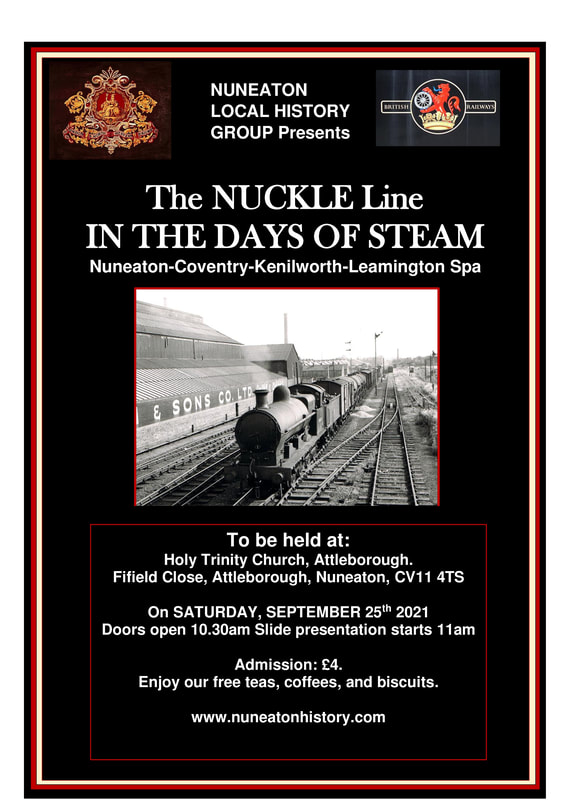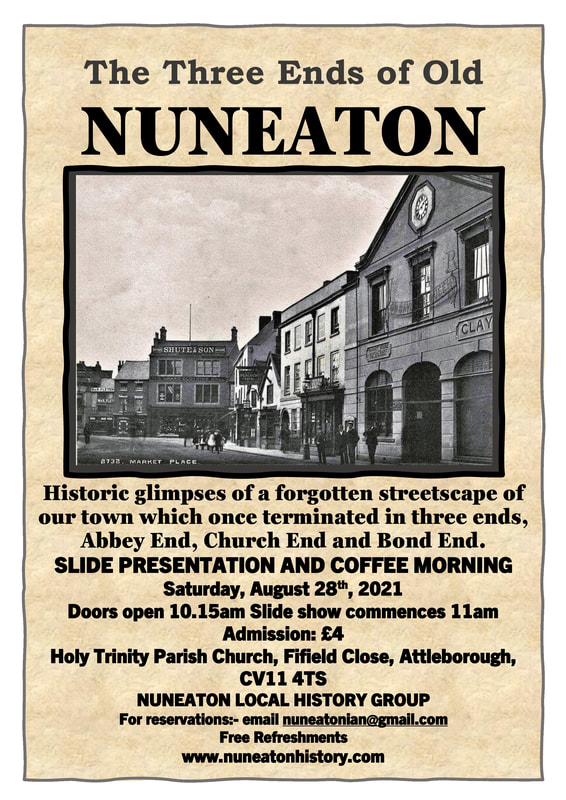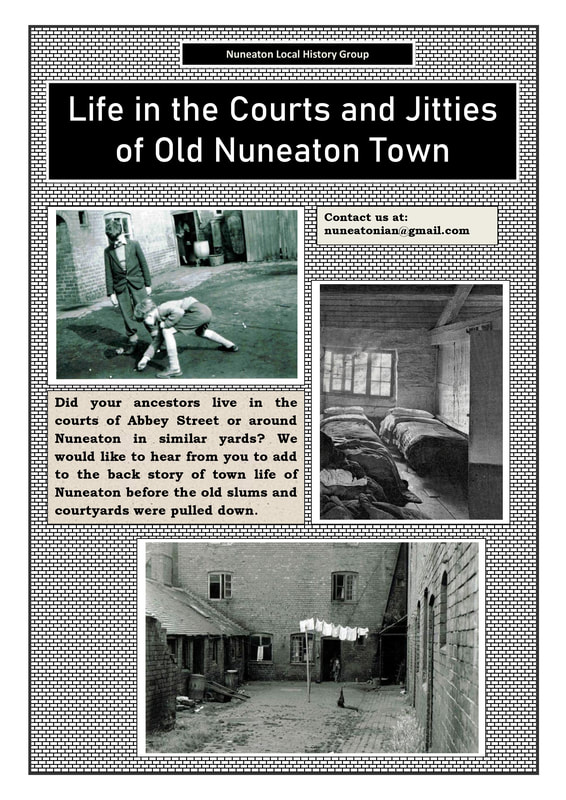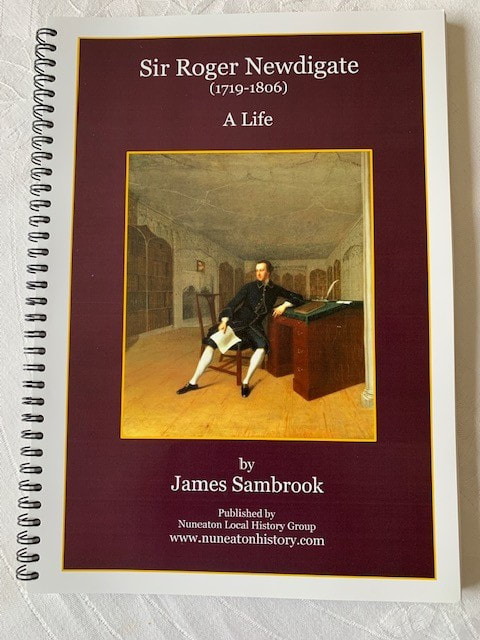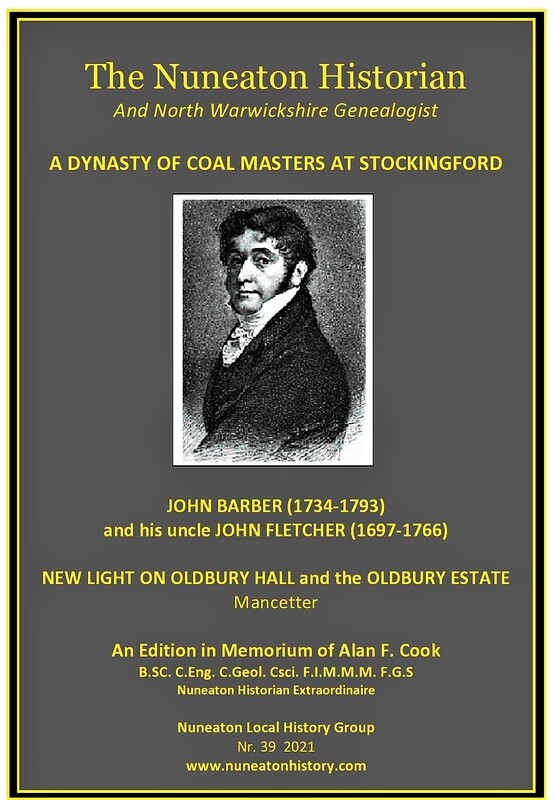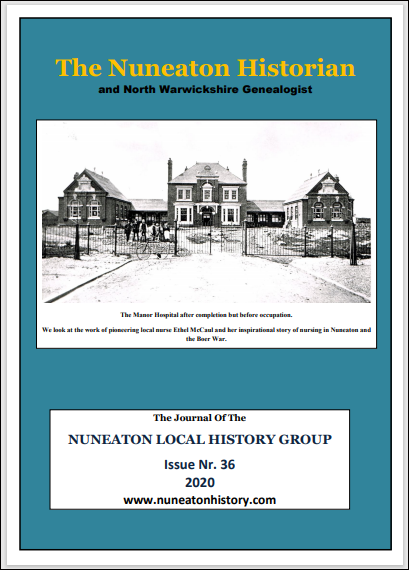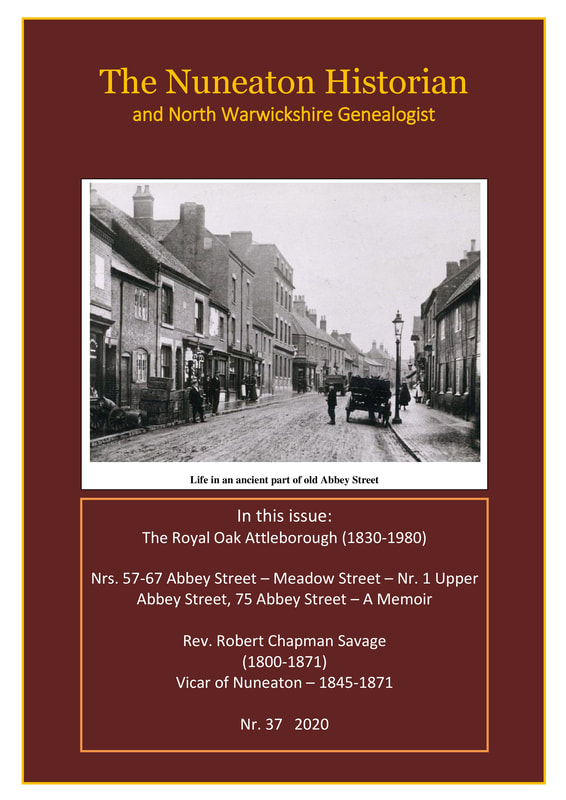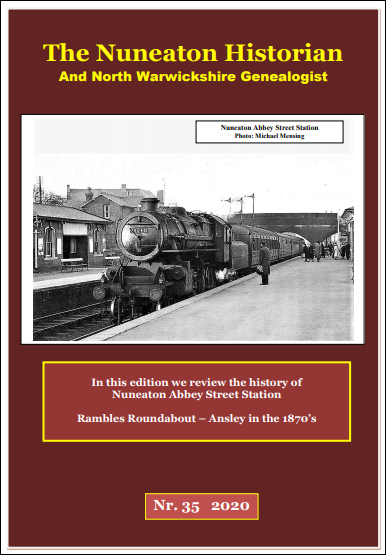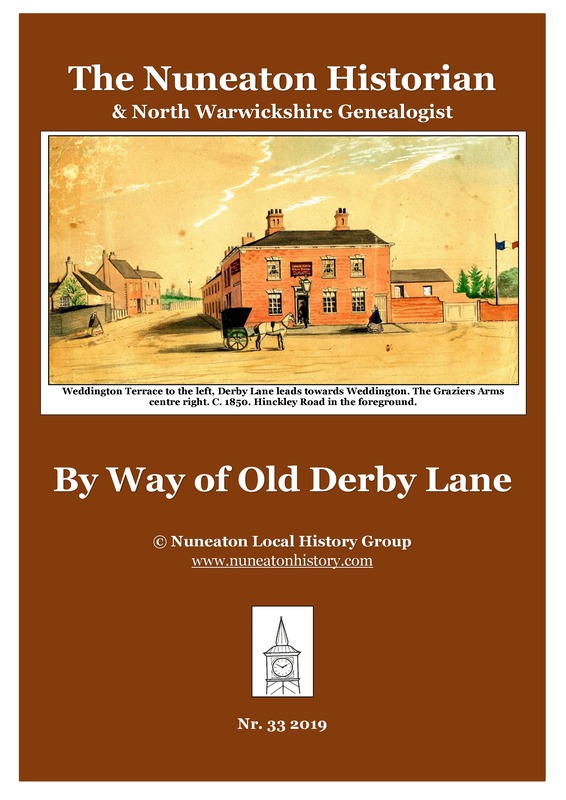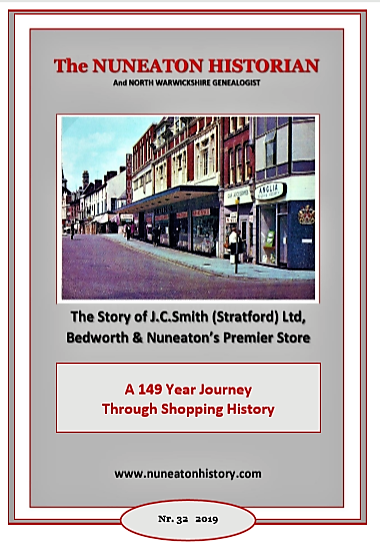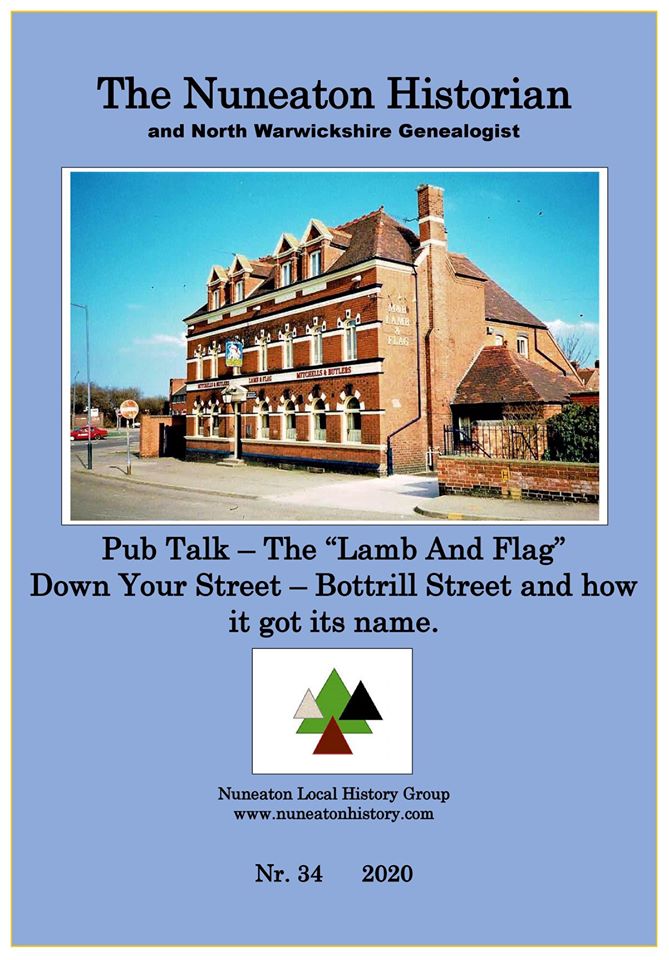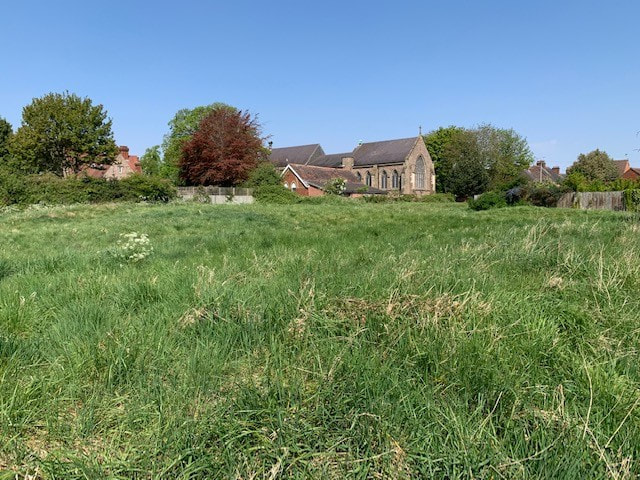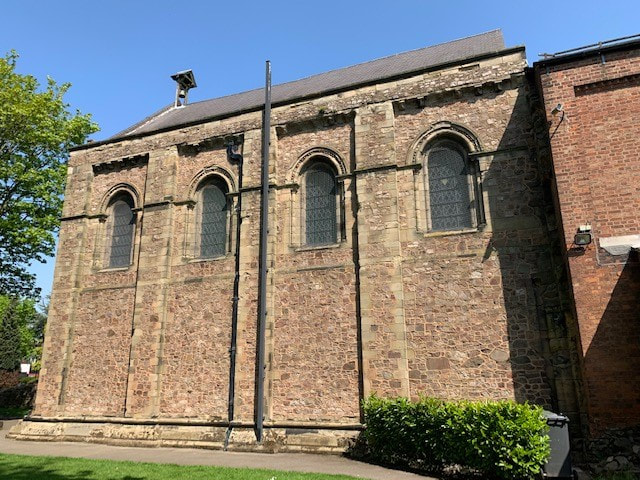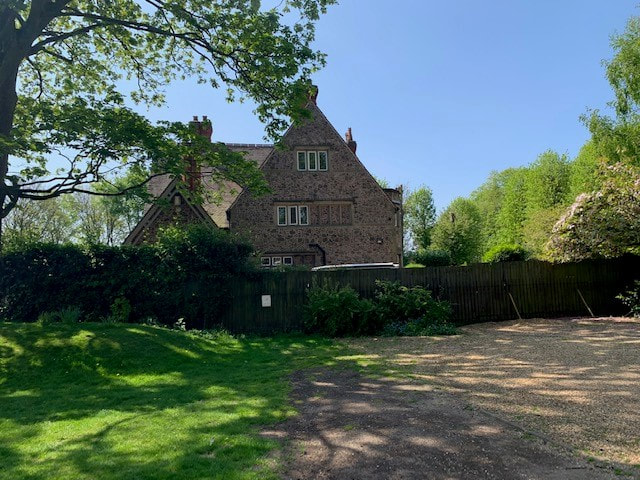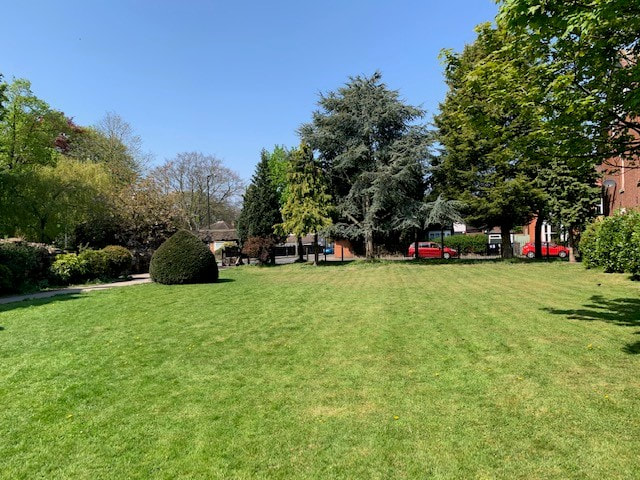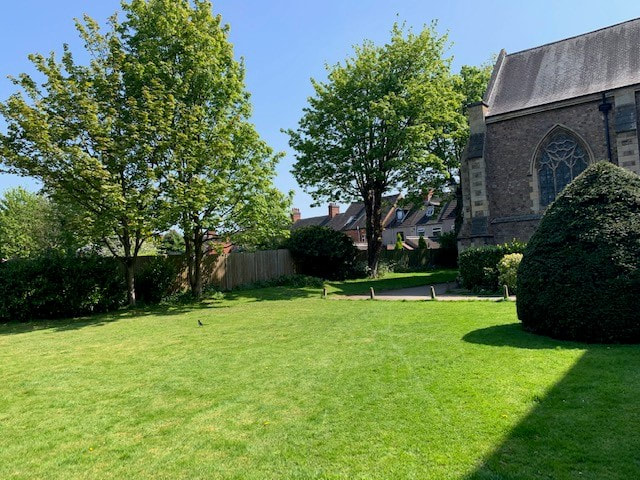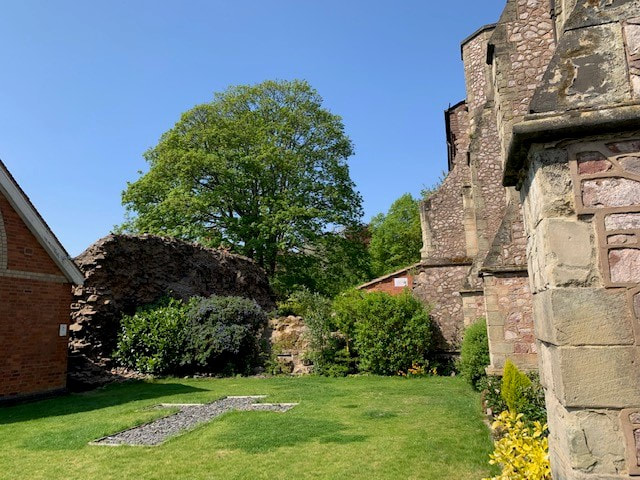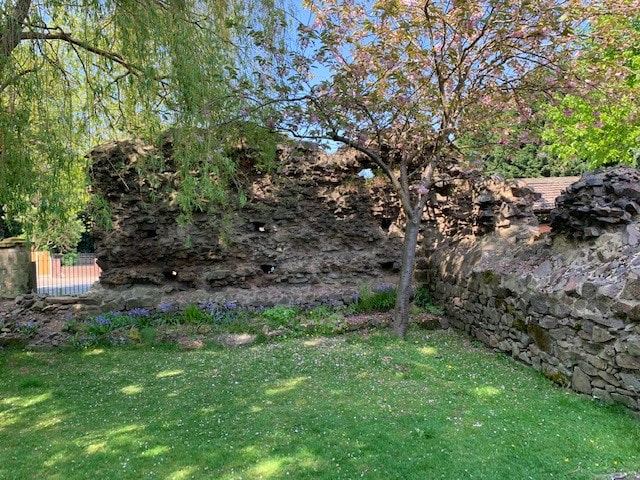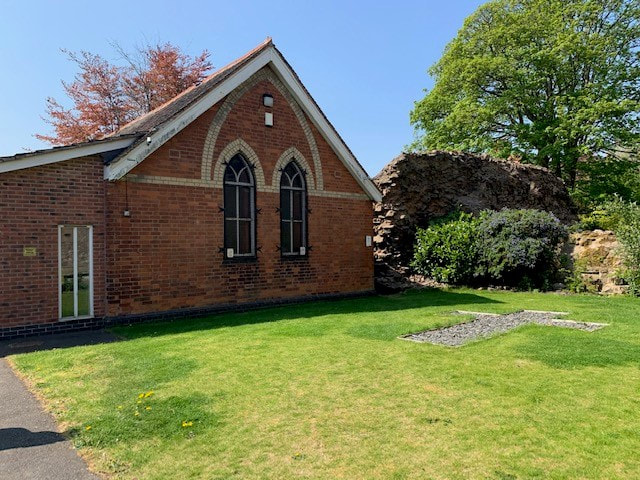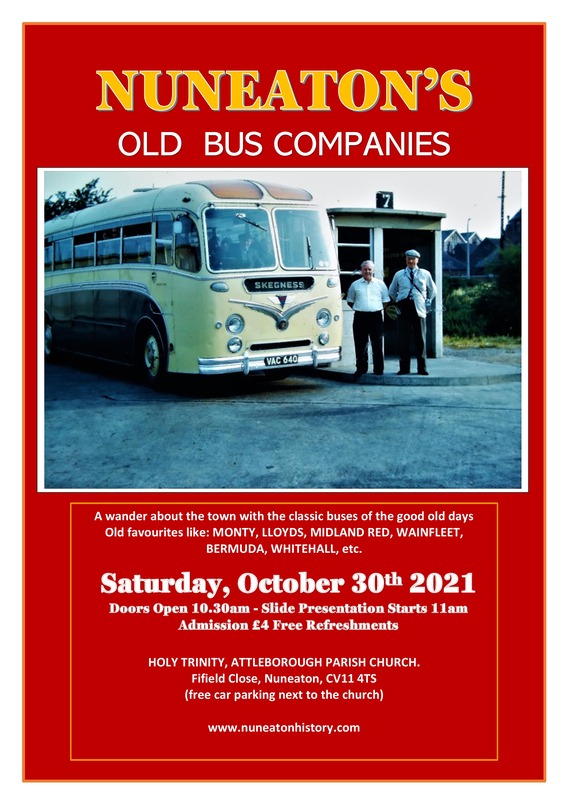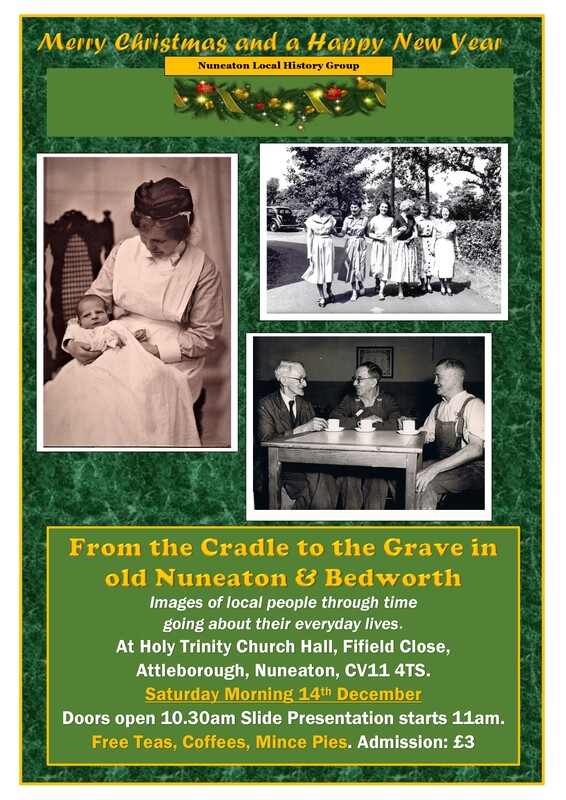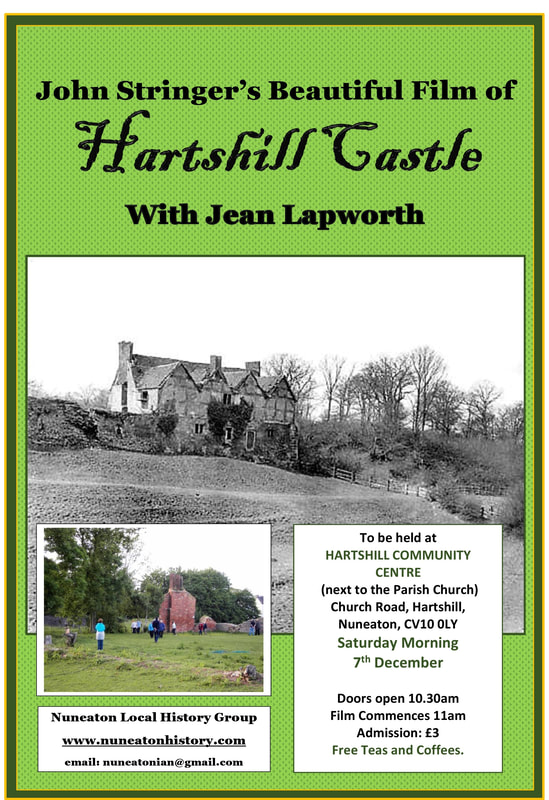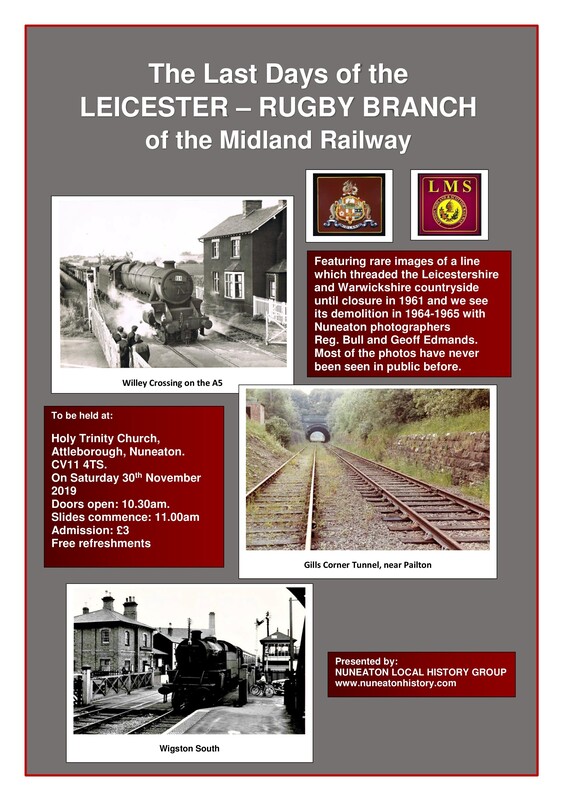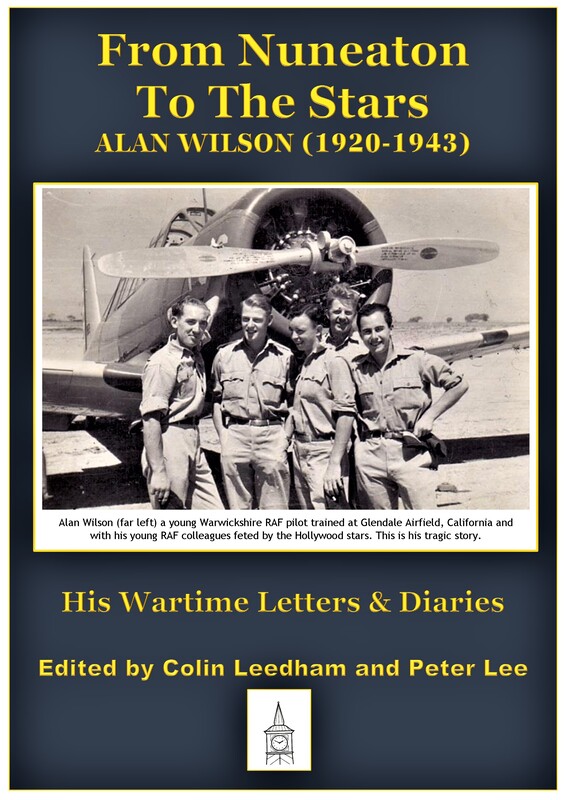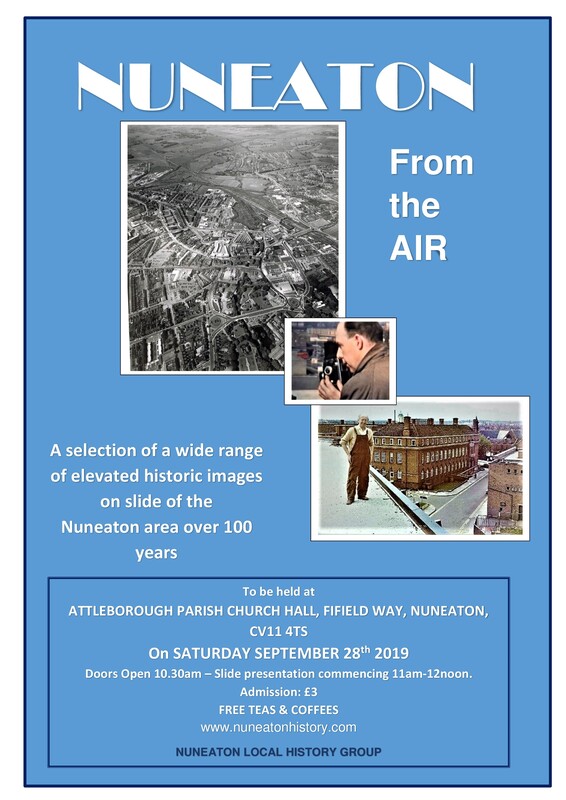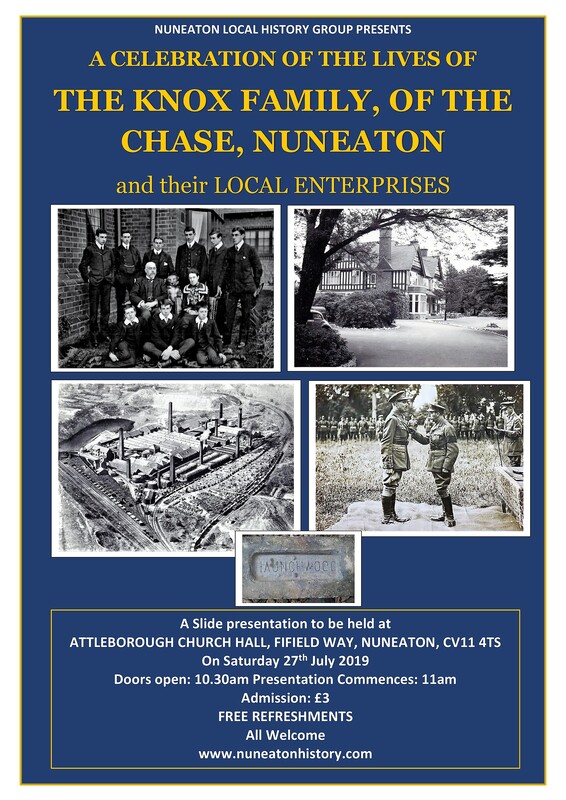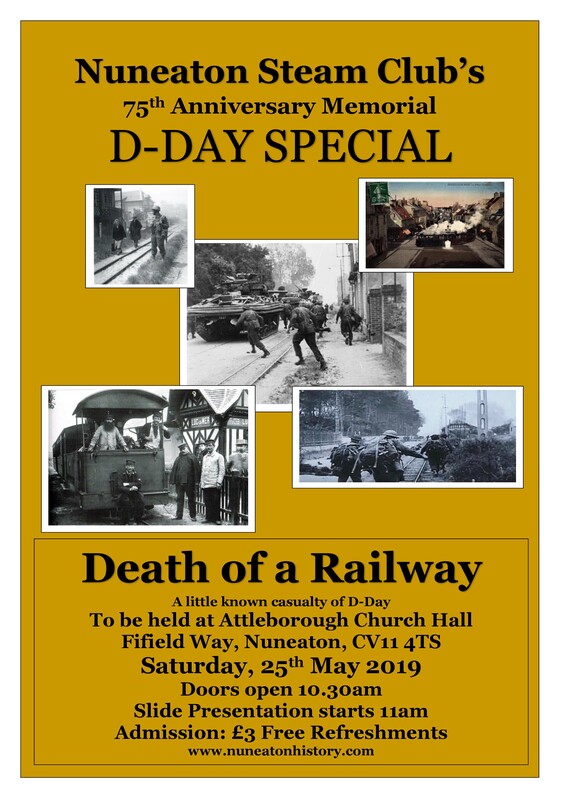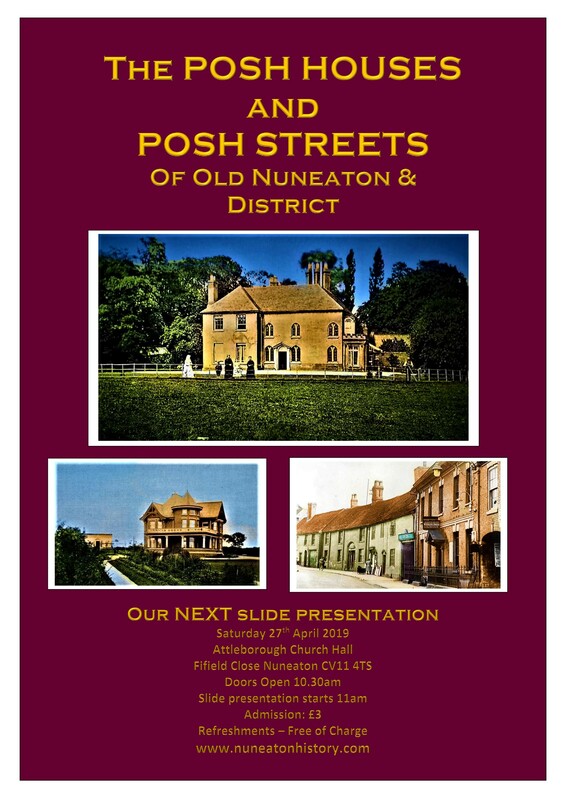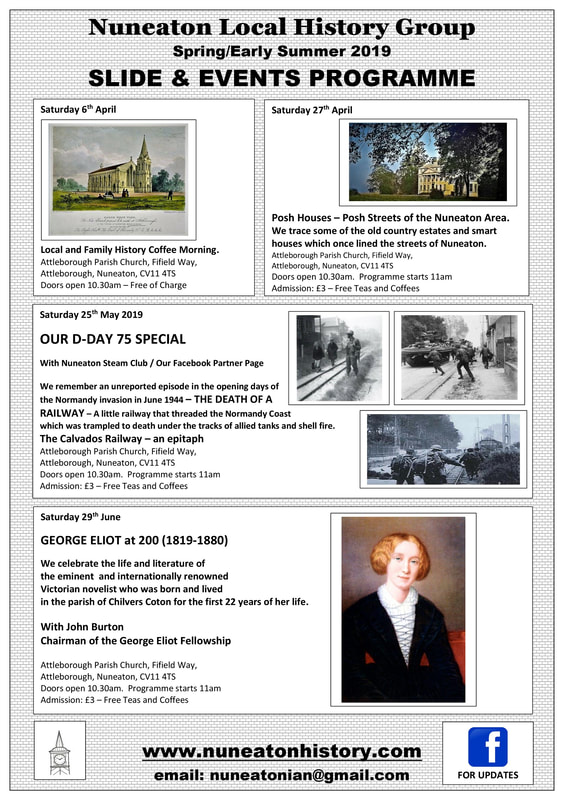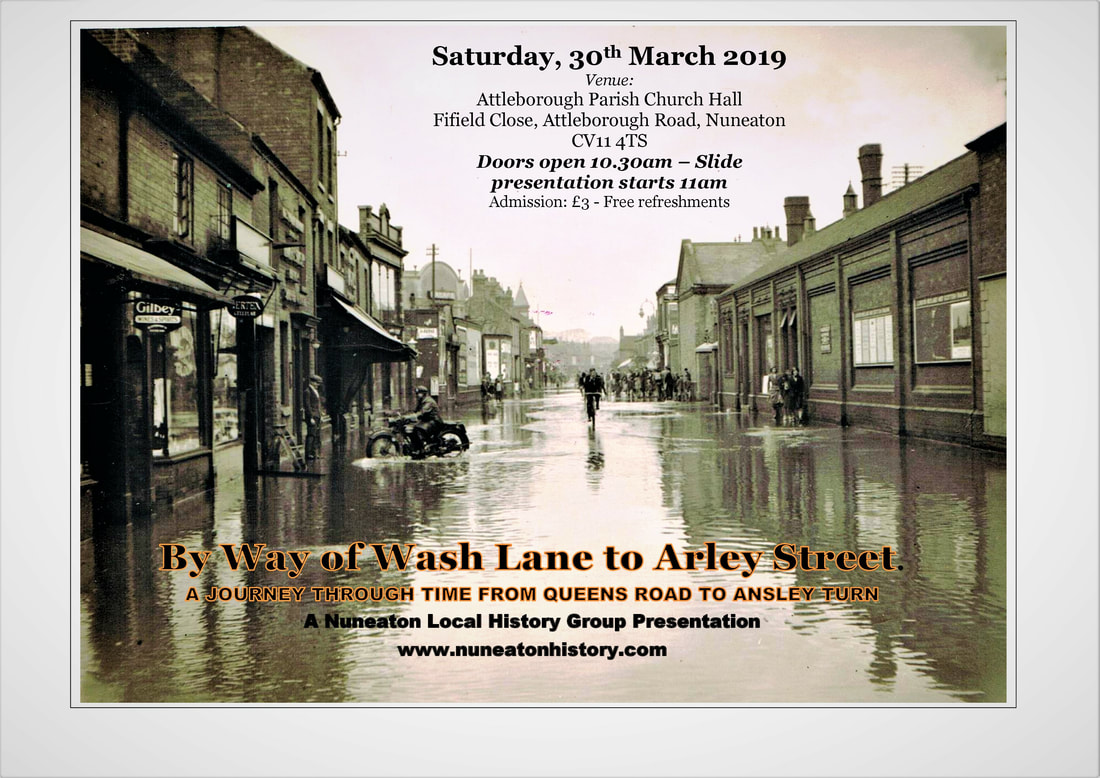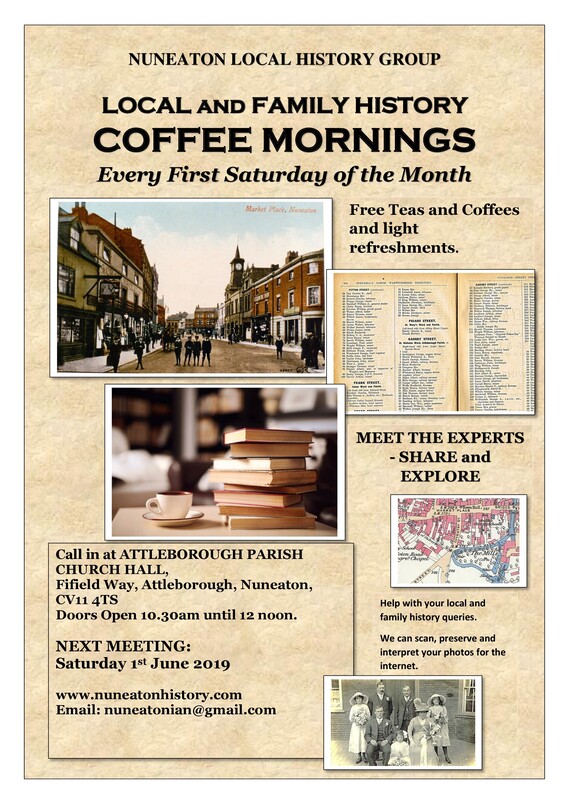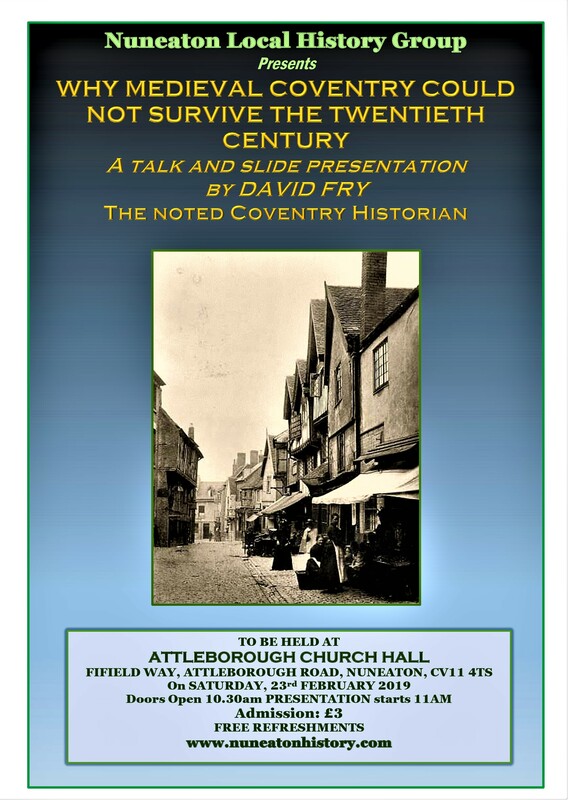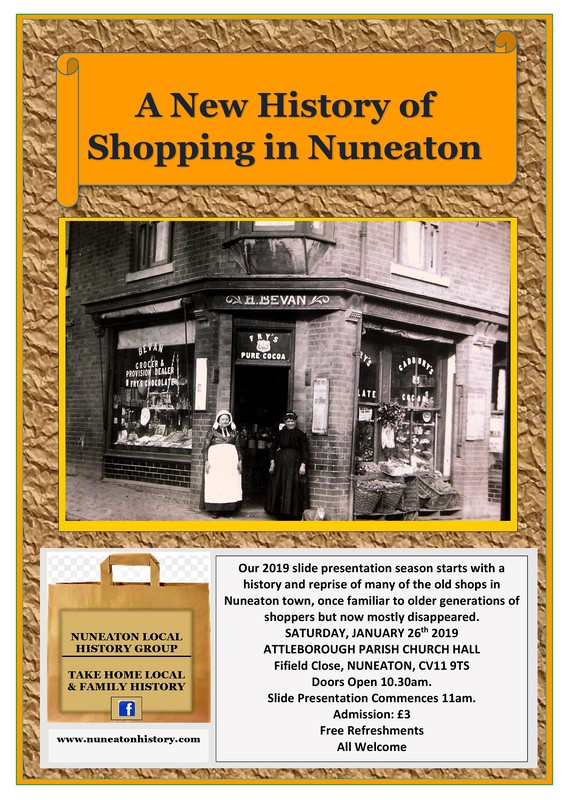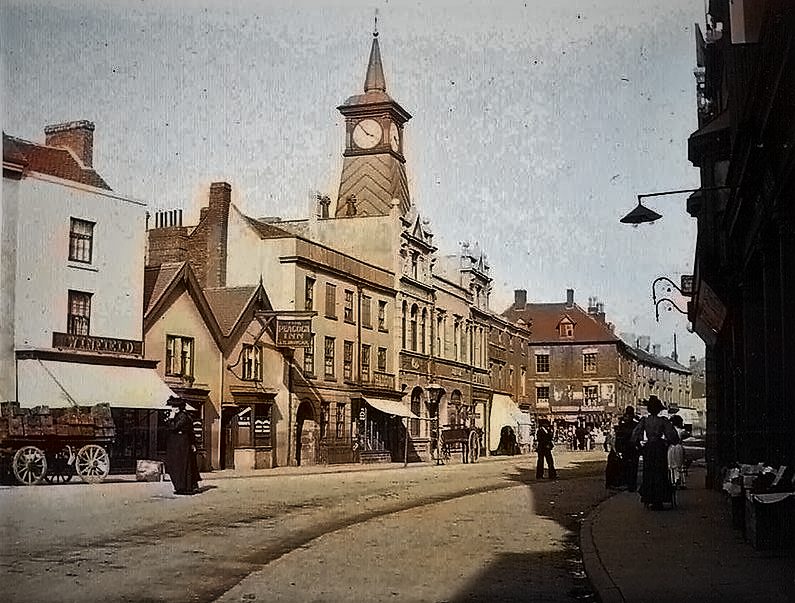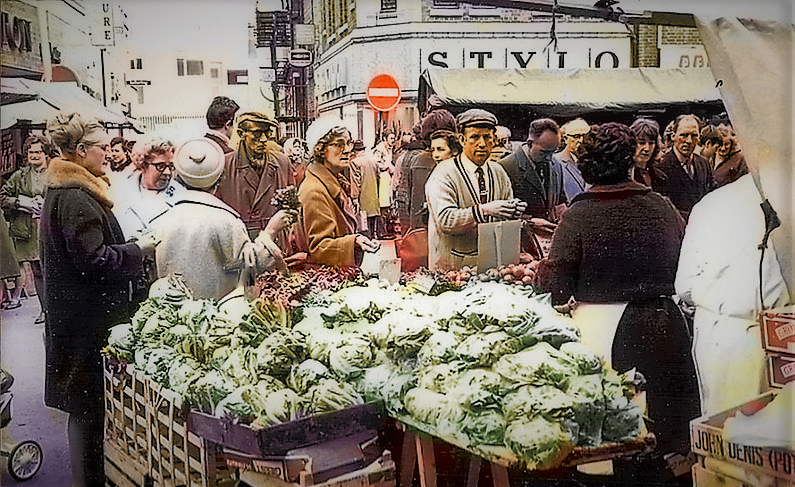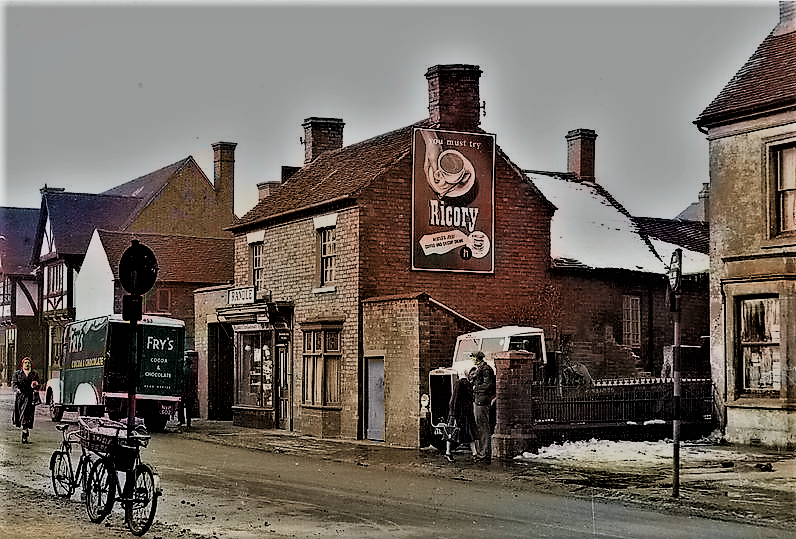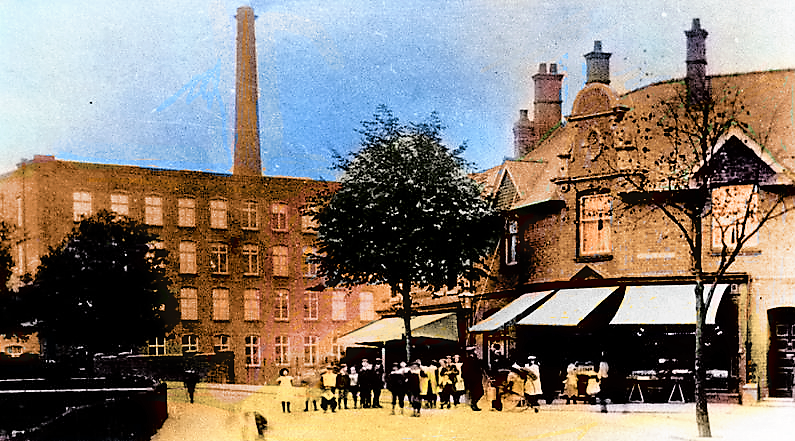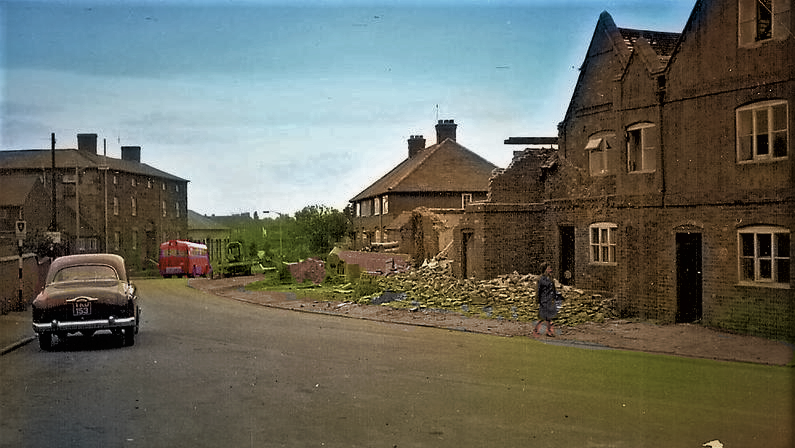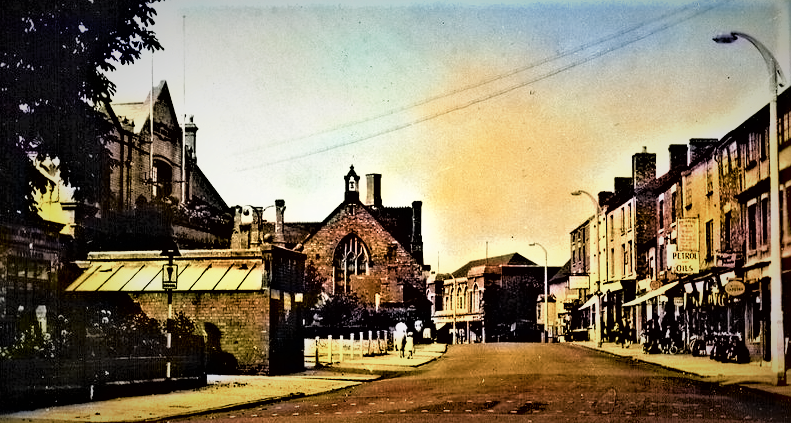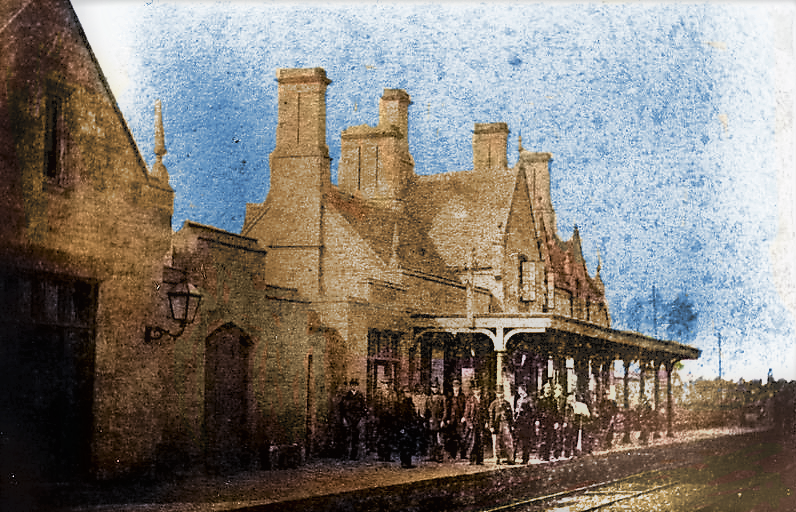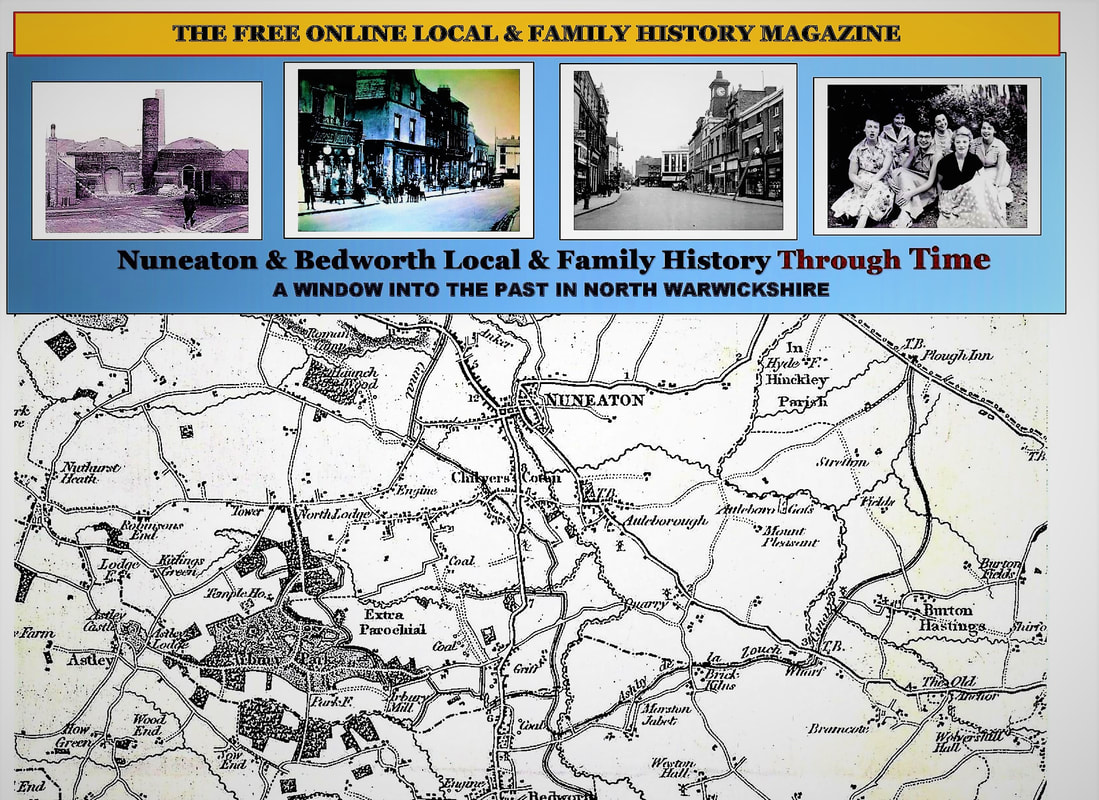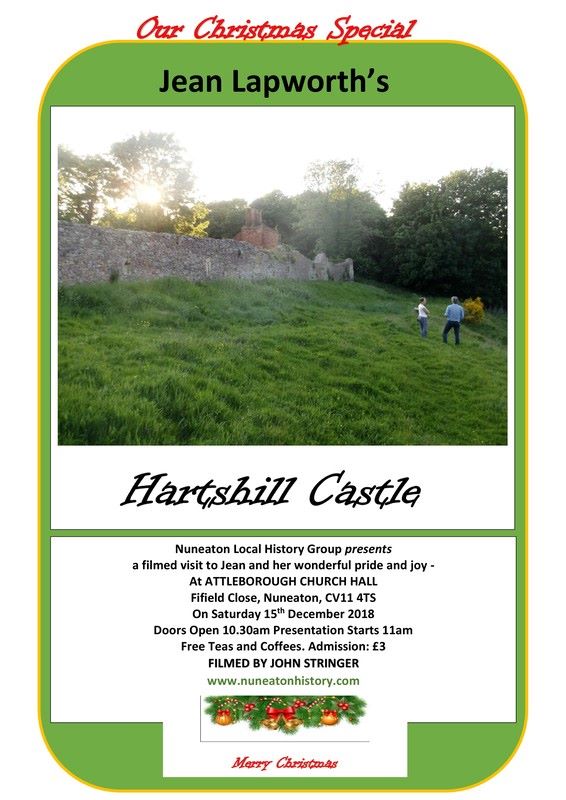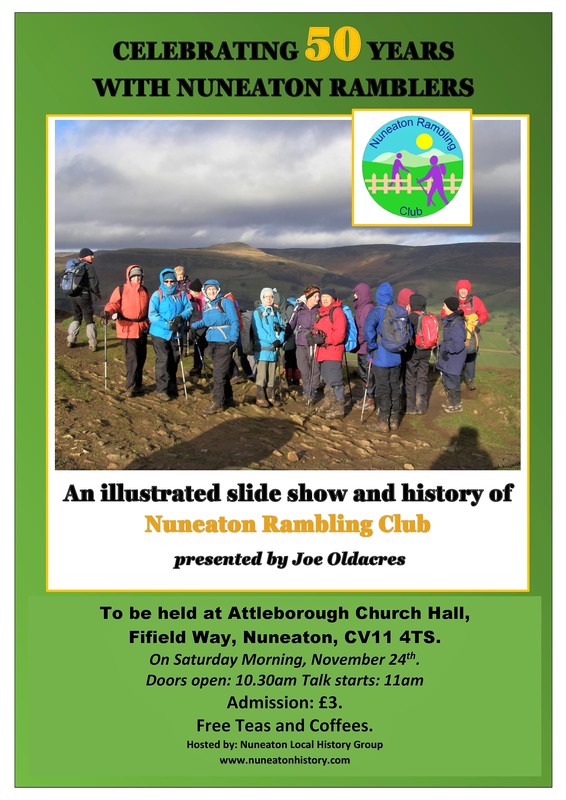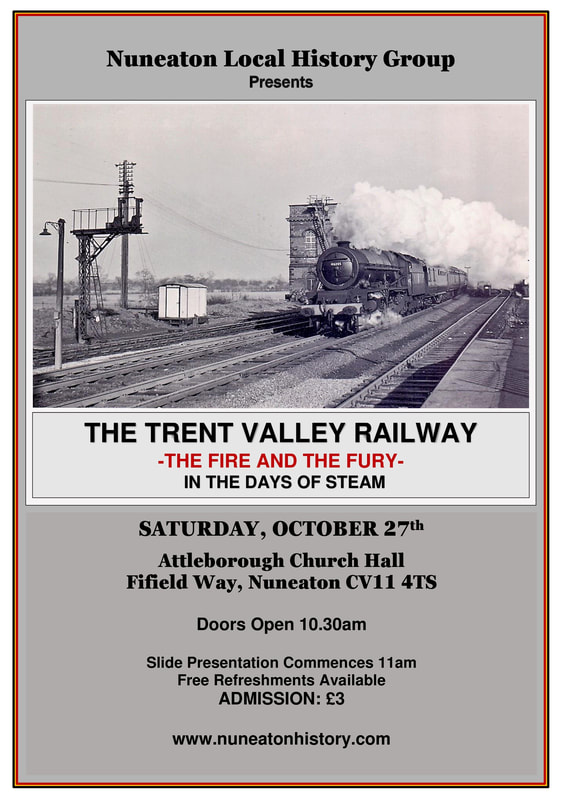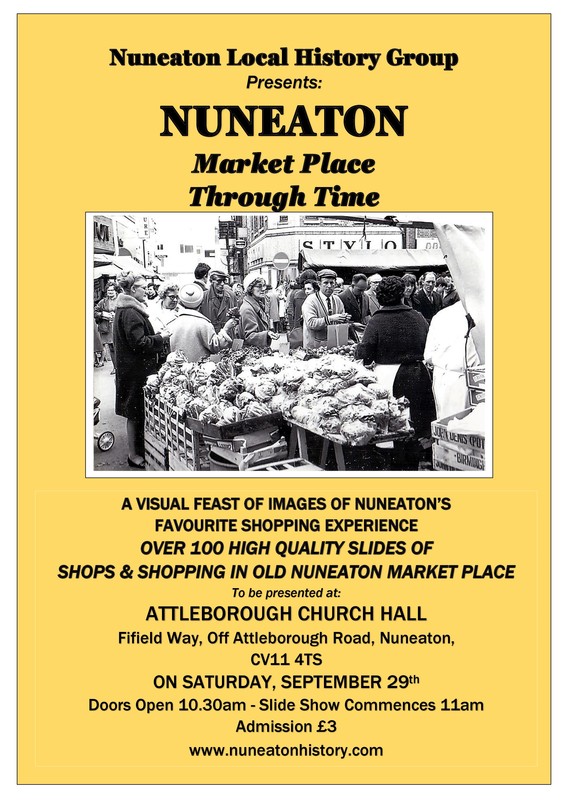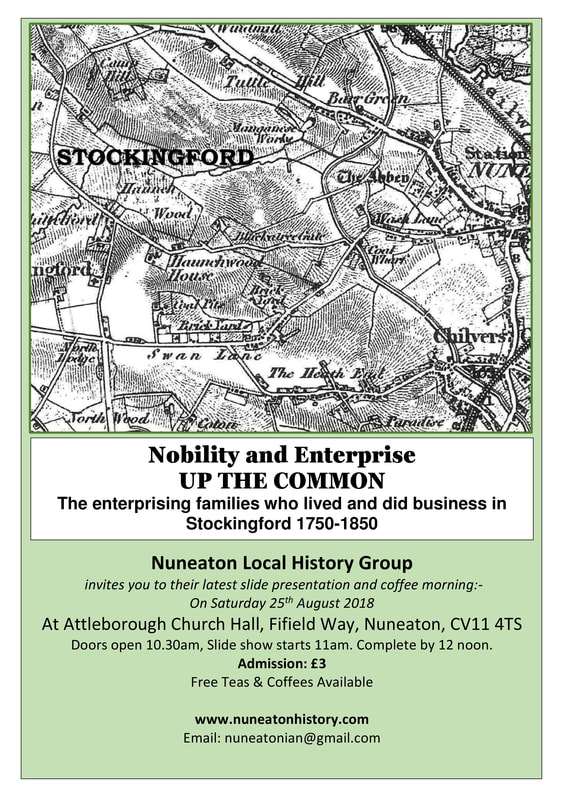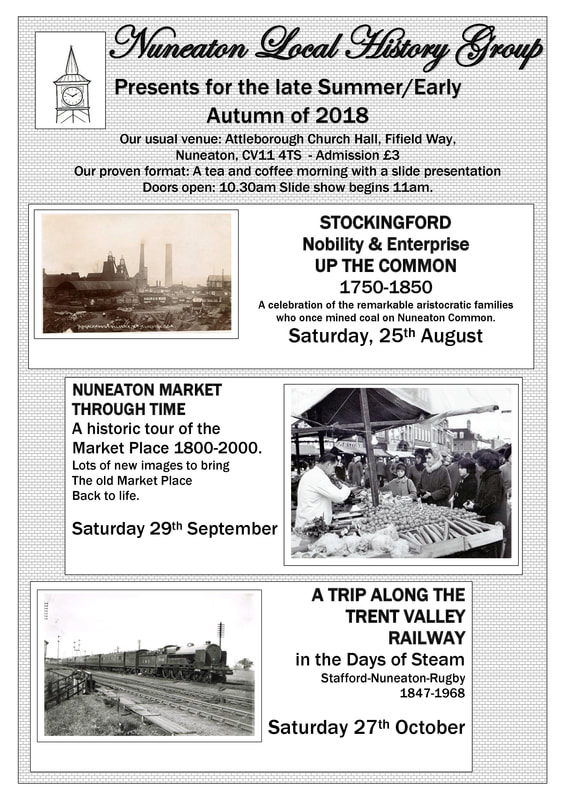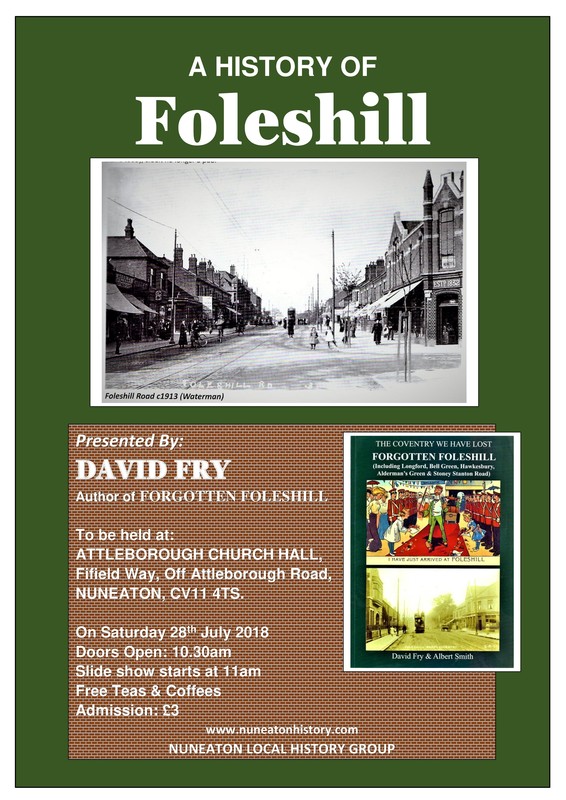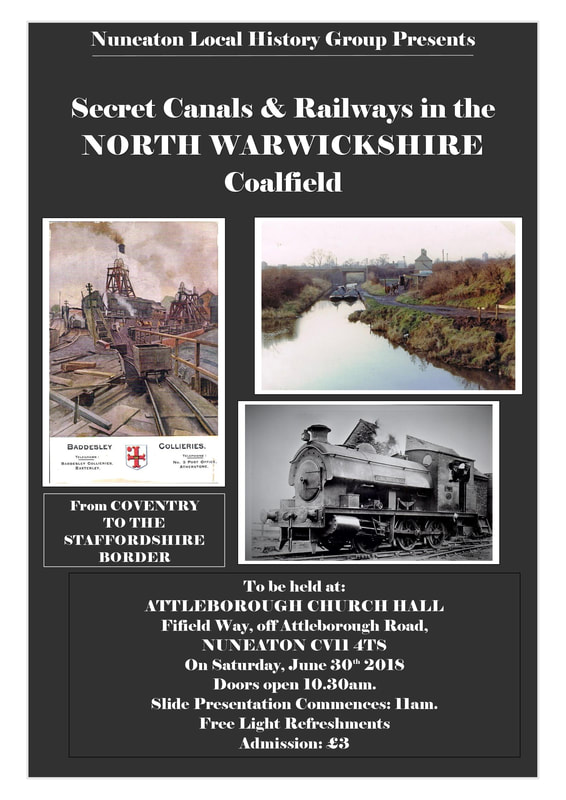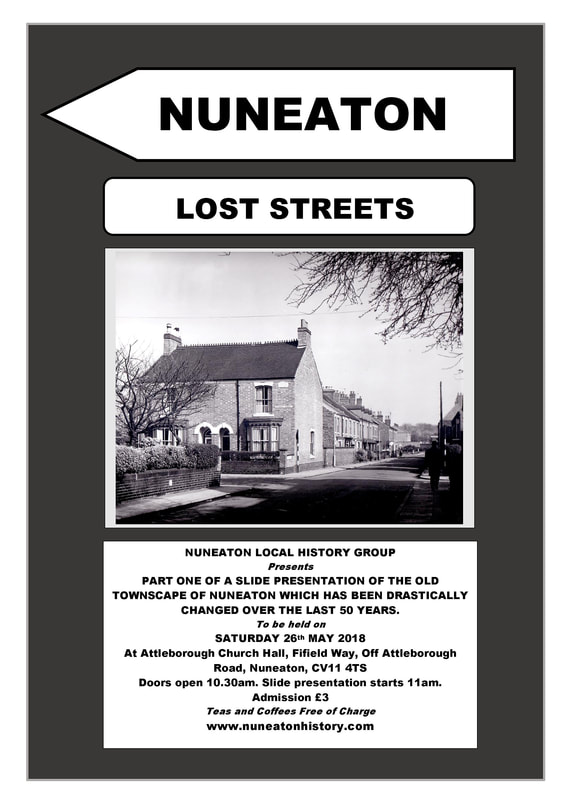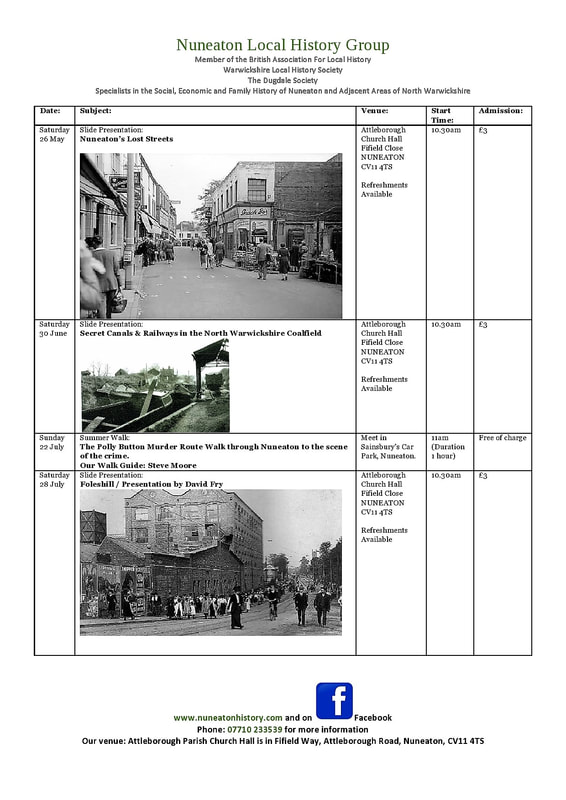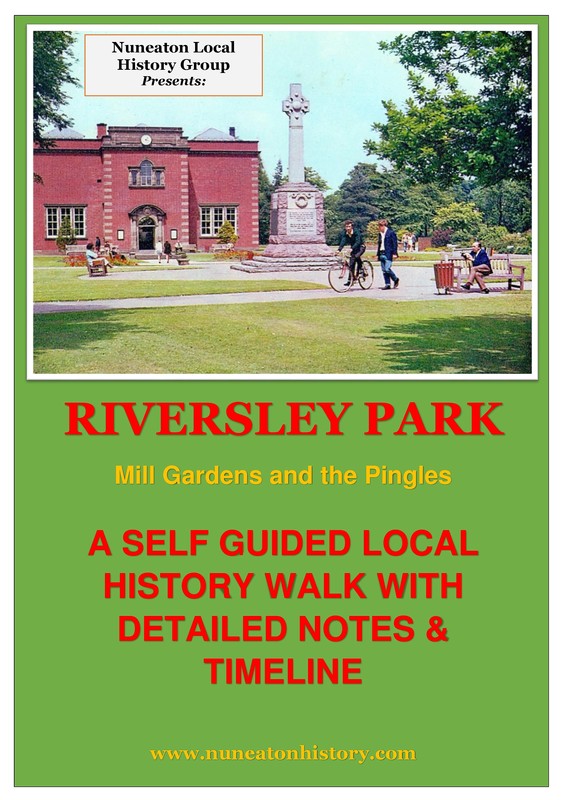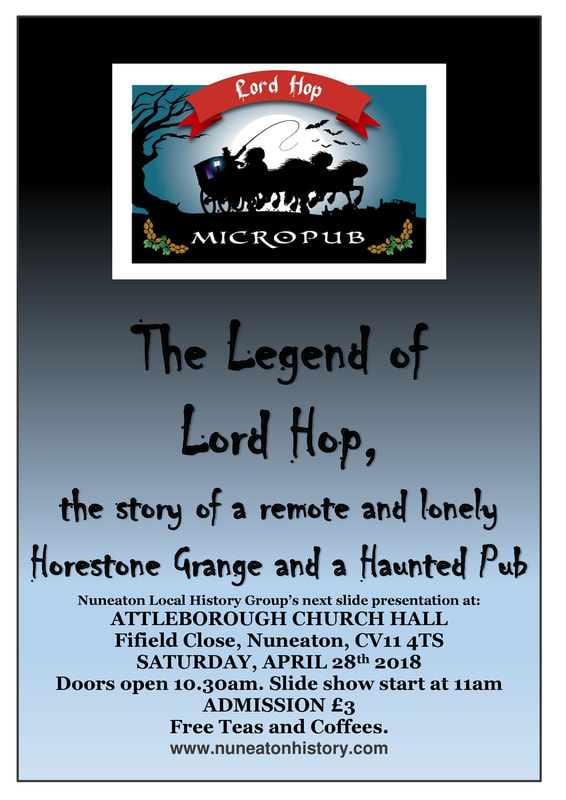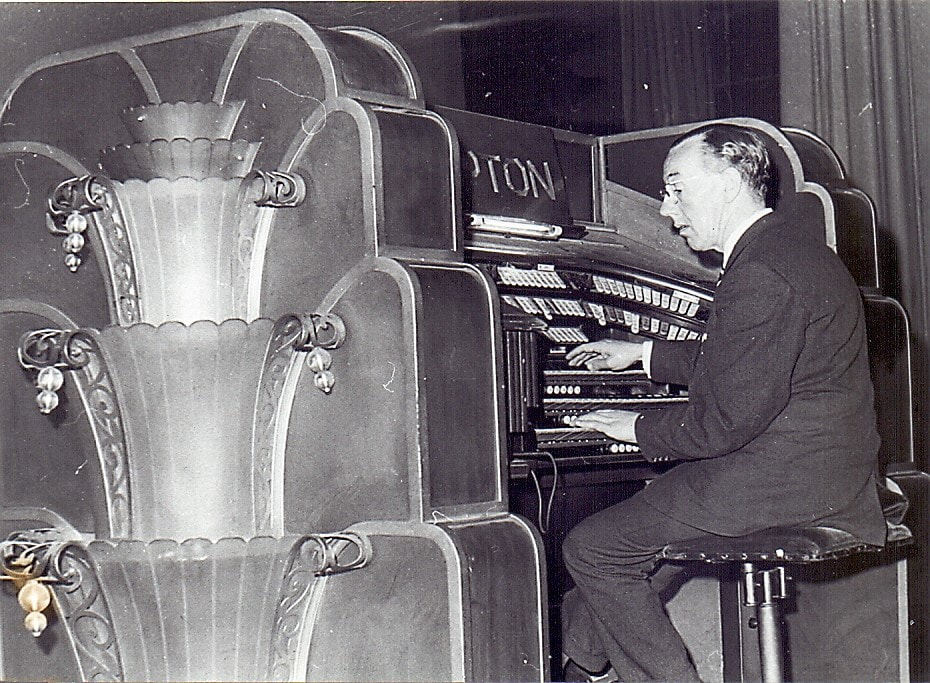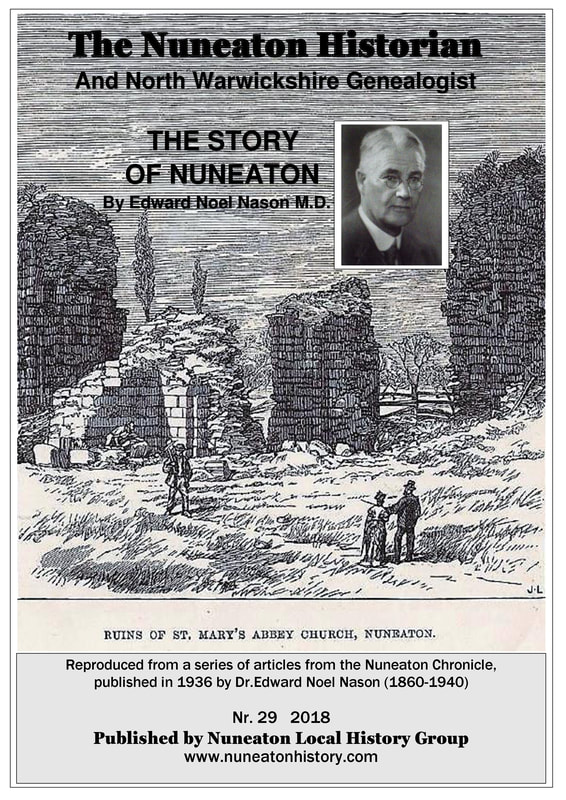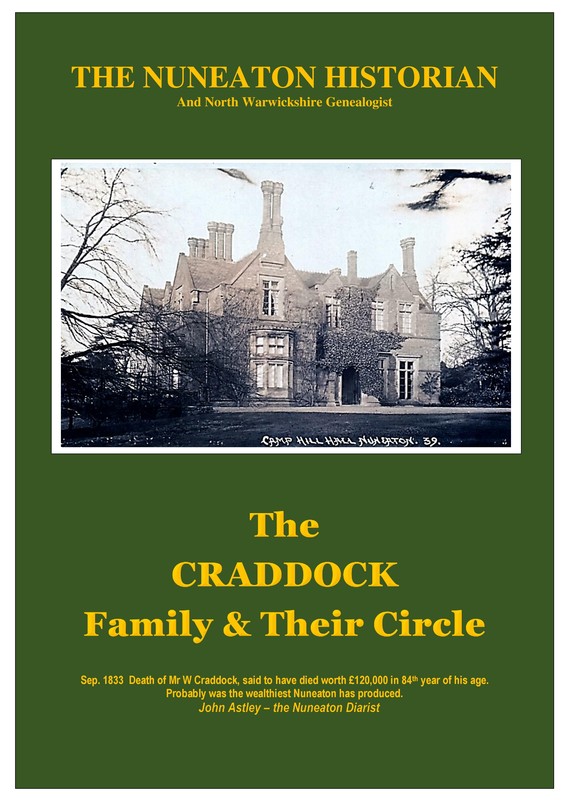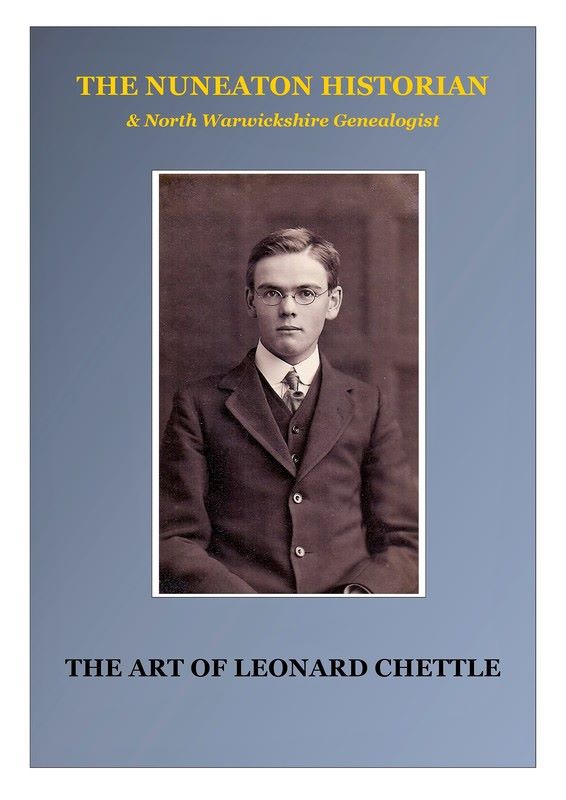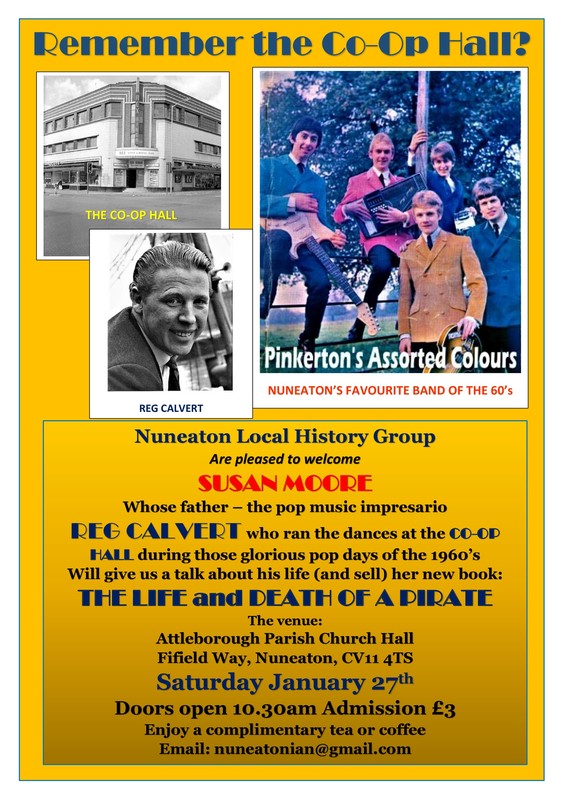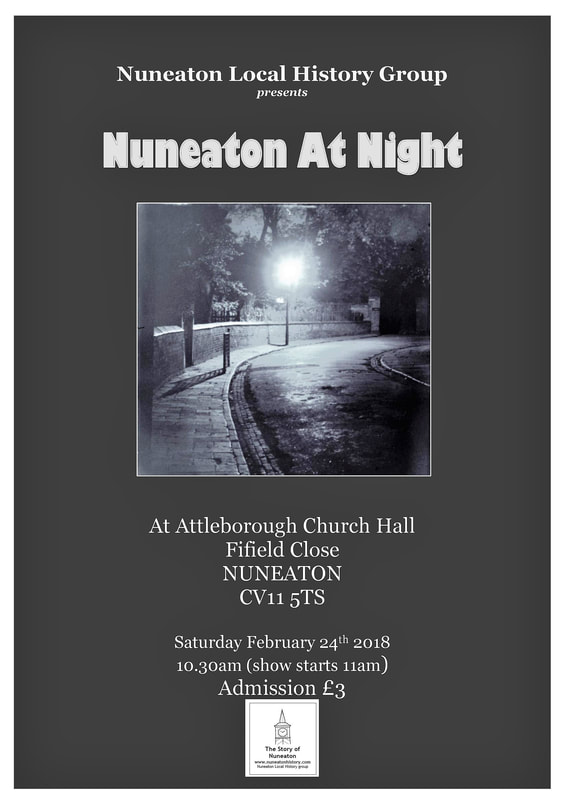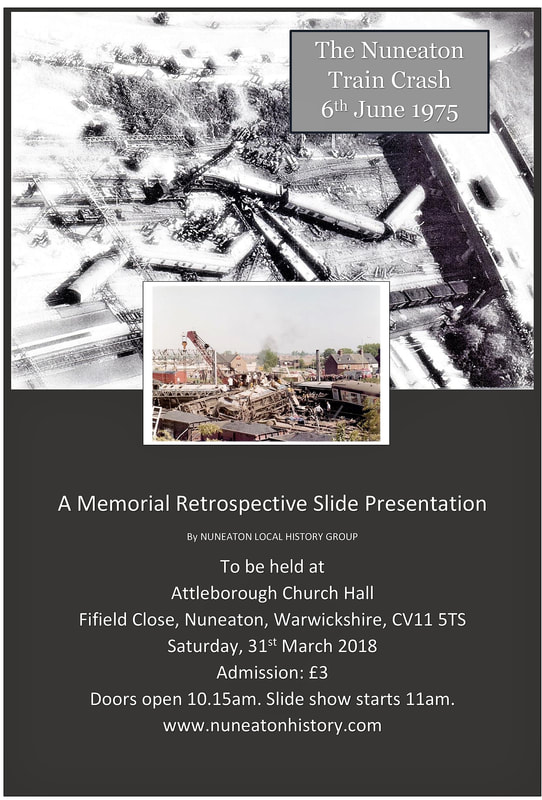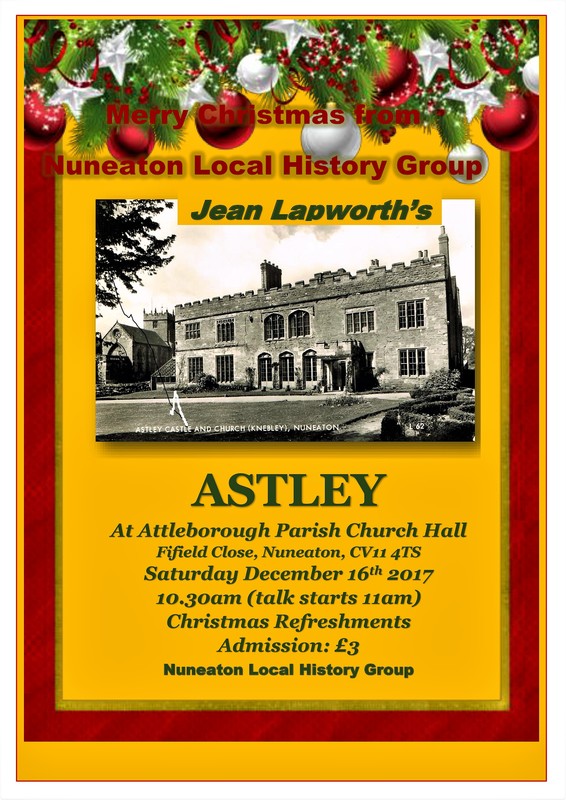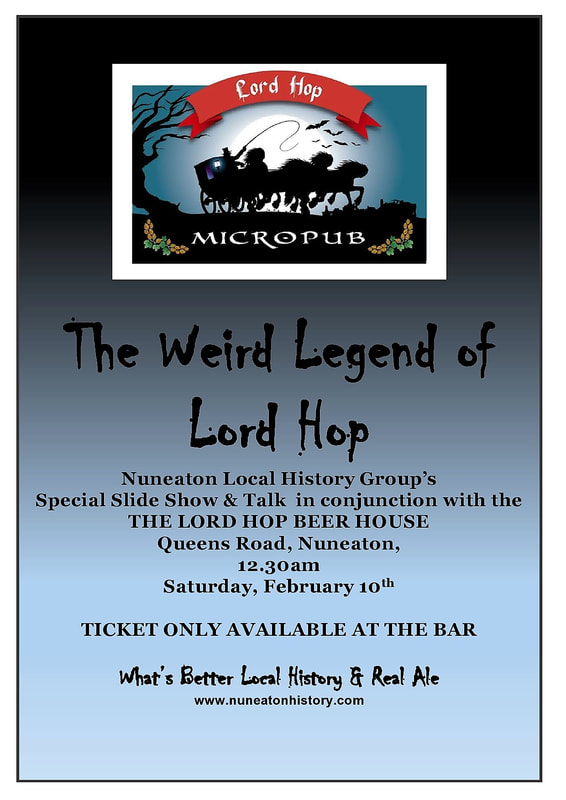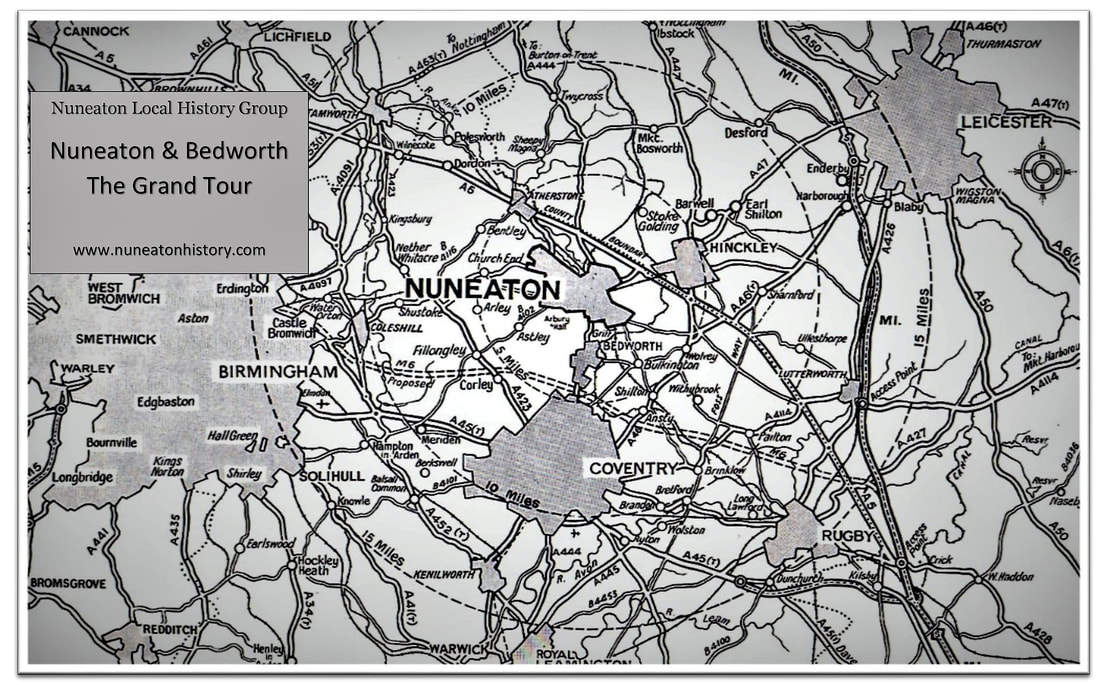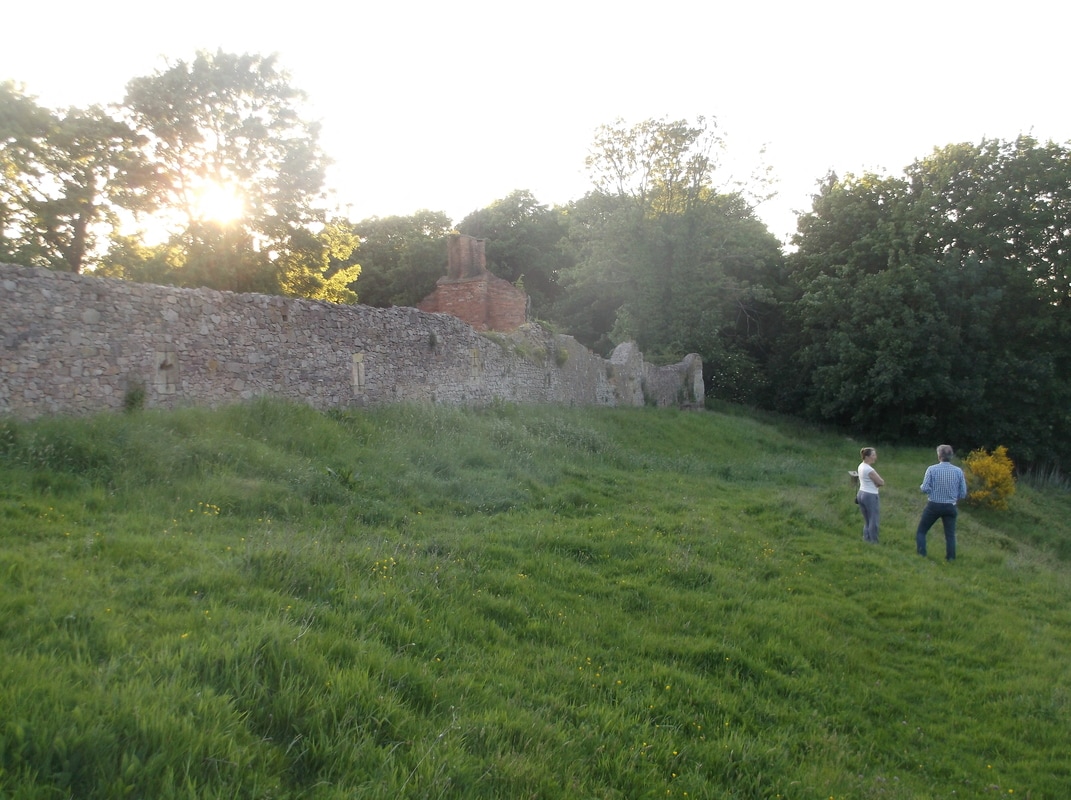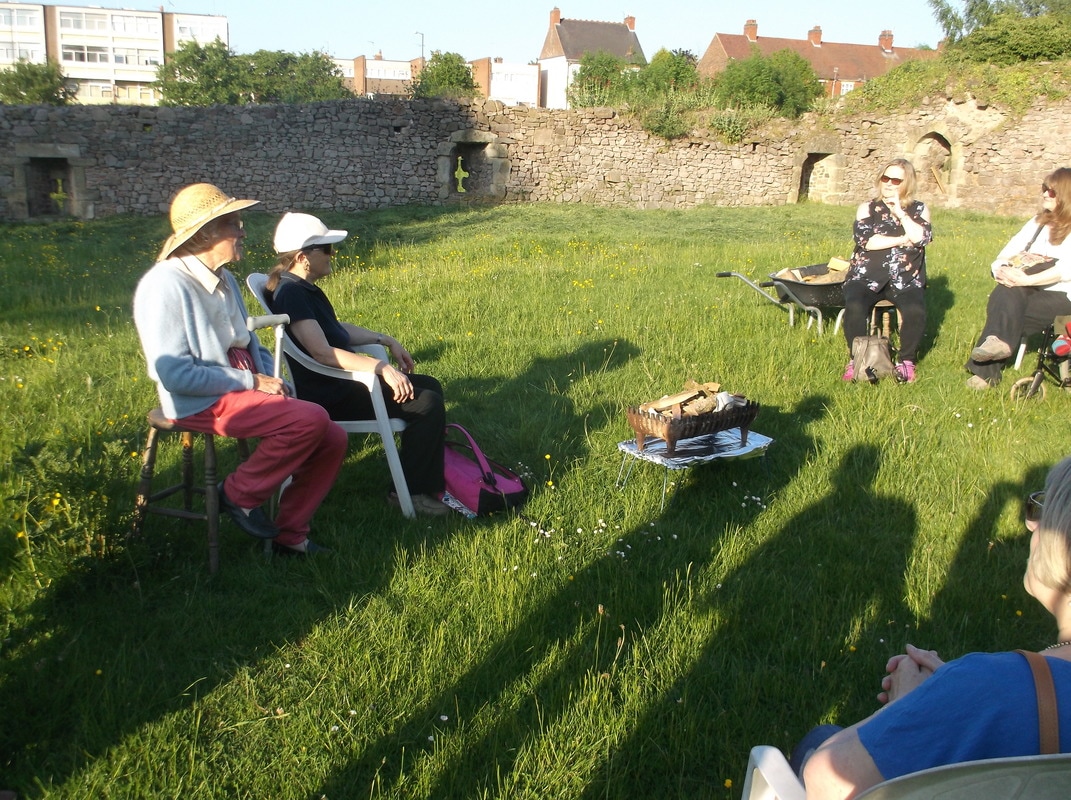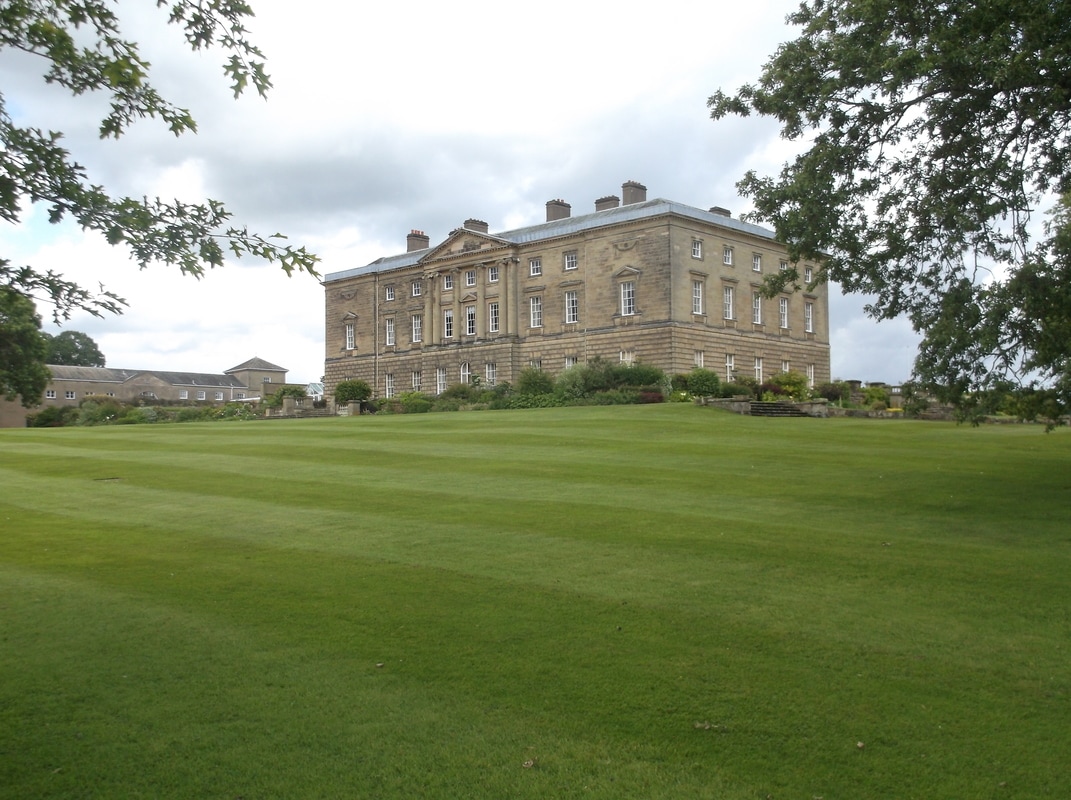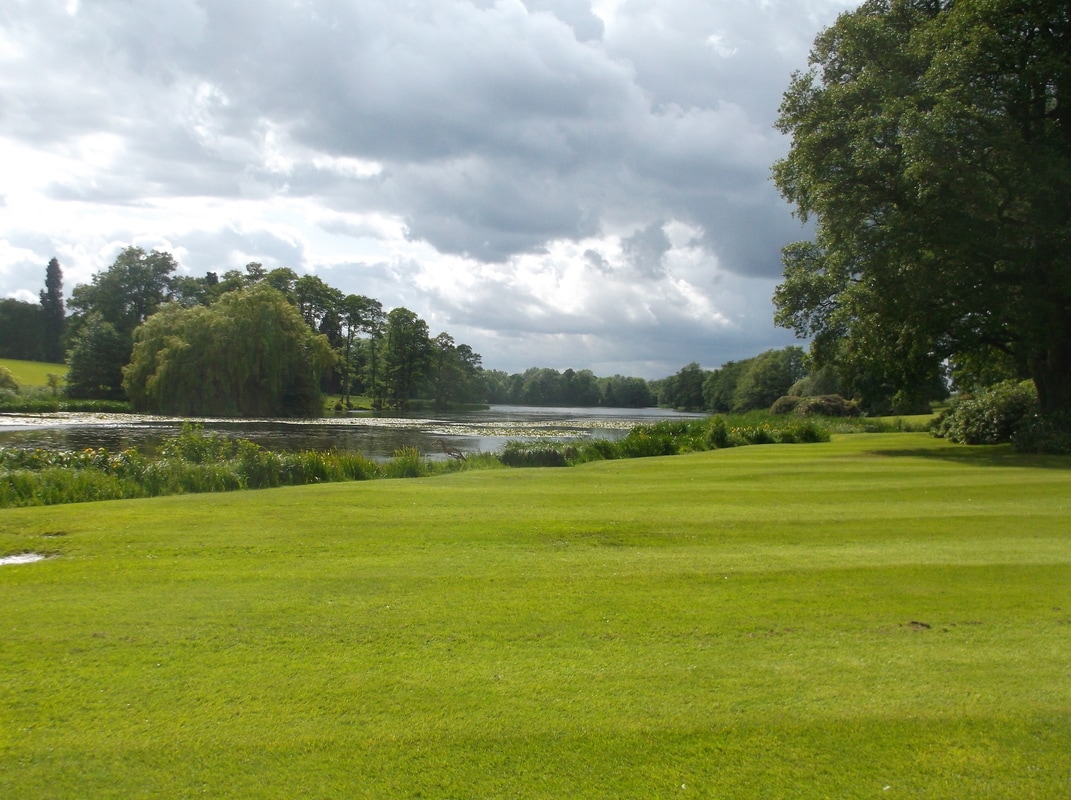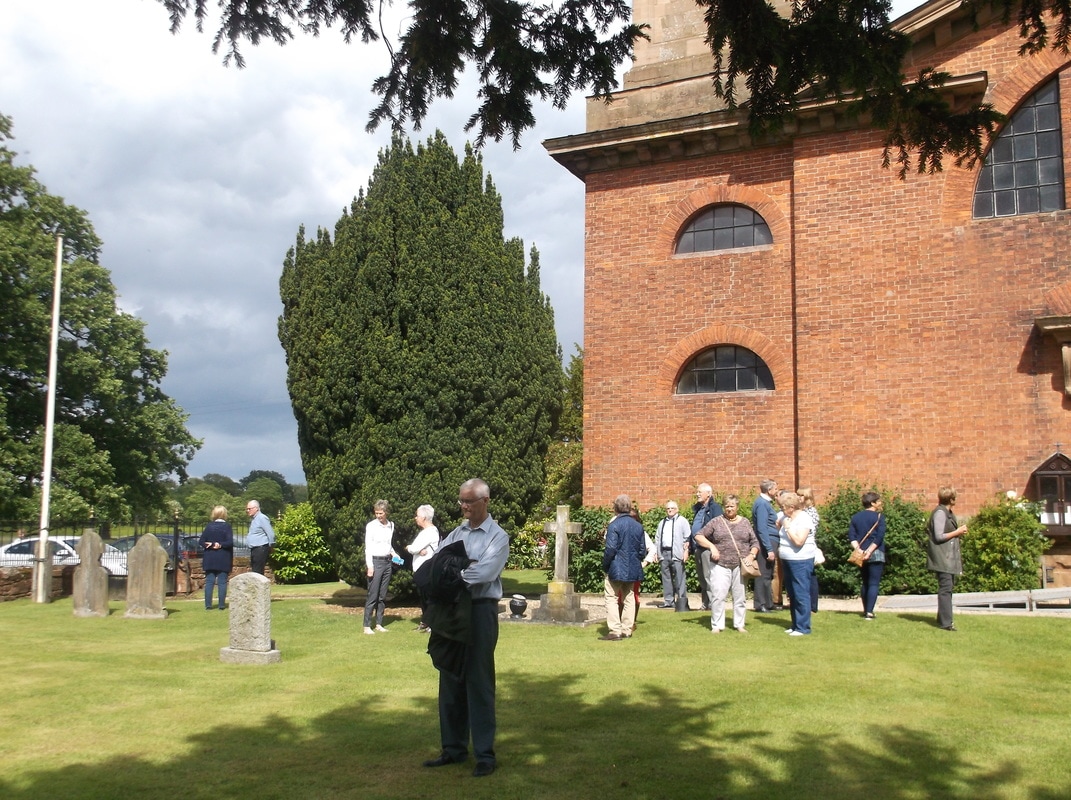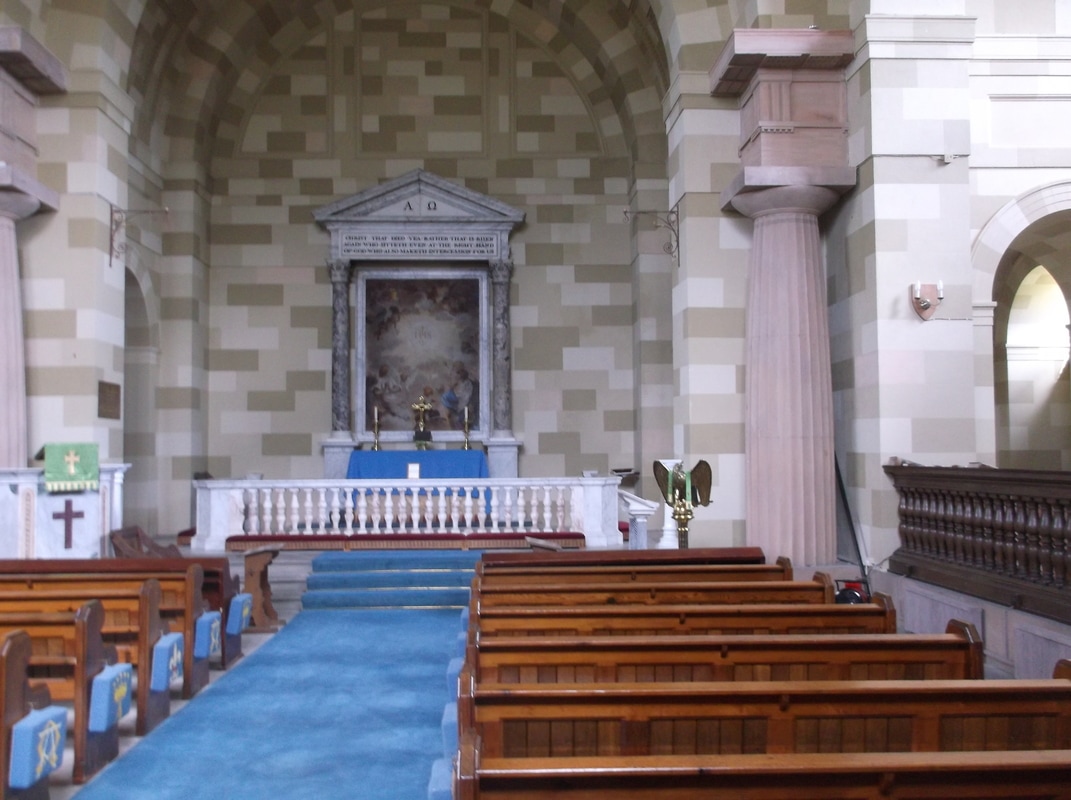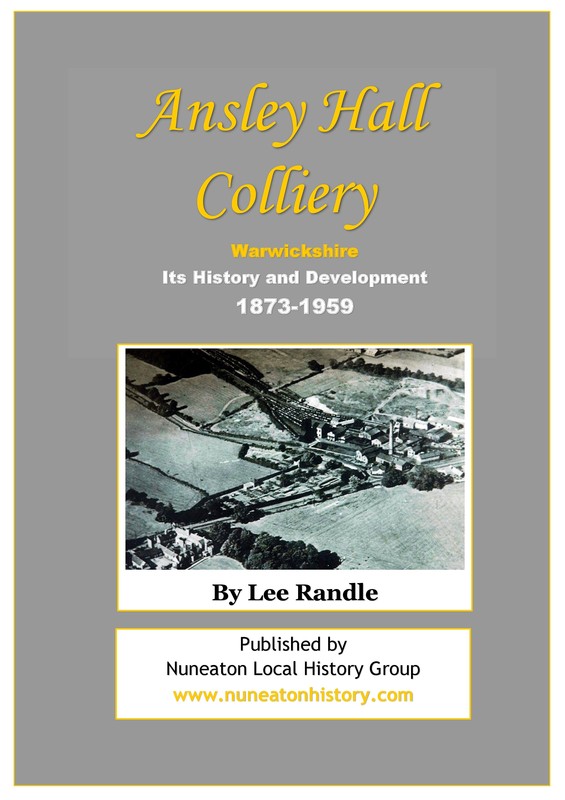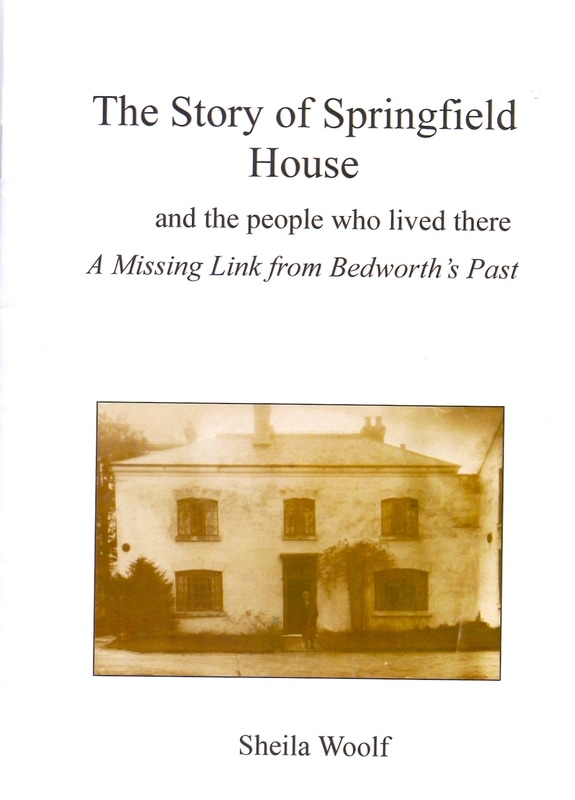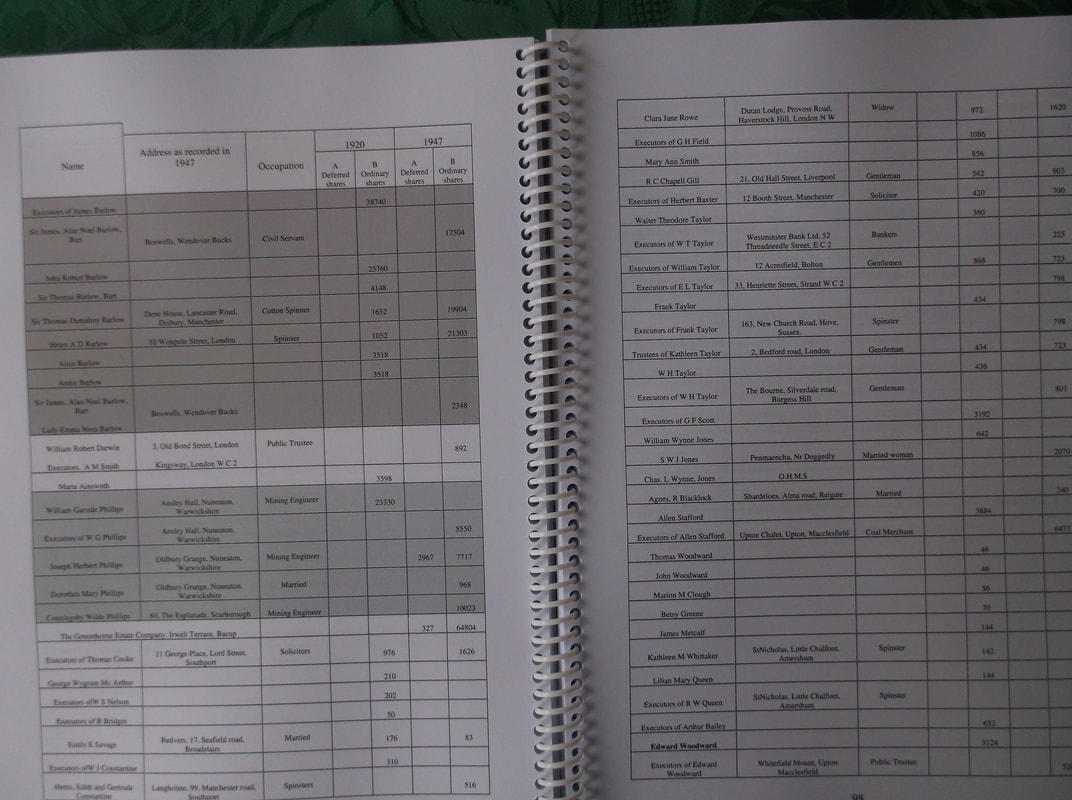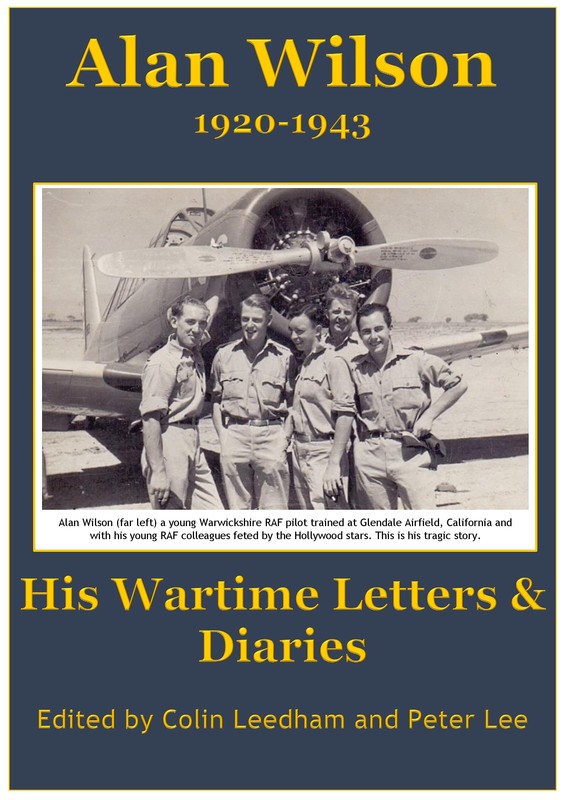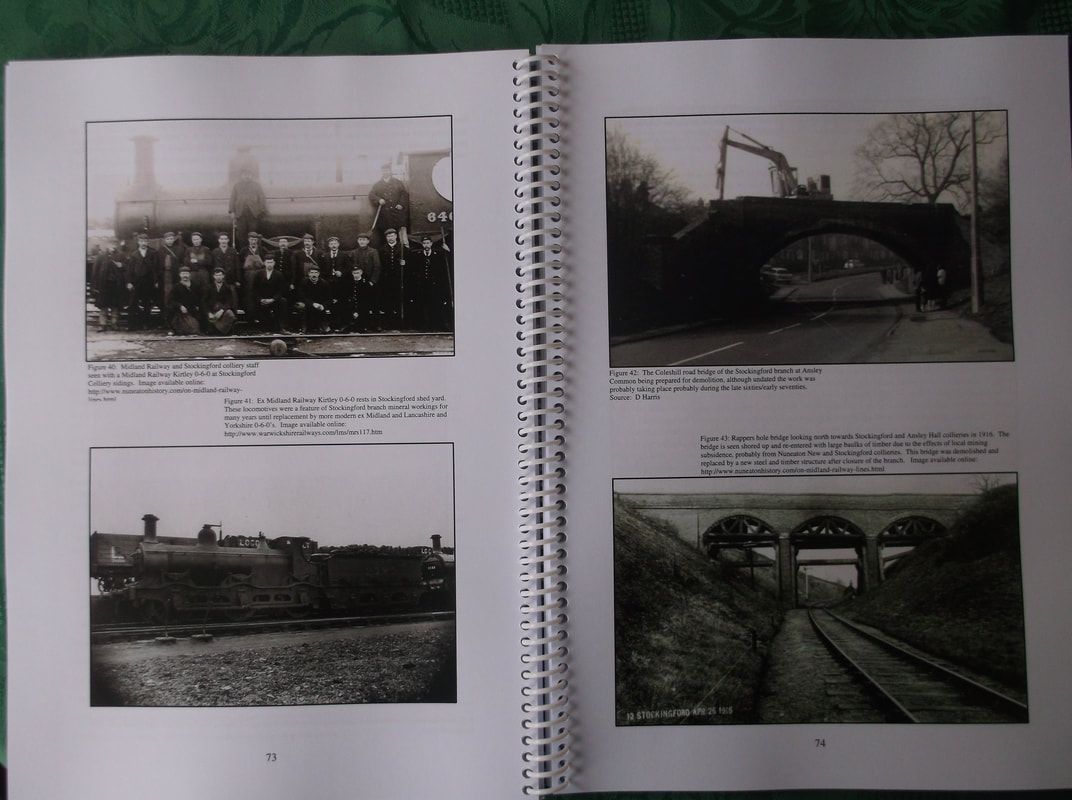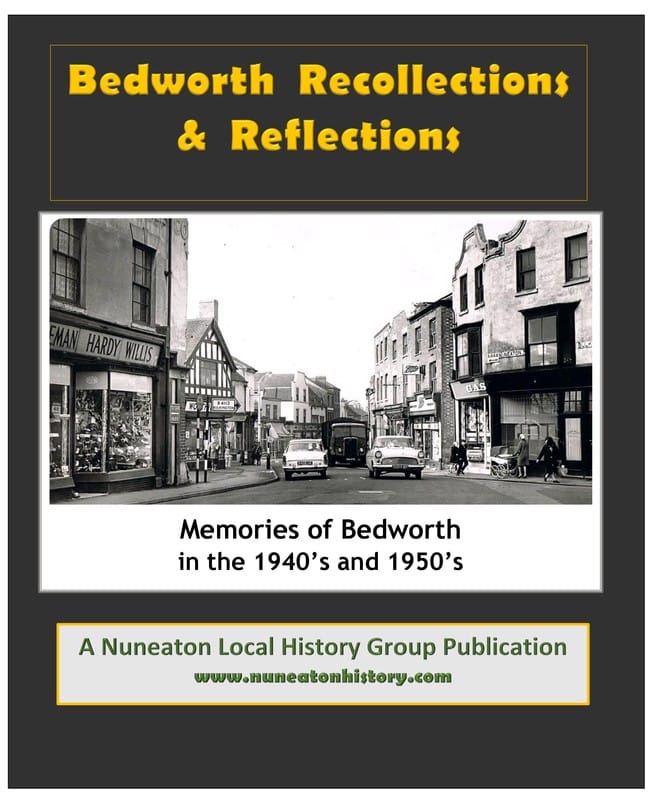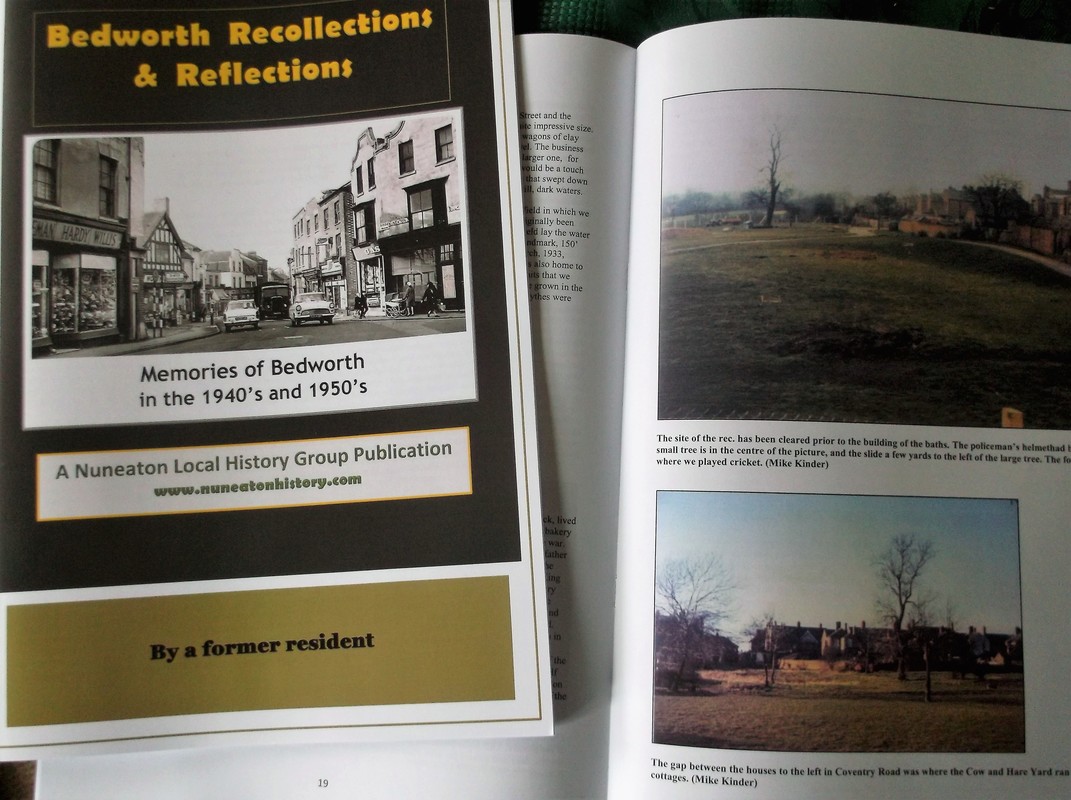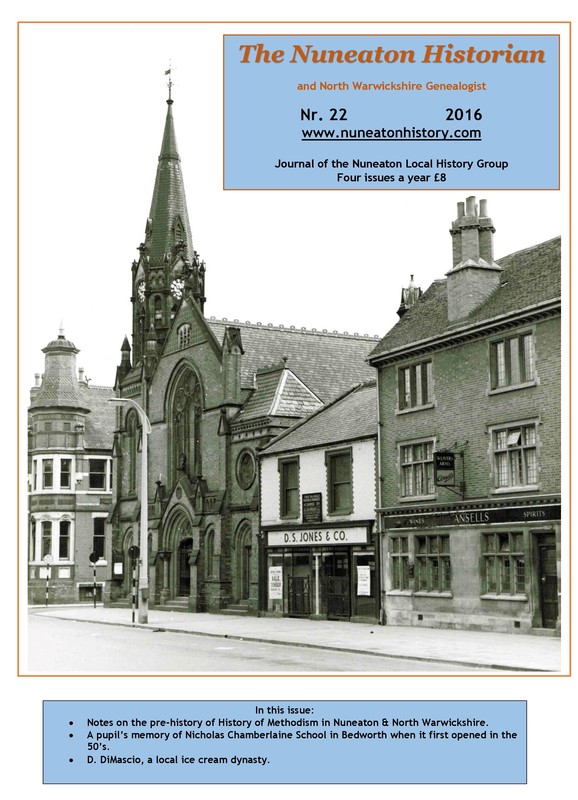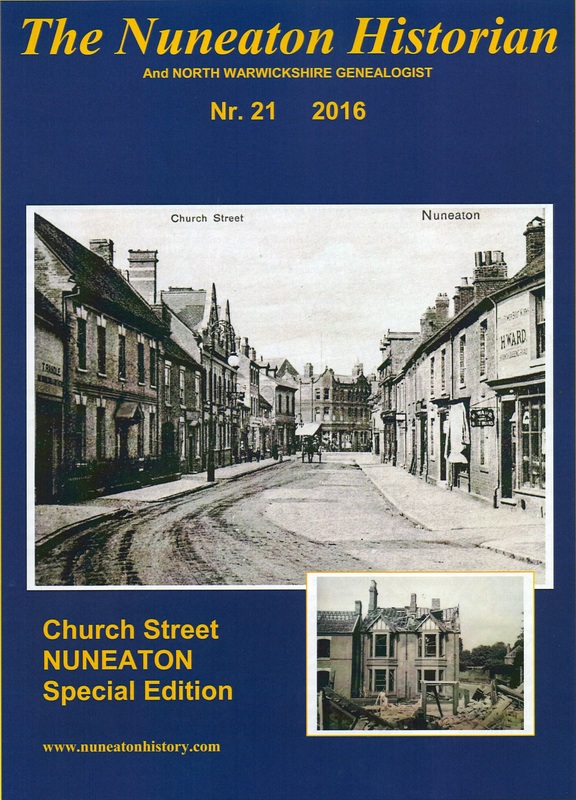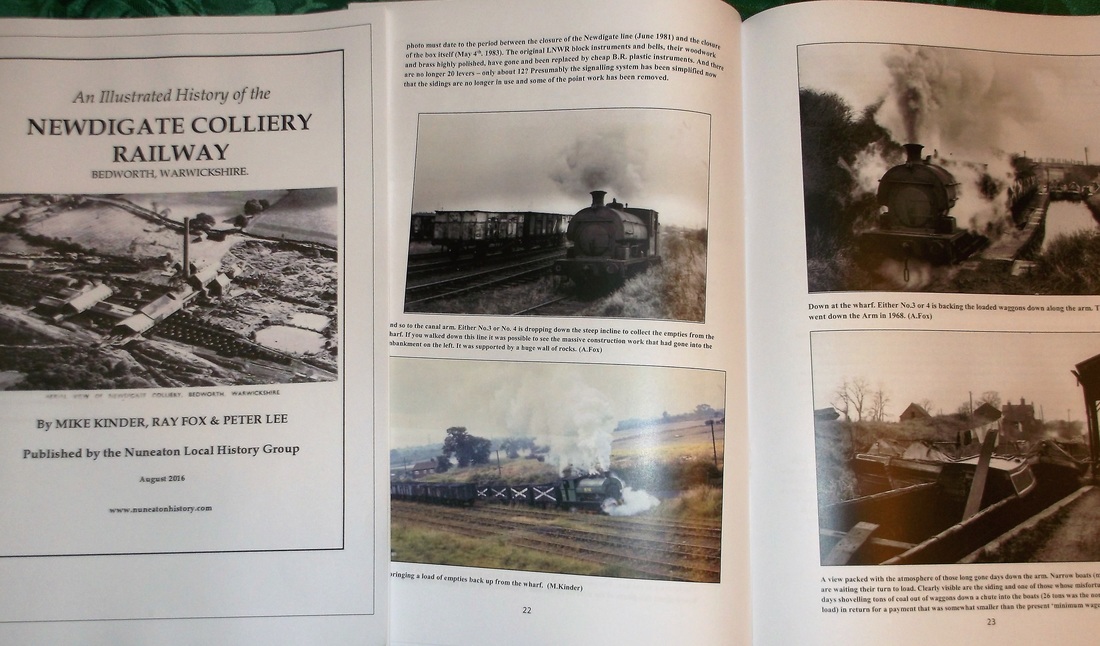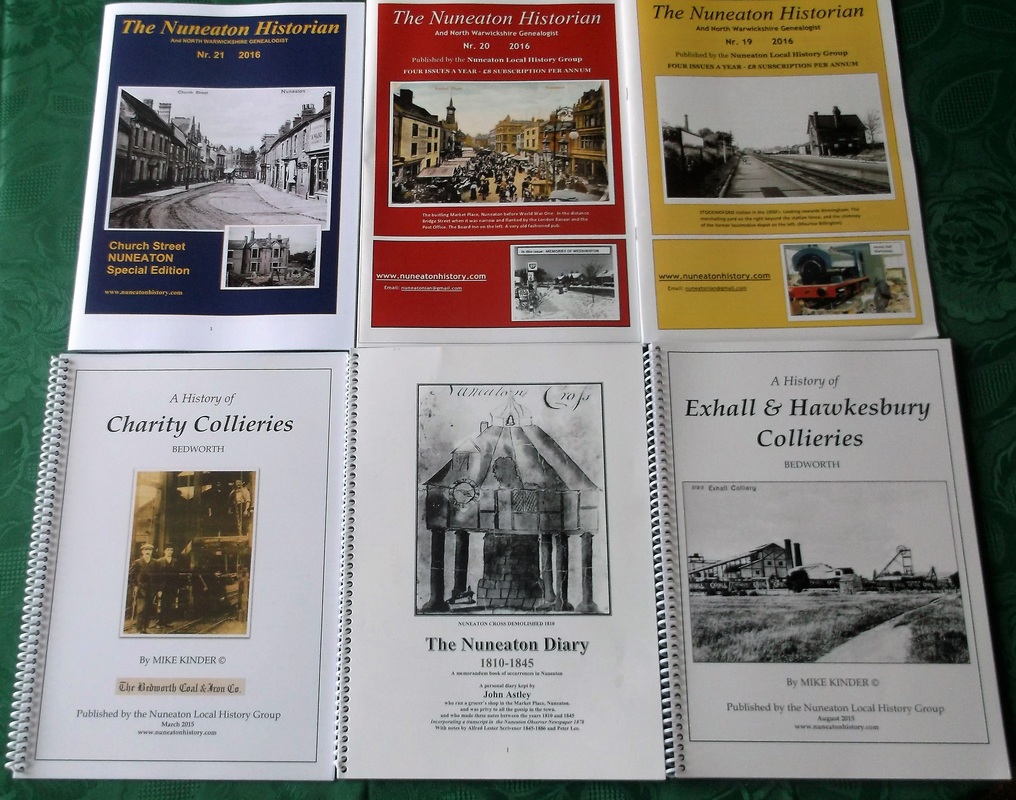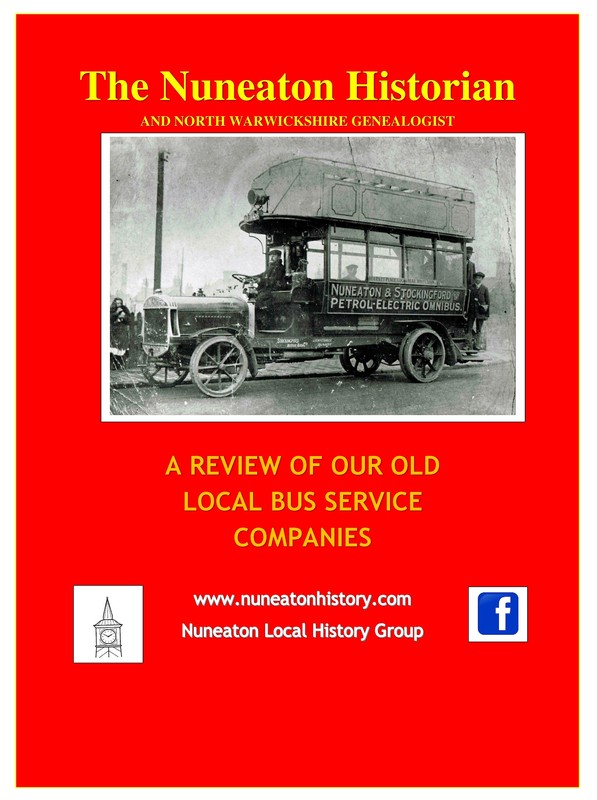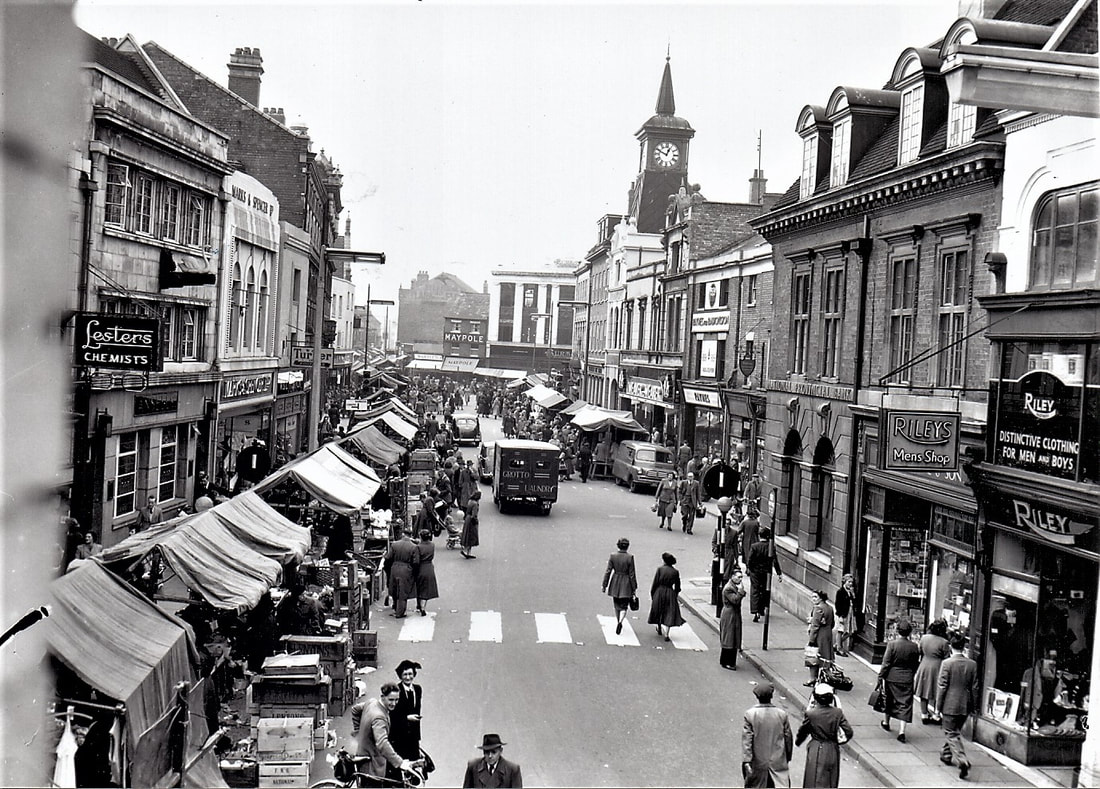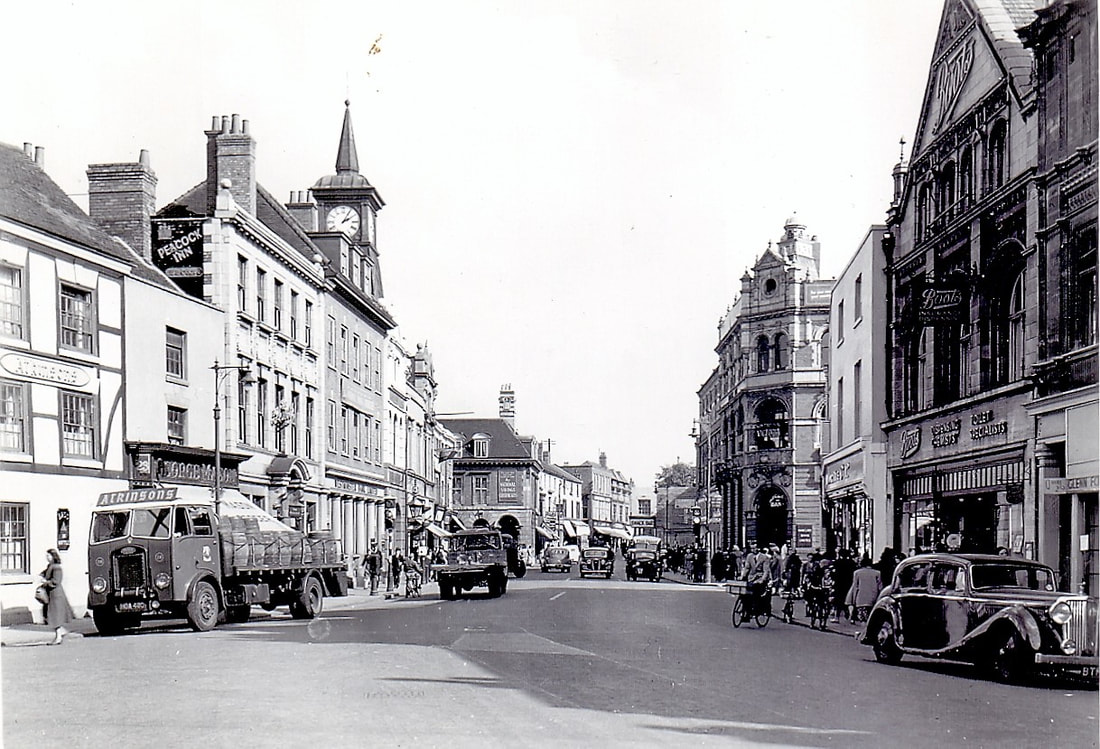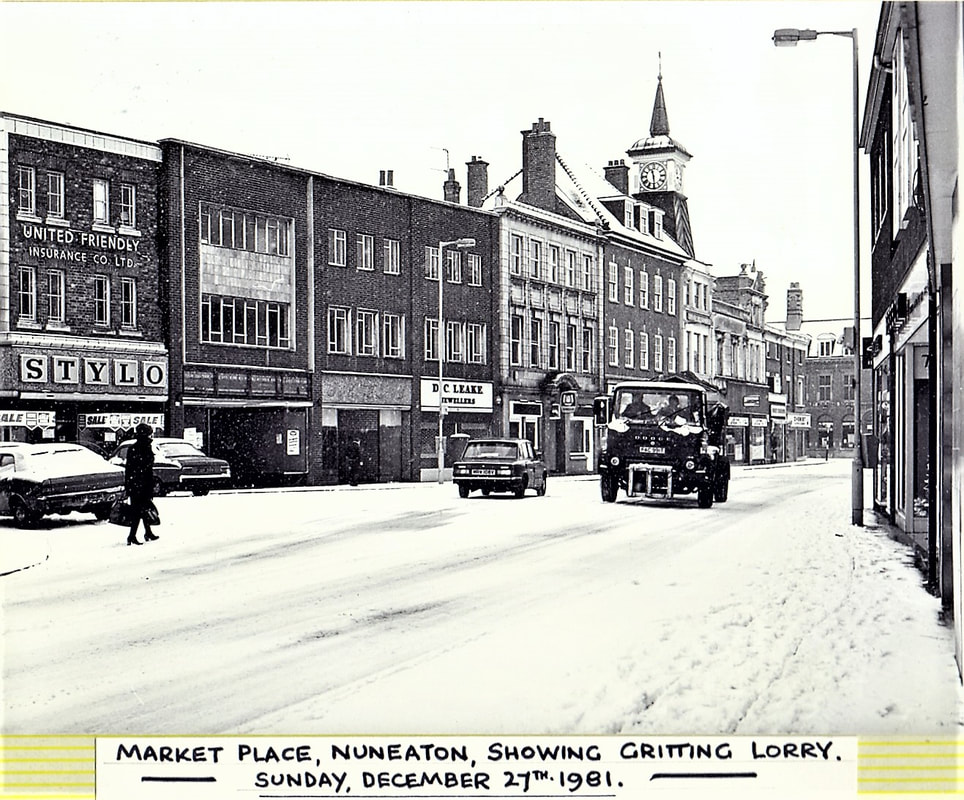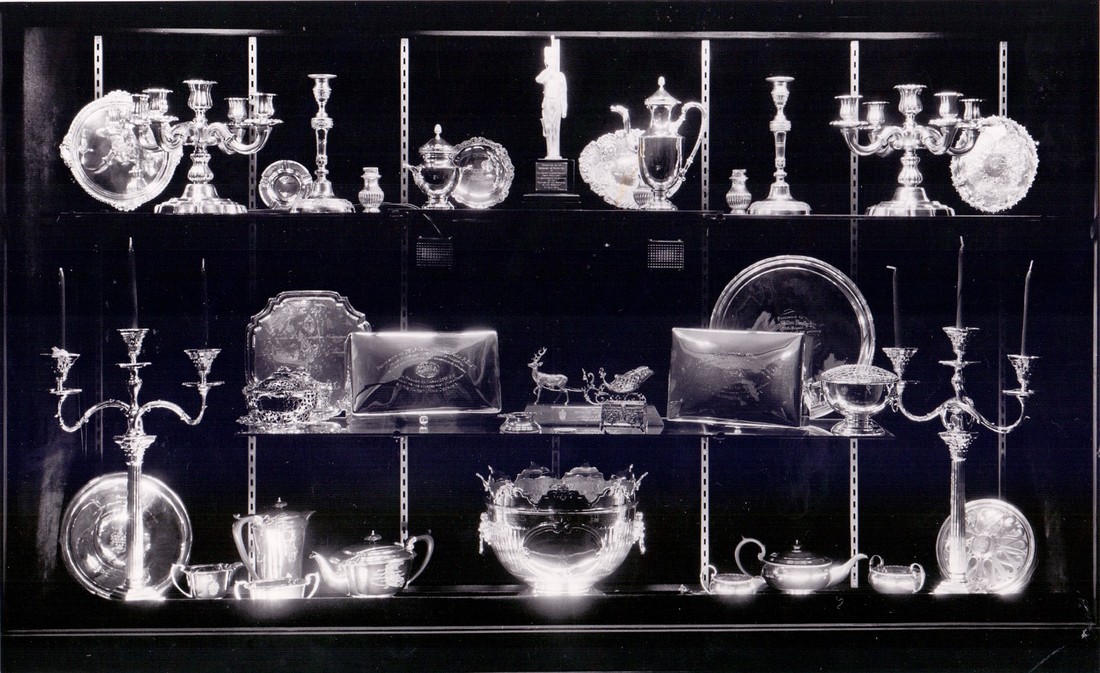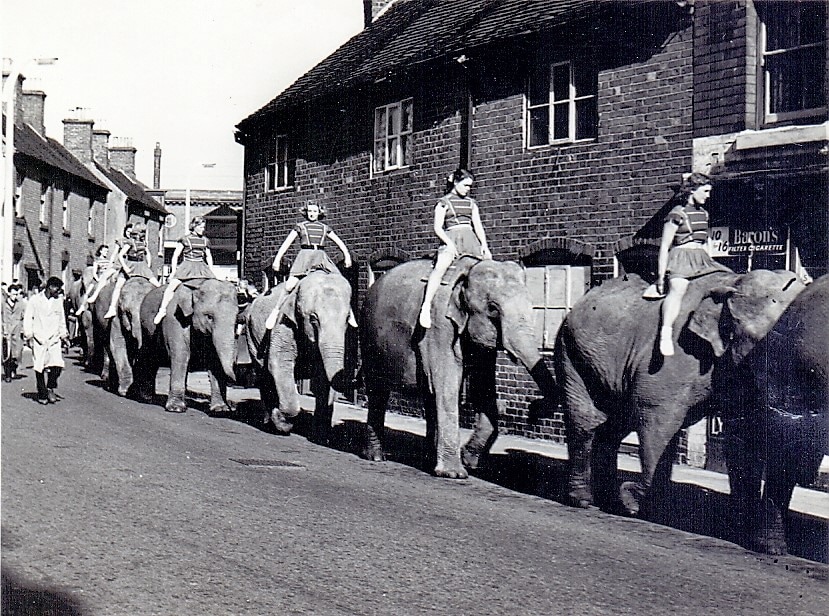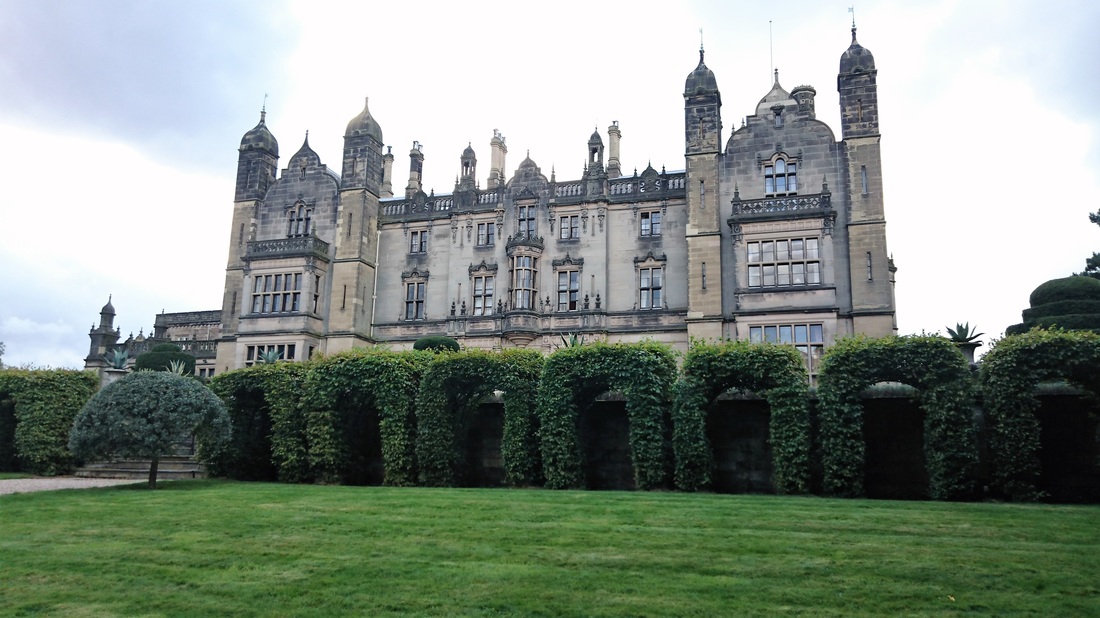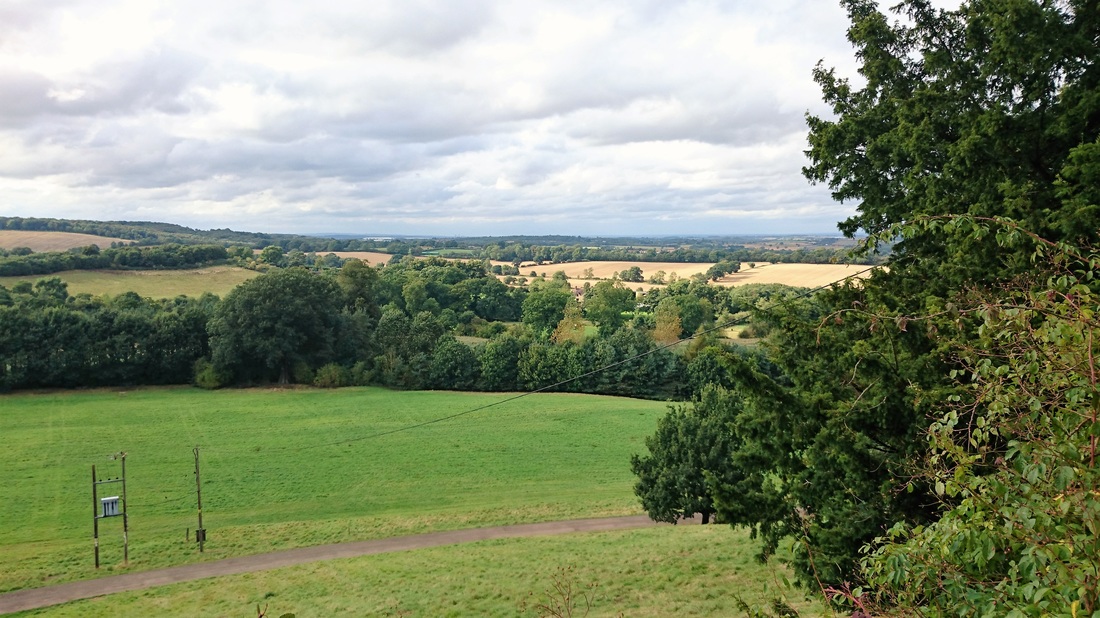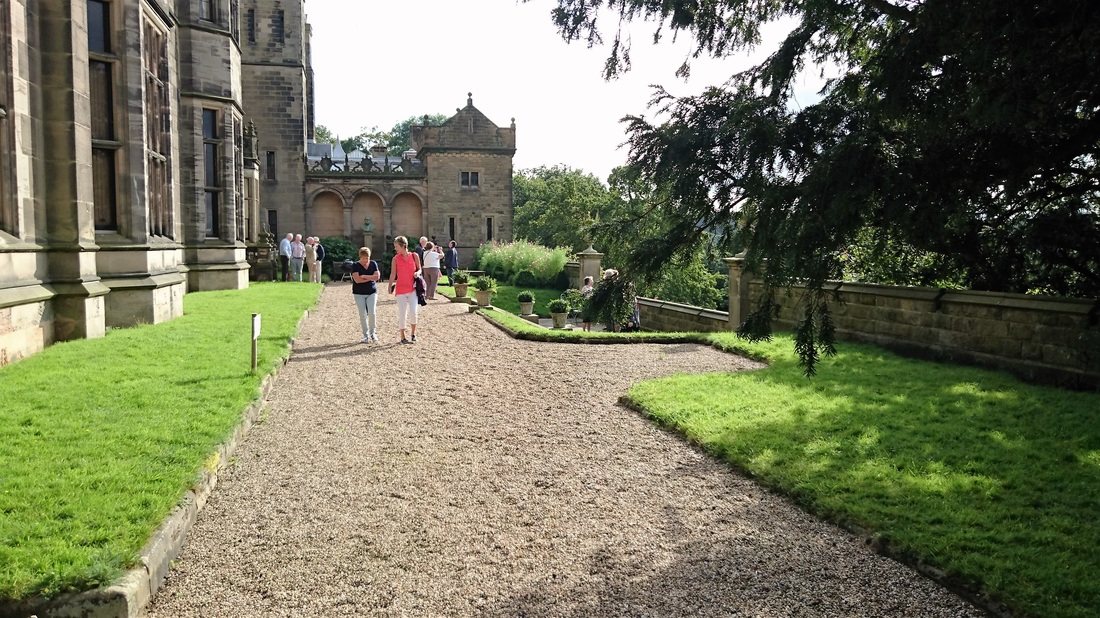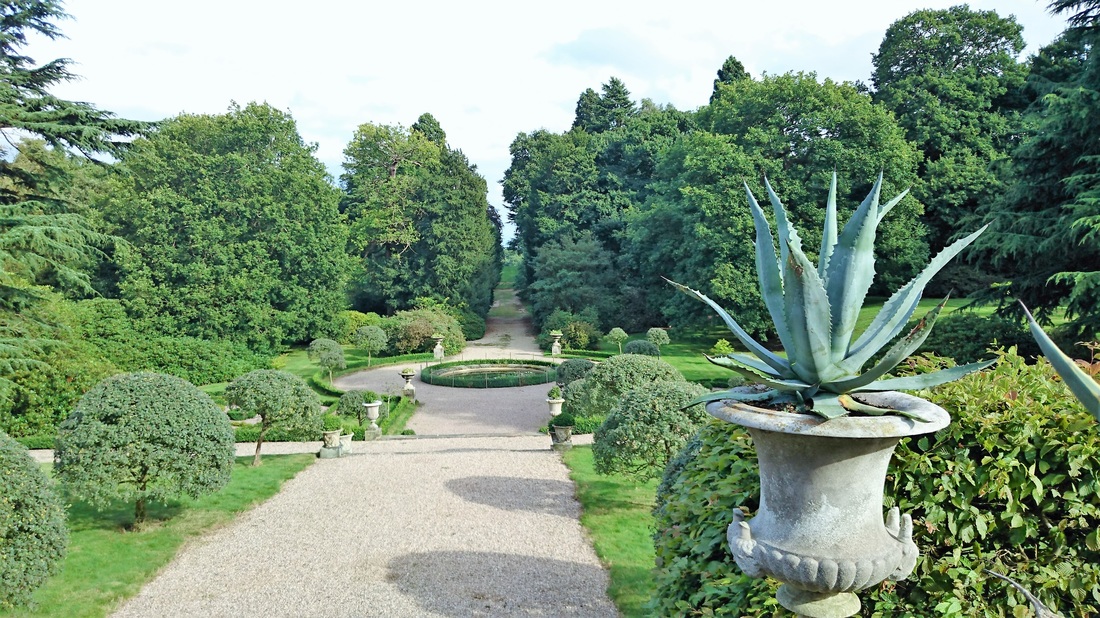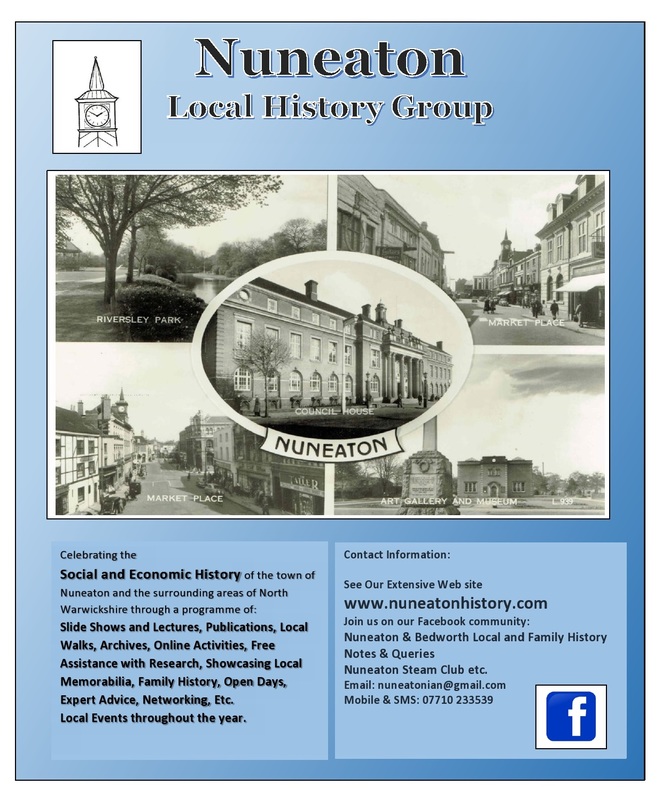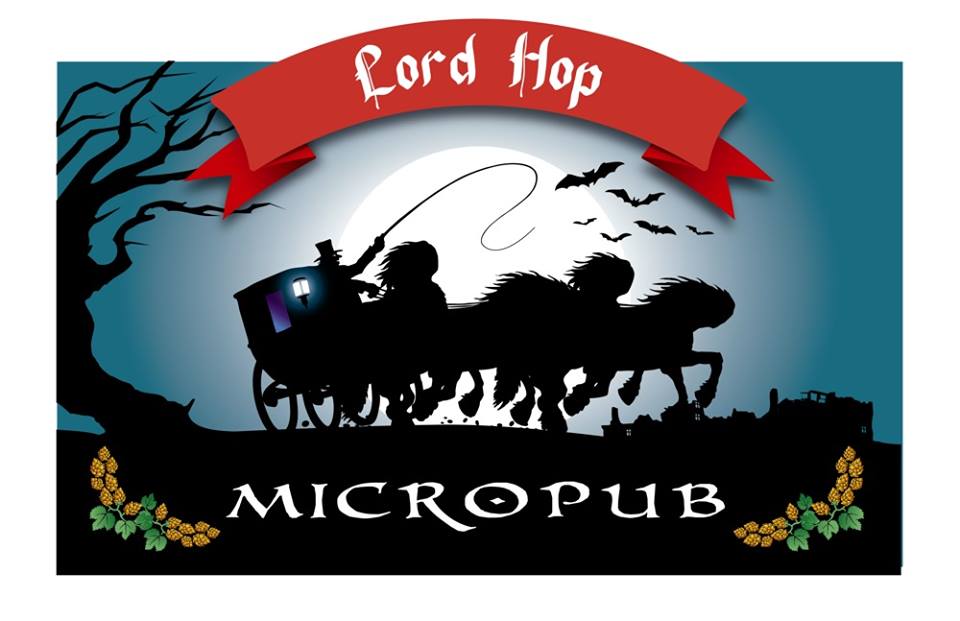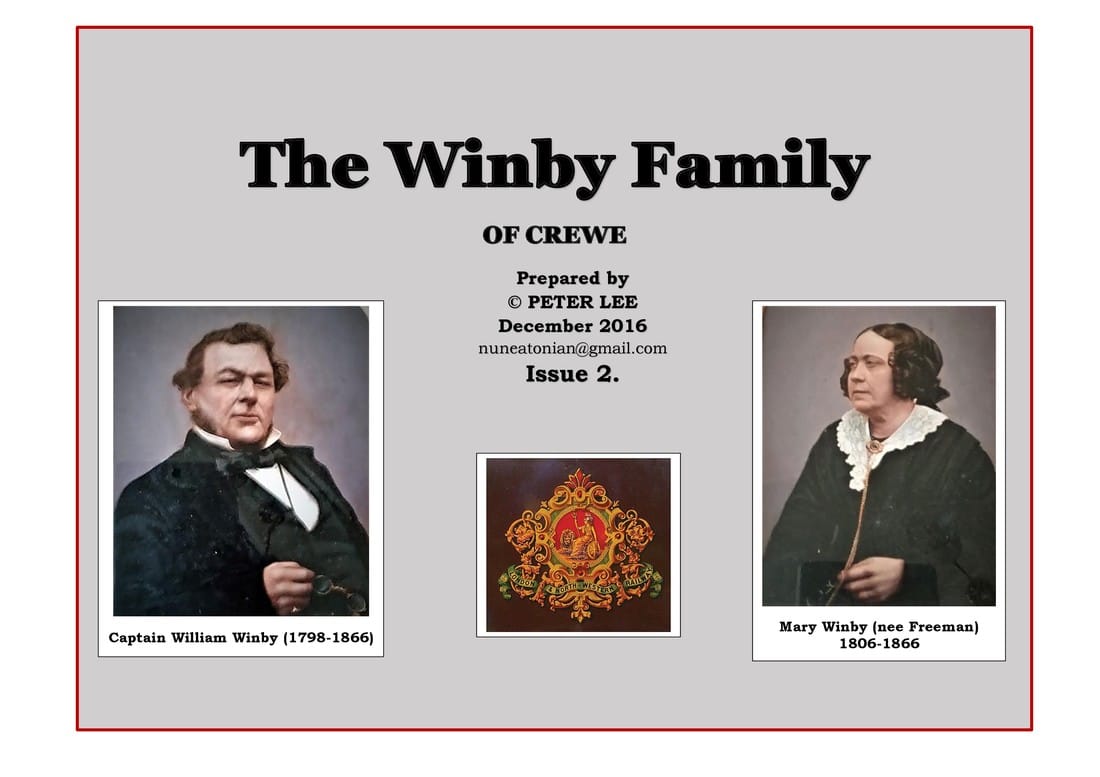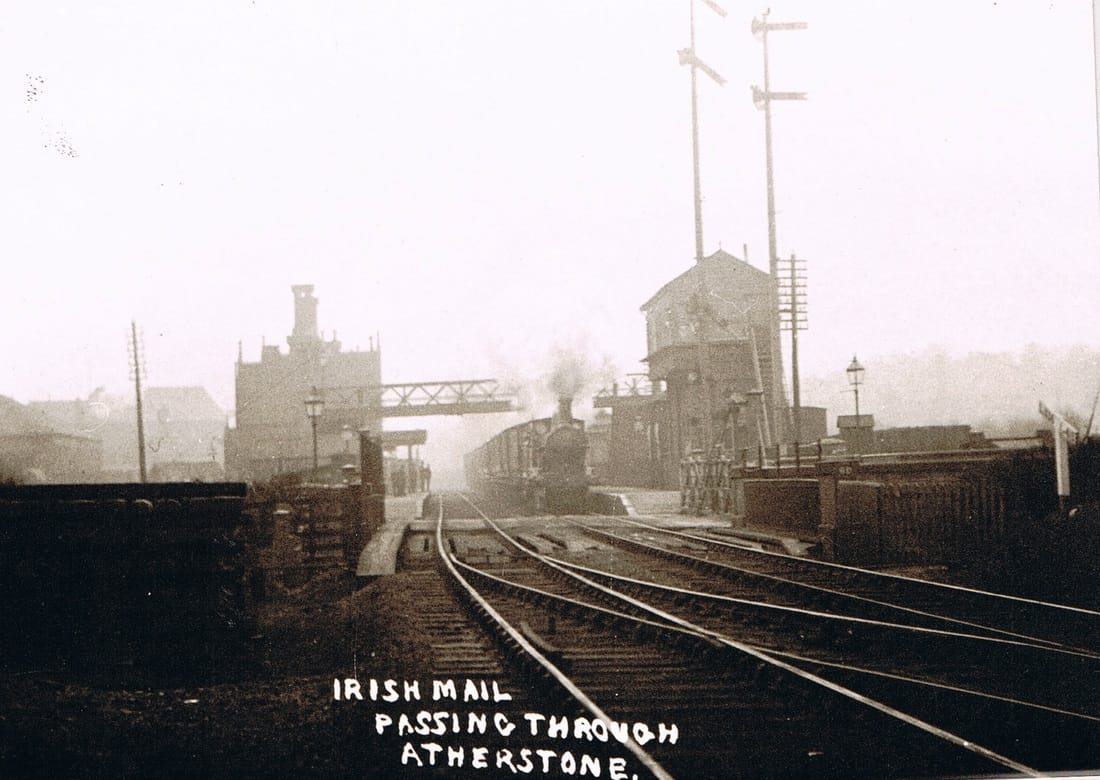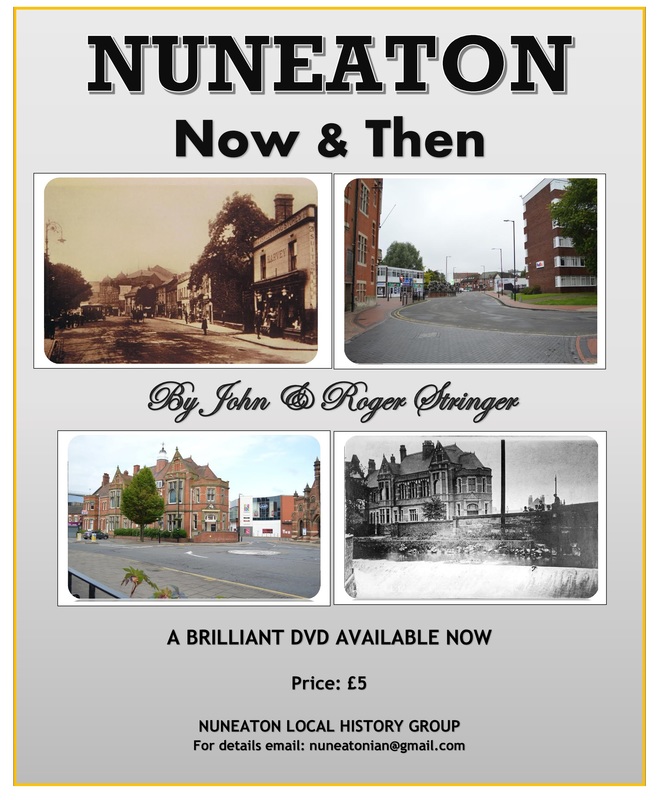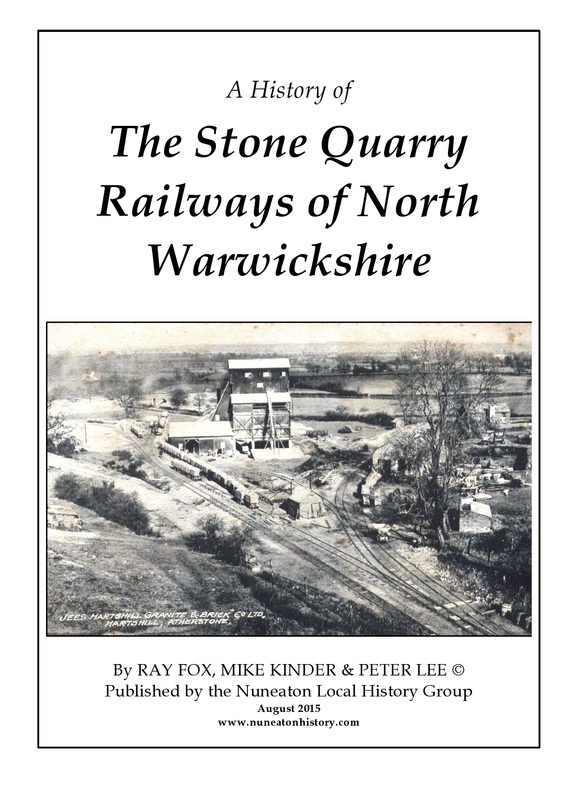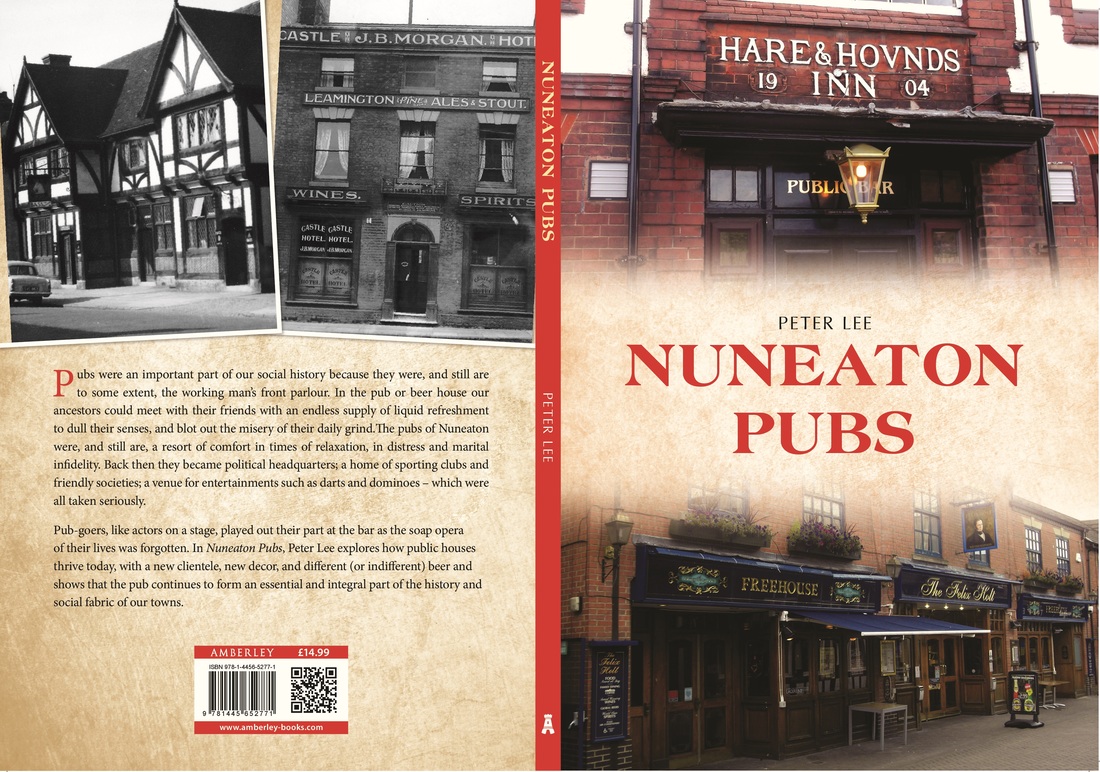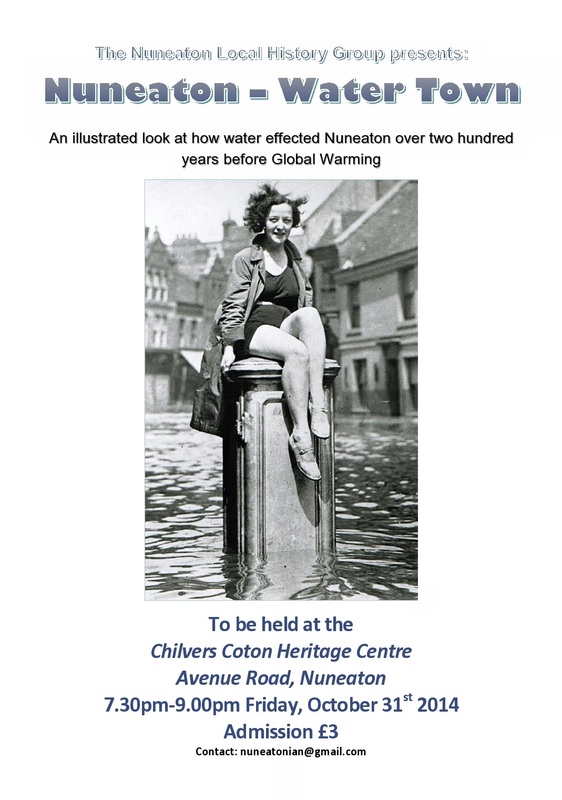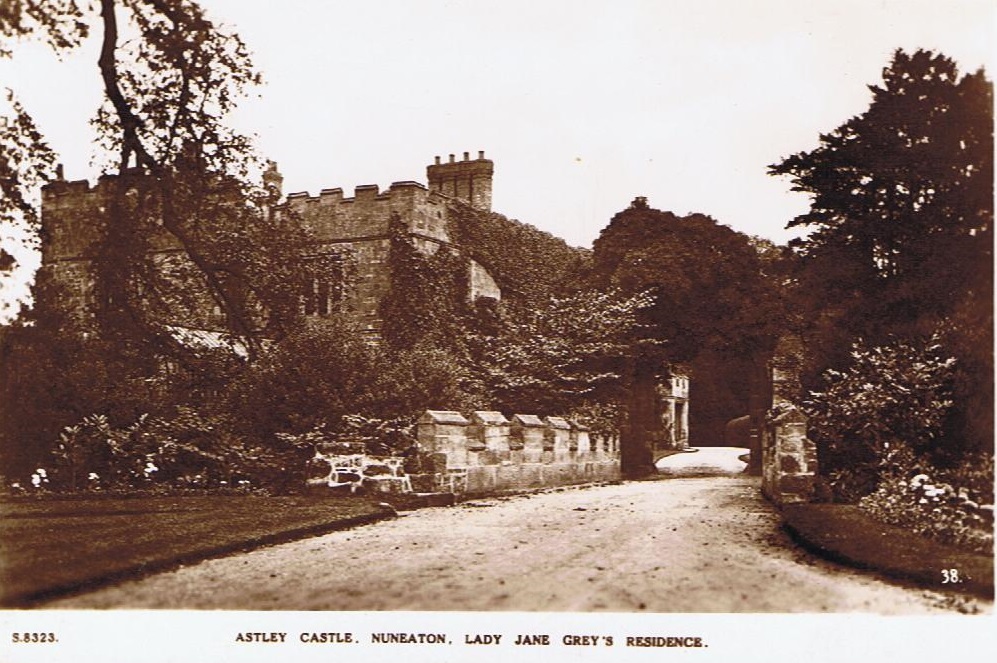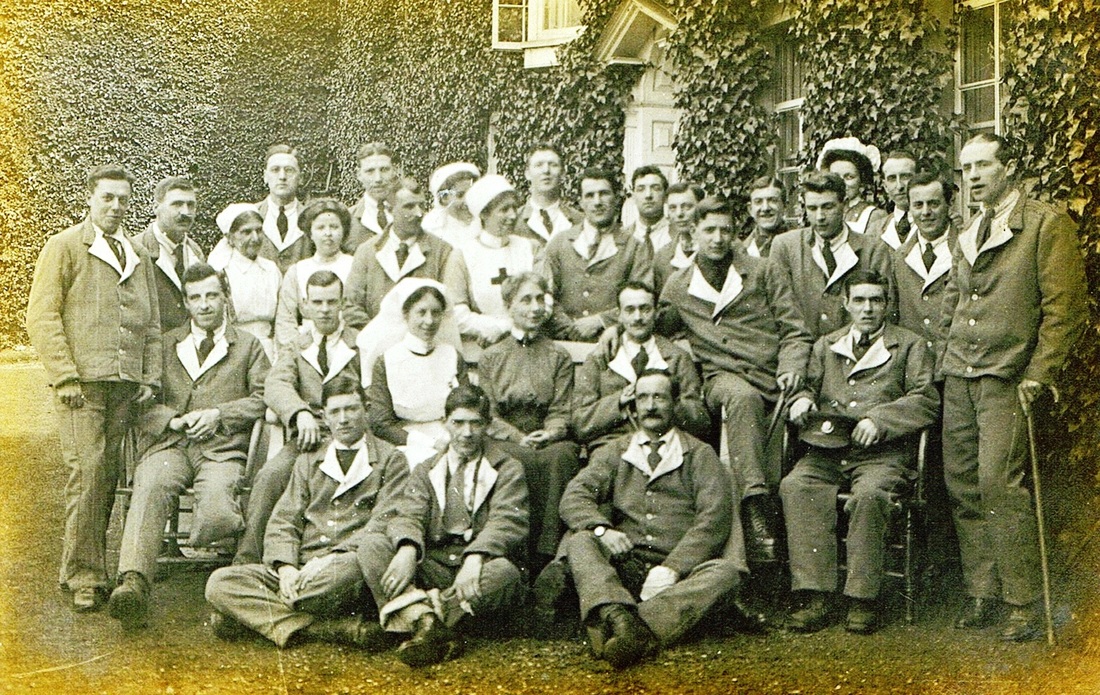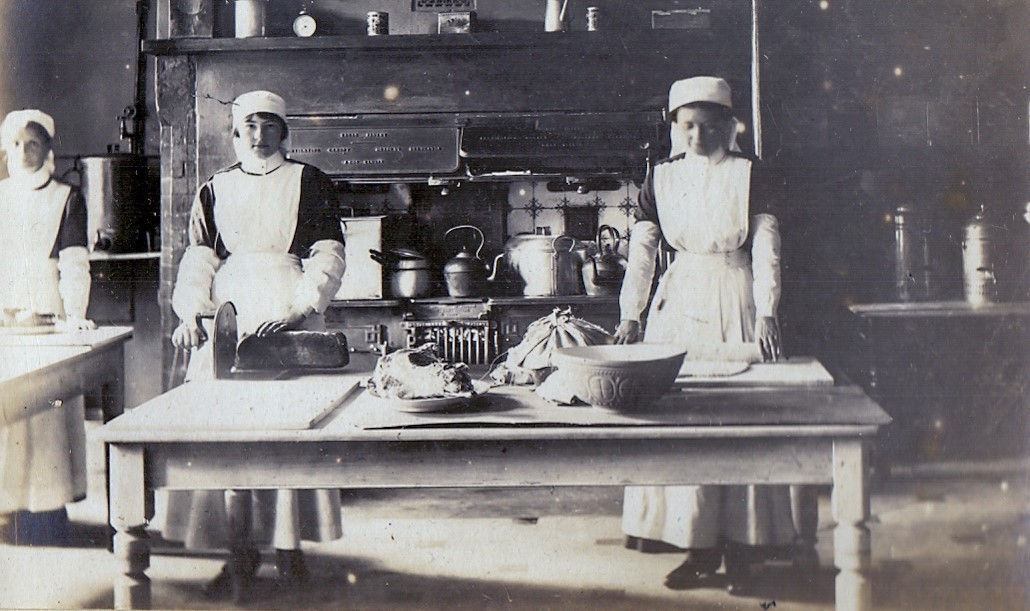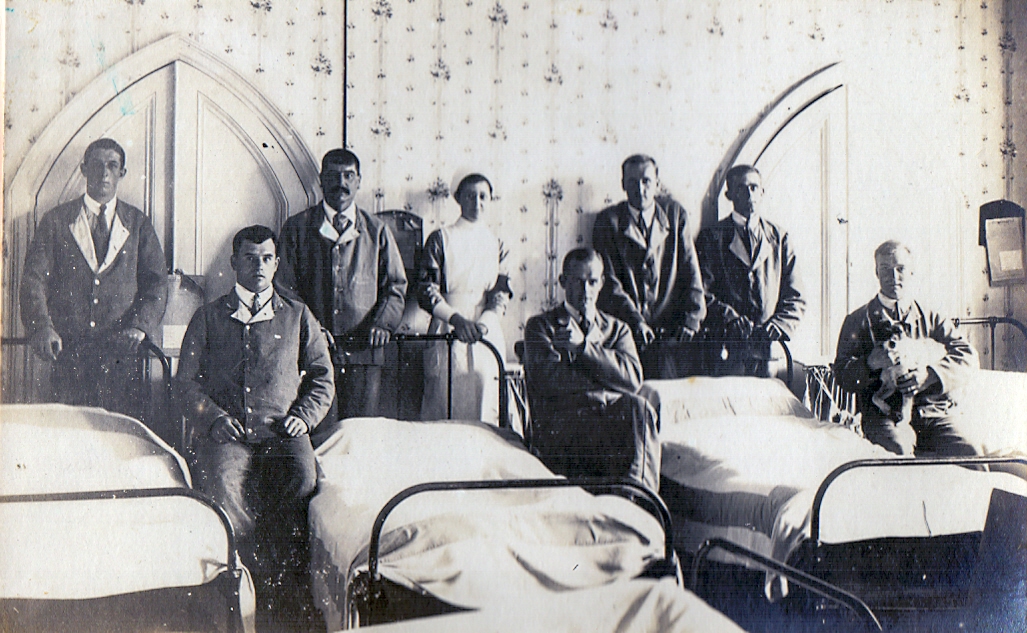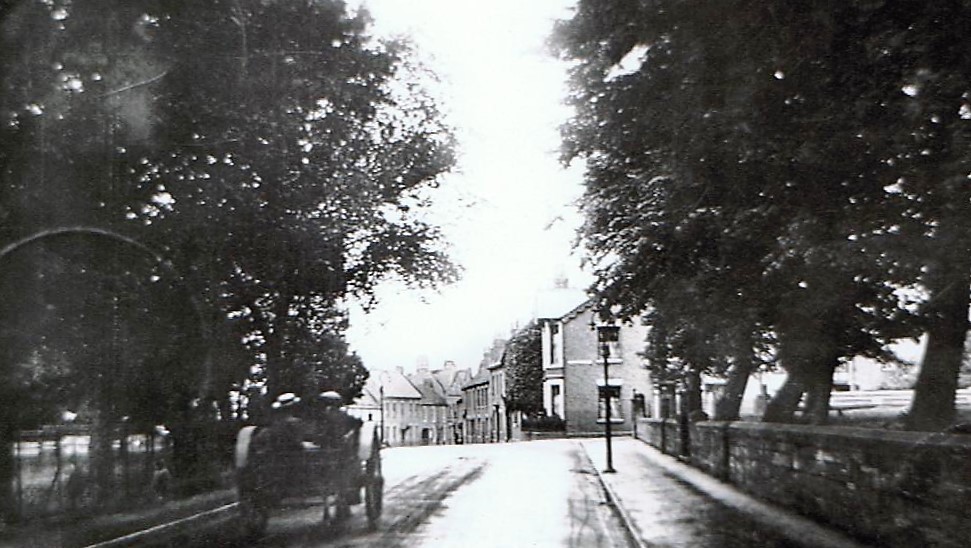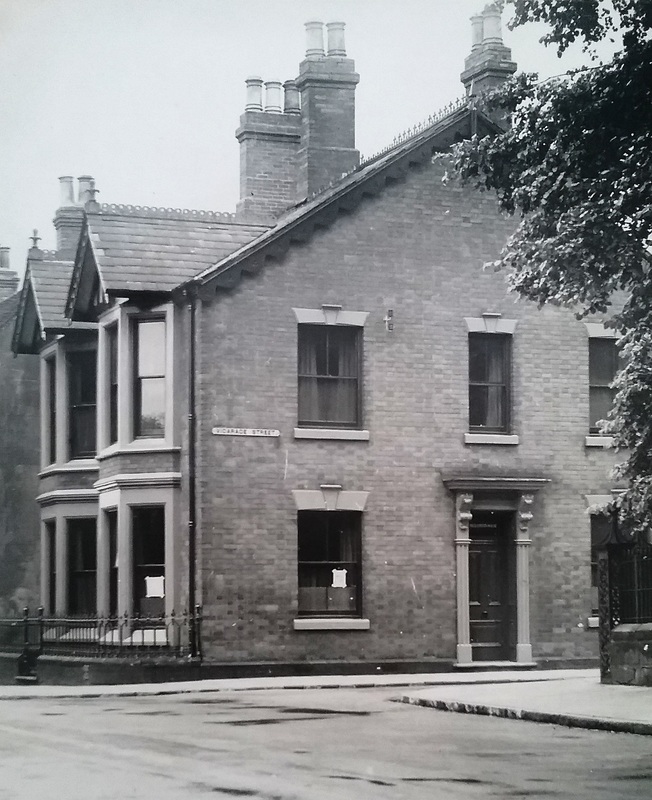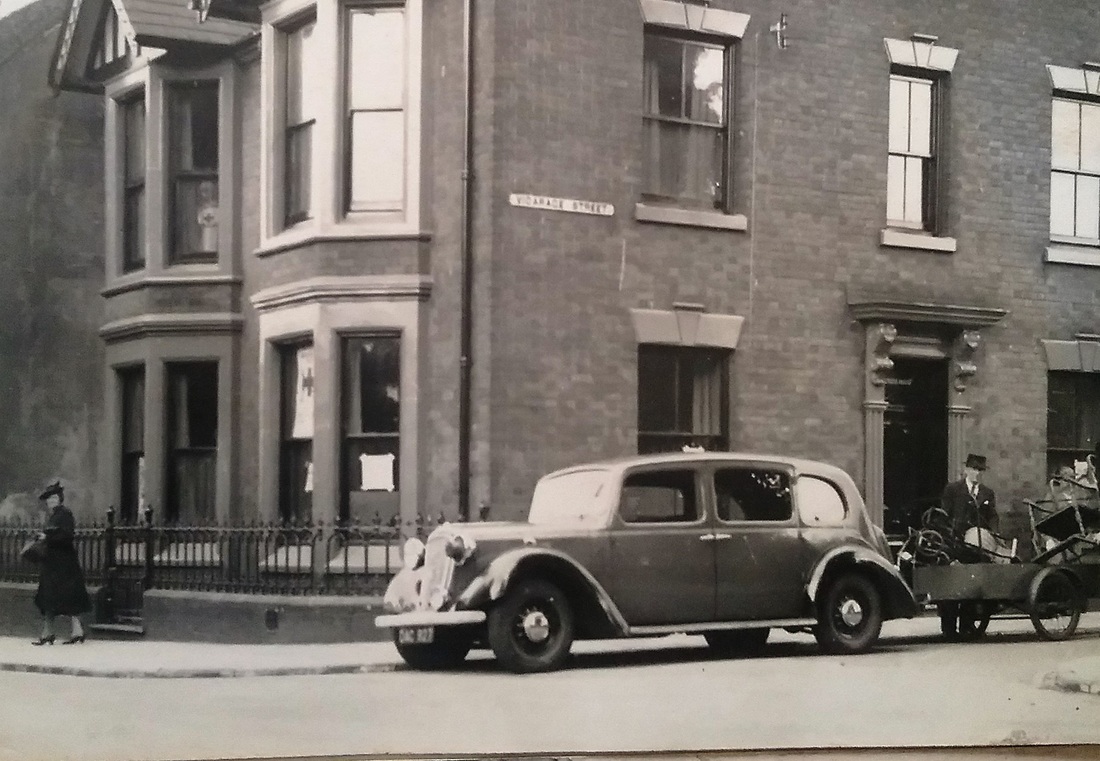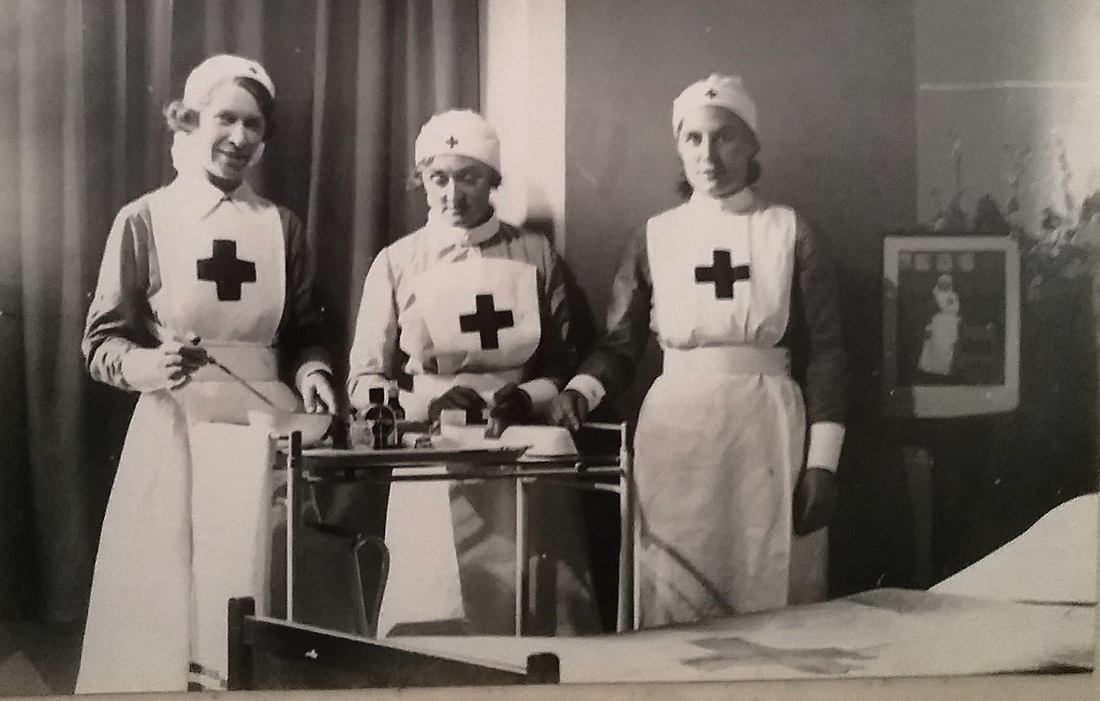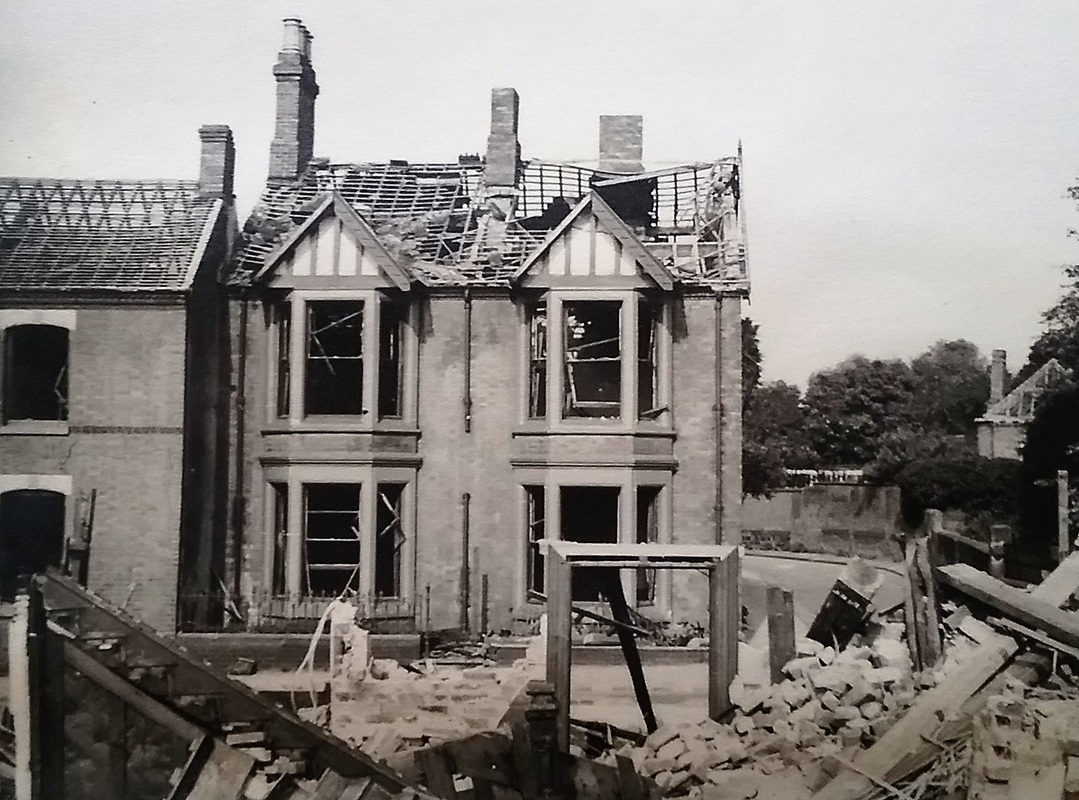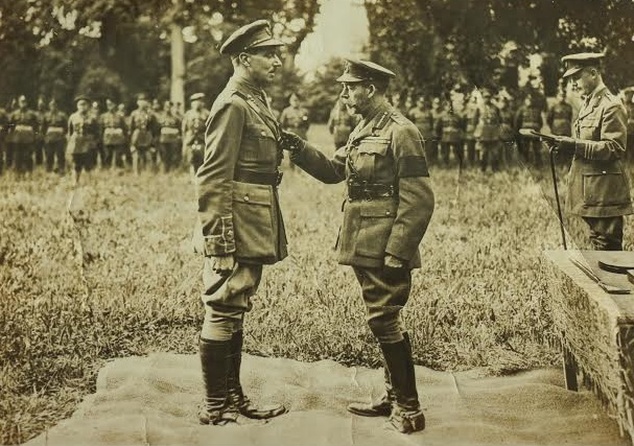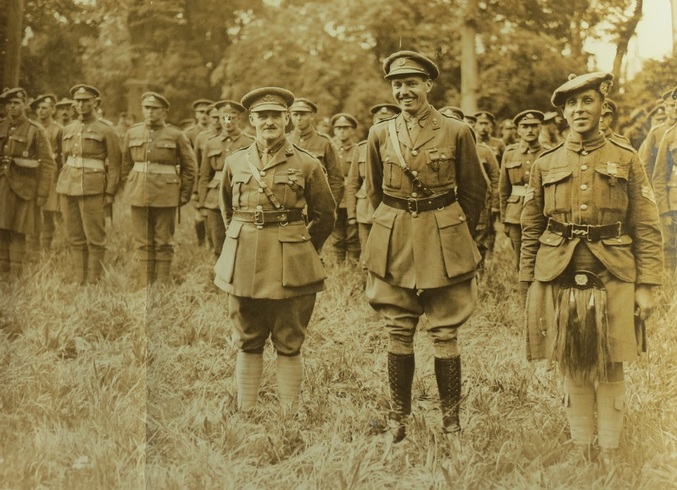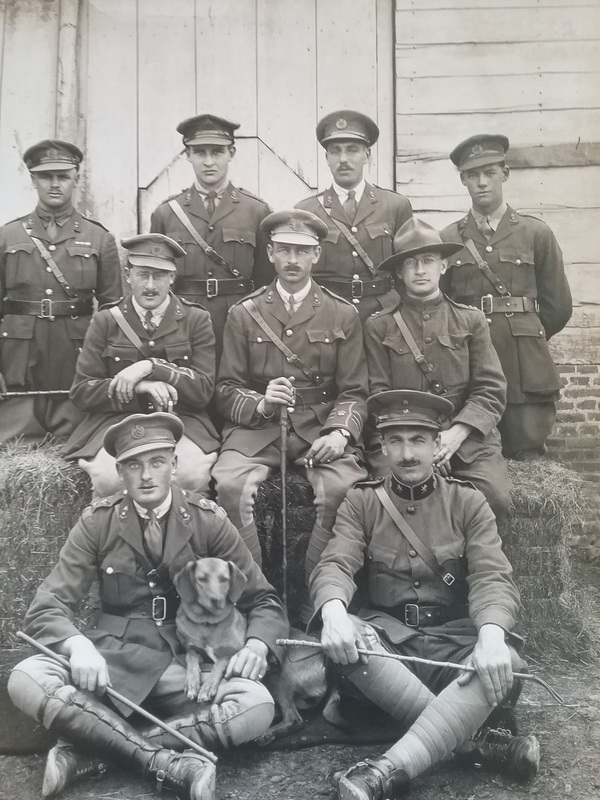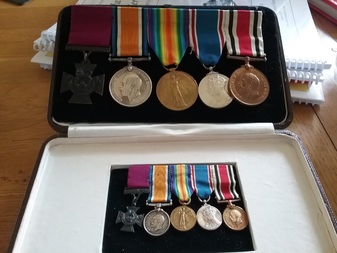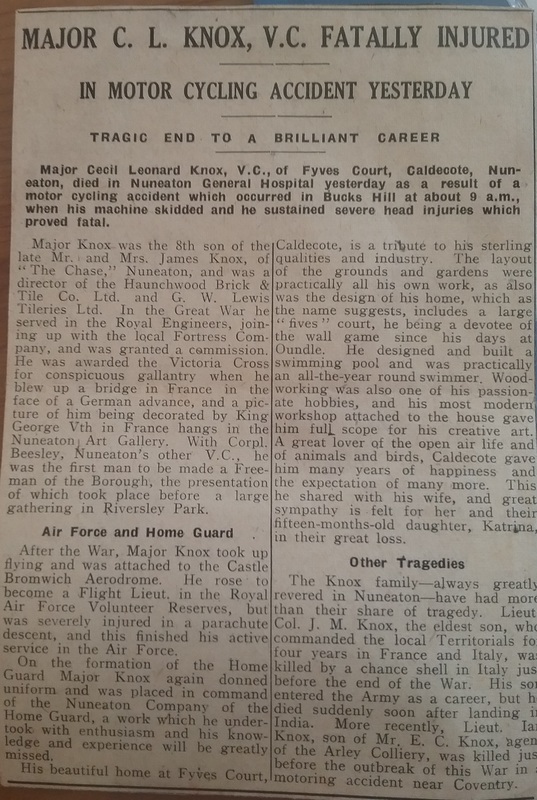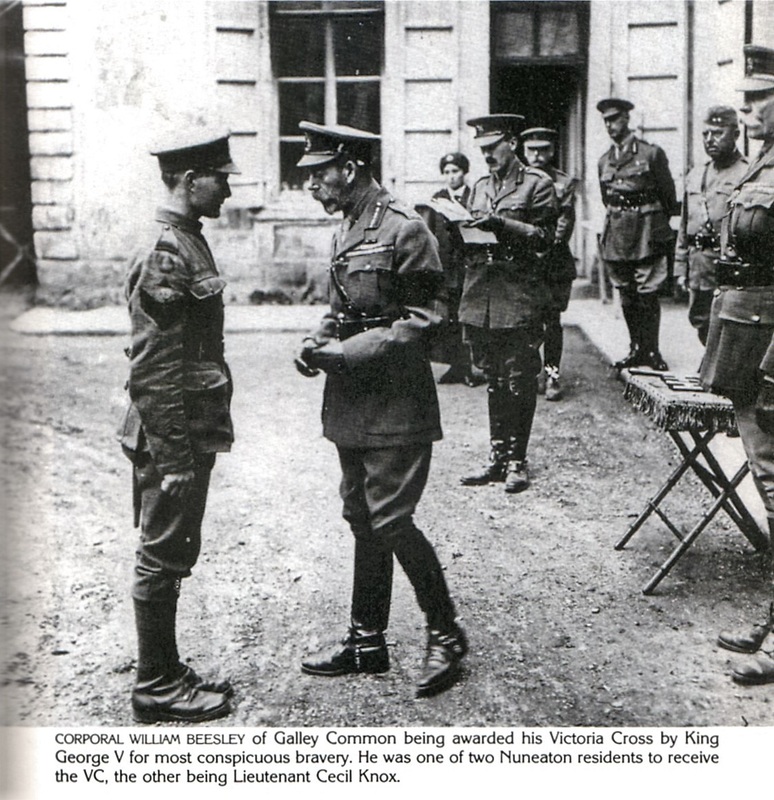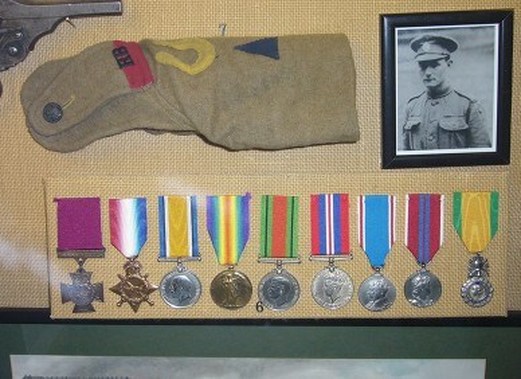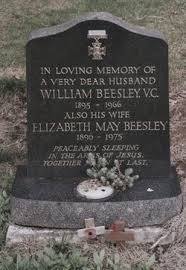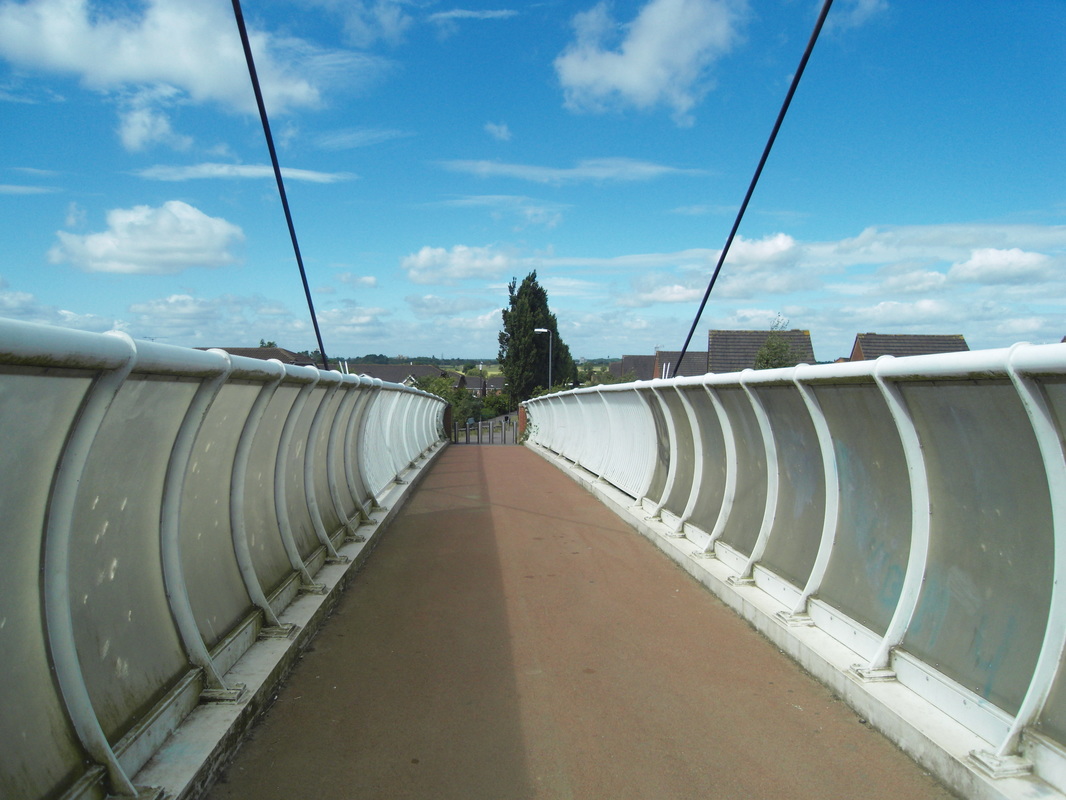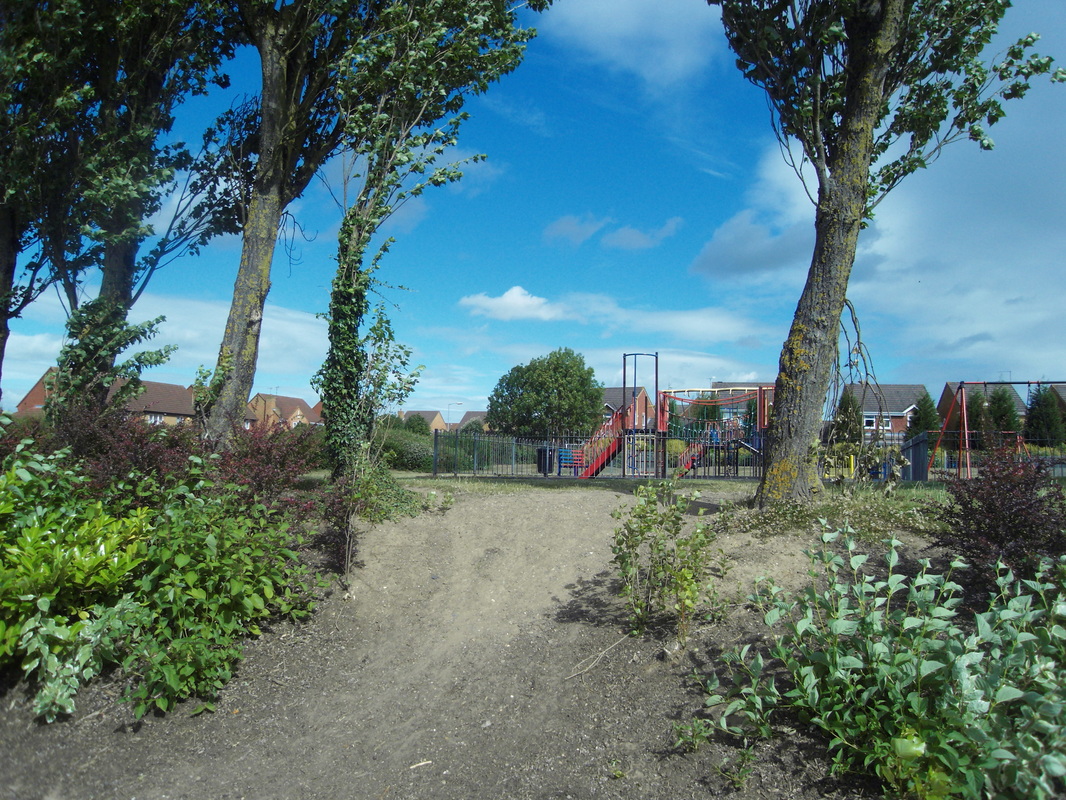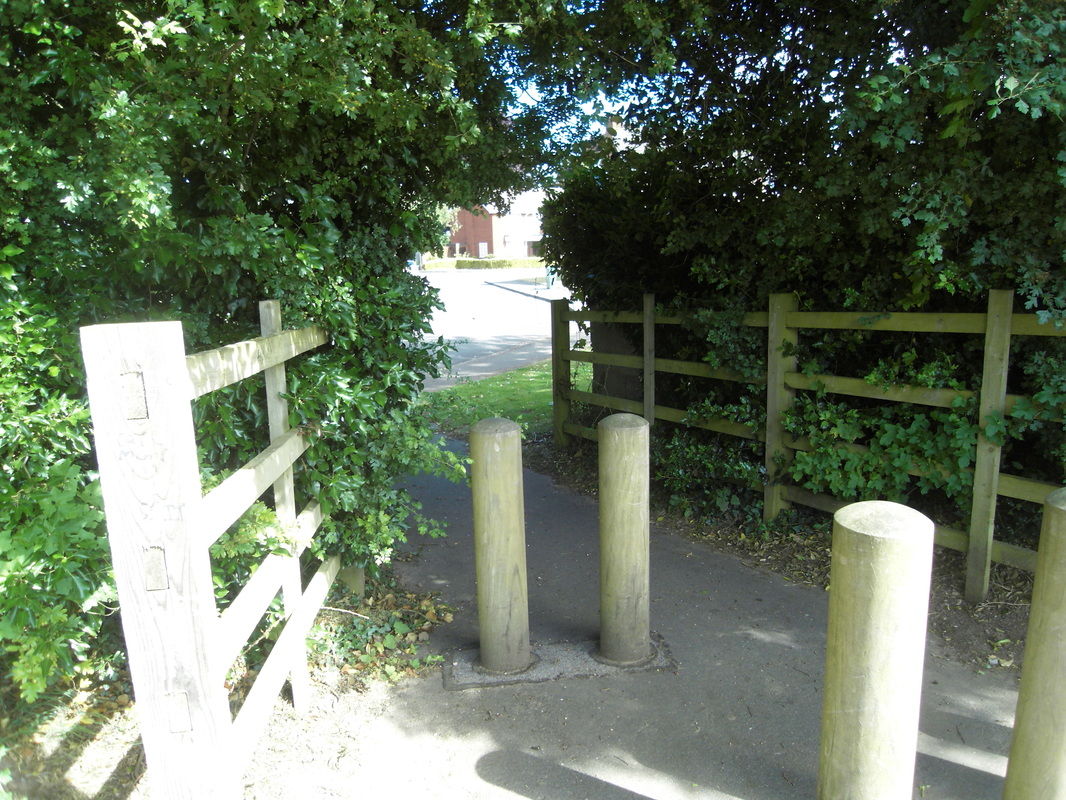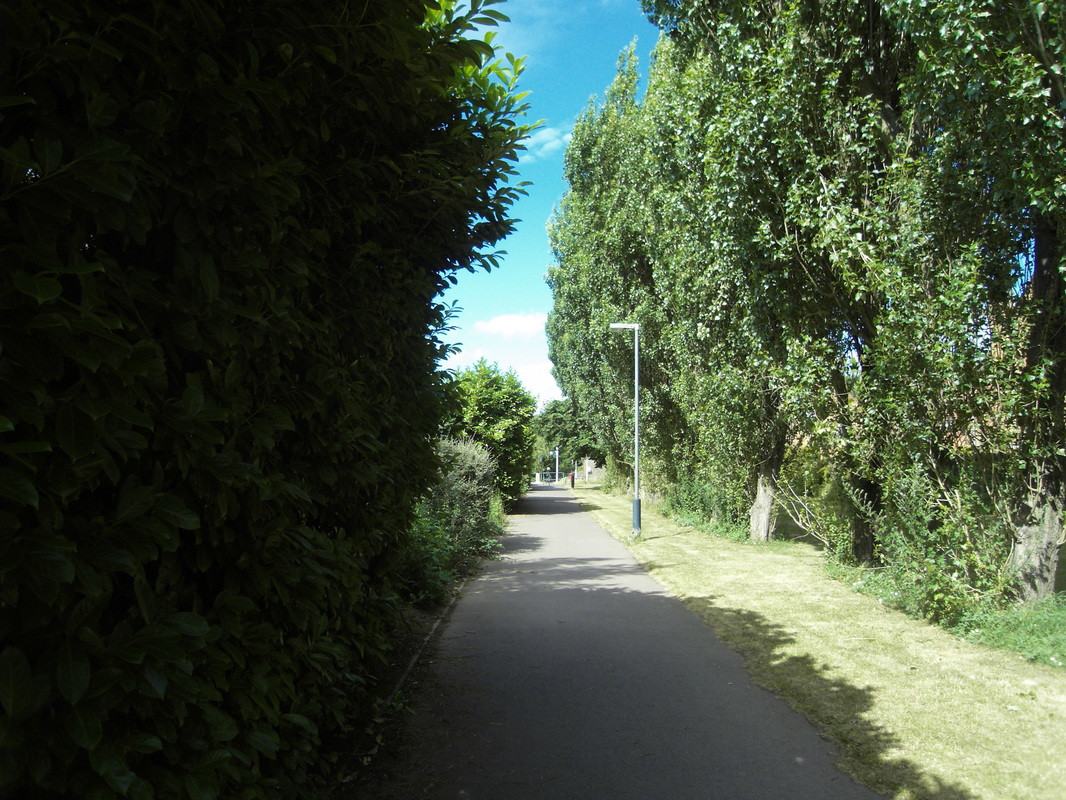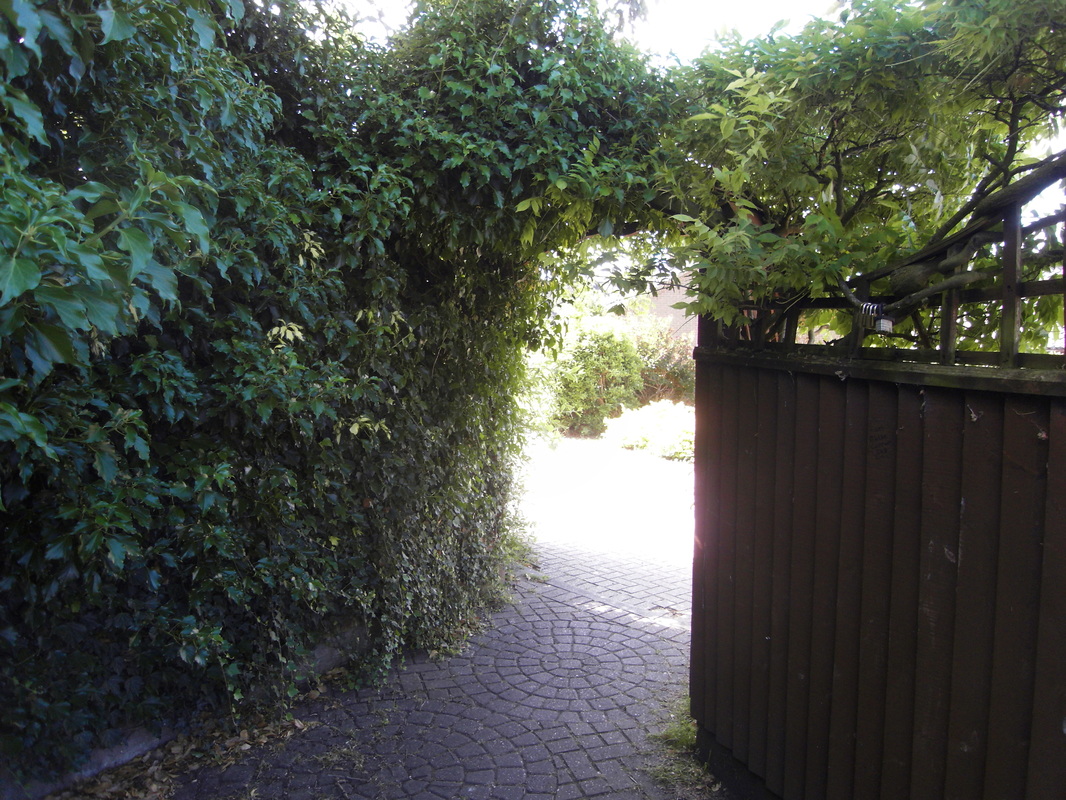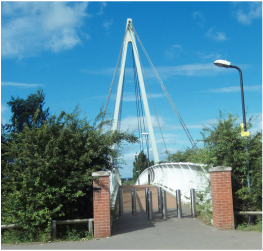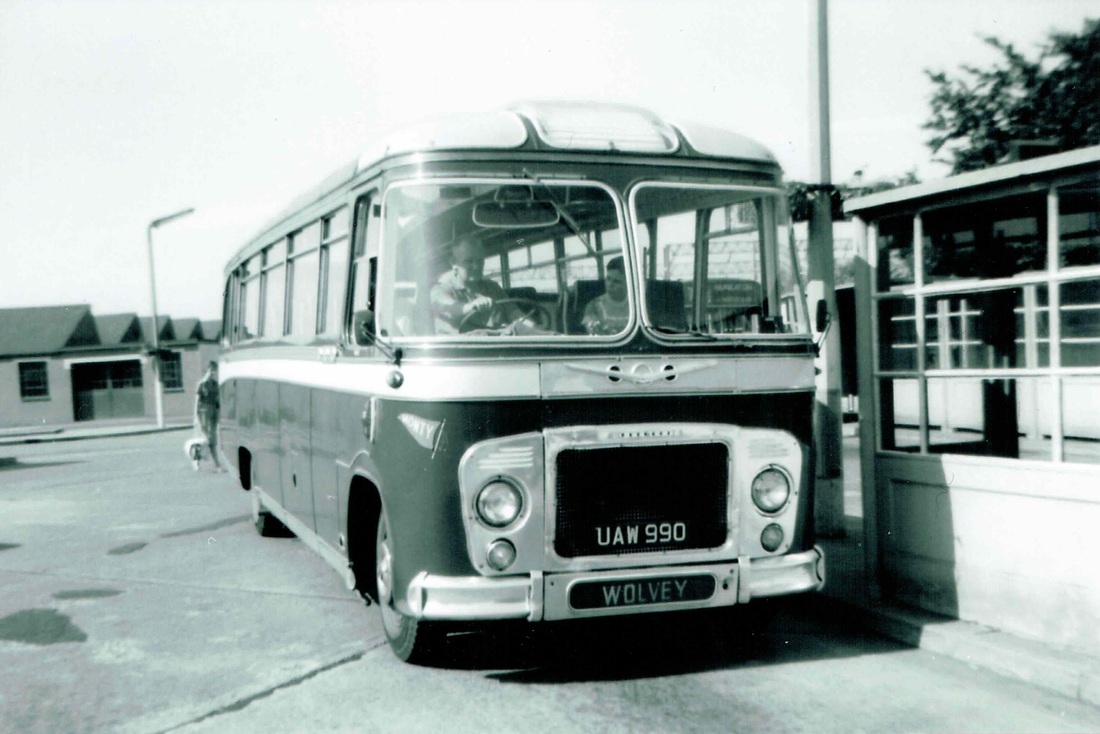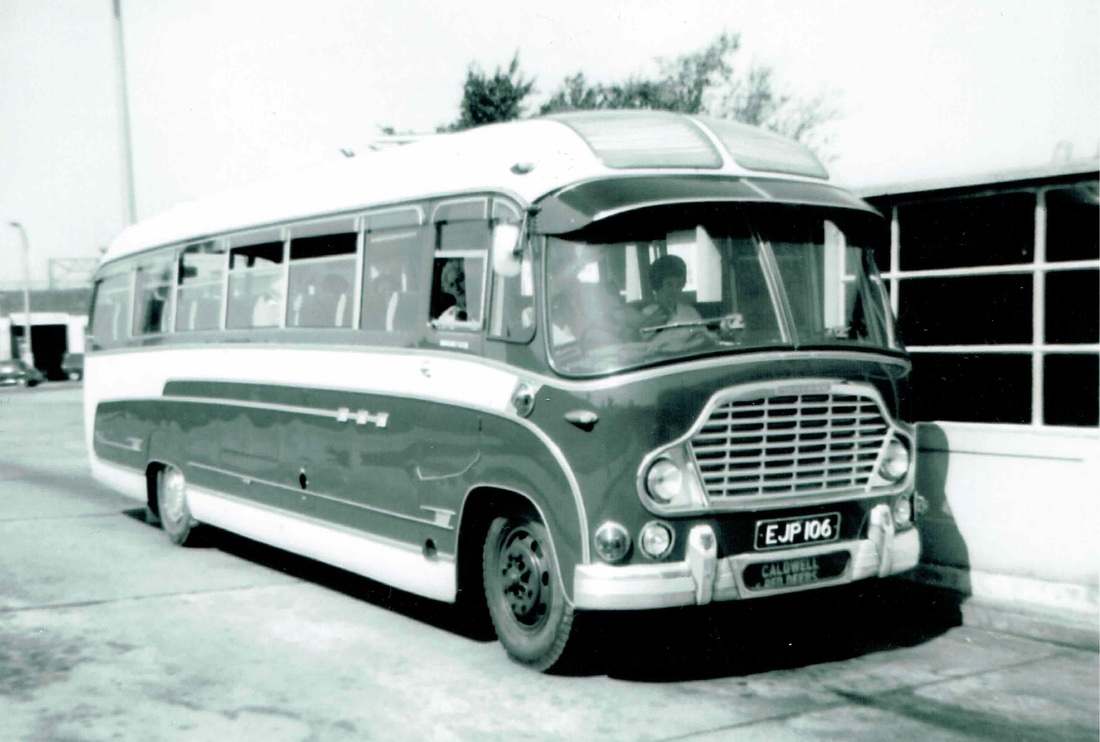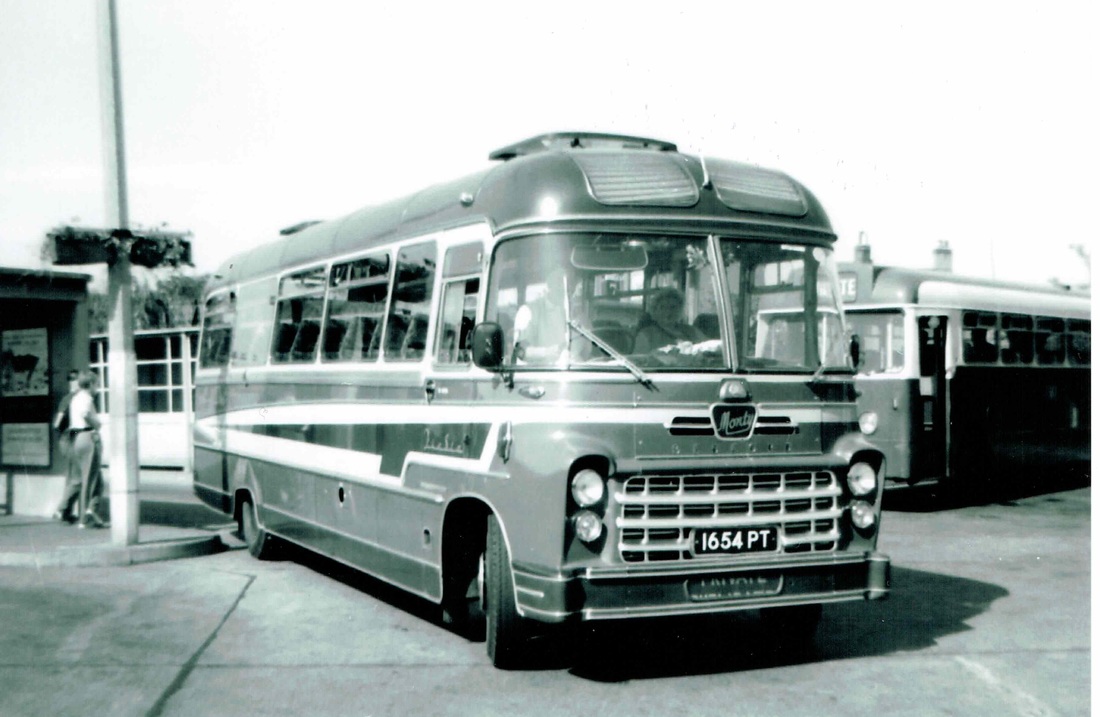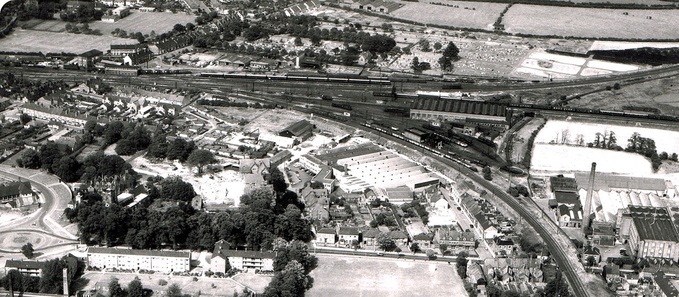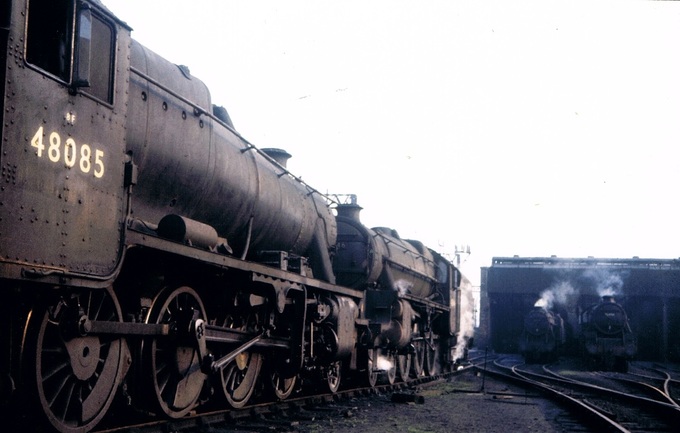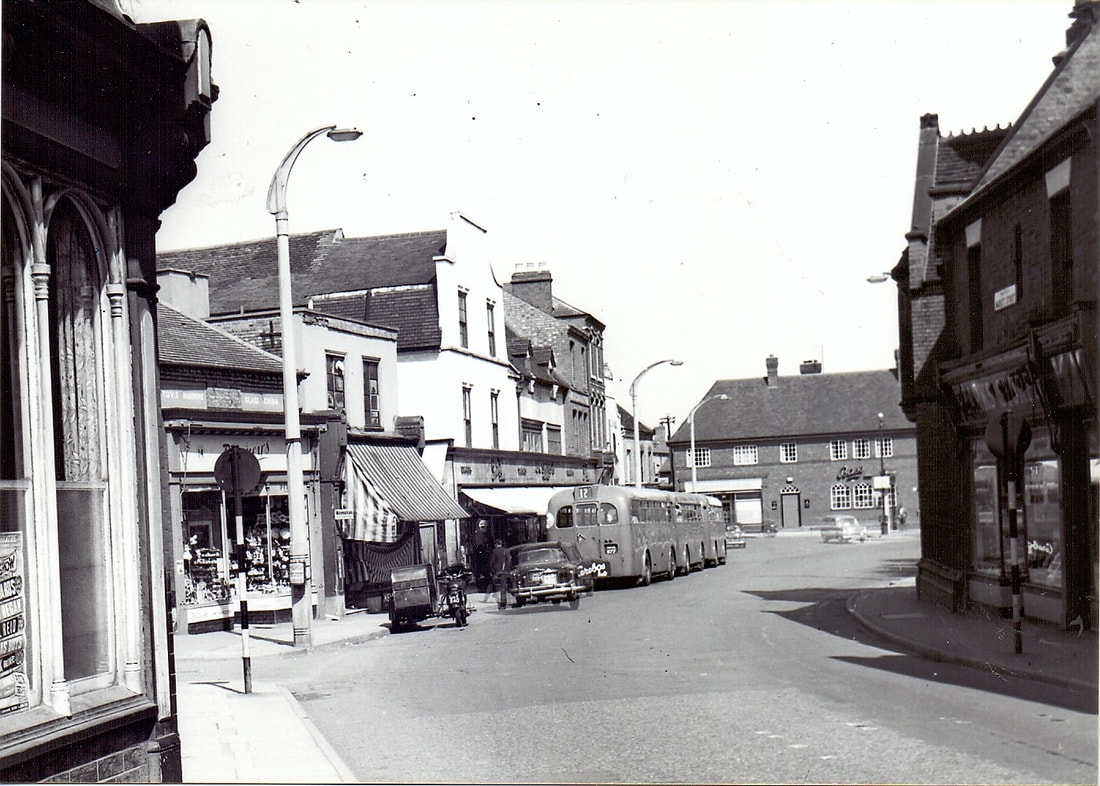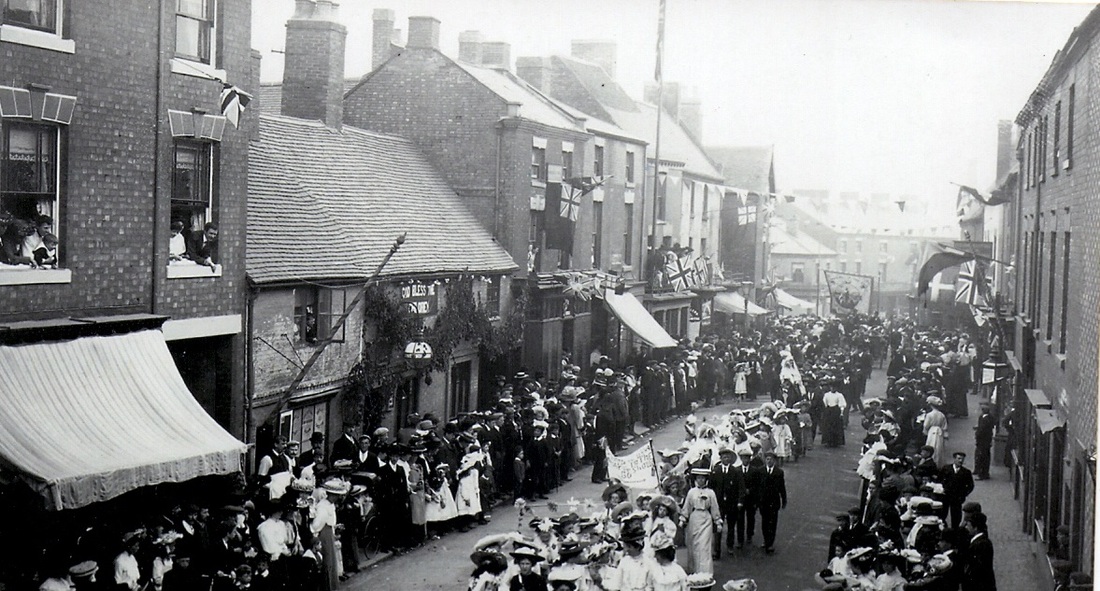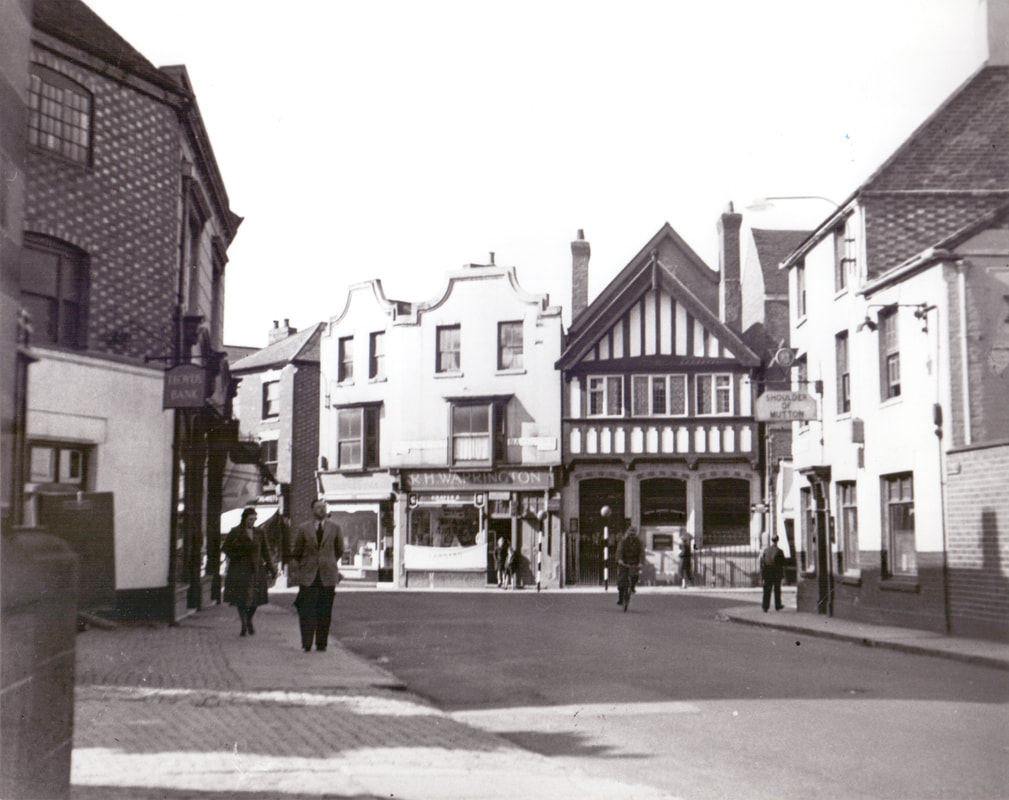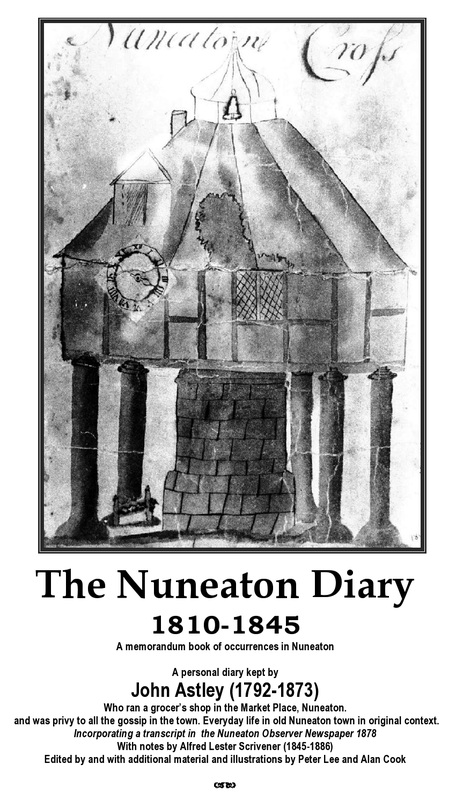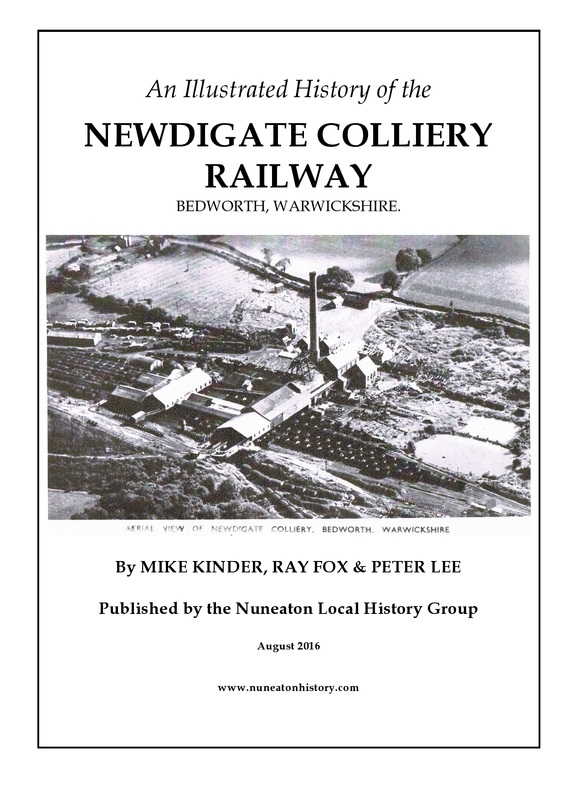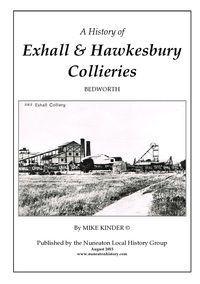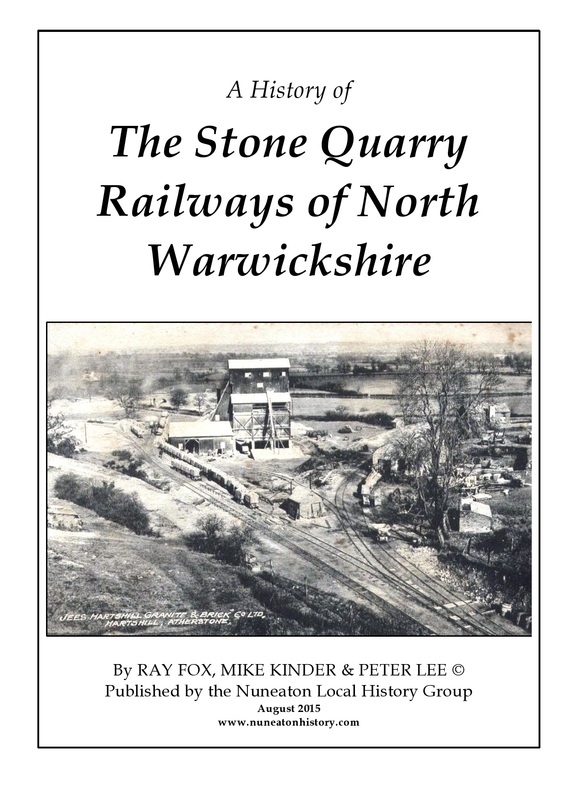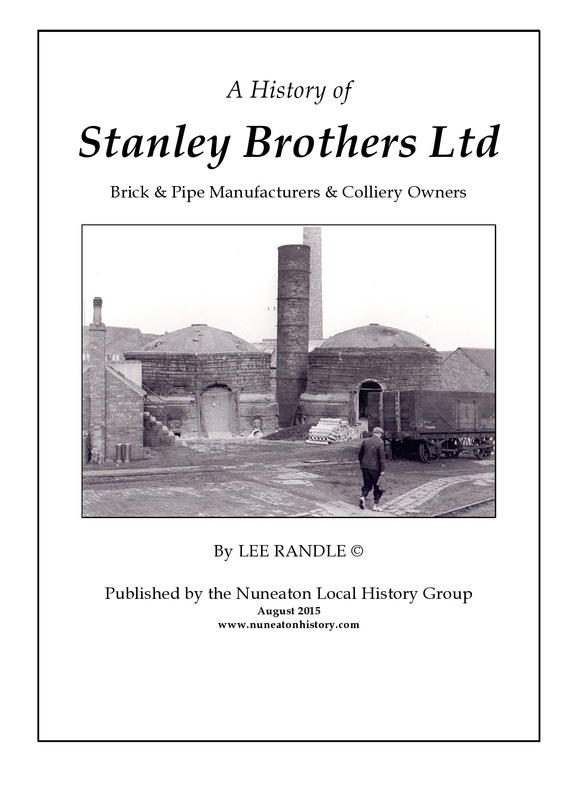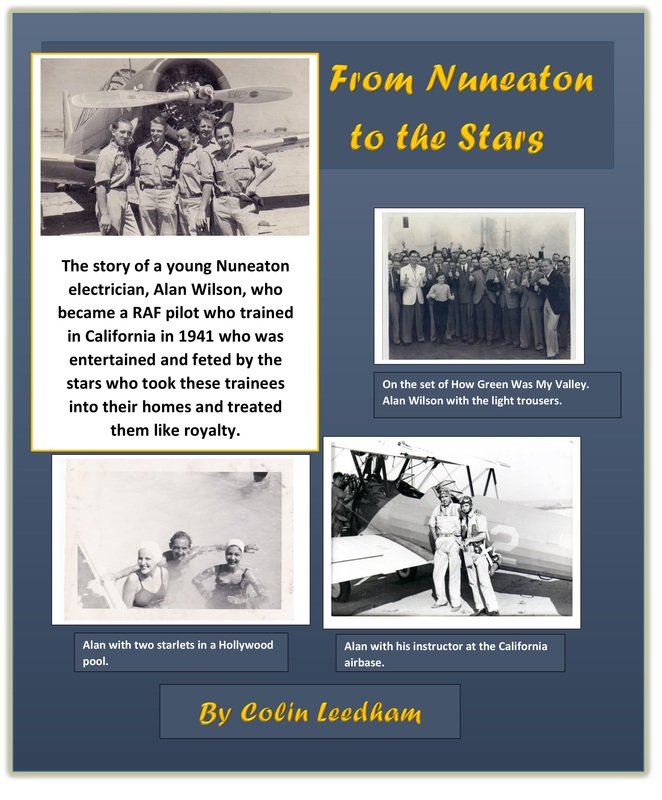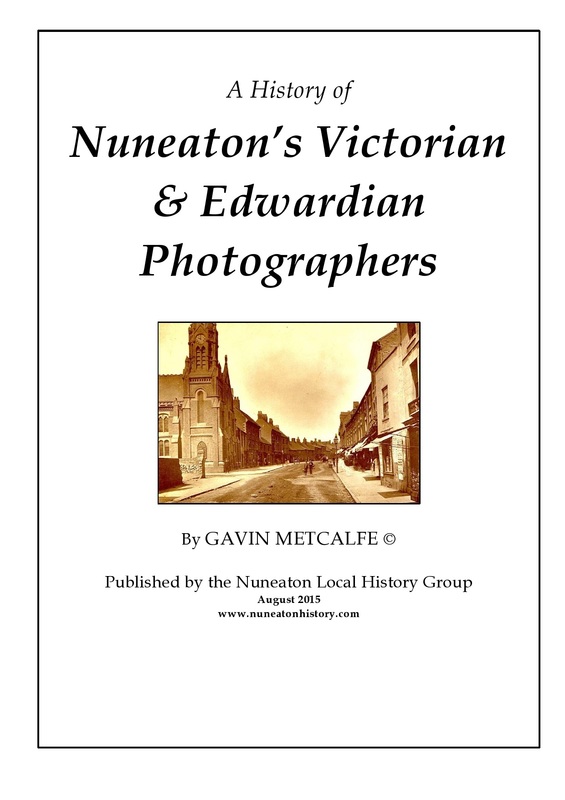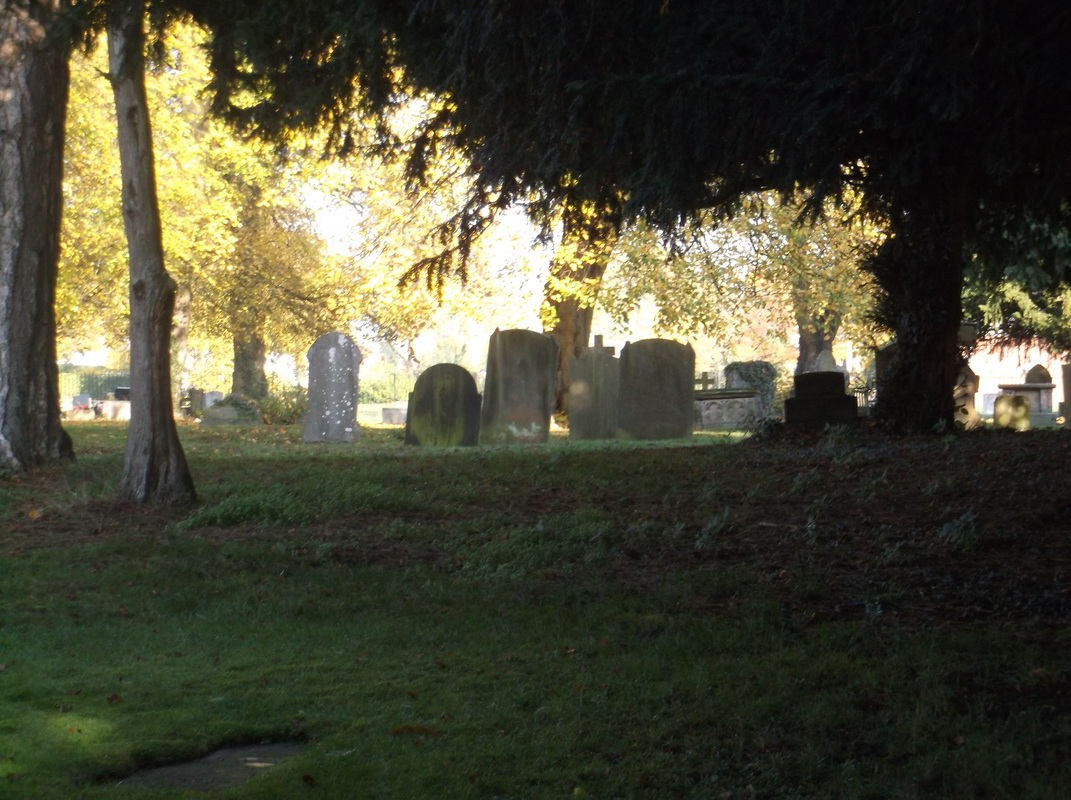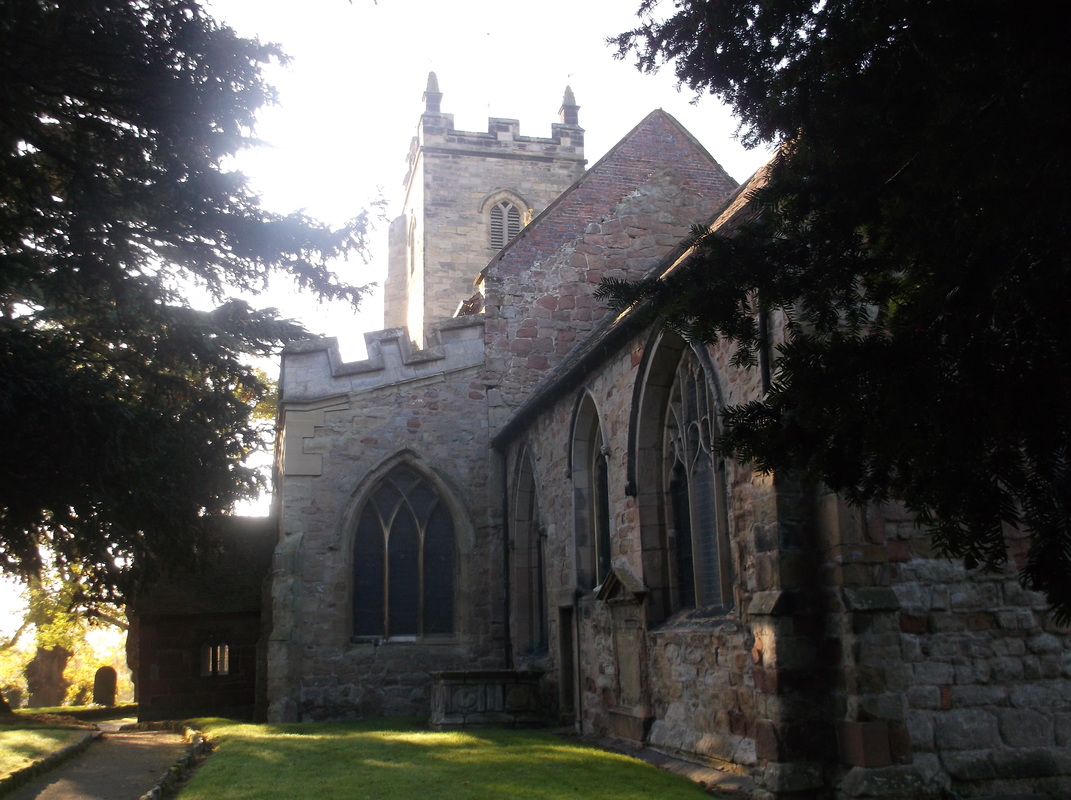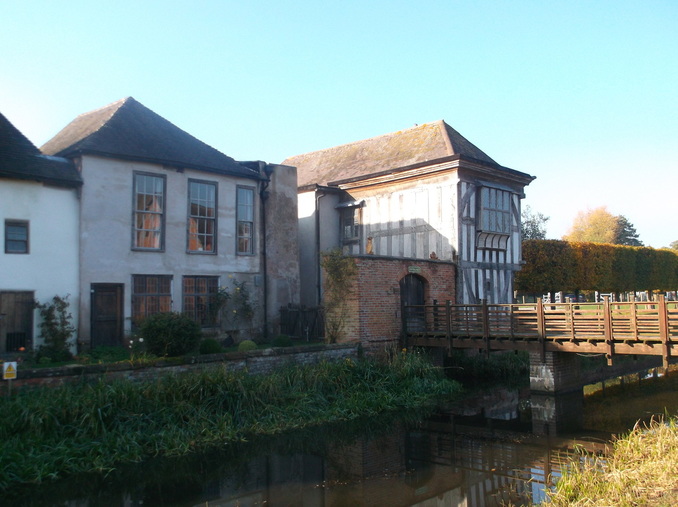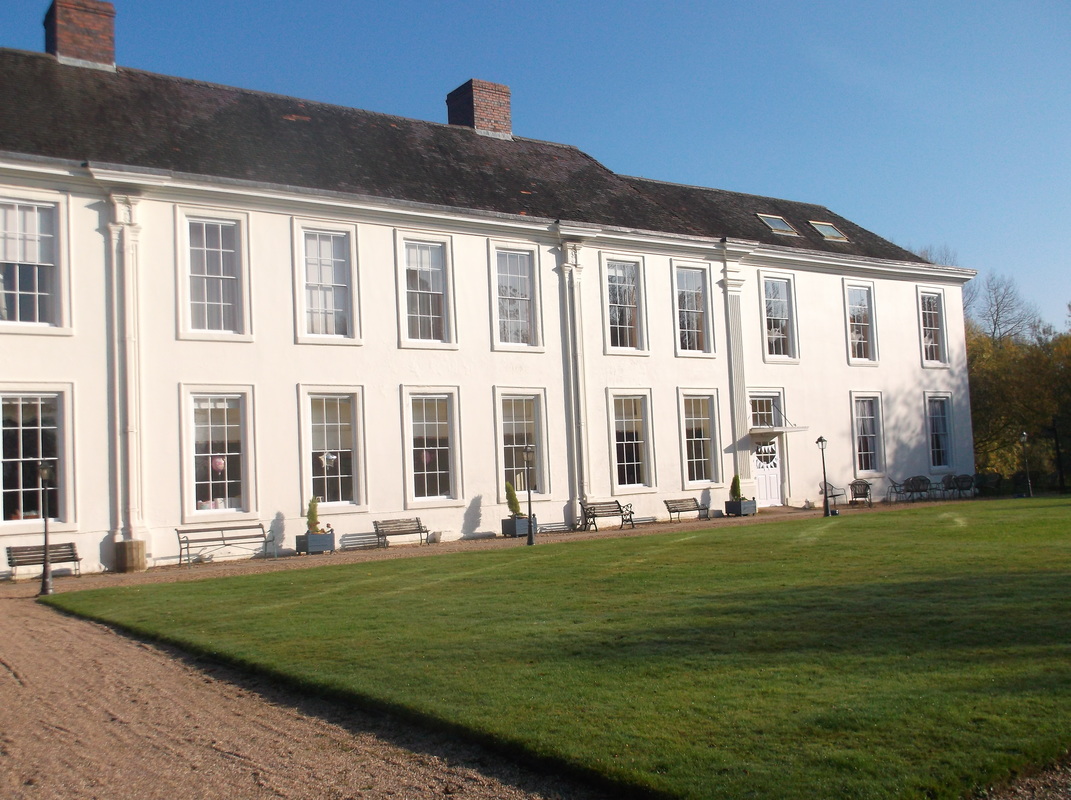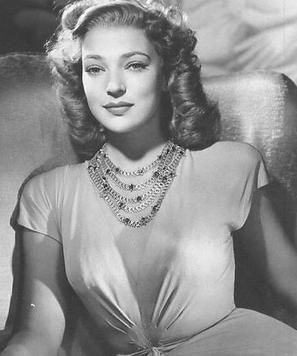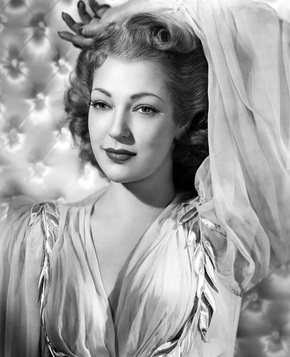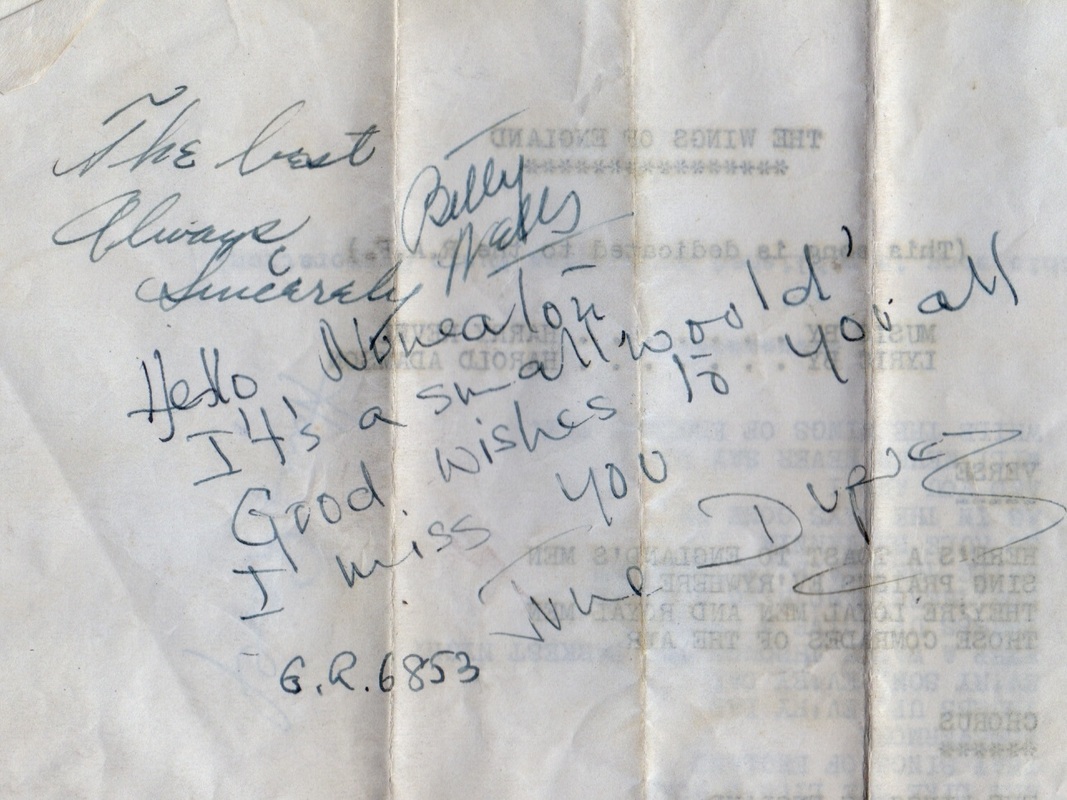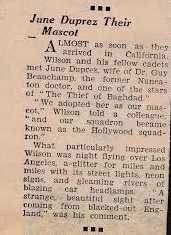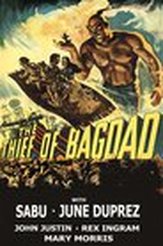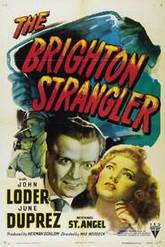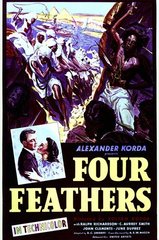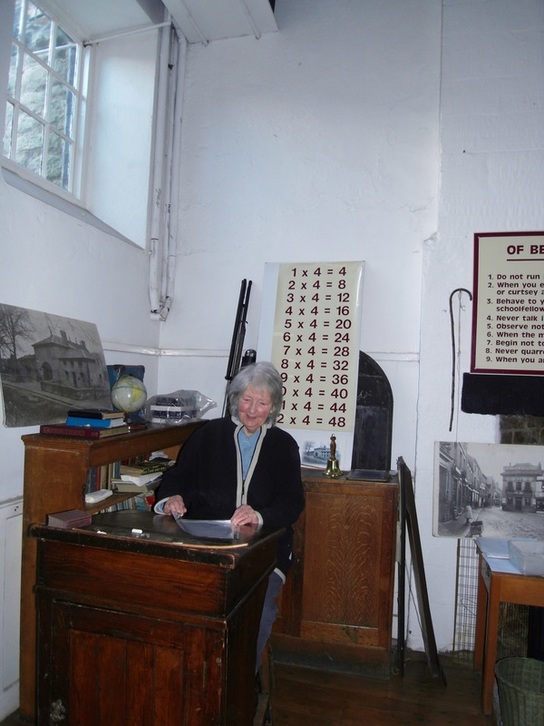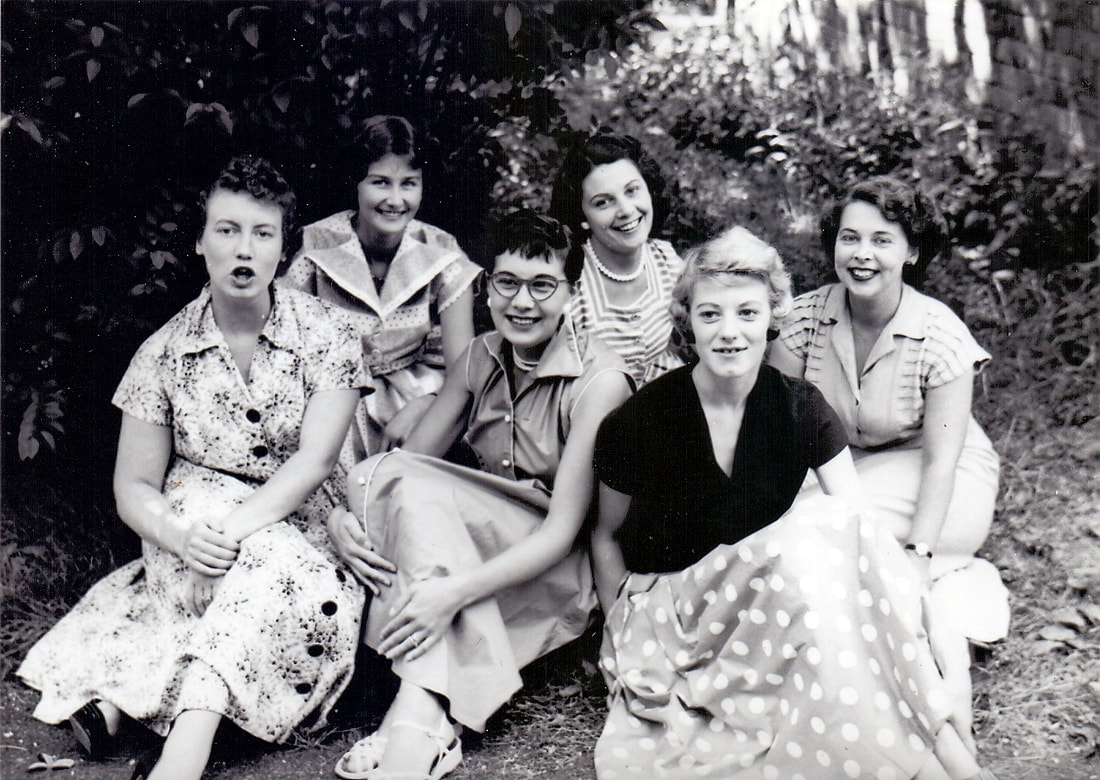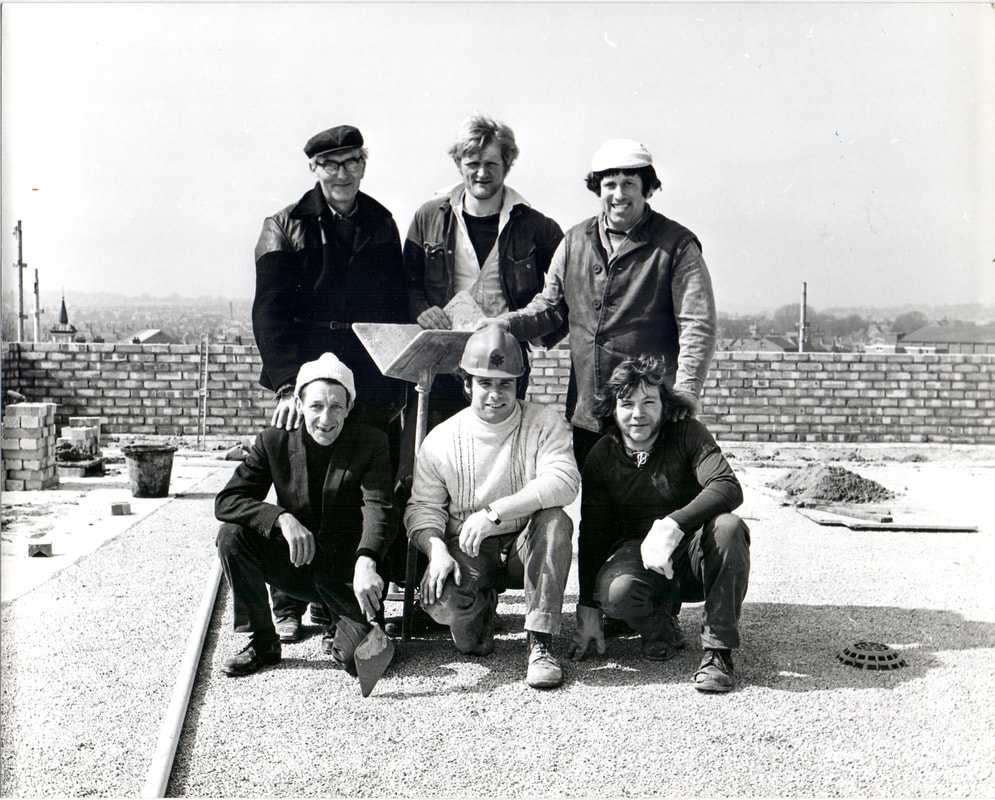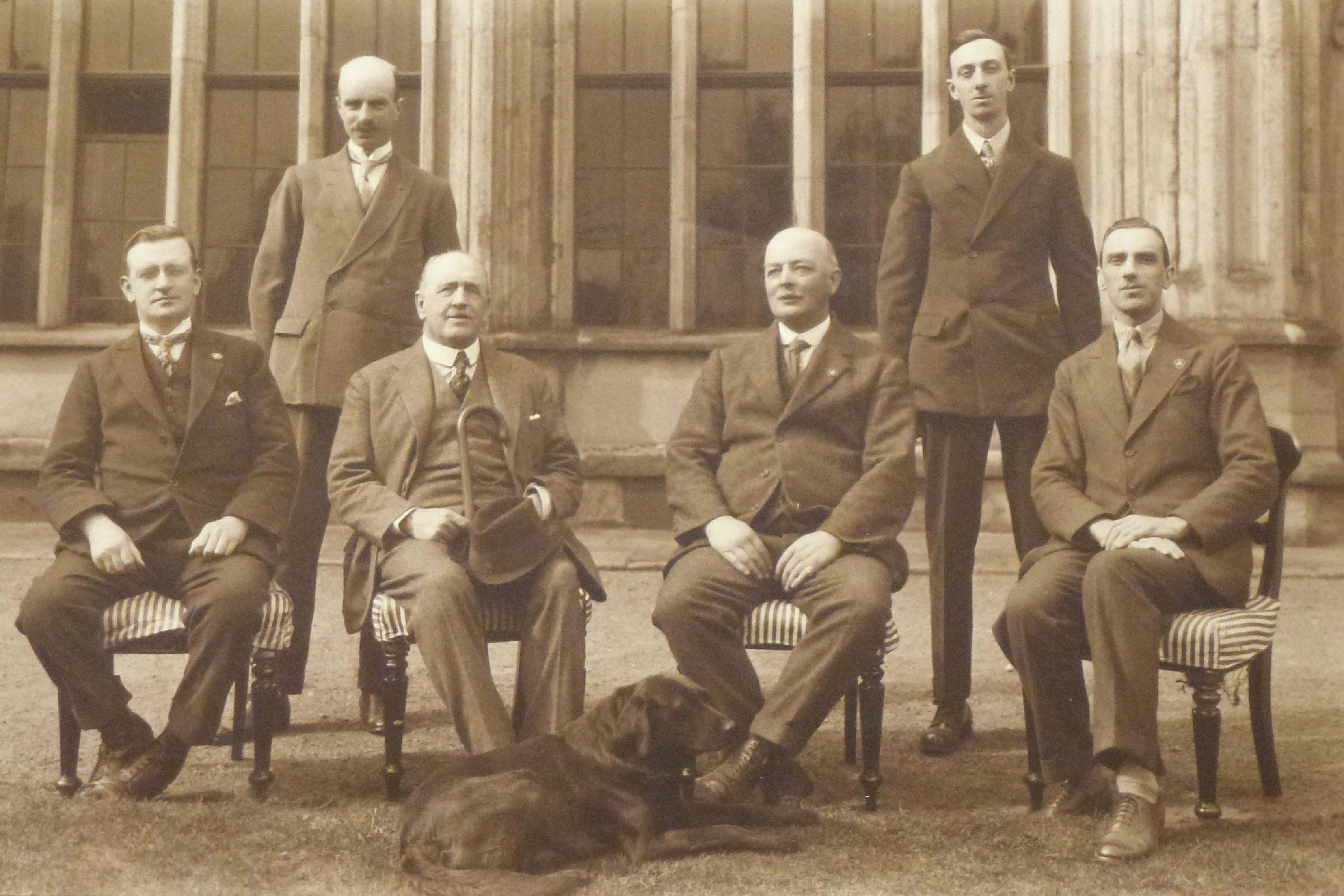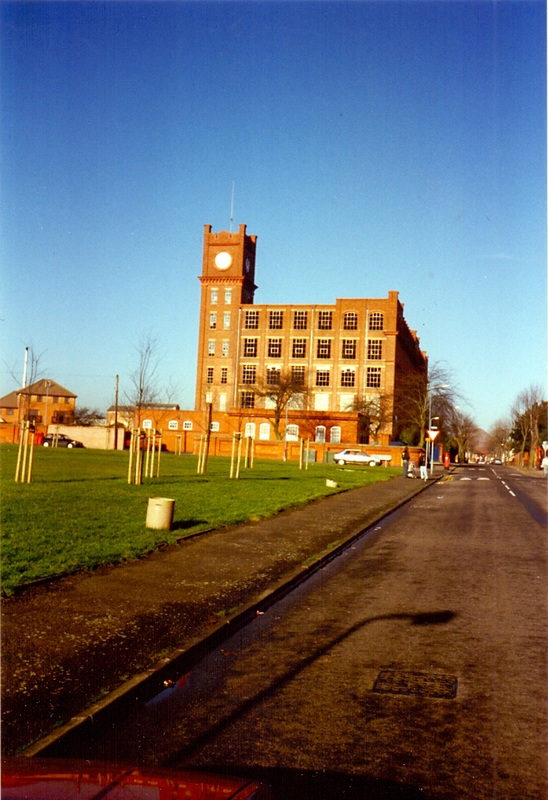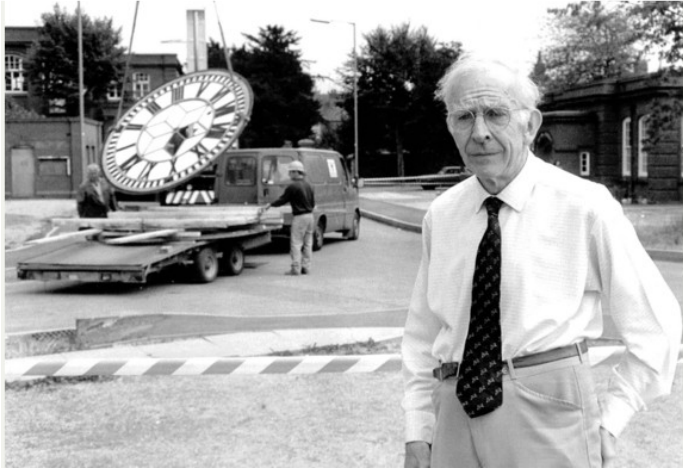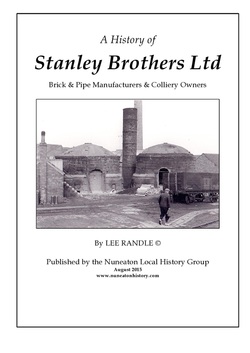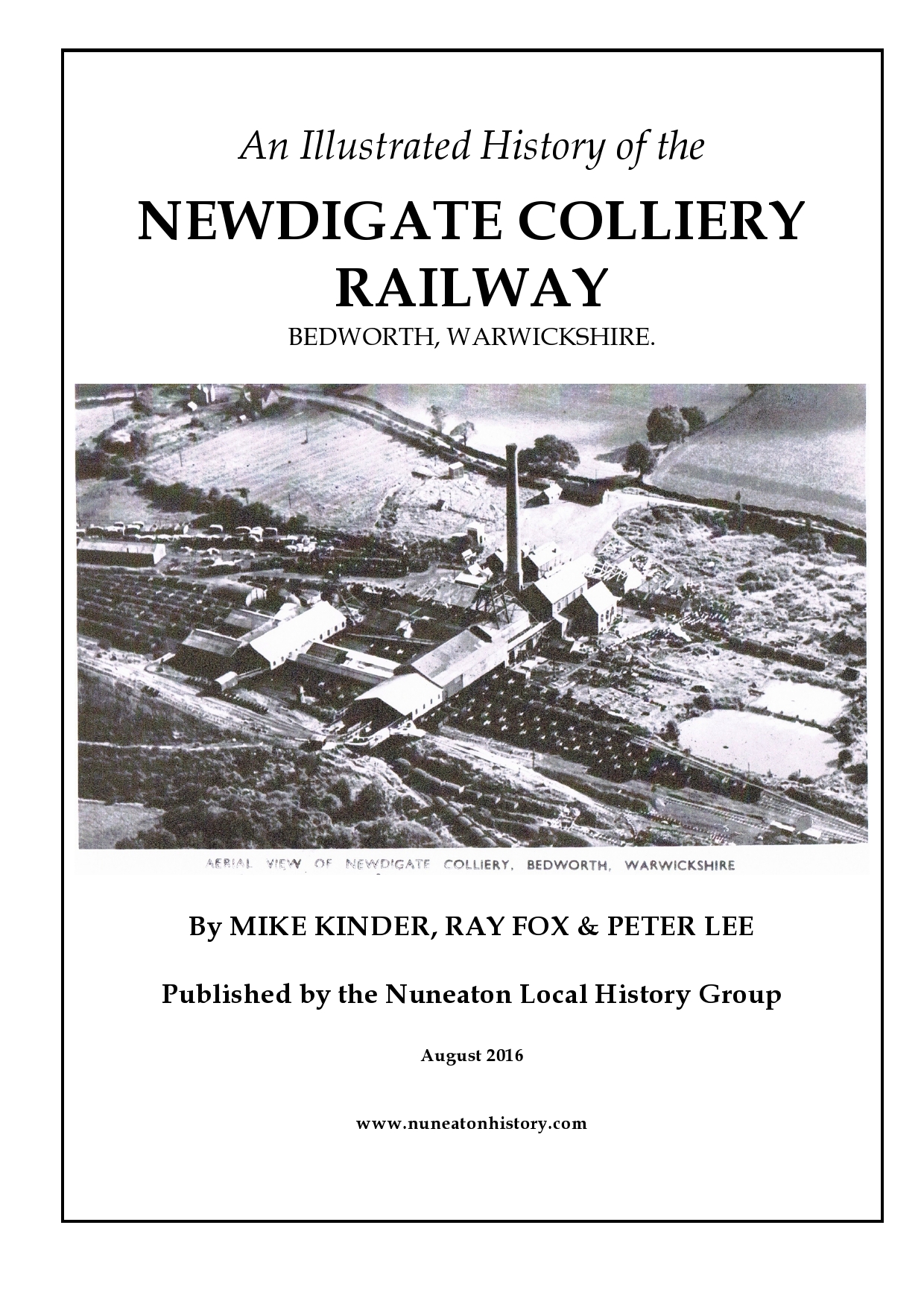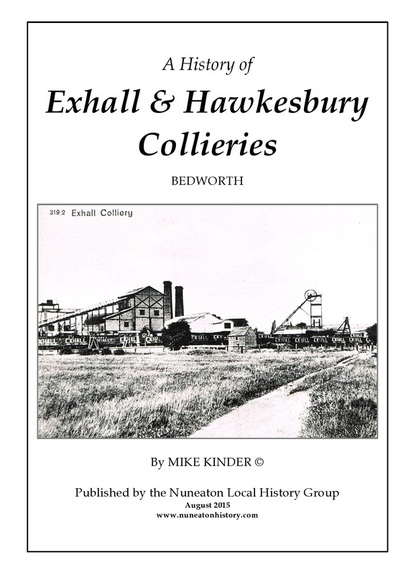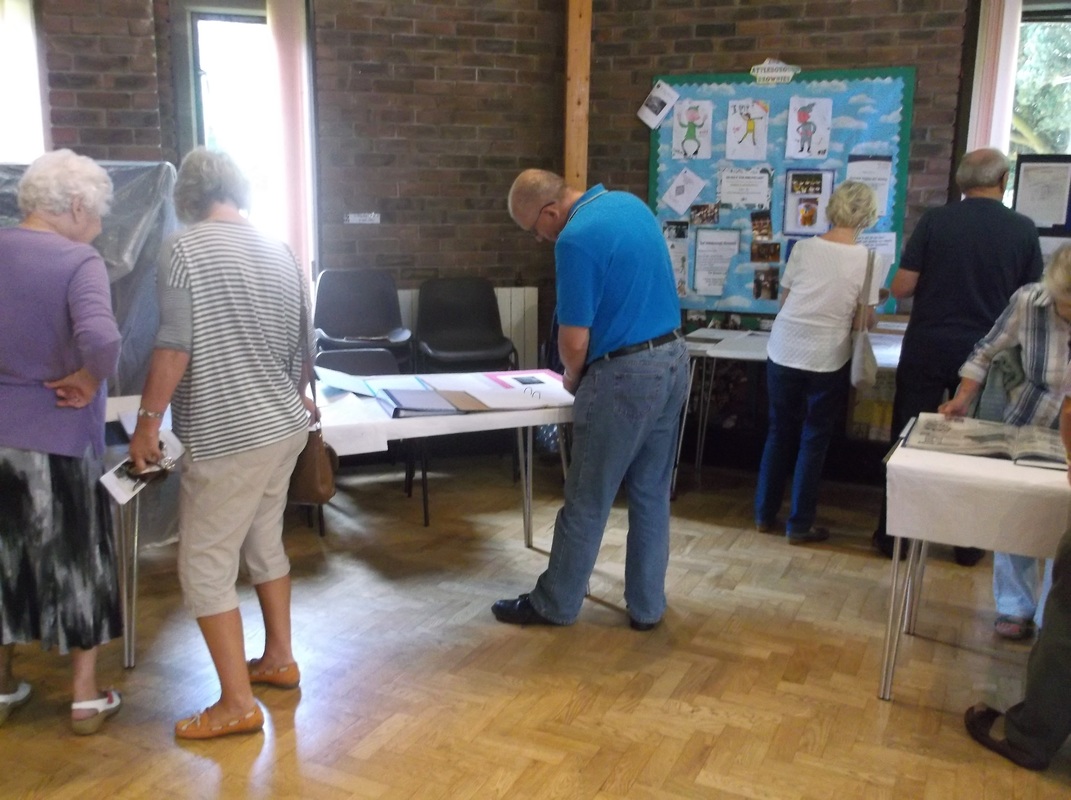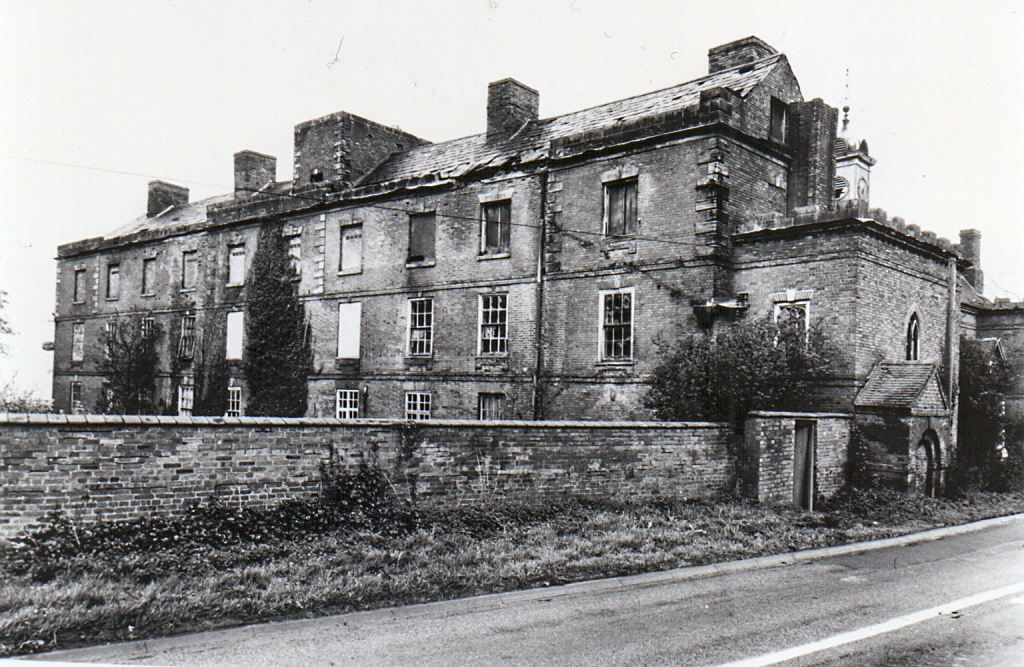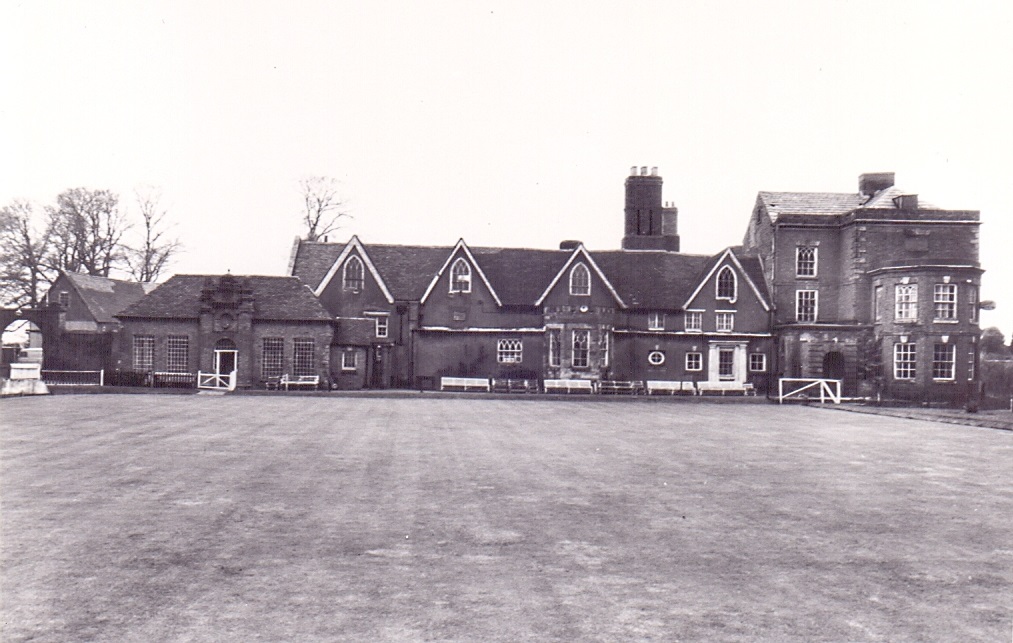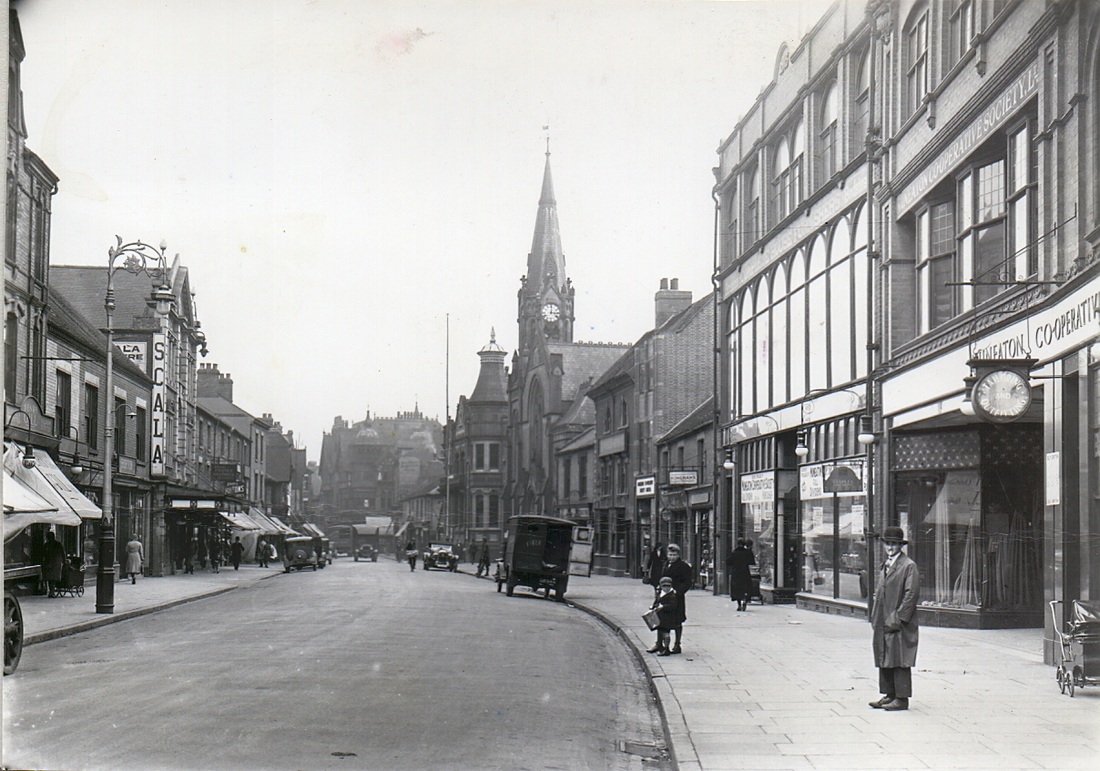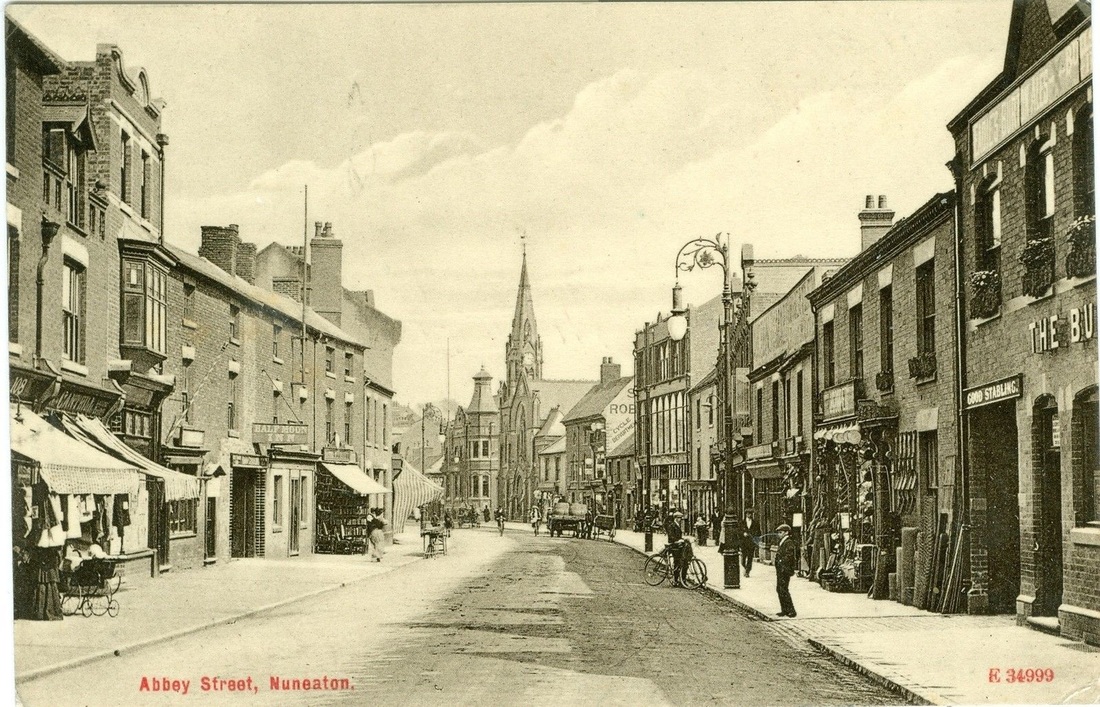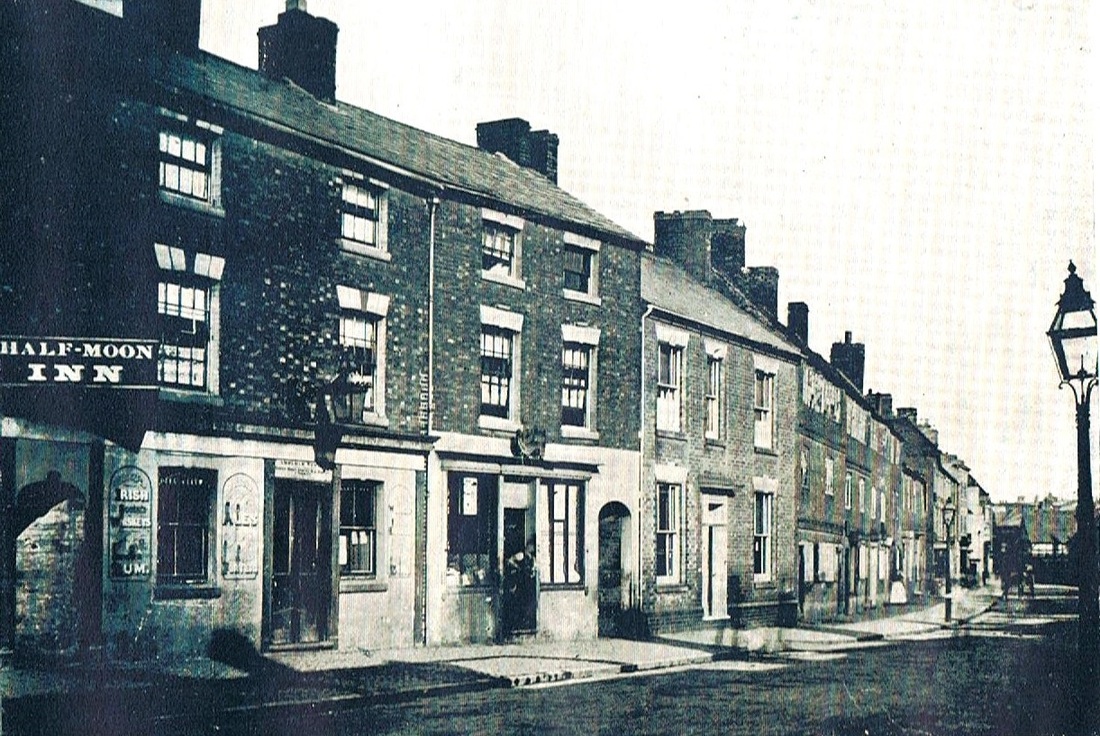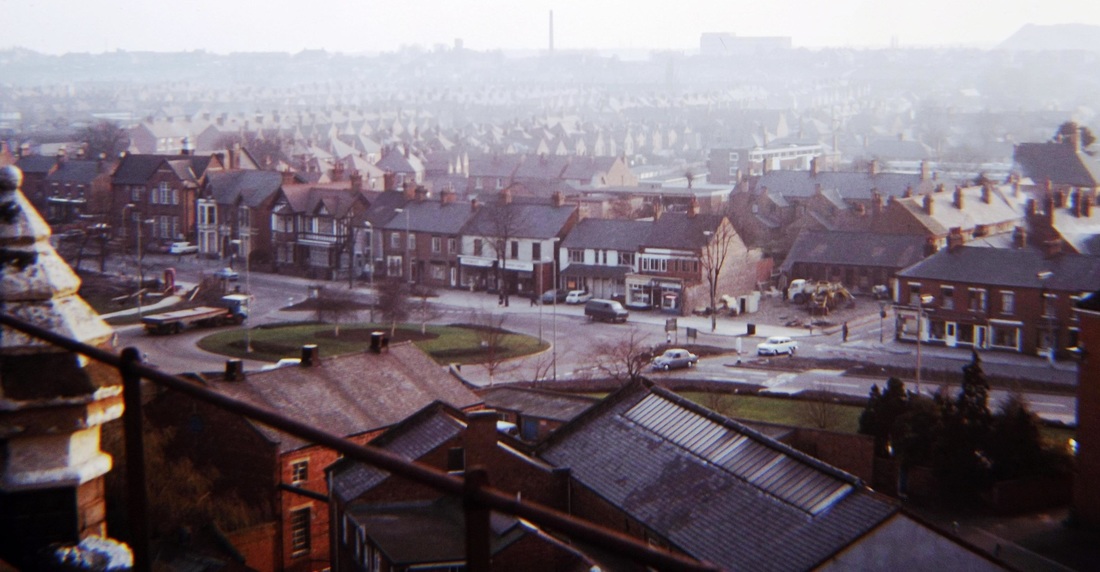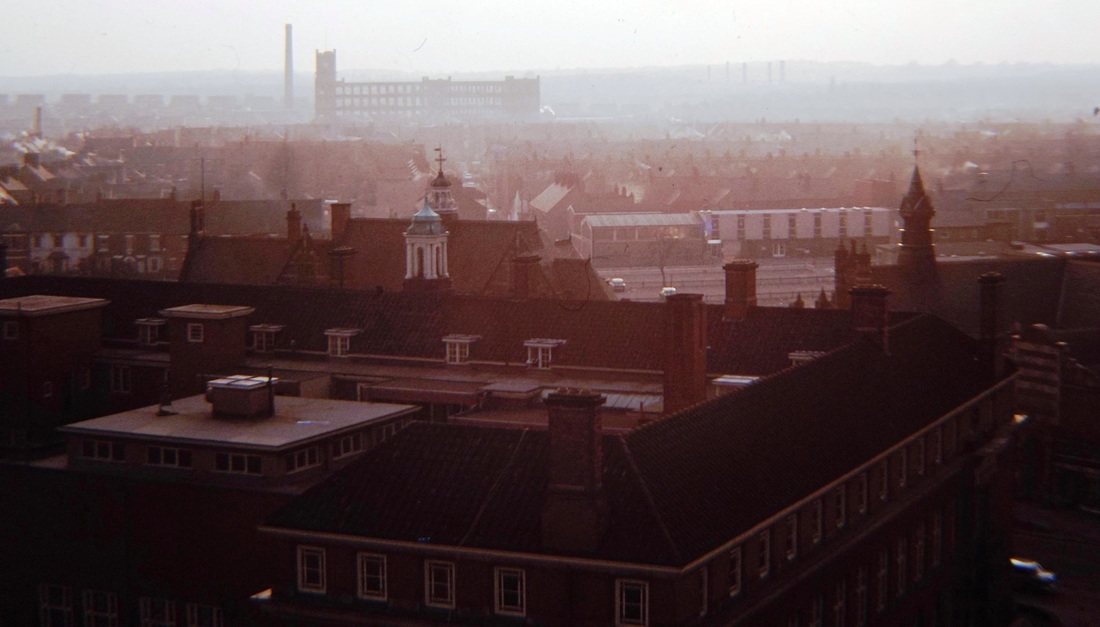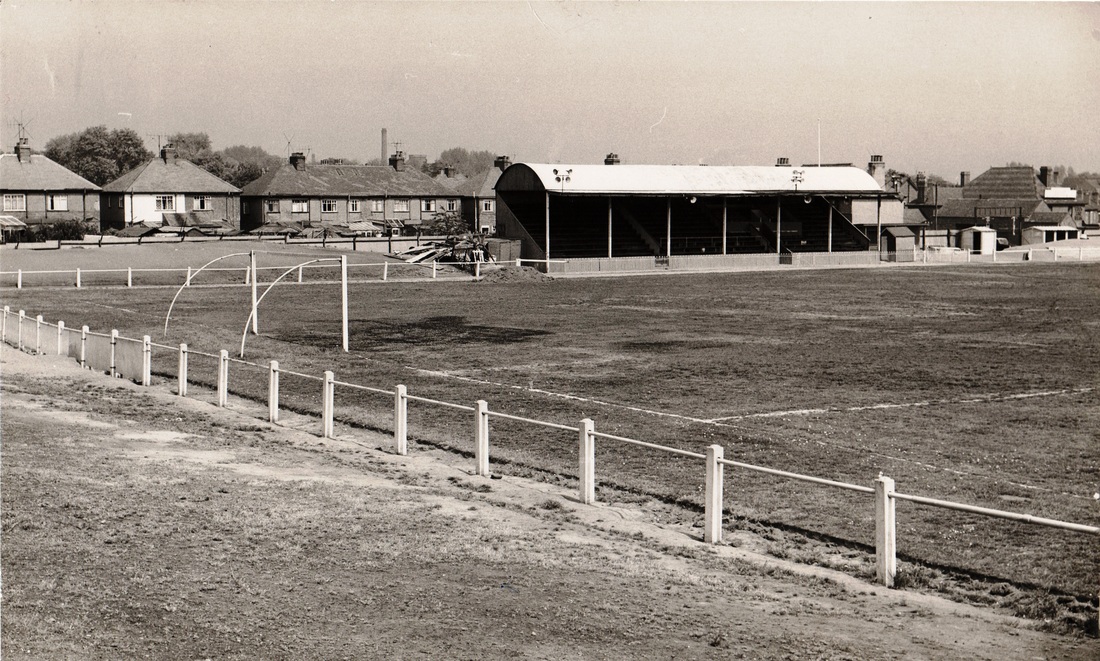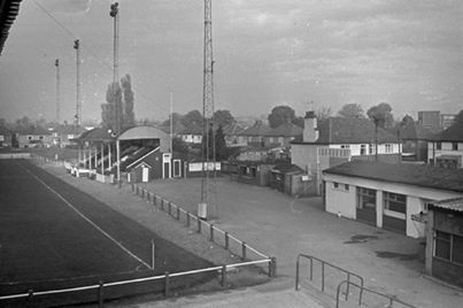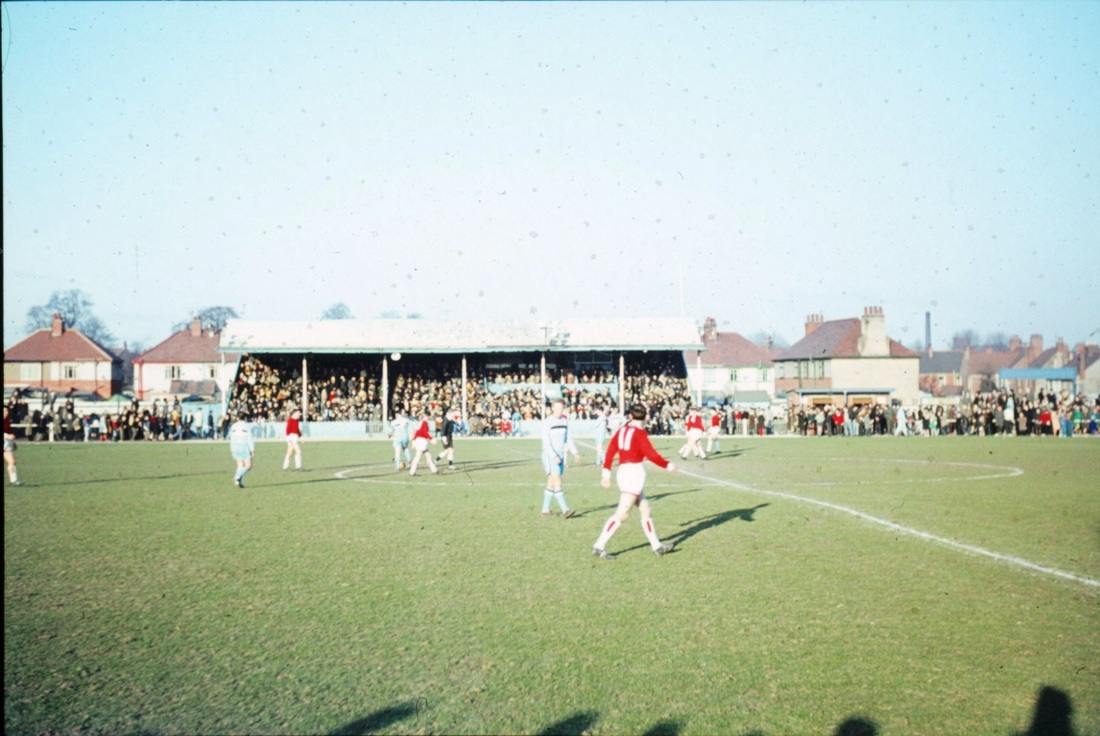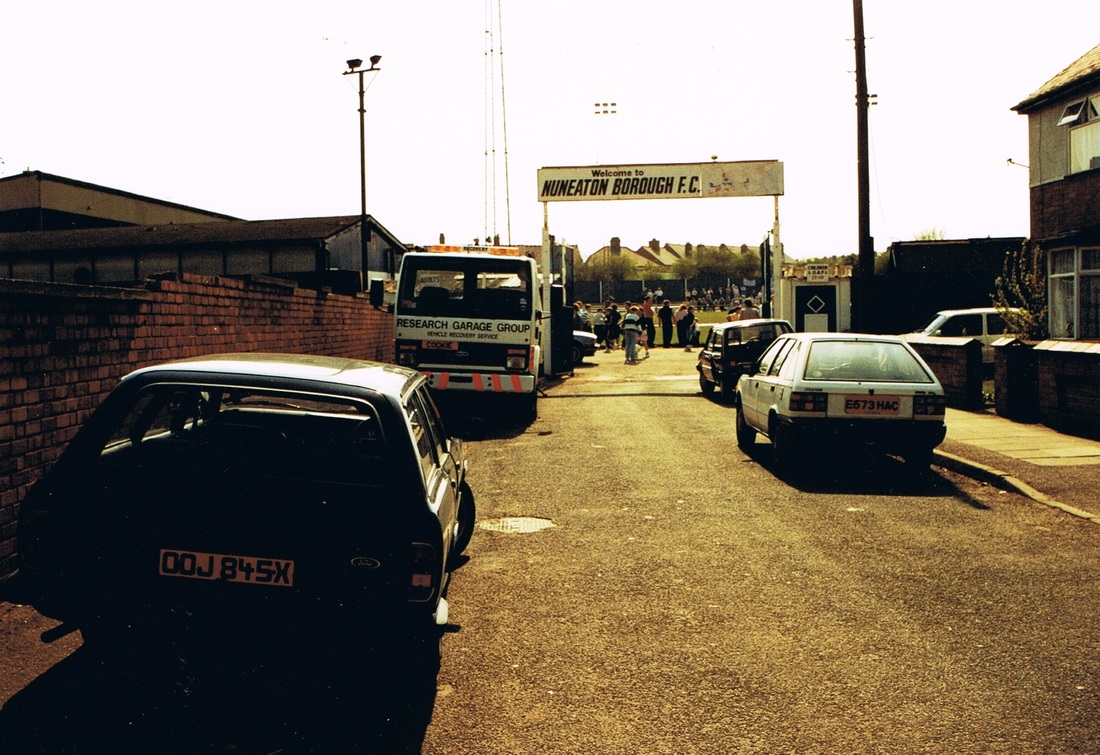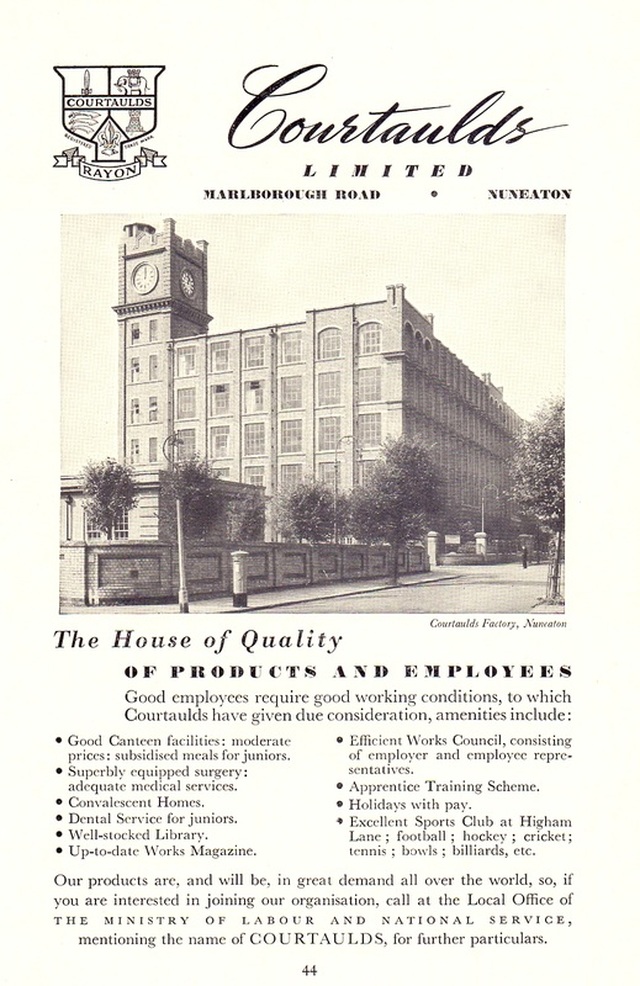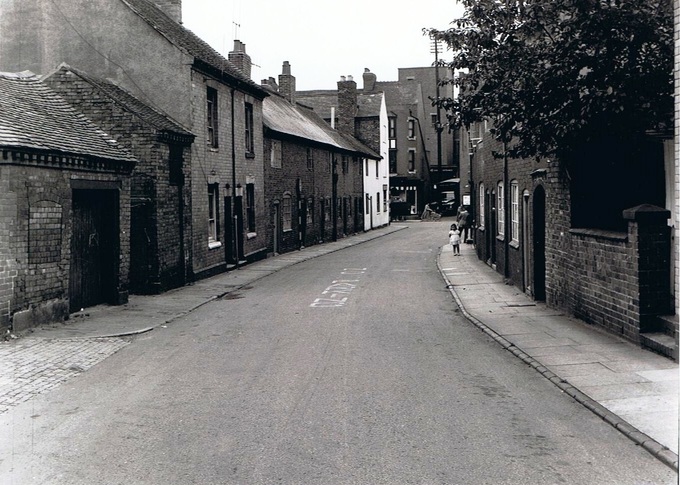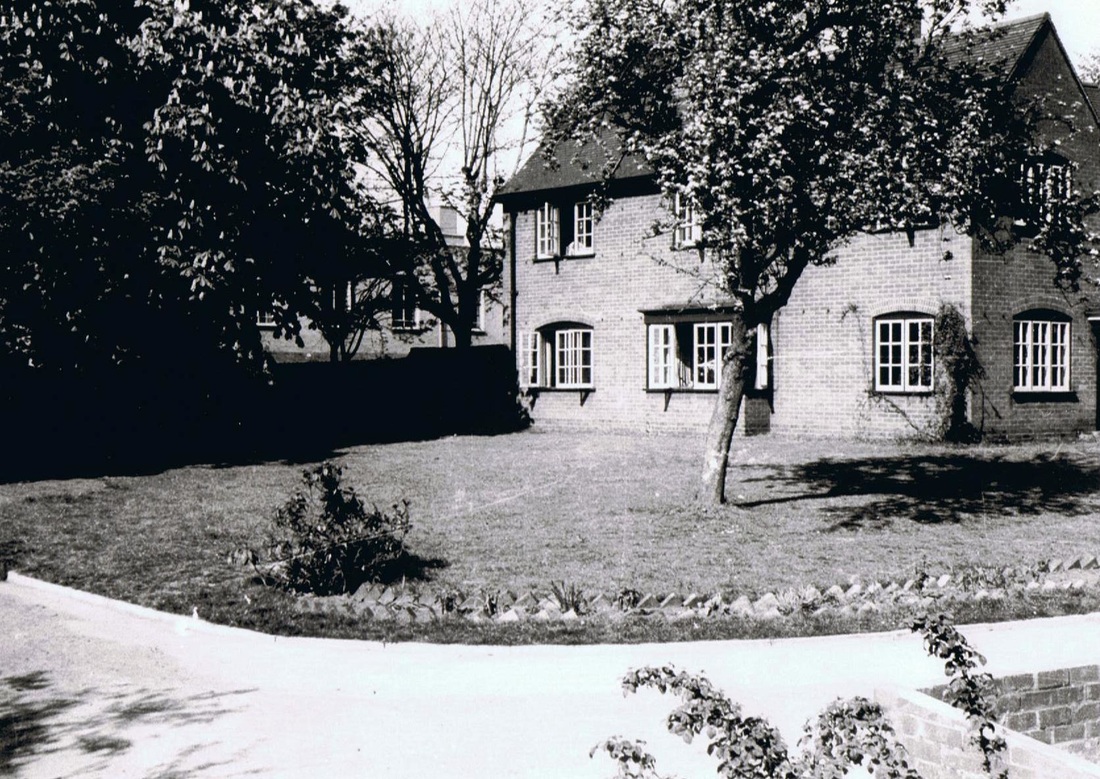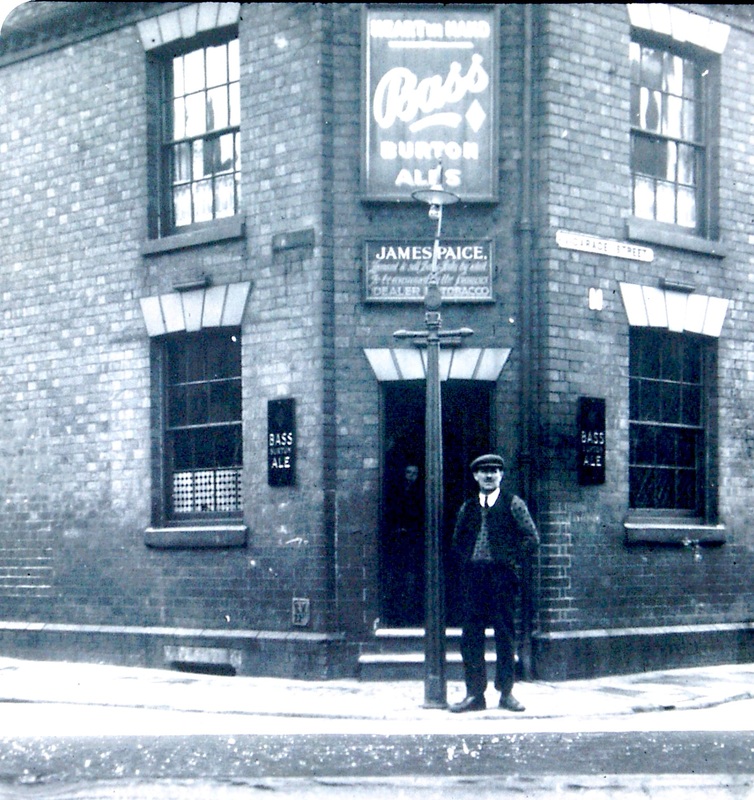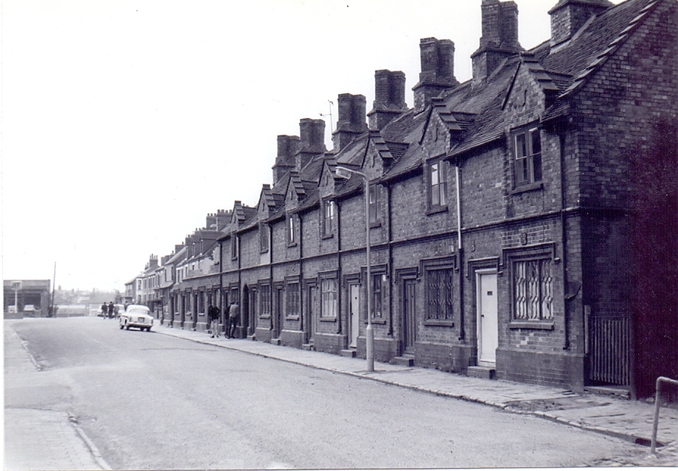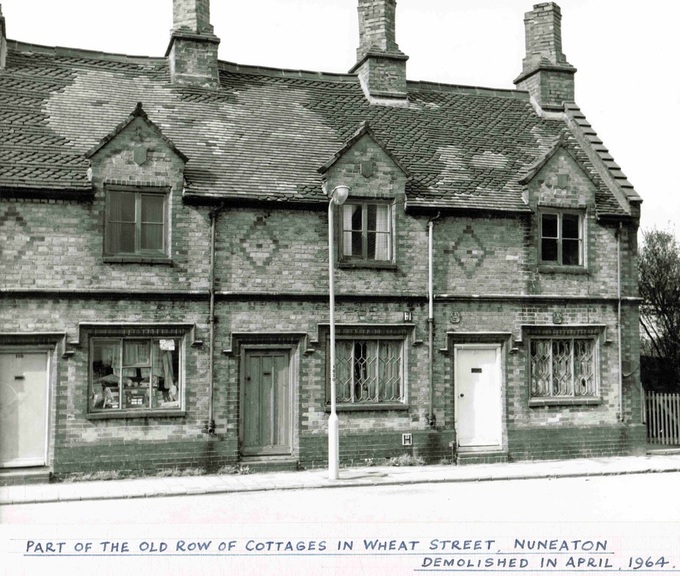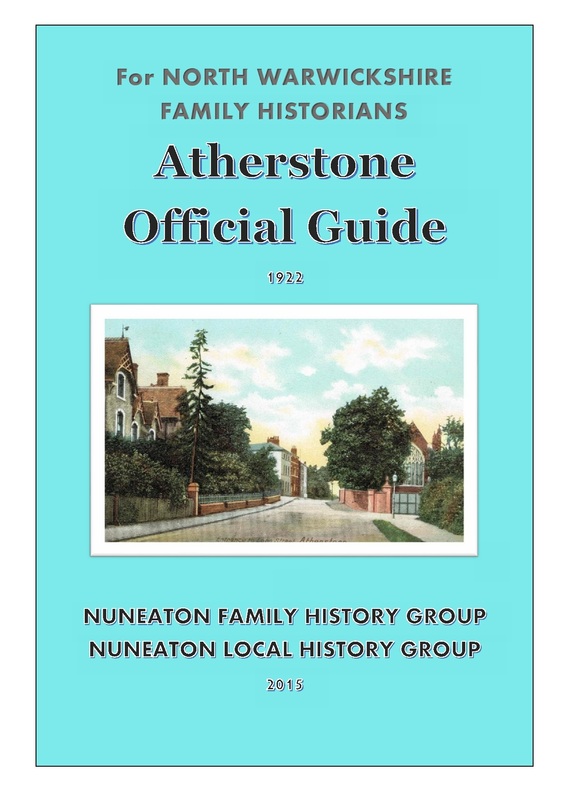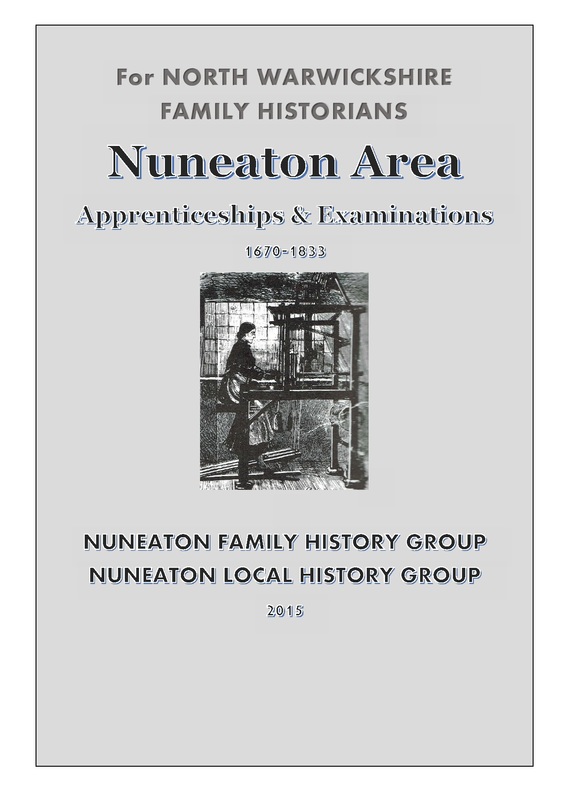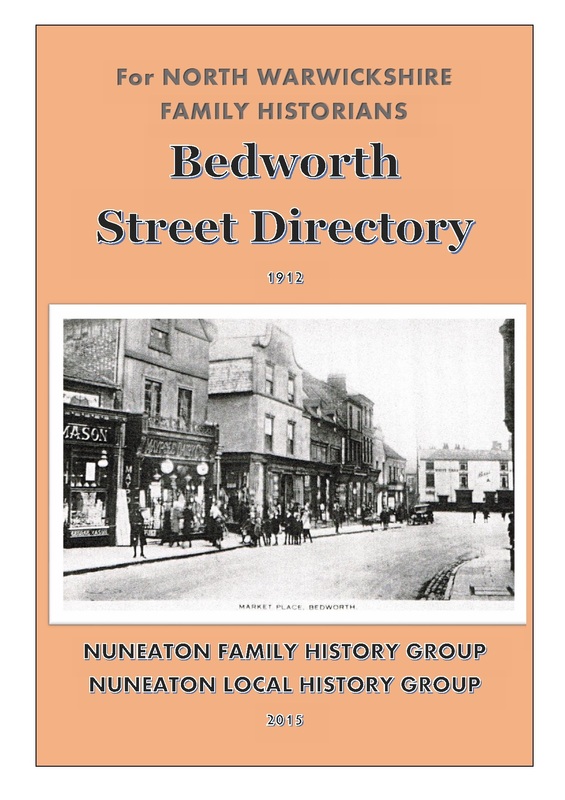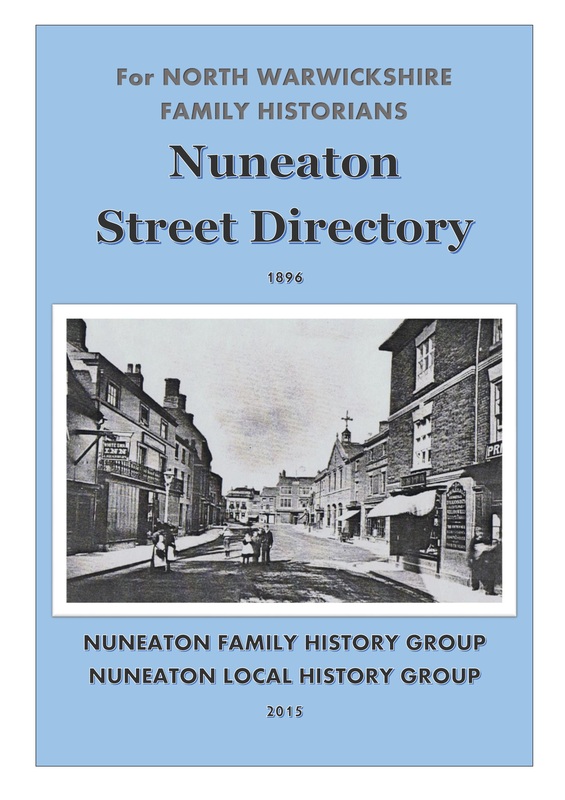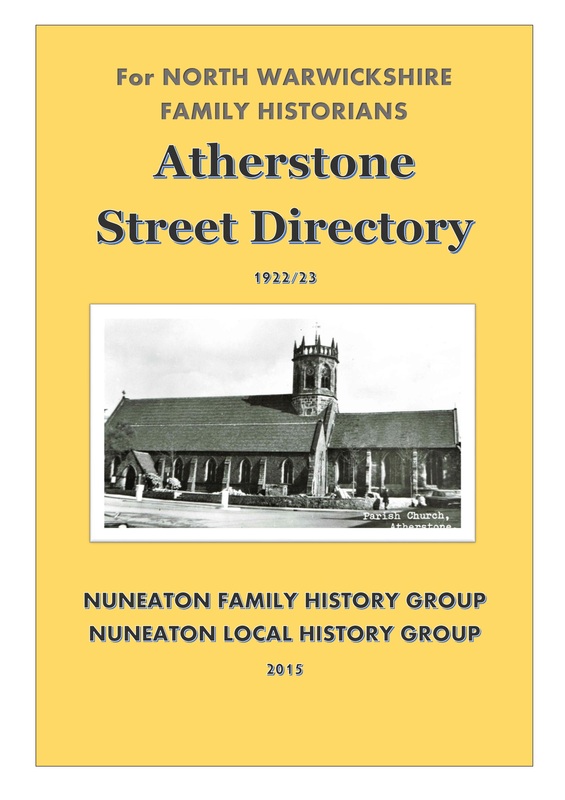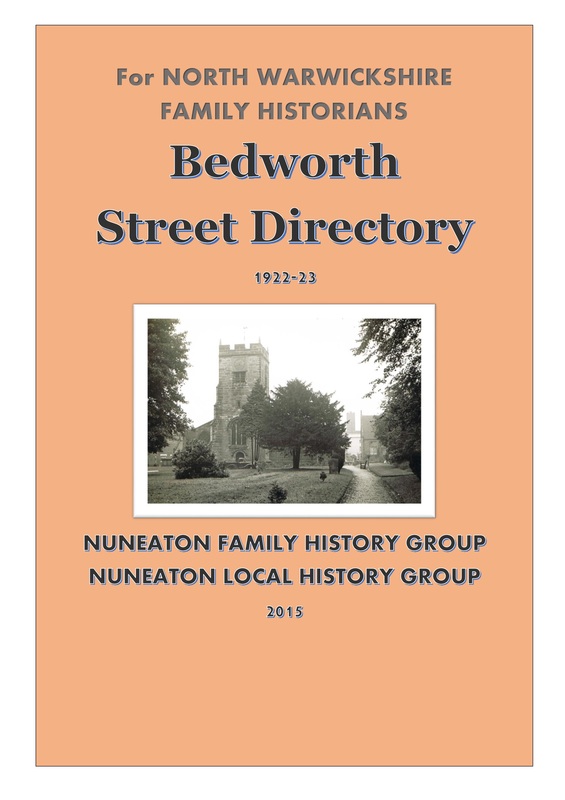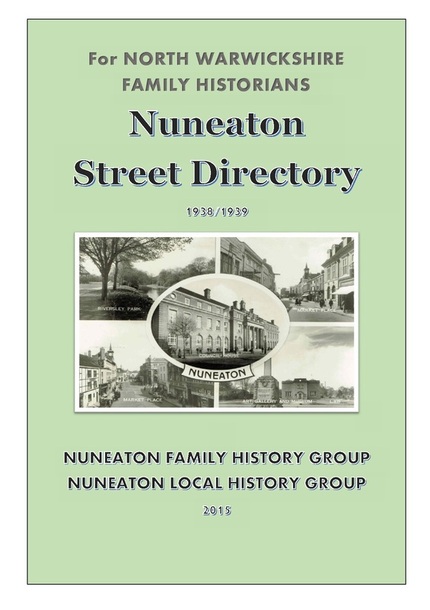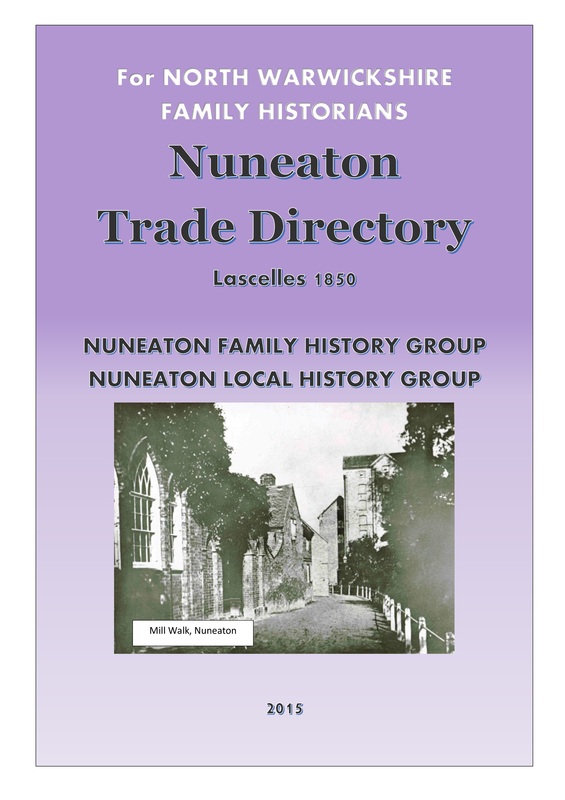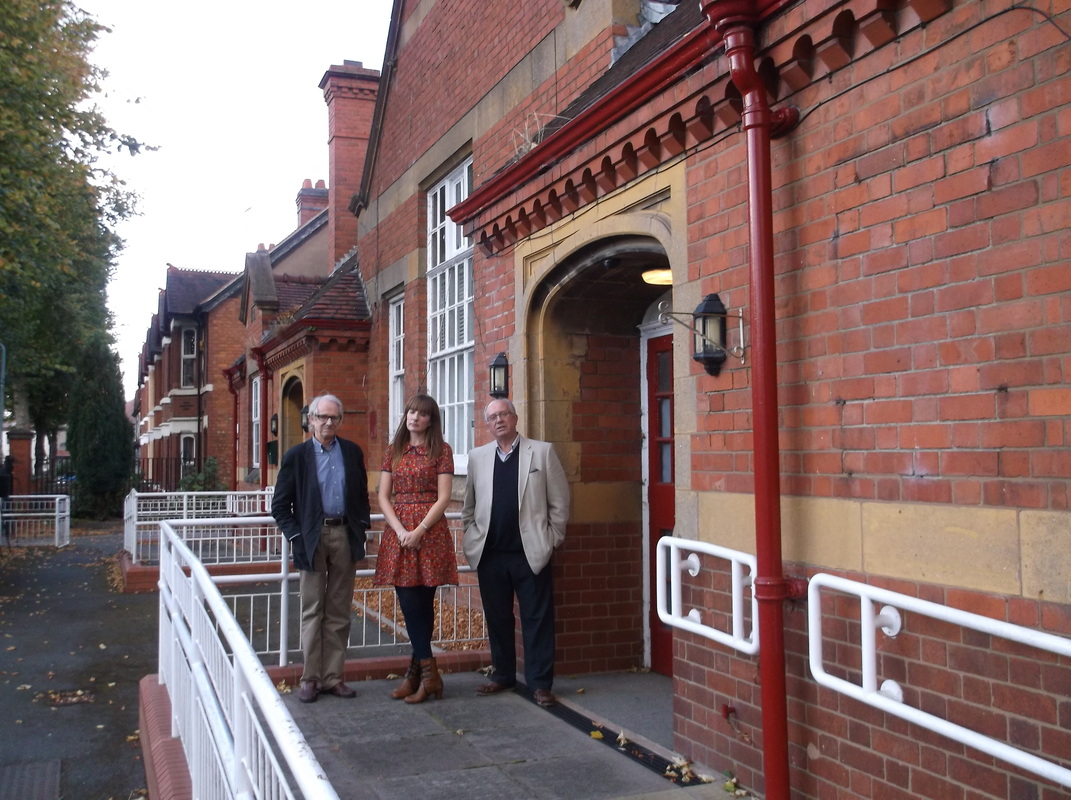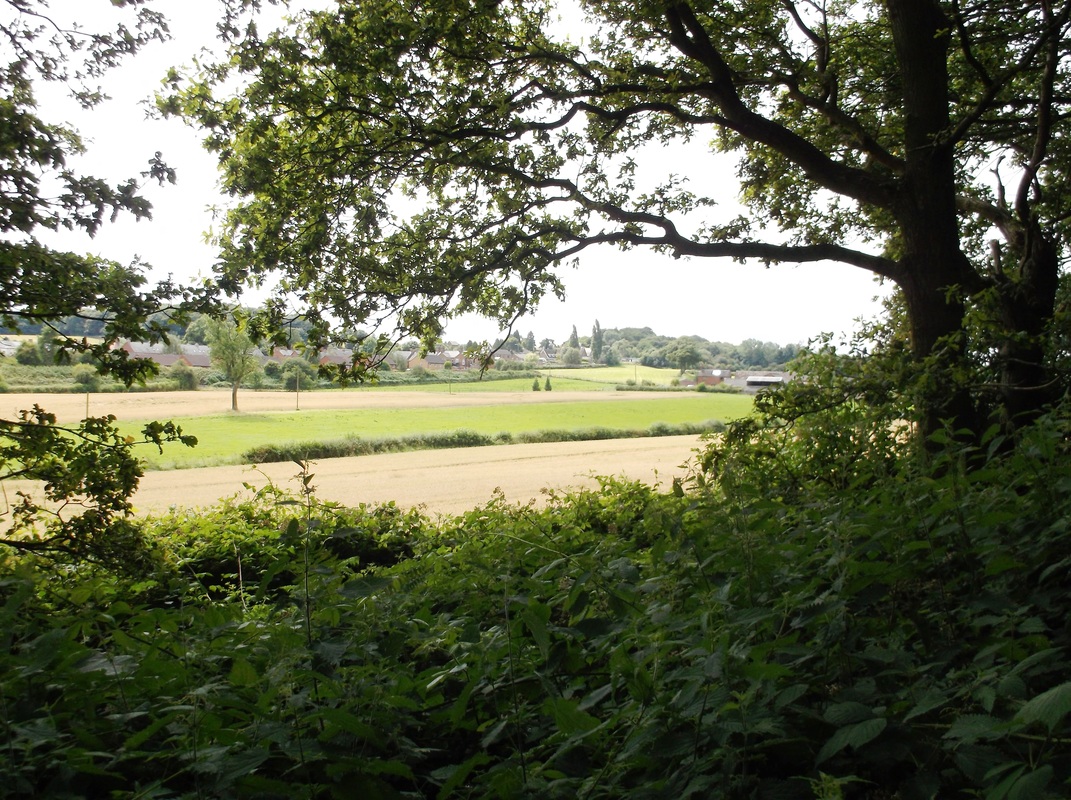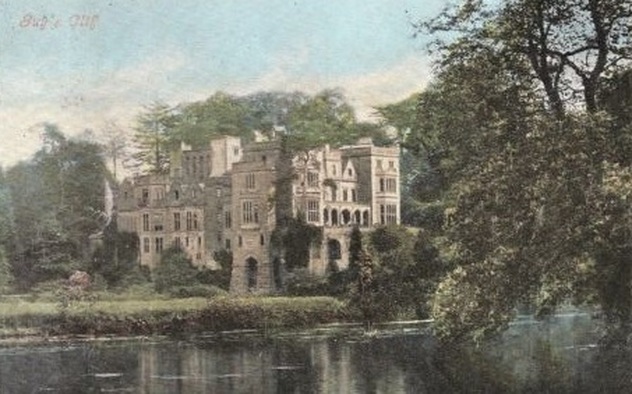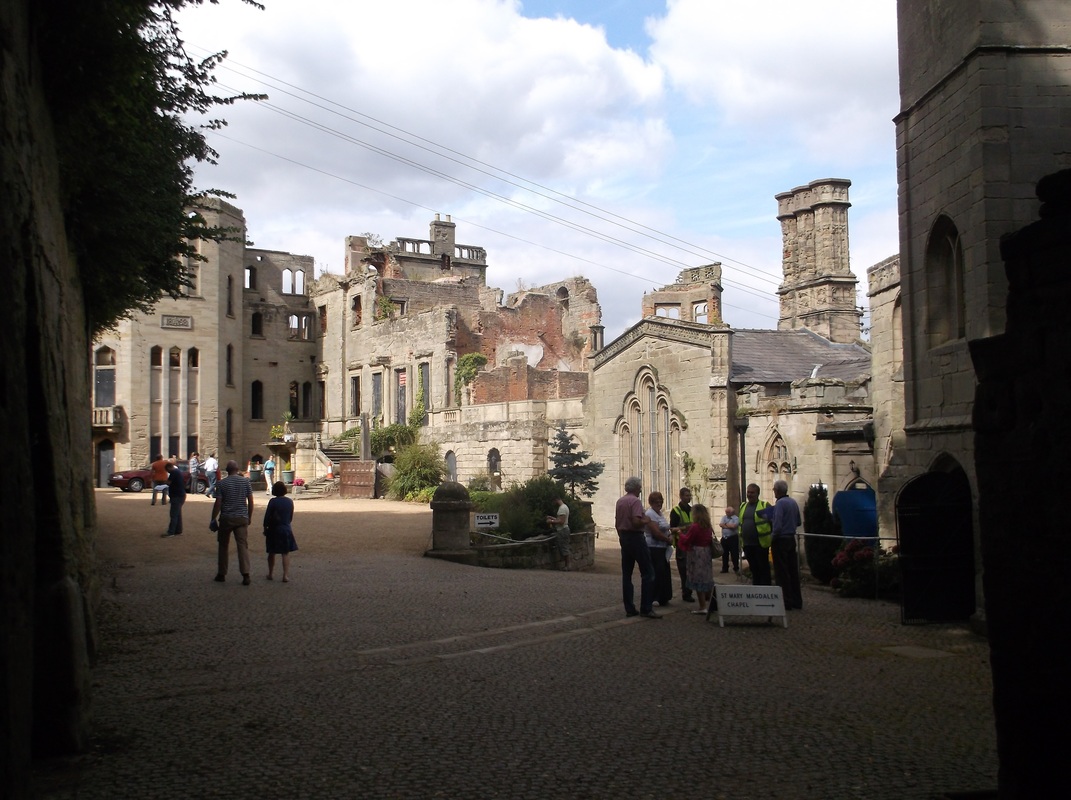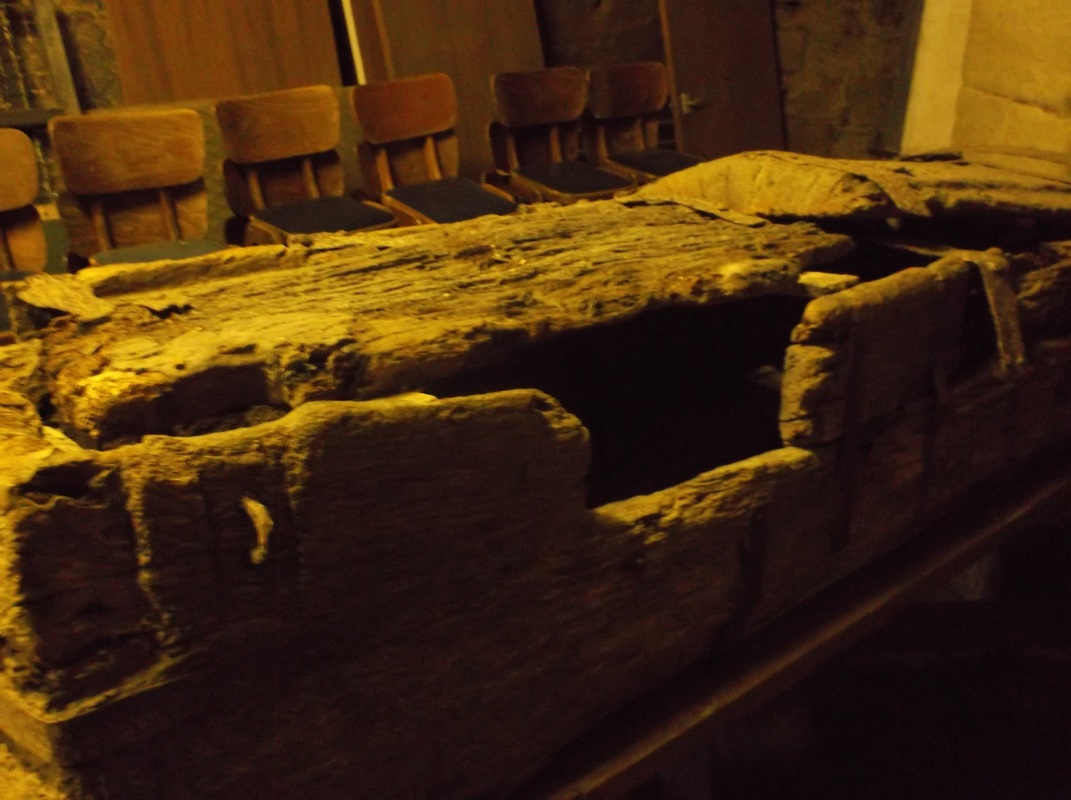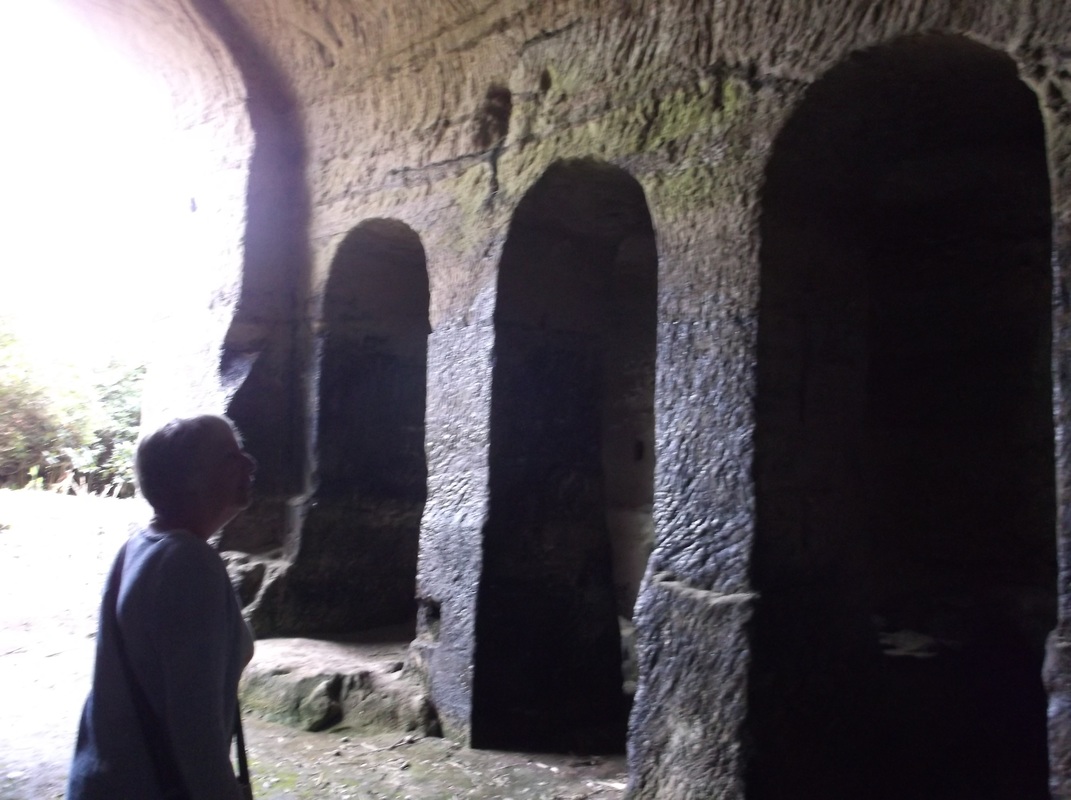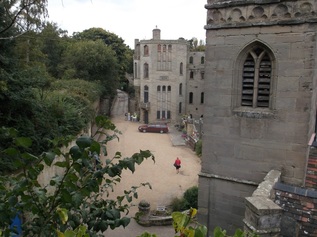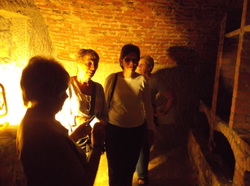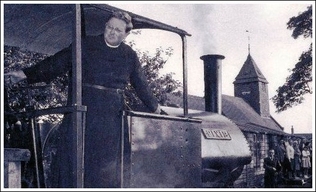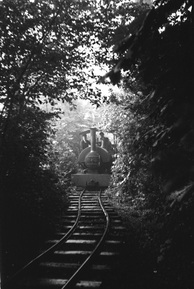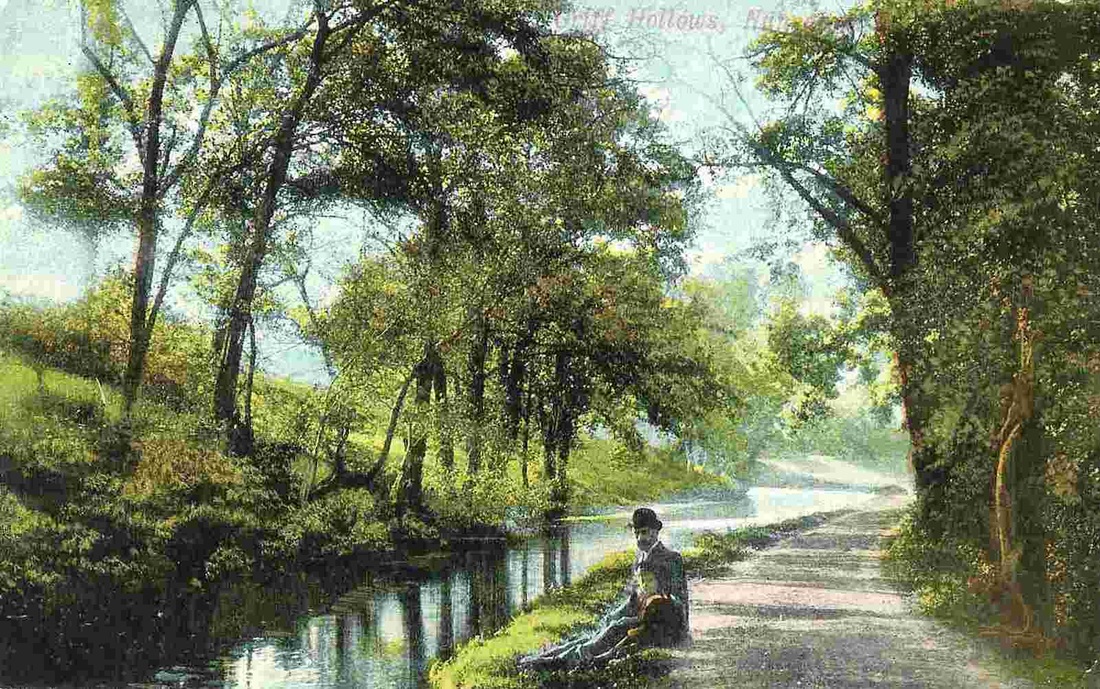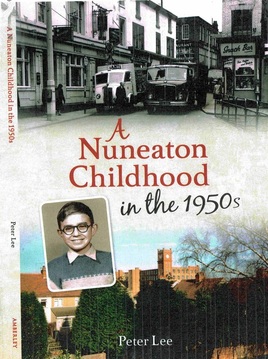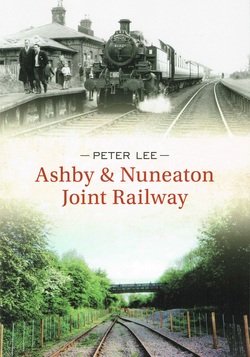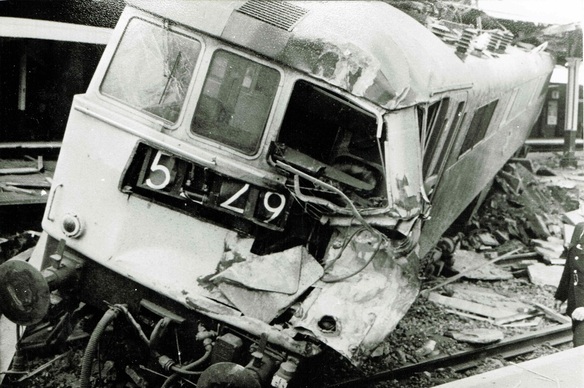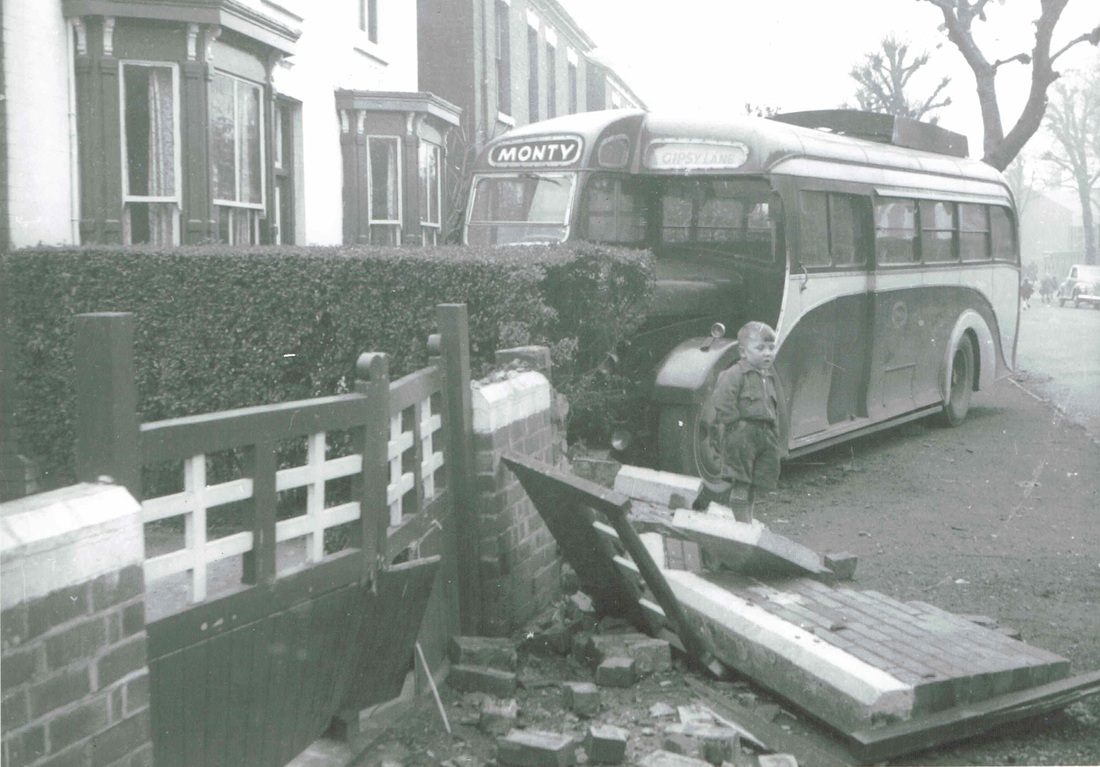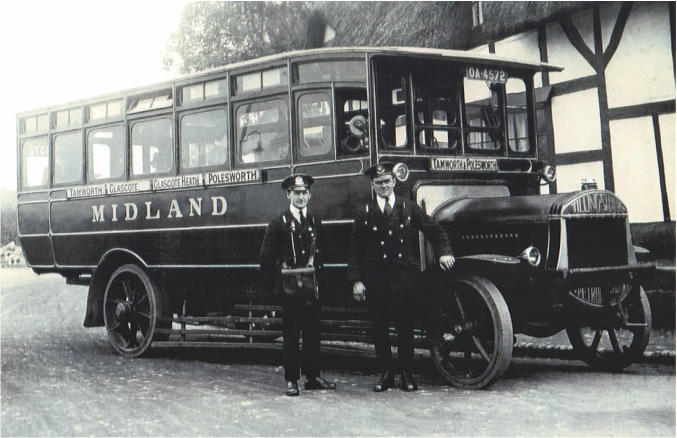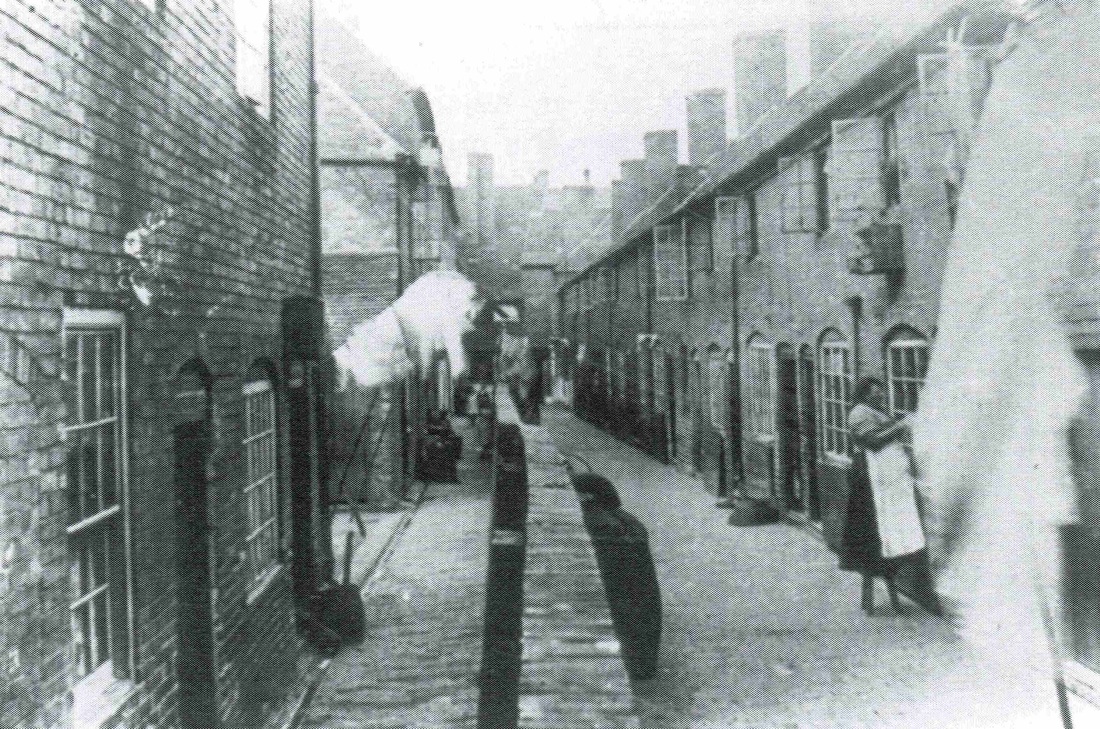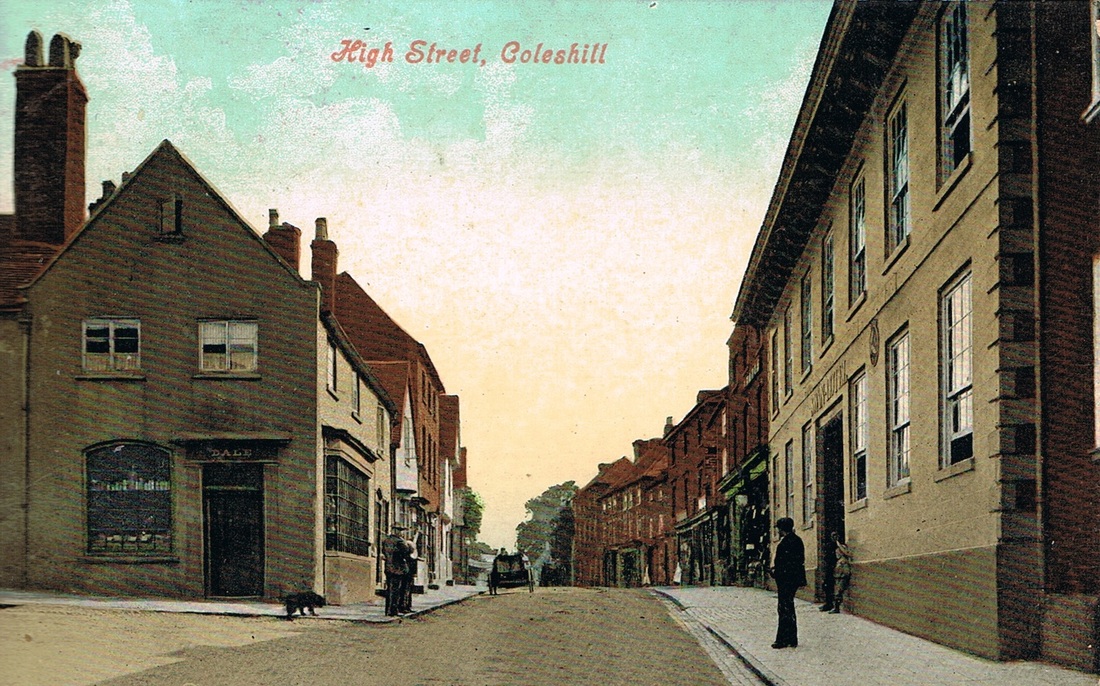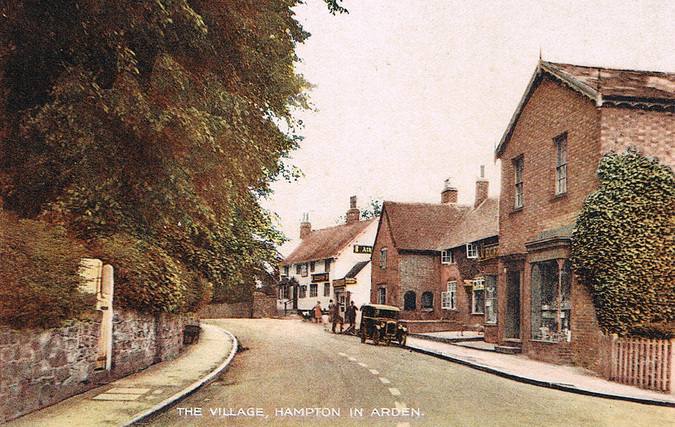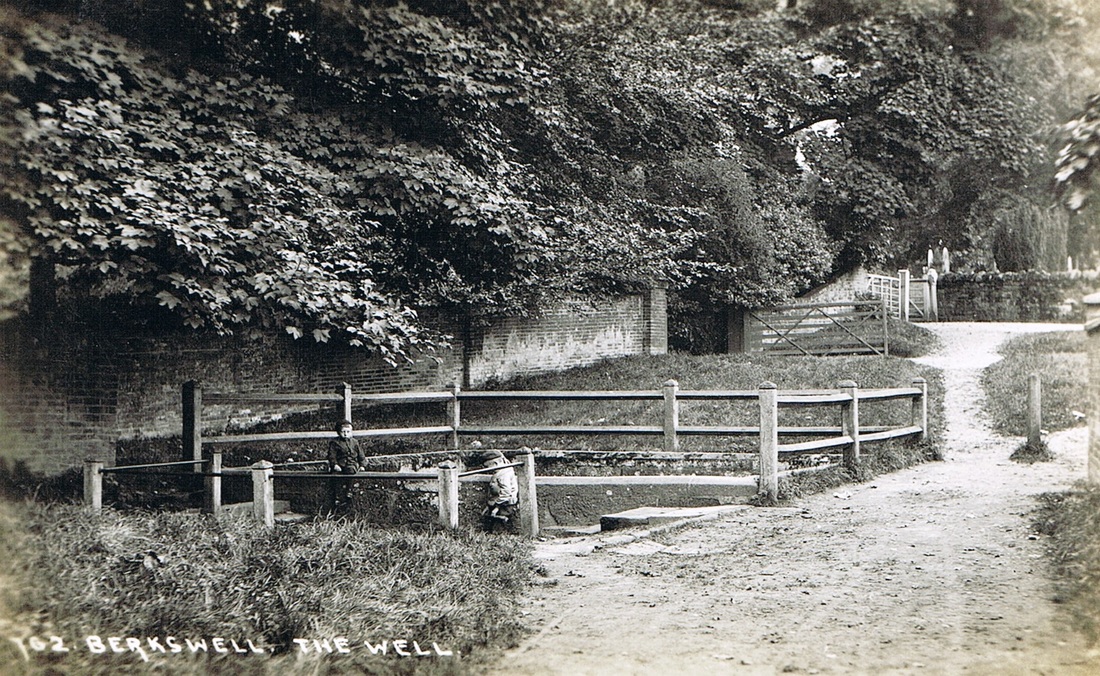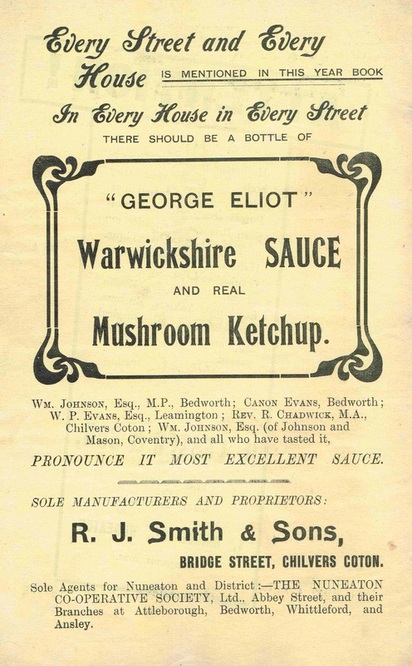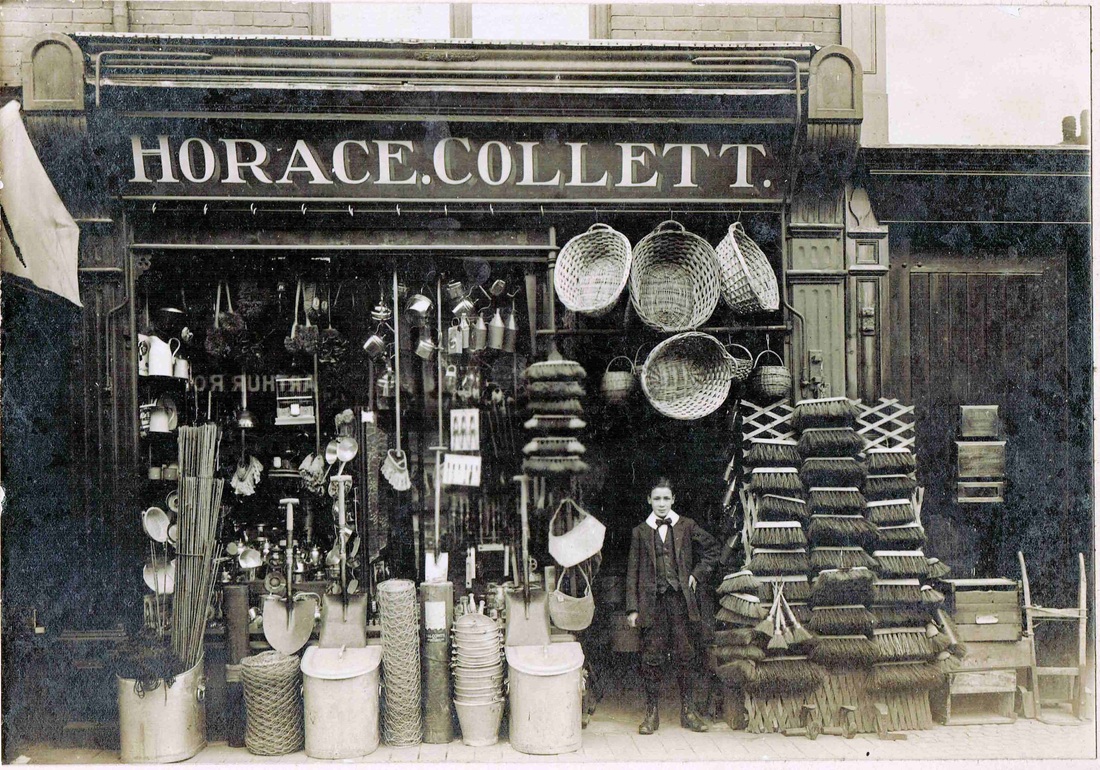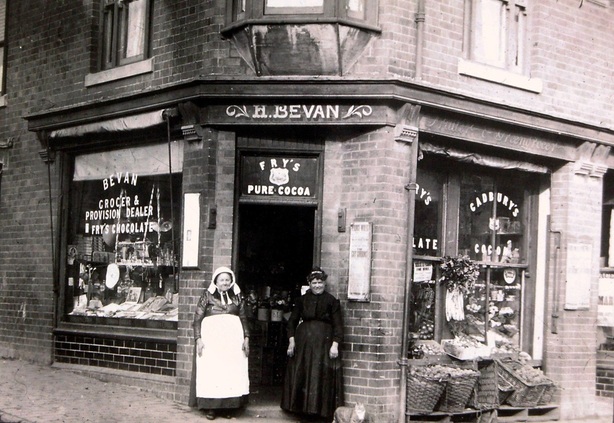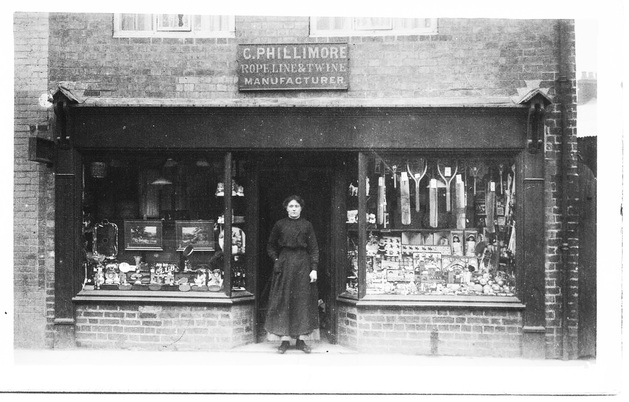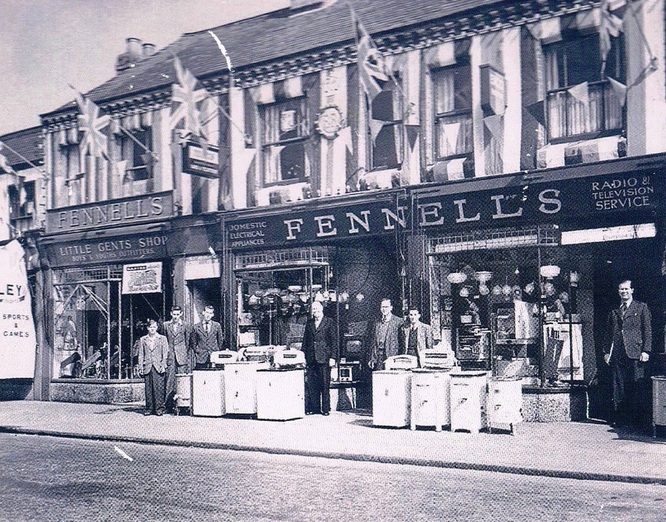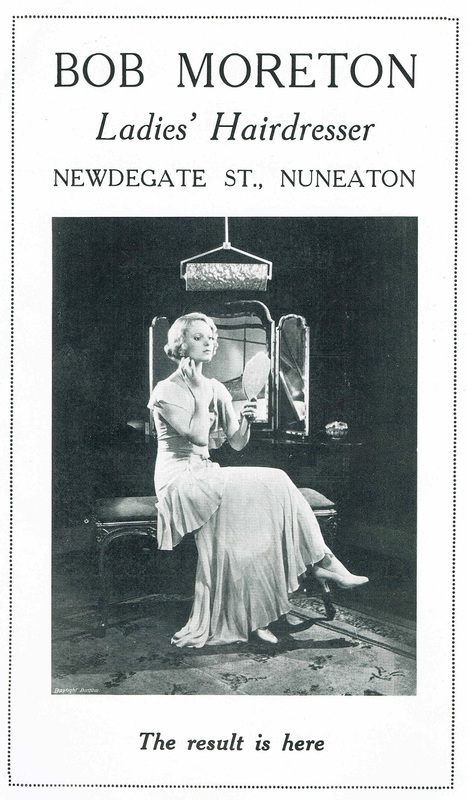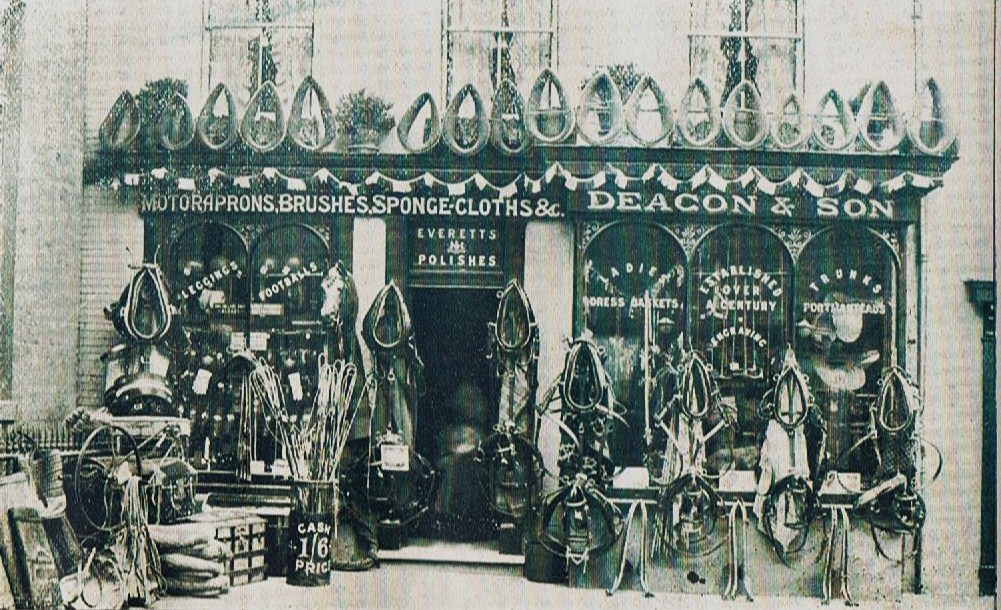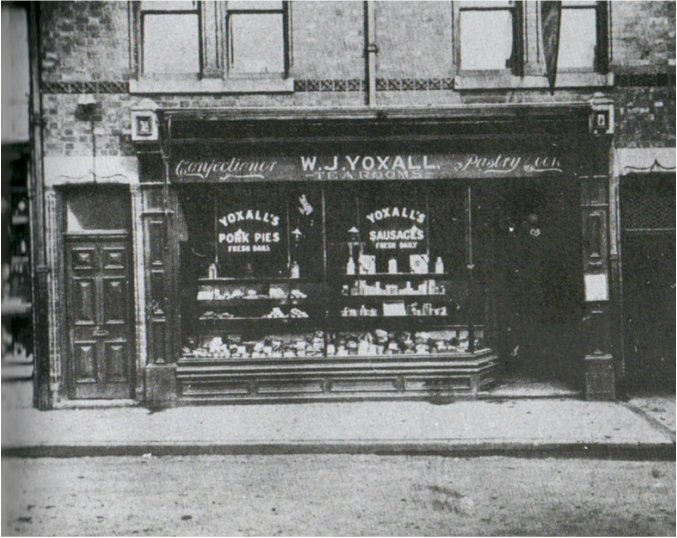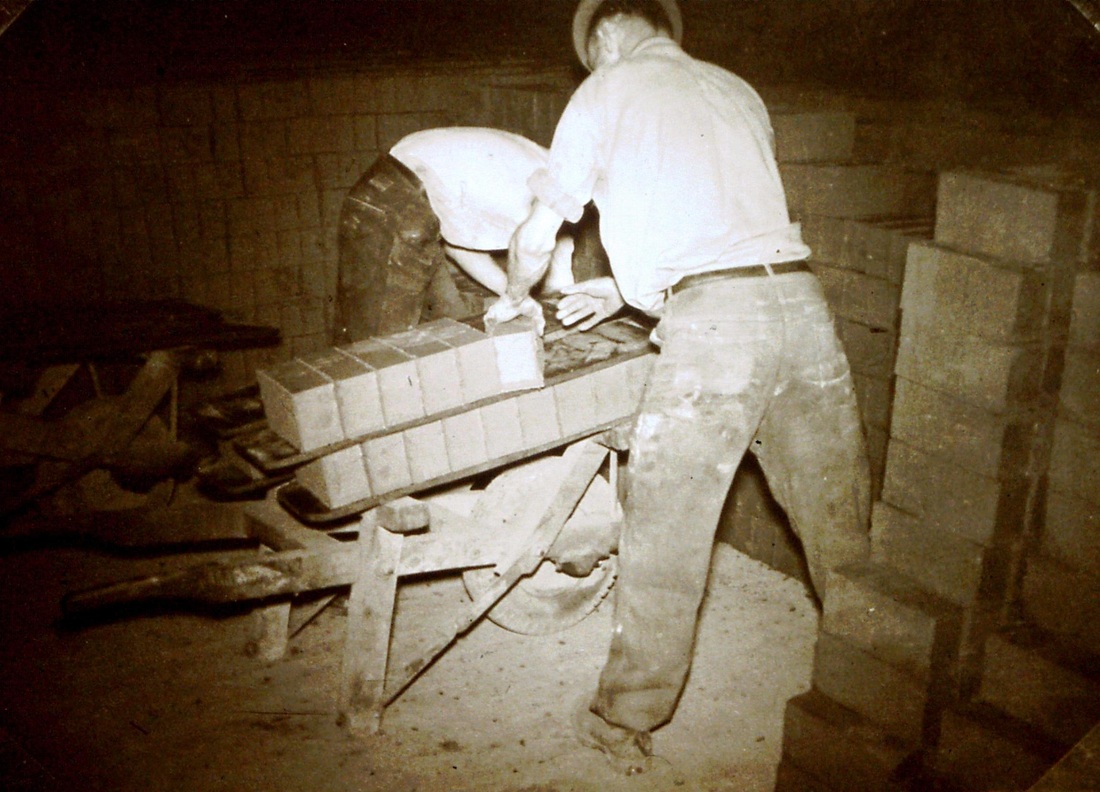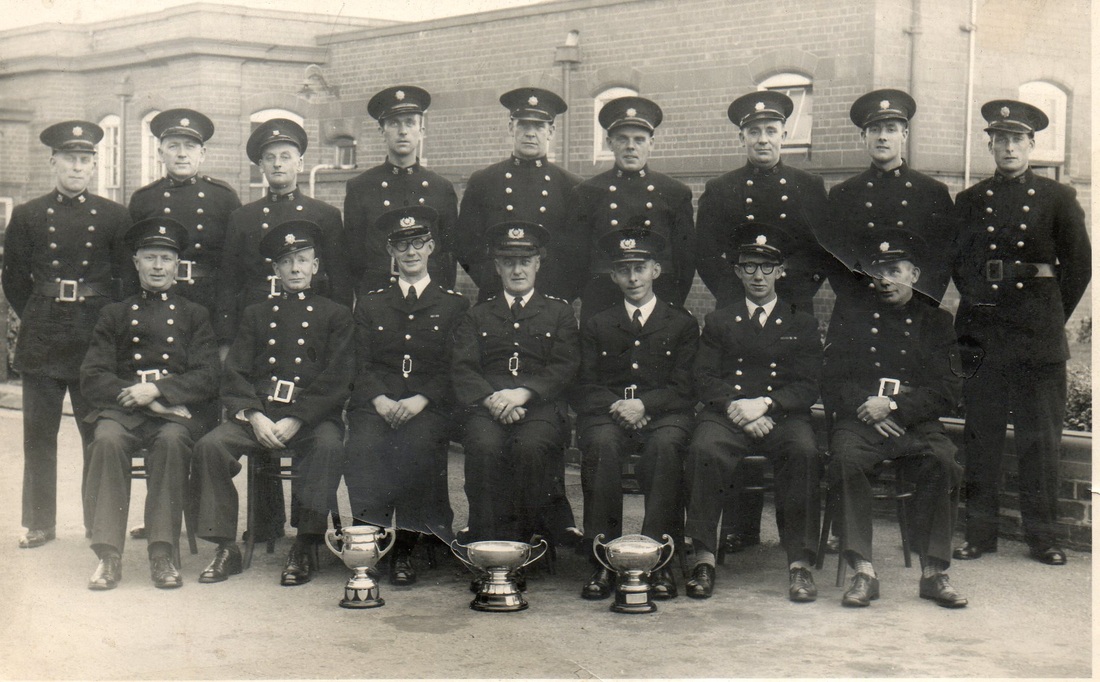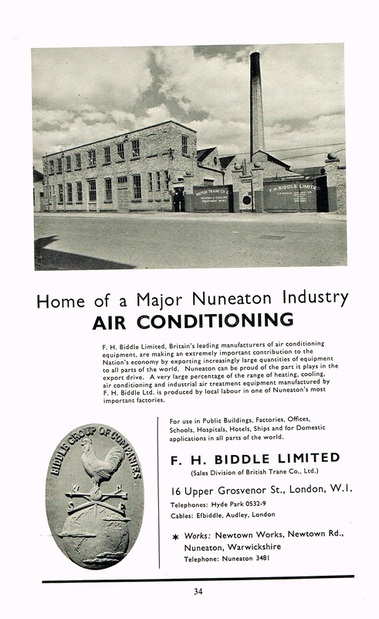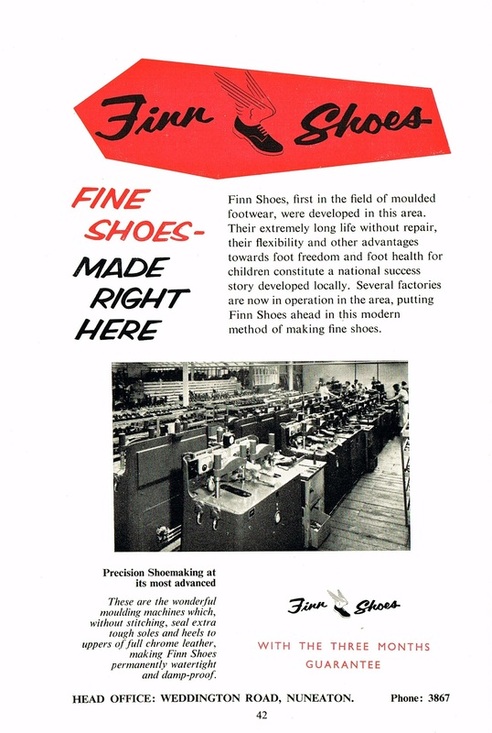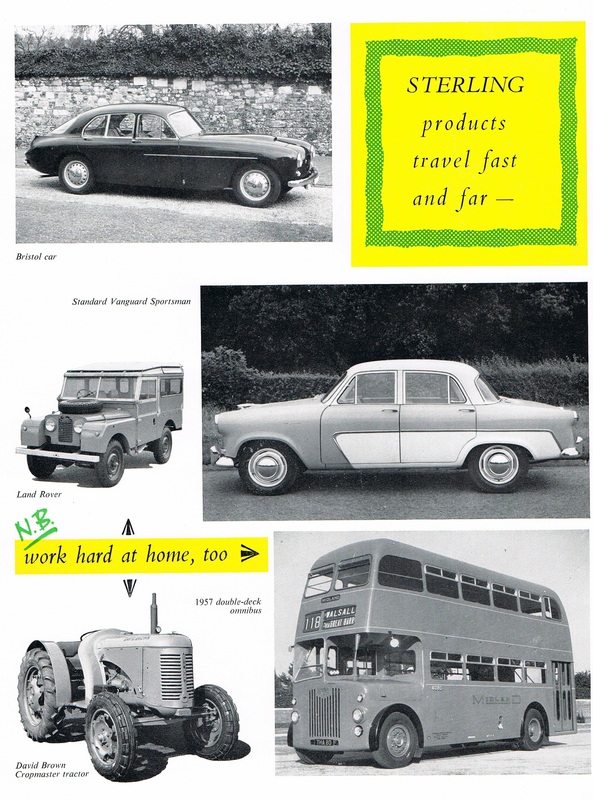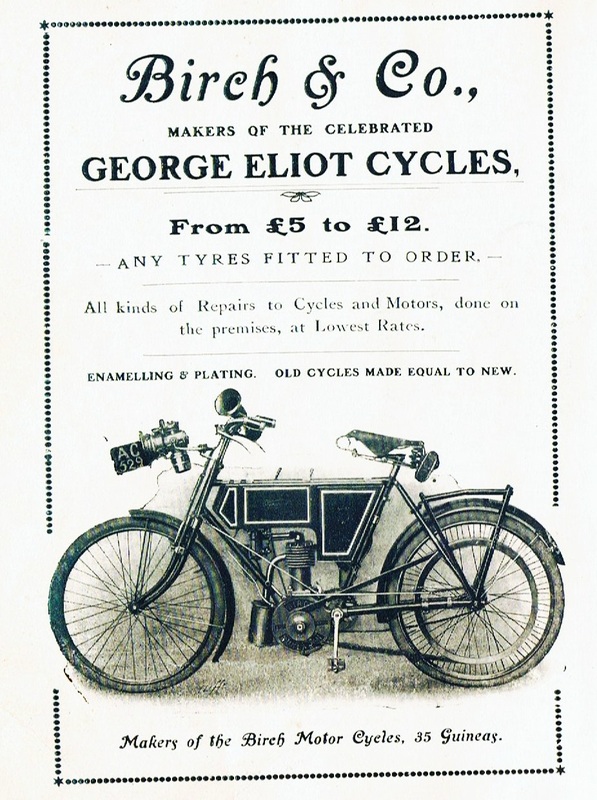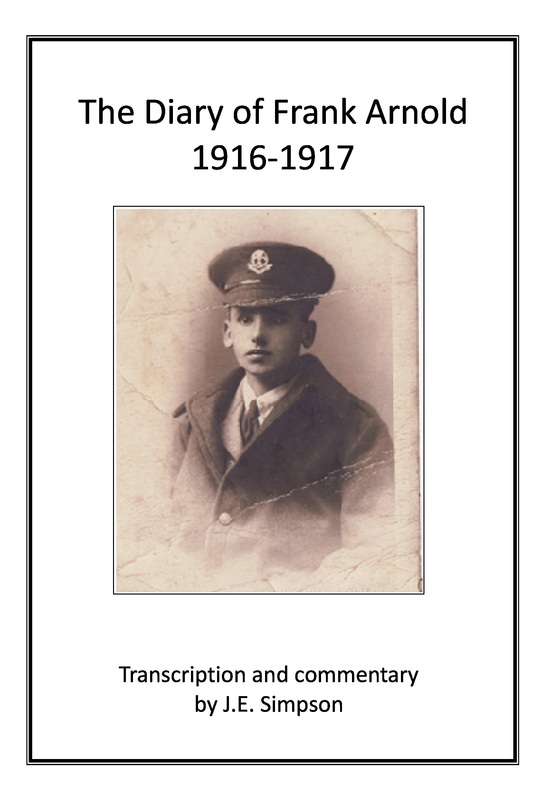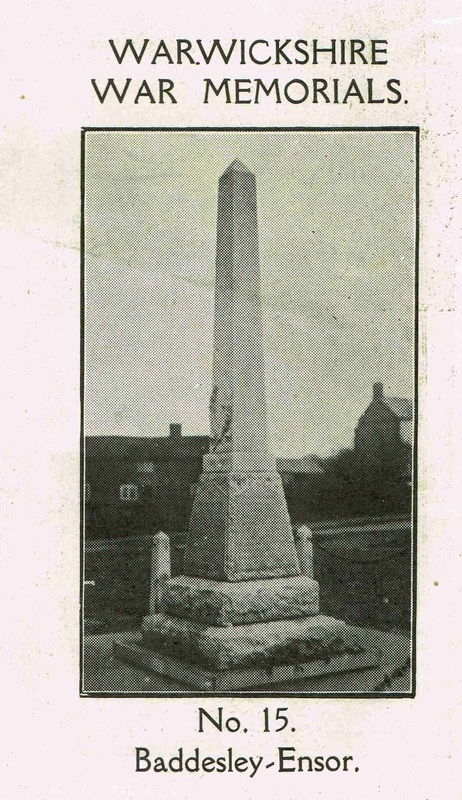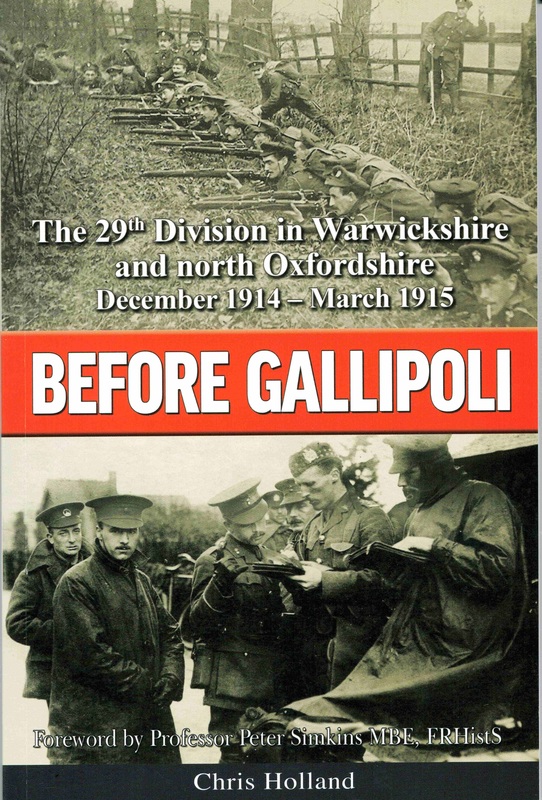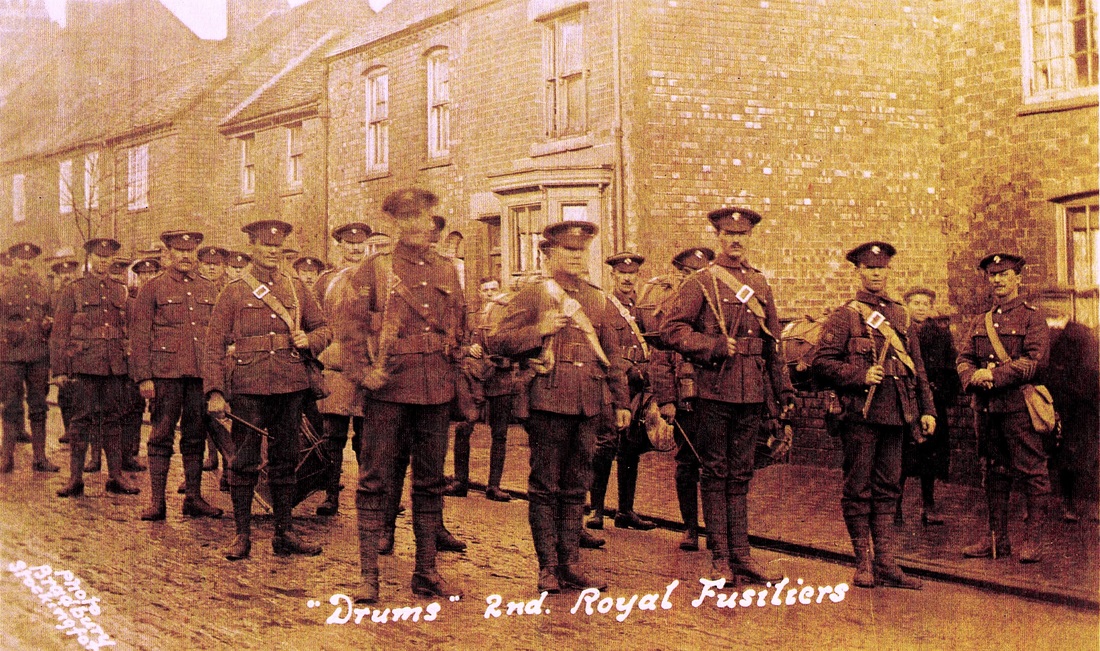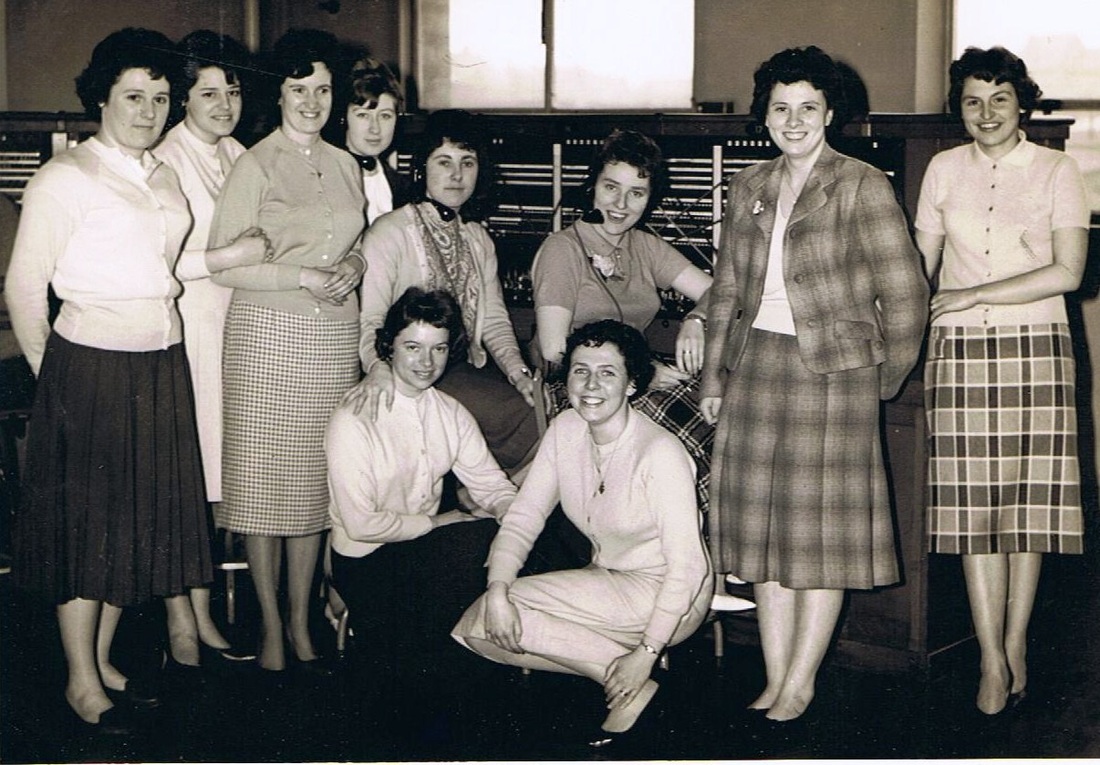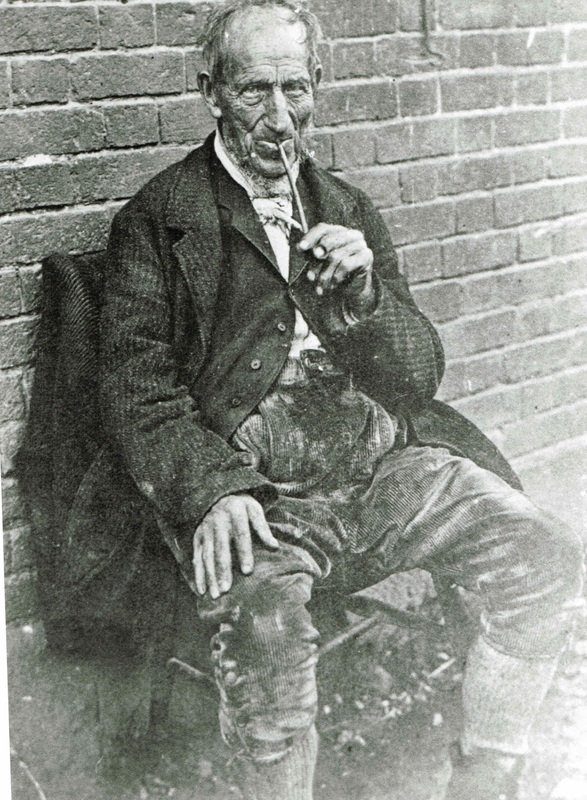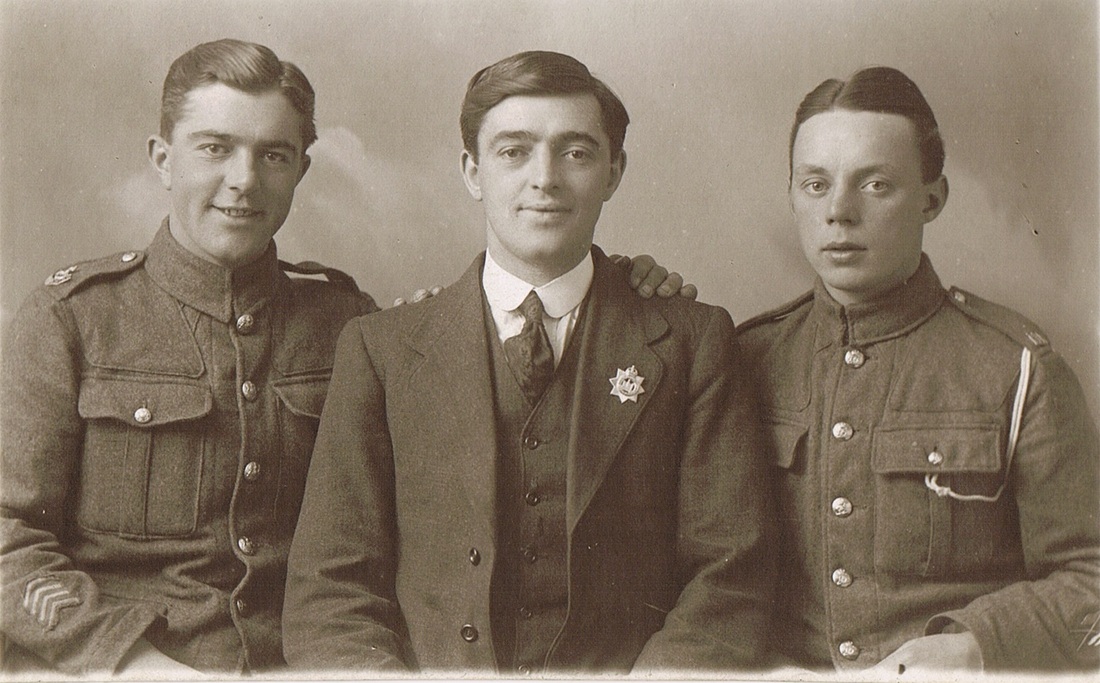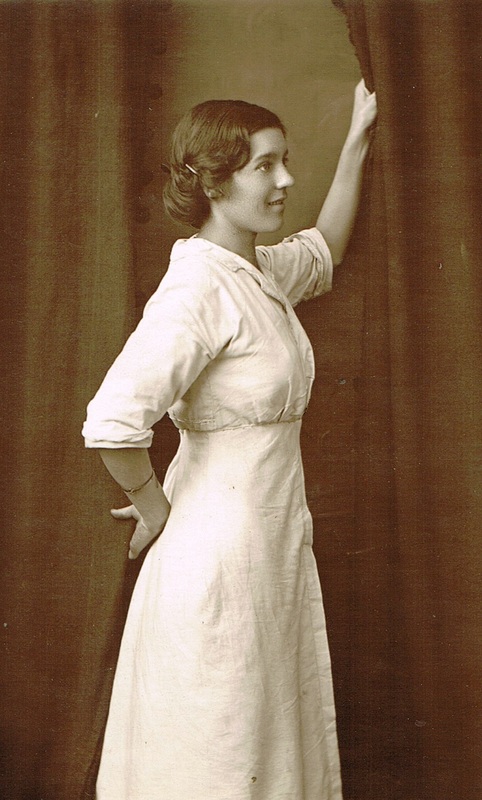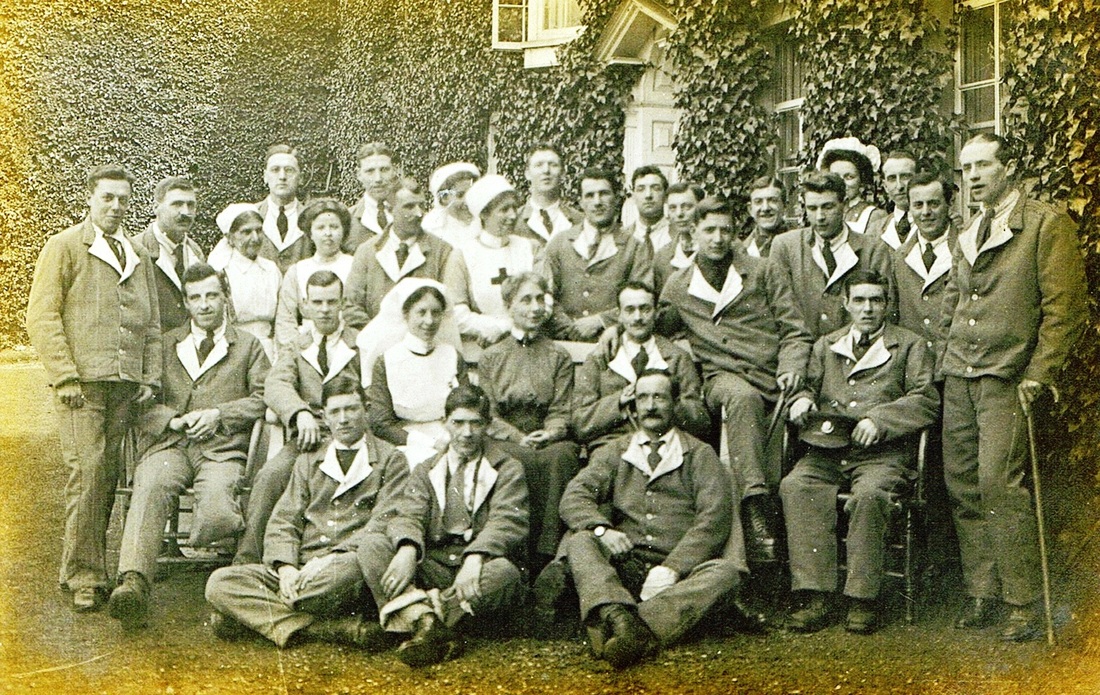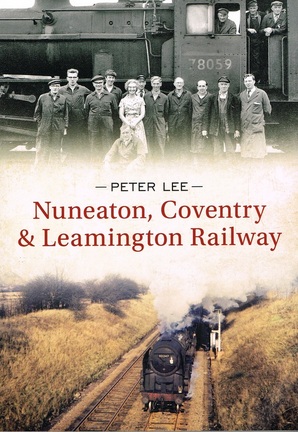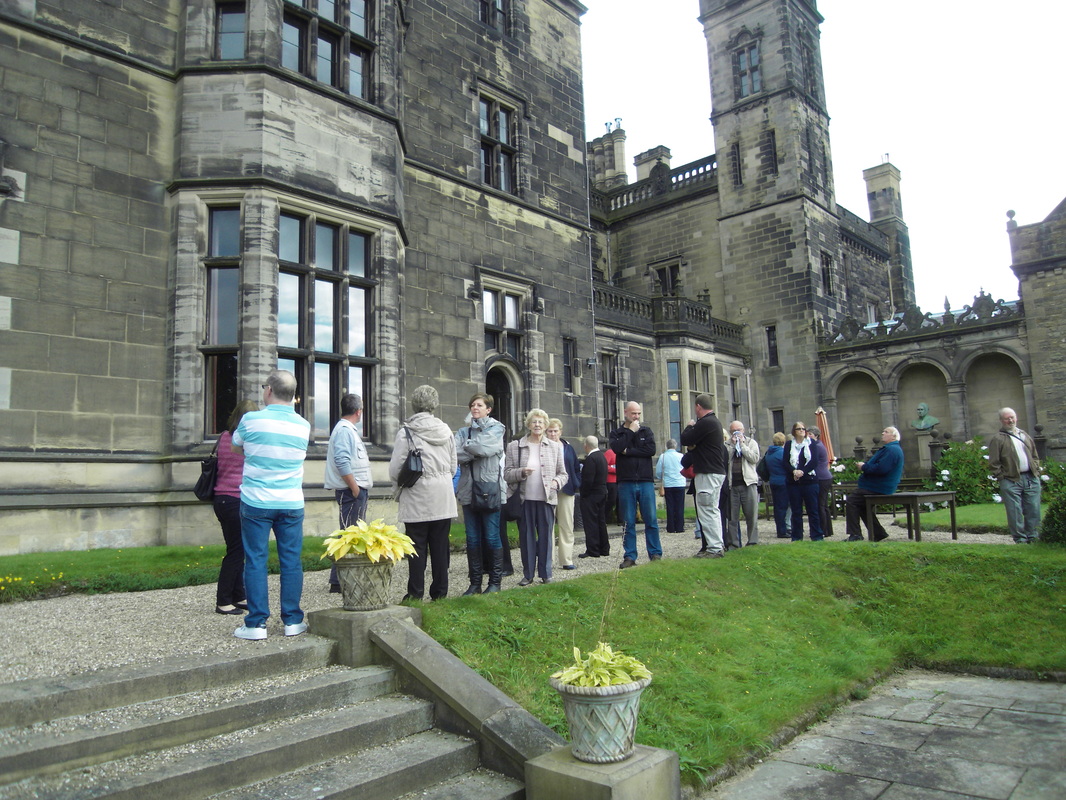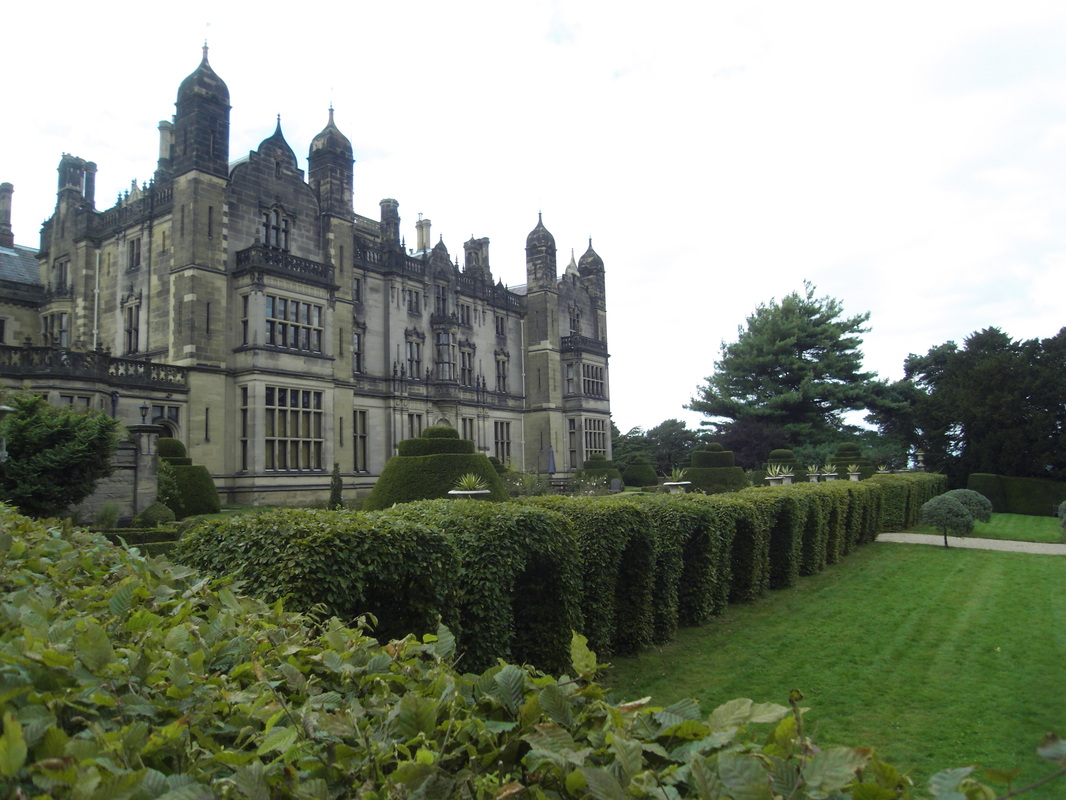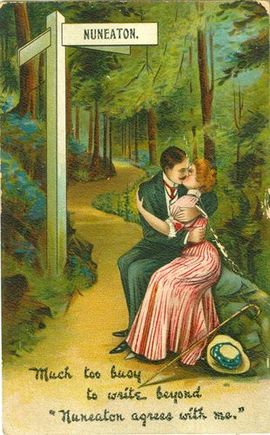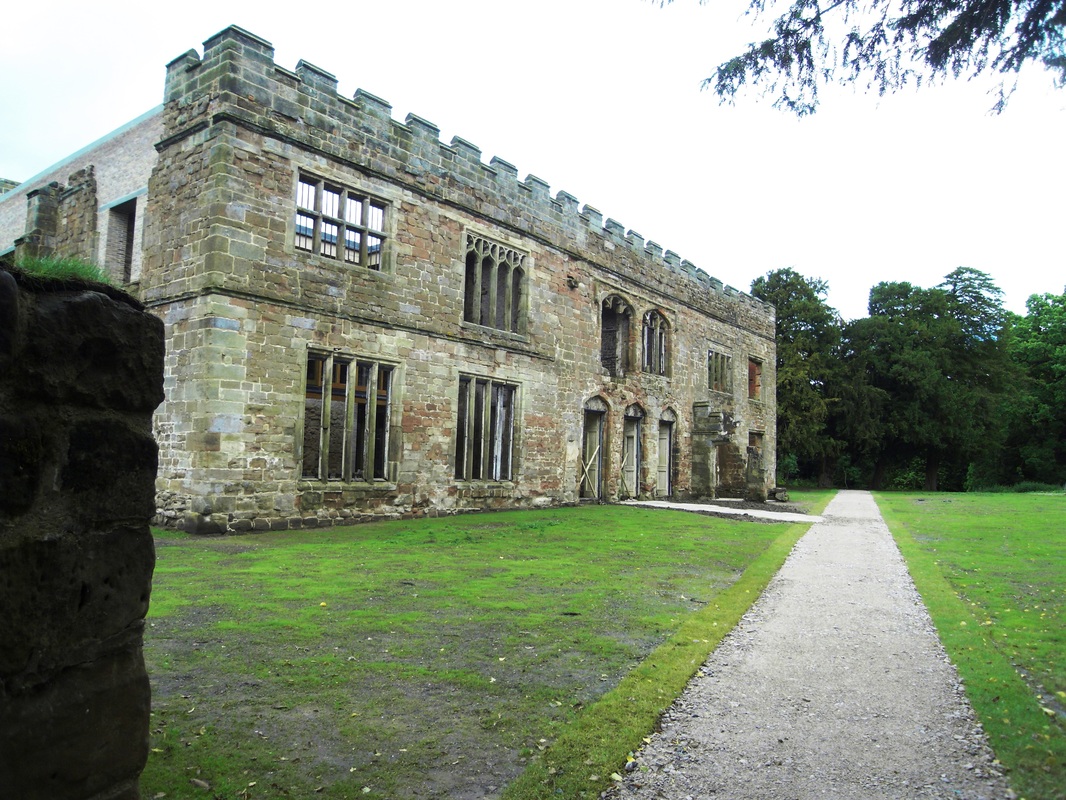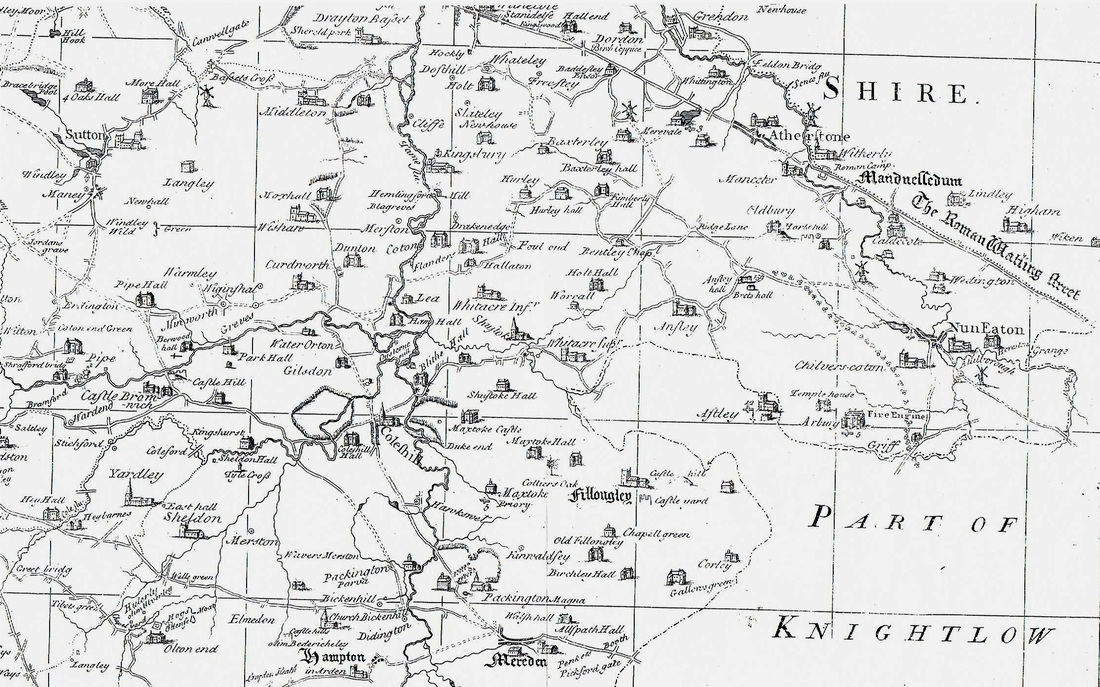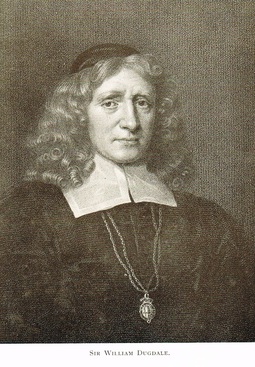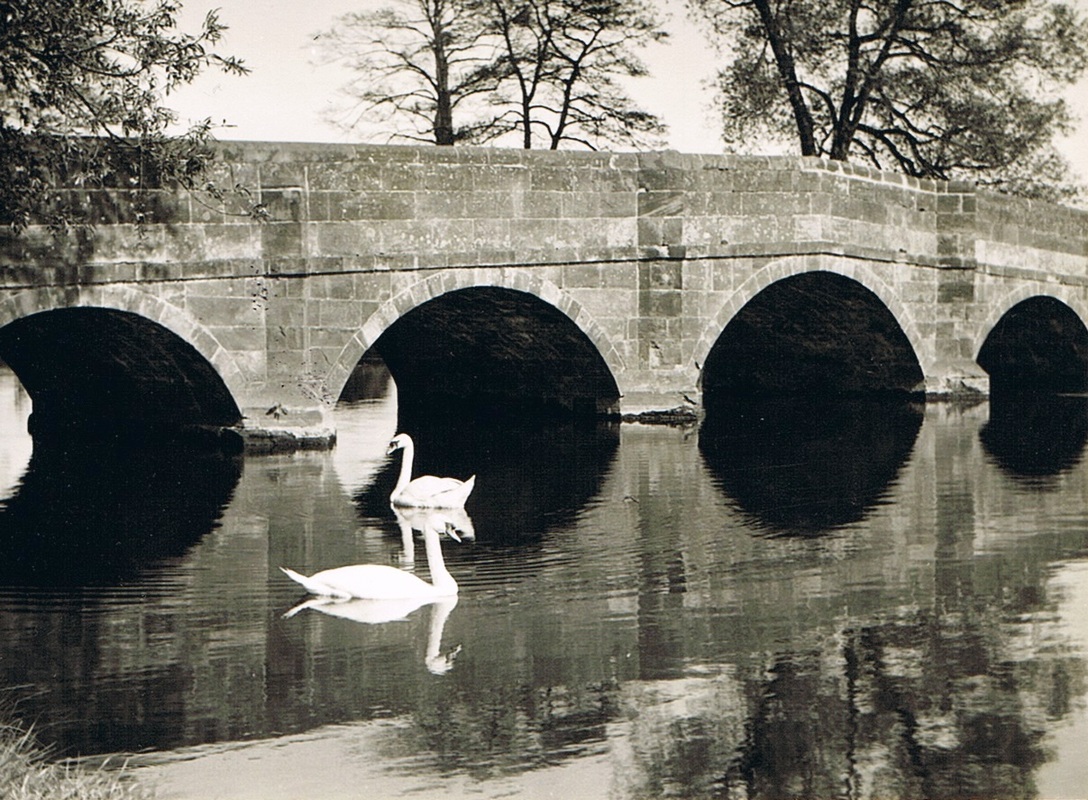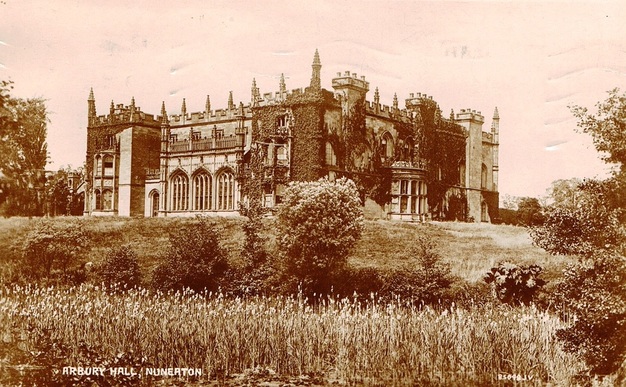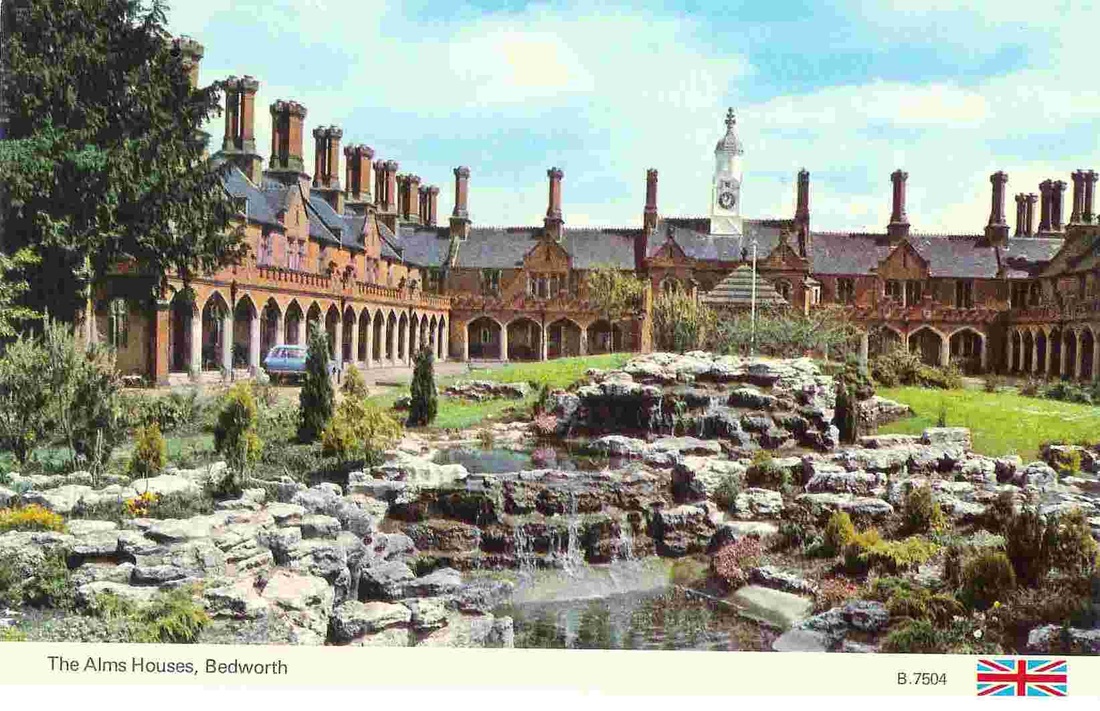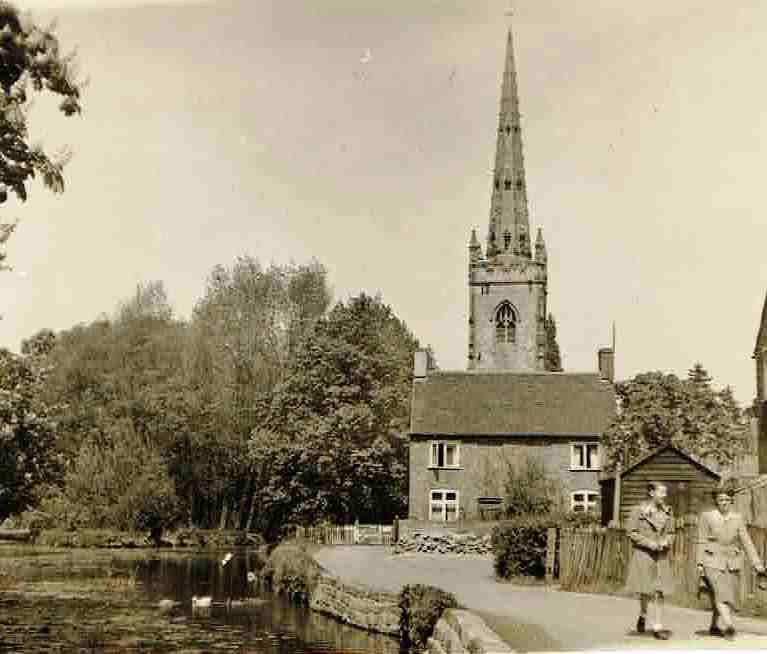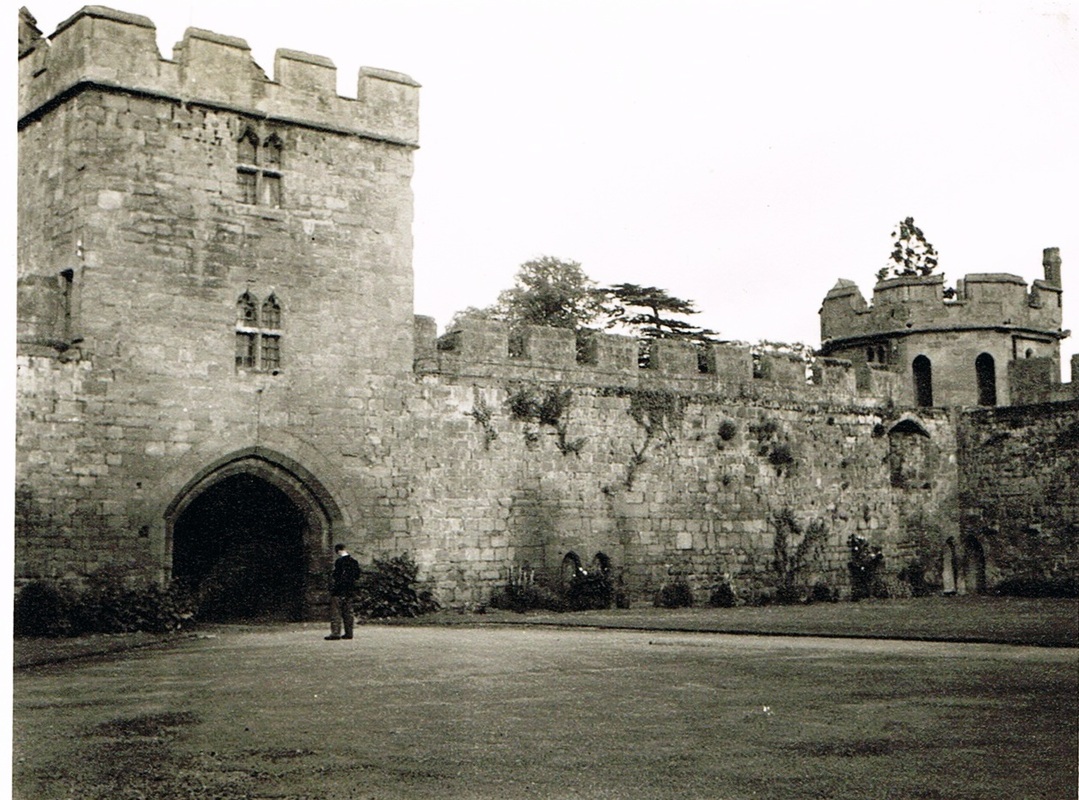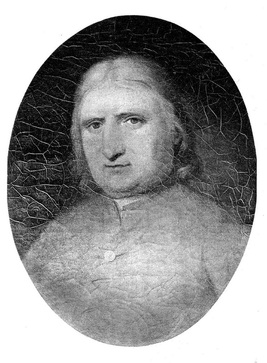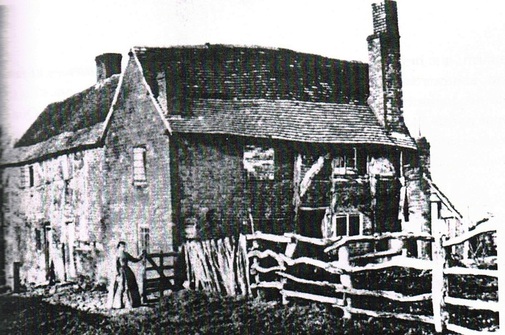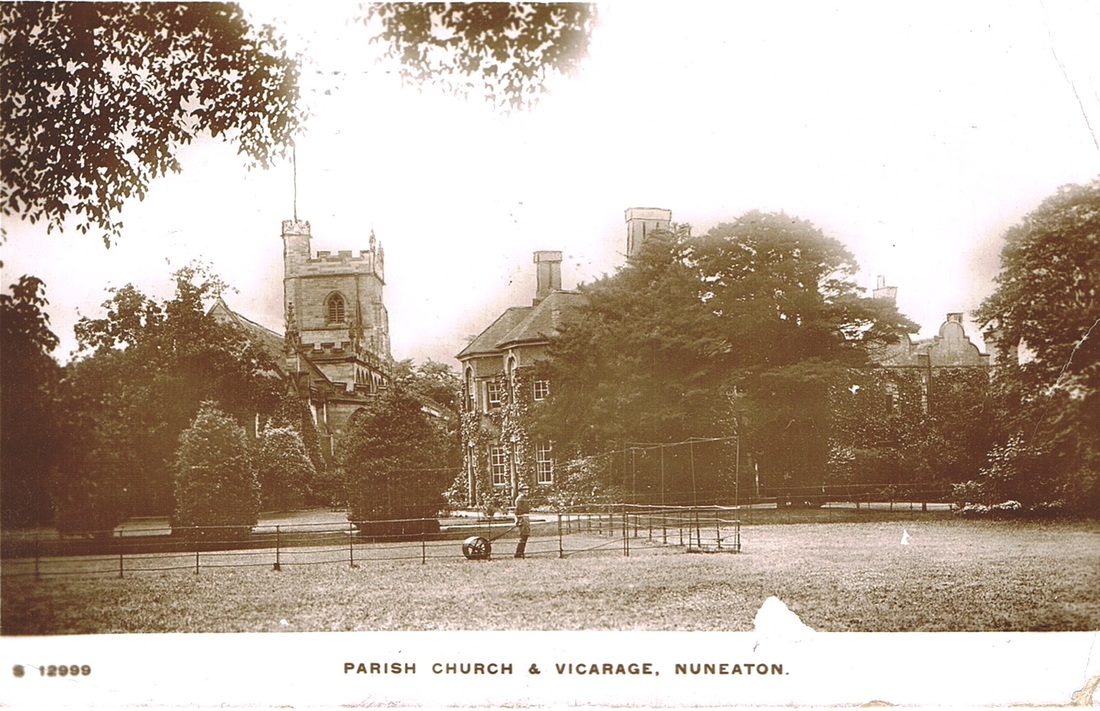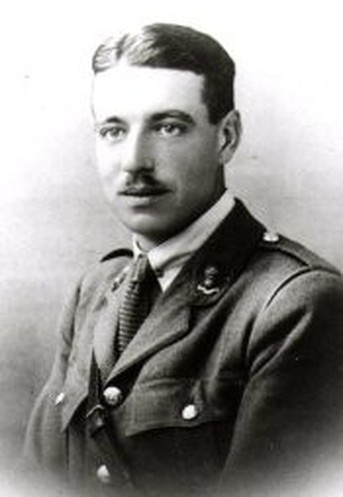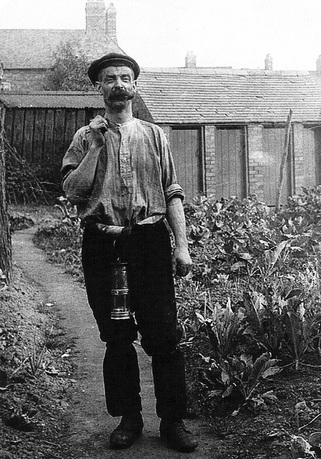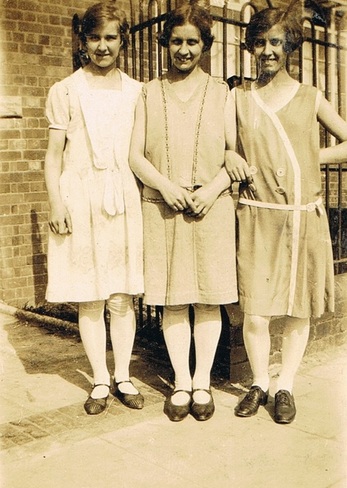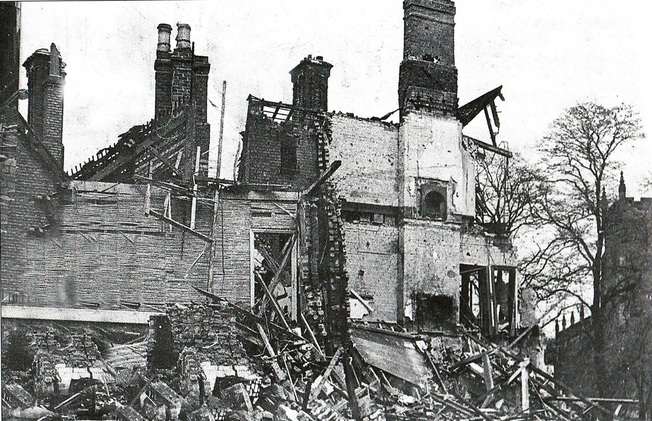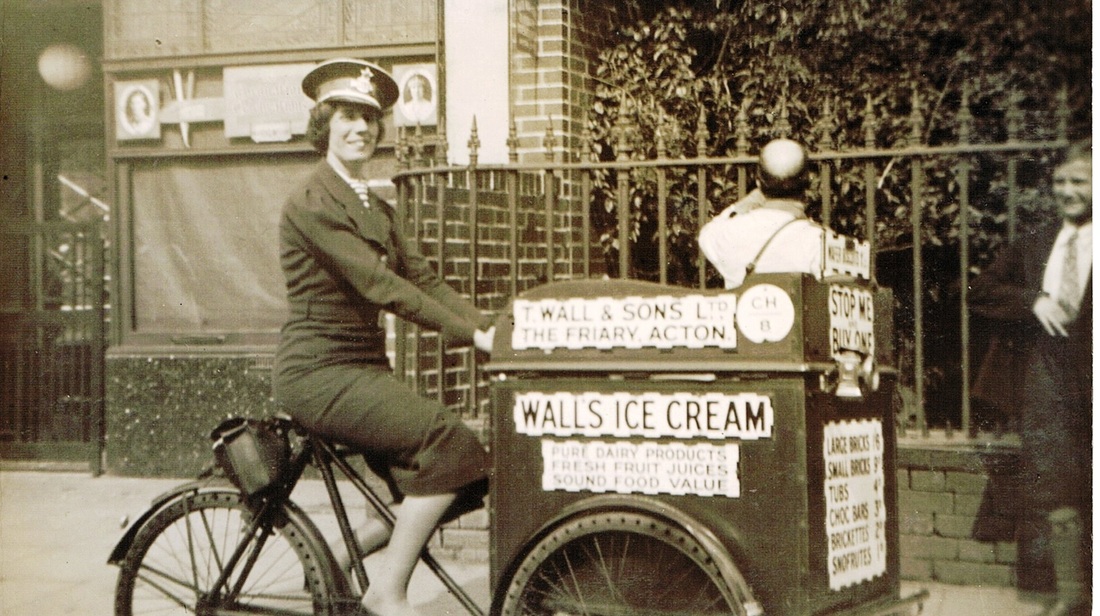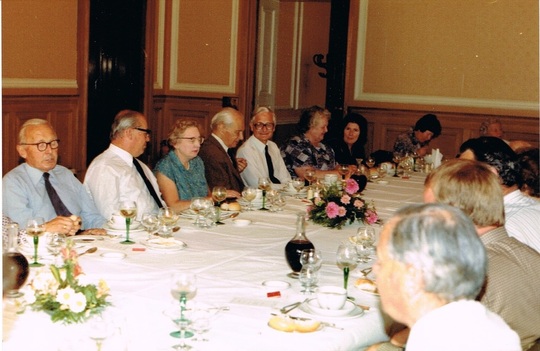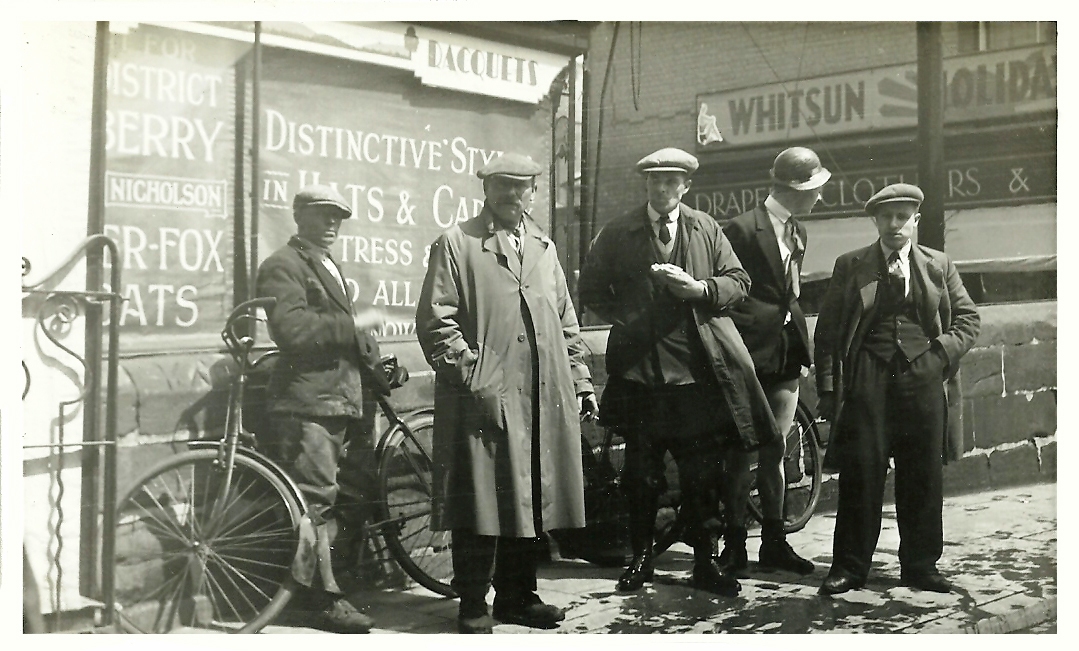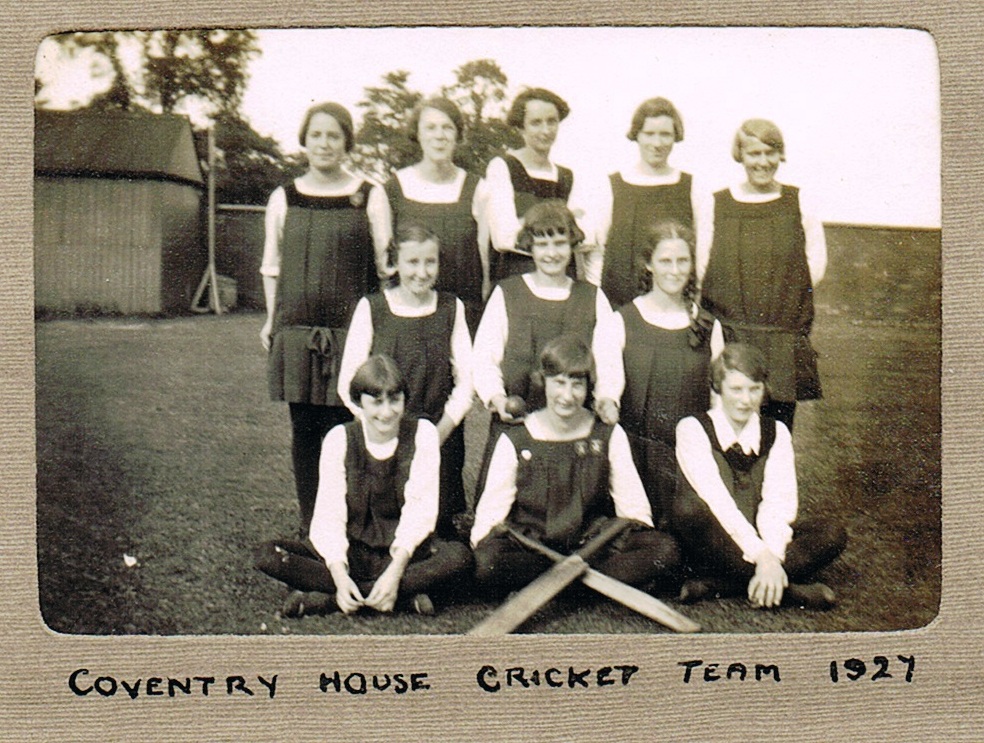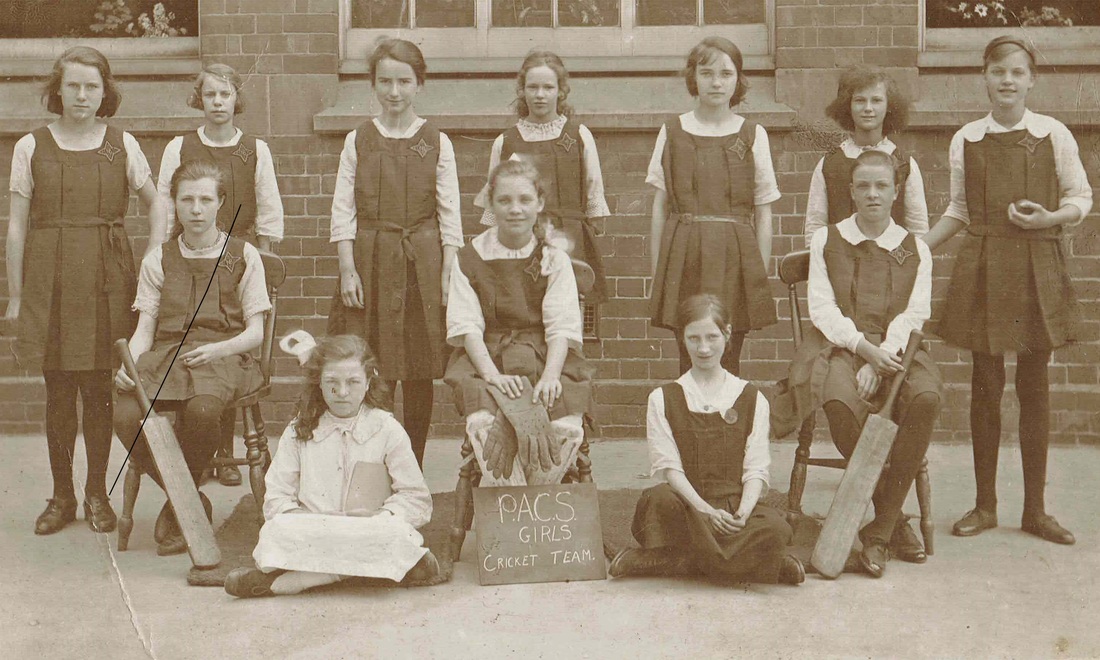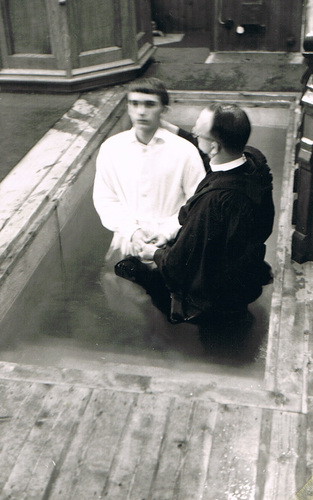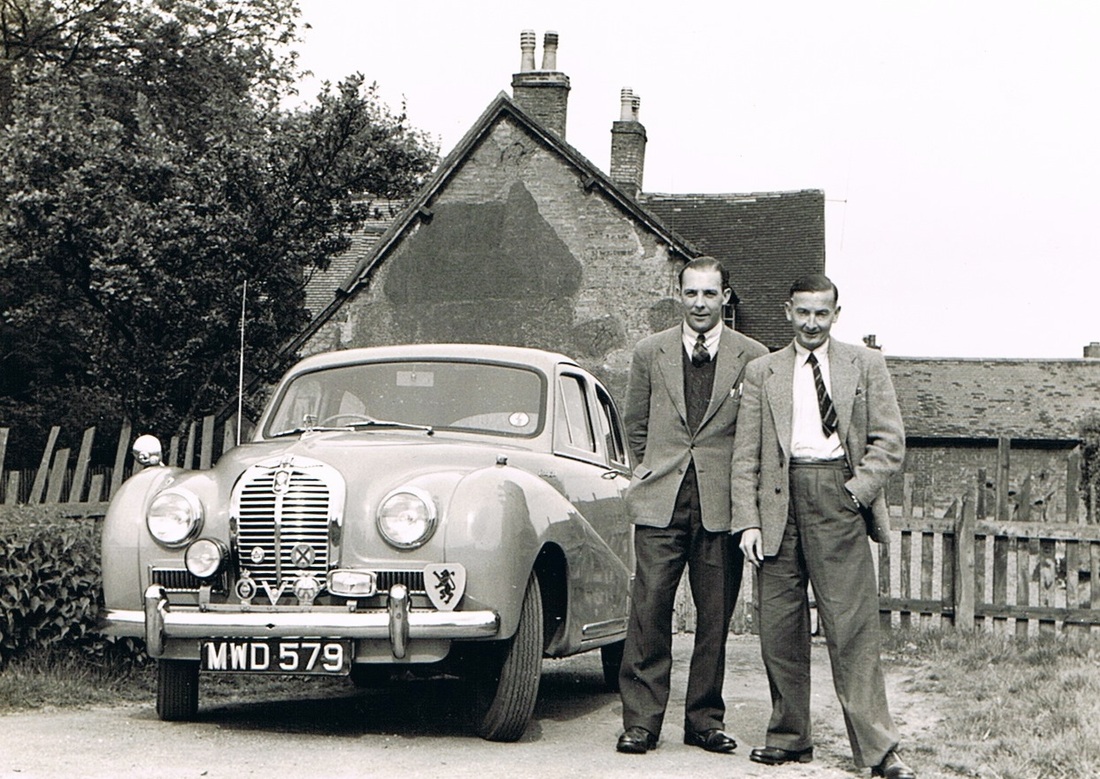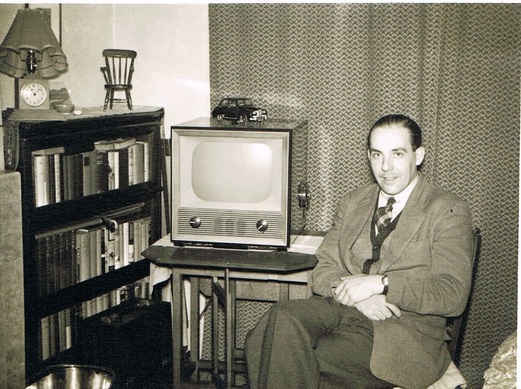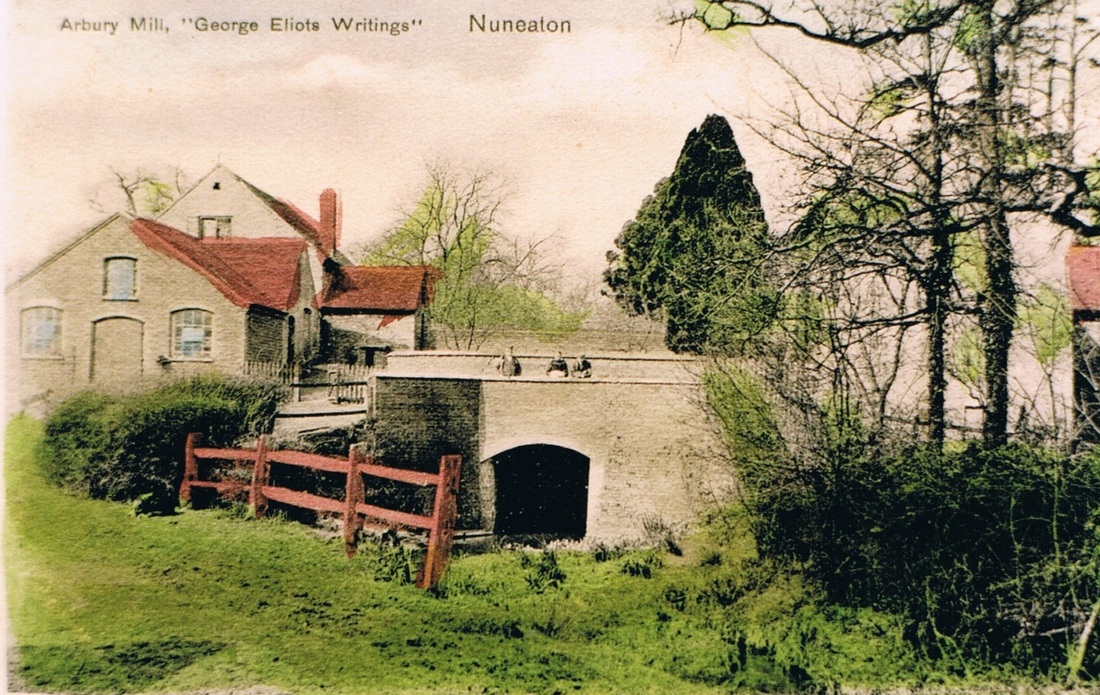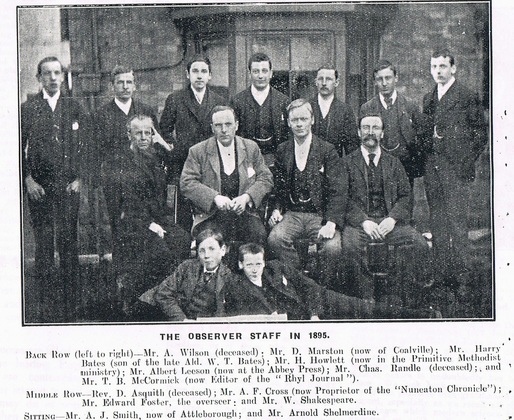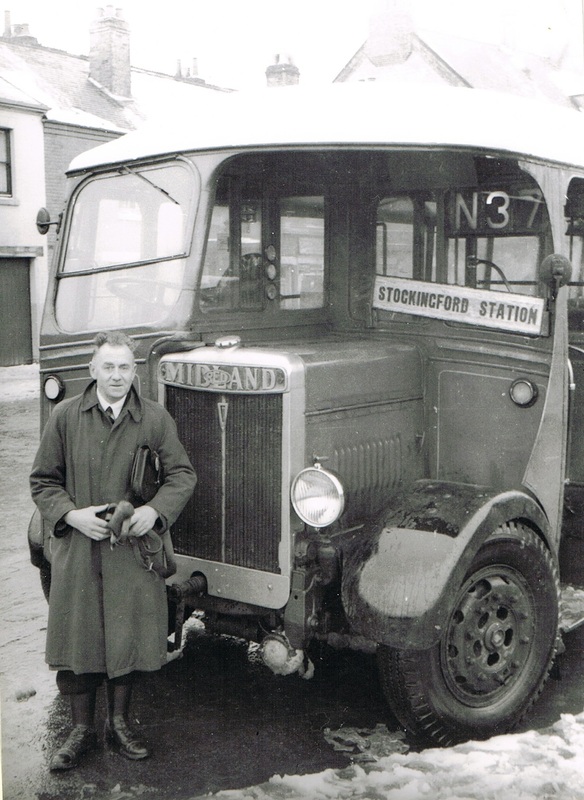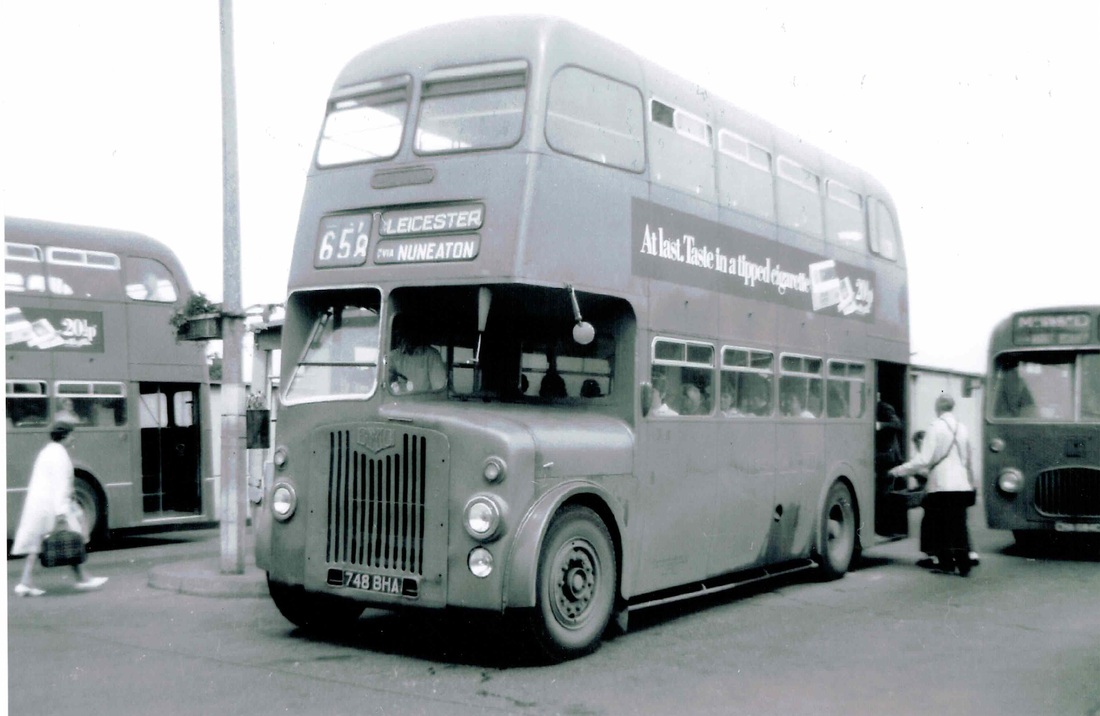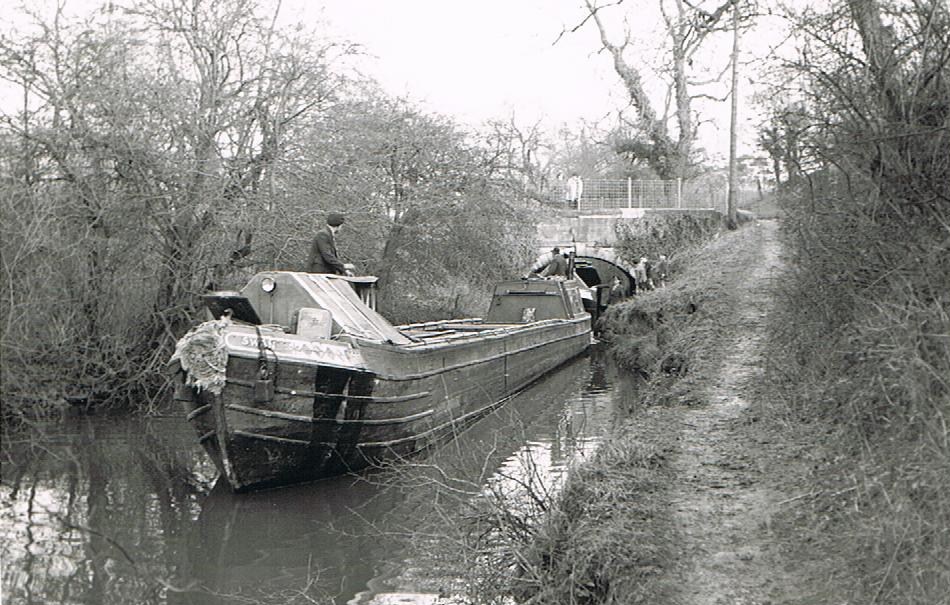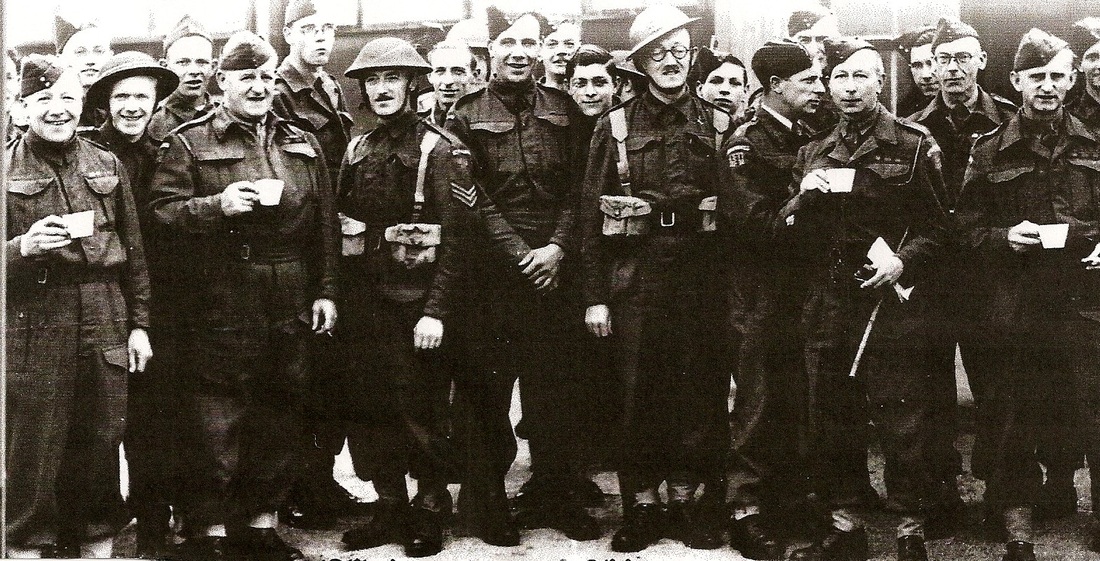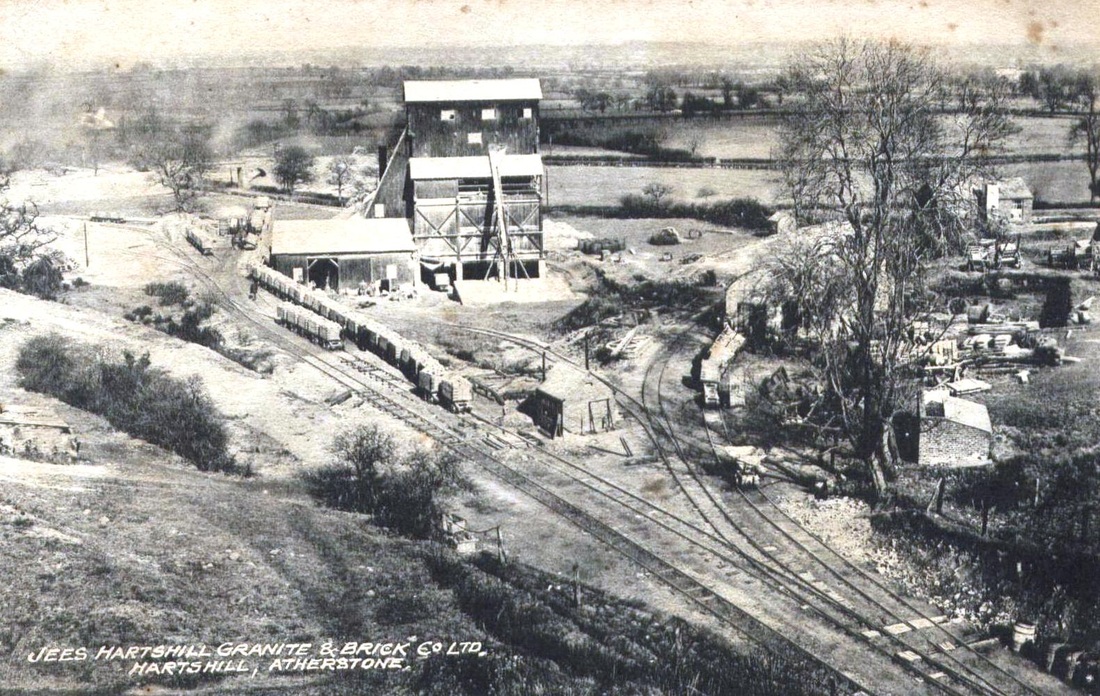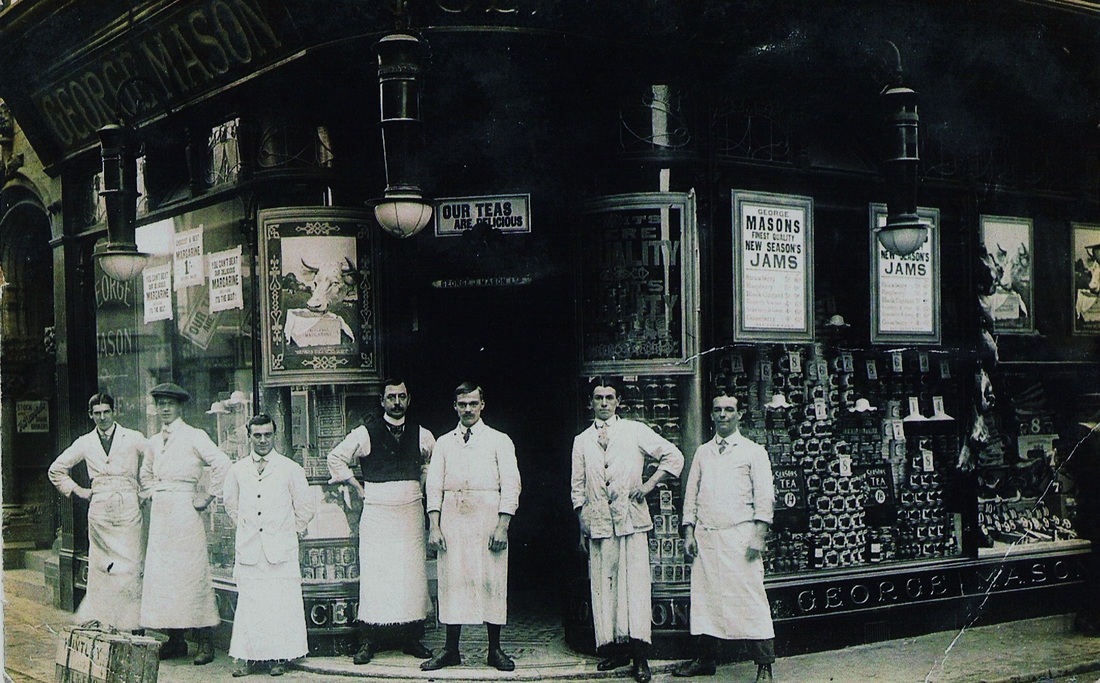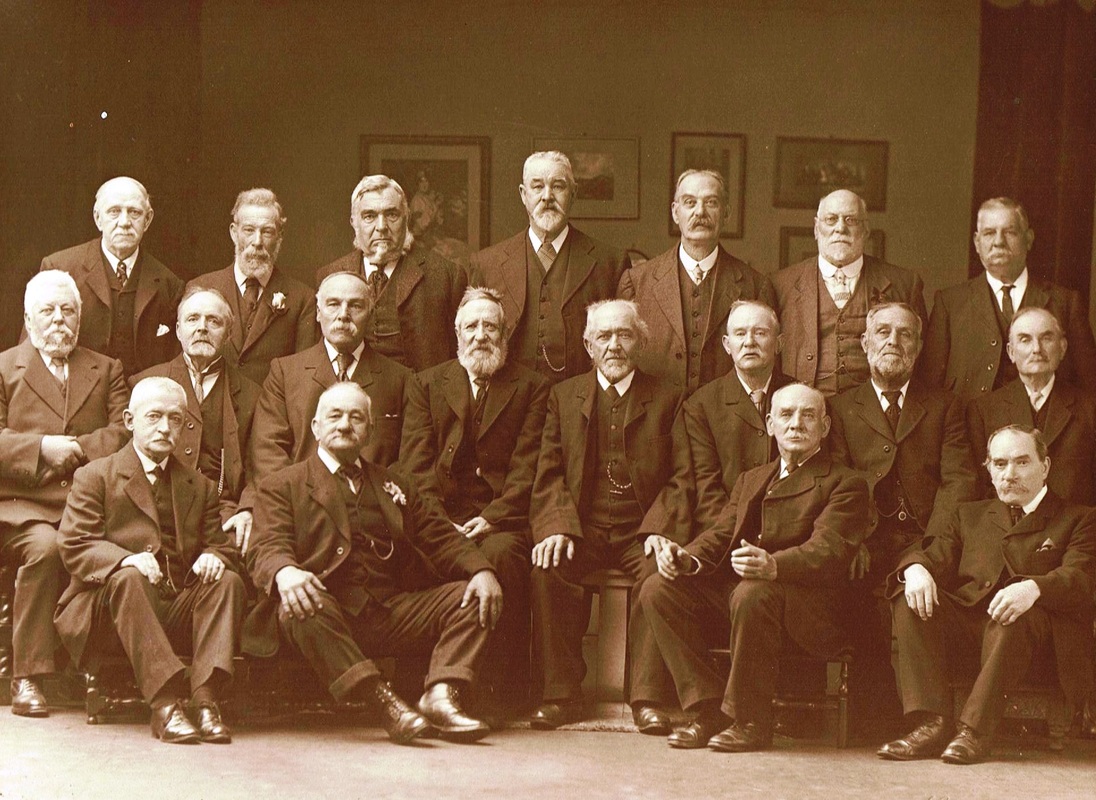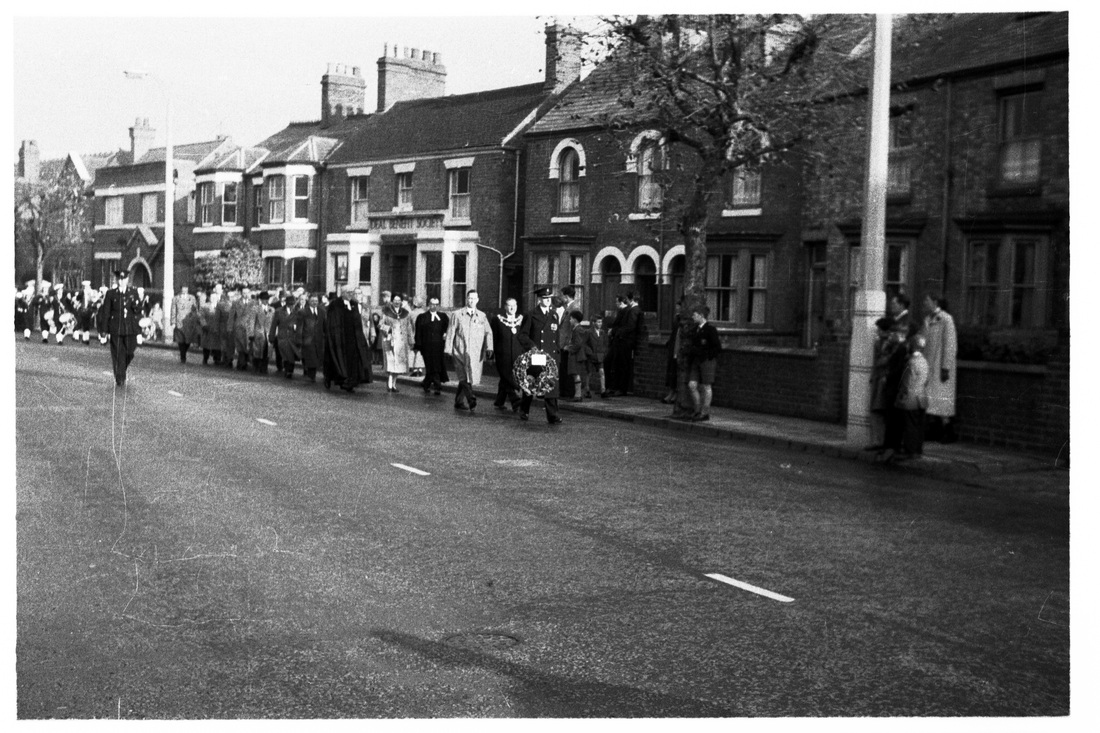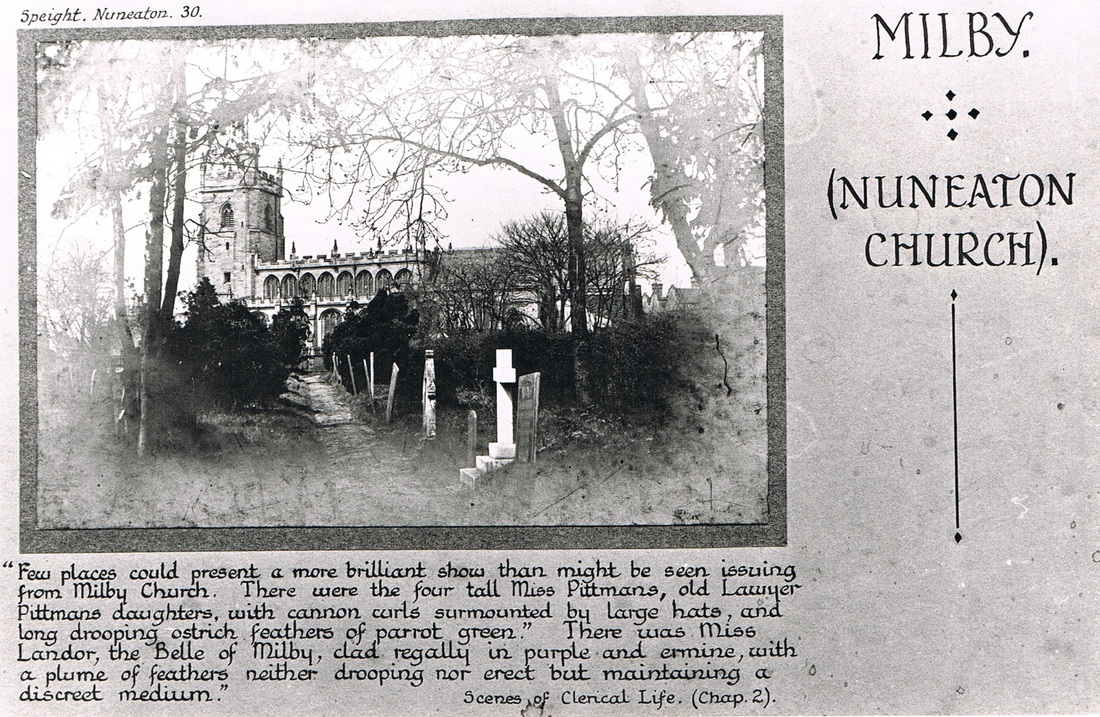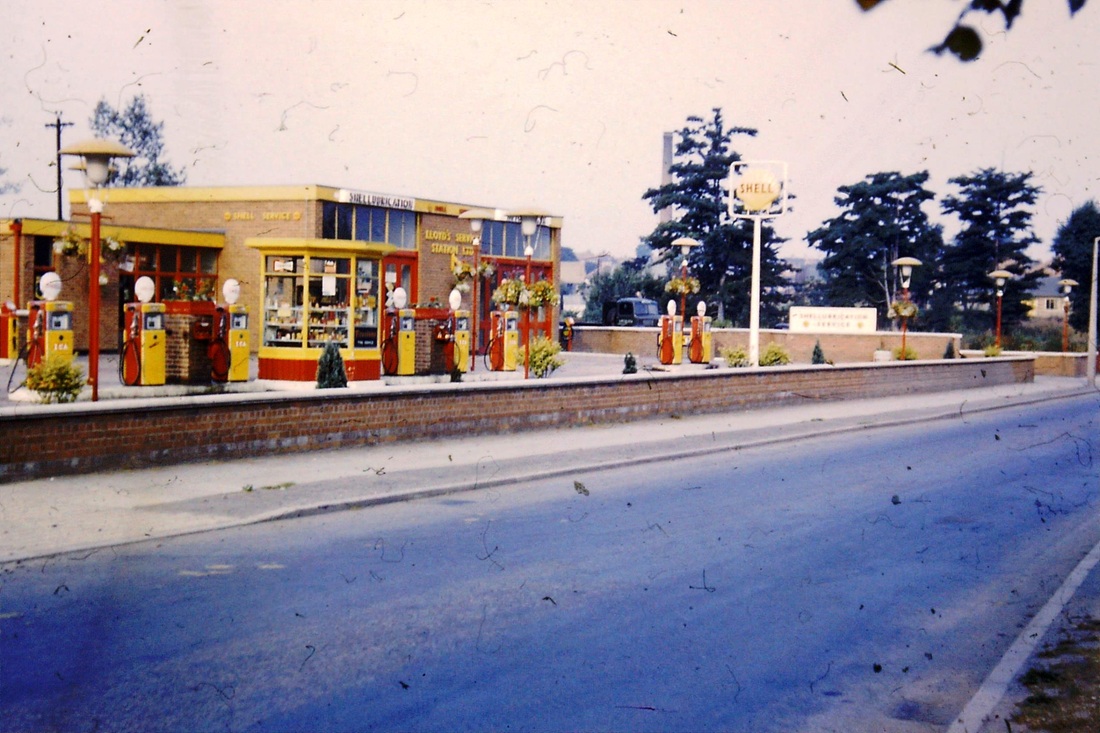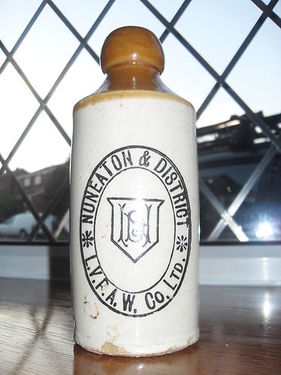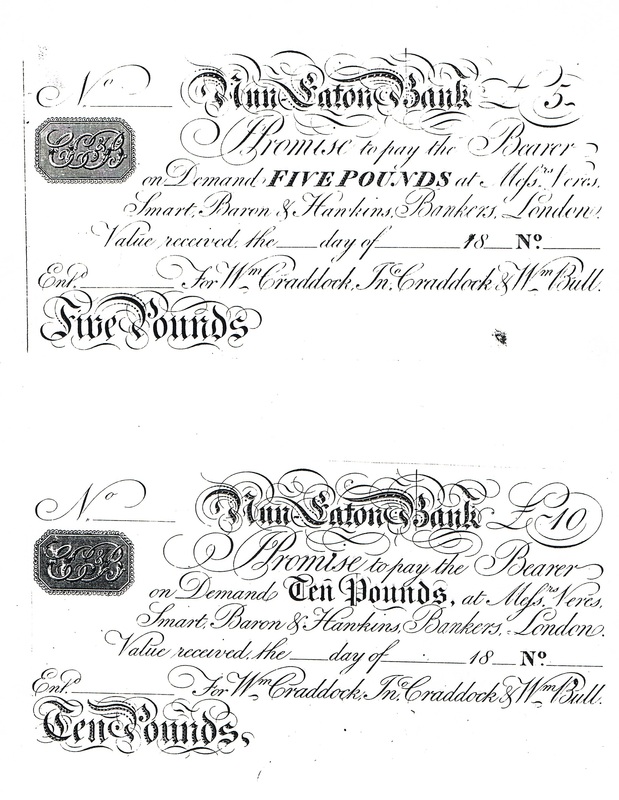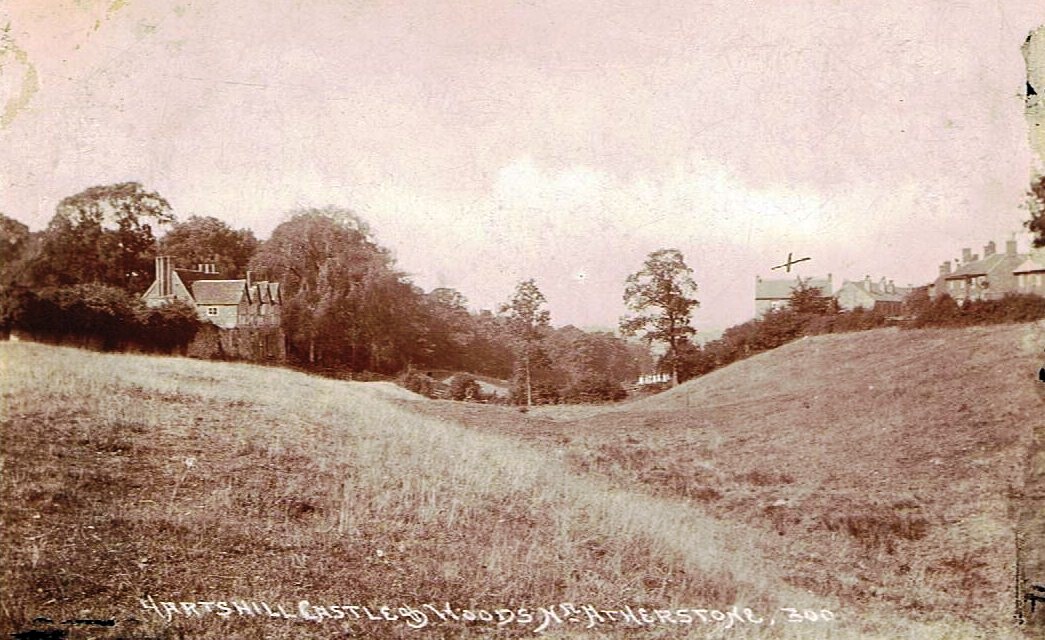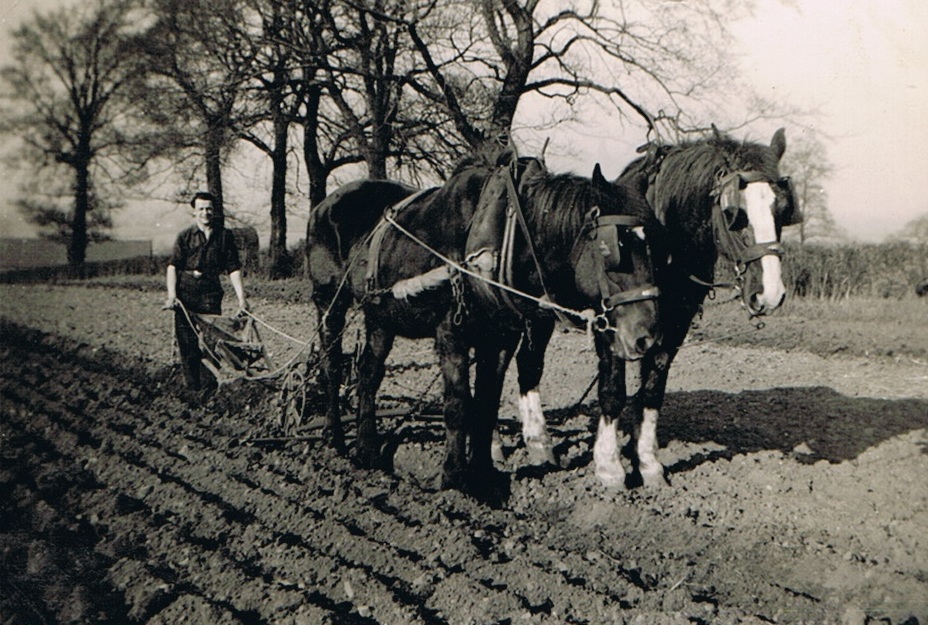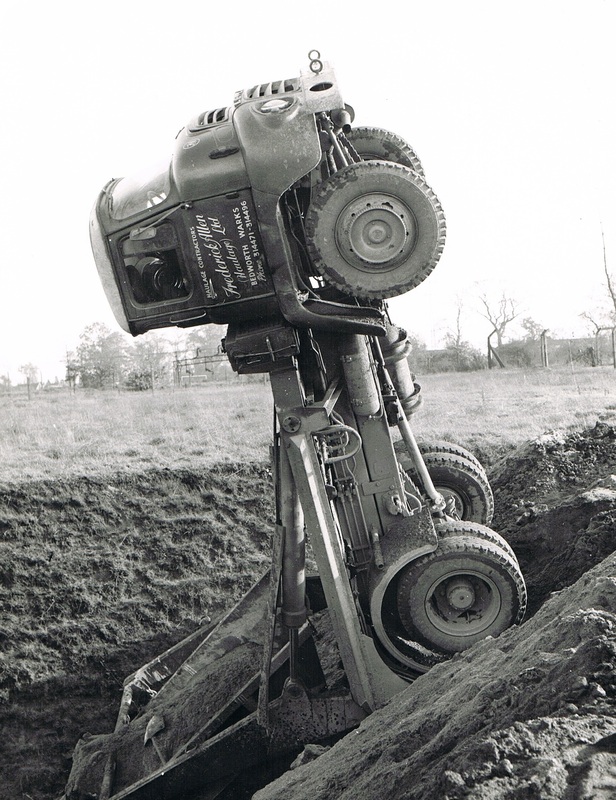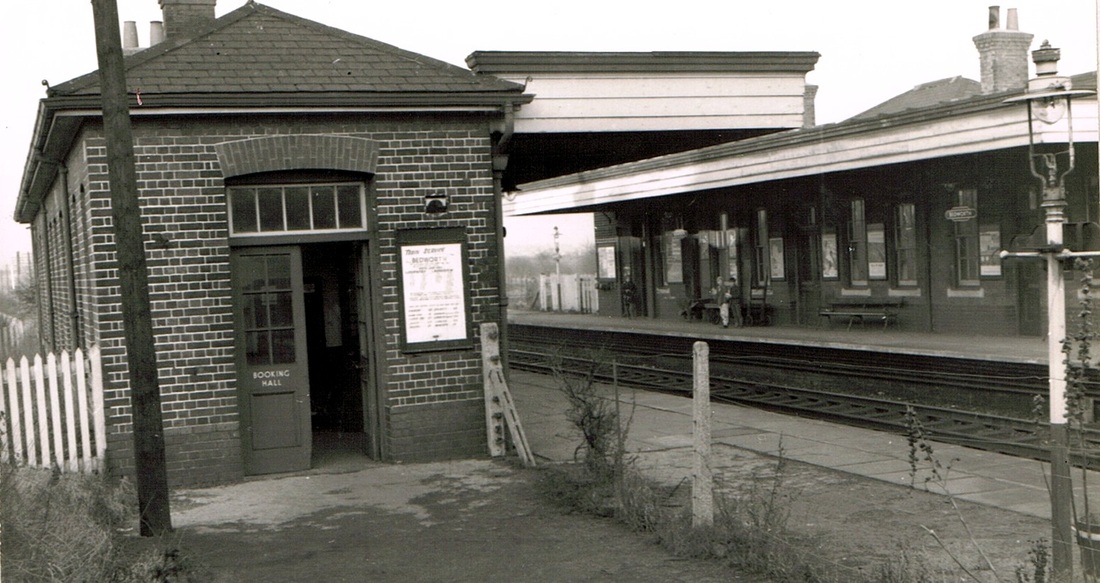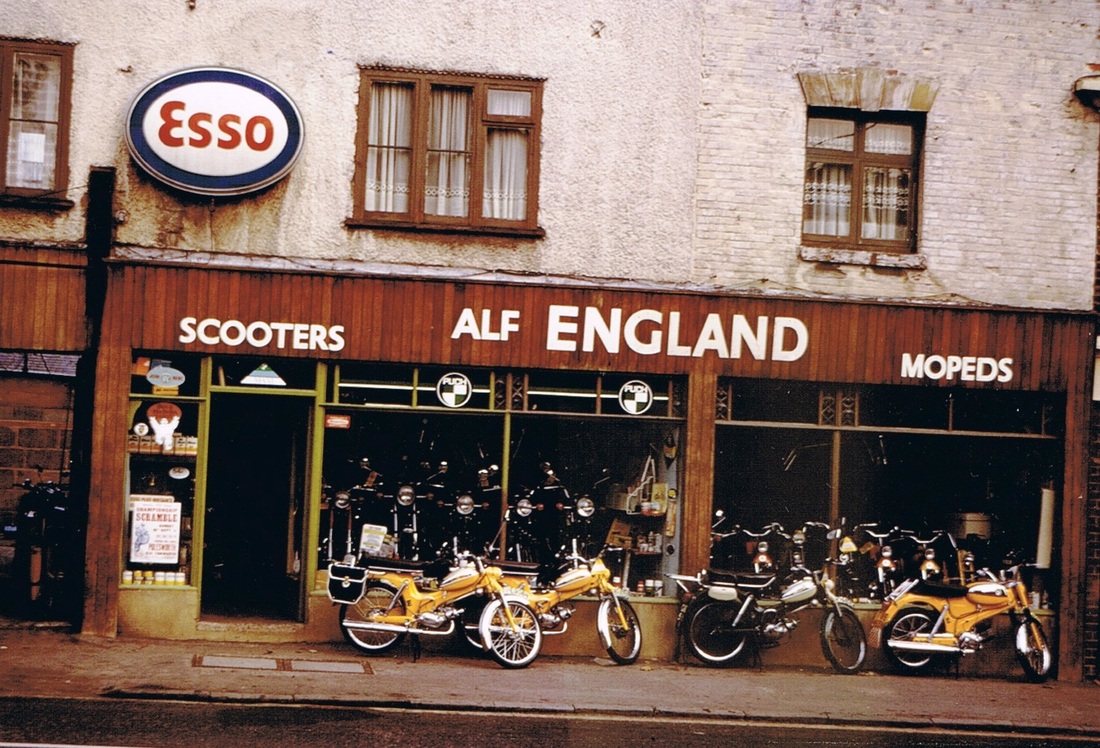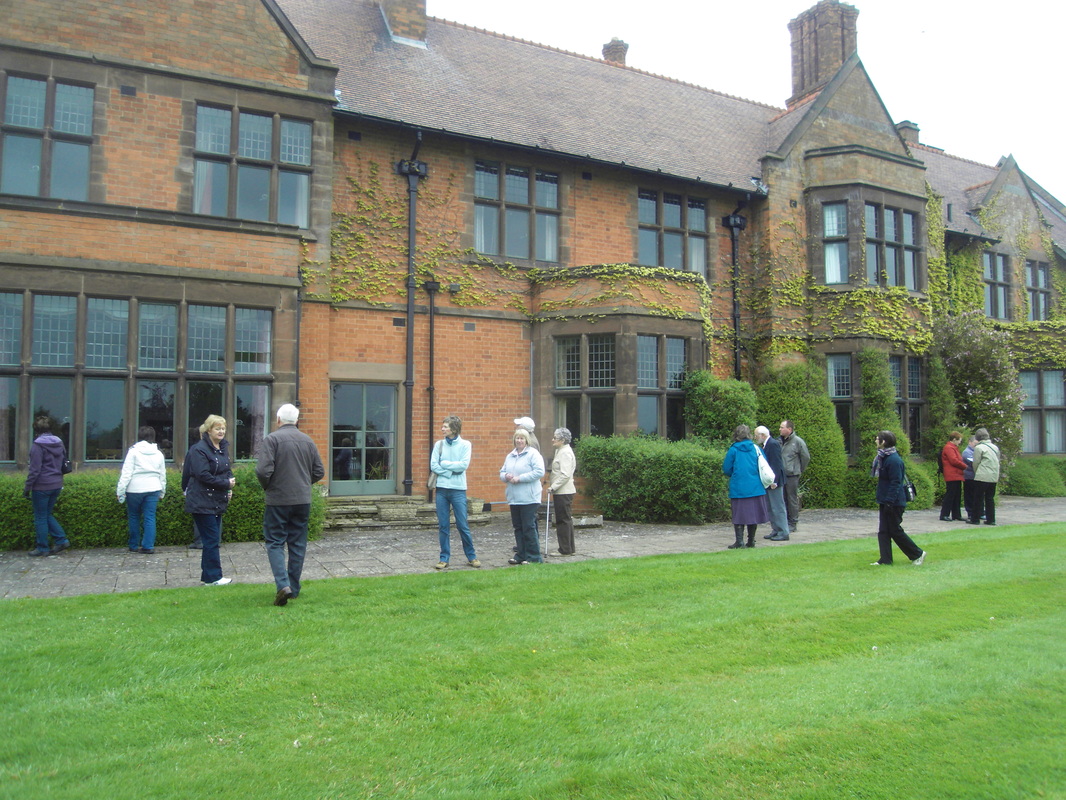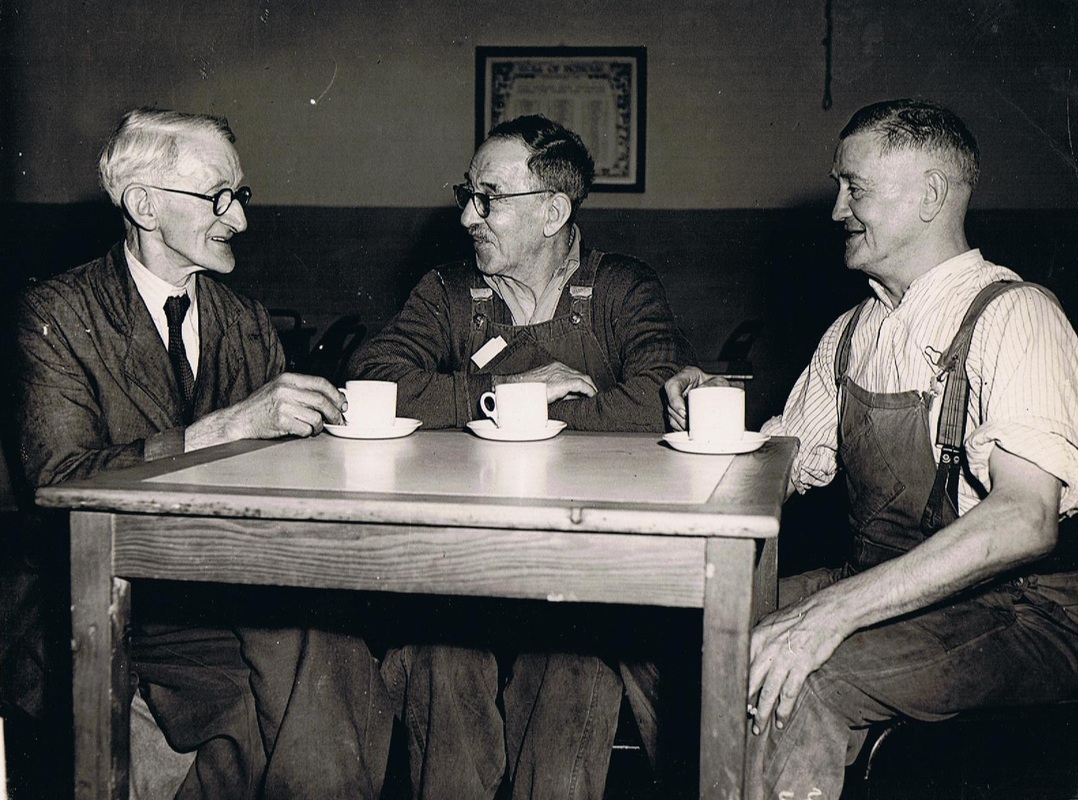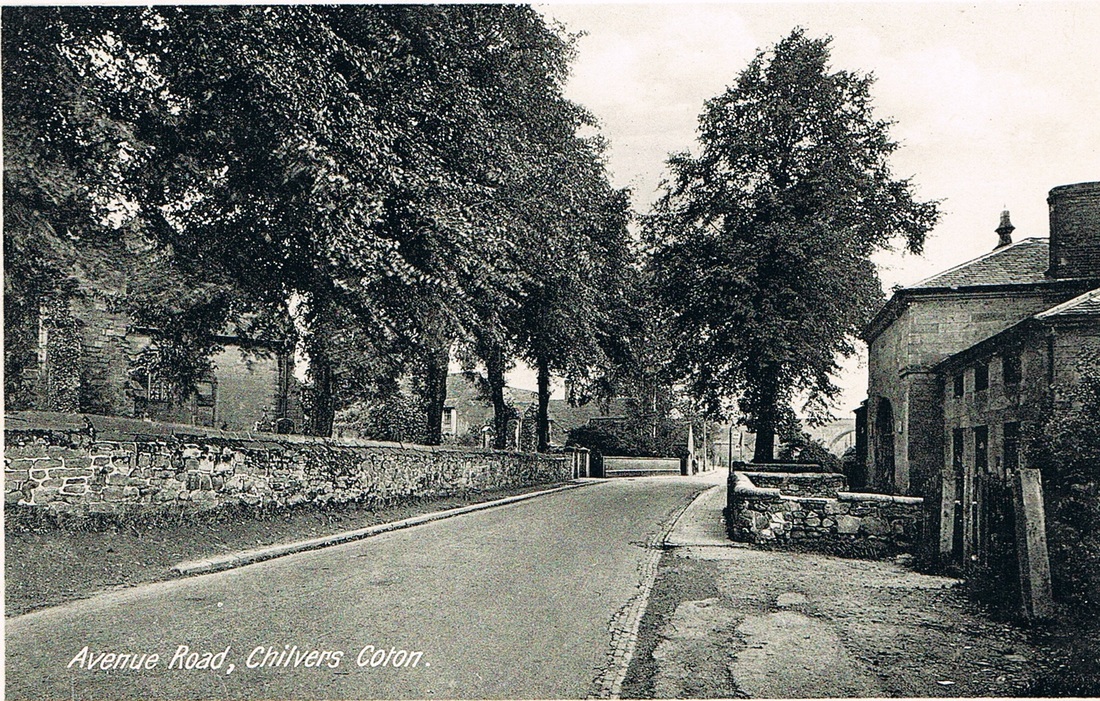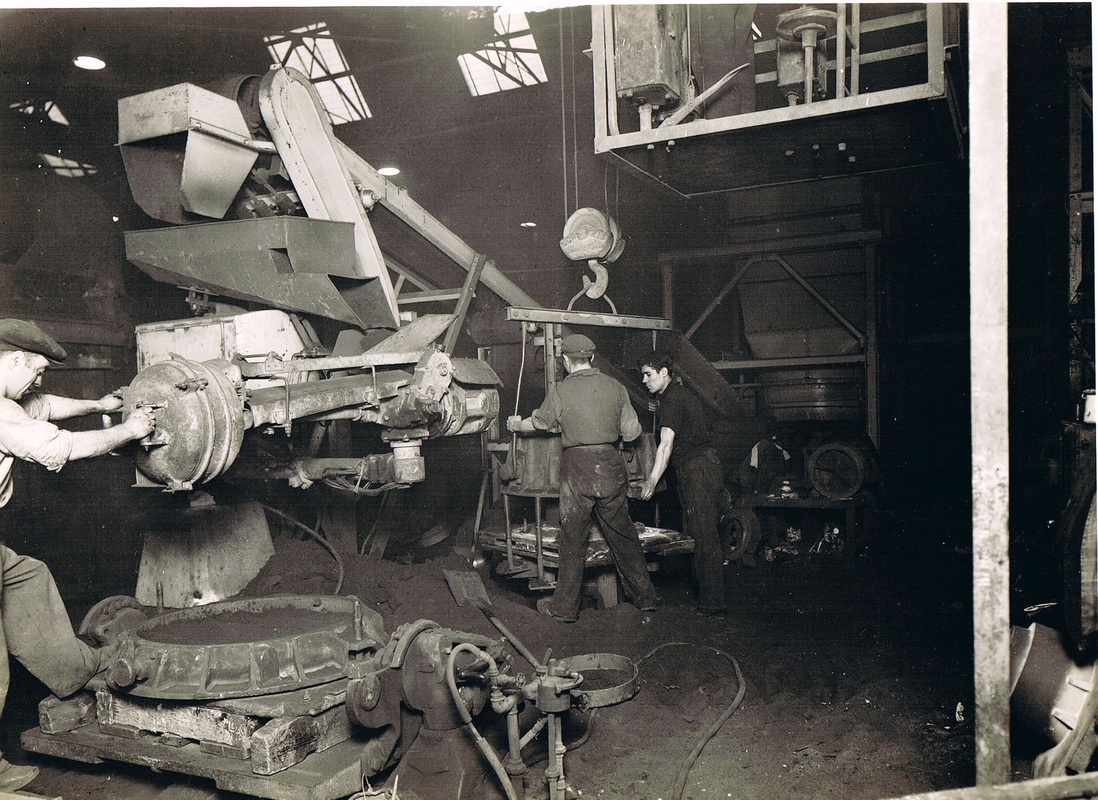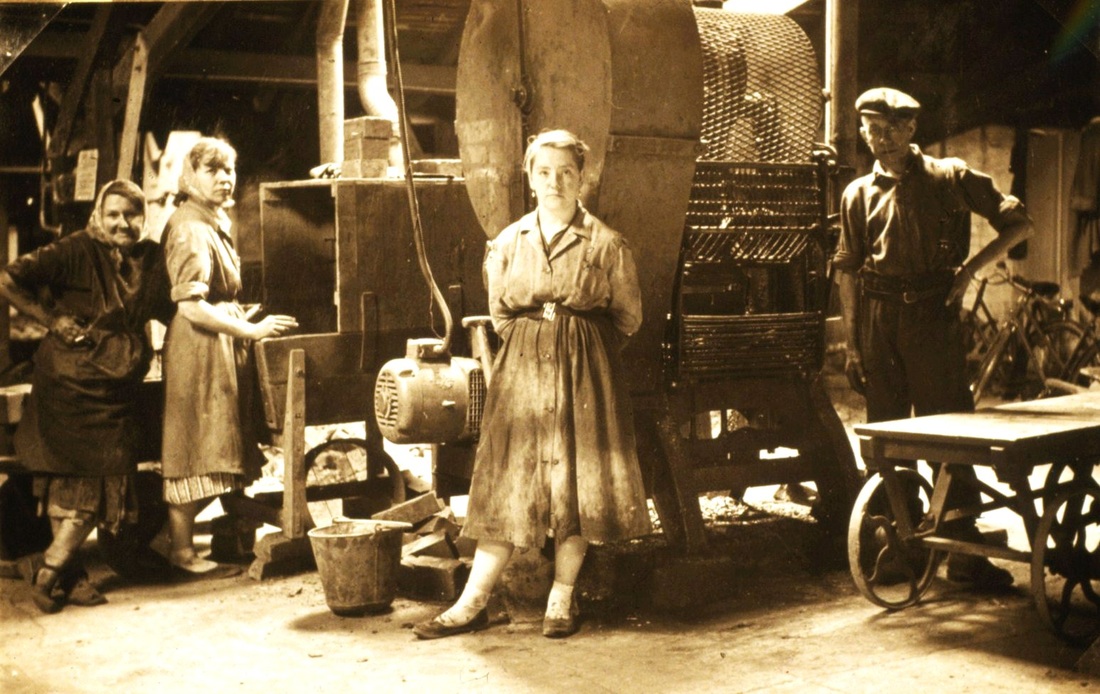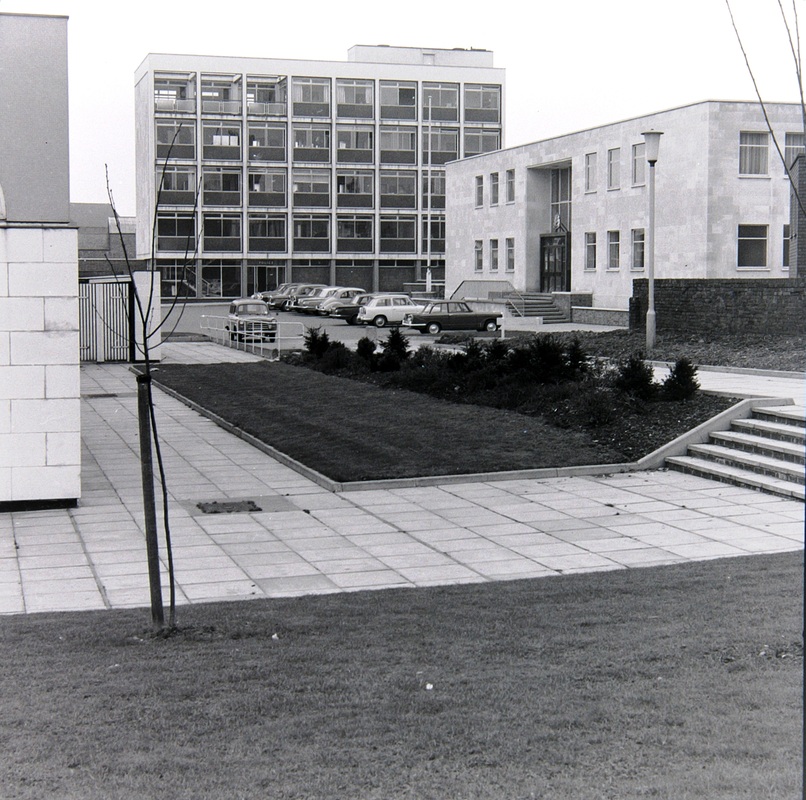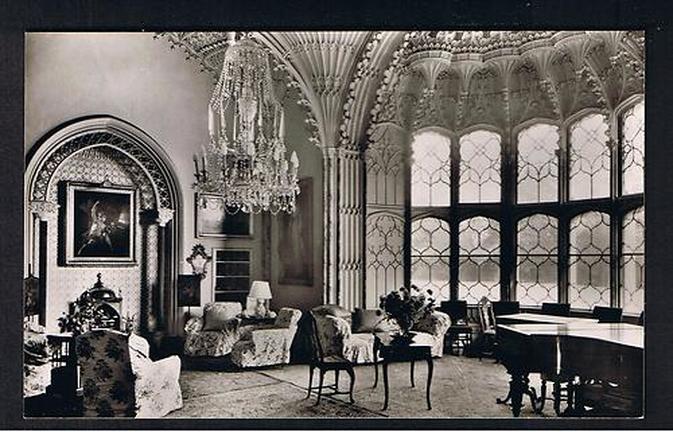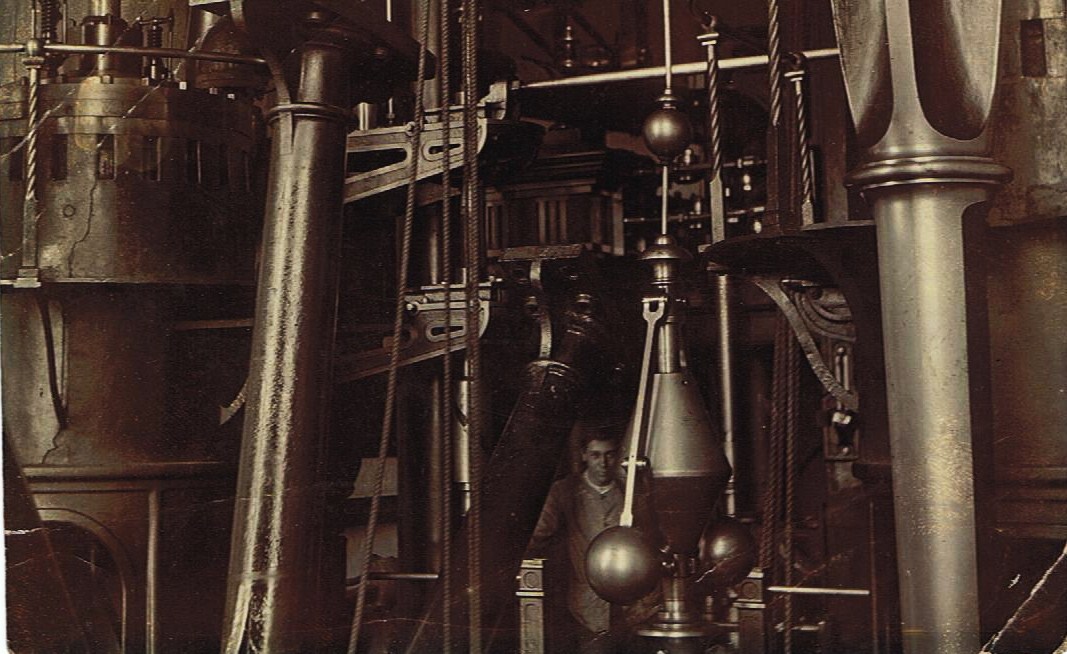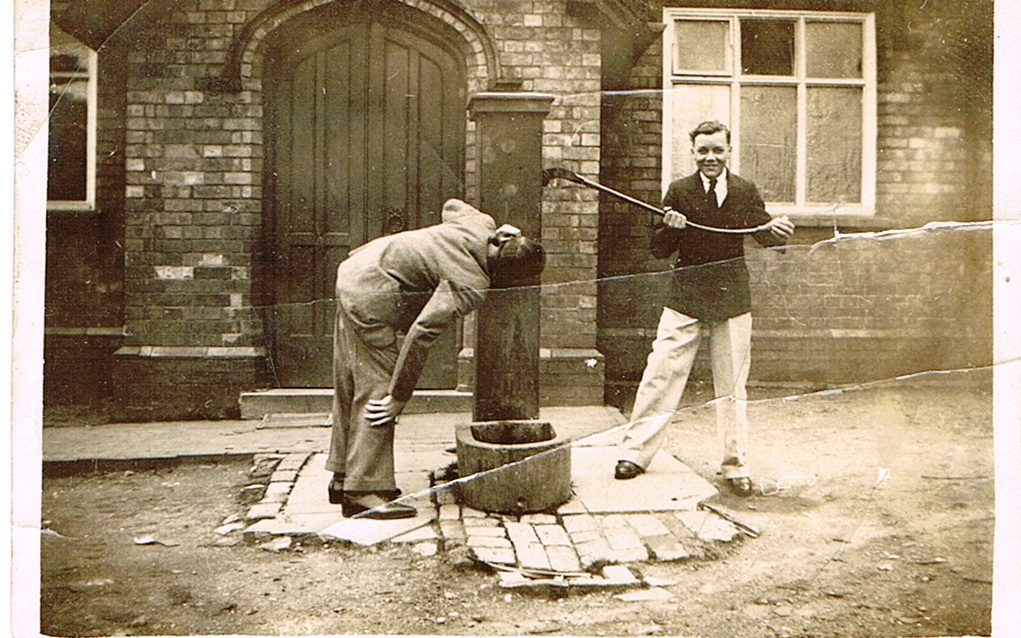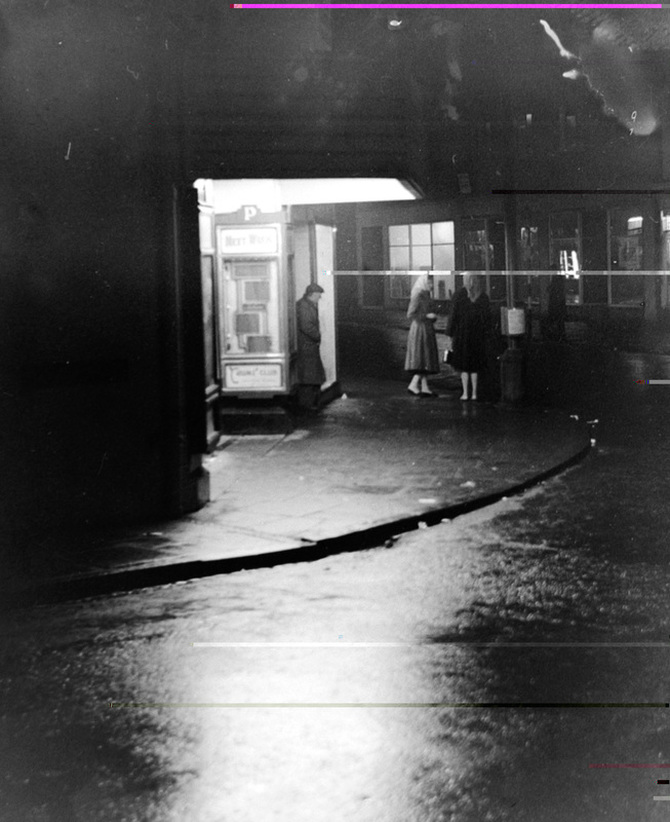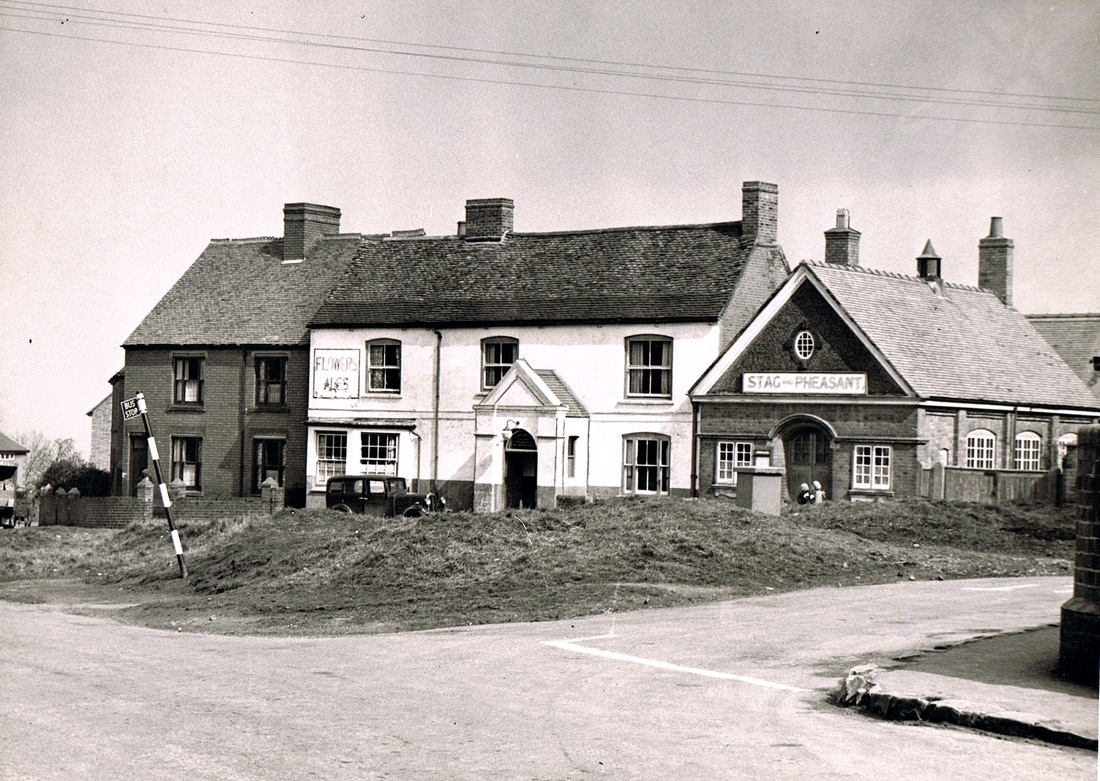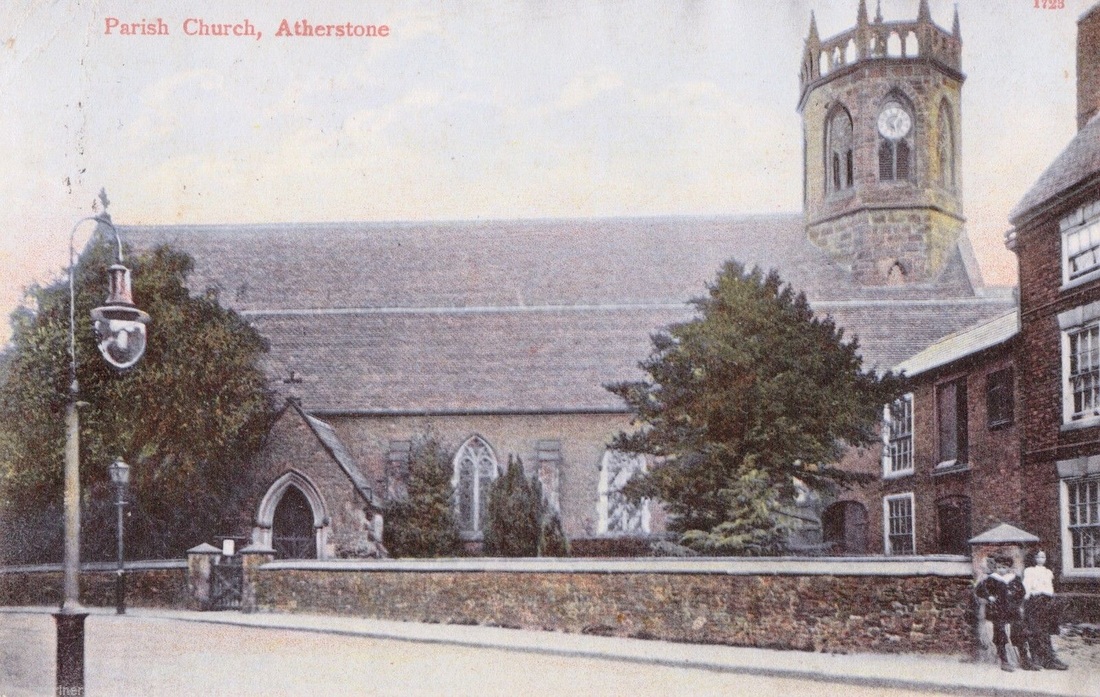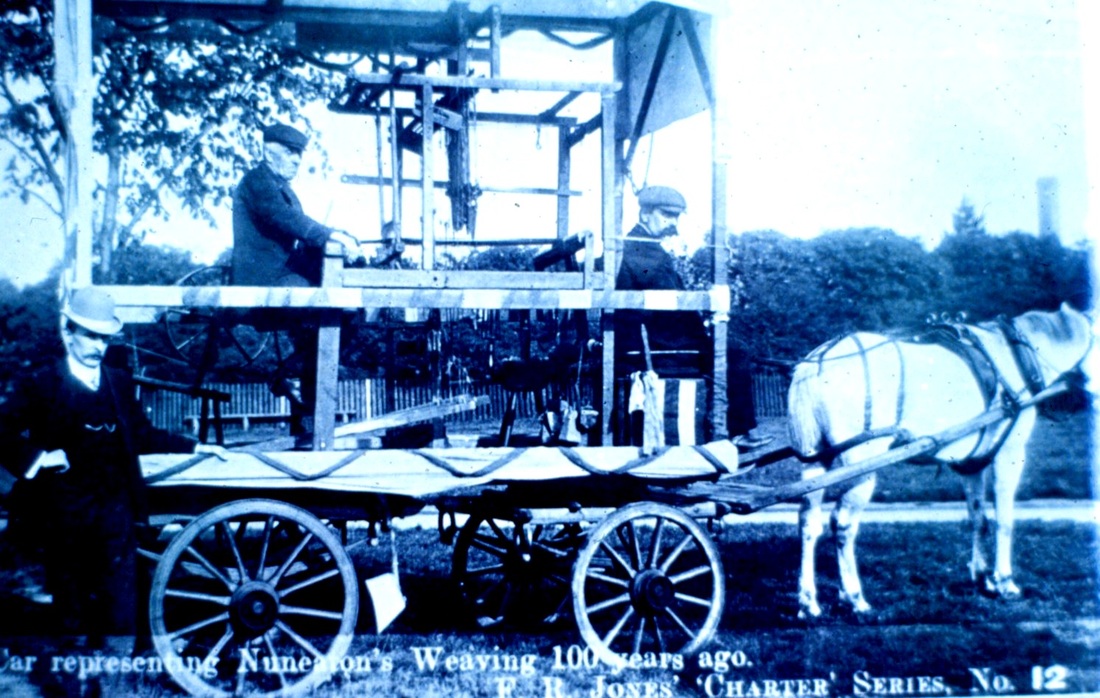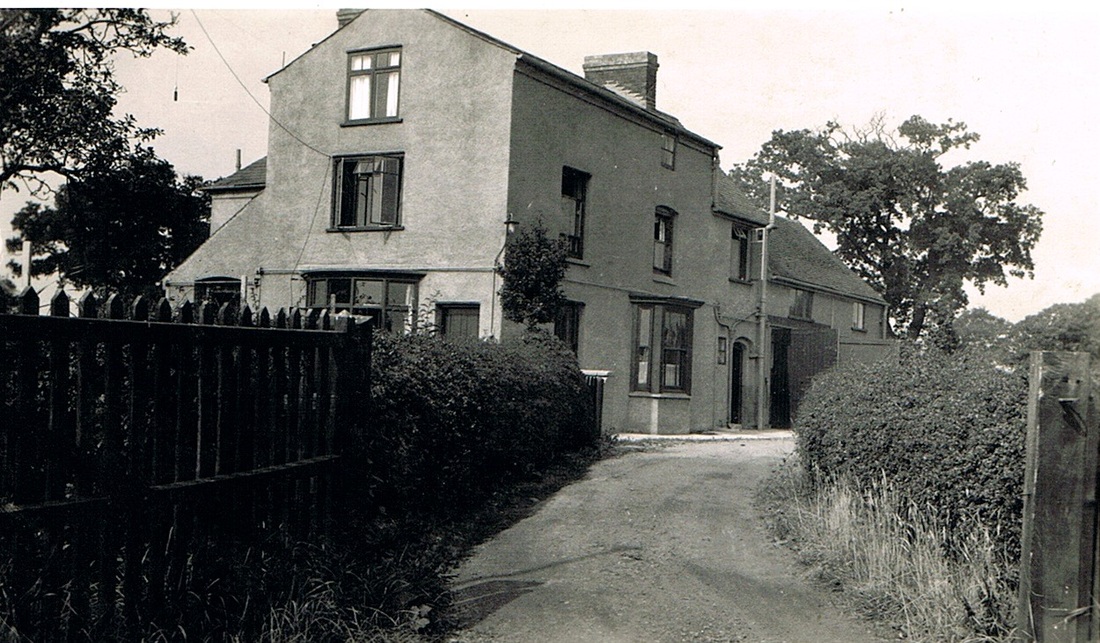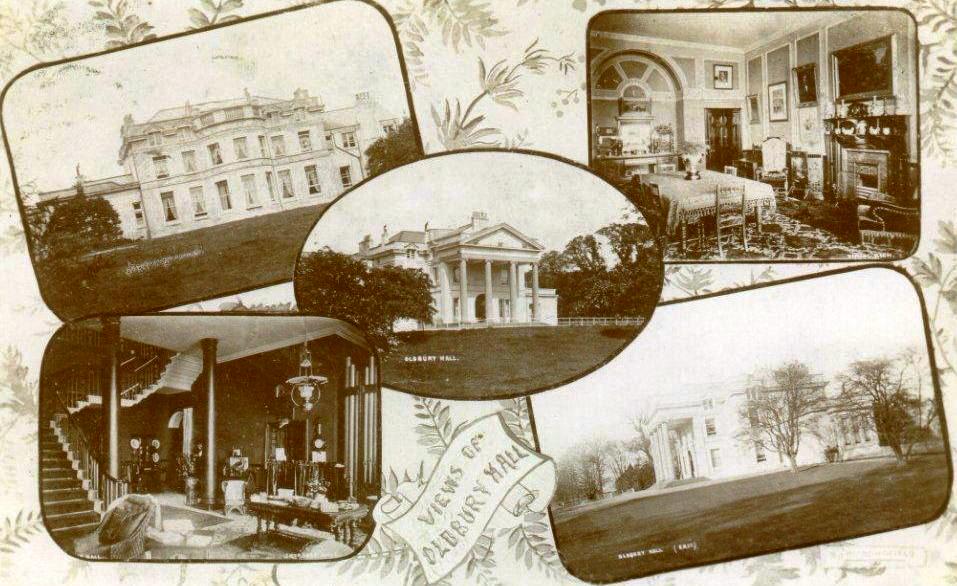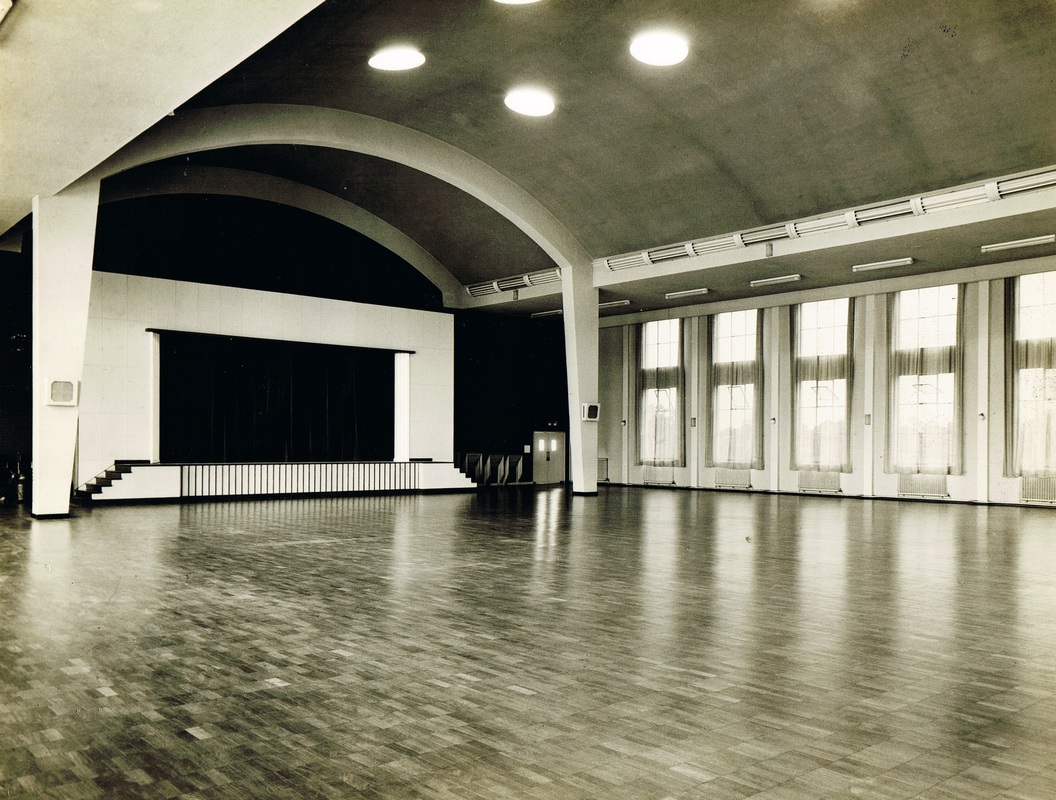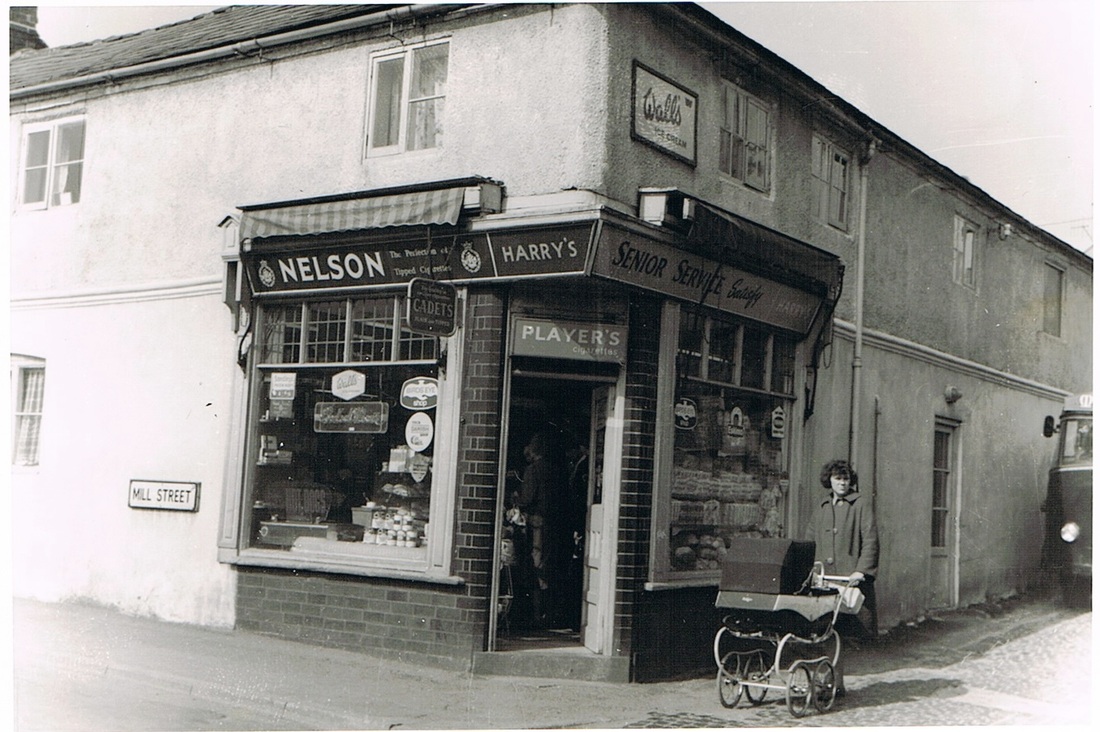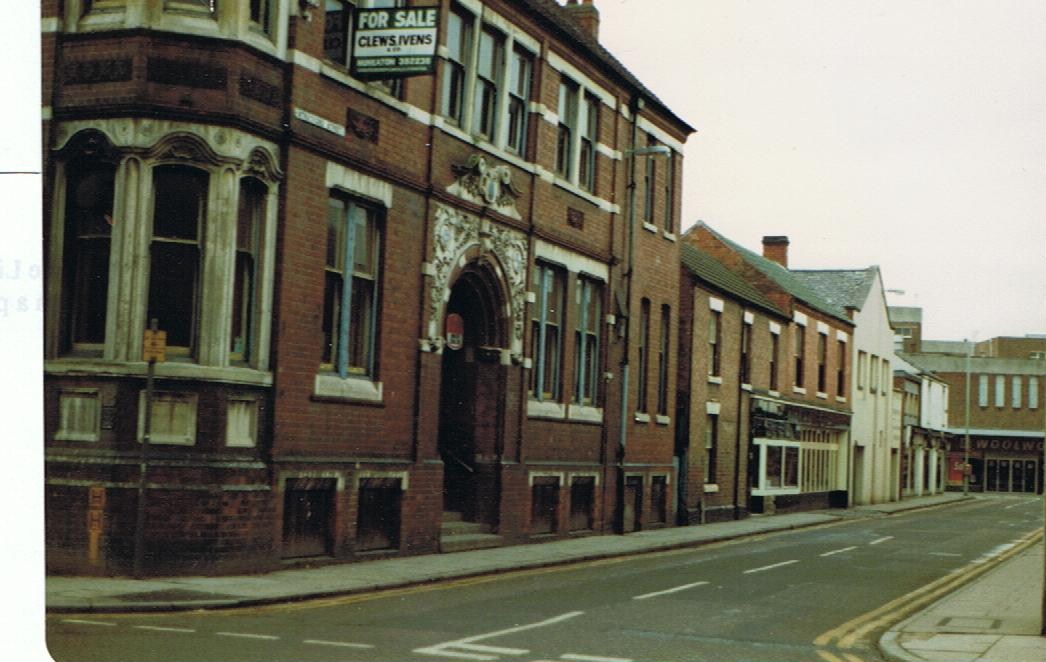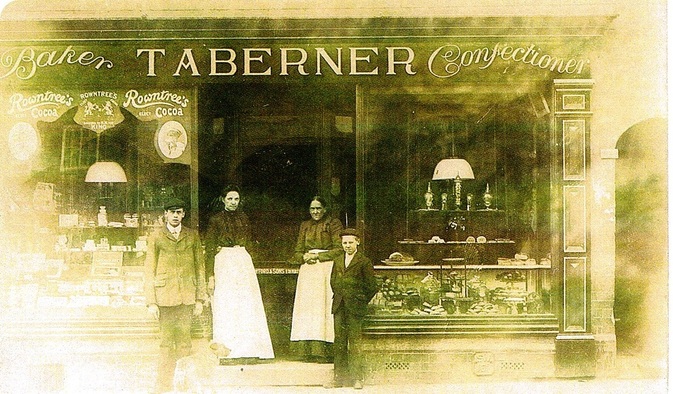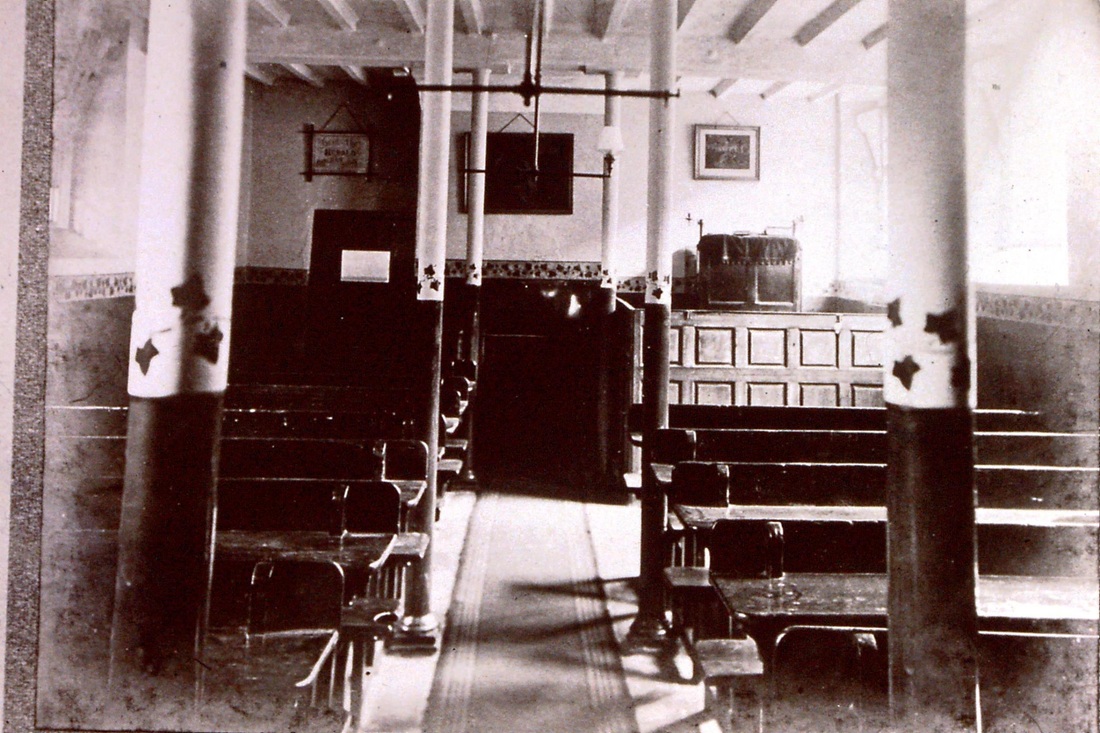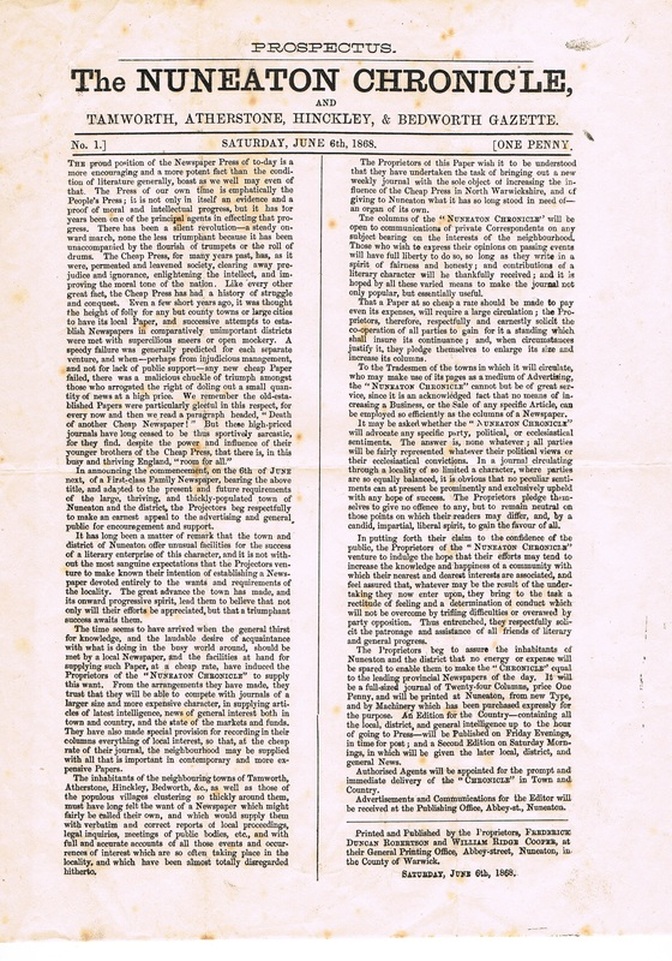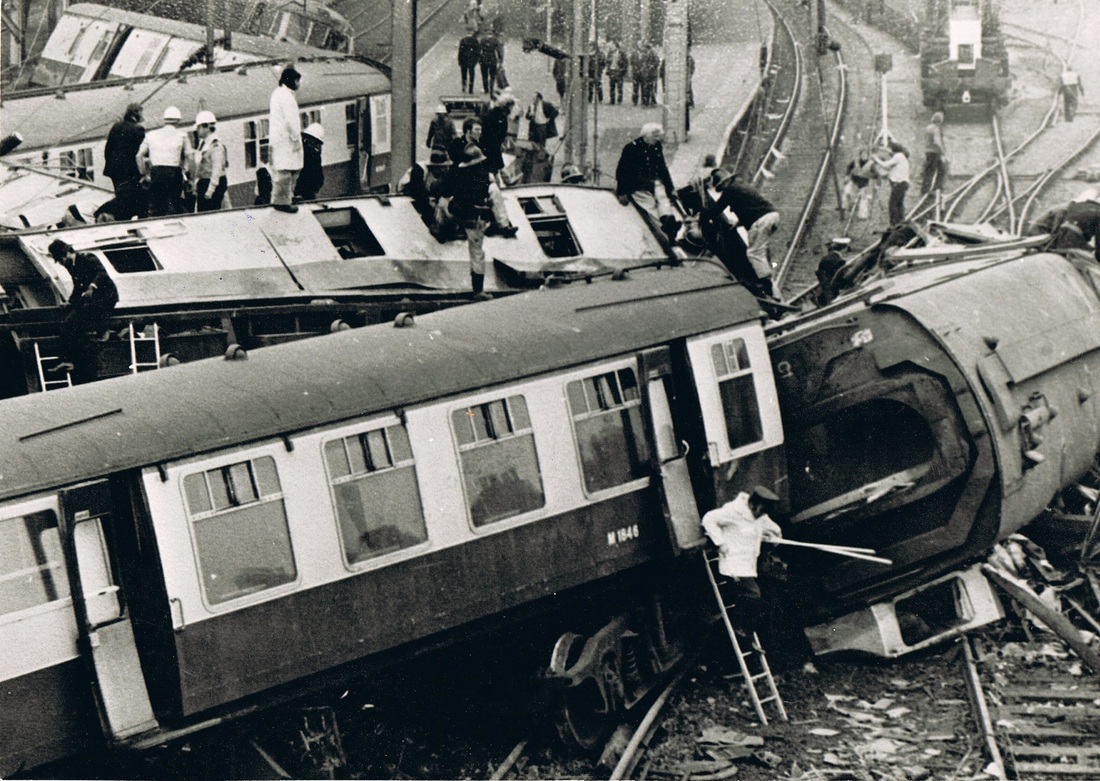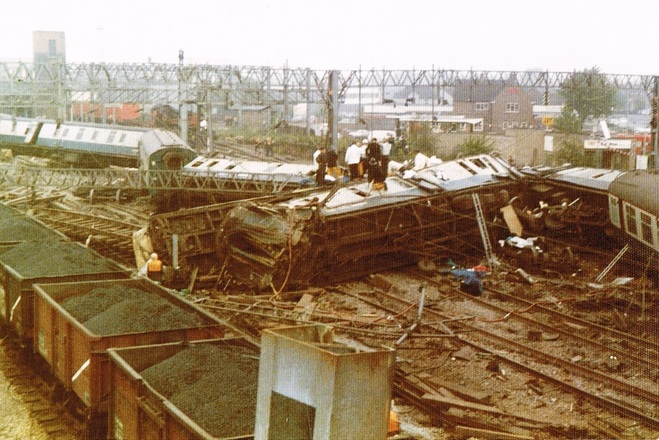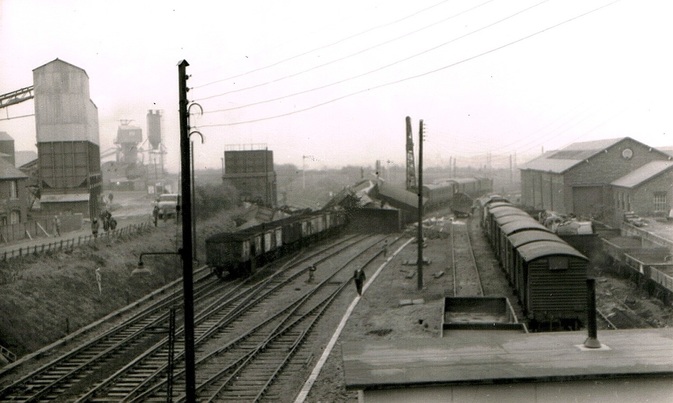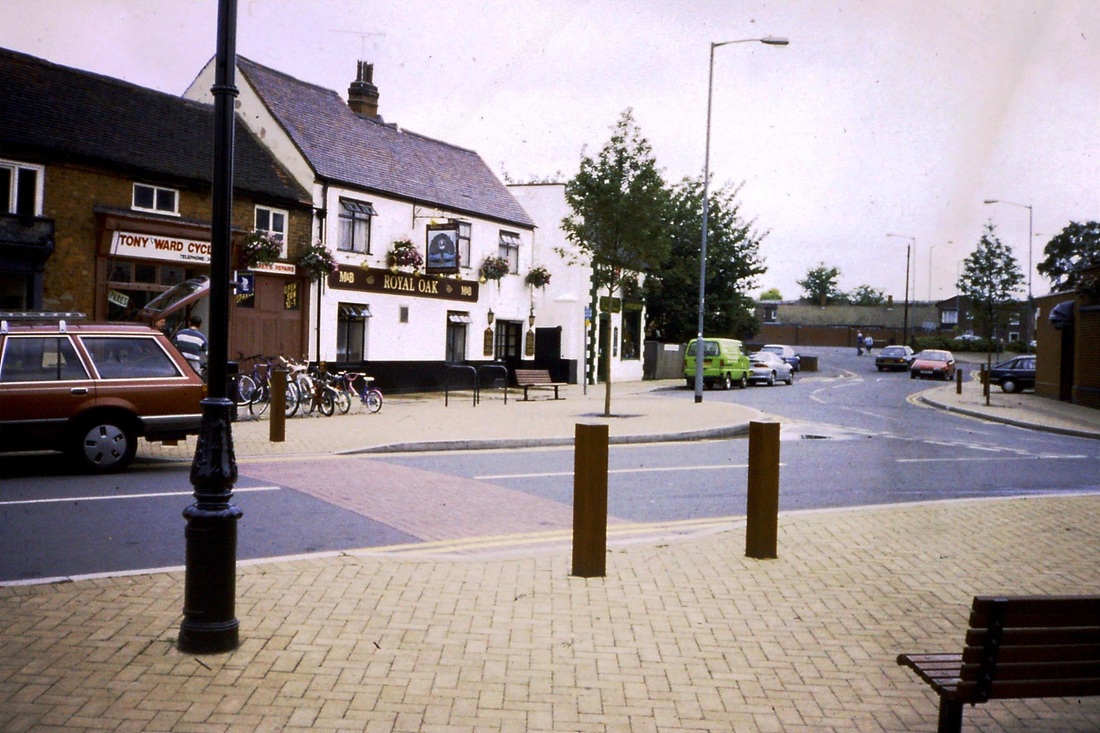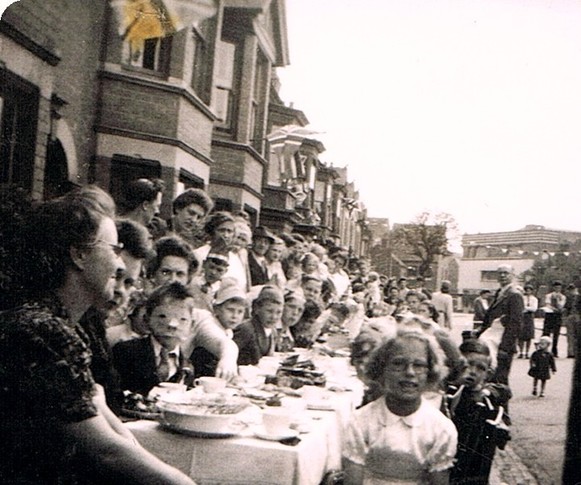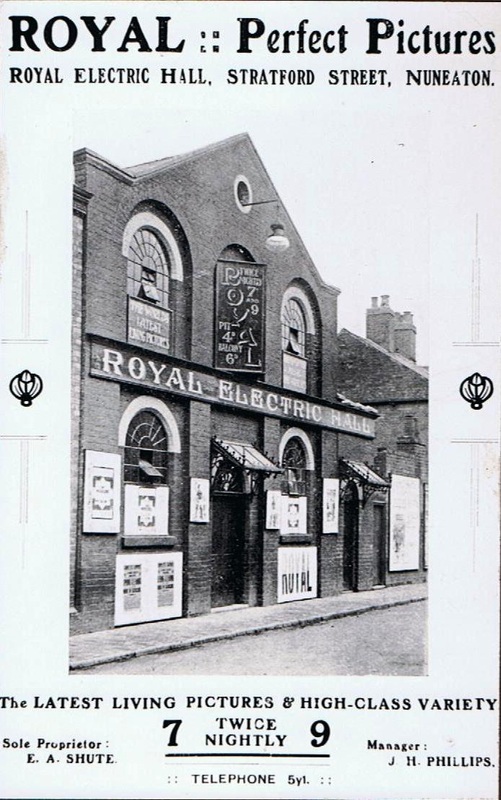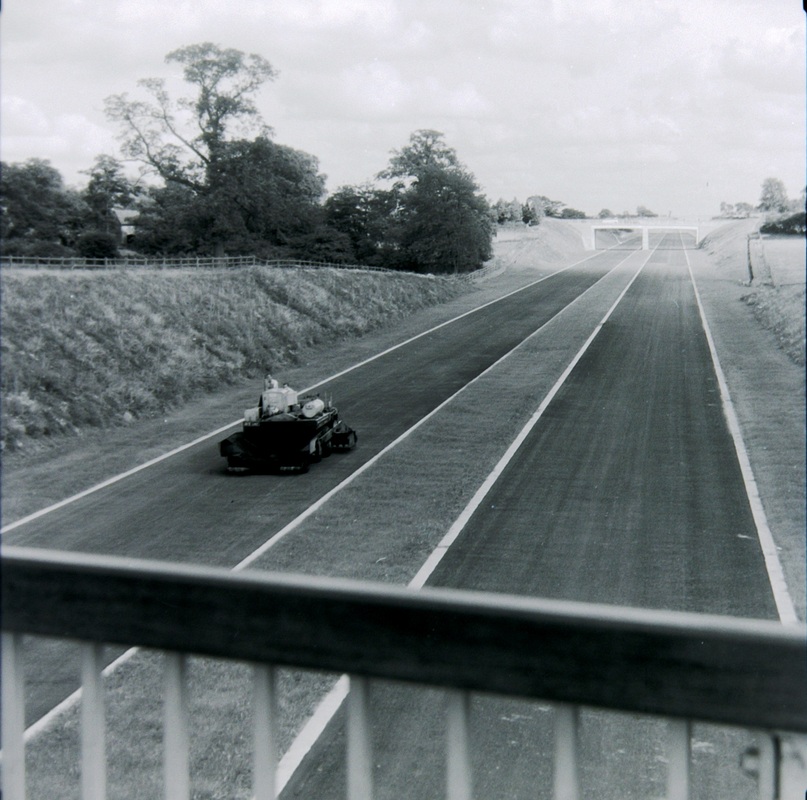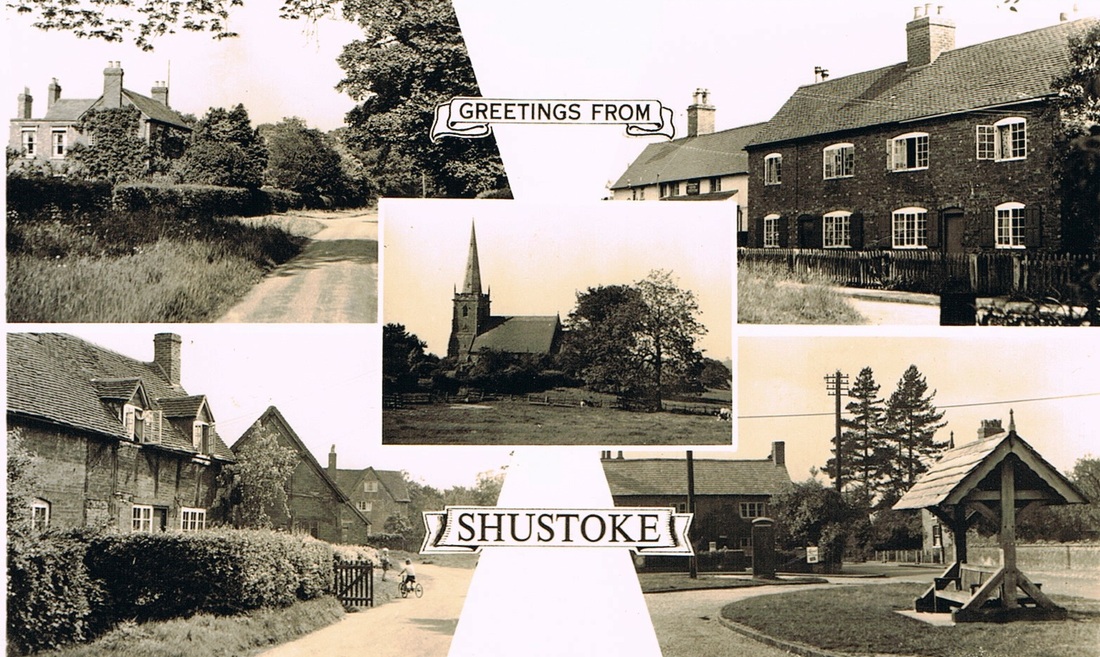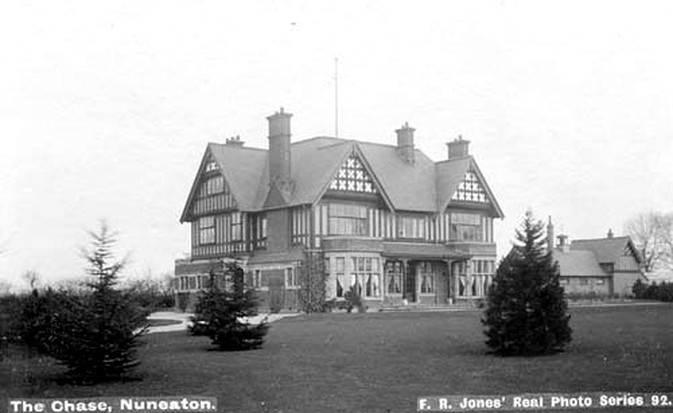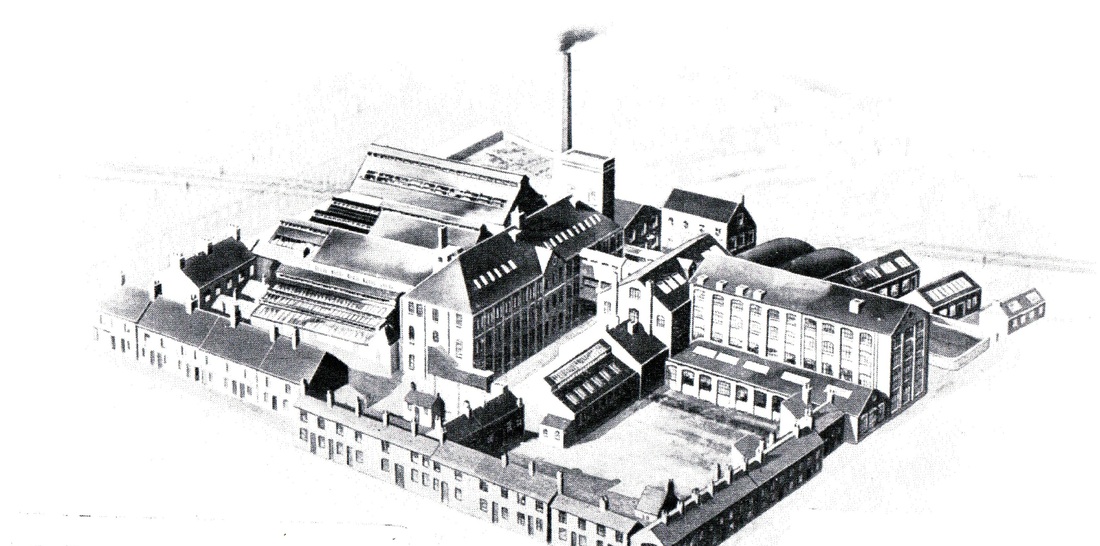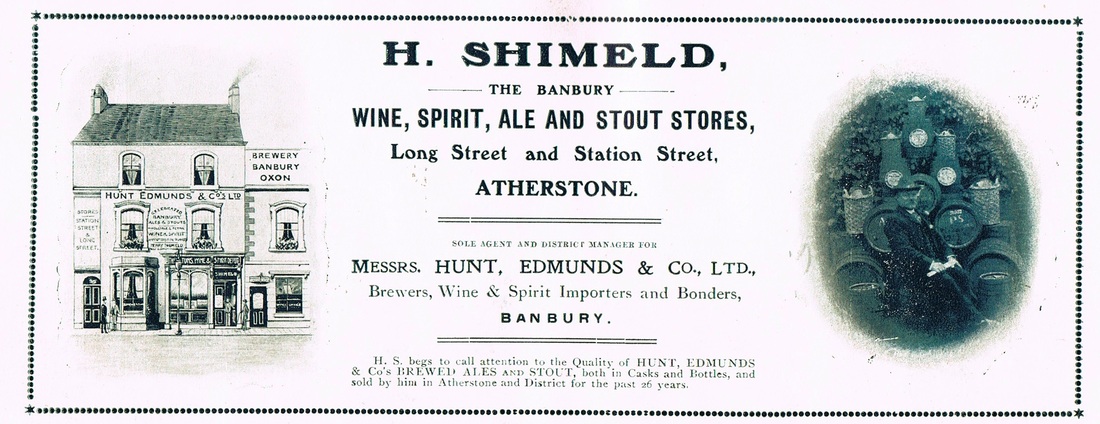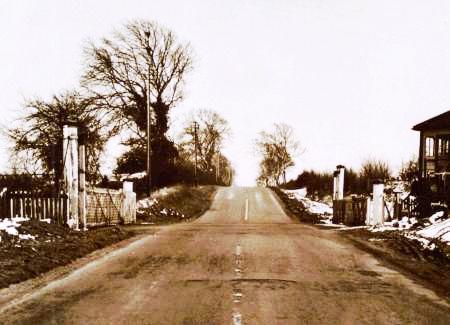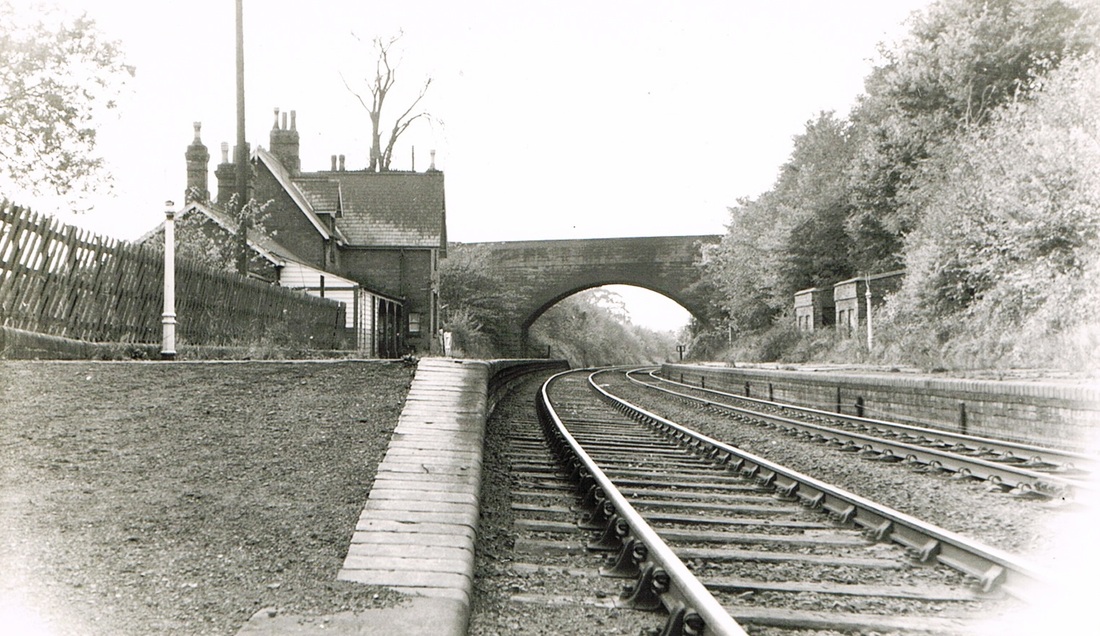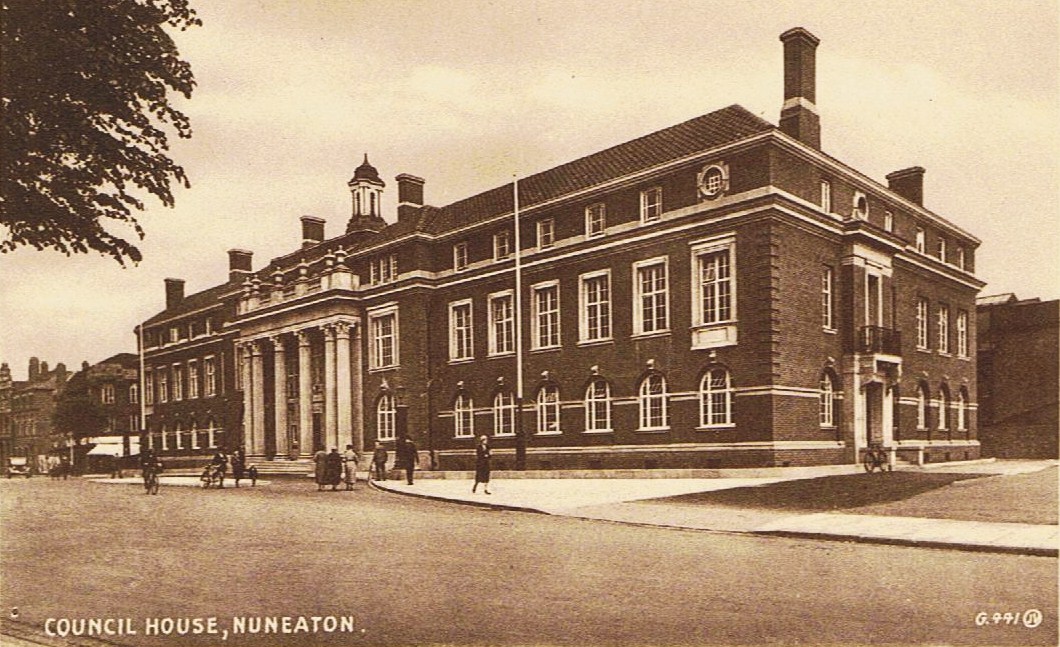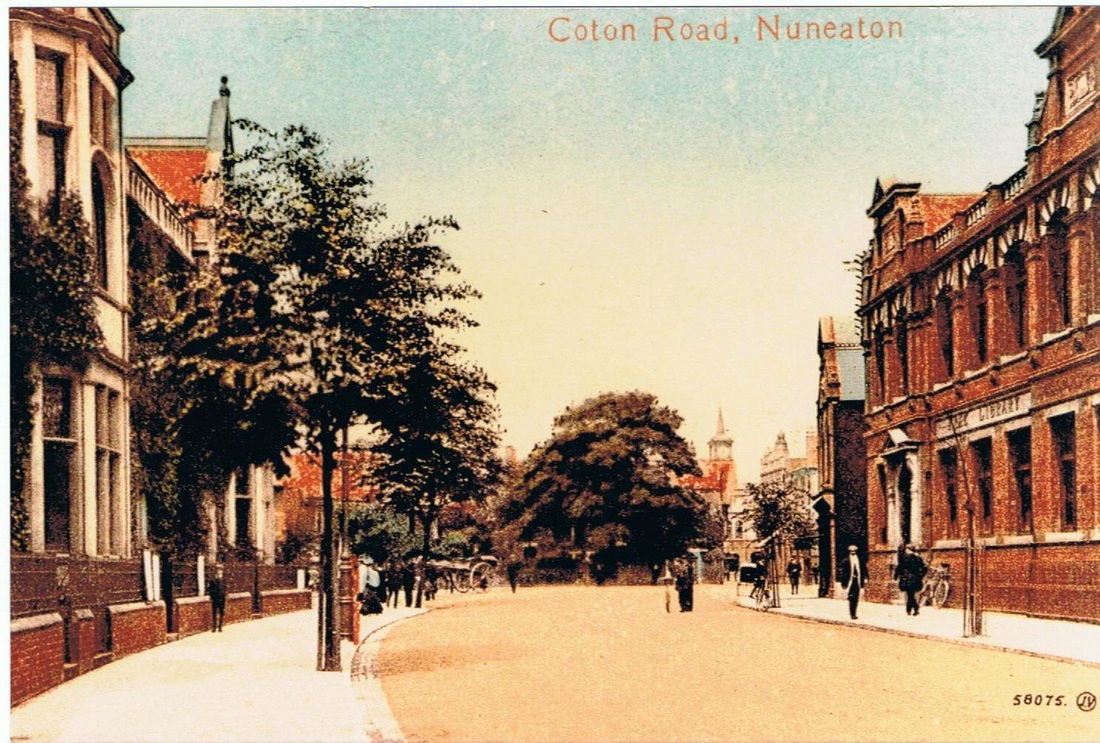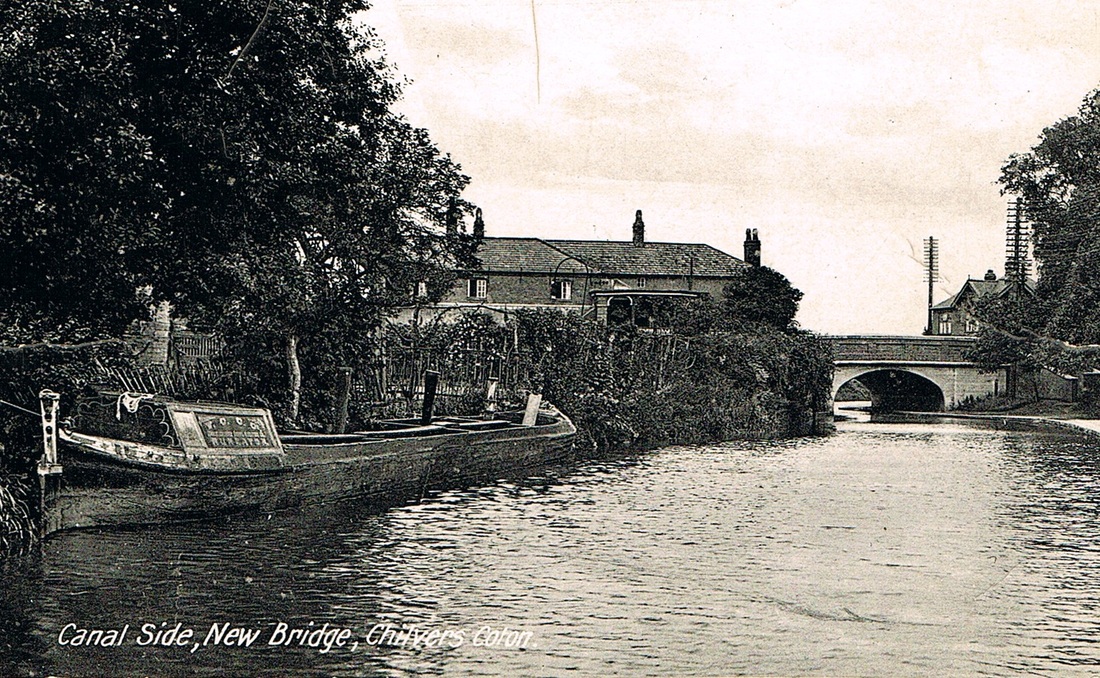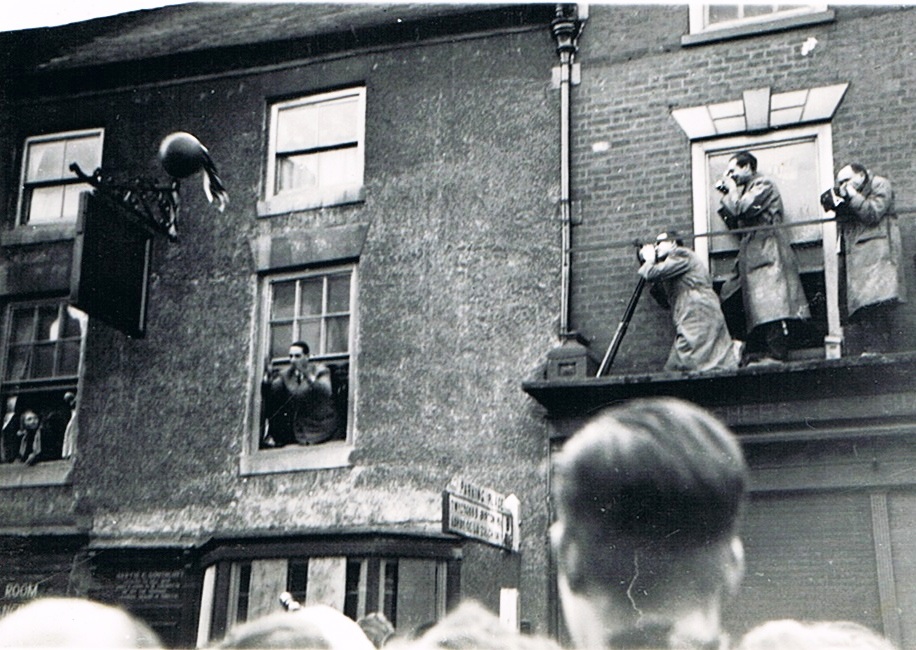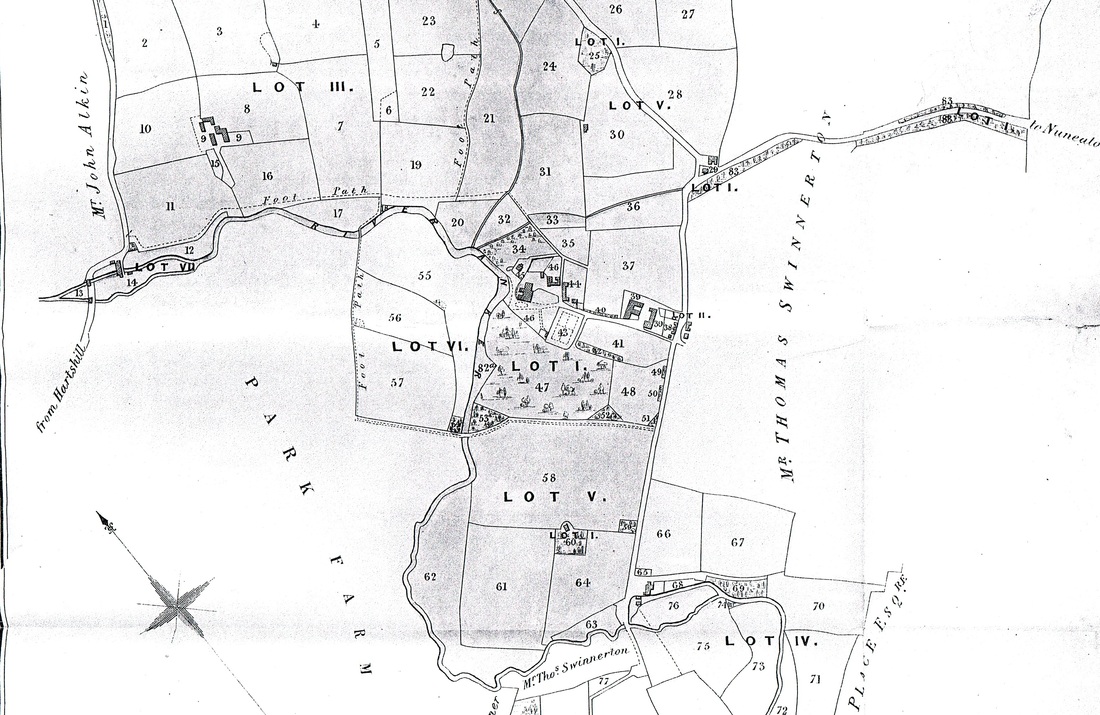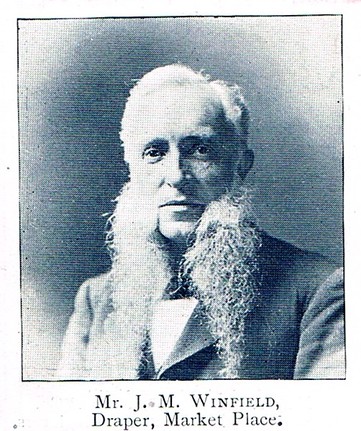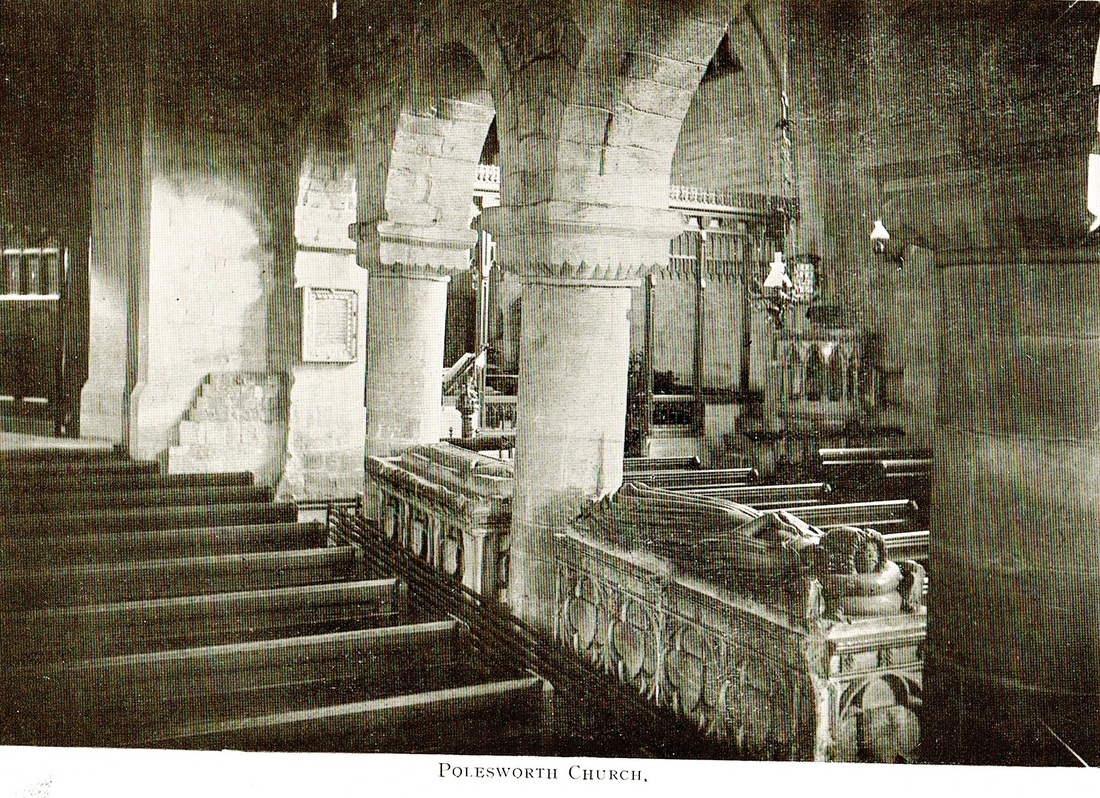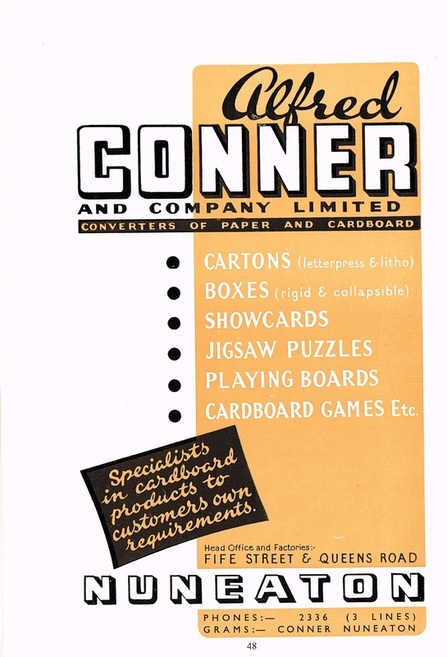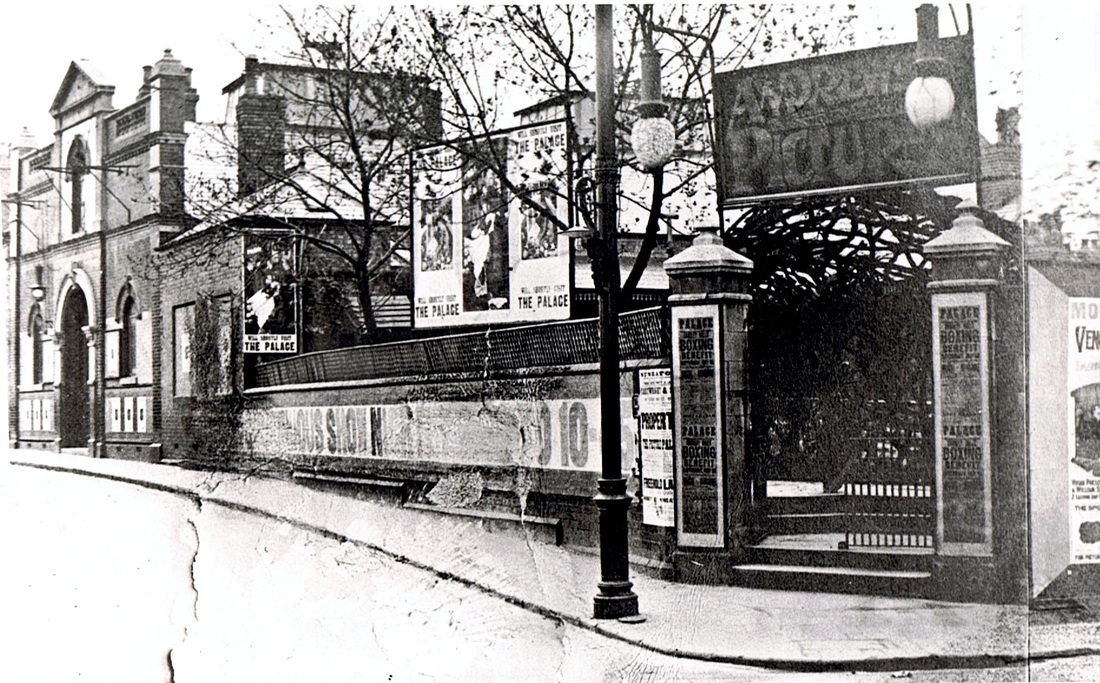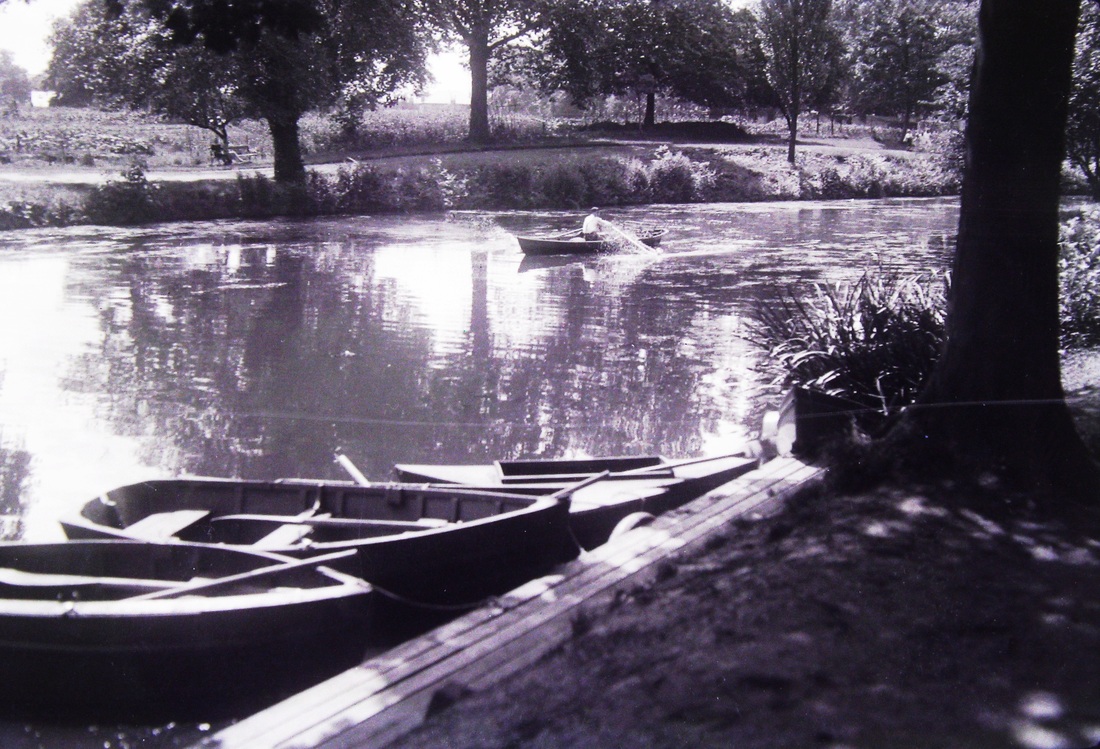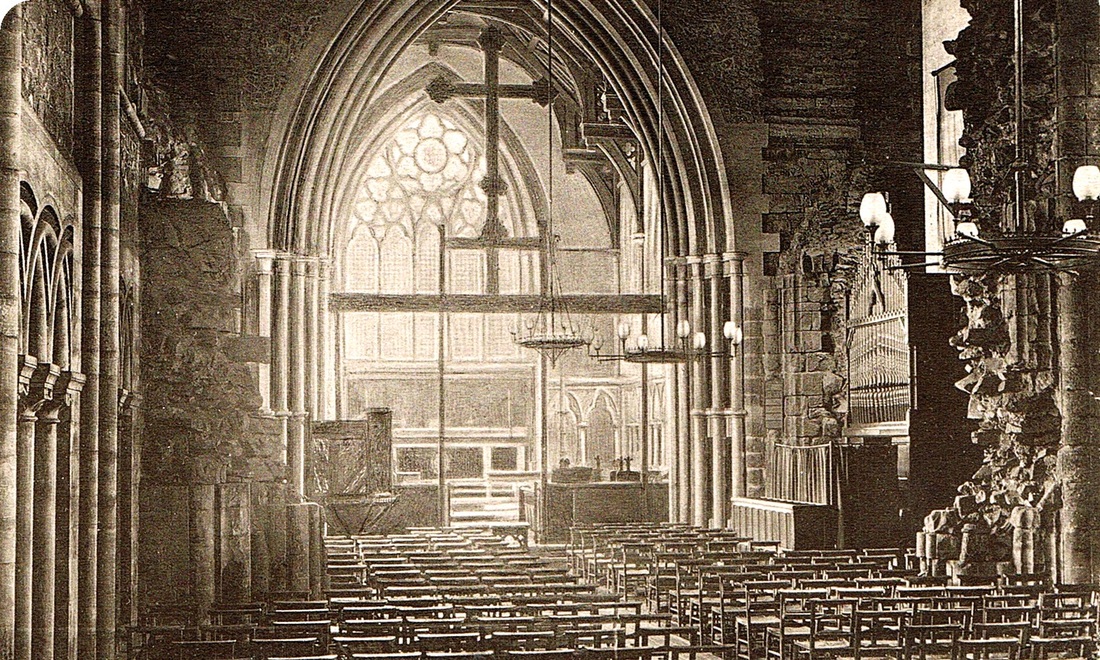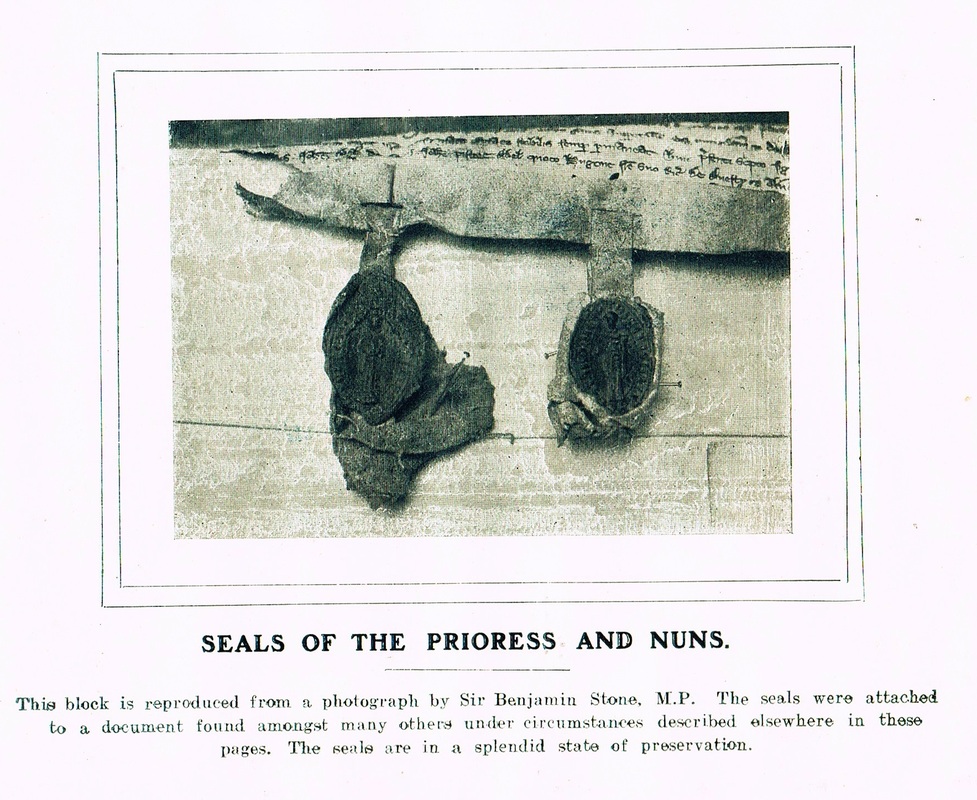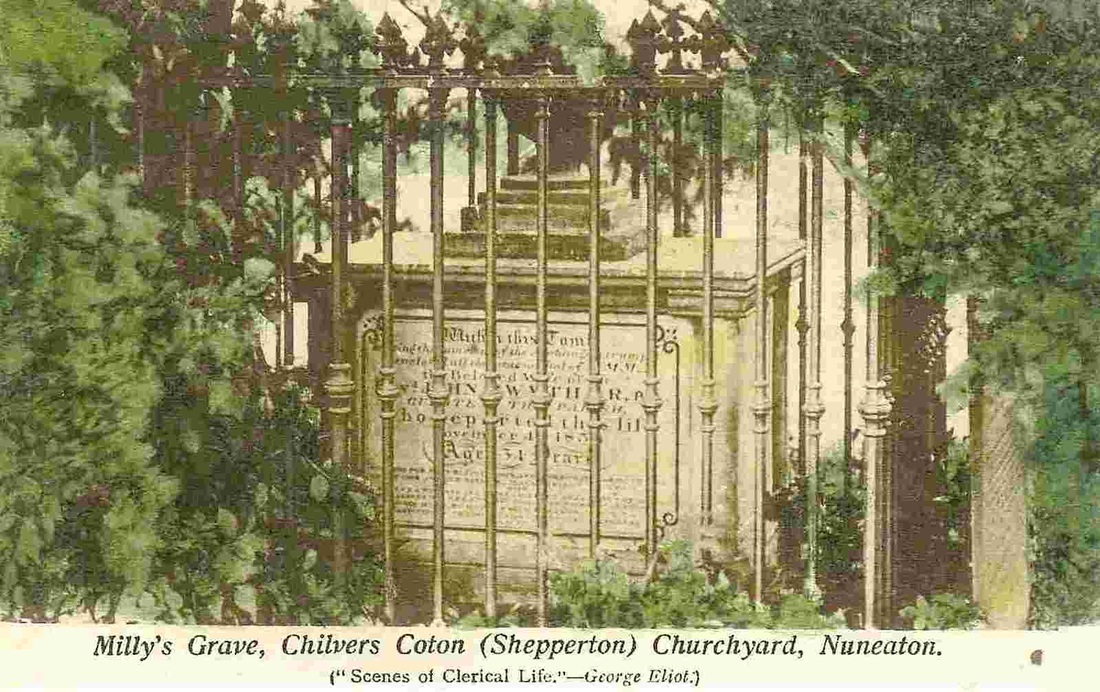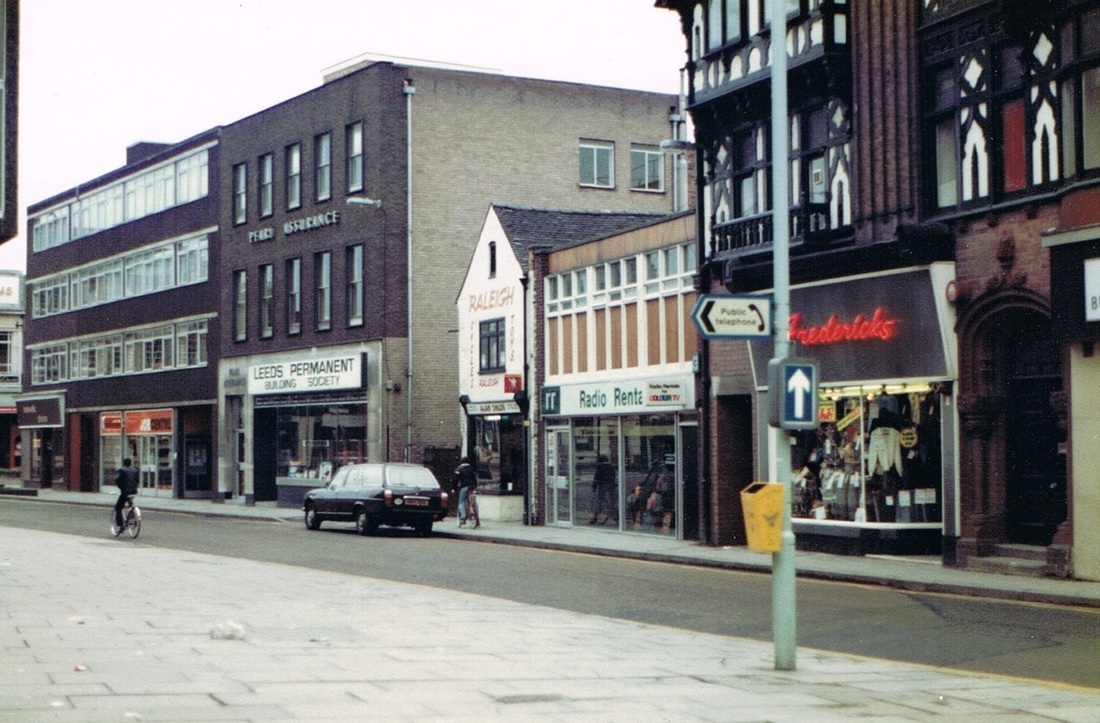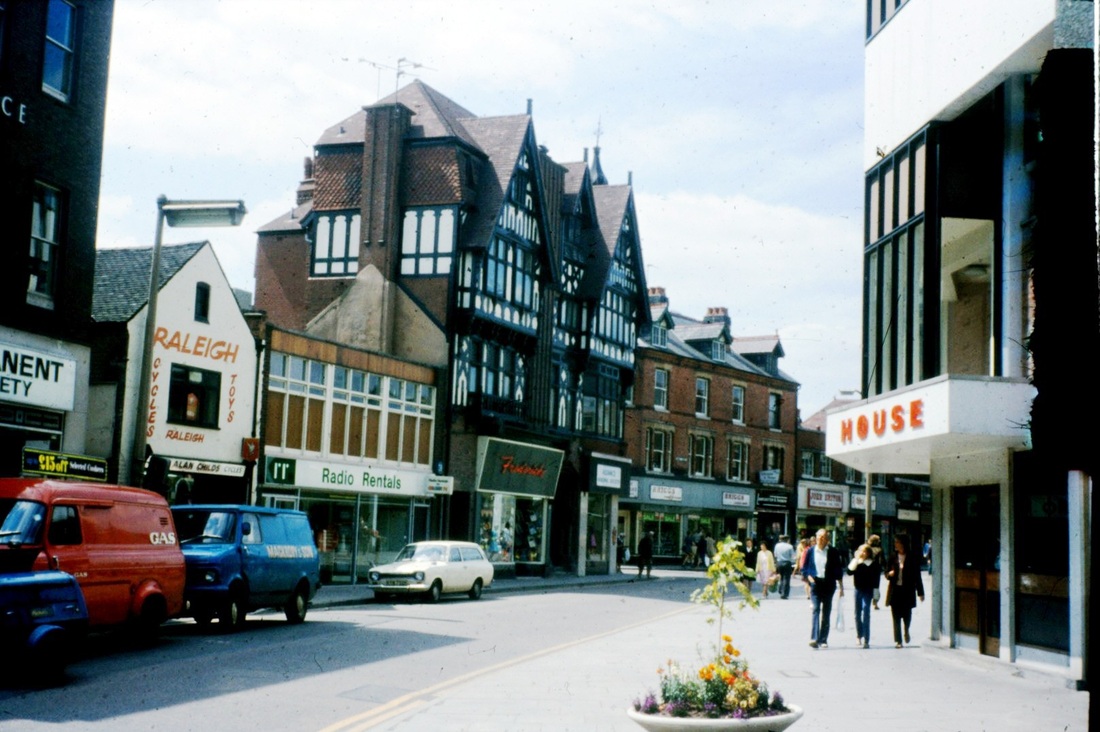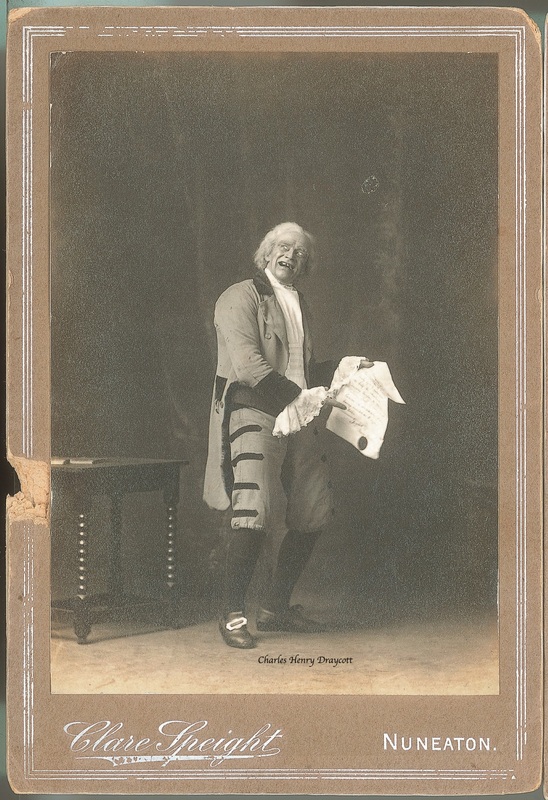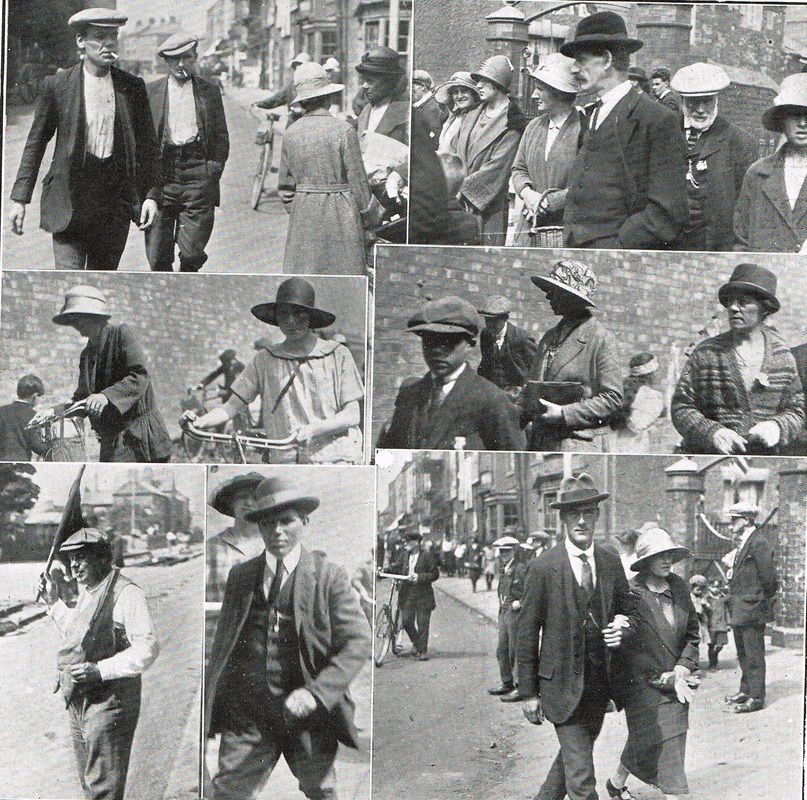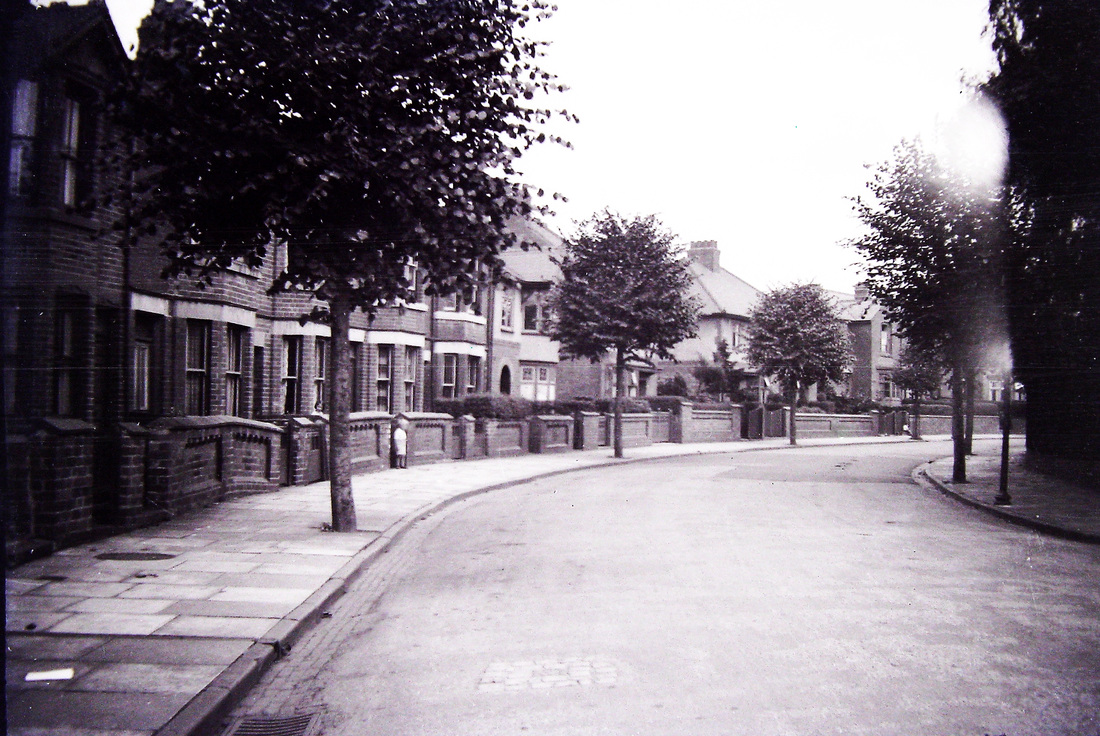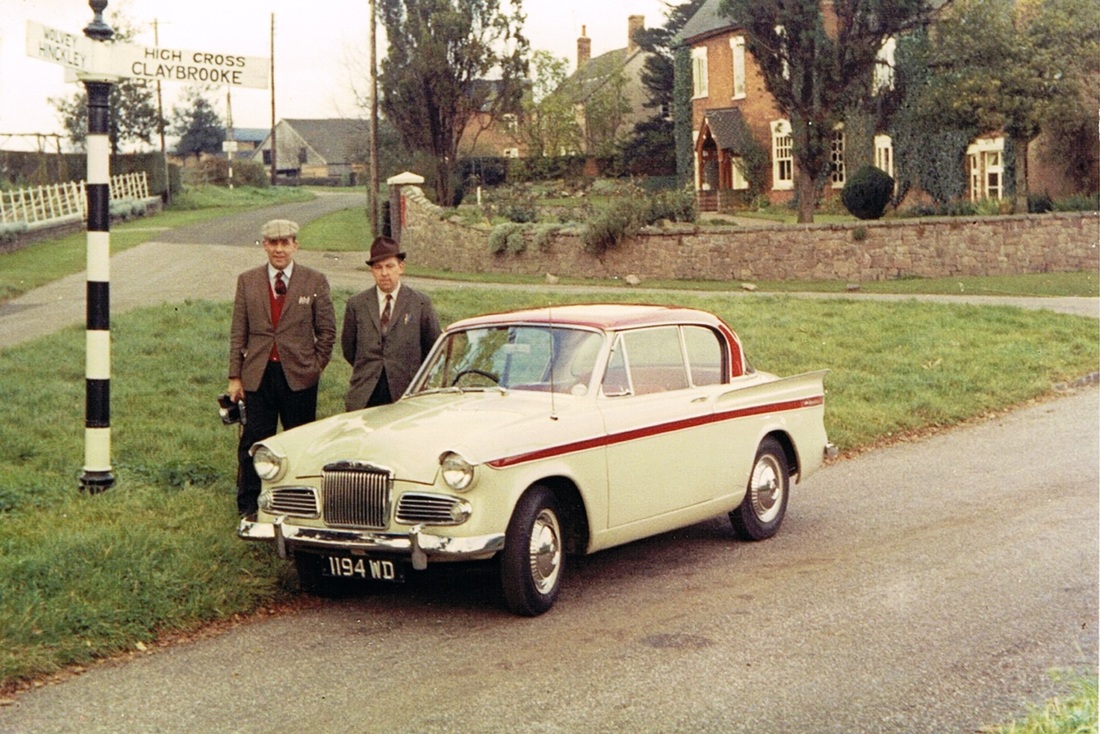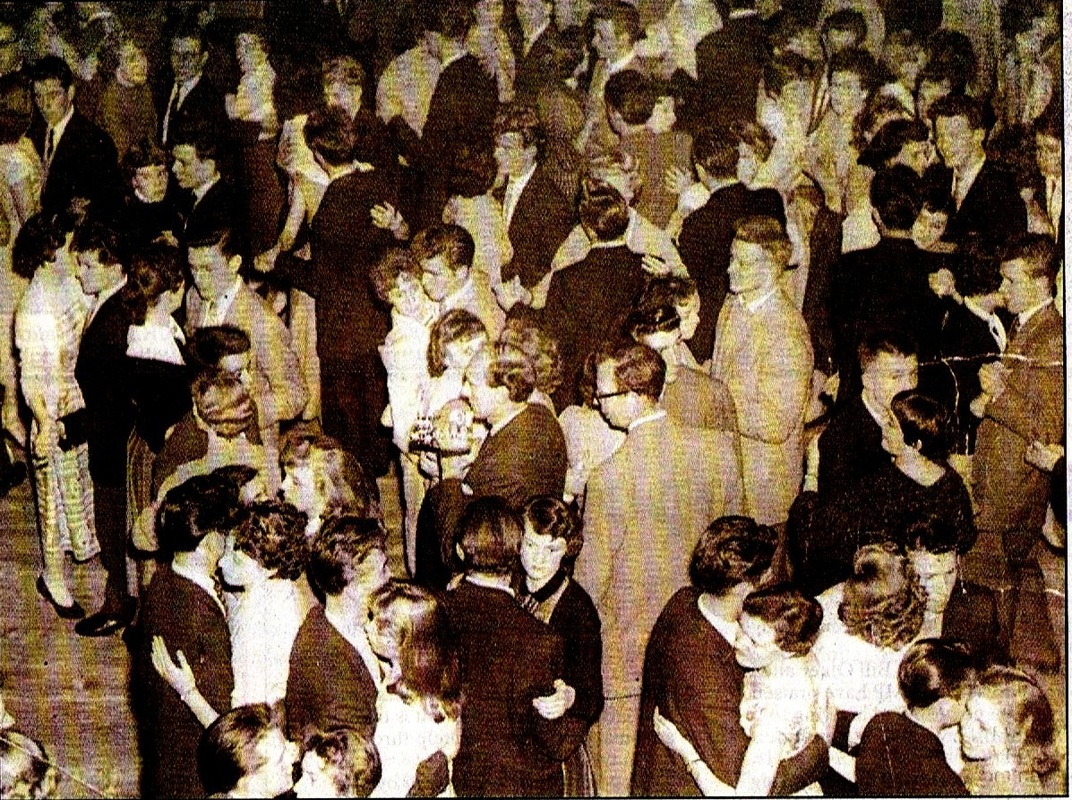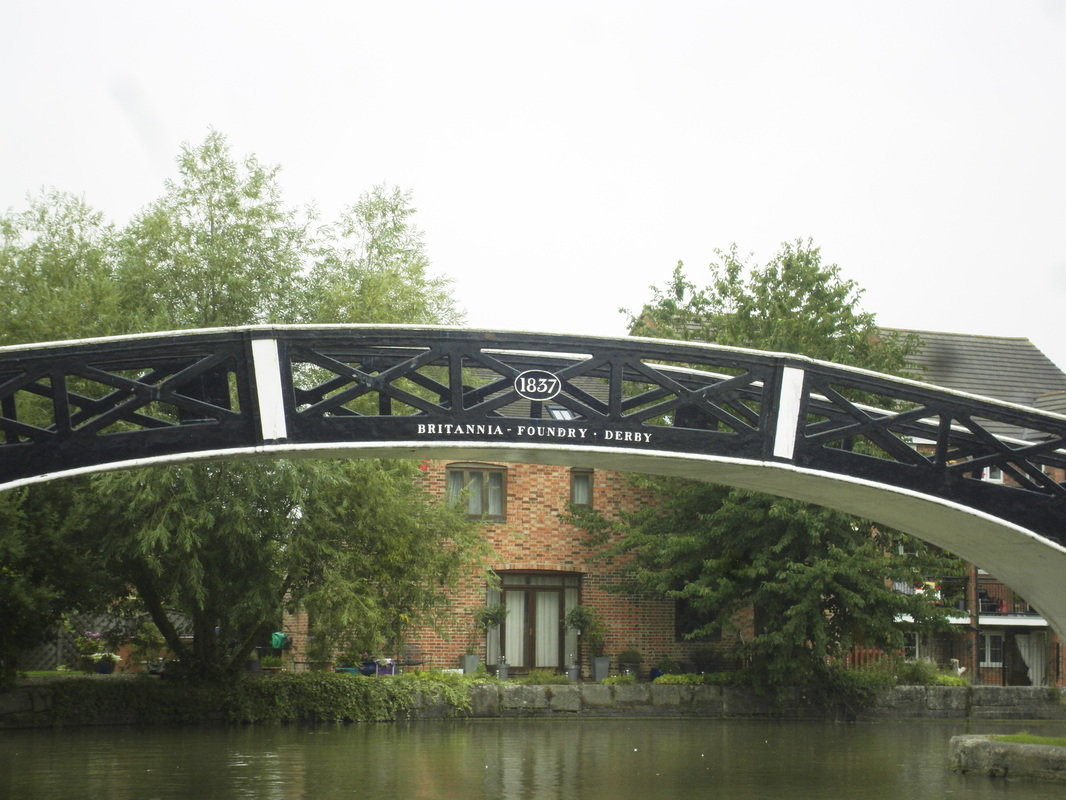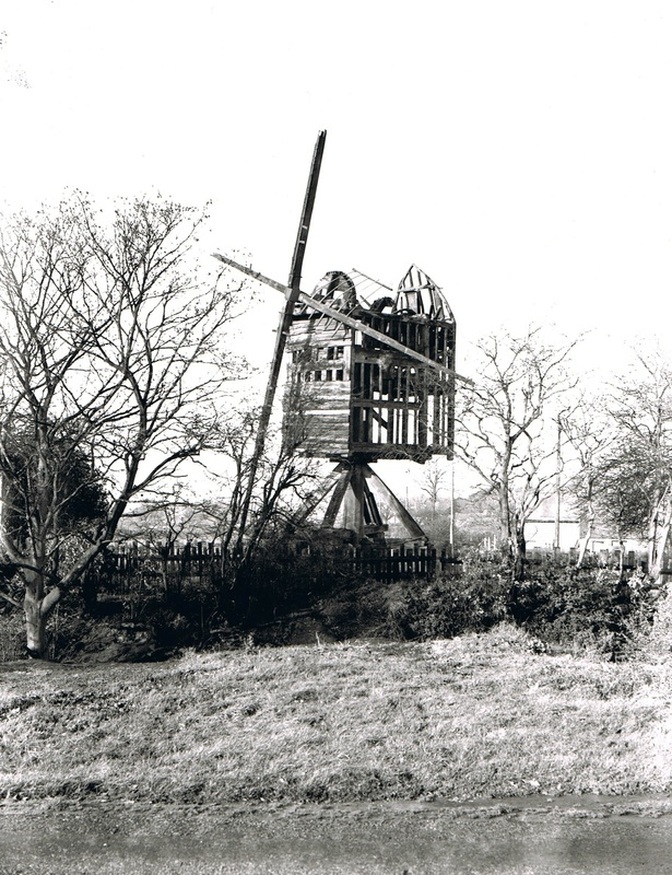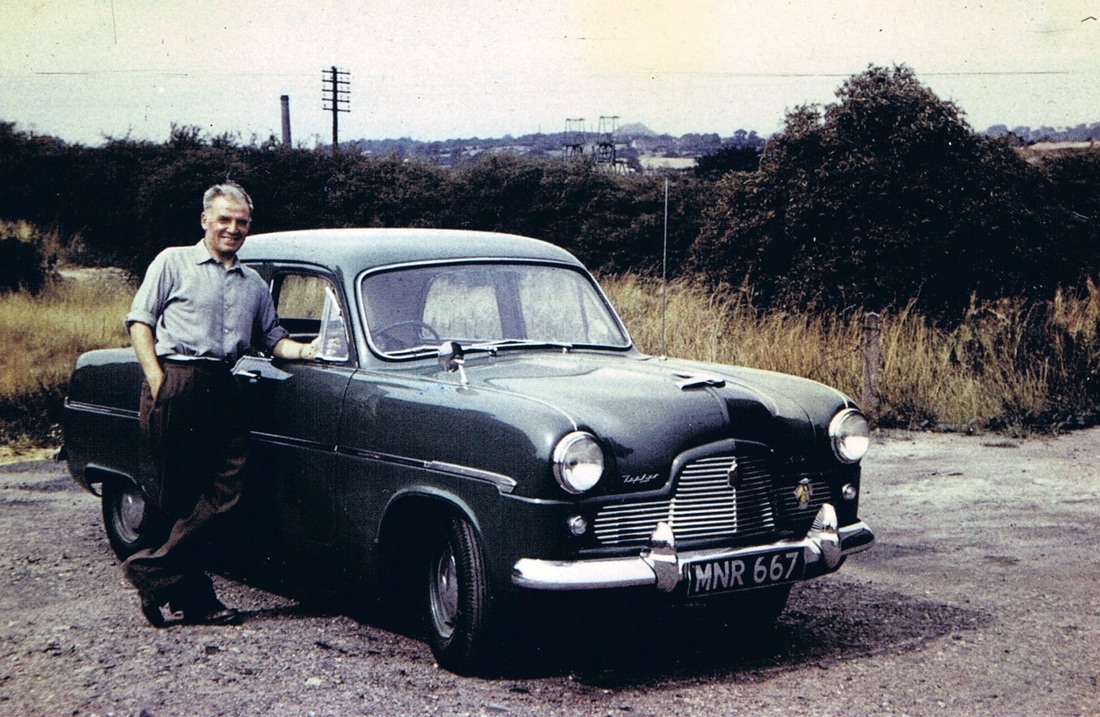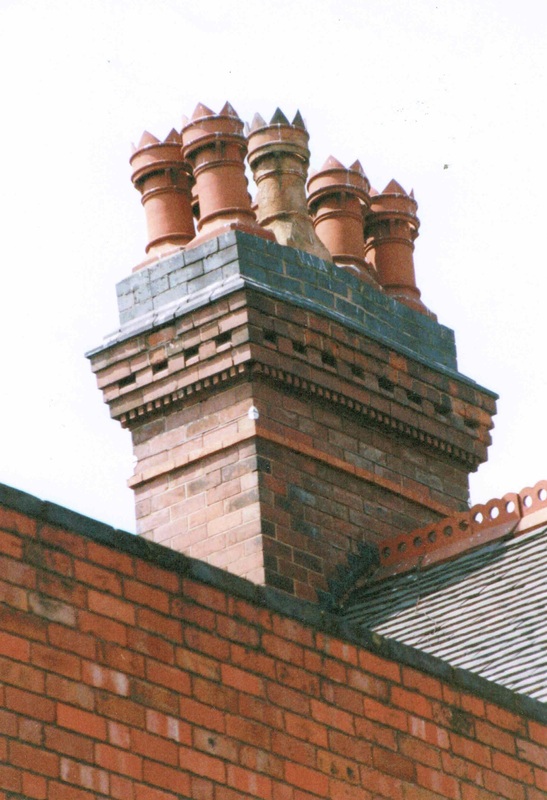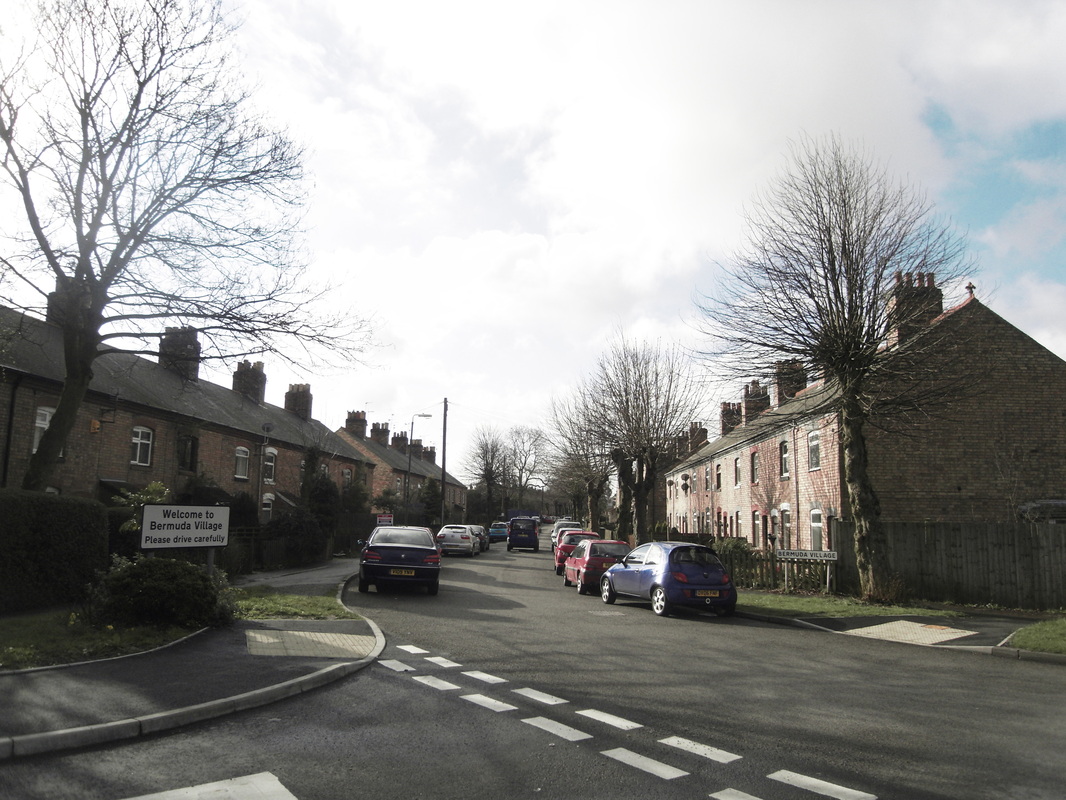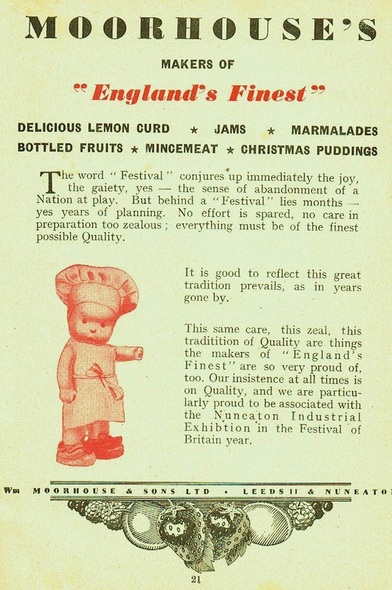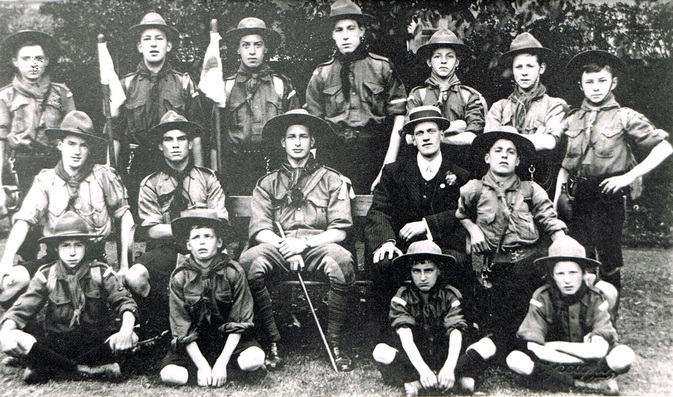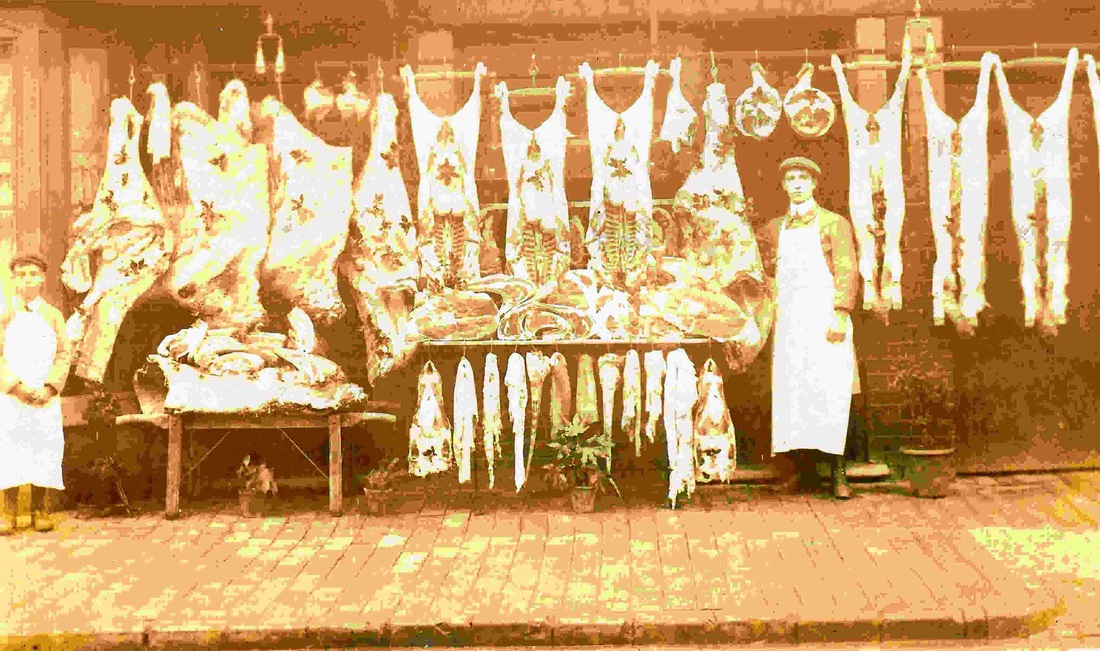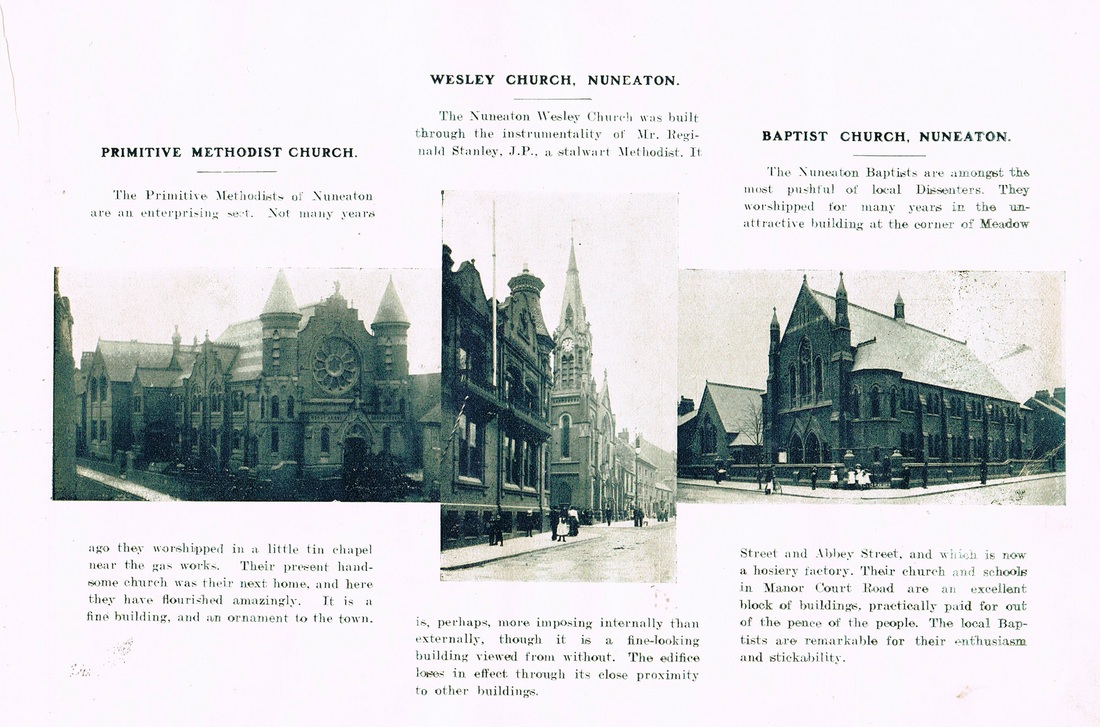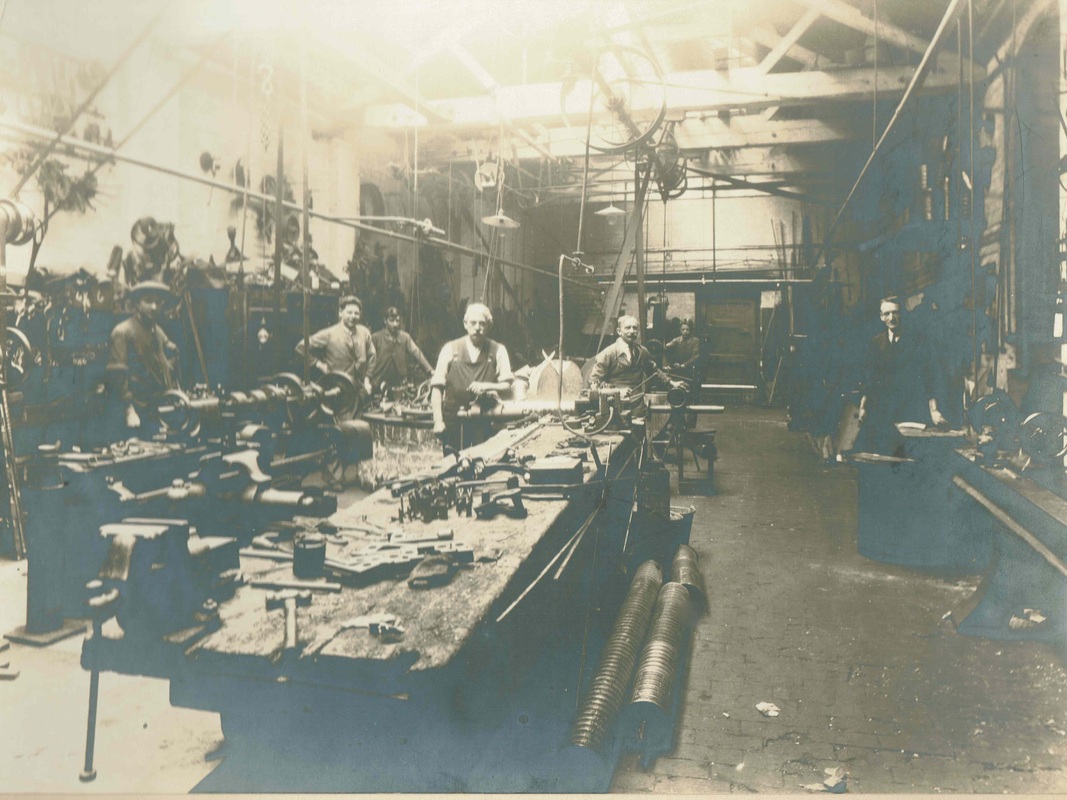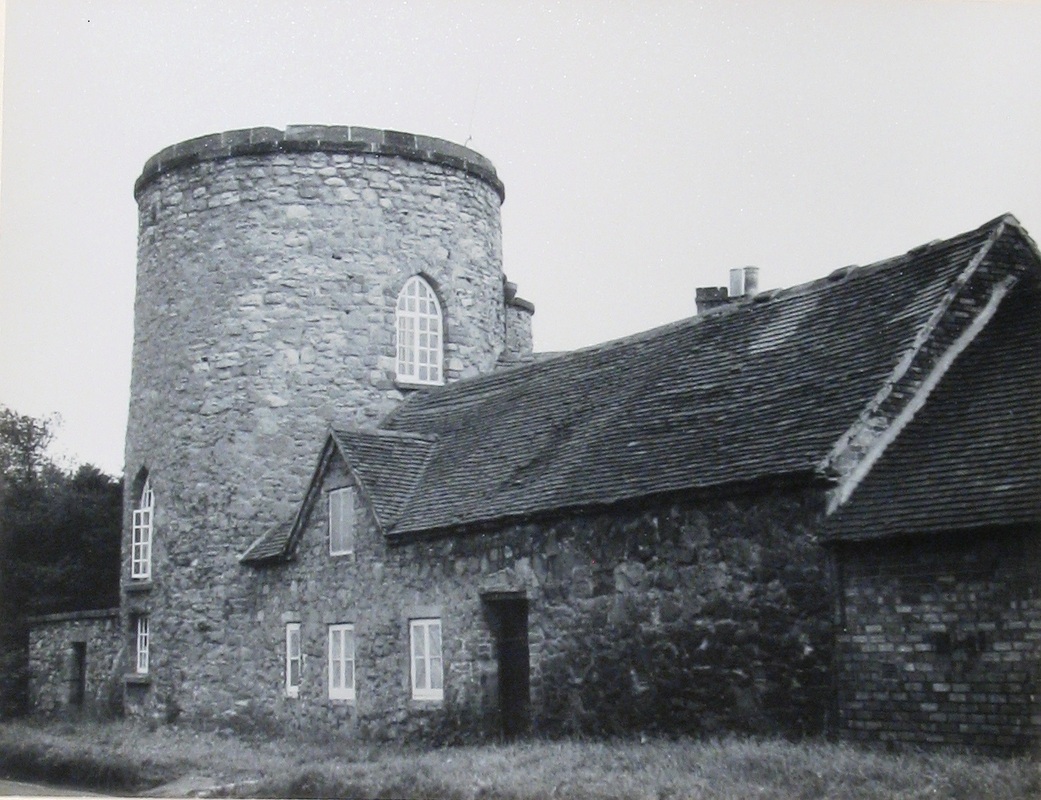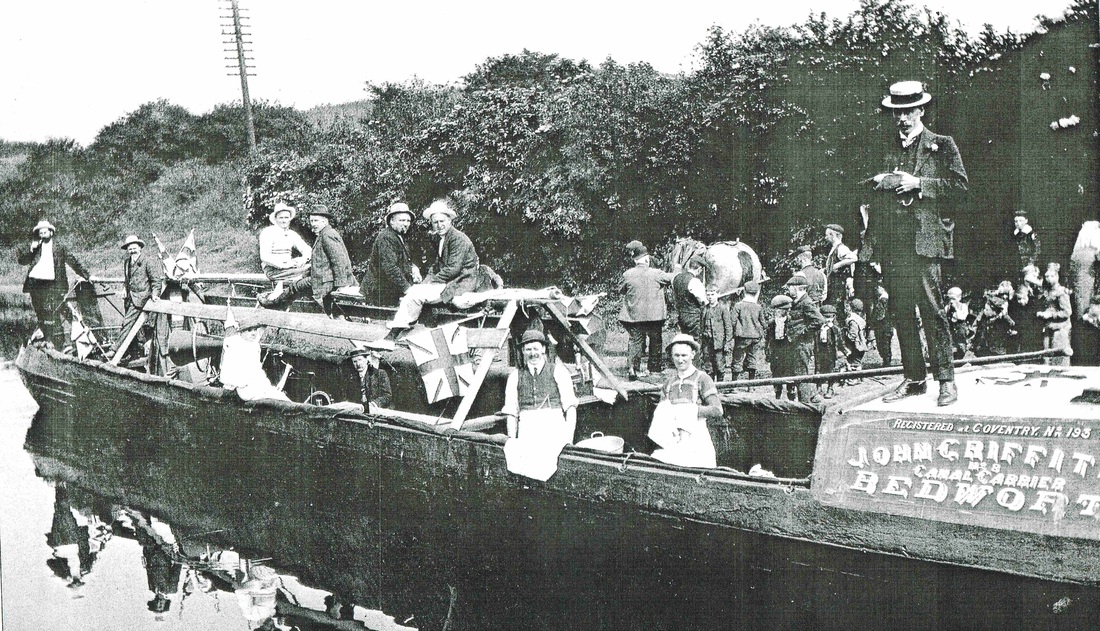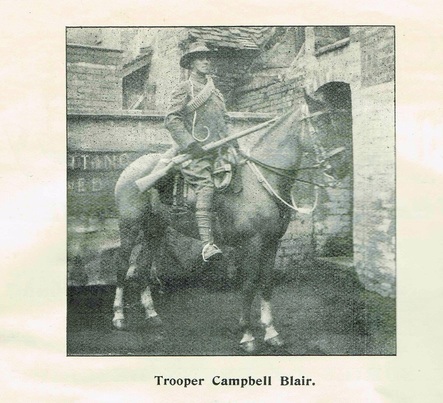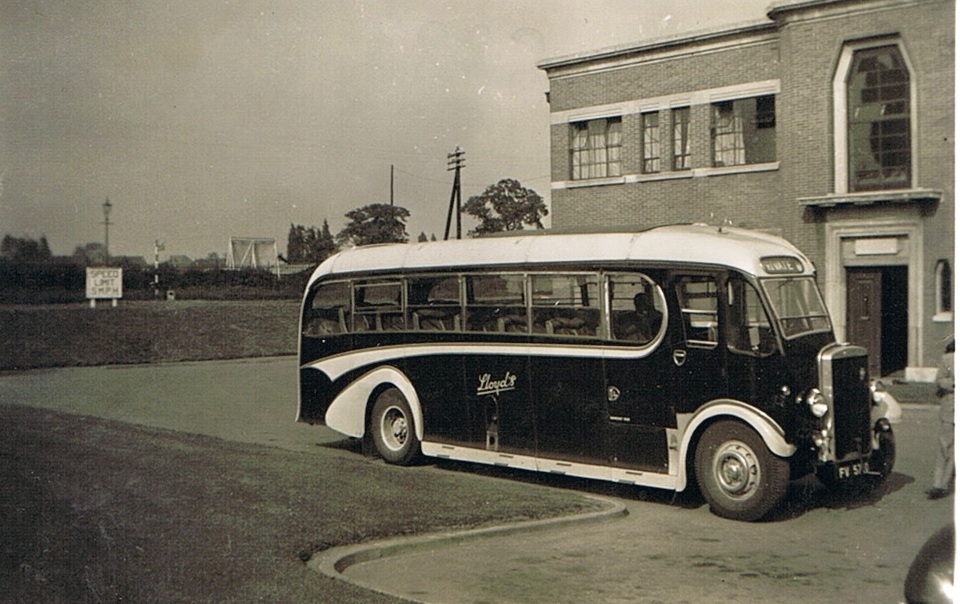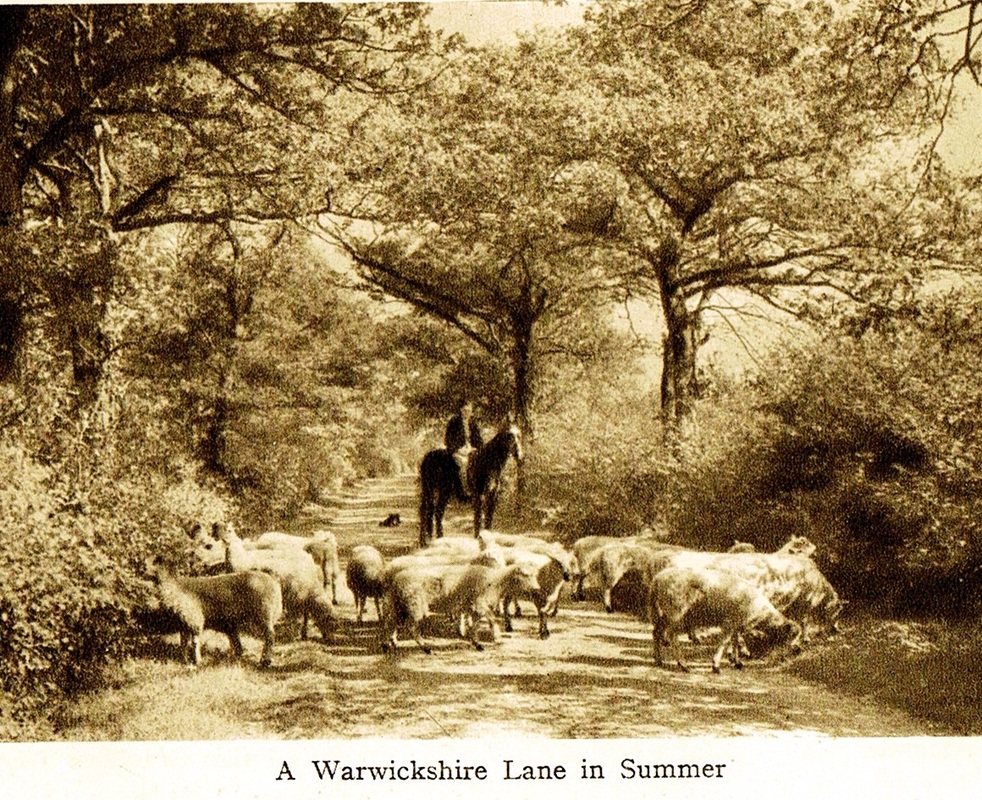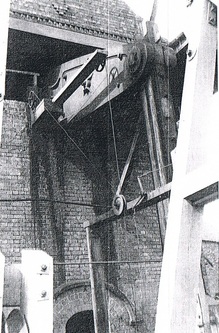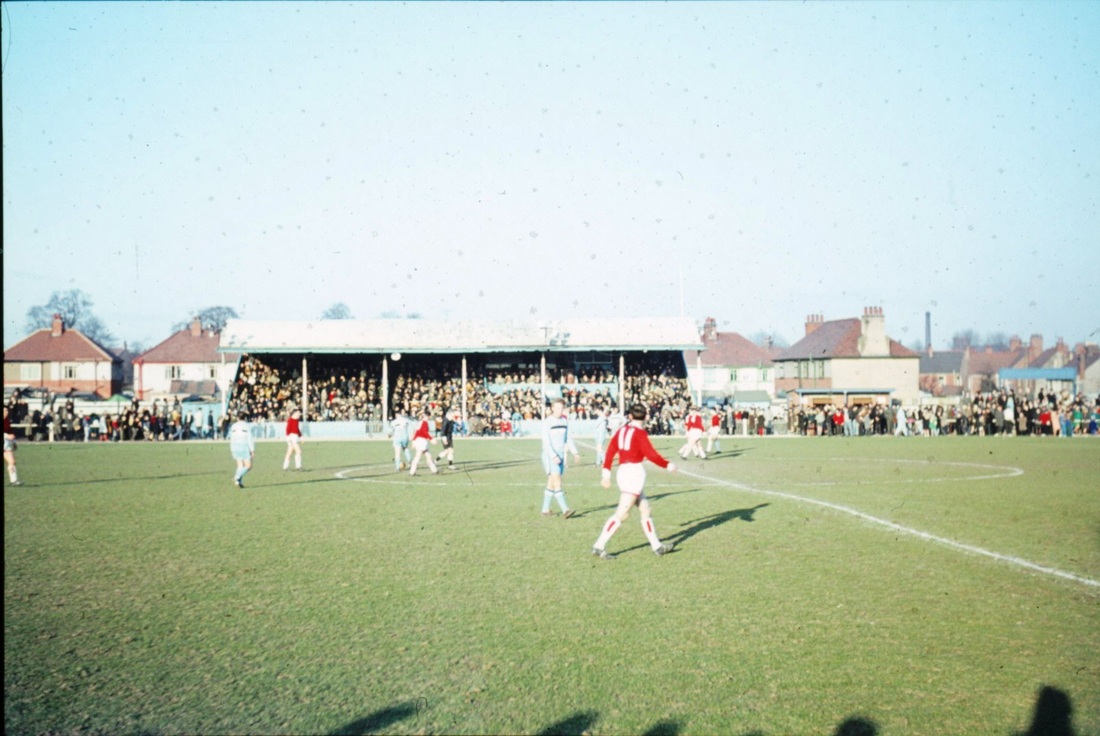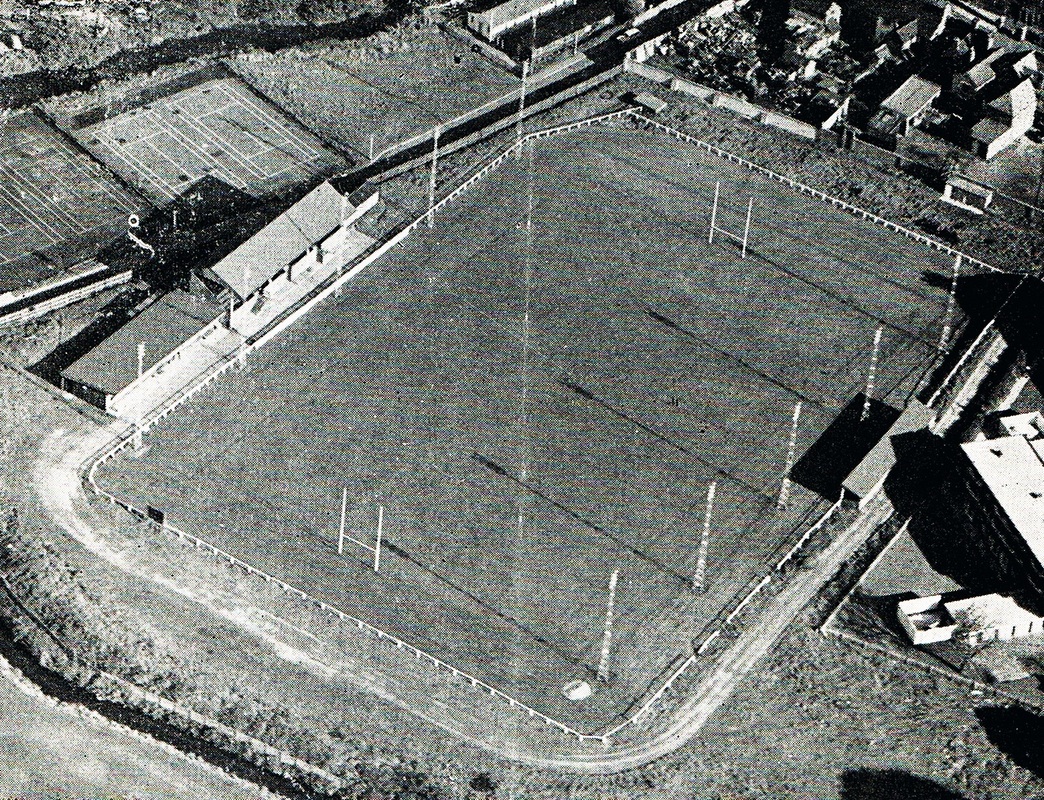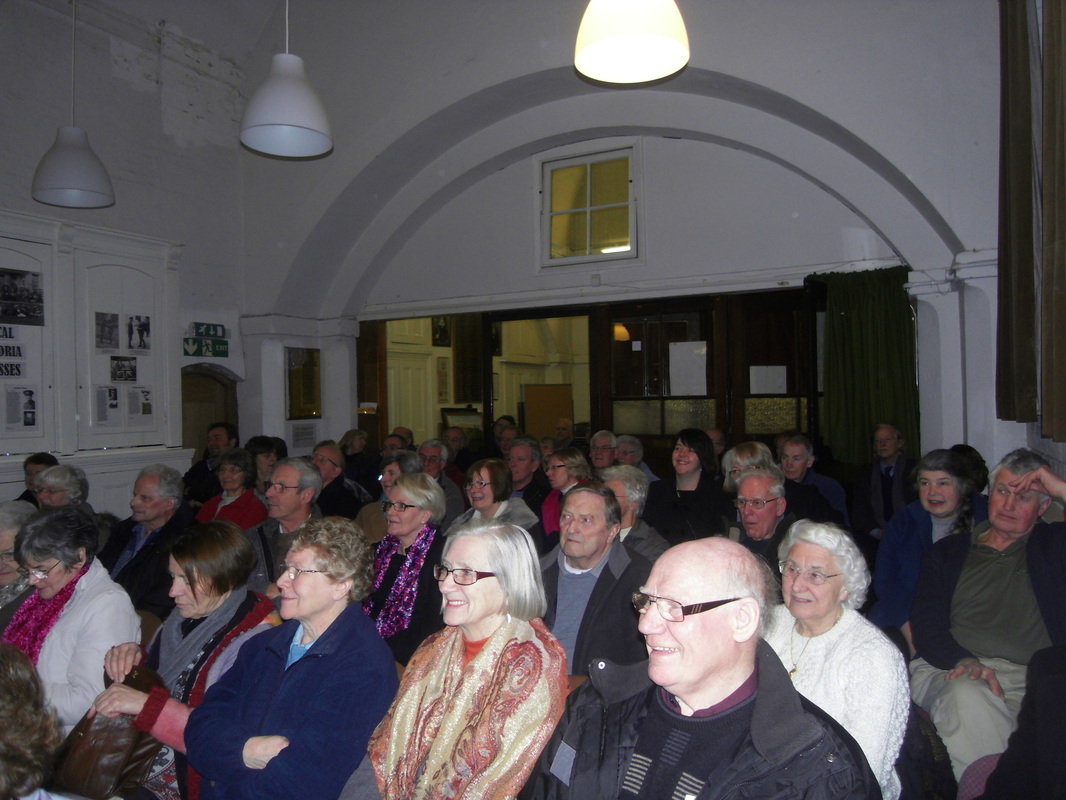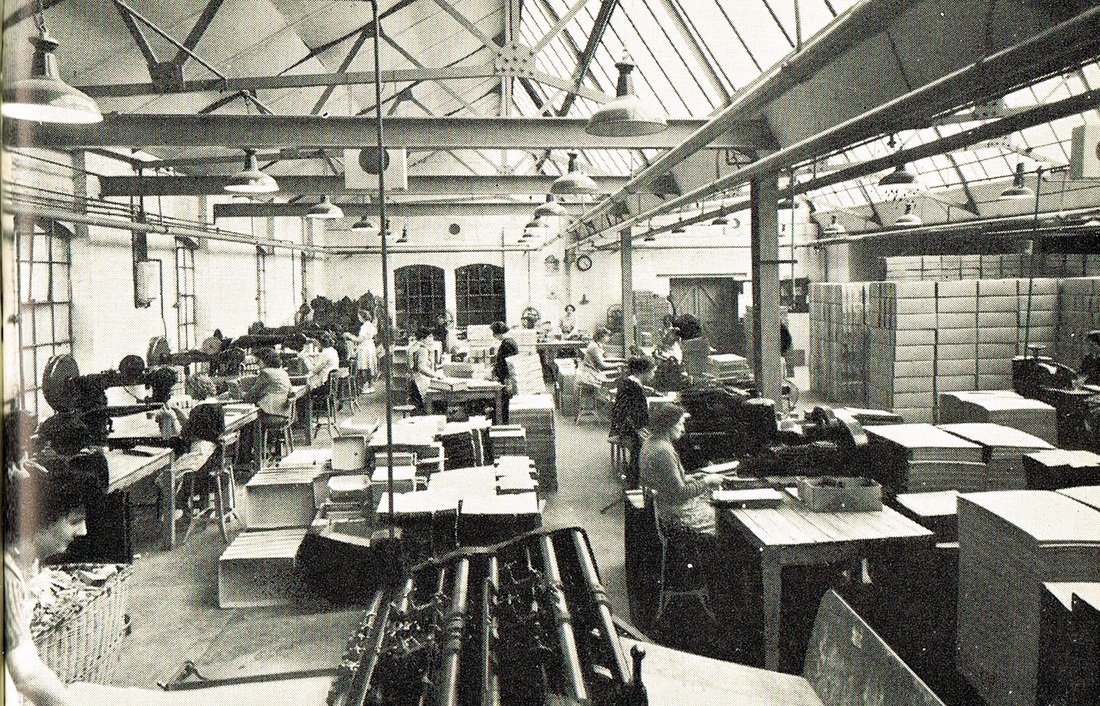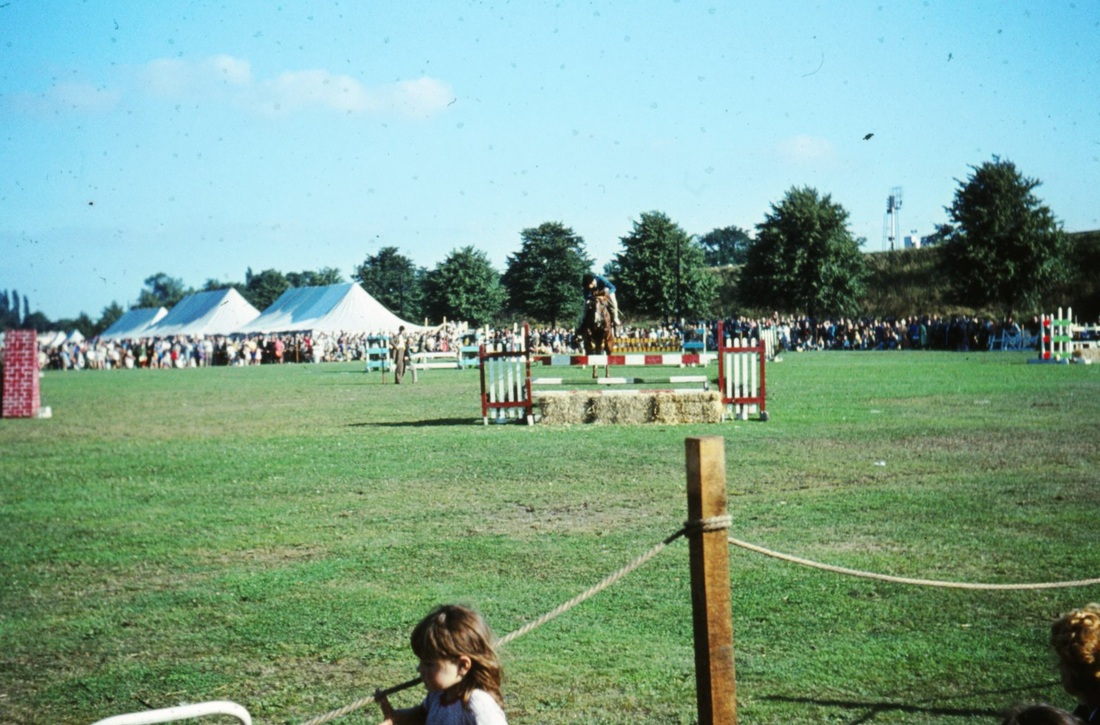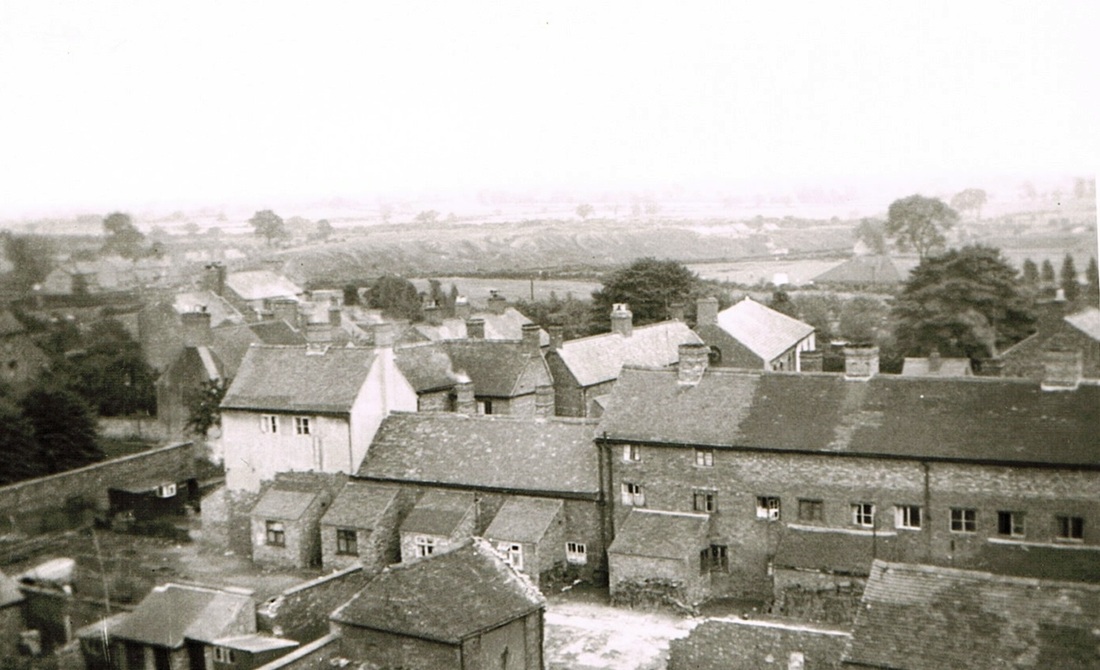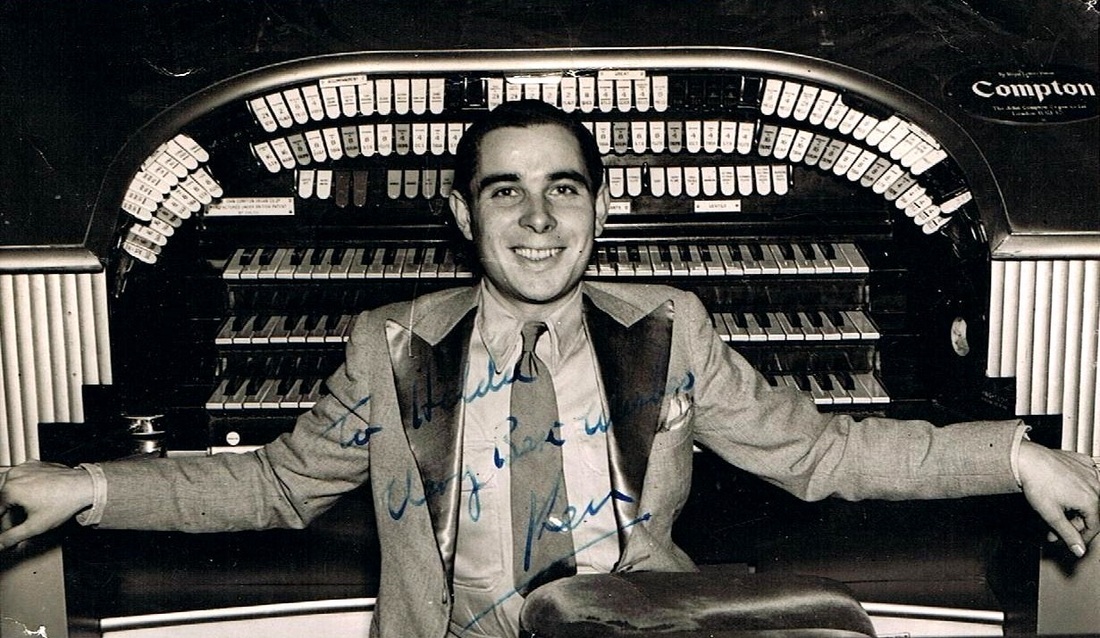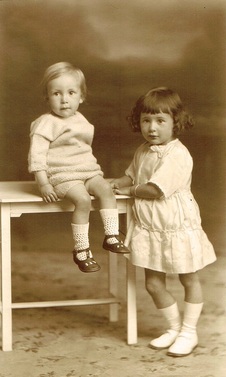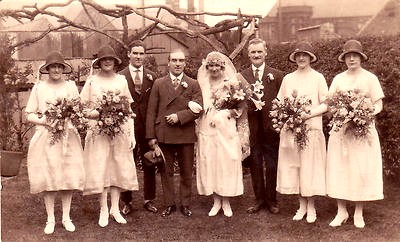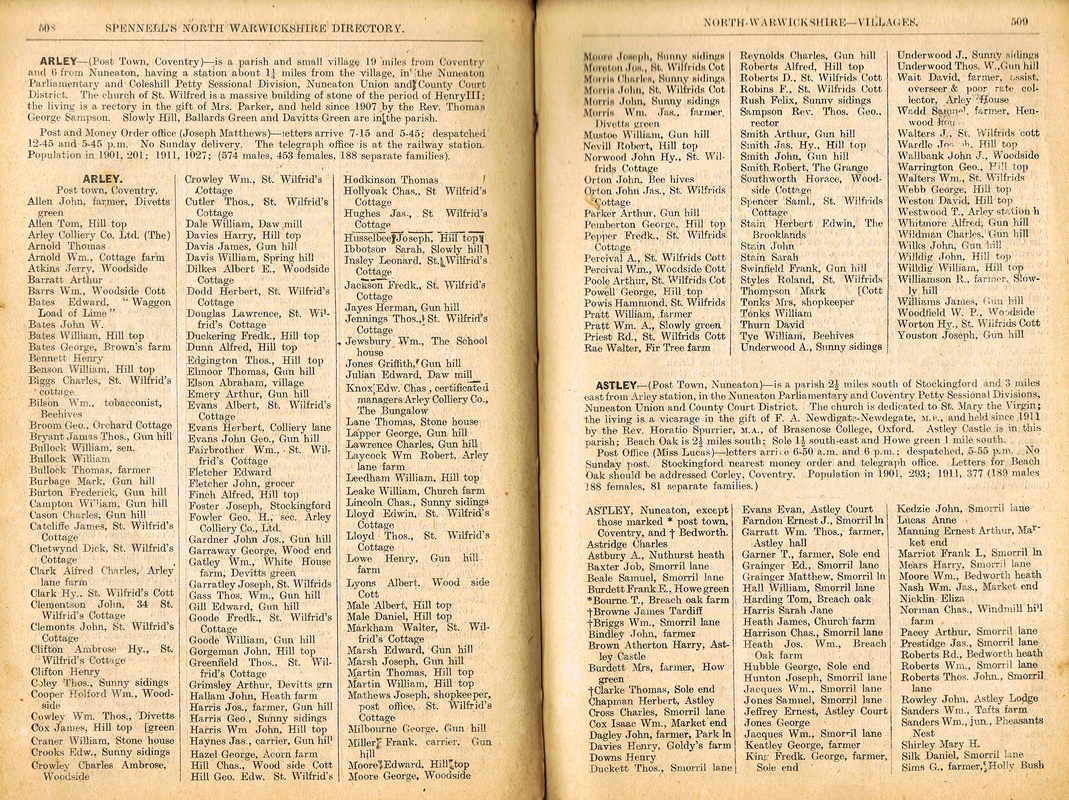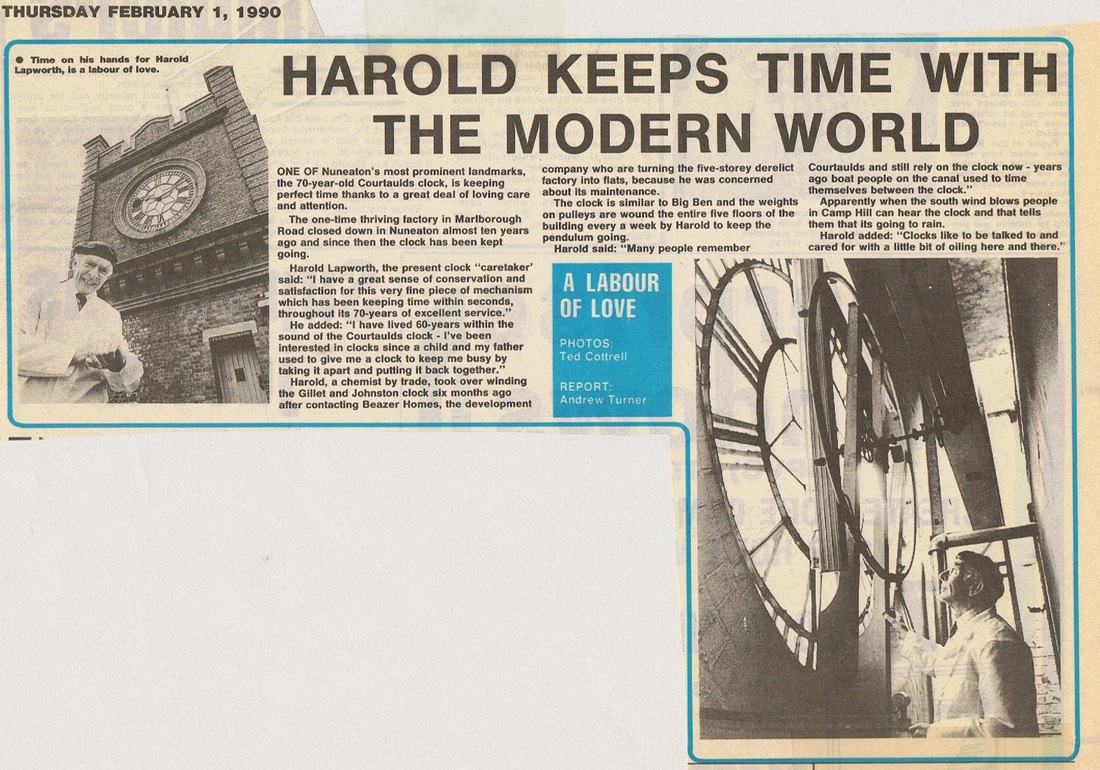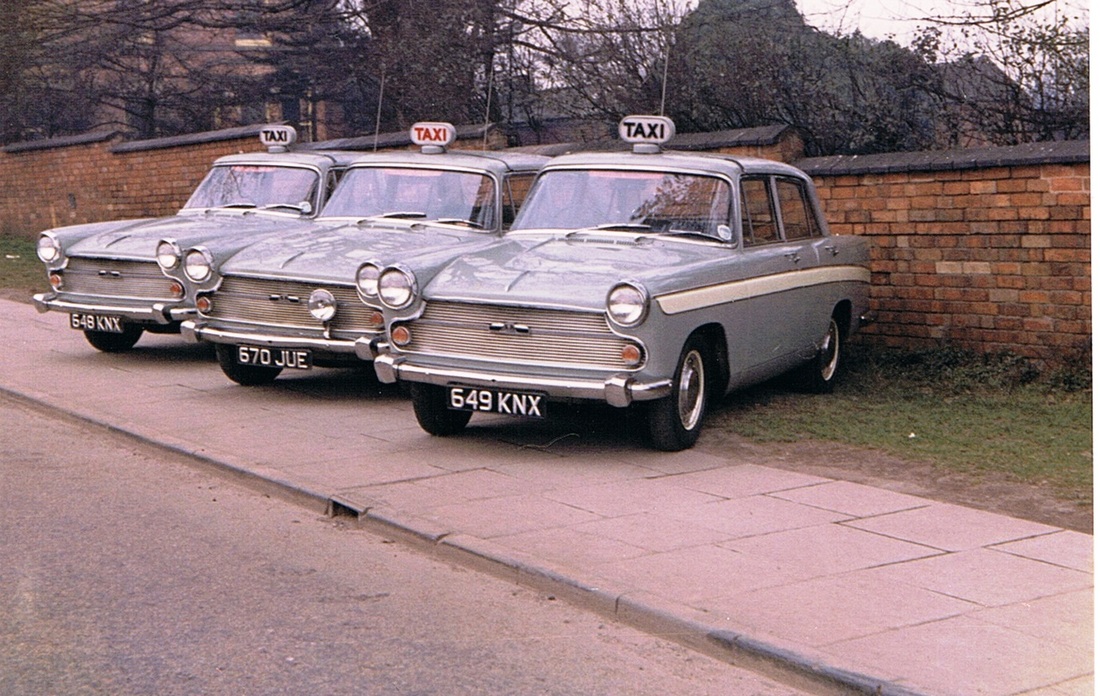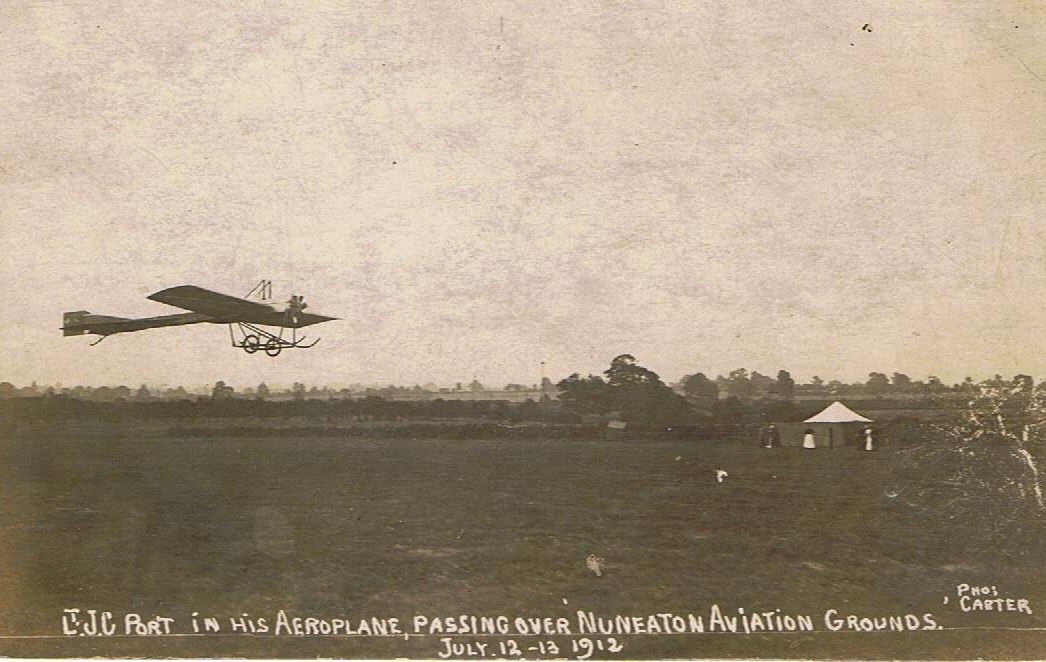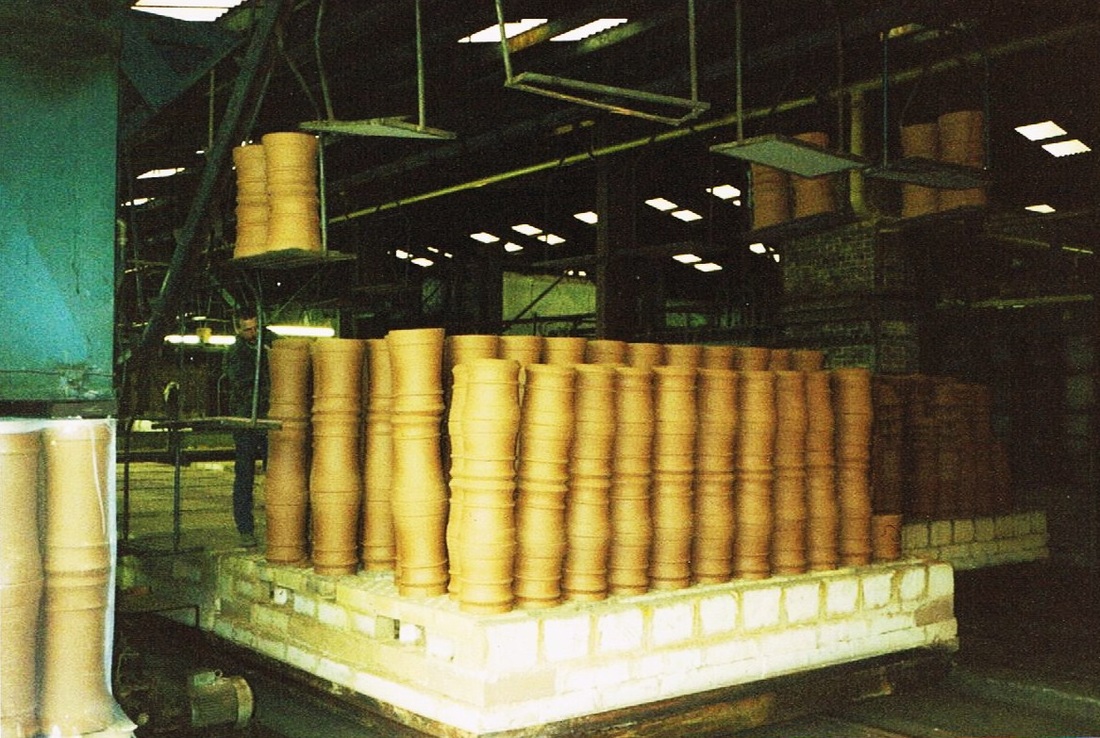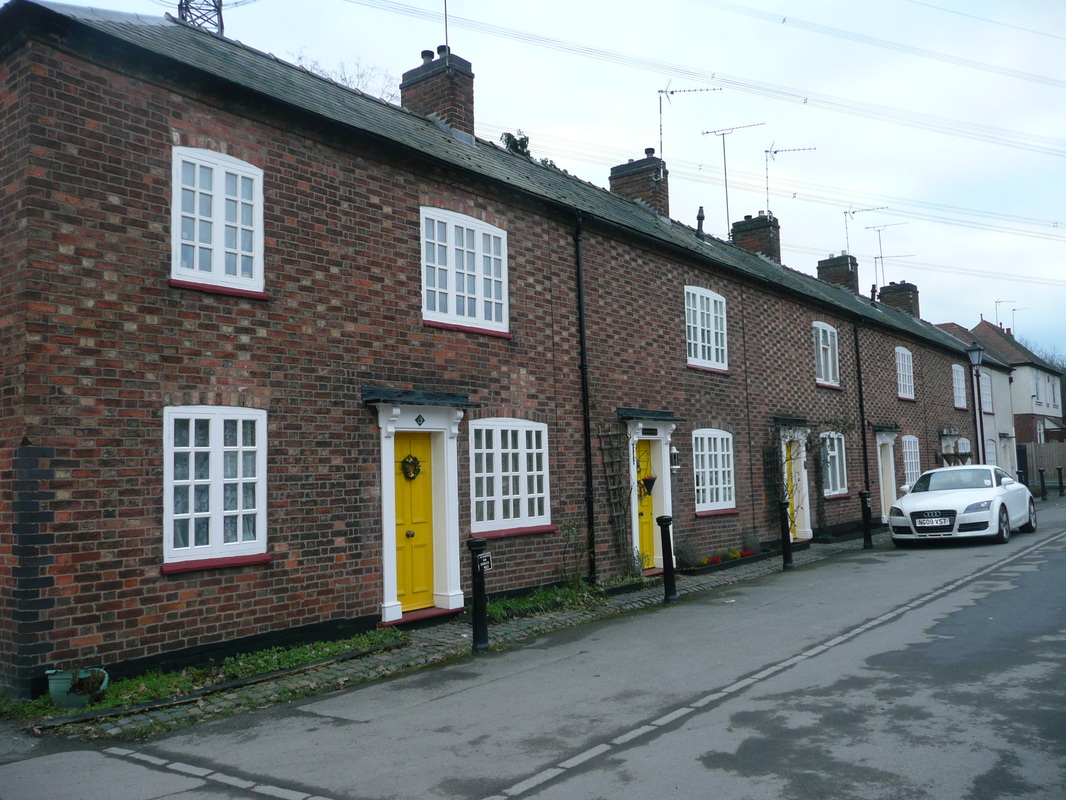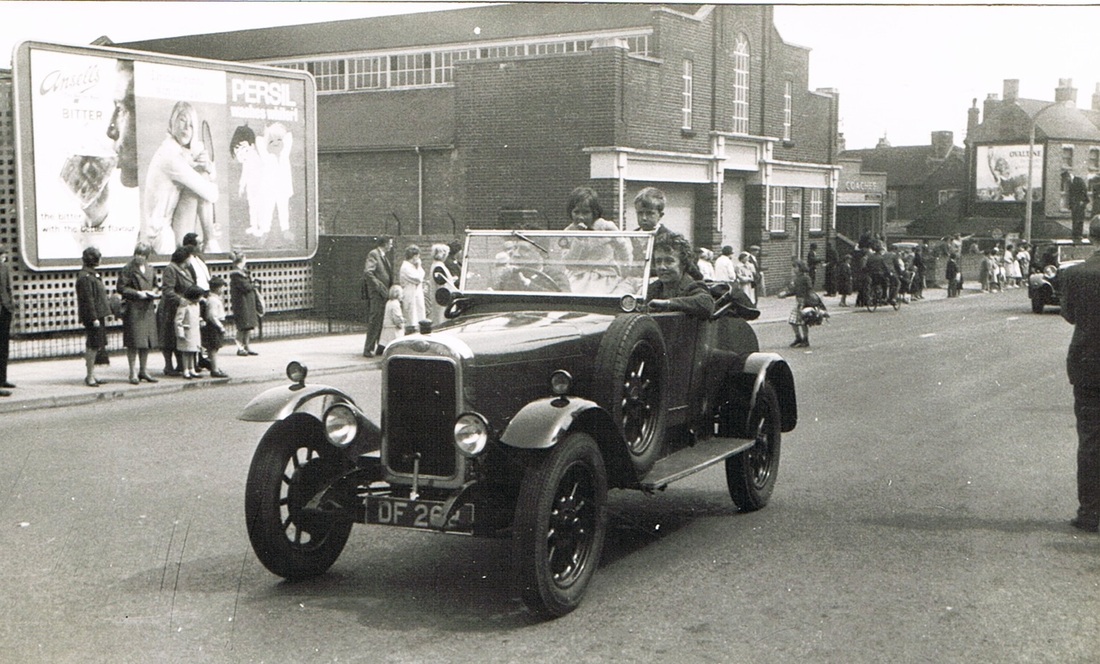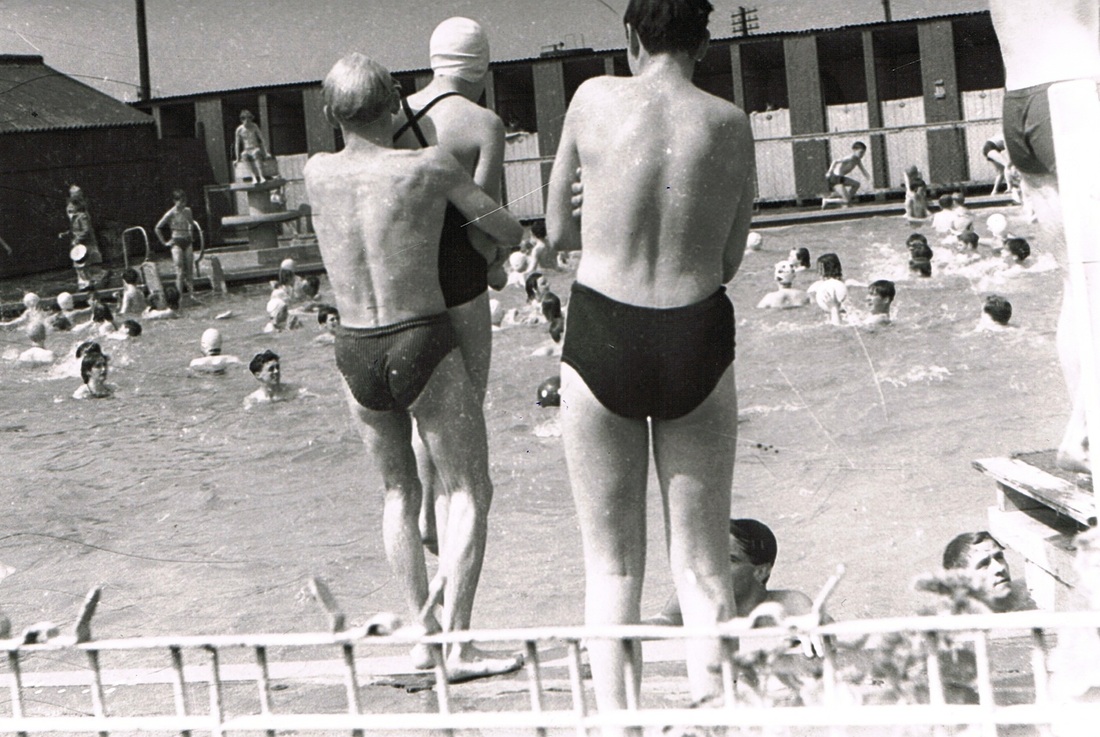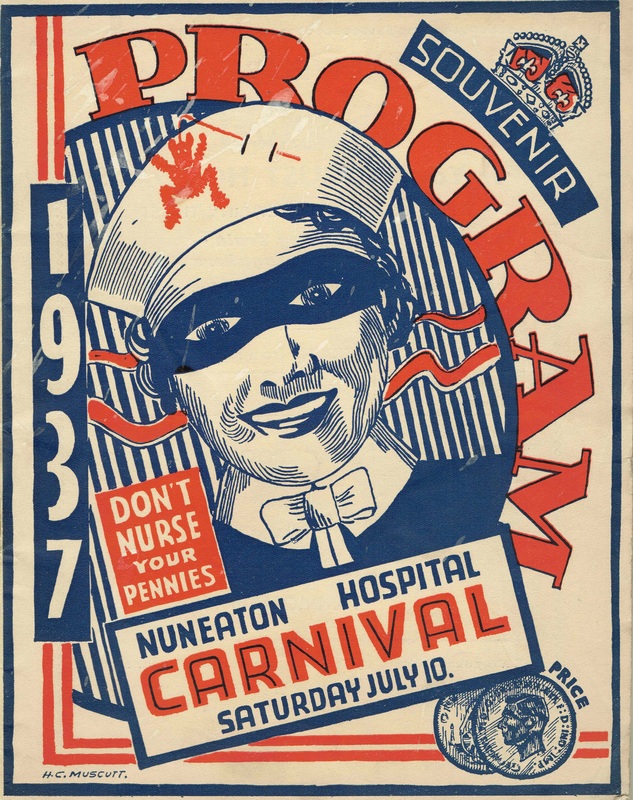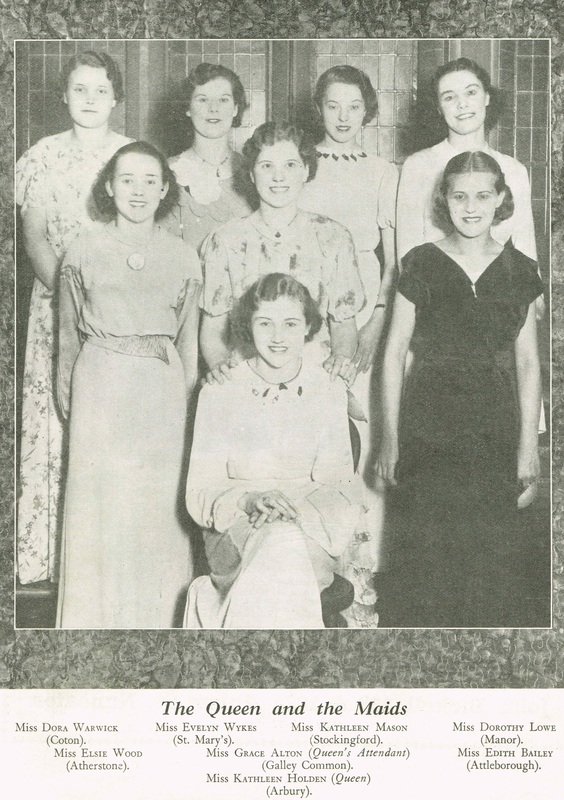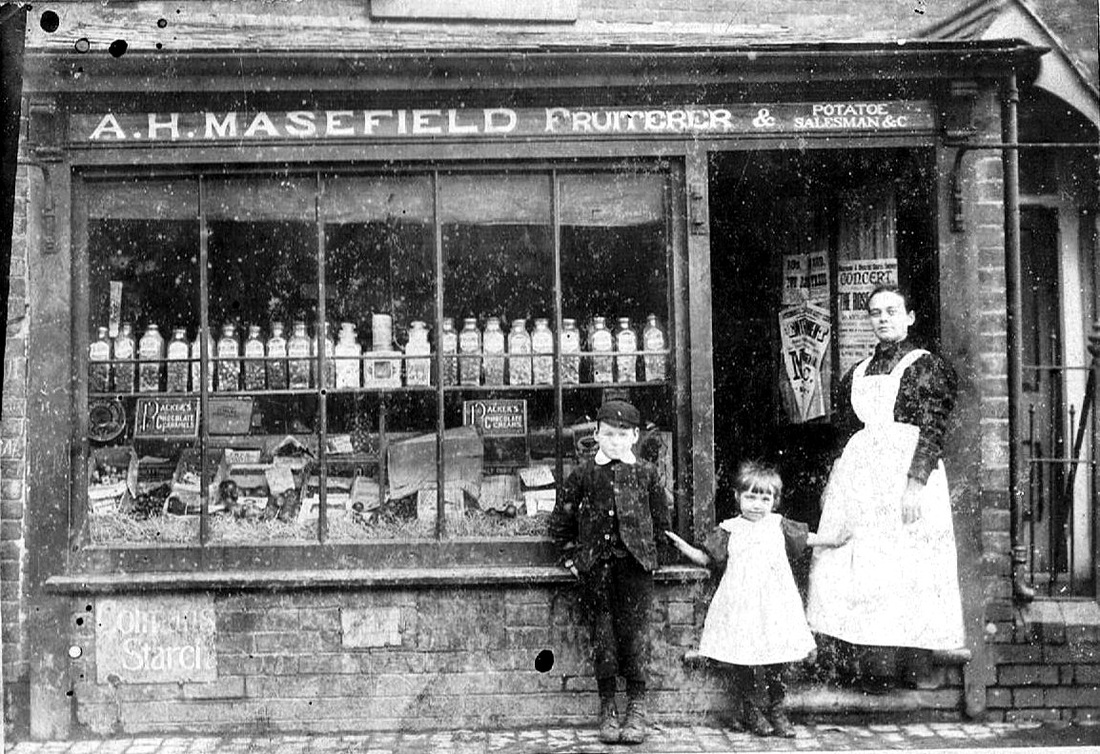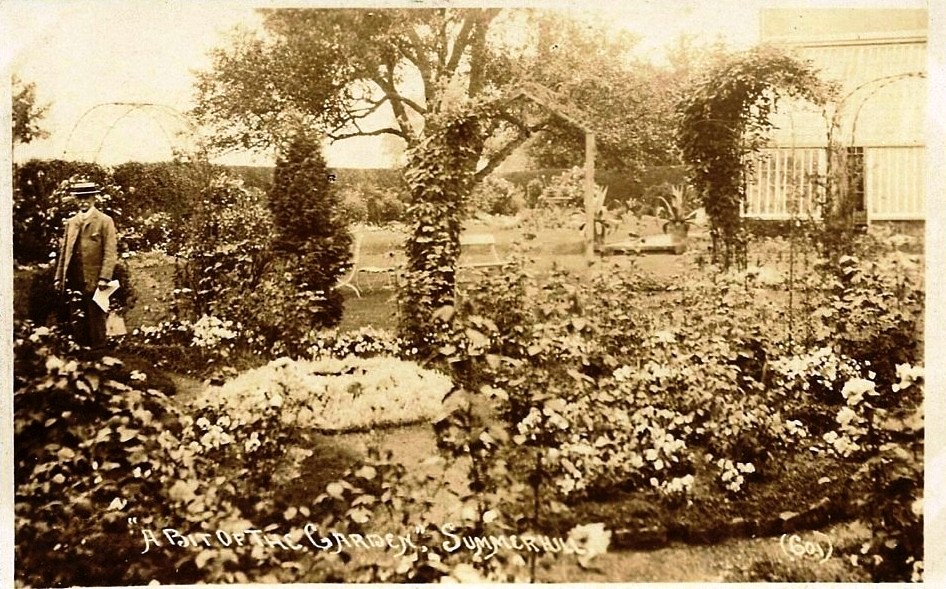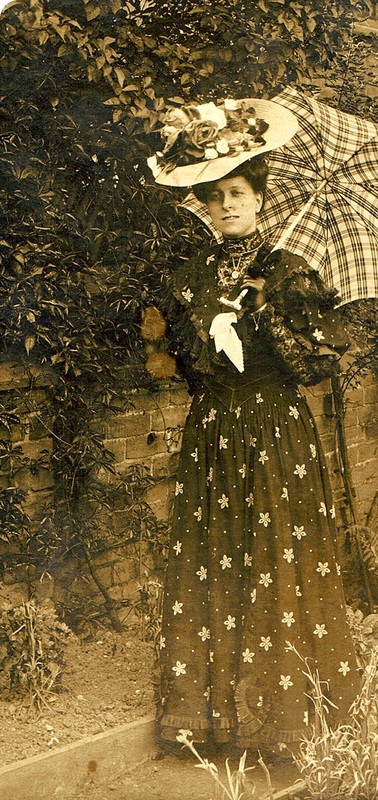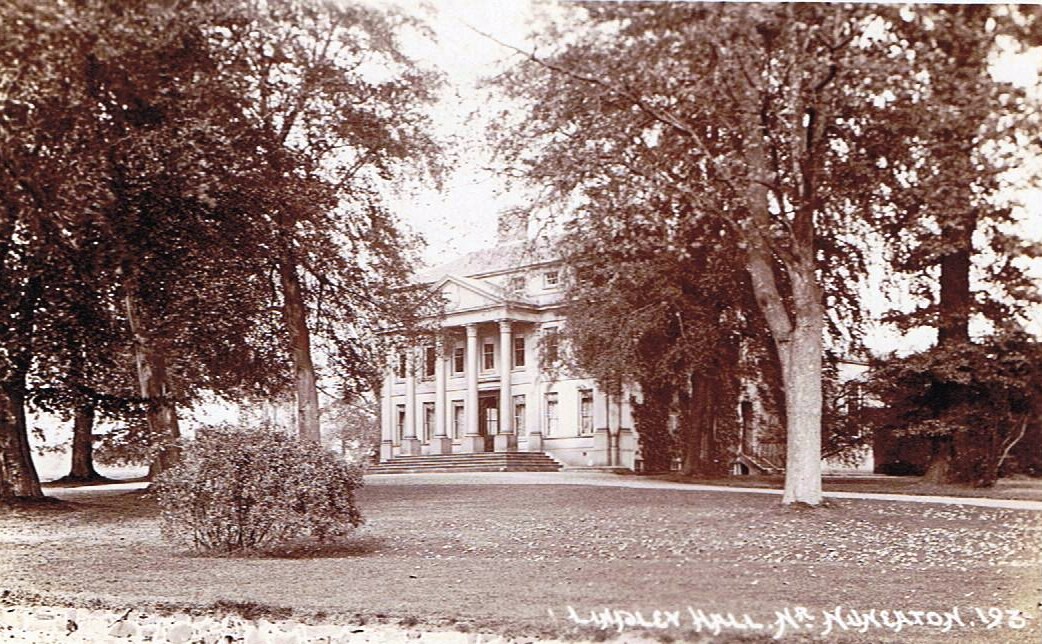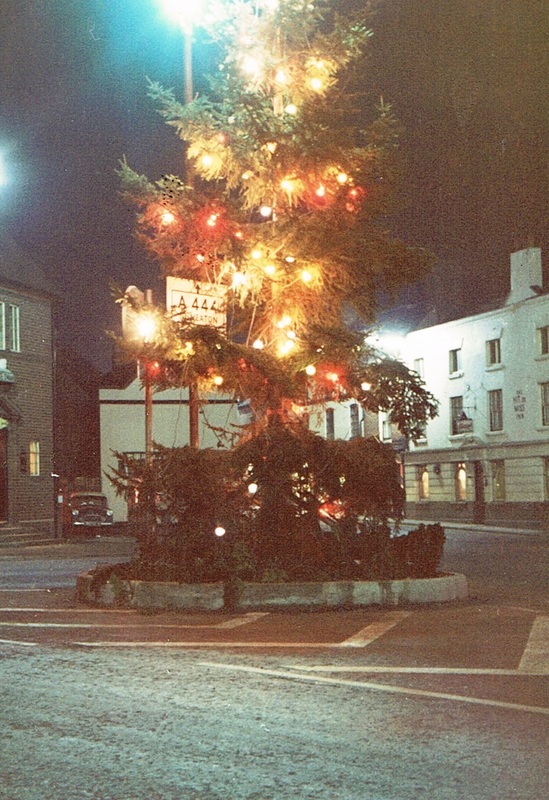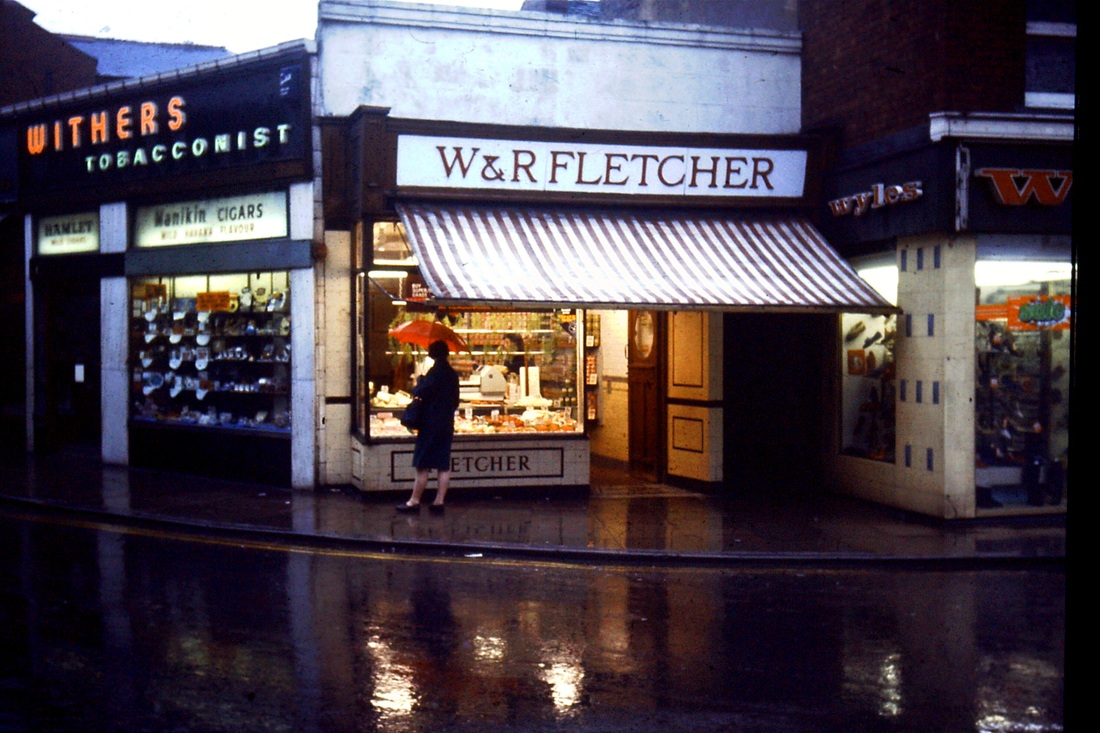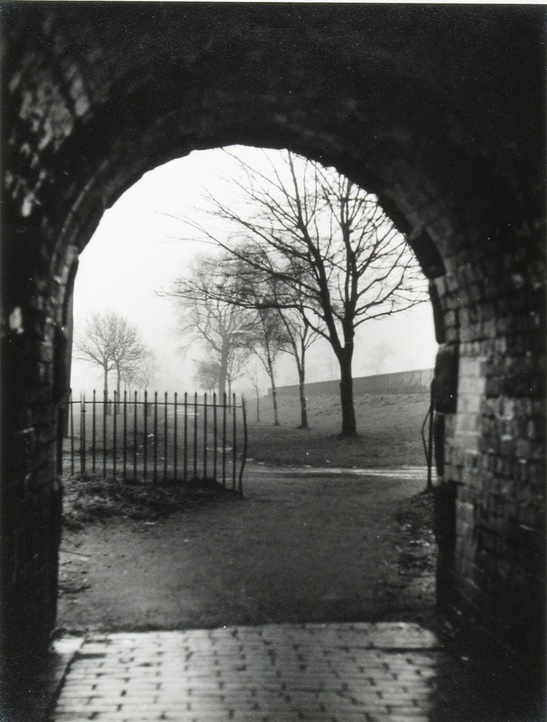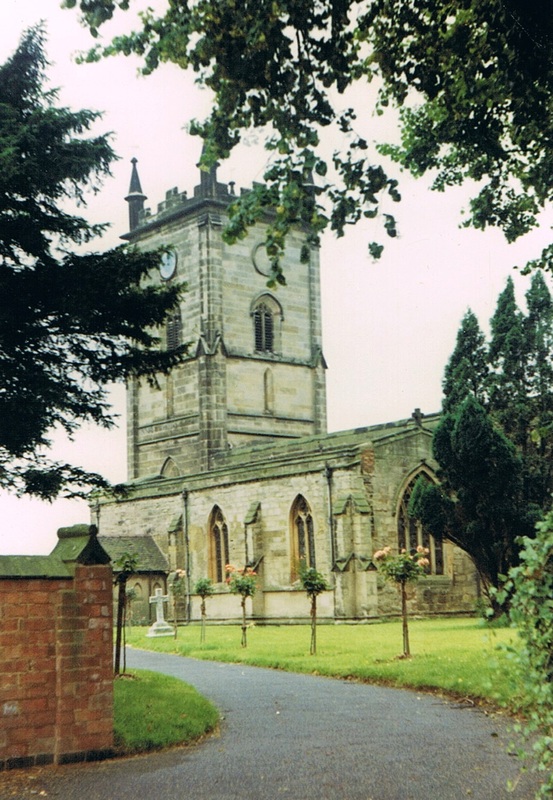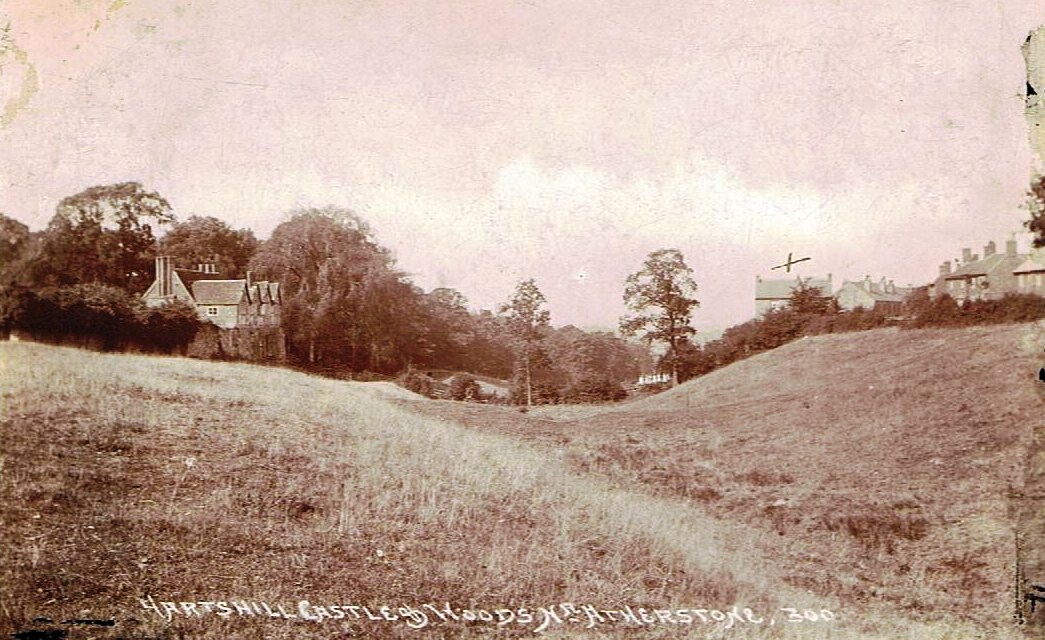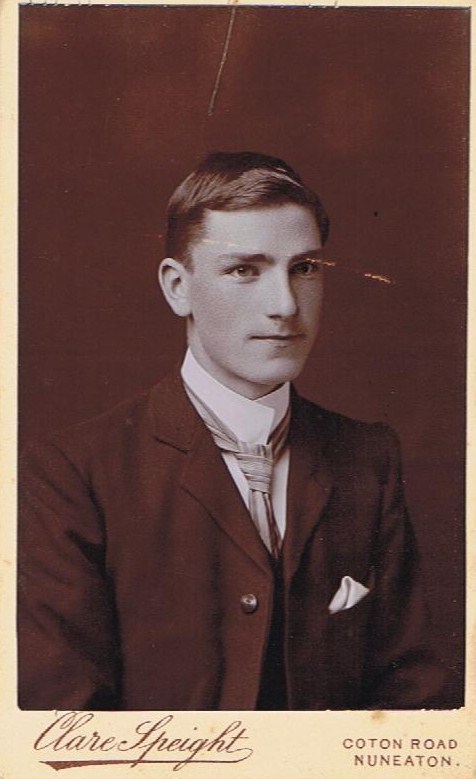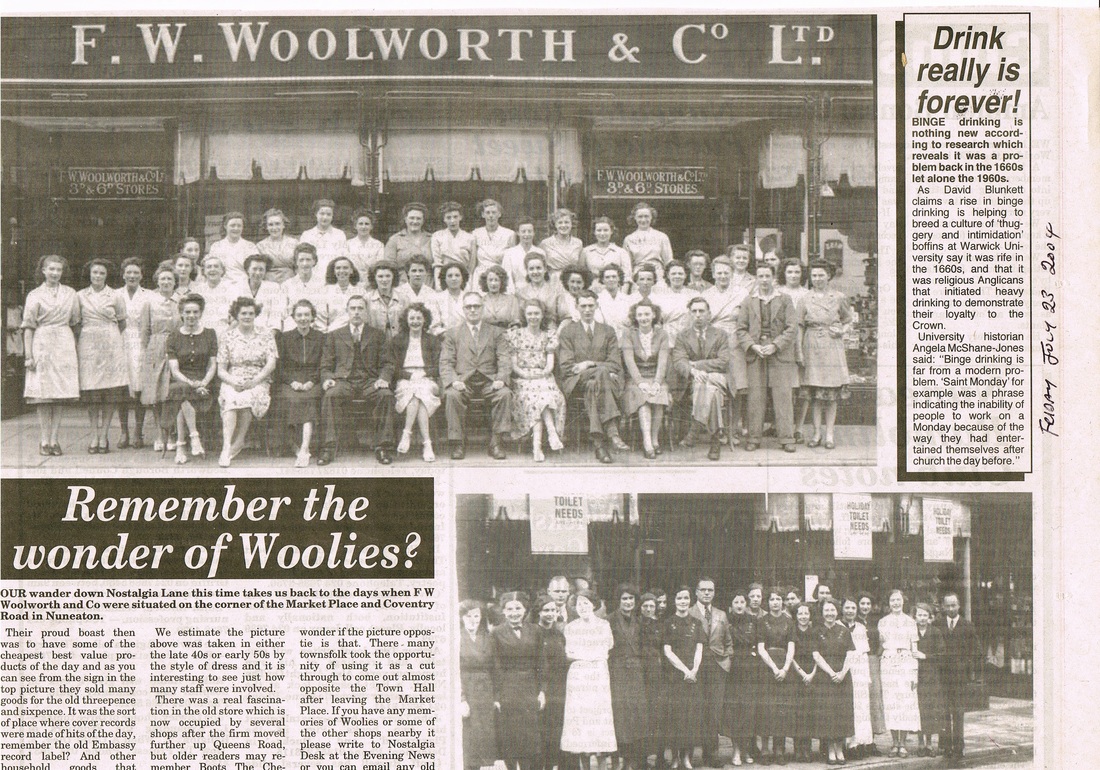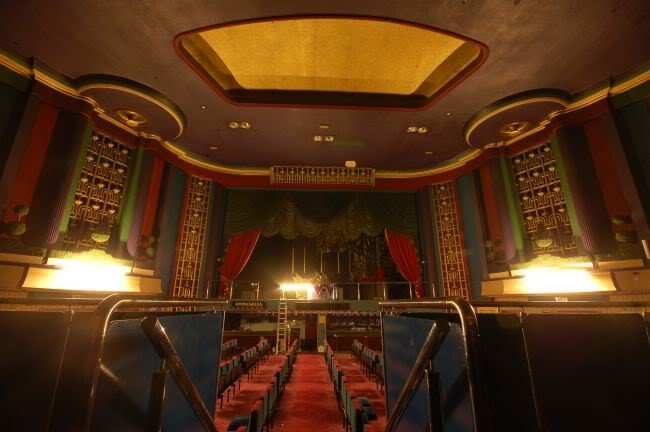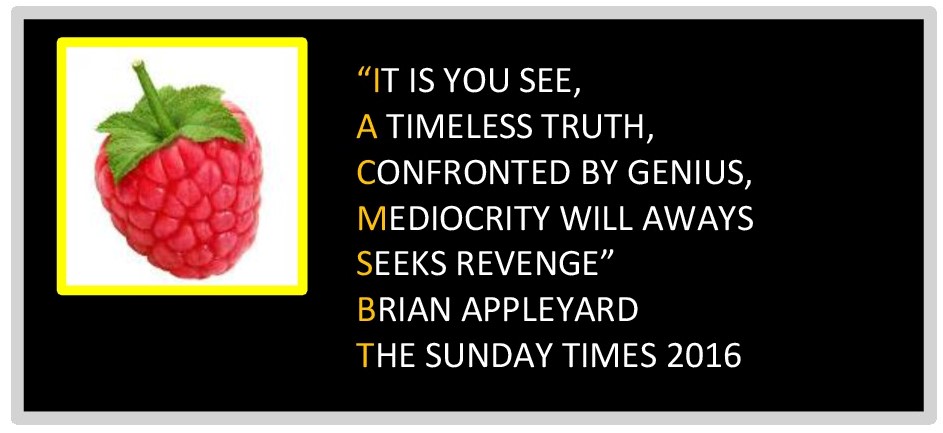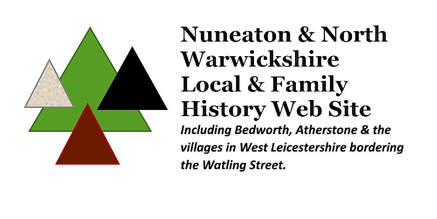
Please note our dates for Family and Local History Help Desks at Stockingford Library for the first half of 2024. We look forward to seeing you in the good old fashioned way. No zoom meetings, no gimmicks just straightforward help. We are happy to help by email as well. Free of charge of course.
CONNECT TO STOCKINGFORD LIBRARY |
www.warwickshire.gov.uk/directory-record/607/stockingford-nursery-school-children-family-centre-library |
OUR JULY 2024 SLIDE SHOW REPRISES ALAN WILSON's STORY.
FROM NUNEATON TO THE STARS
The Nuneaton Local History Group slide presentation on Saturday, July 27th. Attleborough Church.
About ten years ago I was approached by Colin Leedham to discuss what could be done with his uncle’s remarkable story. Colin had inherited a large archive of diaries, letters, press cuttings, photographs and autograph books which belonged to Alan Wilson (1920-1943). Alan was tragically killed piloting a Wellington bomber in 1943, but his documents recorded a fascinating short period in his life when was being trained as a pilot. Prior to America entering the war in 1941 they had offered to carry out a clandestine project to train young RAF pilots at several of their air bases in the United States. Alan was shipped to America with his colleagues and by sheer good fortune was allocated to Glendale airbase in California. Many other pilots were randomly scattered amongst other air bases throughout the vast land of America, but Alan hit the jackpot. Glendale was close to Los Angeles and the glittering milieu of Hollywood.
Many Hollywood stars, legends of their profession, heard that amongst their midst, were these brave young British chaps, and they fell upon them, inviting them to parties, film sets, into their homes, exotic lunches and dinners, featuring vast quantities of food that was long unobtainable in wartime Britain.
Alan and his colleagues were swept along in this tide of hospitality. Alan’s family received regular letters from him, and he kept a diary. The correspondence and the diary record in detail his day to day life during the war. Alan took photos and acquired pictures and autographs from the stars recording his time in Hollywood. They signed his autograph book, and he was given signed photos.
It was this archive that Colin wanted to share with the world, but he needed help to record it. This slide presentation is part of that remarkable story. Not only this though Nuneaton Local History Group had his letters and diaries typed up, and we produced a publication which was deposited in the local libraries and made available to those who were interested in this unusual story. But above all Colin could share his uncle’s legacy with his greater family and future generations. Transformed from the often pencil written paperwork into a typed documentary on Alan’s short life, his words, his photos bring these exotic and fascinating few months in 1941 to life.
The Nuneaton Local History Group slide presentation on Saturday, July 27th. Attleborough Church.
About ten years ago I was approached by Colin Leedham to discuss what could be done with his uncle’s remarkable story. Colin had inherited a large archive of diaries, letters, press cuttings, photographs and autograph books which belonged to Alan Wilson (1920-1943). Alan was tragically killed piloting a Wellington bomber in 1943, but his documents recorded a fascinating short period in his life when was being trained as a pilot. Prior to America entering the war in 1941 they had offered to carry out a clandestine project to train young RAF pilots at several of their air bases in the United States. Alan was shipped to America with his colleagues and by sheer good fortune was allocated to Glendale airbase in California. Many other pilots were randomly scattered amongst other air bases throughout the vast land of America, but Alan hit the jackpot. Glendale was close to Los Angeles and the glittering milieu of Hollywood.
Many Hollywood stars, legends of their profession, heard that amongst their midst, were these brave young British chaps, and they fell upon them, inviting them to parties, film sets, into their homes, exotic lunches and dinners, featuring vast quantities of food that was long unobtainable in wartime Britain.
Alan and his colleagues were swept along in this tide of hospitality. Alan’s family received regular letters from him, and he kept a diary. The correspondence and the diary record in detail his day to day life during the war. Alan took photos and acquired pictures and autographs from the stars recording his time in Hollywood. They signed his autograph book, and he was given signed photos.
It was this archive that Colin wanted to share with the world, but he needed help to record it. This slide presentation is part of that remarkable story. Not only this though Nuneaton Local History Group had his letters and diaries typed up, and we produced a publication which was deposited in the local libraries and made available to those who were interested in this unusual story. But above all Colin could share his uncle’s legacy with his greater family and future generations. Transformed from the often pencil written paperwork into a typed documentary on Alan’s short life, his words, his photos bring these exotic and fascinating few months in 1941 to life.
OUR JUNE 2024 SLIDE SHOW REPRISES SOME OF THE MEN'S JOBS WE HAD IN NUNEATON WHEN THERE WAS ENOUGH EMPLOYMENT FOR THE ENTIRE WORKING POPULATION.
OUR MAY 2024 SLIDE PRESENTATION
Church Street awaits another transformation and we take a look at the old aspect of this important area of the town.
OUR APRIL 2024 SLIDE PRESENTATION
JOIN US AS WE LOOK AT NUNEATON IN MORE RECENT TIMES. THE CHANGING TOWN.
A SPECIAL TALK AND DISPLAT TO RAISE FUNDS TO REPAIR THE SPIRE OF ATTLEBOROUGH CHURCH. PLEASE GIVE GENEROUSLY. Send cheques to Holy Trinity Attleborough, Parish Church, Fifield Close, Nuneaton, CV11 4TS.
OUR MARCH SLIDE PRESENTATION for all LARRY GRAYSON FANS
OUR FEBRUARY 2024 SLIDE PRESENTATION
OUR JANUARY 2024 SLIDE PRESENTATION
OUR DECEMBER 2023 SLIDE PRESENTATION
OUR NOVEMBER 2023 SLIDE PRESENTATION
OUR SEPTEMBER 2023 SLIDE PRESENTATION.
A BEAUTIFULLY RESEARCHED NEW BOOK
Order your copy of our latest publication - The history of Hinckley Road and the Long Shoot, Nuneaton including 1841-1911 censuses. Memories of the road, the posh houses and photographs.139 pages.
Collect at our last Saturday of the month meetings or by post inland £15 including postage and packing. To order your copy email: [email protected]
Our July slide presentation. We explore the tunnels and bridges of old Nuneaton. A fascinating selection of images of structures which were once familiar in the town but many have gone and others altered considerably over the years. Come early at 10.30am to ensure a seat. The slides start at 11am. As always refreshments are free of charge. No pre-booking.
Our June 2023 slide presentation. Doors open 10.30am. Come early, pay at the door. No pre-booking required. Refreshments are FREE.
Our May 2023 Slide Show, all welcome, pay at the door.
Our Next Slide Show with John Burton,
Chairman of the Bedworth Society
Our next slide show at Attleborough church hall is a Journey into the past through old Chilvers Coton starting at Town End and petering out in Collycroft. All welcome.
Our Christmas Slide Presentation: All welcome no pre-booking or e-tickets we do it the old fashioned way. Please come early. Enjoy a free cuppa.
Please join us for our next slide show featuring a potted history of Stockingford. Note doors open at 10.30am and you just have to turn up.
In this digital age we do it the old-fashioned way where you pay on the door positively no e-tickets.
Saturday 26th November as we explore Stockingford through time.
OUR OCTOBER SLIDE PRESENTATION ILLUSTRATES NUNEATON AS YOU MAY NEVER HAVE SEEN IT BEFORE. NUNEATON AT NIGHT IN THE GOOD OLD DAYS.
THE ONLY WELL RESEARCHED LOCAL AND FAMILY HISTORY MAGAZINE IN NORTH WARWICKSHIRE. £12 for FOUR ISSUES PER YEAR. THERE IS NOTHING ELSE LIKE IT IN OUR AREA Email: [email protected] for subscription details. Here is our September 2022 issue featuring the history of the library service in Nuneaton from 1851 until the present day.
Our September Presentation will be by David Sidwell whose grandfather wrote a memoir about his life and times in Nuneaton between 1885 and 1960. David has published this as a book and it is an important personal record of life in the town back then. Copies of the book will be available on the day.
Due to the enhanced interest in the ROAD TO ATTLEBOROUGH slide presentation, and people saying that because of the holidays they could not make it we will re-run it again in January 2023. Look out for details.
SATURDAY AUGUST 27th At ATTLEBOROUGH CHURCH
OUR AUGUST SLIDE PRESENTATION FEATURES A WALK FROM NUNEATON TO ATTLEBOROUGH THROUGH TIME THEN WE TURN INTO AVENUE ROAD AND HEAD TO CHILVERS COTON. A FEAST OF OLD PICTURES AS WE WANDER THROUGH THE DECADES AND EXPERIENCE THE SCENES OUR ANCESTORS ONCE ENJOYED.
OUR JULY PRESENTATION IS A MUST FOR LOCAL RAILWAY ENTHUSIASTS, PARTICULARLY THOSE INTERESTED IN STEAM. WE HAVE UPDATED OUR ASHBY & NUNEATON JOINT RAILWAY and CHARNWOOD FOREST BRANCH SLIDE SHOW. ALL REFRESHMENTS ARE FREE OF CHARGE.
ADMISSION £4.
AN UPDATE FROM NUNEATON LIBRARY:
Nuneaton Local History Group and Nuneaton Library are pleased to announce new research facilities at Nuneaton Library
Please find below a link to a press release about the British Newspaper Archive which is now available for free at 4 libraries and the County Record Office on one computer in each location.
https://www.warwickshire.gov.uk/news/article/3039/the-british-newspaper-archives-arrive-at-warwickshire-libraries-
If you have any questions, please get in touch.
For general information about local studies please visit the library website.
https://www.warwickshire.gov.uk/localstudies
IT IS NO CO-INCIDENCE NUNEATON DERIVES ITS NAME - EATON - WATER TOWN FROM ITS PROPENSITY TO FLOOD. IN THIS SLIDE PRESENTATION WE EXAMINE THE WATER COURSES, STREAMS and RIVERS THAT ARE A FEATURE OF THE DISTRICT, AND HAVE CAUSED MUCH TROUBLE TO RESIDENTS OVER THE CENTURIES.
OUR MAY SLIDE PRESENTATION IS A RE-RUN OF OUR OCTOBER SHOW - ALL WELCOME
After careful consideration we have decided to run this slide presentation again. When we did it in October last many of our regulars were still hesitant to meet in an indoor setting because of the pandemic, but have since expressed an interest to the effect - when are you doing it again? Newcomers are very welcome. So we will give you another opportunity to see it at the end of this month. Even if you have seen it before you might like to be reminded again of those old bus companies so full of character, to remember holiday journeys long forgotten, or local services which rattled and bumped on hard moquette seats out to the suburbs like Caldwell, Wolvey, Gipsy Lane, Bramcote, or to the car factories in Coventry. In the days when riding the bus was an adventure like no other, and often it was our only experience of motorised travel.
AN EXCITING NEW PROJECT
Coming soon at Stockingford Library. Nuneaton Local History Group have teamed up with the Library Service to help you with your local and family history queries.
If you want to find out more about your family, want to share what you have, stuck in your researches, want to know more about the circumstances of local life, pop in for a coffee and a sit down with us to help you. Its free and our team of experts are happy to help.
Look out for the date of the first session, and message or email us to let us know you are coming. If you have specific requirements let us have a note so we can prepare. The date of the first to be announced soon.
If you want to find out more about your family, want to share what you have, stuck in your researches, want to know more about the circumstances of local life, pop in for a coffee and a sit down with us to help you. Its free and our team of experts are happy to help.
Look out for the date of the first session, and message or email us to let us know you are coming. If you have specific requirements let us have a note so we can prepare. The date of the first to be announced soon.
OUR FIRST JOINT SESSION - WEDNESDAY 25th May
Book this slide presentation and many others for your group:
REMEMBER STERLING METALS?
Due to the ongoing and developing Covid crisis we have decided to defer the Sterling Metals slide presentation until the end of February. Last time we did a presentation on Sterling Metals it was very popular and we hope to attract similar numbers next time. The revised date is Saturday February 26th doors open at 10.30am for a 11am start at Holy Trinity Attleborough Church Hall.
For further information email: [email protected]
Courtaulds Factory, Marlborough Road, Nuneaton,
A NEW BOOK FOR CHRISTMAS
I am most grateful for Jeff Boswell to provide a copy of his book on his life's experiences. Jeff is a Stockingford lad made good. His parents moved into a new house in Randle Road in 1935 and Jeff has many memories of life in Stockingford before joining the army in 1959. He returned to civilian life in 1961 then went on to have a glittering career in Industry here in the UK and overseas.
But Jeff returns to his roots in this book and many episodes of his life in Stockingford will resonate with the older generation up the Ford.
Books like this are so important because how many of us take the time to write down our life's memories, if only for the benefit of our family and friends. We have to remember the subtle influences and life's events, which are stored in our minds are lost to future generations. How many of our family historians in generations to come would welcome our memories so well preserved. It adds so much more to our connections.
Jeff's 192 page narrative is very readable and would make a great present for our parents and grandparents with local roots at Christmas. Jeff will bring back many memories.
The book costs: £10.95 + £2 P&P to purchase:
Contact Jeff on: [email protected] to secure your copy.
But Jeff returns to his roots in this book and many episodes of his life in Stockingford will resonate with the older generation up the Ford.
Books like this are so important because how many of us take the time to write down our life's memories, if only for the benefit of our family and friends. We have to remember the subtle influences and life's events, which are stored in our minds are lost to future generations. How many of our family historians in generations to come would welcome our memories so well preserved. It adds so much more to our connections.
Jeff's 192 page narrative is very readable and would make a great present for our parents and grandparents with local roots at Christmas. Jeff will bring back many memories.
The book costs: £10.95 + £2 P&P to purchase:
Contact Jeff on: [email protected] to secure your copy.
To subscribe
The 2021/22 Nuneaton Historian and North Warwickshire Genealogist story continues with a new season of four publications starting with this one. Eating out in Old Nuneaton town re-visited as well as recipes for some of the Nuneaton meals sampled by our ancestors. The price of our journal is still £12 for four issues inland and remember this is the only regular magazine for both local and family history enthusiasts and researchers for the whole of North Warwickshire. We can also supply the magazine by email worldwide for £12. Due to the quality of the publication, the reproduction of photos on glossy hard paper nearly all our subscribers prefer to receive it in paper format and after 40 issues it is building into a considerable tour de force in local and family history. If overseas let us quote you the shipping rate by emailing: [email protected].
We should emphasise this is not a closed subscription jobs-worth "Society" where everything is hidden behind closed internet access. Just showing you "how to" "what's on" with scant information and the barest of help desks, but a totally inter-active open access group who are building to a better knowledge of our area open to everyone for the public benefit.
The 2021/22 Nuneaton Historian and North Warwickshire Genealogist story continues with a new season of four publications starting with this one. Eating out in Old Nuneaton town re-visited as well as recipes for some of the Nuneaton meals sampled by our ancestors. The price of our journal is still £12 for four issues inland and remember this is the only regular magazine for both local and family history enthusiasts and researchers for the whole of North Warwickshire. We can also supply the magazine by email worldwide for £12. Due to the quality of the publication, the reproduction of photos on glossy hard paper nearly all our subscribers prefer to receive it in paper format and after 40 issues it is building into a considerable tour de force in local and family history. If overseas let us quote you the shipping rate by emailing: [email protected].
We should emphasise this is not a closed subscription jobs-worth "Society" where everything is hidden behind closed internet access. Just showing you "how to" "what's on" with scant information and the barest of help desks, but a totally inter-active open access group who are building to a better knowledge of our area open to everyone for the public benefit.
We are pleased to announce that Nuneaton Local History Group have published Victor Welland's magnificent book. A HISTORY OF THEATRE IN NUNEATON. This is without doubt the most comprehensive record of this fascinating subject. 197 pages of meticulous research brings these old pleasure palaces back to life. The Theatre Royal, The Prince of Wales, the Hippodrome, The Palace, the Royal, the Tatler, the Grand, the Ritz, the Scala, and more brought back to life. No town has produced so much information on a long forgotten era and the people who trod the boards and managed these places of delight. The cost is £12 at our meetings and £15 by post inland. For purchasing details see below.
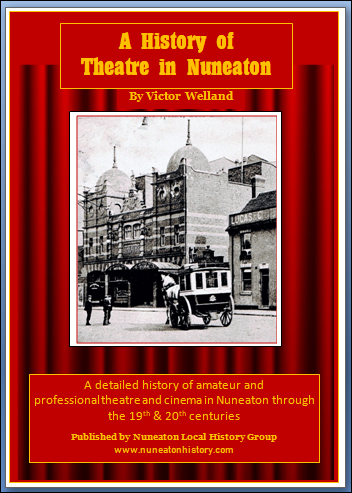
Copies of this book can be obtained P&P for £15 (inland UK) by emailing: [email protected]. Overseas postage quoted on request.
Nuneaton Local History Group produces the only local and family history glossy magazine in North Warwickshire. We pride ourselves on well researched and informative content, not the old tired format of how to research your family tree or what events are on because these can be gleaned from our web site. Written by people who have taken the time to put the effort in to deliver real information.
2020-2021
To subscribe to North Warwickshire's only local and family magazine - The Nuneaton Historian and North Warwickshire Genealogist. £12 a year post paid inland or if outside the UK postal rate quoted on overseas enquiries, or by PDF inland and overseas for £12.
|
|
Sir Roger Newdigate - A Life. A rare insight into daily local life in the 18th century. It deals extensively with laying out the Arbury canal system, the incorporation of the local turnpike road network, the early days of the Bedworth silk mill and the sinking and management of Griff Collieries. 168 pages. Now available @ £12 per copy + £3 P&P inland UK by emailing: [email protected].
Lord Daventry has kindly provided a forward to the book.
Jim Sambrook is a retired Professor of English at the University of Southampton. He writes:
PREFATORY NOTE
I compiled this biography of Sir Roger Newdigate as a personal mental diversion some twenty years ago after I had retired from teaching literature. As a student of the eighteenth century I was interested in Sir Roger as a man of many parts whose life touched that period in politics, social, industrial, and military history, art, architecture (and even English poetry). As the book was no more than personal pleasure I made no serious effort to publish it at that time. The typescript sat on a shelf and continued to do so as I began to feel the onset of dementia (not uncommon in men of my age). Therefore I now feel fortunate and delighted that Peter Lee, the historian and chronicler of Nuneaton (my boyhood home) is to take my work in hand for publication. I am grateful also to individuals who furthered my Newdigate researches: Professor Michael McCarthy, Mr Andrew Lewer, Mr A.W.A.White, the 3rd Viscount Daventry, and especially the staff of Warwickshire County Record Office. Most of all I am indebted to David Fordham, author of Coal and Water: an Industrial History of Arbury . This learned and comprehensive history was my inspiration and quarry.
James Sambrook
SUBSCRIBE TO OUR QUARTERLY JOURNAL -
THE ONLY ONE IN NORTH WARWICKSHIRE
THE ONLY ONE IN NORTH WARWICKSHIRE
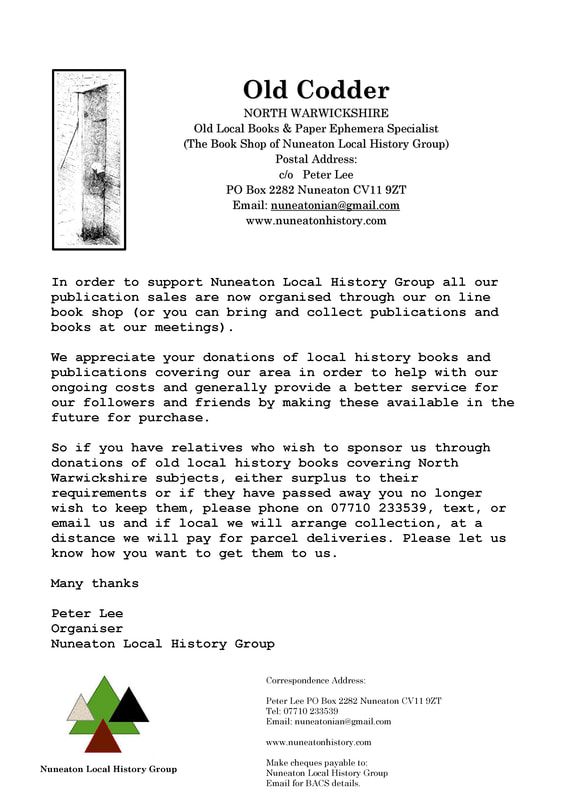
| Nuneaton Local History Group's Publication List: | |
| File Size: | 20 kb |
| File Type: | docx |
VISIT OUR BOOK SHOP AT ALL OUR MEETINGS - WE PUBLISH A QUARTERLY JOURNAL £12 PER YEAR + A VARIETY OF LOCAL HISTORY PUBLICATIONS. THESE ARE NOT JUST "WHAT'S ON LISTS" AND "HOW TO DO IT" FAVOURED BY SO MANY GROUPS, BUT DETAIL RESEARCHED PUBLICATIONS FULL OF HISTORIC CONTEXT TO HELP WITH YOUR OWN FAMILY AND LOCAL HISTORY RESEARCHES LEADING TO THE FULL STORY OF OUR AREA.
BACK NUMBERS OF THE "NUNEATON HISTORIAN and NORTH WARWICKSHIRE GENEALOGIST" ARE PRICED £4 INDIVIDUALLY.
Please also check out our Nuneaton Families Research Project featured in the Family History Research Resources tab. If you want help with any of these families please contact us.
FOR ALL GENERAL ENQUIRIES EMAIL US ON: [email protected]
A celebration of:
St. Mary's Abbey Church, Manor Court Road, Nuneaton.
Abbey Field, and surrounding area. April 2020
ALL OF THE SLIDE PRESENTATIONS SHOWN BELOW ARE AVAILABLE FOR YOUR GROUP, CLUB, SOCIETY OR ORGANISATION BY CONTACTING: [email protected]
HARTSHILL CASTLE
The owner Jean Lapworth talks about her retirement project and the conservation work she is doing at Hartshill Castle with her stone mason Joe. Jean has dedicated her whole life to conservation, heritage, local history and wild life. A wonderful English character and local treasure.
The film was made by John Stringer for the Nuneaton Local History Group.
Always watch from the beginning.
A NEW BOOK PUBLISHED BY NUNEATON LOCAL HISTORY GROUP.
THE EXTRAORDINARY STORY OF A YOUNG NUNEATON PILOT TRAINED BY THE USAF IN CALIFORNIA AMONGST A GROUP OF 6000 YOUNG PILOTS SENT TO AMERICA IN 1941.
Copies can be purchased for £12 + £3 P&P by emailing: [email protected]
TO SUSCRIBE TO OUR QUARTERLY MAGAZINE £10 PER YEAR
INCLUDING P&P INLAND, PLEASE PAY VIA OUR PAYPAL ACCOUNT, SCROLL DOWN
ALL THESE SLIDE PRESENTATIONS ARE AVAILABLE FOR YOUR GROUP - JUST EMAIL:
|
The Nuneaton Diary
Essential Reading for Family and Local Historians researching the first half of the 19th century.
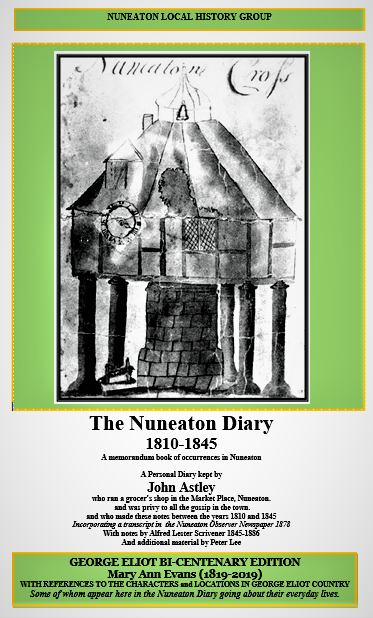
Copies of the Nuneaton Diary are available at our meetings. £10 each ( + £3 postage and packing if ordered via this web site). If you want to find out what your ancestors got up to Nuneaton and district between 1810-1845, the diarist, John Astley, may be able to provide the tittle-tattle. This book is a valuable window into social history in a Warwickshire provincial town in the first half of the 19th century.
TO BOOK ANY OF OUR LARGE RANGE OF SLIDE SHOWS FOR YOUR GROUP OR SOCIETY - PLEASE CONTACT : [email protected]
NEW FOR 2020- LOOK OUT FOR OUR UNIQUE COLOURISED HISTORIC PHOTOS
OUR NEW FACEBOOK FORMAT - DESIGNED TO PRODUCE AN UPDATEABLE MAGAZINE FOR YOU TO PARTICIPATE IN - FREE OF CHARGE 24 HOURS A DAY 7 DAYS A WEEK
OUR LATE SUMMER AND EARLY AUTUMN PROGRAMME
WE CAN PROVIDE PROFESSIONAL SLIDE PRESENTATIONS FOR YOUR SOCIETY AND GROUP. DURATION NOT EXCEEDING ONE HOUR. WE CAN TRAVEL THROUGHOUT THE UK.
Book one of our ever increasing number of slide presentations for your 2019/20 meeting programme, delivered by someone who has carried out the research and spent the time, well researched but not too technical.
Fully Illustrated with a specialised knowledge of the subject. Packed with archive photographs and images assembled into a storyline of information. (All approx 45 mins-1 hour in length)
NUNEATON - WATER TOWN (The effect water has had on our local townscape)
THE TERRACOTTA ART OF NUNEATON (The story of our local brickyards)
THE LOCAL COAL INDUSTRY (The history of the Nuneaton & Bedworth Coal Field)
THE COLLIERIES OF BEDWORTH (The town of Bedworth was built on a slab of coal. This is the story of the many collieries that tapped the seams)
THE HISTORY OF SHOPPING IN NUNEATON (At a time when our town centre is dying, its nice to remember the good old days)
THE COVENTRY & NUNEATON RAILWAY (A history of the railway that now boasts two NEW stations)
THE ASHBY & NUNEATON JOINT & CHARNWOOD FOREST RAILWAY
(A look back at a system that thrived on freight but had very few passengers.)
THE PUBS OF OLD NUNEATON TOWN (A look at the old fashioned hostelries which once were familiar)
ATTLEBOROUGH THROUGH TIME (The history of the village which is now a suburb of Nuneaton)
THE FAMILIES OF NUNEATON (Family life in Nuneaton through time)
STOCKINGFORD AS A RAILWAY CENTRE (A forgotten railway byway which was a bustling railway centre last century)
NUNEATON FROM THE AIR 1900-1970 (Fascinating elevated views of the town and surrounding area including streets that have disappeared)
NUNEATON AT NIGHT (Wonderful evocative images of old Nuneaton town centre and its people during the evening and at night in the 1950's, 60's and 70's.)
THE TRENT VALLEY RAILWAY in the DAYS OF STEAM. (Memories of the line and its old stations and route populated with mighty steam engines and old fashioned coaches and goods wagons, as well as the characters who operated the line.)
NUNEATON MARKET PLACE (A comprehensive review of the individual buildings and shop keepers and their businesses.)
CHURCH STREET THROUGH TIME. (A review of the buildings in the street through time and the dreadful effects of WW2.)
ABBEY STREET. (We travel the street going from building to building evoking memories of a thriving street and the people who lived and worked there.)
WEDDINGTON HALL RED CROSS HOSPITAL
(In the period 1916-1919 Weddington Hall was adapted as a Red Cross Hospital treating wounded soldiers returning from the trenches and allowing them to recover from their injuries. This is a fully illustrated narrative of the organisation and the people that ran it.)
THE LEGEND OF LORD HOP (Who was the real Lord Hop and what was the legend behind the ghostly Horestone Grange. A long forgotten house which lay beyond the fields of Nuneaton town.)
THE SECRET RAILWAYS OF NORTH WARWICKSHIRE (The lines that time has forgot - THE STONE TRAMWAYS servicing the local quarry industry.)
RAILWAYS and CANALS in the NORTH WARWICKSHIRE COALFIELD. (An illustrated history.)
NOBILITY and ENTERPRISE UP THE COMMON (The story of the remarkable families who once lived in Stockingford and their connections to royalty, the great families of England, Scotland and America.)
STERLING METALS (One of Nuneaton's major employers. A journey through their photographic archives.)
THE 1975 NUNEATON TRAIN CRASH (A huge event in Nuneaton which is still remembered with horror by many local people. This is a comprehensive set of harrowing images of the rescue operation and aftermath.)
175 YEARS OF ATTLEBOROUGH CHURCH (1842-2017) (Bringing religion to the hamlet of Attleborough).
New slide presentations in preparation, look out for further details next year:
WASH LANE - ARLEY STREET (the development of Queens Road, Croft Road and Arbury Road from the 18th century onwards.)
WHITACRE JUNCTION - WIGSTON BY TRAIN. (The line is still in use but much of the railway and industrial infrastructure has gone. We reprise it here.)
CIVIL ENGINEERING IN NUNEATON. (The way that the building of canals, roads and railways shaped the town.)
STOCKINGFORD STREETS.(The story of how Stockingford became built up, and the individual streets as they were developed.)
And more in preparation.....
Fully Illustrated with a specialised knowledge of the subject. Packed with archive photographs and images assembled into a storyline of information. (All approx 45 mins-1 hour in length)
NUNEATON - WATER TOWN (The effect water has had on our local townscape)
THE TERRACOTTA ART OF NUNEATON (The story of our local brickyards)
THE LOCAL COAL INDUSTRY (The history of the Nuneaton & Bedworth Coal Field)
THE COLLIERIES OF BEDWORTH (The town of Bedworth was built on a slab of coal. This is the story of the many collieries that tapped the seams)
THE HISTORY OF SHOPPING IN NUNEATON (At a time when our town centre is dying, its nice to remember the good old days)
THE COVENTRY & NUNEATON RAILWAY (A history of the railway that now boasts two NEW stations)
THE ASHBY & NUNEATON JOINT & CHARNWOOD FOREST RAILWAY
(A look back at a system that thrived on freight but had very few passengers.)
THE PUBS OF OLD NUNEATON TOWN (A look at the old fashioned hostelries which once were familiar)
ATTLEBOROUGH THROUGH TIME (The history of the village which is now a suburb of Nuneaton)
THE FAMILIES OF NUNEATON (Family life in Nuneaton through time)
STOCKINGFORD AS A RAILWAY CENTRE (A forgotten railway byway which was a bustling railway centre last century)
NUNEATON FROM THE AIR 1900-1970 (Fascinating elevated views of the town and surrounding area including streets that have disappeared)
NUNEATON AT NIGHT (Wonderful evocative images of old Nuneaton town centre and its people during the evening and at night in the 1950's, 60's and 70's.)
THE TRENT VALLEY RAILWAY in the DAYS OF STEAM. (Memories of the line and its old stations and route populated with mighty steam engines and old fashioned coaches and goods wagons, as well as the characters who operated the line.)
NUNEATON MARKET PLACE (A comprehensive review of the individual buildings and shop keepers and their businesses.)
CHURCH STREET THROUGH TIME. (A review of the buildings in the street through time and the dreadful effects of WW2.)
ABBEY STREET. (We travel the street going from building to building evoking memories of a thriving street and the people who lived and worked there.)
WEDDINGTON HALL RED CROSS HOSPITAL
(In the period 1916-1919 Weddington Hall was adapted as a Red Cross Hospital treating wounded soldiers returning from the trenches and allowing them to recover from their injuries. This is a fully illustrated narrative of the organisation and the people that ran it.)
THE LEGEND OF LORD HOP (Who was the real Lord Hop and what was the legend behind the ghostly Horestone Grange. A long forgotten house which lay beyond the fields of Nuneaton town.)
THE SECRET RAILWAYS OF NORTH WARWICKSHIRE (The lines that time has forgot - THE STONE TRAMWAYS servicing the local quarry industry.)
RAILWAYS and CANALS in the NORTH WARWICKSHIRE COALFIELD. (An illustrated history.)
NOBILITY and ENTERPRISE UP THE COMMON (The story of the remarkable families who once lived in Stockingford and their connections to royalty, the great families of England, Scotland and America.)
STERLING METALS (One of Nuneaton's major employers. A journey through their photographic archives.)
THE 1975 NUNEATON TRAIN CRASH (A huge event in Nuneaton which is still remembered with horror by many local people. This is a comprehensive set of harrowing images of the rescue operation and aftermath.)
175 YEARS OF ATTLEBOROUGH CHURCH (1842-2017) (Bringing religion to the hamlet of Attleborough).
New slide presentations in preparation, look out for further details next year:
WASH LANE - ARLEY STREET (the development of Queens Road, Croft Road and Arbury Road from the 18th century onwards.)
WHITACRE JUNCTION - WIGSTON BY TRAIN. (The line is still in use but much of the railway and industrial infrastructure has gone. We reprise it here.)
CIVIL ENGINEERING IN NUNEATON. (The way that the building of canals, roads and railways shaped the town.)
STOCKINGFORD STREETS.(The story of how Stockingford became built up, and the individual streets as they were developed.)
And more in preparation.....
OUR SPRING AND EARLY SUMMER PROGRAMME OF TALKS AND AN OUTDOOR VISIT FOR LOCAL AND FAMILY HISTORIANS
Every year Nuneaton Local History Group carry out a series of local walks and outdoor visits and the next one which will take place on Sunday 22nd July commencing 11am in front of Nuneaton Library will be led by Steve Moore who has carried out an enormous amount of research into a terrible local crime which occurred in 1832 when a local woman Mary Green (known locally as Polly Button) was murdered by her lover John Danks.
Steve will expertly walk you through the town setting the scene back to the old streets and buildings as Mary Green and John Danks would have known them, and give you the definitive account of this long forgotten crime, which caused a sensation in the 1830's. Steve will also talk about the terrible plight of poor weavers and local townspeople who led a wretched existence, and these circumstances led to this tragedy.
The walk is free and will take an hour, all on fairly level public footpaths within the town. With the weather in mind bring a bottle of water, and wear comfortable shoes. Steve will answer your questions as you go. But to set the scene this is the entry from the Nuneaton Diary (1810-1845): (mis-spellings are as original diary entry).
20th Feb. 1832 "A Whoman named [Mary] Green commonly called Polly Button was found this morning lying in the road in a field occupied by Mr Beasley leading from Mr Astley’s New Mill Field Barn with her throat horribly cut and was Dead. It was not doubted but that the whoman was murdered, the situation when found was ab’t 22 yds from Mr Astley’s Hovel where it was evident the bloody deed was committed wholly or in part from the large quantity of Blood found to be on the Straw therein and on the Gate of the Field in wh. The Hovel was in. Groups of people cotin’d to visit the Body the spot on this and several succeeding days. Suspicion fell upon a Farmers Labouring Carpenter of the name of John Danks who was immediately taken into custody – on Tuesday an Inquest was held on the Body before Seymour, Esq’r (Coroner) which was not concluded and was adjourned ‘till the following day when the Jury returned a verdict of willful Murder against the Prisoner John Danks who in the course of the Evening made a confession in confidence to the Rev’d Mr King, Curate of Nuneaton.
John Danks was hung at Warwick later and his body dissected for medical purposes.
Steve will expertly walk you through the town setting the scene back to the old streets and buildings as Mary Green and John Danks would have known them, and give you the definitive account of this long forgotten crime, which caused a sensation in the 1830's. Steve will also talk about the terrible plight of poor weavers and local townspeople who led a wretched existence, and these circumstances led to this tragedy.
The walk is free and will take an hour, all on fairly level public footpaths within the town. With the weather in mind bring a bottle of water, and wear comfortable shoes. Steve will answer your questions as you go. But to set the scene this is the entry from the Nuneaton Diary (1810-1845): (mis-spellings are as original diary entry).
20th Feb. 1832 "A Whoman named [Mary] Green commonly called Polly Button was found this morning lying in the road in a field occupied by Mr Beasley leading from Mr Astley’s New Mill Field Barn with her throat horribly cut and was Dead. It was not doubted but that the whoman was murdered, the situation when found was ab’t 22 yds from Mr Astley’s Hovel where it was evident the bloody deed was committed wholly or in part from the large quantity of Blood found to be on the Straw therein and on the Gate of the Field in wh. The Hovel was in. Groups of people cotin’d to visit the Body the spot on this and several succeeding days. Suspicion fell upon a Farmers Labouring Carpenter of the name of John Danks who was immediately taken into custody – on Tuesday an Inquest was held on the Body before Seymour, Esq’r (Coroner) which was not concluded and was adjourned ‘till the following day when the Jury returned a verdict of willful Murder against the Prisoner John Danks who in the course of the Evening made a confession in confidence to the Rev’d Mr King, Curate of Nuneaton.
John Danks was hung at Warwick later and his body dissected for medical purposes.
OUR JULY 2018 SLIDE SHOW - ALL WELCOME
| Self Guided Tour to Riversley Park, Nuneaton. | |
| File Size: | 3751 kb |
| File Type: | doc |
Last year we promised you self guided local history tours which you can do yourself any time of the day, 24 hours a day, without assistance and entirely free of charge. We like keeping your local history costs to a bare minimum and freeing you from jobs-worth bureaucracy, and making things very simple so you get the best out of your leisure interests. The onset of these warm Spring days is the time to launch this project and all you have to do is download the guide and go for a walk.
What better than local history, a gentle stroll, a bit of local information, to be able to take the kids, friends and family visitors out, or if in charge of a school group, or any other group, use our researches to foster a bit of interest, followed maybe by a cup of tea or coffee, or an ice cream, or in adult company even a drink at the pub afterwards. A good place to start is Riversley Park, Nuneaton's greatest leisure asset. Our Guide is attached. You can approach it from any direction in the town. Let us know how you get on with it, and we are happy to answer any questions or comments you have once you have completed the tour. There will be more tours to come shortly.
What better than local history, a gentle stroll, a bit of local information, to be able to take the kids, friends and family visitors out, or if in charge of a school group, or any other group, use our researches to foster a bit of interest, followed maybe by a cup of tea or coffee, or an ice cream, or in adult company even a drink at the pub afterwards. A good place to start is Riversley Park, Nuneaton's greatest leisure asset. Our Guide is attached. You can approach it from any direction in the town. Let us know how you get on with it, and we are happy to answer any questions or comments you have once you have completed the tour. There will be more tours to come shortly.
LOOK OUT FOR THIS PRESENTATION AT A LATER DATE
MEMORIES OF THE RITZ
Memories of the Compton organ at the Ritz, Nuneaton, now being played as per You Tube film by clicking on the link below:
(Photo: Reg. Bull / Courtesy of Ruby Atkins / NLHG Archives)
OUR DECEMBER 2018 NUNEATON HISTORIAN & NORTH WARWICKSHIRE GENEALOGIST IS NEARLY READY
The Craddock family were the principal tradespeople in Nuneaton and district in the late 18th and early 19th century. Several members of Nuneaton Local History Group have been working on the history of this family. Not just the usual bare bones of family trees although we can trace them back to the 17th century in great detail, but we put together some context of their lives and personal relationships, their trade, cheese and corn factoring, the flax dressing and rope making, canal trade and warehousing of goods, malting, the legal profession and banking as well as the substantial property they owned and transacted. The study originally resulted because of an in depth analysis of two of their principal mansions, but has evolved into a complex analysis that encompasses the principal families of the town, the Greenways, the Blands, the Buchanans and the Stows, and several other important local families with whom they were inter-married as well as to the background of the marriages involved. This Nuneaton Historian special edition is due out this year.
In June's "Nuneaton Historian", our 27th edition, we will start a series celebrating the work of Nuneaton & North Warwickshire's greatest photographers. Printed on glossy paper to bring out the best in the photos we will remember our district and the people who once lived there in fabulous photography. Our June 2018 edition will feature the Art of Leonard Chettle one of Nuneaton's most celebrated photographers.
Some of the popular Nuneaton Local History Group's slide programmes. All are very welcome to join us at Attleborough Parish Church Hall meetings. Our Spring programme of talks, events and outdoor visits will follow in March. All our slide shows are available to hire for your group.
You can now buy our local & family history magazine - The NUNEATON HISTORIAN AND NORTH WARWICKSHIRE GENEALOGIST - by PAYPAL. If you have enjoyed this site help by donating to its future maintenance. Also you can purchase a variety of our publications from the list below. If you wish to contact us for more details email on: [email protected]
| Nuneaton Local History Book List | |
| File Size: | 527 kb |
| File Type: | |
By clicking on our Paypal button below you can either purchase your quarterly subscription @ £10 per year, purchase any of the publications on our list, or make a donation to the upkeep of the site.
The North Warwickshire Local and Family History Site
You can now write to us by post at Peter Lee / Nuneaton Local History Group PO Box 2282 Nuneaton CV11 9ZT
to subscribe to the NUNEATON HISTORIAN & NORTH WARWICKSHIRE GENEALOGIST magazine send a cheque for £10 to the above address made payable to Nuneaton Local History Group. We publish four issues a year on glossy paper with colour as well as black and white photos. Also you can purchase any of our publications currently in print, from our book list below: (Any queries email us direct on [email protected]) In addition for a preview of our publications, events, outdoor visits etc. scroll down.
THE NUNEATON LOCAL HISTORY GROUP'S OUTDOOR VISITS FOR THE 2017 SEASON STARTED SUCCESSFULLY WITH VISITS TO JEAN LAPWORTH'S HARTSHILL CASTLE AND AS GUESTS OF THE EARL OF AYLESFORD TO THE PACKINGTON HALL ESTATE NEAR MERIDEN.
HARTSHILL CASTLE North Warwickshire
PACKINGTON HALL near Meriden
NEW PUBLICATIONS:
ANSLEY HALL COLLIERY - A SIGNIFICANT CONTRIBUTION TO THE LOCAL AND FAMILY HISTORY OF NORTH WARWICKSHIRE, COMING SOON. 175 PAGES PACKED WITH HIGHLY DETAILED RESEARCH, THE PEOPLE, THE ENGINEERING, THE PRODUCTION AND MARKETS, THE TRANSPORT, AND A VAST ARRAY OF NEW INFORMATION ON THIS LARGE COLLIERY ENTERPRISE. PART OF OUR EXTENSIVE PUBLISHING PROGRAMME FOR NORTH WARWICKSHIRE.
SHEILA WOOLF HAS WRITTEN A BOOK ABOUT SPRINGFIELD HOUSE, A MANSION IN BEDWORTH WHICH WAS ONCE OWNED BY THE WHIELDON FAMILY, STAFFORDSHIRE POTTERS, AND USED AS THE HEADQUARTERS OF THEIR WARWICKSHIRE COAL MINING OPERATIONS.
Extracts from the Ansley Hall Colliery Book below:
OUR PUBLICATIONS LIST IS GROWING
THE ONLY LOCAL HISTORY PUBLICATION IN NORTH WARWICKSHIRE
To subscribe to the Nuneaton Historian & North Warwickshire Genealogist please use the PAYPAL button below. Our Newsletter is very good value for money and the only publication on the market for the detailed and well researched history of our area. Available in hard copies or electronically. The choice is yours.
Our latest Industrial History book is fresh off the press - An Illustrated History of the Newdigate Colliery Railway, Bedworth. Illustrated in both colour and black and white images. 48 pages packed with photos and maps. To secure your copy send an email to: [email protected] and we will let you know how to pay (cost: £8 including P&P) (Plenty in stock)
Our next Journal due out in December - The only journal for local and family history information and best value in the North of Warwickshire.
CIRCULATION INCREASING
A PREVIEW OF PHOTOGRAPHS FROM OURARCHIVES, THESE ARE CONSTANTLY BEING ADDED TO,
SO PREVIEW SOME IMAGES HERE THEN REVIEW THE TABBED SECTIONS.
NUNEATON MARKET PLACE
(Reg. Bull / Courtesy of Ruby Atkins / NLHG Archives)
The Nuneaton & Bedworth Borough Silverware Collection
(Bob Brackpool Collection)
NUNEATON LOCAL HISTORY GROUP VISITED MEREVALE HALL ON FRIDAY 9th SEPTEMBER TO MARK HERITAGE WEEK-END. IT WAS AN OVER SUSCRIBED SUCCESSFUL PRIVATE VISIT AS THE GUEST OF
SIR WILLIAM STRATFORD DUGDALE WHO GAVE US A PERSONAL CONDUCTED TOUR OF HIS HOME SET HIGH ABOVE THE NORTH WARWICKSHIRE COUNTRYSIDE. THE WEATHER WAS SUPERB AND THE HOUSE AND ITS VIEWS BREATHTAKING.
SLIDE SHOWS & TALKS + OUTSIDE VISITS & WALKS + EXTENSIVE PUBLISHING PROGRAMME + BOOKS + NEWS LETTERS + FREE ASSISTANCE WITH YOUR QUERIES & RESEARCHES + FRIENDLY and KNOWLEDGABLE SERVICE + NEW FOR 2017 - HERITAGE TOURS BY VINTAGE BUS.
ATHERSTONE'S STATIONMASTER 1861-65
___________________________________________________________
JOIN US ON FACEBOOK AND SHARE YOUR MEMORIES
OR ASK QUESTIONS ABOUT OUR LOCAL AREA
___________________________________________________________________________
NEW
HAIRSTYLES THROUGH THE AGES AT ASTLEY CASTLE - A 1957 ARCHIVE FILM
_ CLICK ON PHOTOGRAPH BELOW TO WATCH
THE INCREDIBLE STORY OF WEDDINGTON HALL RED CROSS HOSPITAL 1916-1919
A SLIDE PRESENTATION AVAILABLE NOW.
In the early months of World War Two, the local Red Cross obtained the use of a large house in Church Street, Nuneaton seen on the right gable end on in this view. It stood on the corner of Vicarage Street. An appeal was made for nursing staff and equipment and the Red Cross opened for business. The facility was only short lived, tragically it was bombed during the great blitz on Nuneaton in the night of 16th / 17th May 1941. This sequence of photos are from the archives of Mrs. M.M.M. Fowler O.B.E. who was instrumental in creating this facility. Similar to the one she organised at Weddington Hall between 1916-1919. (Courtesy Mr. Peter Chater)
A NEW FILM PRODUCED BY LES. HOLMES & COLIN YORKE WITH NARRATION BY PAUL JOHNSTONE and IAN GARDNER
THE GLORY DAYS OF METHODIST CHURCHES IN NUNEATON IS NOW UNDER FILMS
------------------------------------------------------------------------------------------------------------------
IN MEMORY OF OUR WAR HEROES
Major Cecil Leonard Knox VC (1889-1943)
(All photos from the Knox Family Archives)
Hidden Attleborough
Remember Monty's Buses on the Gipsy Lane, Caldecote, Bramcote and Wolvey routes.
Memories of Nuneaton's Engine Shed, Closed 50 years ago in 1966.
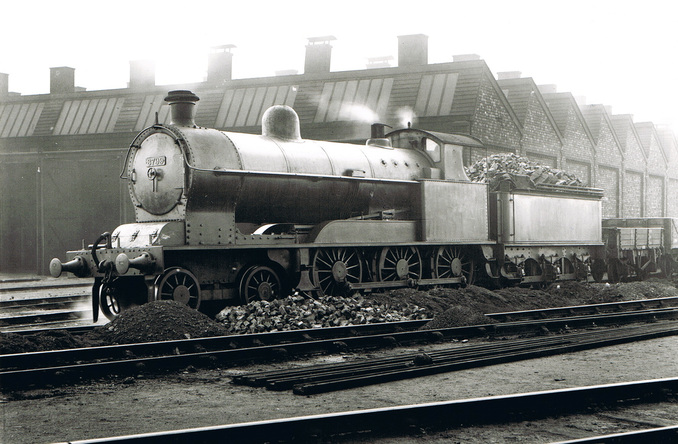
Ex LNWR 4-6-0 "19 goods". outside Nuneaton shed in the 1930's. Nuneaton did not have many 4-6-0's allocated, these and a few "Experiments" in the 30's, and after 1960, a few "Patriots", "Jubilees" and a clutch of "Black Fives", all cascaded down to Nuneaton after their main line duties were increasingly dieselised.
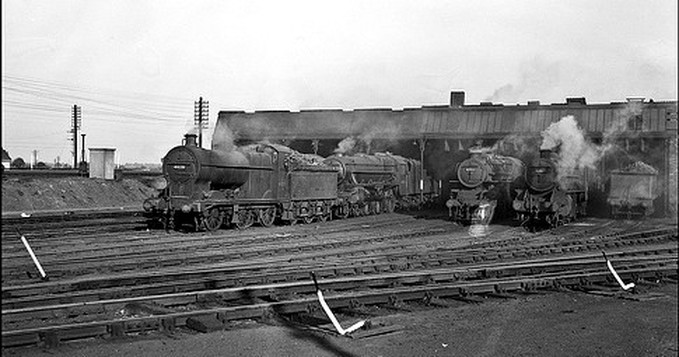
It must be a Sunday and a selection of basic Nuneaton shed stock fizzes away and rotting the shed roof a little more. I guess this was taken about 1953ish. The shed roof was so corroded it had to be replaced in a modernisation scheme that was only about 11 years old when the shed closed down. The 4F 0-6-0 at the front was a "foreign" engine as Nuneaton shed men avoided these if they could. Skittling about on inadequate bearing surfaces the 4F was reviled by a generation of steam men.
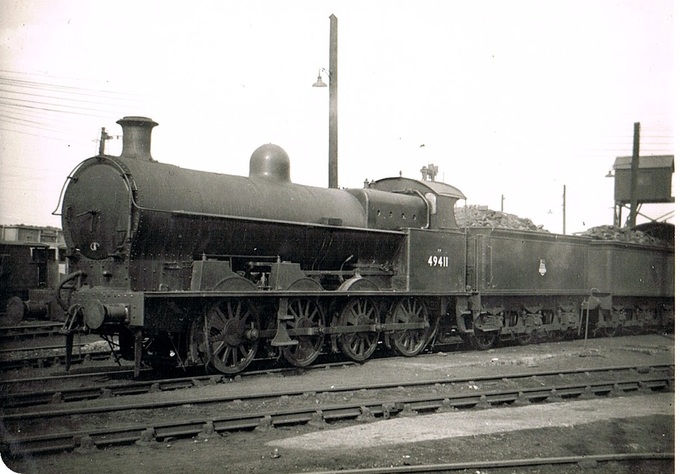
Remember these? The Old "Super D" or "Duck Eights" to a fraternity of train spotters. These heavy haulers were rugged and robust engines and could plod away all day. They lasted over 50 years and earned their capital costs time and time again over their careers on freight traffic locally. One or two old railwaymen playfully called them "MMG's" or "Midland Men's Gaffers" because if one of these ended up in the control of a former Midland Railway crew they were scared stiff of them. Its a long story!
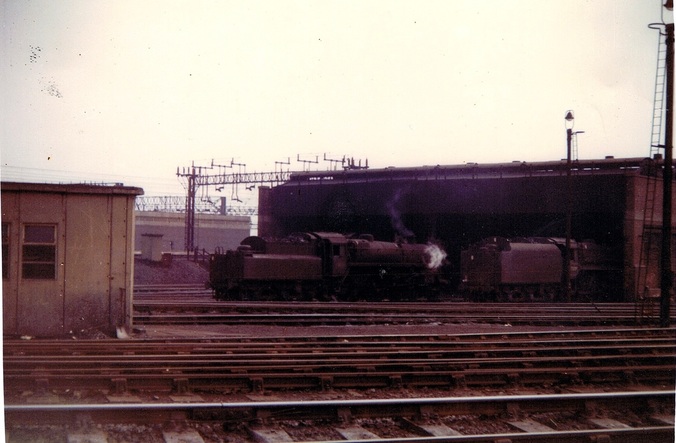
Nuneaton shed towards the end. Probably just before it closed. Note the enginemen's bothy to the left, where a large kettle was kept boiling on a cast iron stove day and night so crews between trips could have a brew. I am told it had a fetid atmosphere in summer as the stove was kept going despite the weather. There was no shortage of coal for it either. Probably the shovel was kept there for the purpose of picking up lumps of coal dropped off passing engines purloined for this very requirement.
BEDWORTH FROM THE ARCHIVES
Our Latest Publications - Now Available or in Preparation
email: [email protected] to enquire and order your copy
AUTUMN IN NORTH WARWICKSHIRE
________________________________________________________________
* NEW SERVICE - Family History Research by an independent experienced Genealogist. Please Enquire: [email protected]
TO SUSCRIBE TO OUR LOCAL and FAMILY HISTORY NEWSLETTER SCROLL DOWN TO OUR PAYPAL SYMBOL
* YOUR ONLINE ARCHIVE AND MUSEUM - FREE OF CHARGE - AVAILABLE AND ACCESSIBLE 24 HOURS A DAY - 7 DAYS A WEEK FROM THE COMFORT OF YOUR HOME! SPECIALIST KNOWLEDGE, NEWSLETTERS, SLIDE SHOWS, GUIDED WALKS WITH PRINTED TOUR GUIDES, LOCAL AND FAMILY HISTORY OPEN DAYS, SPECIALIST PUBLICATIONS, BOOKS, HELP WITH LOCAL AND FAMILY HISTORY QUERIES, PROJECTS, etc. WE RESPECT COPYRIGHT - PLEASE HELP US TO IDENTIFY PHOTOGRAPHERS WORK - FAMILY COLLECTIONS - AND ENABLE US TO ATTRIBUTE THEM.
_________________________________________________________
A Beautiful Hollywood Film Star and Nuneaton
Many thanks to Colin Leedham who has helped put this story together.
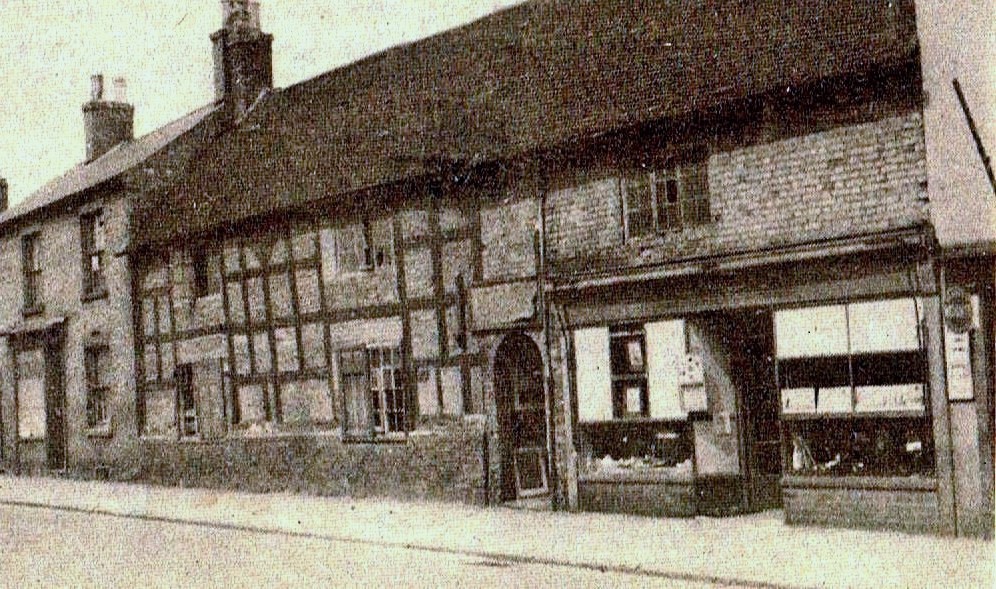
June Duprez was the daughter of an American actor Fred. Duprez and she married Frederick Guy Beauchamp a Harley Street doctor on 26th Deptember 1935 and they moved to Nuneaton where he became a radiologist at Nuneaton General Hospital (latterly the Manor Hospital). June Ada Rose Duprez started her acting career in her teens at the Coventry Repertory Theatre and I suspect this was after she moved to Nuneaton as she was only 17 when she married. Dr. Beauchamp was 16 years her senior and was 33 when they married. She soon was lured by the film industry and moved to America to pursue her acting career. Her films included The Spy in Black (1939); The Four Feathers (1939); The Thief of Baghdad (1940). War broke out in 1939 and she stayed in Hollywood, presumably because the commencement of hostilities made travel between the USA and England very risky. There must have been great pressure on the marriage and the couple were divorced in 1942. Both married again, June Duprez married George M. Moffett in 1948 but they divorced in 1965 and she died in her Knightsbridge, London home in 1984. She had two children from this marriage. Dr. Beauchamp also remarried in February 1943 and had three daughters from his new marriage. This is the timber framed house, the couple shared in run down old Abbey Street, Nuneaton in those intense years in the period 1935-1939. She must have turned the heads of many Nuneaton folk back then, and I have consulted some old timers who remember their being here. One lady has written to me and said her uncle who lived next door used to climb upon the dustbin to watch her sunbathing on the lawn!
From the Archives
NEW MYSTERY PHOTOS
Book one of our increasing number of slide presentations:
Chose From One of these Slide Shows - Fully Researched and Presented with Specialist Knowledge of the Subject. Packed with archive photographs and images.
NUNEATON - WATER TOWN (The effect water has had on our local townscape)
THE TERRACOTTA ART OF NUNEATON (The story of our local brickyards)
THE LOCAL COAL INDUSTRY (The history of the Nuneaton & Bedworth Coal Field)
THE COLLIERIES OF BEDWORTH (The town of Bedworth was built on a slab of coal. This is the story of the many collieries that tapped the seams)
THE HISTORY OF SHOPPING IN NUNEATON (At a time when our town centre is dying, its nice to remember the good old days)
THE COVENTRY & NUNEATON RAILWAY (A history of the railway that will soon boast two NEW stations)
THE ASHBY & NUNEATON JOINT & CHARNWOOD FOREST RAILWAY
(A look back at a system that thrived on freight but had very few passengers.)
THE PUBS OF OLD NUNEATON TOWN (A look at the old fashioned hostelries which once were familiar)
NUNEATON IN THE 1950's (The gritty old town just after the war - such a contrast to today)
ATTLEBOROUGH THROUGH TIME (The history of the village which is now a suburb of Nuneaton)
THE FAMILIES OF NUNEATON (Family life in Nuneaton through time)
STOCKINGFORD AS A RAILWAY CENTRE (A forgotten railway byway which was a bustling railway centre last century)
NUNEATON FROM THE AIR 1900-1970 (Fascinating elevated views of the town and surrounding area including streets that have disappeared)
NUNEATON AT NIGHT Wonderful images of old Nuneaton town centre and its people during the evening and at night in the 1950's, 60's and 70's.
MEMORIES OF NUNEATON'S FAMOUS CLOCK
NEW PUBLICATIONS
A new book is in preparation giving a potted history of the many large mills and factories that once used to provide tens of thousands of jobs in Nuneaton. We made everything in Nuneaton - men's, women's and children's clothes of all types, food products, jams and preserves, we produced a vast variety of castings for industry, sheet metalwork for car bodies, general engineering, industrial needles for the hosiery industry, silk and woollen products, regalia, cloth and raw materials, leather goods, hats, shoes, cardboard products, dairy products, timber and joinery products, etc. and this book will provide a history of those firms which once existed and have closed down. 50% of the jobs needed for local workers have gone forever never to be replaced. From a boom town after the Second World War with full employment and a shortage of workers, we are now the most deprived town in Warwickshire with the highest unemployment. This tells the story of the fabulous enterprising town that we once had which has now gone forever and the general demise of this community. (Peter Lee)
And more new publications
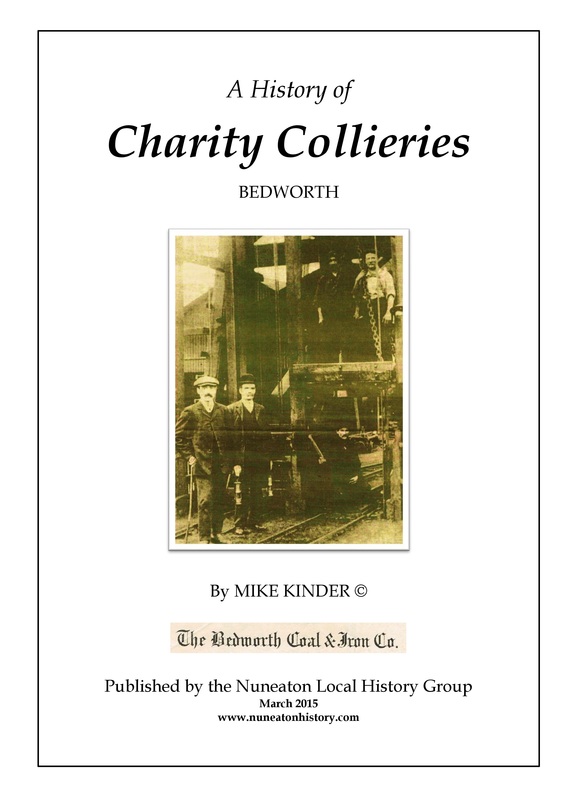
Mike Kinder's new book on the history of Charity Collieries, Bedworth is now available exclusively from this web site. £5 each. If you are interested in purchasing a copy please email: [email protected]. or text: 07710 233539.
|
BOTH BOOKS HAVE NOW SOLD OUT BUT ARE BEING UPDATED AND RE-PUBLISHED IN 2017 SO PLACE YOUR ORDER NOW TO RESERVE YOUR COPY.
___________________________________________________________
We remembered old Attleborough on July 18th. 2015
By popular request we have been asked to repeat the slide show as the hall was so packed many could not get in to see it. So look out for a new date shortly.
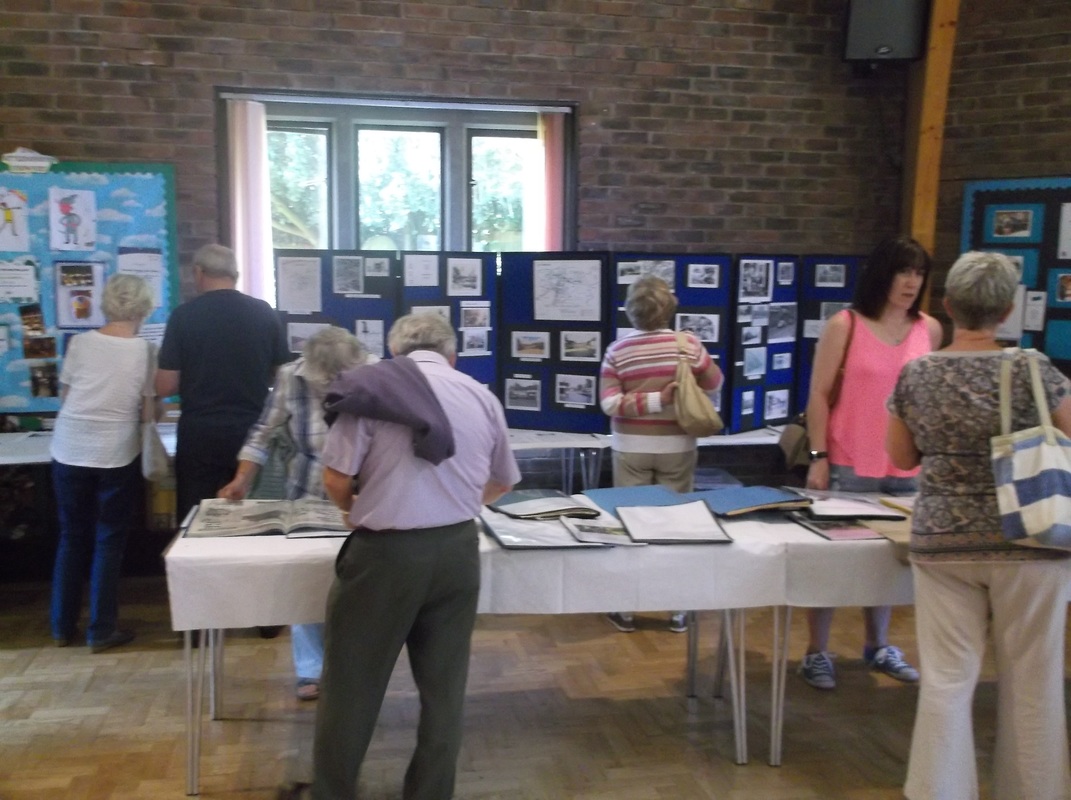
Attleborough Local and Family History Open Day was very successful with 170 people through the door. There were so many people packed into the room you see here for the slide show it was standing room only. Those who were disappointed and could not get in will be able to see the slide show again as it will be repeated at Christmas. You can also buy a DVD of the slide show at Christmas as the whole event was filmed by the local film production team of John and Roger Stringer and they recorded reminiscences of old Attleborough talking about the village in the "Good Old Days". There has never been so much Attleborough archive material assembled in one place and we plan to to repeat the event in the future it was so successful. You can see people who came early in the day to have a good browse. (Peter Lee)
Over 250,000 images, archives, major collections and documents in the process of being loaded. In addition we are processing dozens of films of old Nuneaton and North Warwickshire for you to view here (a selection are already available). We are now North Warwickshire's Nr. 1 Visitor Attraction and Research Tool without leaving home and all free of charge 24/7. It will take time to load up but keep logging in for new material.
Film footage of Nuneaton's 50th Anniversary of the Charter Day celebrations in Nuneaton in 1957. Heres the link: http://www.player.bfi.org.uk/film/watch-bass-nuneaton-charter-celebrations-1957/
- Film footage recorded in 1991 - Memories of Nuneaton Blitz recorded at the Chilvers Coton Heritage Centre in May 1991 - exclusive to this site, click here to view: http://youtu.be/7BrYDMemDKY
ANSLEY HALL From the Archives
Memories of Abbey Street
Aerial View from the Archives
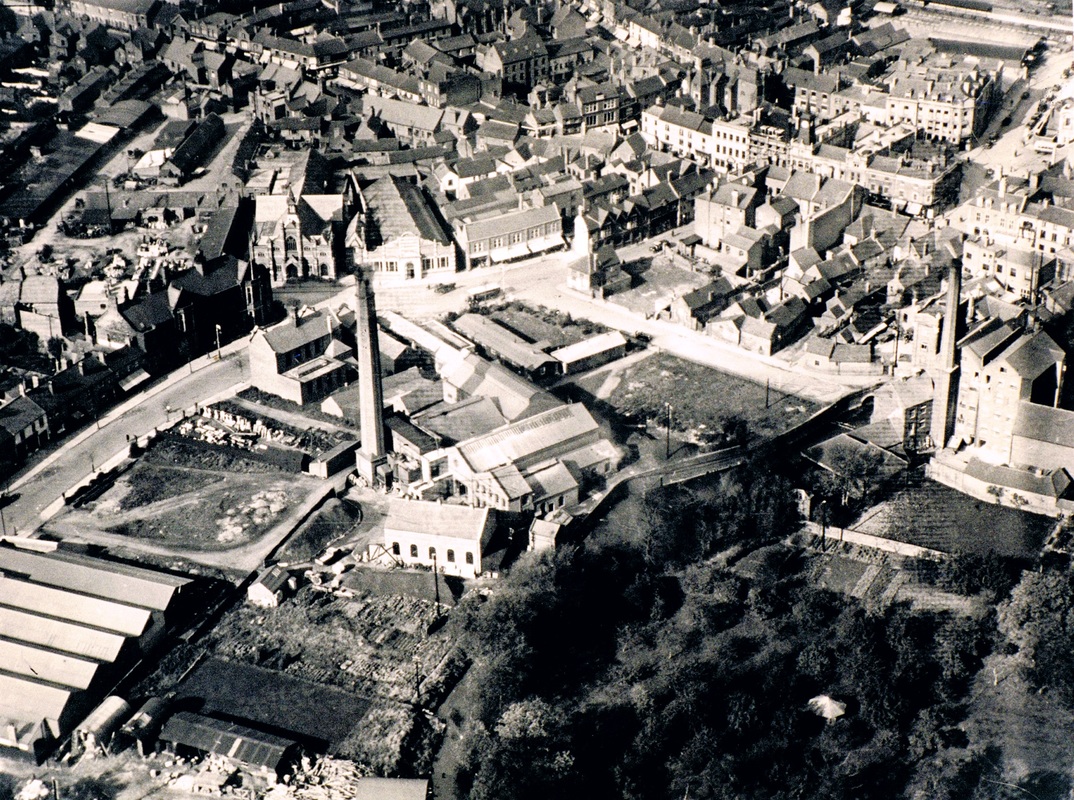
In 1925 The Nuneaton Observer commissioned Surrey Flying Services Ltd of Croydon Aerodrome to take some aerial photos of Nuneaton town centre. This is the result. The photos first appeared in the Nuneaton Observer on Friday January 22nd. 1926. TheCopyright and Exclusive Newspaper Rights were vested in the Nuneaton Observer. Bottom left hand corner the new Midland Red Bus Garage on Coton Road, in the centre Nuneaton Corporation Electricity Works, with its tall chimney. Just to the left of the chimney is the yard of a monumental mason, and the large building just left the Carnegie funded Nuneaton Free Library with Clare Speight's photographic studios part hidden by the chimney itself. These buildings would be replaced by the new town hall in 1933. On the right is the flour drubbed blue brick flour mill. Mill Walk can be seen with Mr. Becks late shop on the corner which was demolished shortly after the photo was taken. You can see the Congregational Church, The Nags Head pub and to the right Nuneaton Market Place.
Remember Manor Park Football Ground, Nuneaton.
Memories of Courtaulds Mill, Nuneaton.
Wheat Street, Nuneaton in past times
THESE DOCUMENTS ARE AVAILABLE FOR DOWNLOAD - FREE OF CHARGE
FAMILY HISTORY COURSES. Try an Eight Week Course by Dean Elliott held regularly at the Chilvers Coton Heritage Centre. Whether you are a beginner or researching for years, this is the course for you. Details from Dean: [email protected] FIRST COURSE IS FULLY BOOKED BUT THERE WILL BE MORE COURSES TO FOLLOW. CONTACT DEAN DIRECT FOR DETAILS.
THIS SITE covers Local and Family History - Free of Charge - Enjoy this journey into the past - All over the world 24/7 in the warmth and comfort of your home.
+ More Talks, Slide Shows, Walks, Visits, Newsletters, Free Combined Local and Family History Research Sessions, Publications, Online Free Library, Annual Local and Family History Open Day (ATTLEBOROUGH THROUGH TIME - contact us if you have Attleborough roots).
All these directories are free of charge for you to download
A PORTAL TO WARWICKSHIRE'S MODERN & HISTORIC MAPS
is here:
http://maps.warwickshire.gov.uk/historical/
CONGRATULATIONS TO THE WEDDINGTON CASTLE WEB SITE on its 10th year - http://weddingtoncastle.co.uk/tenth-birthday.html
RADIO BROADCASTS
__________________________________________________________
RADIO BROADCAST REMEMBERING WORLD WAR ONE - THE "LANCS, DUBS & ROYALS" IN NUNEATON, 1915 click here
RADIO BROADCAST REMEMBERING THE RED CROSS HOSPITAL AT WEDDINGTON CASTLE, NUNEATON 1916-1919 http://www.bbc.co.uk/programmes/p0262jht
________________________________________________________________
ATTLEBOROUGH RESIDENTS CAMPAIGN TO SAVE A COMMUNITY BUILDING - 107 YEAR OLD PARK AVENUE SCHOOL
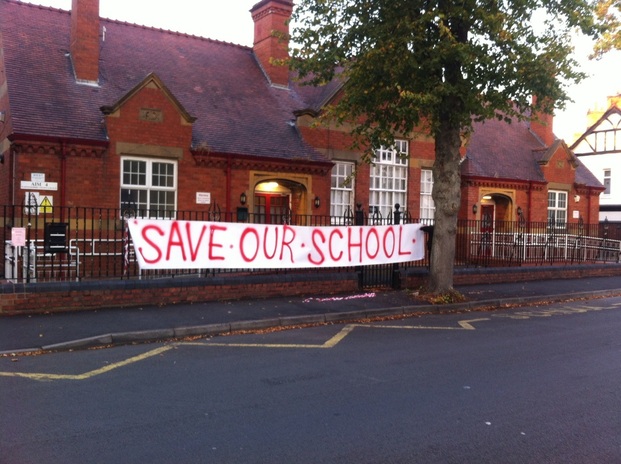
Park Avenue School in Attleborough was opened in 1907 and was given over to community use after its closure as a school. Now Warwickshire County Council want to pull down this locally listed building despite the fact it is in good condition and could be adapted for many community uses not least re-opened as a school because of the increasing need for school places in the Borough.
Join Attleborough Residents in their campaign by emailing: [email protected]
Nuneaton Local History Group's Outdoor Visits Programme
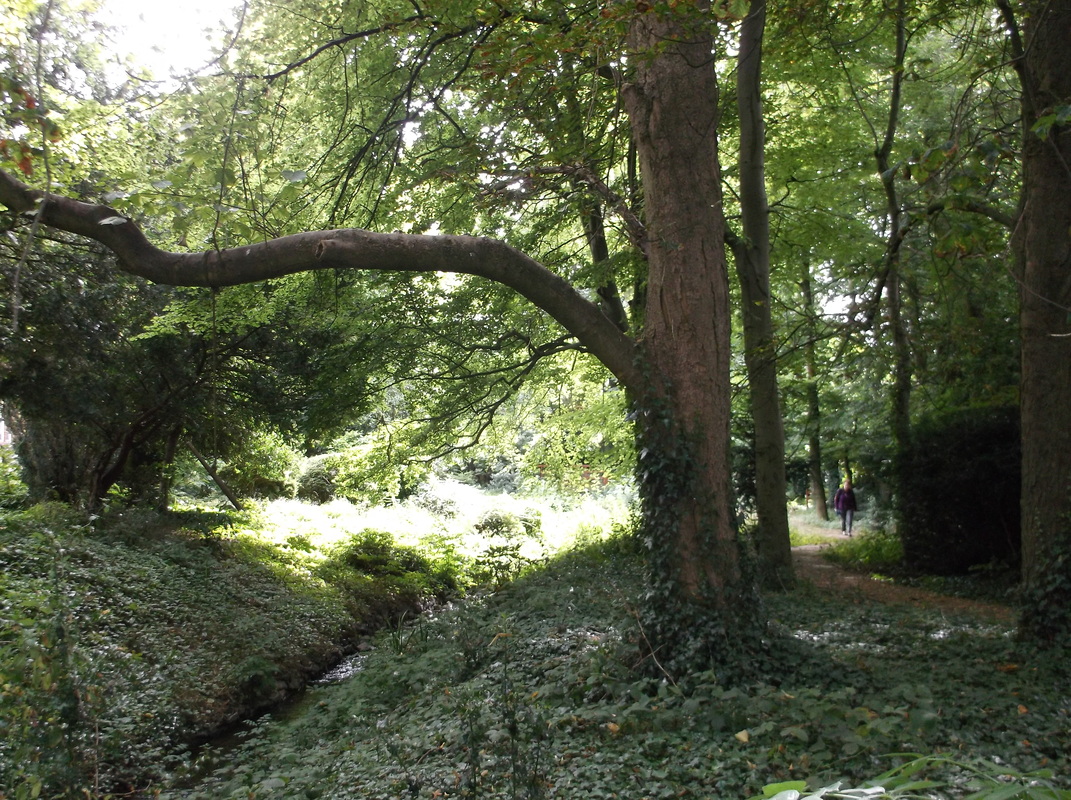
Nuneaton Local History Group hold free of charge summer outdoor visits to places around North Warwickshire as well as Nuneaton and in August they made a visit to the Manor Court Area in the company of Jean Lapworth, the leading authority on the history of the conservation zone. We were given special access to the most historic spot in Nuneaton. A scene right in the centre of town that has not changed for one thousand years. This is the bosky dell at the side the Manor Court and the old stream "Wash Brook" which caused so much trouble to Nuneatonians over 200 years ago by its propensity for flooding, so that the roadway in Nuneaton we now call Queens Road was known as Wash Lane, because it was all awash! Today, however, the stream still flows as it has done from medieval times in an unchanged dell right in the centre of the polluted and busy townscape of Nuneaton. It is a miracle it has survived. About 30 participants in the NLHG walk were amazed to find it. (Peter Lee)
Participants in the Nuneaton Local History Group's visit to Guy's Cliff at Warwick enjoyed a detailed look around the noble ruins and the spooky catacombs, tunnels, caves and cellars below the house and its grounds on Saturday, September 13th, 2014.
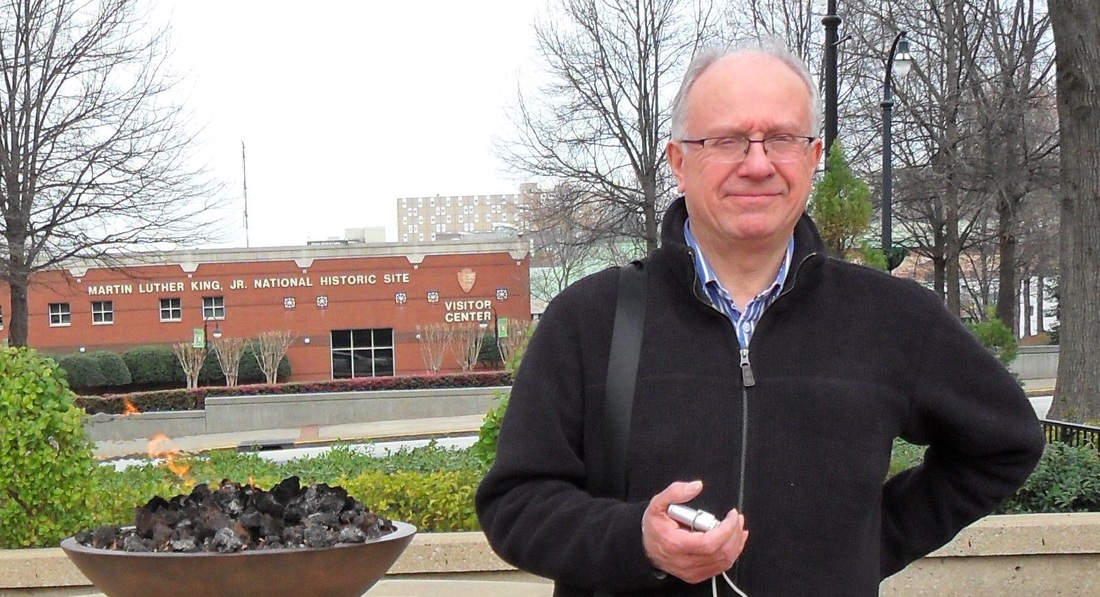
Your web site manager - Peter Lee - hopes you enjoy your visit. Please email me any time if you see something you would like to discuss. [email protected]
NUNEATON STEAM CLUB for STEAMY MEMORABILIA
Remembering the Rev. Teddy Boston and the Railway Around the Rectory. Press the Nuneaton Steam Club Tab for all Memories of the Good Old Days of Steam Around the Nuneaton Area and the work of local Railway Historians long departed.
Restore our Scenic Canal
Restore the Griff Arm of the Coventry Canal
Alan Baxter is campaigning and gaining support to restore the Griff Arm of the Coventry Canal, join his campaign:
email: [email protected]
email: [email protected]
A NEW BOOK "A Nuneaton Childhood in the 1950's" in the shops now.
Scroll down to preview what is featured in this web site of local and family history for the whole of North Warwickshire.
Here are a few images to get you started....
NEW FILM - NUNEATON RAIL CRASH 1975
Now added. Scroll down to films - Click on Nuneaton Rail Crash 1975 for a film of the aftermath of this disaster that resulted in six fatalities and 36 injuries out of 100 passengers at 1.55am on 6th June 1975 at Nuneaton Station. A day that seared itself into the memory of many local people. The worst rail crash in the history of Nuneaton. Geoff Edmands was there to record the immediate rescue operation and the 24 hour clear up which took place over several days afterwards to resume services on the busy West Coast main line through Nuneaton. This is Geoff's record.
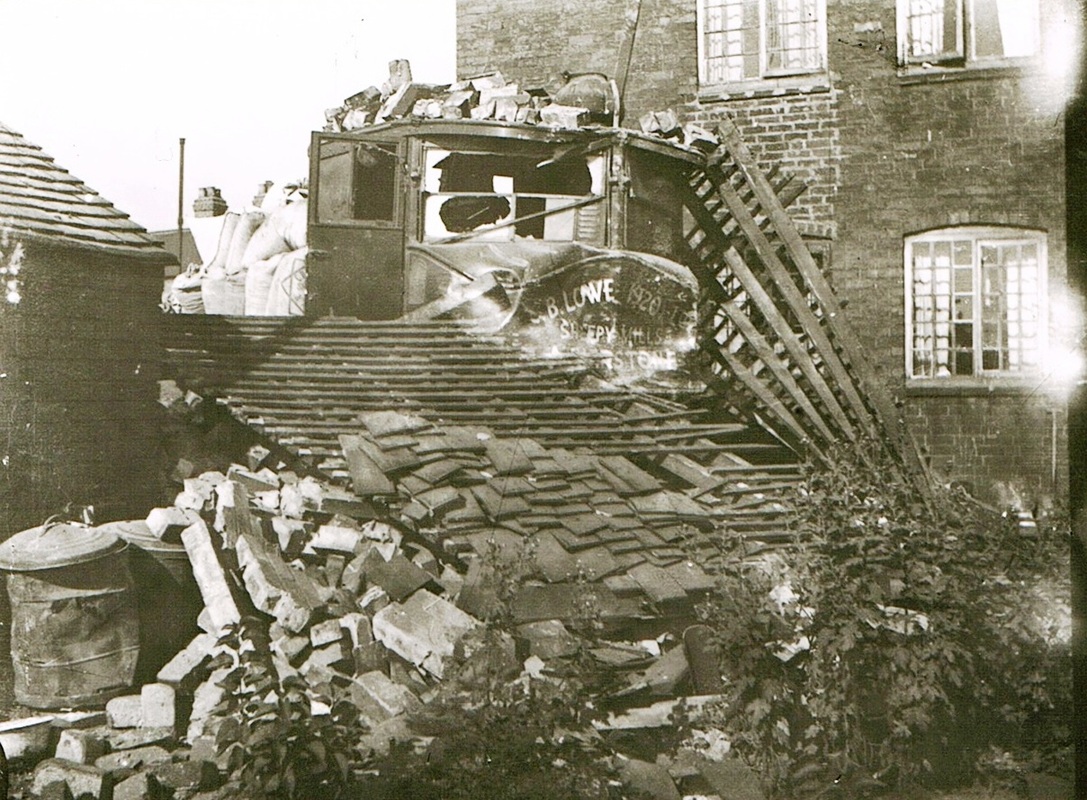
Road accidents were commonplace in the "Good Old Days" and in this case one of C.B.Lowe's Super Sentinel steam wagon's CY5448 has ploughed into someone's privvy in Nuneaton. I have no idea how this happened but looks to have taken place in the 1940's. I just hope no-one was occupying the throne in the privvy at the time or else it was curtains! C.B.Lowe 1920 Ltd were flour millers at Sheepy Magna for many years.
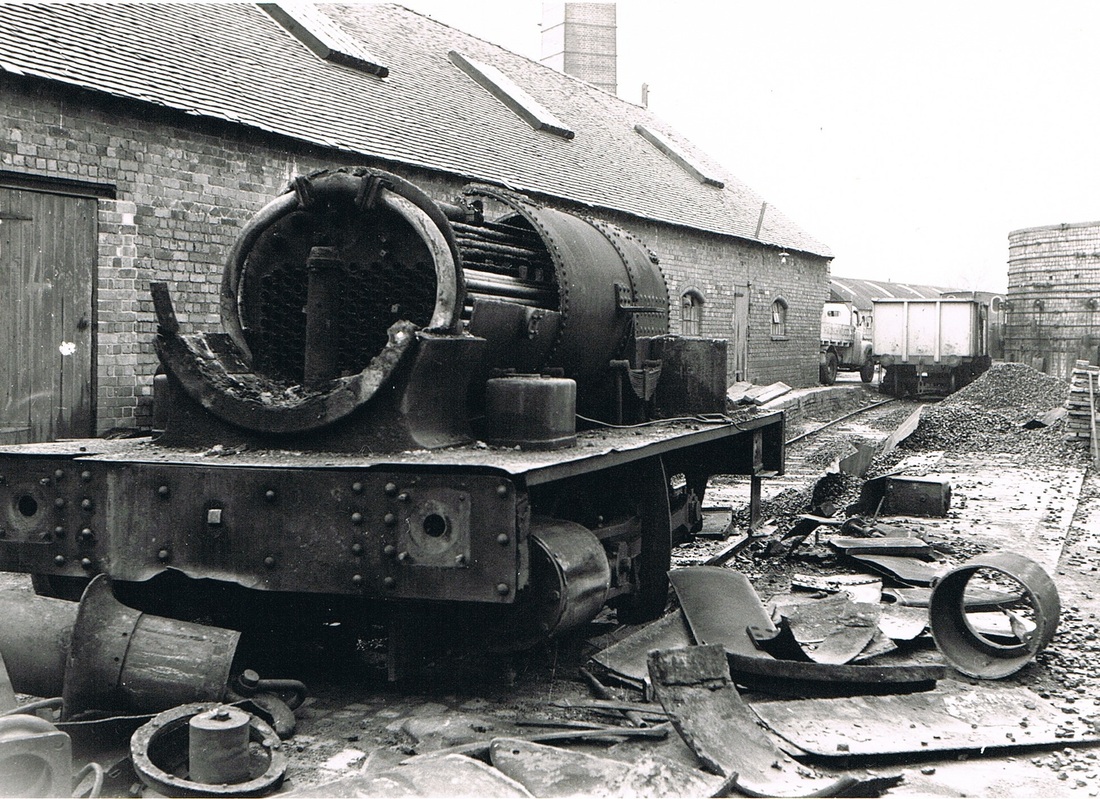
Not all smashed up machinery was accidental. Here is Yorkshire Engine Nr. 2196 of 1927 in the process of being cut up by messrs George Cohen Sons & Co. Ltd in January 1960. The location is Haunchwood Brick & Tile's Yard in Stockingford, Nuneaton. The Yorkshire had been laid to one side out of repair by the mid 1950's and in 1959 Haunchwood acquired a diesel shunter to supplement the shunting work being carried out by the other working steam loco "Glenmayne". One of the works plates Nr. 2196 from the Yorkshire resided on a mantelpiece in a house in St. Pauls Road, Stockingford for many years until the owner passed away and his railway memorabilia sold. (Geoff Edmands)
OLD TOWNS and VILLAGES AROUND NORTH WARWICKSHIRE
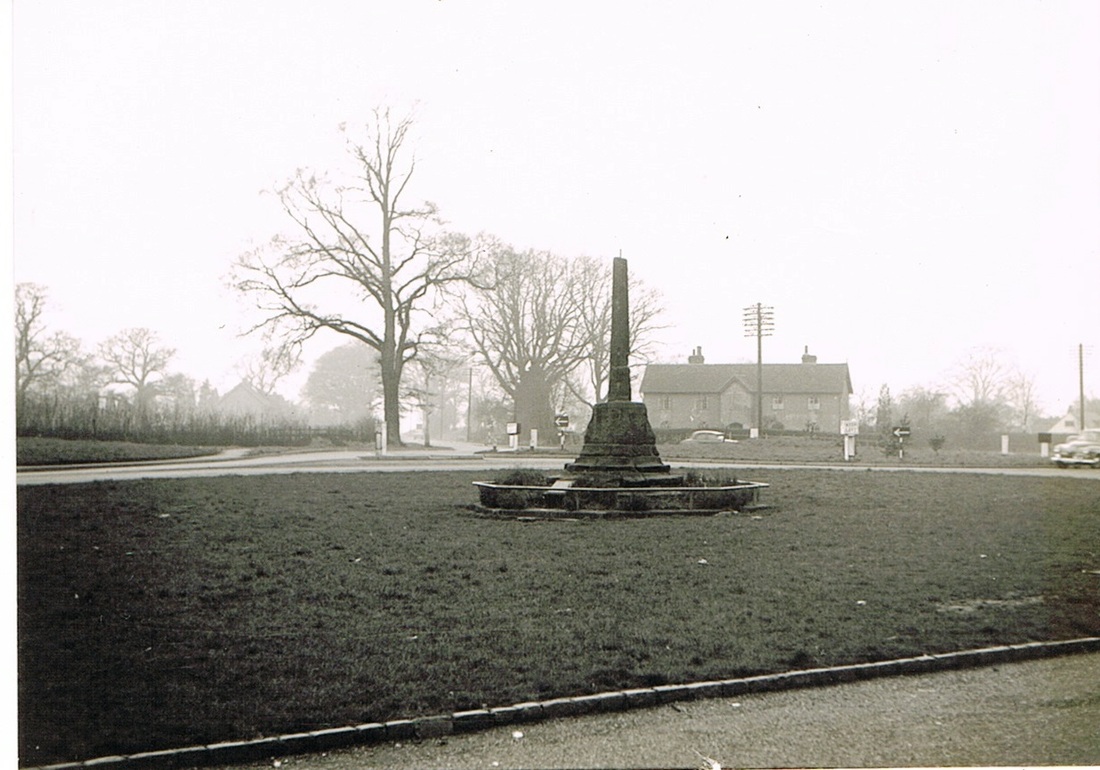
Meriden, the monument that marks the traditional centre of England. Improved mapping techniques have recently moved the centre from Meriden to just east of Nuneaton near the Watling Street road and the Motor Industries Research Association (MIRA) premises. (National grid reference SP367949 to be precise). The advent of computers seem to have recalibrated the centre of England to this new point on the map. Our photo was taken on 17.2.1957 (Geoff Edmands)
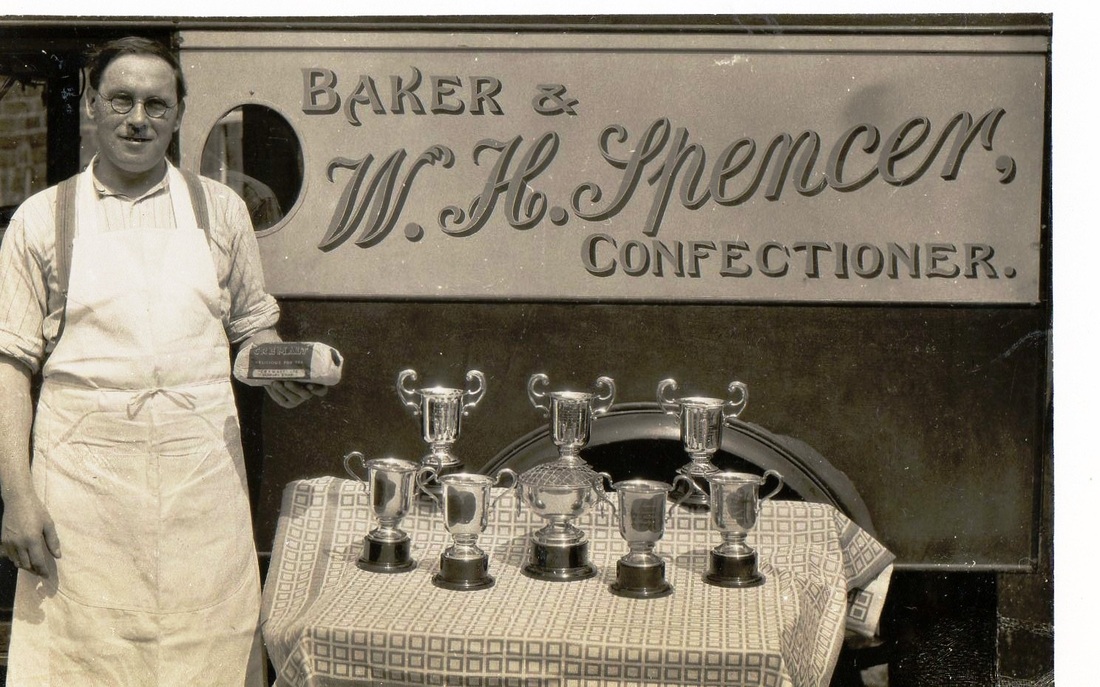
This is a photo of William Henry Spencer of the Bull Ring, Chilvers Coton with his prize loaf and the trophies he won for his magnificent products. Mr. Spencer died in 1937 and left his business to his nephew Herbert Spencer who was a junior partner in the family firm up until then. The business carried on until 1965 but we do not know if Herbert's own son - William, pursued it beyond then. In later years the former bakery was used as a blacksmithy and light engineering shop. The premises were demolished and sheltered accommodation occupies the site on the Bull Ring to this day. We date this view c. 1920. Many thanks to John Walklate for the photo and Robin Mowday for further information on the Spencer family who also had a bakery at 158 Arbury Road and Church Road, Stockingford. (On the corner of Webb Street)
The Jobs We Have Lost
Jobs have been falling gradually in the Borough of Nuneaton & Bedworth over the decades since there was full employment locally in the 1960's. Over 40% of the now local working population go out of town to work. Unemployment is the highest in Warwickshire and since 2006 we have lost a further 6904 jobs in the Borough, well over a third of the loss of unemployment in the county wide. We have the worst track record for job losses in the county, yet the adjacent Borough of North Warwickshire has increased jobs in the same period by 293. Most of the industry you see in these pages has entirely disappeared, with no effective economic revival strategy by the local authority.
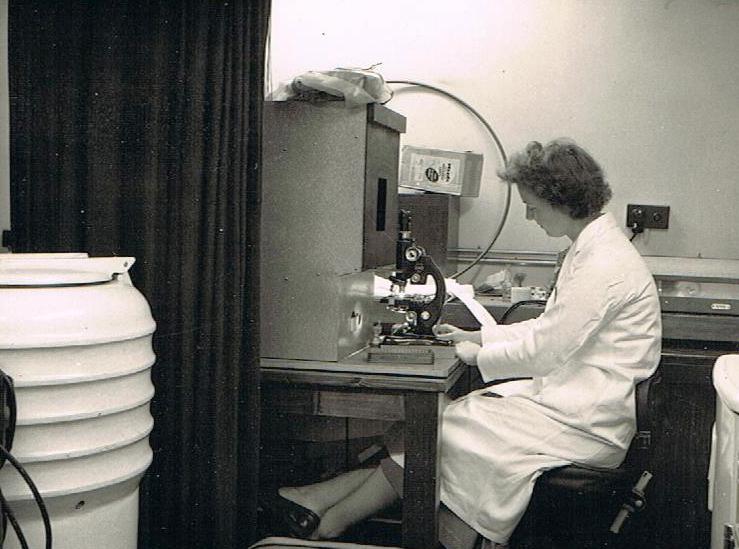
In the 1950's the National Coal Board moved its Laboratories to the former factory of Tansey's in Corporation Street Nuneaton where they established a centralised facility which had formerly been carried out at individual or at groups of collieries. This lady is carrying out examination of coal for quality, presence of gas and calorific values. Important work when Warwickshire had an important coalfield but all the collieries, and its attendant jobs have disappeared.
__________________________________________________________
REMEMBERING WORLD WAR ONE 1914-2014
The War Diary and Memories of an ARLEY soldier - Frank Arnold in this fascinating memoir - DOWNLOAD YOUR FREE COPY TODAY.
Click on the pdf symbol below..........................
BBC Coventry and Warwickshire Radio have a series on the First World War One. Connect to the station via this web site via the link.
| The Diary of Frank Arnold | |
| File Size: | 2422 kb |
| File Type: | |
The 29th Division to be sent to Galipolli during World War One were assembled in Warwickshire and 3000 of them were billeted in Nuneaton and Stockingford in 1915. This is their story. Available from book sellers or Chris Holland direct.
A SELECTION OF IMAGES FROM THE PAST AS AN INTRODUCTION TO THE WEALTH OF PICTURES IN OUR PHOTOGRAPHIC ARCHIVES.
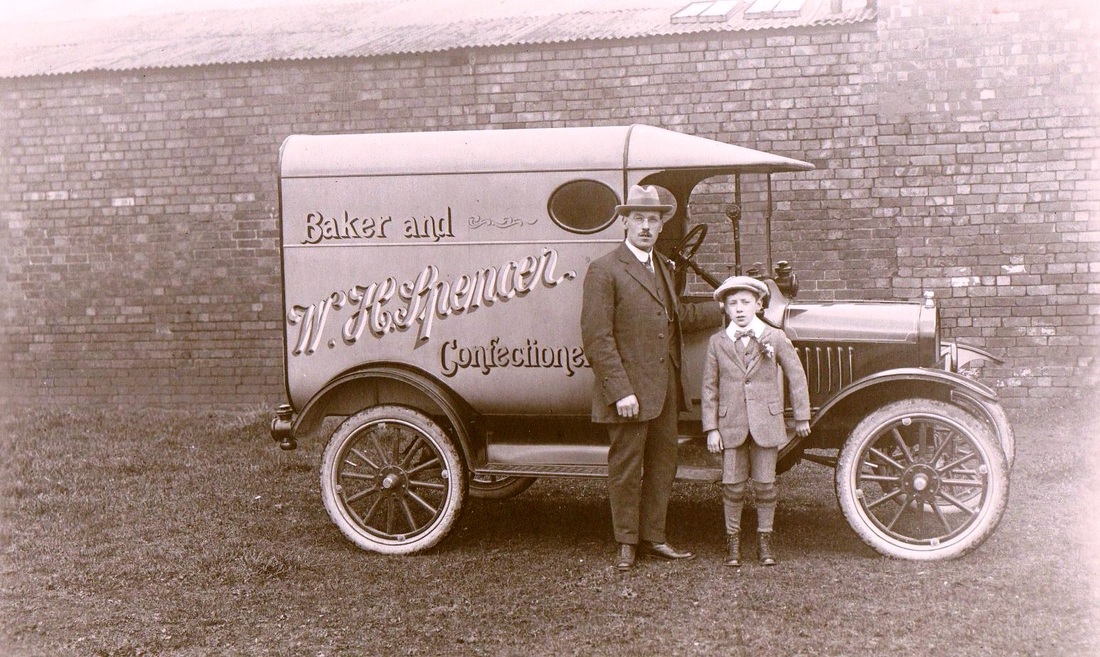
A lovely photograph of William Henry Spencer master baker at the Bull Ring, Chilvers Coton, The Spencer family had bakery businesses in Church Road, Stockingford and at 158 Arbury Road. The van is a beauty. A pristine Model T Ford chassis with a bespoke van body. The photo is estimated to date back to 1920 and the location is believed to be waste ground at the back of their premises on the Bull Ring. (John Walklate)
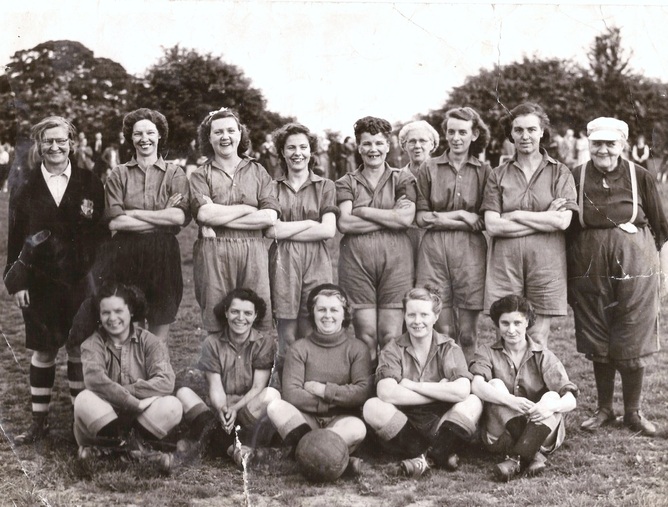
This is a great picture of Bermuda Ladies Football Team in the early 1950's.
At the back - Annie Sparrow the Manager,
Standing left to right, Mrs. Waite, Mrs. Seadon, Mrs. Kilburn, Joan Kent, Elsie Sheldon, Joan Clay, Violet Fowler, Mrs. Haycock.
Sitting: Mrs. Coles, Violet Tallis, Jean Kent, Ann Warren, May Gibbs.
Many thanks to Ralph Oldacres for supplying this wonderful image. Are any of these ladies or their families around today to tell us about life in Bermuda village back then and reminiscences of the football team.
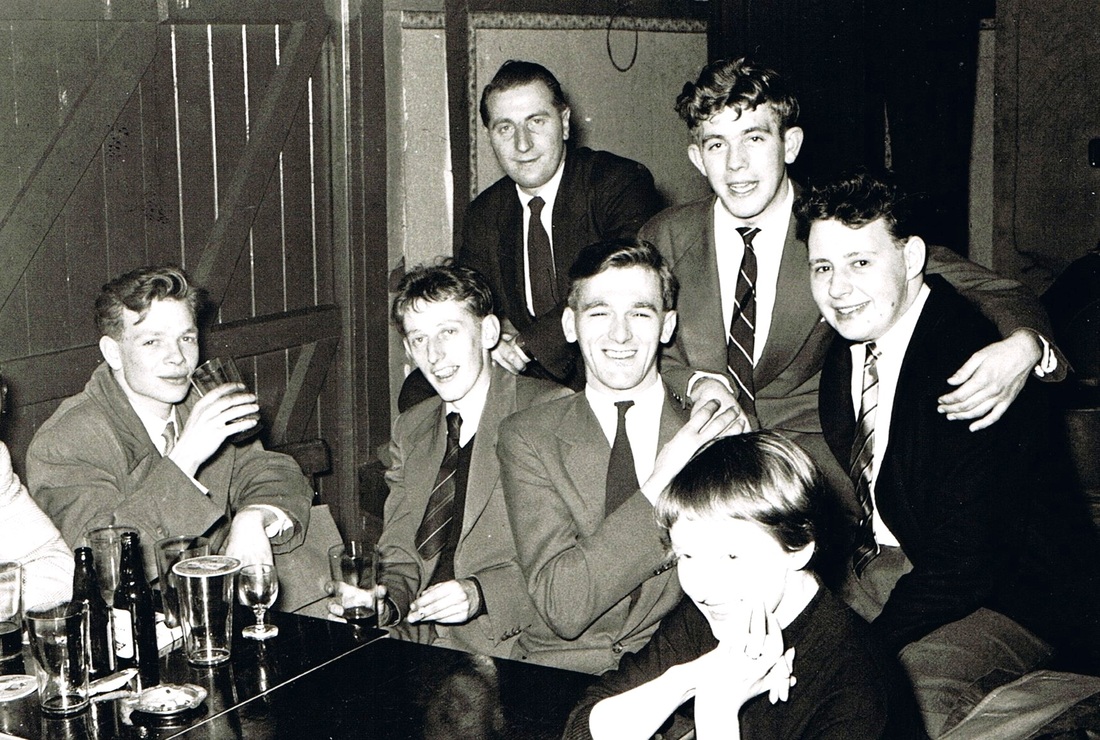
It is remarkable that one of our viewers - Sandra Buckley - recognised the people in this photo and has given me the names of all but one of them drinking in the Railway Club in Wheat Street, Nuneaton in 1957. From left to right - elbow visible only Tony Cox, Brian Gealey, Les Thomas, Barry Honey, Colin Honey (standing), Stan House and the girl is Margaret Thomas. The fellow at the back is not known at this point but I hope someone will recognise him. The old railway club seen here moved into Regent Street in the 60's into the premises that is now Atack's Billiard Hall (or was until recently). An old railwayman told me the story of their moving the fixtures and fittings of the club and the heaviest item was an upright piano which four railwaymen decided to move the quick way - Straight across the railway lines! The movement of the piano was interrupted by the passage of a Duchess on an express and they had to leave the piano in the 6'0" between the two main lines as the express noisily thundered by a few inches from their noses. Once the train had gone they picked the piano up and carried on. Those were in the good old pre- Health and Safety days!
Every town and village has its story, but that story is more often acted than told, and as the actors die out their tale of life and labour is all forgotten.
Alfred Lester Scrivener, Editor Nuneaton Observer, 1878
__________________________________________________________________________
A FEAST OF FAMILY HISTORY From the Mallabone family album:-
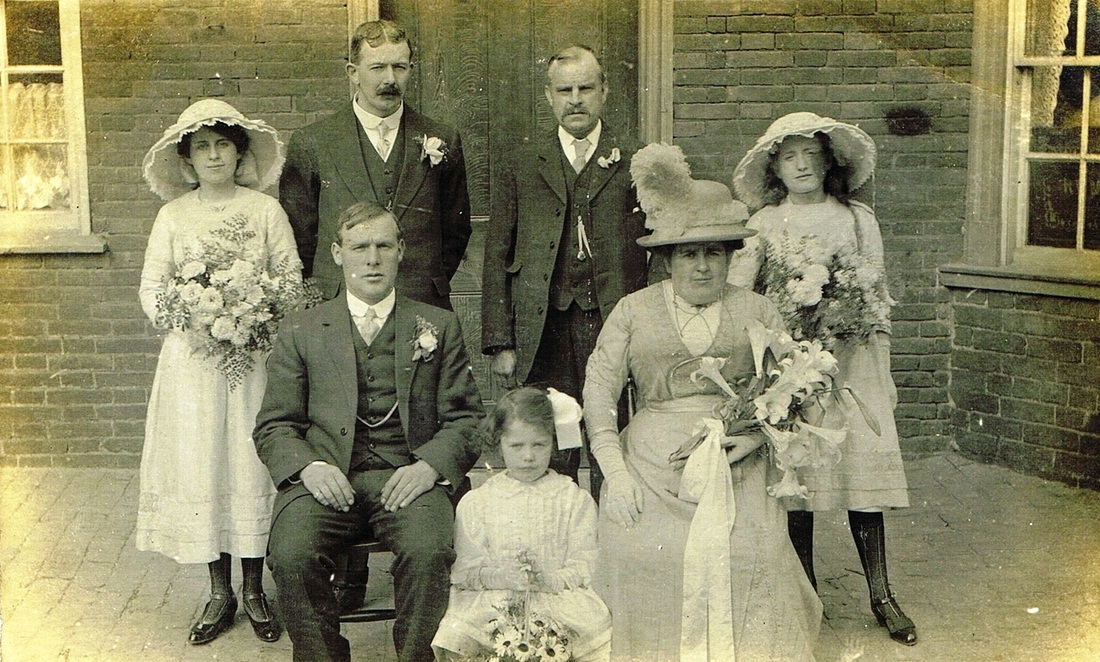
A family photograph from the Mallabone family archives taken outside the Jolly Colliers Pub in College Street, Chilvers Coton. The Mallabones were associated with the Jolly Colliers for 100 years.
Are there any members of the Mallabone Jolly Colliers family out there? The event appears to be a wedding and the groom with his family probably the girls are his sisters and one of other of the two men at the back his father, whilst the seated lady his mother. But what are their names? (Lynn Wilkes)
Available from all good booksellers.
(I am keen to ensure all photos and items provided are fully acknowledged to the original source. Please let me know if you know who took the original photos as we want to showcase their work for posterity and fully acknowledge the effort that has gone in to producing these images and thank everyone who has contributed. It is deeply appreciated. Also I am keen to unravel the story behind those pictures.
Note - All images and documents are copyright protected for private use only)
.______________________________________________________________________________
Nuneaton Civic Society & Nuneaton Local History Group visit to Merevale Hall, Atherstone. Friday September 20th. 2013.
35 attendees were entertained by Matthew Dugdale to a tour of the house and gardens with its stunning views over North Warwickshire.
_________________________________________________________________
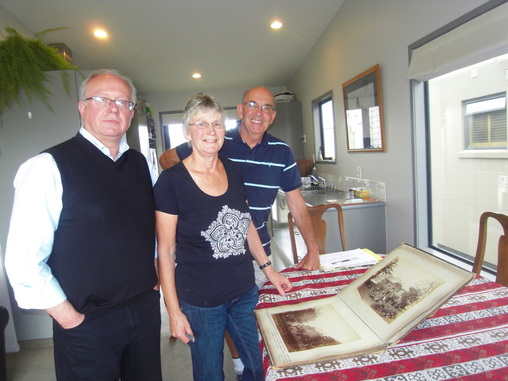
Peter Lee - Seeking out old Nuneaton and North Warwickshire memories and memorabilia world wide. Here I am in Napier, New Zealand looking at the family photo album of the Townsend family of Attleborough Hall at the home of Jan & Dave Brock. All the photos in the album were taken in the 1880's and 1890's.
_________________________________________________________________
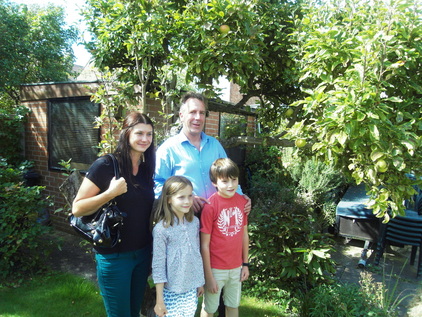
Angela Williams (left) whose ancestor Peter Unger Williams (1775-1837), and James Donald (with his children) whose ancestor Alexander Donald (1745-1808) owned Haunchwood House in the early 19th century are re-united next to the only remaining artefact from Haunchwood House an old apple tree which stood in the old mansion's gardens. A remarkable family re-union held in Nuneaton by the Nuneaton Civic Society for the Heritage Week End in September 2012. (Peter Lee)
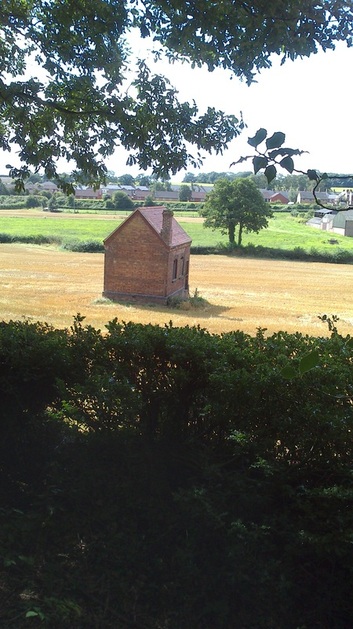
Local history is not always about the past. It is often the way that history fits into the modern landscape. Deborah Griggs photo of Ansley Hall Pumping Station explores this theme and interprets history into today's scene. The photo was taken on Sunday 8th September 2013 and is a lovely image of an evocative part of old Nuneaton.
____________________________________________________________________________
WELCOME TO OUR HISTORIC DISTRICT
This web site has been created from over 40 years of research by Peter Lee delving into all matters local, social, family and economic history in the area of Nuneaton and North Warwickshire. The philosophy of the site is to entertain you free of charge for your own pleasure, research and family enjoyment and is presented in association with the following groups and copyright holders: Nuneaton Local History Group, the Nuneaton Civic Society and the Nuneaton Families Research Project, the Nuneaton Family History Group, the Edmands Family Nuneaton & Bedworth Photo Archive, the Haunchwood Brick & Tile Archive, the Stanley Brothers Collection, the North Warwickshire Collieries Collection, the Peter Bayly Collection, The Trent Valley Railway Archive, The Sterling Metals Archive, The Alan Cook Collection, The Glenn Noon Collection, The Evans Family Collection, David Fordham's Arbury Estate, Canal System and Griff Collieries Archive, The Nuneaton Chronicle Newspaper Archive (1868-1920), the Jean Lapworth Collection, The Dr. Alan White Collection and The Maurice Billington Archive. The Wright Family Rural North Warwickshire Family Archive. The Stockingford Colliery Papers 1855 - 1928. The work of T.C.Neath, Chilvers Coton photographer. The Nuneaton Railwaymen's Staff Records. Gavin Metcalfe and the Harridan On-Line North Warwickshire Family History Collection. The John Walklate Collection, The Roger Fifield Collection, Peter Chater - Weddington Hall Collection, The Ruby Atkins Collection, The Horace Bull Collection. The Tom Burgoyne collection. I would also like to thank Anne Gore, Colin Yorke, Reg. Bull, Dr. Kevin Woodward, Michael J. Lee, David Sidwell, Ray Smith, Dennis Labram, Michael Salter, Mike Kinder, Ray Fox, Gordon Webster, Jim Lee, David Looms, Phil Vernon, Fred Phillips, John Burton, Lee Randle, Trevor Watson, Ted and Jean Prince, Pat Haselwood, Eileen Worthington, David Gamston, Beryl Kerby, David Fordham, Les Holmes, Arthur Tooby, Robin & Denise Mowday, Keith Draper, Moreton J. Ensor, Paul Sawyer, Clive Fowkes, Lynn Wilkes, David Slingsby, Terry Roberts, Vic Holloway, Tony Newman, Tina Aucott, Robert Bristow, Mike Musson, Roger Stringer, John Stringer, Diane Payne, David Fordham, Nancy Bradley, Michael Mears and Joy Perry who have contributed material and many others who are constantly adding to the site, and being helpful as well as being generous with their time and assistance. If I have missed anyone let me know, and if you spot any errors I will be pleased to correct them. Its my aim to make the information provided as accurate as possible.
Our Mission Statement
Browse our online archive as I fill the site up with free memorabilia, indexed material and images for you to use in your own researches if your local and family history interests extends to North Warwickshire and the bordering parishes in Leicestershire and either side of the Watling Street. The opening images on the home page will give an idea of the scope and range of what is intended. I will add more photos and information regularly. The site will be a wide ranging resource, for your entertainment and private and personal research without leaving home, paying admission fees, researchers expenses or subscriptions to organisations who manage your expectations. Our aim is to make everything as accessible as possible, however unfashionable that might be in this jobs-worth age. On the question of copyright you are free to download images for your own private research but not free to publish them on another web site, face book pages or other social media or in other paper or digital publications as this would breach copyright and data protection laws. You can of course link through to this web site if you wish to. Because these images and documents come from widely sourced archives I cannot provide dispensation to use them for any other purpose than to display them here on this site. Your enquiries about the district are always welcome and I am always pleased to hear from you and help wherever I can, or if you would like to comment, then it will be great to hear from you. Tell your relatives about it, show the older members of your family what is now available on-line enabling them to re-visit their roots in North Warwickshire in the "Good Old Days" without leaving the warmth and comfort of their fire sides twenty four hours a day seven days a week and of course FREE OF CHARGE!
Peter Lee
[email protected]
A wealth of Images and Information
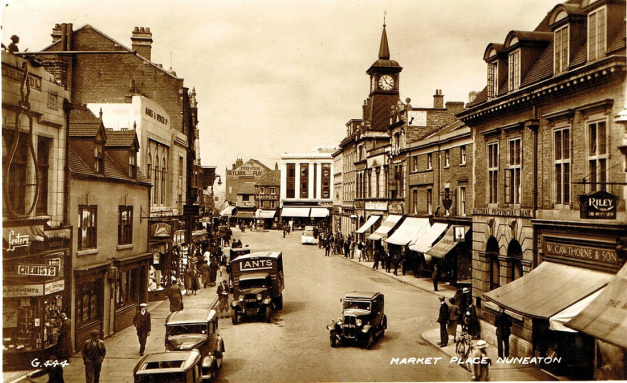
Nuneaton Market Place in the 1930's. At one time there were eleven pubs within the immediate area of the Market Place seen here but now there is only one. One of the oldest remaining can be seen on the left - The White Swan which for many years was kept by a formidable landlady - Harriet Platt. The other pubs most of which had gone by the time of this picture taken in the 1930's were - The Plough, The Peacock, The Market House Inn, The Board, The Grapes, The Crystal Palace - formerly the Hare & Squirrel, The Red Lion (just a few yards into Queens Road), The Castle Inn or Hotel, the White Horse, The Old Ram which dated back to the 16th century and just off the picture to the right the Bull Hotel - now the George Eliot (although no longer a hotel) an old coaching inn. The town clock remains as well as the buildings on the right. On the extreme left is Lesters the Chemist whose lineal descendent is now Boots the Chemist who purchased Lesters in the early 1960's. Nuneaton's famous town clock was started by Mr. Edward Ferdinand Melly at 5 minutes past 5 on Wednesday 15th May 1901. The dials are 5 ft. in diameter and the clock was built by Evans of Handsworth. The designer of the clock was the same as designed Barclays Bank opposite.
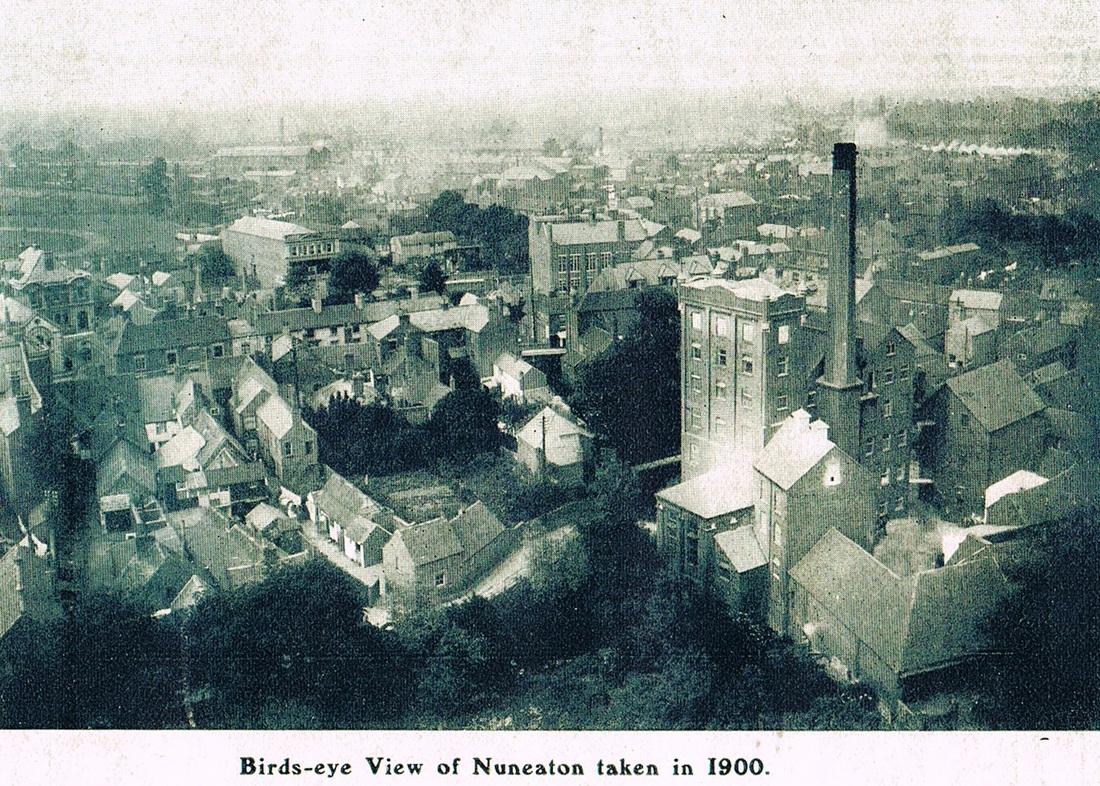
A good question for you - where was this photo taken from? Surely there were no aeroplanes or helicopters in 1900, and a hot air balloon seems the only answer. After all even the height of the flour mill chimney is at a lower level. But in fact the picture was taken from Nuneaton Urban District's electric works (where the current Town Hall is today) and some intrepid cameraman (Clare Speight possibly) has lugged his heavy equipment up this very tall chimney to get this picture, and a few others taken at the same time. It is full of interesting detail. The little lane in the foreground just visible approaching the flour mill on the right is Mill Lane, and leading off that you can see a typical court of old tenements, outbuildings and privy's that were a familiar part of the court scene back then. The flour mill is well dredged in flour. The court is at the back of Bridge Street with the Bull Hotel (Nuneaton's principle hotel at the time) visible above the line of buildings. Off centre towards the top of the picture is the large shop premises of Parsons & Sherwins, ironmongers, general dealers in agricultural implements, and builders of farm sheds.
To the extreme left of the picture is part of the running track of the Newdigate Arms, and immediately to the right of Parsons & Sherwins a big shed which I guess must be the former "Theatre Royal" a wooden theatre which preceded the "Prince of Wales" Theatre (later the Hippodrome) and was a venue of choice for our unwashed ancestors on a Saturday night where they could enjoy a Victorian melodrama before or after a night on the beer. The "Theatre Royal" was nicknamed "The Blood Hut". In the distance we can see the big railway warehouse erected by the London & North Western Railway at their Trent Valley Station and a riffle of steam as a train passing along the main line.
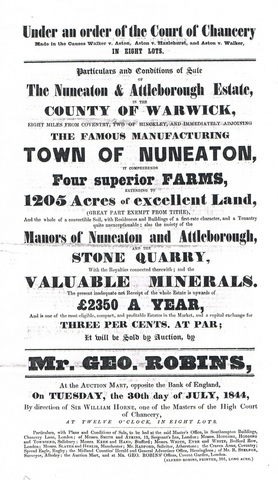
"The Famous Manufacturing Town of Nuneaton" was a snip in 1844. Estate agents were keen to hype up their sales document even back then. Famous, Nuneaton back in the 1840's? I bet most of the population of England had not even heard of it. This was three years before the opening of the Trent Valley Railway so its station sign boards could not be observed by the travelling public. And manufacturing in Nuneaton in 1844 consisted mostly of silk ribbons for which the residents of Nuneaton were only sub contractors to the London trade. The silk trade at this time was also in serious decline and many people relied on the soup kitchen. Whoever fell for this marketing ploy was sold a pup.
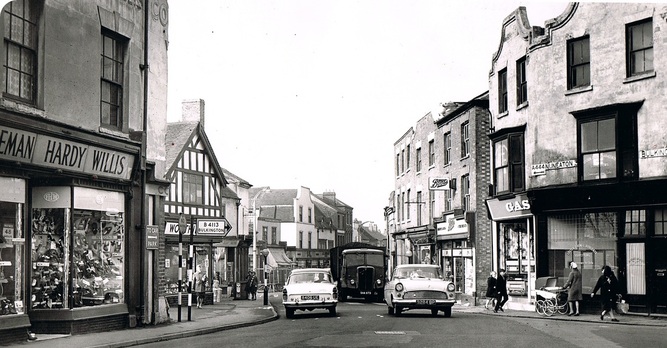
Bedworth Town Centre towards the Market Place, 1960's. By comparison Nuneaton has a few good historic central buildings compared with the adjacent town of Bedworth seen here. Everything you see here has been demolished. The interesting collection of old buildings erased from the townscape to be replaced by a boxy collection of 1960's concrete buildings. Bedworth town centre has been destroyed but the almshouses remain although their demolition was only narrowly averted (by one vote I am told).
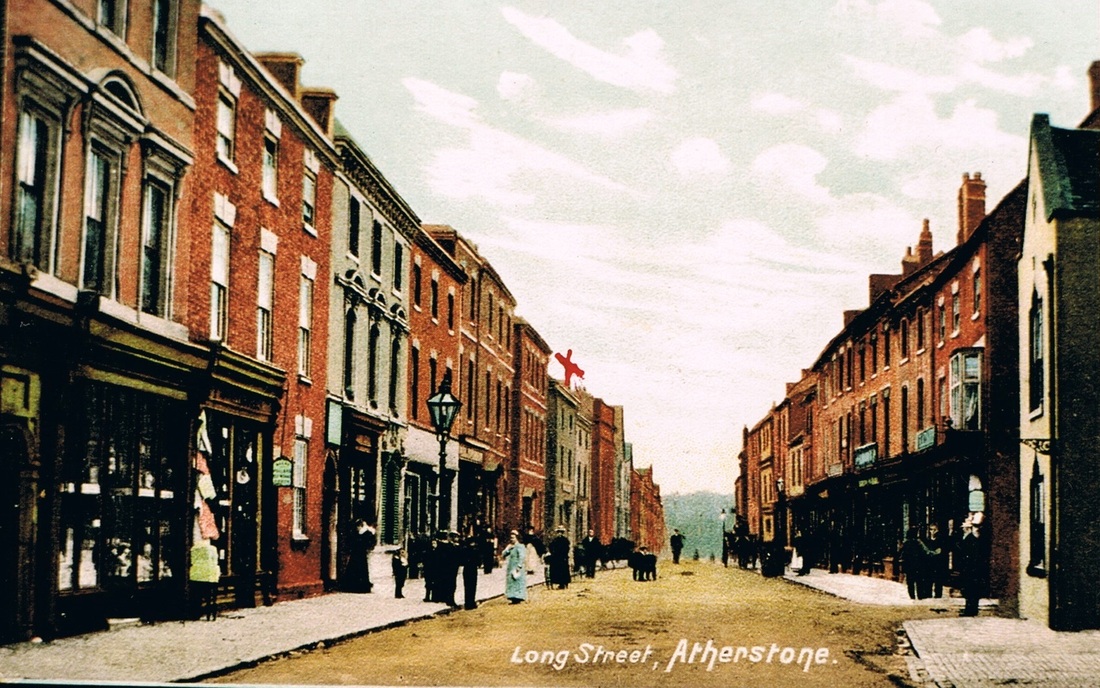
Long Street, Atherstone which was built on the ancient Roman Road, the Watling Street. Atherstone is a lovely old town and will feature strongly in the feature on this site of the North Warwickshire villages bordering the Watling Street. The photo here was taken in the early 1900's and at the back of these frontages were many rows of yards and alley ways.
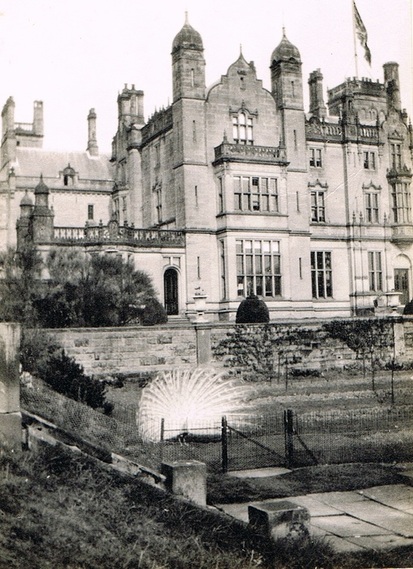
An Albino Peacock on the lawn of Merevale Hall in the 1930's. Home of the Stratford-Dugdale family. The Stratford family derived their name from the town of that name in South Warwickshire in the 13th century, and at one time were considered to be the second richest family in England with huge estates in the Cotswold stretching from Stow on the Wold to Tewkesbury. The Stratfords had estates in Ireland, a large house in the centre of London and business interests in Germany. They had substantial commercial interests in the wool industry. The Stratfords started to buy up properties in Warwickshire from 1648 onwards when they purchased Horestone Grange, then Nuneaton Hall, in the centre of the town (where Stratford Street is now), the Ansley Hall and Bretts Hall estates, and Merevale all in the space of twenty years in the 17th century. The Dugdale family lived at Blythe Hall Shustoke. In the 18th century through marriage these families amalgamated and Merevale Hall in its lofty and prominent position is the result. One of Warwickshire's finest houses and most magnificent estates. (Jean Lapworth Collection)
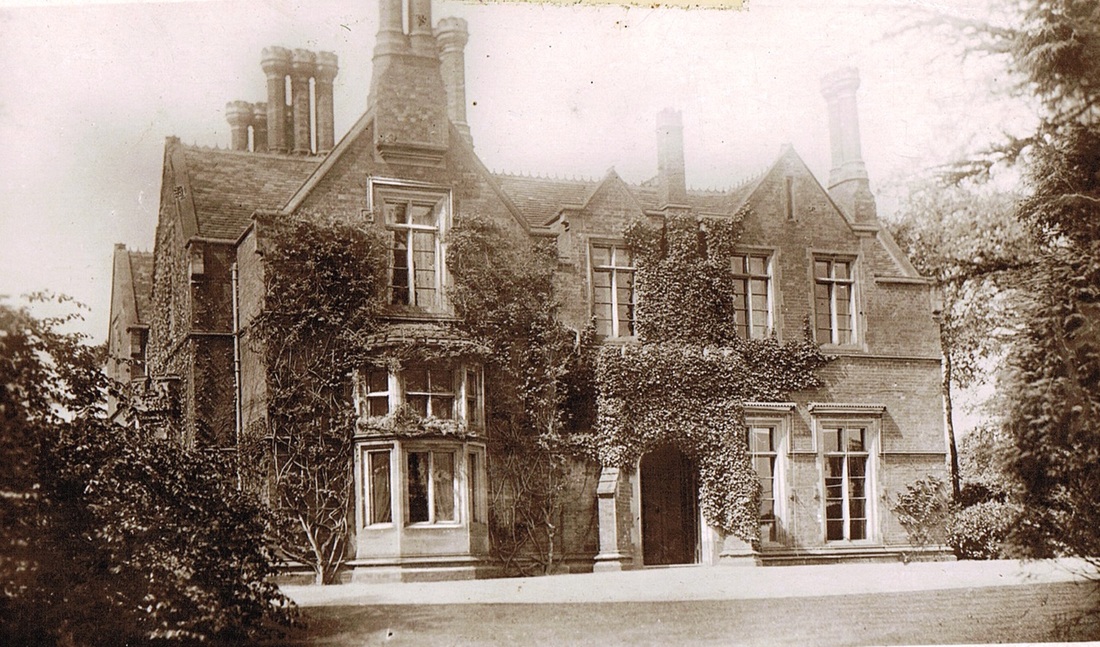
A large mansion stood on the site of a Roman camp at Camp Hill, Nuneaton since the 18th century. It was occupied in the 18th century by John Barber, a Derbyshire coal owner, and its history back then is lost in antiquity, but in the late 1830's the old mansion was entirely reconstructed to the designs of Thomas Larkins Walker, or this new house built. Mr. Walker carried out a number of local commissions at the time. The client at Camp Hill was John Craddock, a local banker and lawyer, and this fine house then stood on the site for upwards of a hundred years. In the later years of the 19th century it was owned by Henry Stubbs (1854-1916) who was a wealthy businessman, who was very interested in the theatre, and was one of the people behind the Prince of Wales theatre in Nuneaton. Other residents at the Hall were Henry Kay, Richard Ramsden and Arthur Charles Prettyman. After the First World War the house went into decline and there was an auction of its contents prior to demolition 17th-19th April 1928. A local landmark Stubbs Pool derives its name from the Stubbs family. (The Wright Family North Warwickshire Collection)
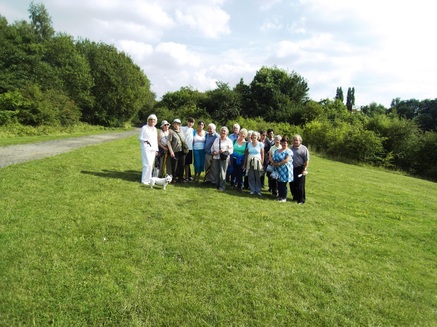
During the summer Nuneaton Local History Group provide walking tours of our area. Participants are invited to join us for a gentle stroll around the district seeing items of local heritage interest. Here is a group that joined us for the Whittleford Country Park tour where we were guided by Yvonne Everitt who lovingly helps look after this cherished part of old Nuneaton. It is hard to imagine this location was all part of Haunchwood Brick & Tile's industrial landscape up until the 1970's. (Peter Lee)
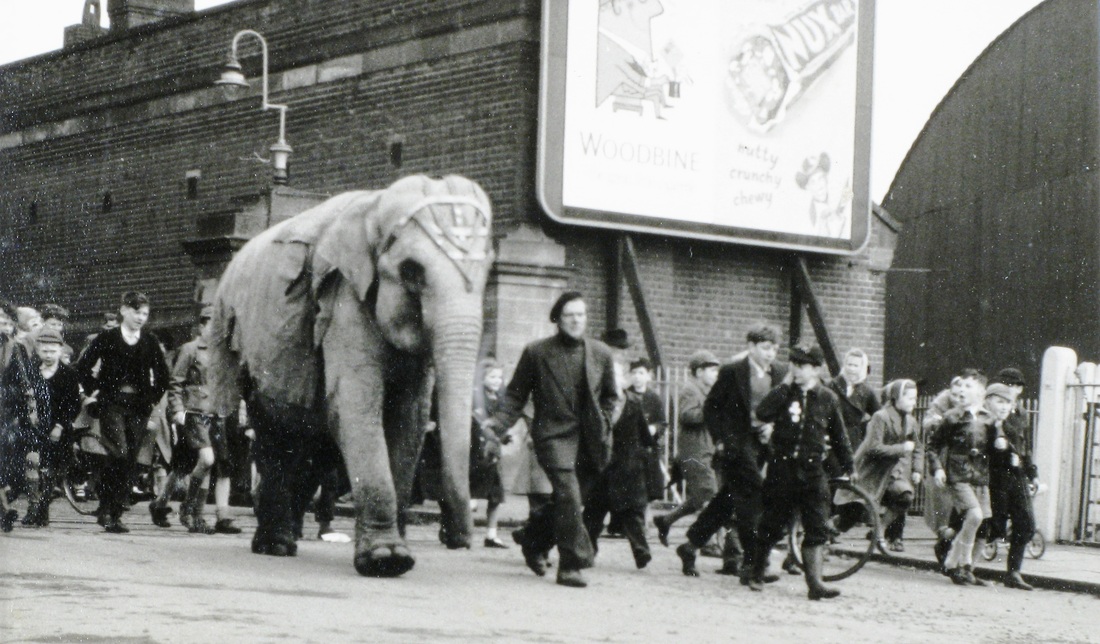
Elephants are rarely seen in Nuneaton and this might be the only occasion. It is led away from Trent Valley probably to appear as a star turn in a circus. Obviously in the 1950's. Does anyone record the date of the event? I wonder what this poor creature thinks of the gaggle of kids running after it. Probably the first time any of them had seen a live elephant. (Colin Yorke)
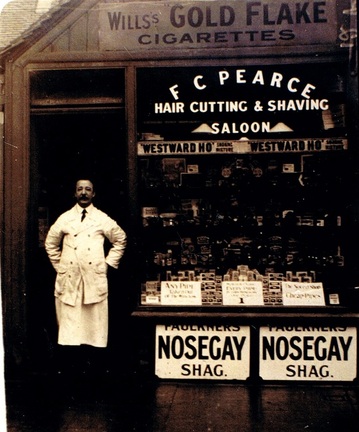
Frederick Charles Pearce (1871-1946) was a native of Newbury and lived in Gadsby Street, Attleborough. He had a small lean to barber's shop in Abbey Street, Nuneaton, next to the Liberal Club. Mr. Pearce took to smoking to hide the smell of the heads he was working on. his customers were very dirty he sent them to the slipper baths to clean themselves up. The hair clipped each day was bagged and given to the lime plasterers who used it to bond the plaster applied to the walls of the terraced houses which were at that time marching out into the countryside in Stockingford and Attleborough. An elderly chap in Nuneaton says that he tried Nosegay and found it rather rough, but I cannot tell not having tried it myself! (Dick Pearce)
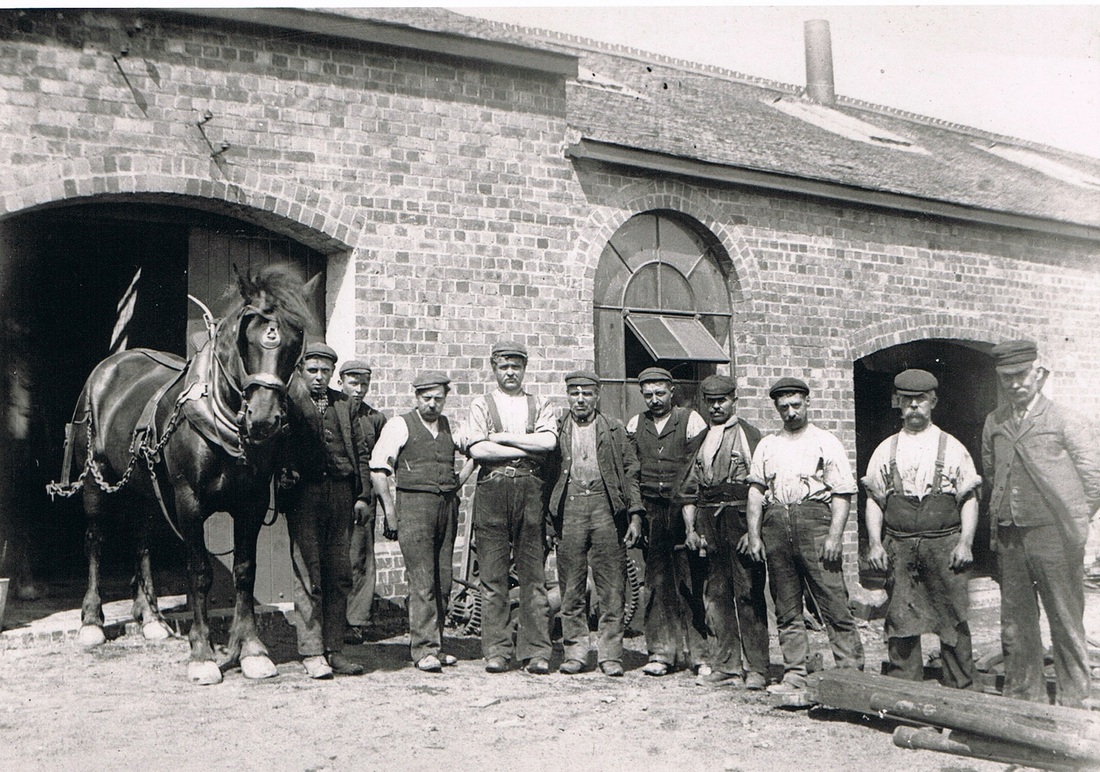
Nuneaton Colliery was owned by Stanley Brothers Ltd. of Stockingford. Around 1896 with only three years lease to run on the colliery on Nuneaton Common, 261 acres of new mineral rights were obtained at Whittleford and a new set of shafts sunk. The old colliery was said to have been very profitable and covered 151 and a half acres on Nuneaton Common. The leasehold of the new colliery was taken on very favourable terms and this photo shows miners engaged on sinking with a fine horse outside one of the new colliery workshops.
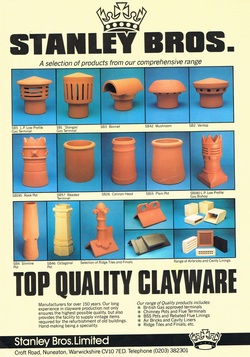
Two of the principal terracotta and brick manufacturers was based in the Borough of Nuneaton. Haunchwood Brick & Tile and Stanley Brothers Ltd. Their complete history and the men behind the businesses will soon appear on this web site. This was one of the last leaflets Stanley Brothers produced prior to closure of the Stockingford brickyard in the late 1980's. Look out for a new accession - Trevor Watson's Stanley Brothers Collection.
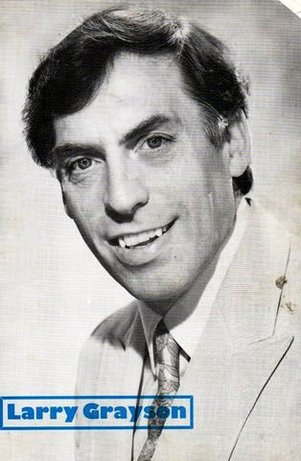
Click on the photo and re-visit Larry as he made millions of people happy on a Saturday night!................
Larry Grayson (31.8.1923-7.1.1995) Nuneaton's most famous son was born William Sully White and lived in his early years in a damp and draughty court in Abbey Street, Nuneaton. Perhaps that is where he got one of his famous catch phrases from "Look at the muck in 'ere" after all those old courts were grimy. It was discovered recently that one of Larry's imaginary characters - "Slack Alice" might be named after a woman who lived just a few doors from him in Abbey Street in his school days - Alice Slack ---- and Apricot Lil worked on the production line of Moorhouse's Jam factory in Seymour Road. (Photo: courtesy of Bob Pickering)
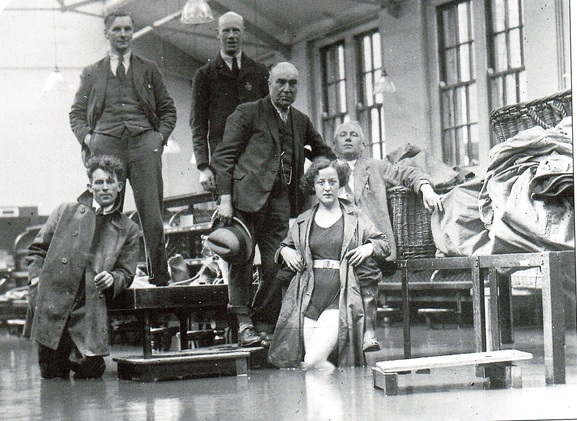
The great Nuneaton Flood of 1932. Nuneaton Post Office staff pose for the camera. Nuneaton was not named Ea-ton (water town) for nothing. Every 30 years there was a great flood and the one in 1932 was the worst. Water rose to 5'0" high in the Market Place within an hour leading to scenes throughout the town centre like this. But local people instead of wringing their hands and blaming it on global warming, got out their swimming costumes, wellington boots, rowing boats and made the most of the novelty. Nuneaton no longer floods as a relief water course was built round the town that saved the town from the nuisance. The great flood of 1932 produced some wonderful images of Nuneaton as the local photographers went round the district recording every aspect of this unusual scene. In the process capturing great images such as this one. Sue Bates has identified the man in the raincoat on the left hand side as the brother of her mother - Tom Trigg.
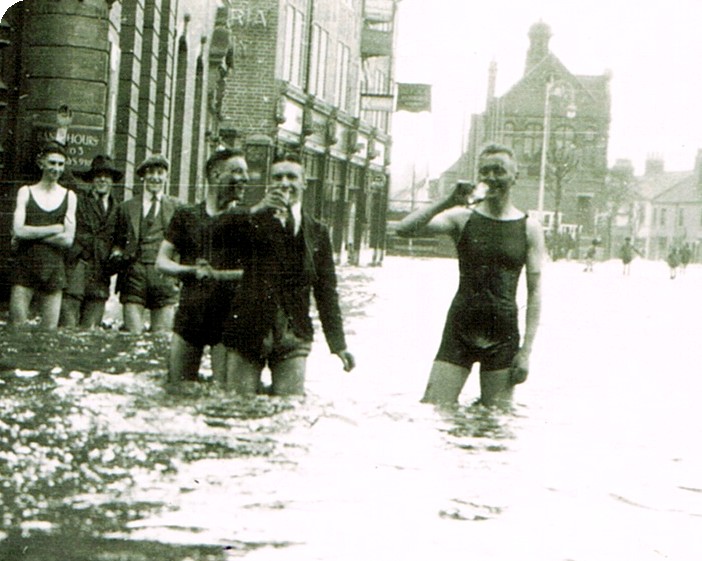
Don't do it mate! Don't drink that stuff! I wonder if they realise that the water they are offering up to their lips so nonchalantly is mixed with the effluent from a thousand privies! Yuk. The view we see here of these young chaps enjoying themselves in the great Nuneaton flood of 1932 is looking up Coventry Street with Barclays Bank on the left. The building sticking out into the roadway is the Carnegie free lending library with the new Council House just in the course of erection, albeit work has been temporarily suspended for the duration of the flood. The Carnegie library will be pulled down in 1933 when the council house has been completed and its contents transferred to the former council offices and fire station in Queens Road.
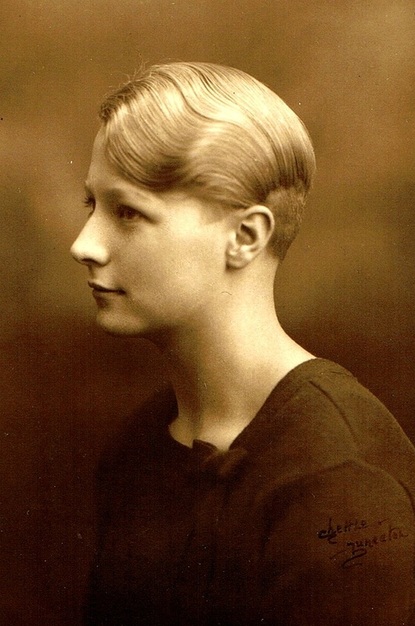
I adore this image of Mary Whittaker (1913-2009) of "Greenacres" Lutterworth Road, Nuneaton. Mary's beautiful blonde hairstyle is so lovely and what a photogenic local girl who I believe when she married went to live in Leamington Spa where she became a grandmother to nine, and had three great grandchildren. Her father was a wine and spirits merchant in Newdegate Street. She is believed to have been a cub mistress with the 1st Nuneaton Scout Group which met at the Crystal Palace public house in Gadsby Street, Attleborough in the 1930's. It is a great pity she was of marriageable age 20 years before I became a twinkle in my parent's eyes. Such is life! Her married name was Bowen. She is buried at St. Peter's Church, Dormer Place, Leamington Spa. Many thanks to Colin King Asst. Group Leader of the 1st Nuneaton Boys Scouts for this information and help in providing a detailed caption for the photograph. (photo courtesy of Anne Lawson original by Leonard Chettle, Photographer Queens Road Studios, Nuneaton)
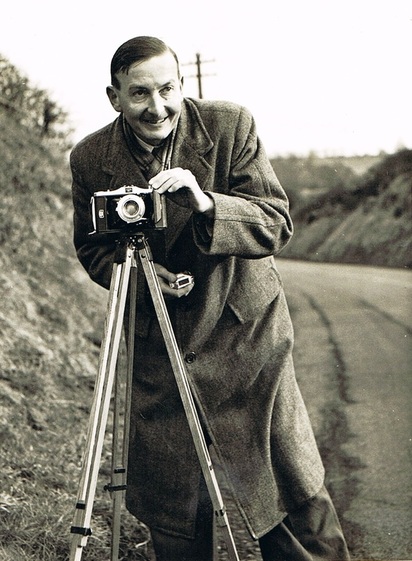
You will see a lot of the photos on this web site was taken by my friend - Geoff Edmands. This picture was taken by his cousin Reg. Bull, another well known local photographer. Reg and Geoff went on photographic missions together and often you see a photo taken by Geoff from one angle and Reg another of the same scene. Their work is invaluable in recording lost images of our locality from the 1930's onwards. Certainly by the 50's they were prolific. It is a huge debt of gratitude we owe Geoff, and I hope to produce most of his images on this web site in the coming months.
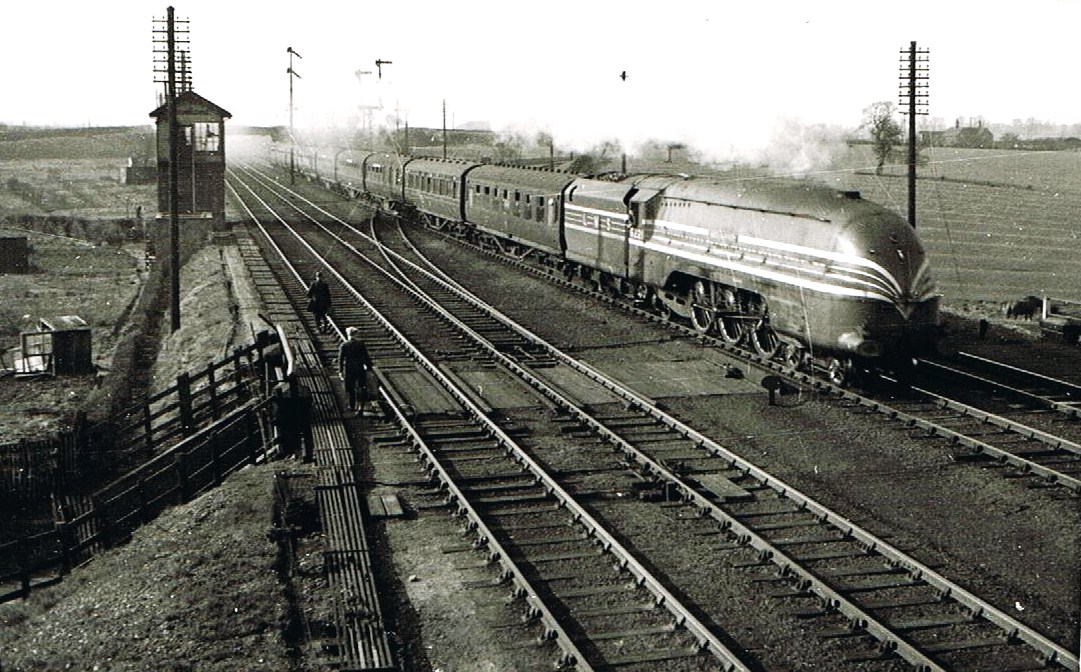
A "Coronation" class streamliner on an Up express on its way to London passes Ashby Junction, Nuneaton in the 1940's. Ashby Junction box on the left with the relief signalmen on the way to the box. The tracks leading off to Weddington Junction are seen curving off to the right. The Midland Junction to Weddington junction passed over the bridge in the distance and the two lines came together and headed for Shackerstone Junction with its connections to Loughborough Derby Road, Ashby de la Zouch and Burton on Trent. Note the signalman have no high visibility clothing in the "Good Old Days".
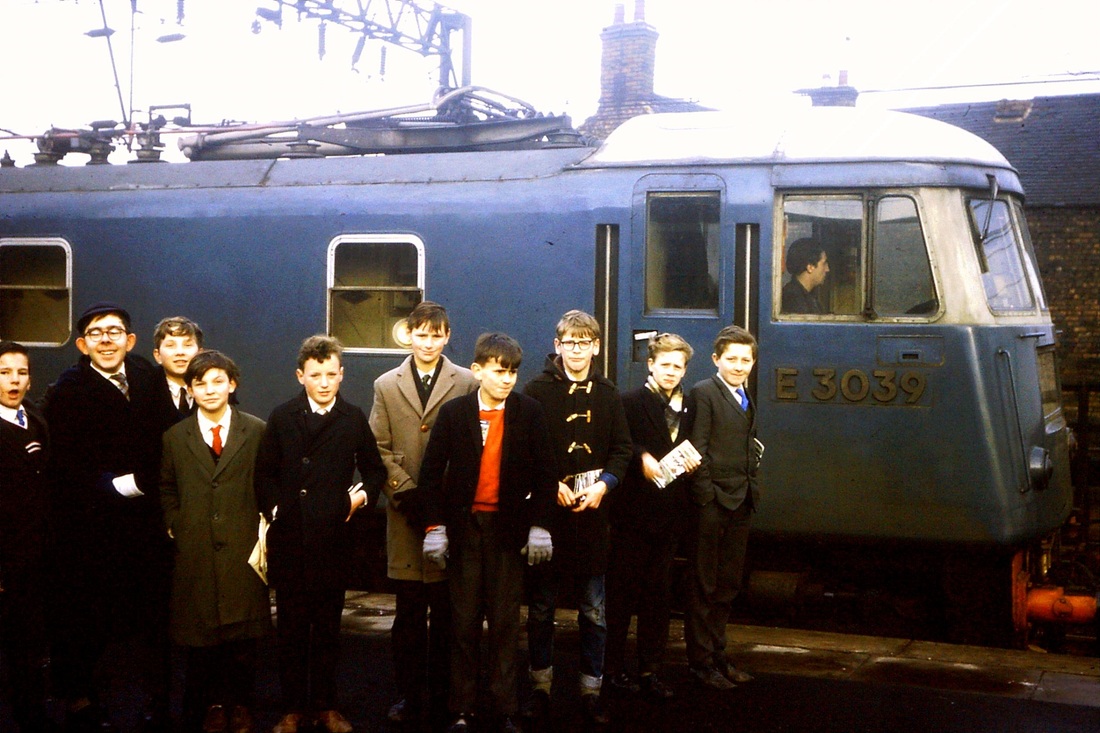
Then the electrics came in and youthful trainspotters made the transition. Does anyone recognise their youthful selves. Note how most of them are wearing ties and sensible clothes. Can you imagine that today? Nuneaton station c. 1966. (The lad on the extreme right looks like a young David Cameron, but it can't be of course, not train-spotting on Nuneaton station!)
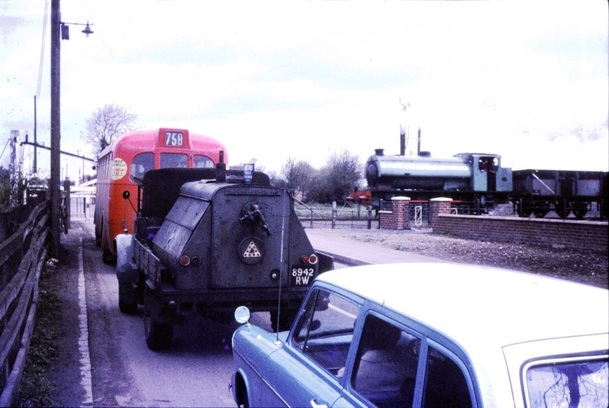
At one time you were regularly held up at a level crossing for a train to pass conveying coal from Newdigate Colliery down to the exchange sidings on the Coventry-Nuneaton line and the empties back. In this picture Newdigate Colliery loco nr. 1. A Hunslet Engine Co. 0-6-0ST Nr. 3841 of 1956 trundles along stopping the traffic. It came new to Newdigate but only lasted here twelve years until it was sold to John Cashmore & Co of Great Bridge on 24th October 1968. Presumably for scrap. Note that it is the NCB livery of light blue, which looked very faded after a while. The Midland Red bus looks to be an S6 which is on the 758 route the short Bedworth to Keresley service. I would put this photo in the early 60's.
(Peter Bayly)
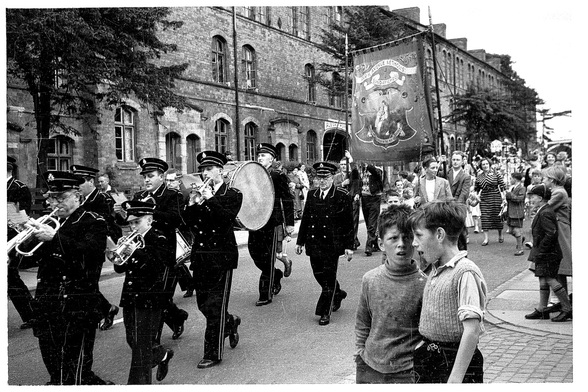
This is a great image. Kids engaged in earnest conversation despite the noisy brass band marching down Attleborough Road towards Nuneaton town, in the 1950's. With the iconic weaving top shop Albion Buildings in the background. The occasion is a carnival day in June. In the Albion Buildings was a former silk weaving company who employed as their foreman one Joseph Warner (1855-1925). Mr. Warner emigrated to Paterson New Jersey USA in the year 1889. He formed a company called the Warner Manufacturing Co which was later incorporated as the Warner Woven Label Co. Inc, the largest silk manufactory in America which had its roots in this scruffy set of top shops in old Attleborough: (Colin Yorke)
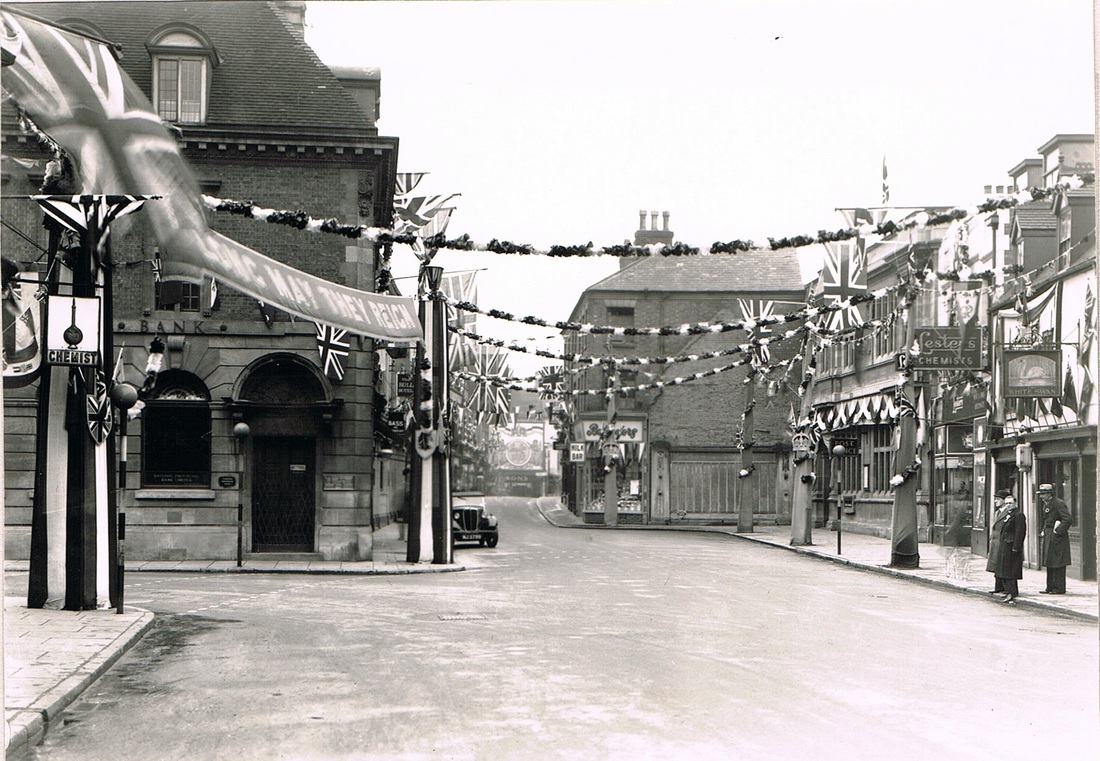
Nuneaton Market Place dressed for the Coronation in 1937. Flags, banners and buntings everywhere. Bridge Street straight ahead. The Nuneaton War Memorial on the wall to the right of Bridge Street. Nuneaton Post Office adjacent to it coming towards the photographer and the White Swan pub, kept for many years by Harriet Platt.
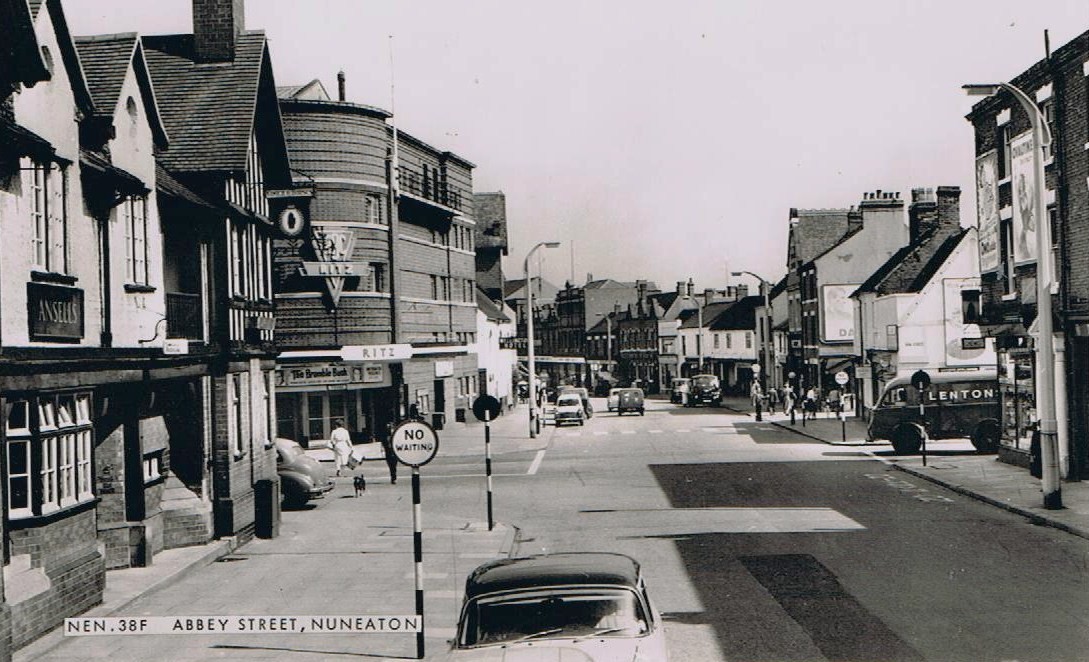
This is Abbey Street, Nuneaton in the late 1950's. Abbey Street was the town's most populous street in the 19th century with two third's of the local population crammed into its courts and tenements. Familiar buildings still linger on the left but many on the right are long gone. Ranby's the chemist far right on the corner of High Street with Peter Lenton's lorry beyond. Lenton's were wholesale fruit and vegetable merchants and their storage warehouse was just in High Street off the picture to the right. They also had retail premises further down on the right in one of the white fronted buildings towards the centre of town. In the whitewashed block just behind Lenton's lorry was one of Nuneaton's famous institutions - Pickens Batch Bar - who dispensed the most delicious sausage batches (bread rolls to non-Nuneatonians not familiar with the vernacular) dipped in gravy. A mecca for kids straight out of the Ritz from the Saturday matinee. The entire block from the corner of High Street to the gable fronted pub in the centre of the picture on the right was pulled down in the 60's.
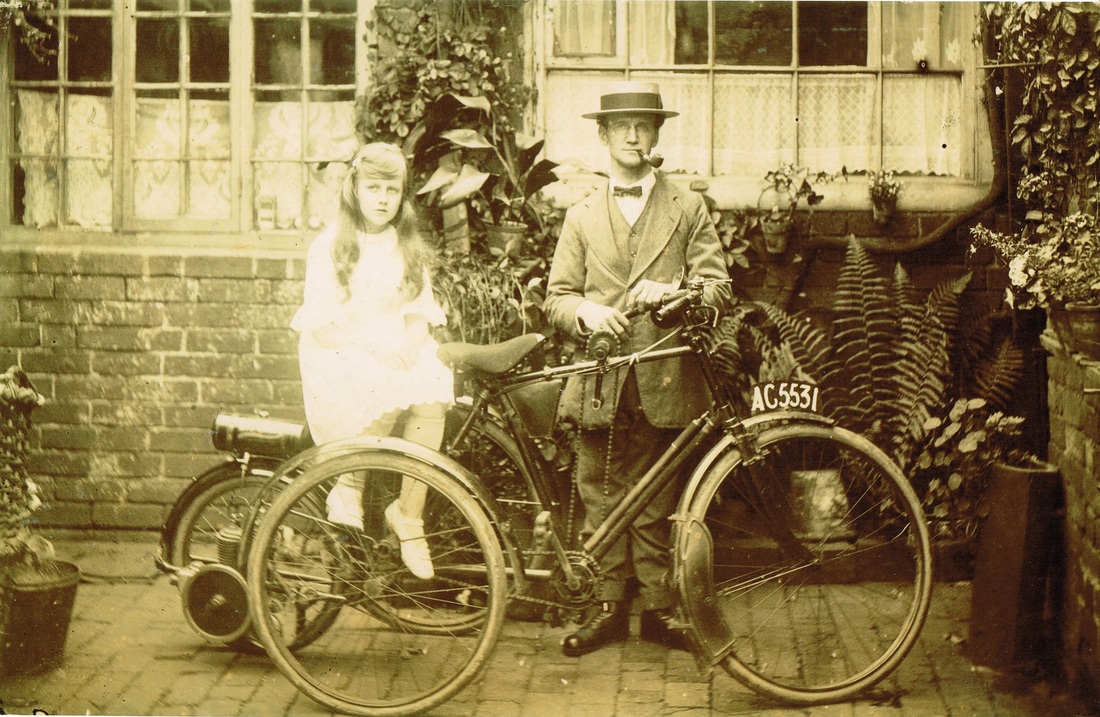
Mr. Alfred Day and his daughter in their backyard in Bond Gate, Nuneaton about 1912. Alfred was a tobacconist and hairdresser. The strange looking contraption is a tricycle fitted with a Wall Autowheel of 118cc manufactured from the turn of the century until 1922. Designed to take the muscle power out of cycling but whether it would have the power to get you up Tuttle Hill is another question. Similar Autowheels are still made by the Sachs company of Germany to this day.
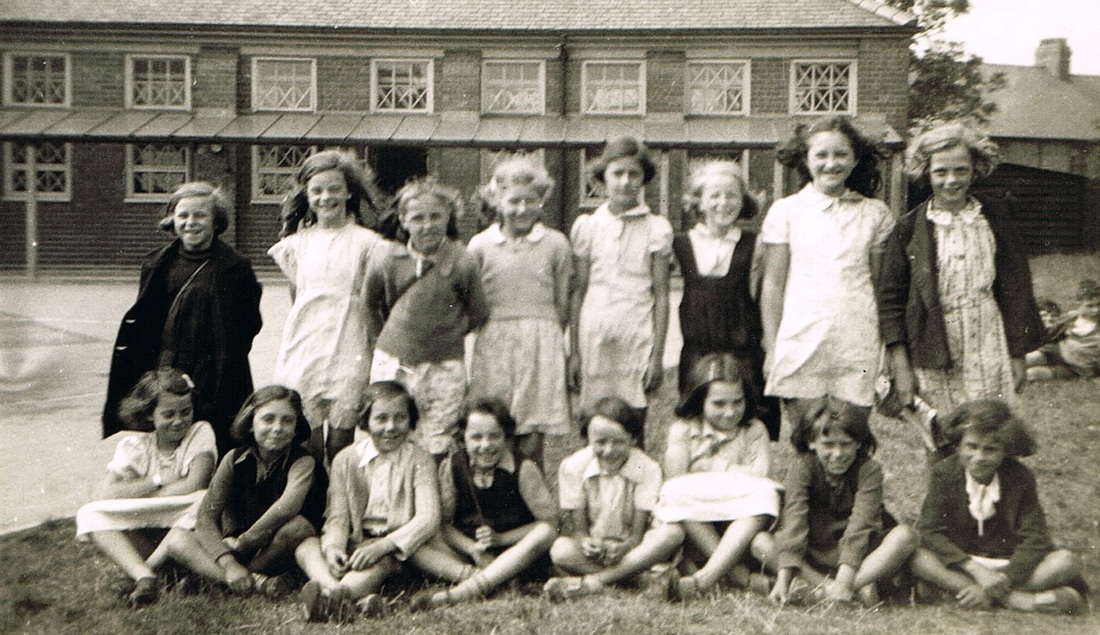
Gun Hill Mixed Infants, Arley. 27th June 1940. There's a war on but these kids seem cheerful and the full horrors of war are a world away. It will come home to them though in the following November when the skys of Arley will be lit up by the devastating air raids when the Luftwaffe targeted the city close to their quiet village - Coventry. Note that their class room windows have been taped as a precaution against blast damage throwing shards of glass from the windows.
The children are: standing left to right - Jenny Stevens, Rita Richards, Grace Greenfield, Nancy Plant, Rosemary Smith, Beatrice Matthews, Vivien Jones, and May Coop. Sitting left to right - Edith Morton, Eileen Gill, Doris Gripton, Gladys Rees, Betty Gaskell, Doreen LLoyd, Mary Charnell, and Gladys Summerton. I wonder what happened to these lovely kids. Are any still in the district? (Geoff Edmands).
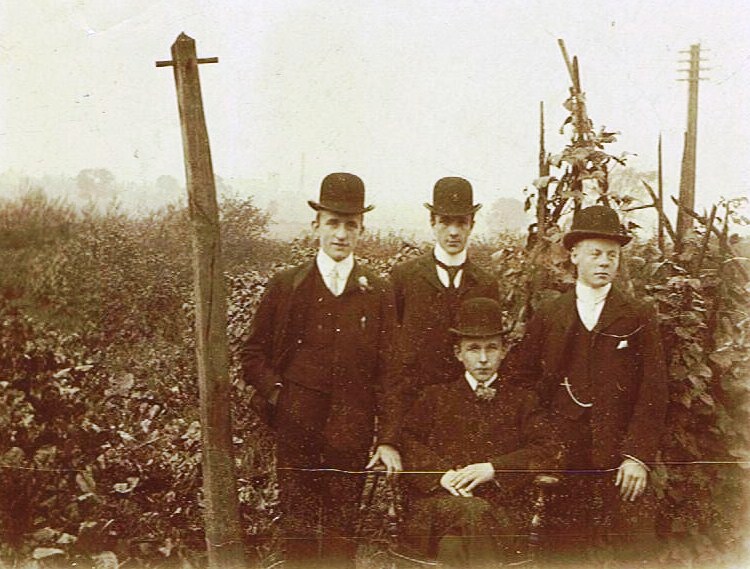
The smart young men of the district, probably photographed at Caldecote. On the left is Tom Burgoyne senior whose son, young Tom aged 99 in 2013, is still living in Nuneaton. On the right is Charles Pipe who I believe emigrated to Australia whose family kept the Railway Tavern in Bond Street. (Tom Burgoyne jnr.)
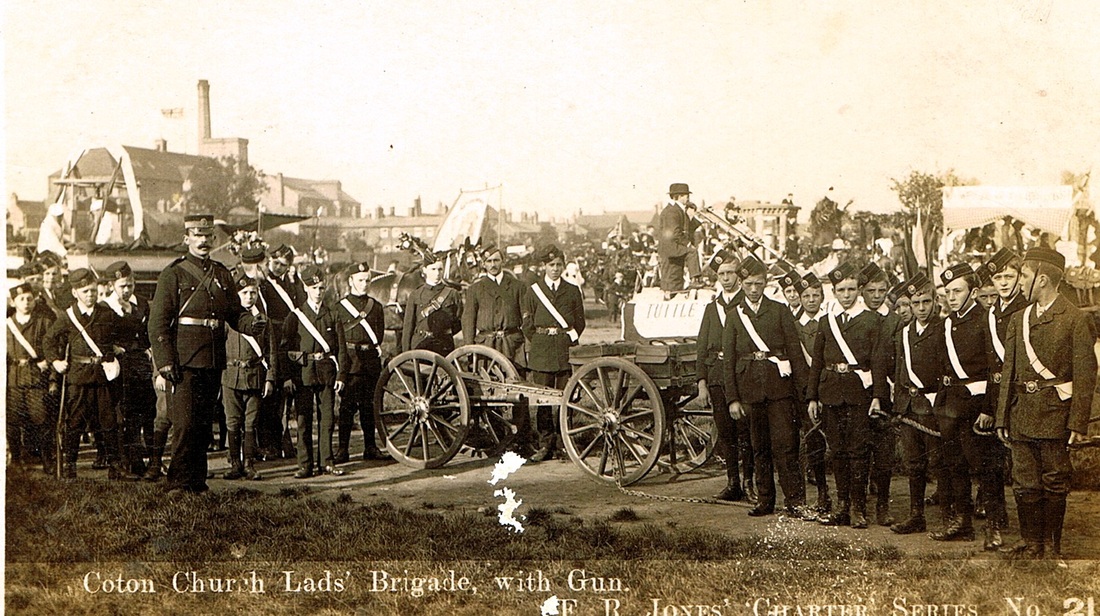
Chilvers Coton church lads gather on Nuneaton Recreation ground ready to parade in the 1907 Charter Celebrations. They have a small artillery gun. The object that looks like a gun on the float behind them is in fact a rock drilling machine on messrs. Judkins float. The big factory with the chimney is Hall & Phillips hat factory fronting Abbey Street, and the row of houses to the right, cottages in Meadow Street. The buildings in the far distance are the backs of properties in Abbey Street. (Carol Hughes)
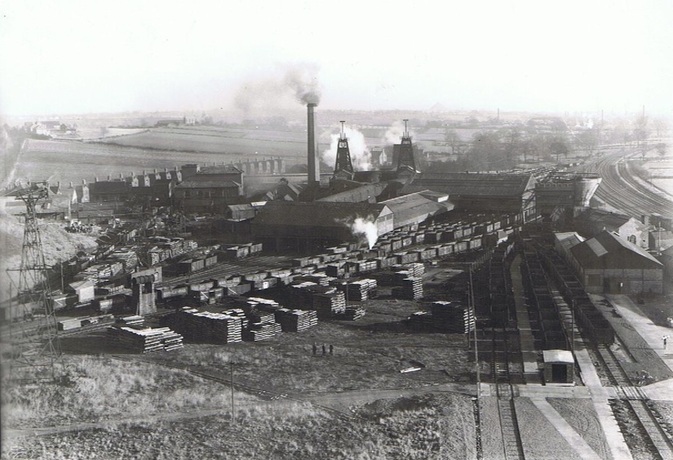
Haunchwood Colliery 1946. This pit was owned by Sir Alfred Hickman and sinking commenced in 1891. Collieries like this employing over a thousand men fuelled the vast growth in the population in the local area leading to the expansion of the district in the 1900-1950. All these jobs have gone never to be replaced. Almost half the working population of the Borough of Nuneaton & Bedworth have to commute out of town to find work. This photo was commissioned by the Hickman family from Eric Dudley studios to record their assets just prior to nationalisation of the coal industry.
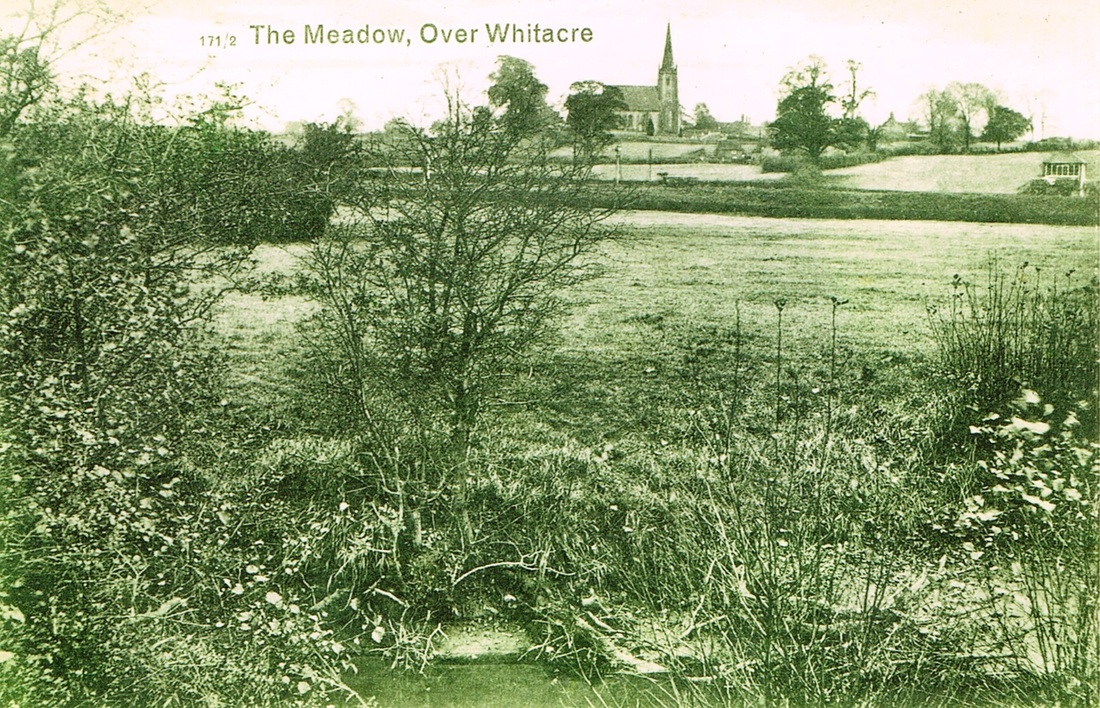
The Meadow at Over Whitacre. The church is in the background on the brow of the hill. Running from the left of the picture to the right is the Nuneaton-Whitacre Junction branch railway and on the extreme right a standard Midland Railway pattern signal box.
(The Wright Family Rural North Warwickshire Collection)
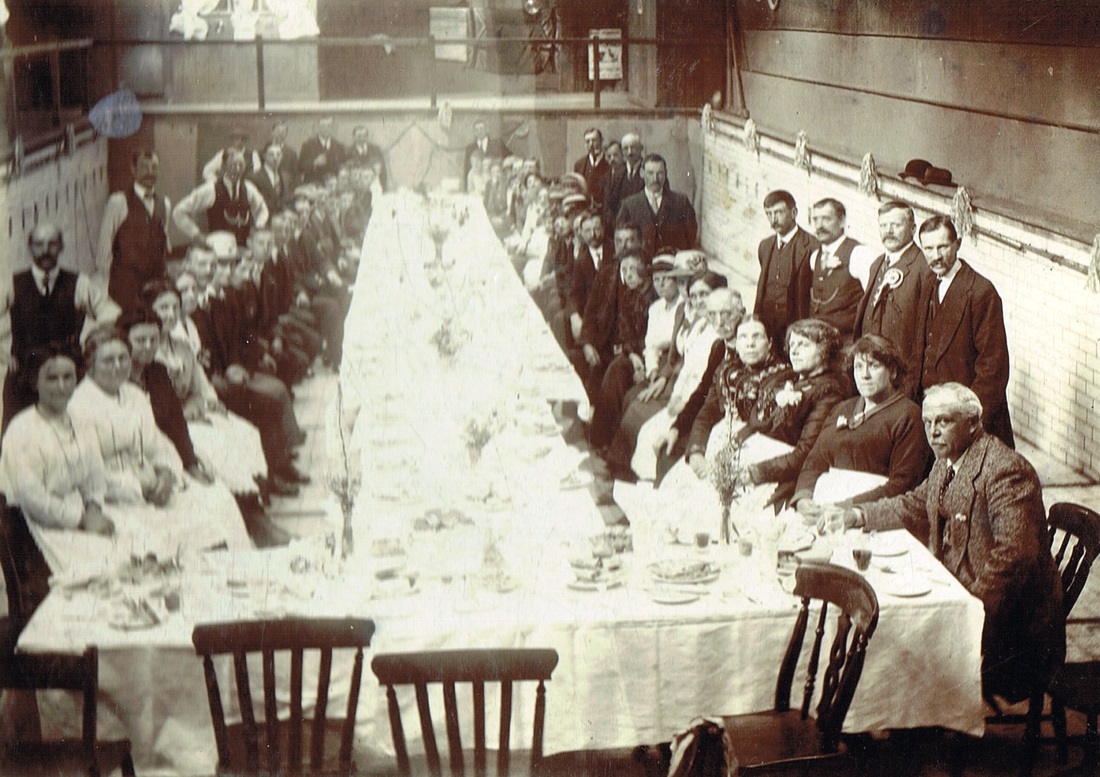
Can you imagine emptying a swimming pool and having a community luncheon in it? This is what is happening here. The baths concerned are the old ones which once stood in Abbey Street, Nuneaton where the (Hatter's Space) Friary Centre is currently. When this swimming pool closed down they cleaned out a former sewage works settling tank and used that instead as a swimming pool. (Jean Lapworth Collection)
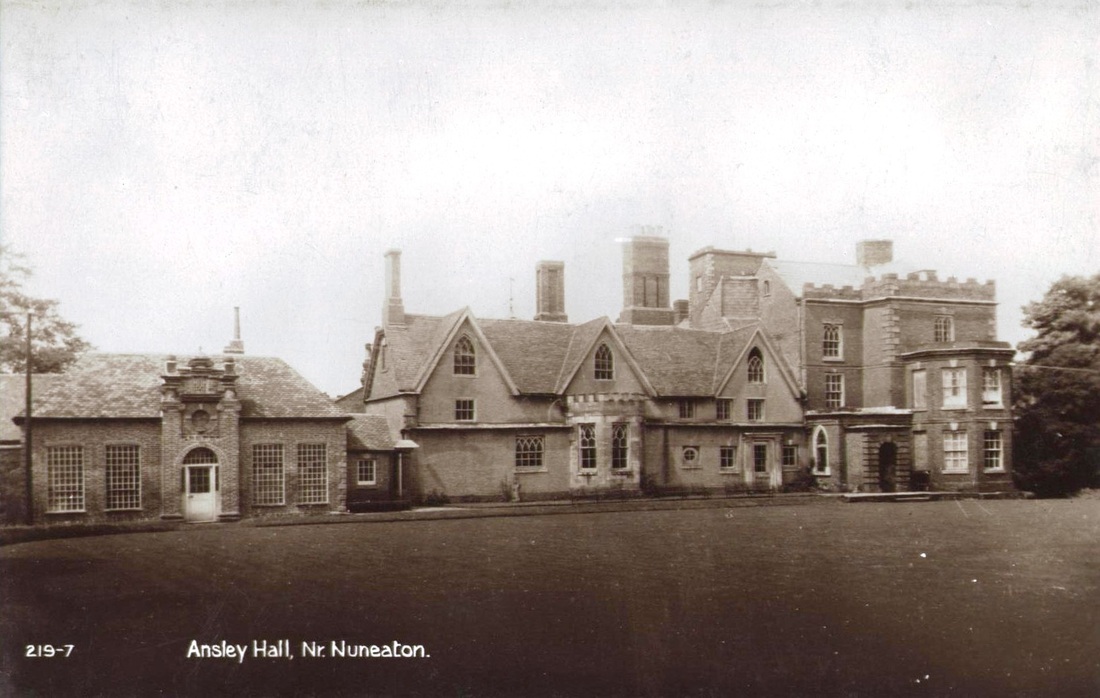
Ansley Hall was a small estate purchased by the Stratford family around the middle of the 17th century, and the smaller Bretts Hall estate was merged into it. In the 18th century it was owned by the Ludford family, and by the late 19th century it was used as the home of the Phillips family who owned Ansley Hall Colliery. The Colliery also used the hall as their offices. During the 20th century the buildings we see here fell into disrepair and after Ansley Hall colliery closed it became derelict and was largely demolished. However, completely against the odds it has been rebuilt.
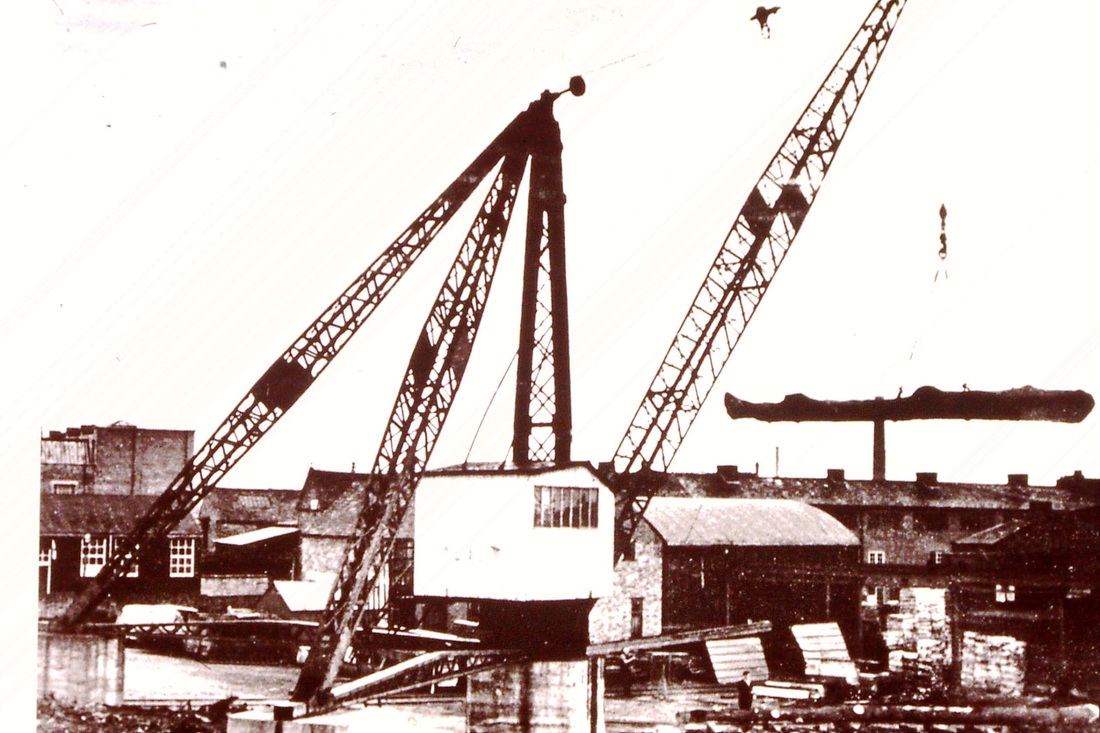
When you approached Nuneaton in any direction two features dominated the skyline. Courtaulds clock tower and this crane. It was situated next to Nuneaton Railway Station in the Nuneaton Timber Yard, in Regent Street. Like Courtaulds it was removed from the landscape. The timber company went out of business and this area is a small retail shopping area car park next to the Leicester Road bridge. On the extreme left hand side can be seen the white painted windows of the old Employment Exchange that moved to Powell House in 1962.
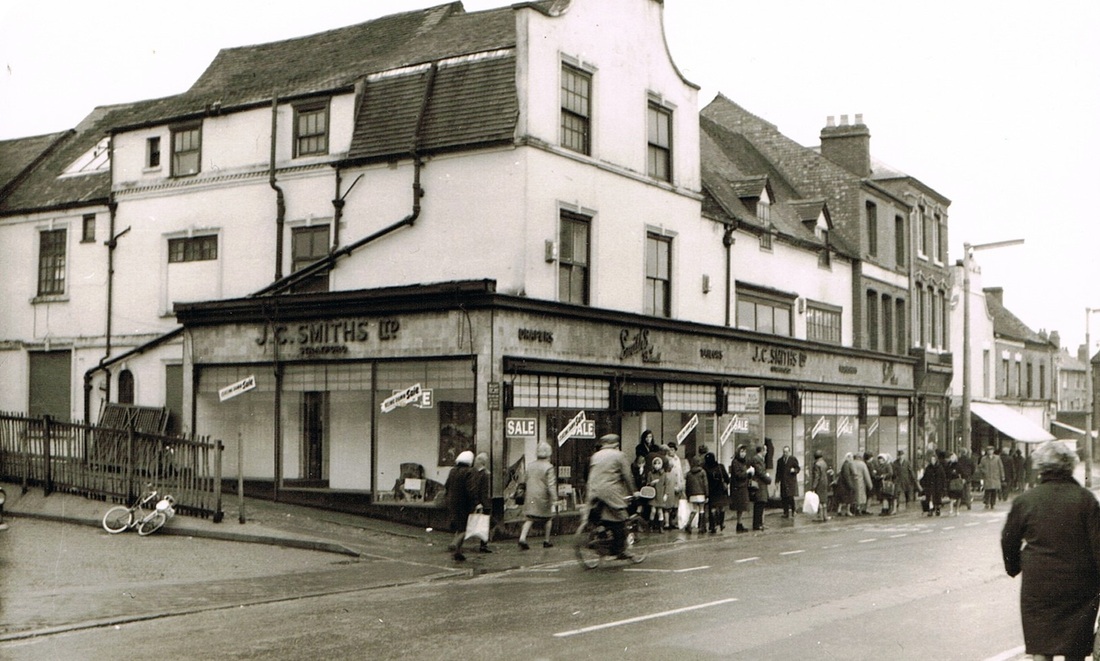
Do you remember J.C.Smith's shop in Bedworth? Old timers tell me what a higgledy piggledy collection of buildings had been gathered into one store. Different departments on different levels enhanced the shopping experience. John Charles Smith started his business in Stratford on Avon and opened this store in Bedworth in 1906. He then moved into Nuneaton in 1914. The Bedworth shop we see here was closed in March 1970. The Nuneaton J.C.Smiths was acquired by Debenhams in 1972. The whole site in this photo was demolished and replaced by new buildings. (Geoff Edmands)
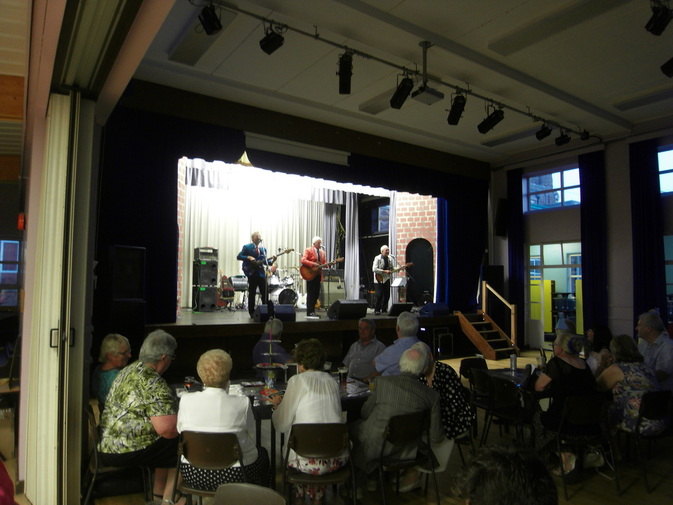
One of Nuneaton's all time favourite bands, Pinkertons Colours reprised memories of the Co-Op Hall at the celebratory event organised by the Co-Op Hall Project team and Art Alert. They were sensational. Their repertoire was a great selection of pop classics ranging from Rock & Roll to British Pop hits of the 60's & 70's. and their signature piece "Mirror Mirror". It was as good as it gets! The venue was at capacity of 140 guests who collaborated with the Co-Op Project. (Peter Lee)
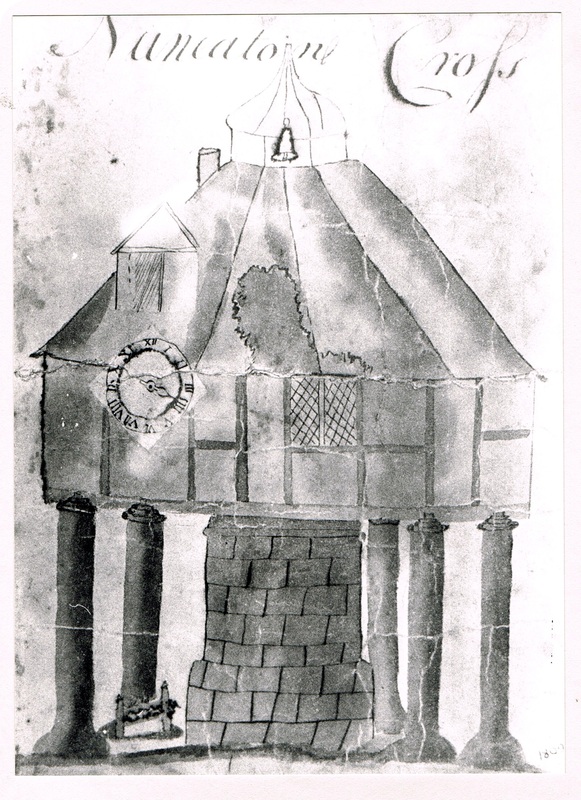
Nuneaton Market Cross stood in the Market Place opposite Coventry Street, and was taken down in 1810. It was in quite ruinous condition and demolition was carried out to prevent it falling on the crowded market goers. The bell on the top is the ancient Pancake Bell which was rung on high days and holidays but by this time was cracked. The bell was cast in Leicester. The upper "room" was originally an "office" for the priest overseeing the market, where the revenues collected from stall holders and traders, farmers and other collectable revenues were stored until such time as the cash could be bagged and moved to the Habit of the Abbey where Stratford Street now stands. Note the stocks where miscreants could be tethered and abused and humiliated by our rude ancestors if they had infringed some minor act of criminality. The Pancake Bell called people to the market place if there was a proclamation to be read by the town crier. The birth or death of a king, or a war breaking out, that sort of thing.
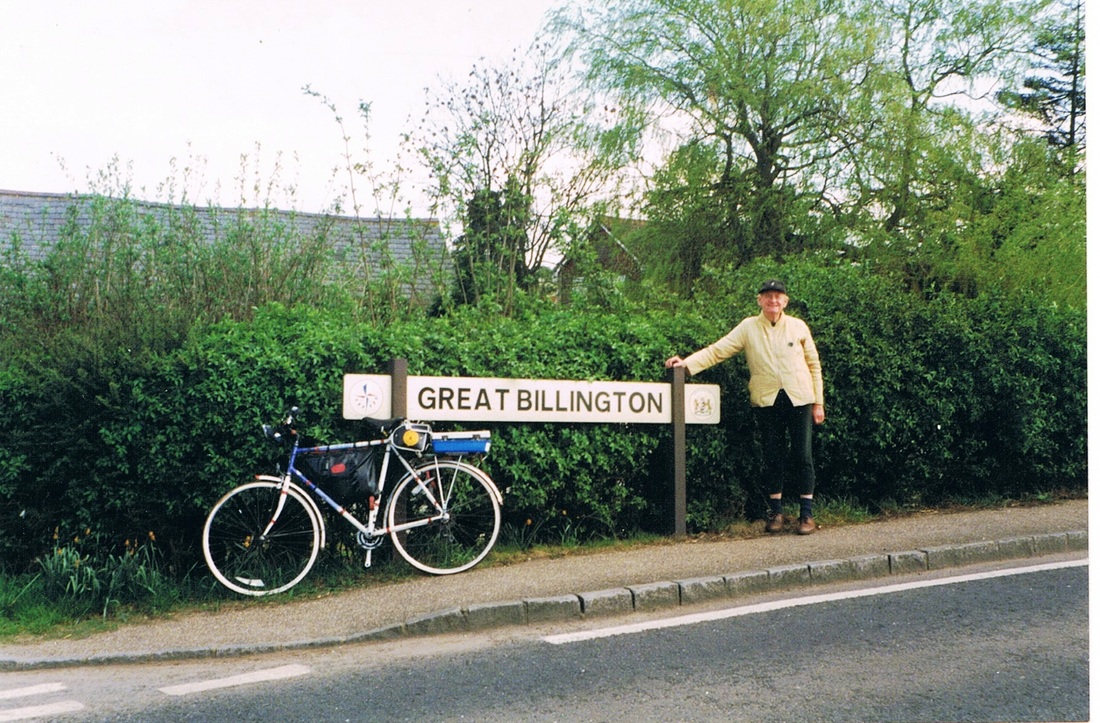
Undoubtedly one of the most influential people in your current web site editor's life was this fellow - the late and much missed Nuneatonian - Maurice Billington. His cycling adventures were legendary, His knowledge of railways encyclopaedic. He knew so many people locally. A kindly uncle to all. A true English gentleman, a real character, a devoted friend, and his passing was felt by so many in the area.
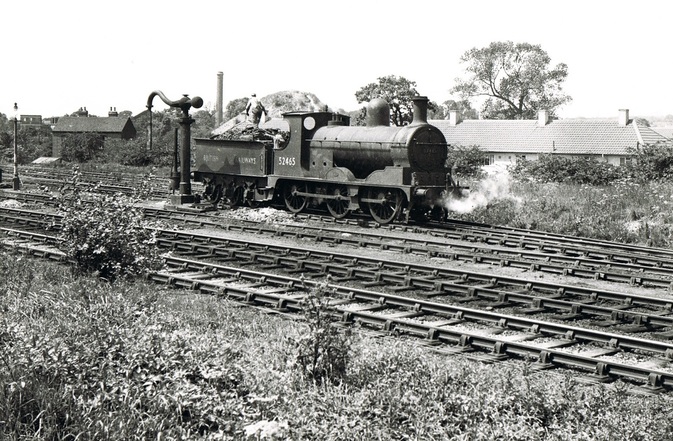
Stockingford goods yard was an important centre for marshalling coal traffic from the various collieries in the area. There was a steep branch line of the Midland Railway up to Ansley Hall Colliery (known officially as the Stockingford Branch) which at one time served three collieries in total as well as four brickyards and a concrete works. Traffic was also dealt with from Haunchwood Brick & Tile Co. Ltd and Haunchwood Colliery on the Leicester-Birmingham line. 52465 was an ex-Lancashire & Yorkshire 0-6-0 drafted into Nuneaton specifically for working up the branch to Ansley Hall Colliery after nationalisation, and for trip freight working in the local area. Locos over the branch had to be restricted to 0-6-0's (and latterly Ivatt Moguls) due to the axle load weight restrictions on the weak bridges on the branch. The L&Y engines were very powerful engines for this service having more power than the former Midland Railway equivalents. (52465 was withdrawn from Nuneaton shed in April 1955). Trains were restricted to 20 coal empties up the branch and 14 full ones down. (with seven sets of wagon brakes applied for the descent). The L&Y engines had a shortage of braking power and needed special attention as they descended the branch with 14 full wagons in case they came down too fast and did not have very good vacuum brake power to slow the train down as it approached the goods yard. For some crews descending the branch with a "Lanky" was a hair raising experience for fear of ending up in a big heap against the stop blocks in Stockingford yard. The descent had to be carefully judged and the speed kept down to a minimum, with wagon brakes applied and the guards van brake wound on, to avoid the following coal wagons accelerating the train. A short gradient at the bottom of the branch helped to slow the whole proceedings down just in time for the entrance to the sidings or out onto the main line. In the background of the photo, which was taken about 1953, there is a chimney which was on the site of Stanley Brothers Nr. 7 brickyard whilst just to the right the former pit tip of Nuneaton (New) Colliery which operated between 1900-1922. Whilst the Nuneaton colliery was being sunk the first shaft filled up with water and this was abandoned. A water pumping station was erected on the site. This can be seen on the extreme left of the photo. The water pumped from the coal shaft was used as drinking water for the town of Nuneaton and I expect a degree of filtration was used to clean it up before it ended up in the taps in the town. 52465 is standing next to the water column in the goods yard which was fed by a large tank next to Stockingford locomotive shed which stood to the right and to the rear of the photographer in this view. When Stockingford shed closed in the 1930's the building was retained principally to maintain this water supply, although the LMS attempted to lease the three road shed for other purposes. The shed yard was used for many years to store crippled wagons awaiting attention. Wagon repairers had depots here and were kept busy with hot axle boxes and loose metal fittings on the old wooden wagons prevalent on the railways before nationalisation. Elsewhere in this web site is an article about the old footplatemen at Nuneaton and Stockingford locomotive sheds, using information obtained from old railwaymen and union records. (Maurice Billington)
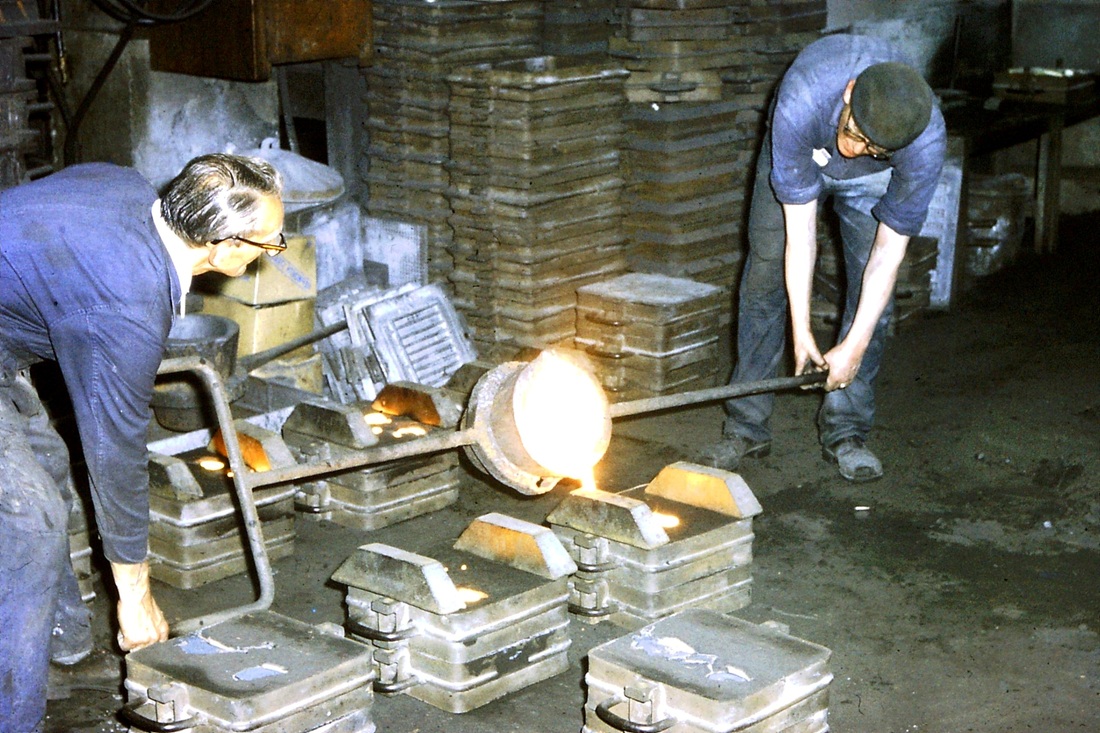
Sterling Metals was one of Nuneaton's biggest employers manufacturing high quality aluminium and iron castings for the automotive, aircraft, marine and a wide variety of engineering applications. It once employed over 3000 men. All these jobs have gone, but we remember the great skills and qualities of this business. (Courtesy Joy Perry)
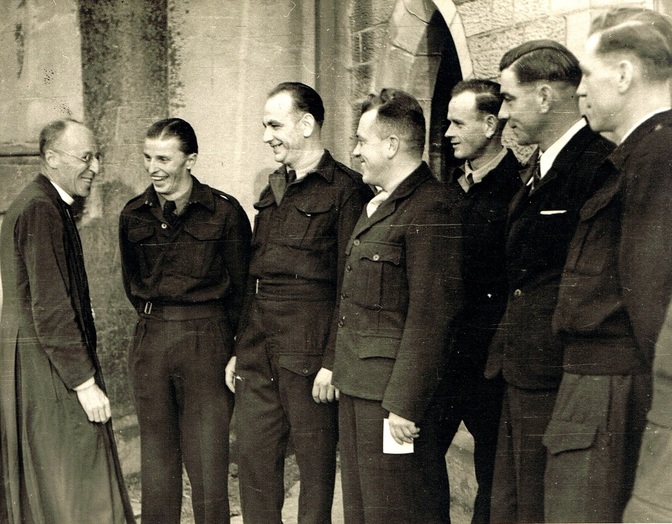
One night in May 1941 the town of Nuneaton and the parish of Chilvers Coton were devastated by a German air raid. After 1944 an army camp on the Arbury Estate was used to house Wehrmacht soldiers captured after D.Day. Some of these were skilled craftsmen and after the war before the arrangements could be completed for their repatriation back to Germany a few volunteered to help with the reconstruction of Chilvers Coton church after it was devastated by bombs that fateful night in May 1941. They did a remarkable job. Here they are being greeted by the Bishop of Coventry who invited them to the re-consecration of the church in 1947. Many German PoW's became friends of local families who took them in and gave them meals and a taste of local family life. (Edmands Family Collection)
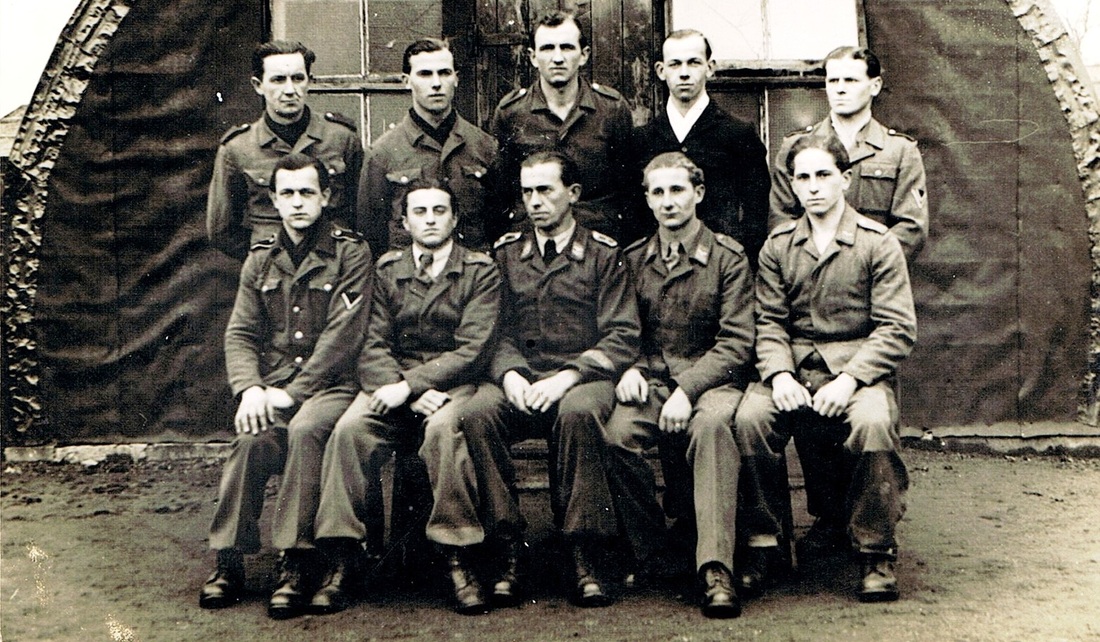
German PoW's at Merevale camp 1945. They look a pugnacious lot. Before D Day the Merevale camp housed the Bedfordshire & Hertfordshire Regiment followed by the US Army, who then went over to France after D Day. The camp was then used to house both Italian and German POW's. It is remarkable to record that latterly the camp occupants were guarded by Poles who had been conscripted into the German Army.
(The Wright Family Rural North Warwickshire Archive).
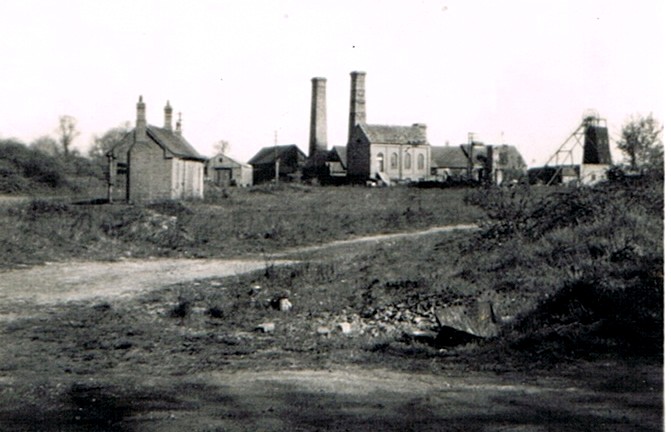
The remains of Exhall Colliery, Bedworth c. 1955. The Exhall mine dates back to the 18th century. There were 8 shafts grouped into the colliery by 1774, and it had a chequered existence due to geological problems throughout its long life. The voracious appetite for coal from the expanding city of Coventry three or four miles away meant that these problems were overcome and the colliery kept going for nigh on 200 years. The major event in the colliery's life was a serious disaster on September 21st, 1915 when 14 men were killed overcome by carbon monoxide due to a fire when 269 men were underground. In the last full year of production Exhall wound 38,952 tons of coal in 1948, but another fire led to full abandonment by February 1949. Afterwards all but one of the shafts were filled in. The remaining shaft was kept open to facilitate pumping from nearby Newdigate Collieries workings until 1974. When Maurice Billington took this photo the pit had shut down and the screens and railway sidings which once stood in the foreground had been cleared away. A few of the buildings were converted to small works for private companies but as far as I know the only remaining building is the one under the pit head on the right which is now encompassed within an industrial unit on the Bayton Road Industrial Estate. Probably the people who work there today may not know it but there is a shaft under their concrete floor. It is perhaps ironic that the most used set of sidings on the Nuneaton-Coventry line today - The Murco petroleum sidings - was formerly part of the old Exhall Colliery exchange sidings. (Maurice Billington)
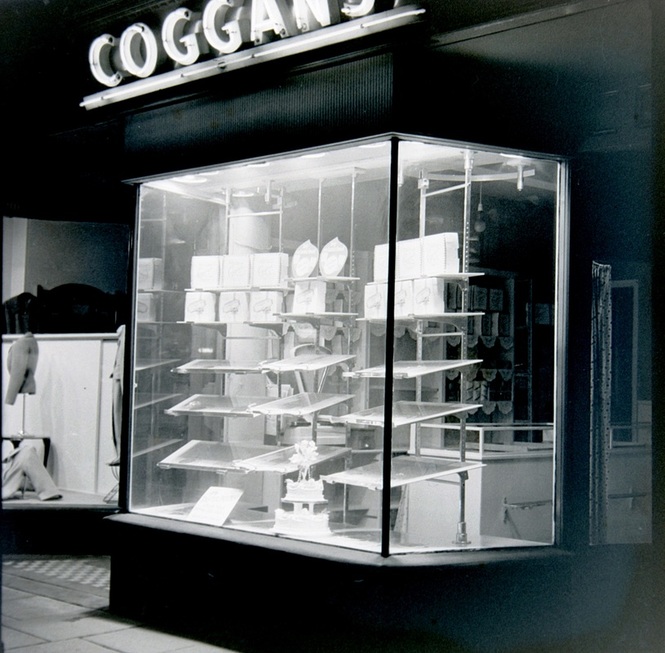
Remember Coggans bakery and pastry shop in Queens Road? It was a welcome sight to many Nuneatonian's shopping for toothsome fresh bread and cakes on a Saturday. John Henry Coggan's (1890-1960) first shop was in Haunchwood Road, Stockingford. Their cottage loaves were the finest in town. (Photo: W.H.Hope courtesy: Colin A. Yorke)
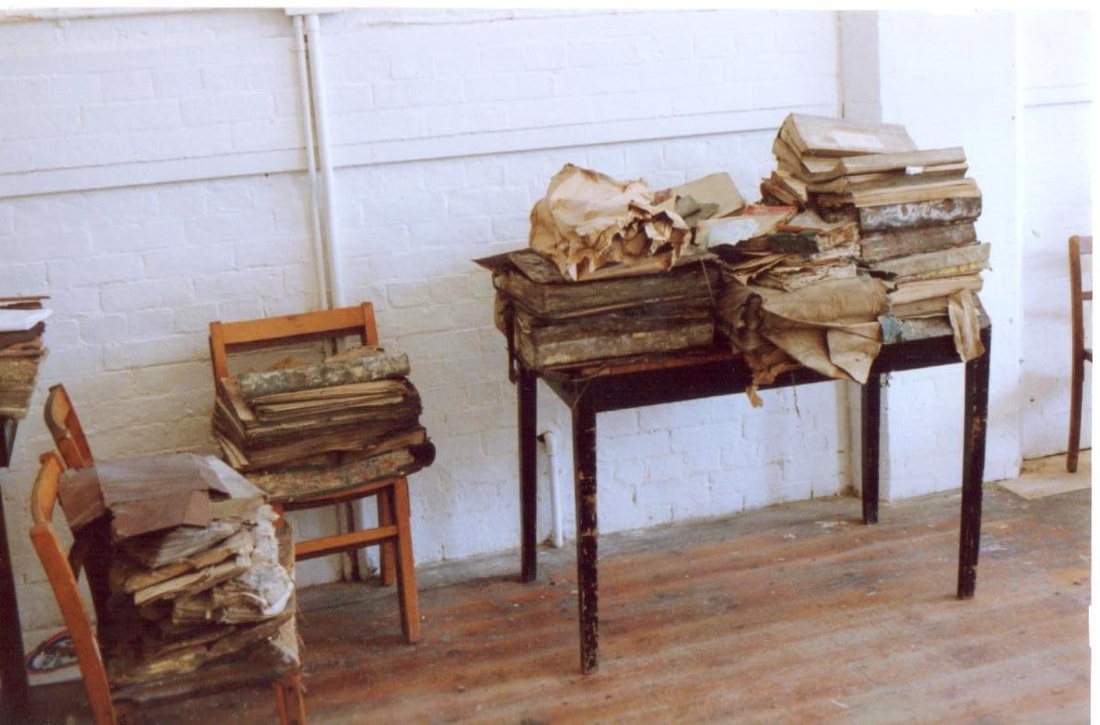
Four members of the Nuneaton Society committee - Beryl Kerby, Alan Cook, Peter Bayly and Peter Lee rescued thousands of company records from the vaults of Stanley Brothers brickyard office just prior to demolition. After initial preliminary conservation which consisted of drying out smelly mouldering documents they were donated to the Warwickshire County Records Office. An index to this collection can now be found on A2A archives through a link on this site. (Alan Cook)
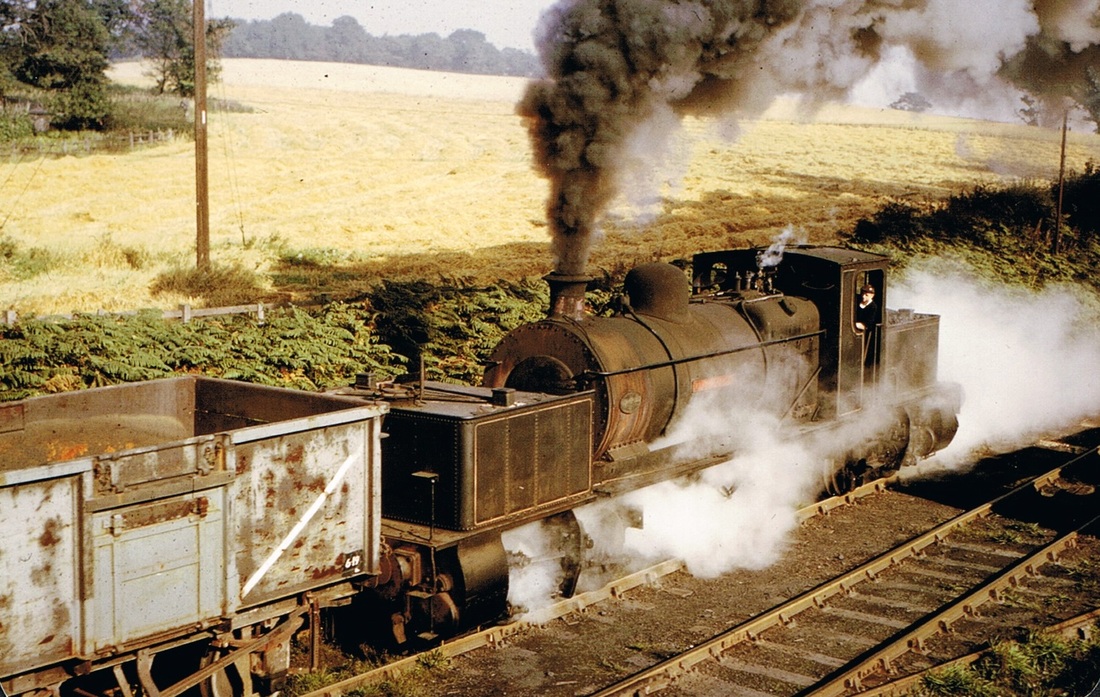
Amongst the many interesting industrial railway systems in North Warwickshire was the one that served Baddesley Colliery. Baddesley had an impressive range of steam locos. One of whom was this Beyer Garratt which was purchased to tackle the heavy grades from the interchange sidings on the Trent Valley Railway up to the colliery. You can see it see it here pushing coal empties. This engine was the third named "William Francis" and was built by Beyer Peacock (Works Nr. 6841) in 1937. It has been preserved today and is now at Bressingham Gardens in Norfolk. (Geoff Edmands)
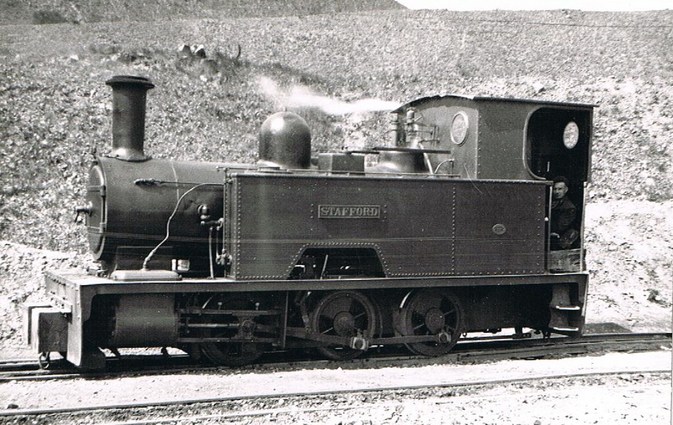
Did you know that North Warwickshire was covered in little railways? Find out more about them in this site. This is one of the narrow gauge steam locos. at Jees Quarries. It was tragic how this engine did not make it into preservation. A group of railway enthusiasts visiting Jees in 1954 found the engine in the shed, cold and lifeless, and enquired whether they could save it and send it to the Talyllyn Railway in North Wales which was at that time a pioneer of railway preservation. The "gaffer" on site said if you come back next week I'll find out if you can have it. They duly returned and found the engine cut into pieces. Abelsons the scrap merchants had already bought it for scrap. Stafford was a choice engine with its pleasing lines. It was originally built for the War Department in 1917 by Wm. Bagnall of Stafford (works order nr. 1911) and used by the WD until offered for sale at the Admiralty Depot at Ridham Salvage Depot when William Bagnall's sold it second hand to Jees on 31st May 1922. It then spent 30 more years on spoilt trains at Jees mostly on removal of top soil which was transported from the quarry workings to Jees tip on the opposite side of Mancetter Road. It was scrapped in June 1954 and the Talyllyn railway managed to obtain one of Jees diesels in its place. The diesel later called "Midlander" left for the Talyllyn in July 1957. The narrow gauge railway was dispensed with in October 1954 and the quarry ceased operation in the year 2000. (Michael J. Lee)
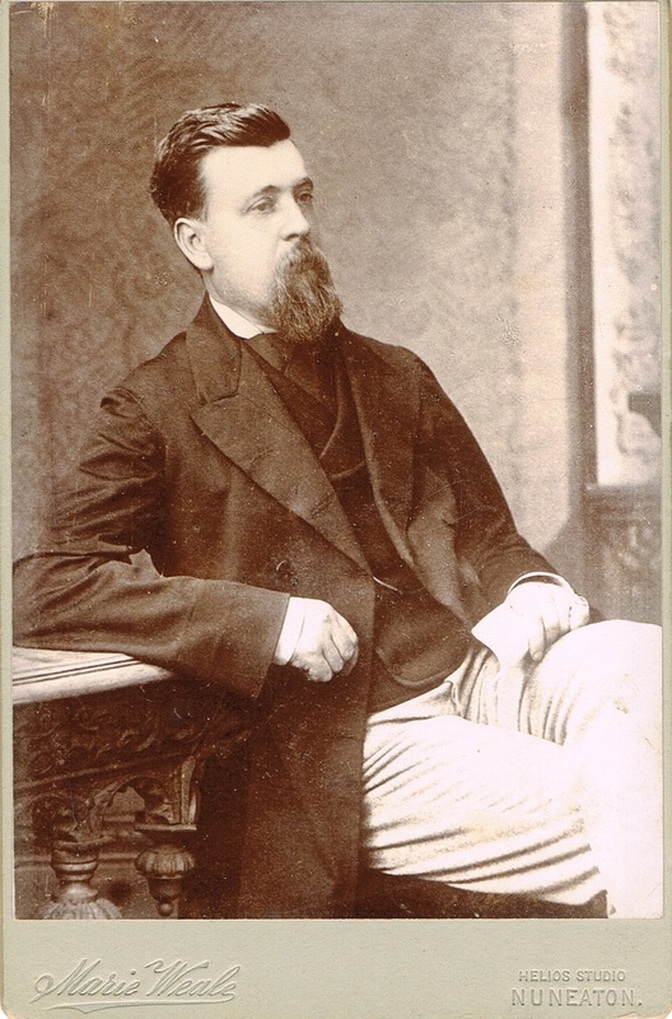
Frederick Duncan Robertson founding proprietor of the first newspaper in Nuneaton - The Nuneaton Chronicle which he established in 1868 - A Tory Newspaper. Note that in the best tradition of 19th century newspaper men he had nurtured a beard. It was necessary for journalists to grow a beard back then to give them gravitas when interviewing local dignitaries.
As an interesting side line to this Mr. Robertson was the grandfather of both Geoff Edmands and Reg. Bull whose photographic work features prominently on this web site. (Edmands Family Archives)
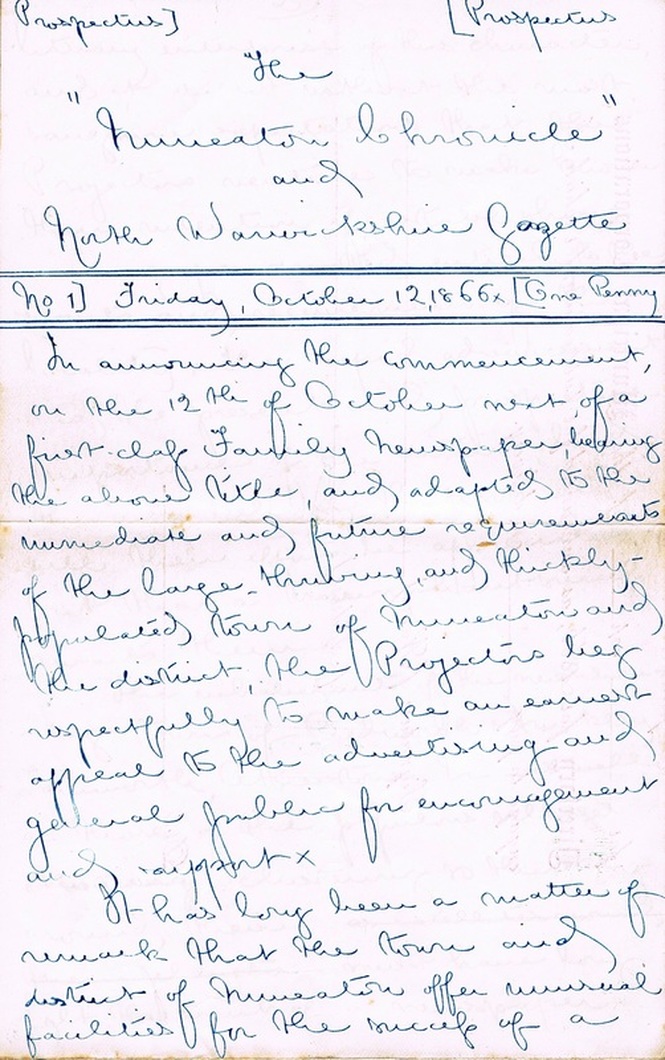
The very first Nuneaton newspaper was the Nuneaton Chronicle published in 1868. Two years before publication the first Editor - Frederick Duncan Robertson - touted for support for his paper and produced this handwritten prospectus. The Chronicle was established and became a very successful paper. The down side was Mr. Robertson spent a lifetime at work! The paper took up so much of his time. His father James Robertson was a railwayman and Mr. Robertson was a journalist and they lived in Leamington Spa. Mr. Robertson senior was a signal man and was posted to take up a similar position at Nuneaton in the 1860's. His intuition told him that Nuneaton was shortly to become a growth town and suggested to his son he come over and set up a newspaper in a town which at that time did not have one. The Chronicle was the result and it flourished for 70 years. The Chronicle was a "Tory" newspaper and its rival the Nuneaton Observer that started in 1877 was in the Liberal tradition. (Edmands family archives)
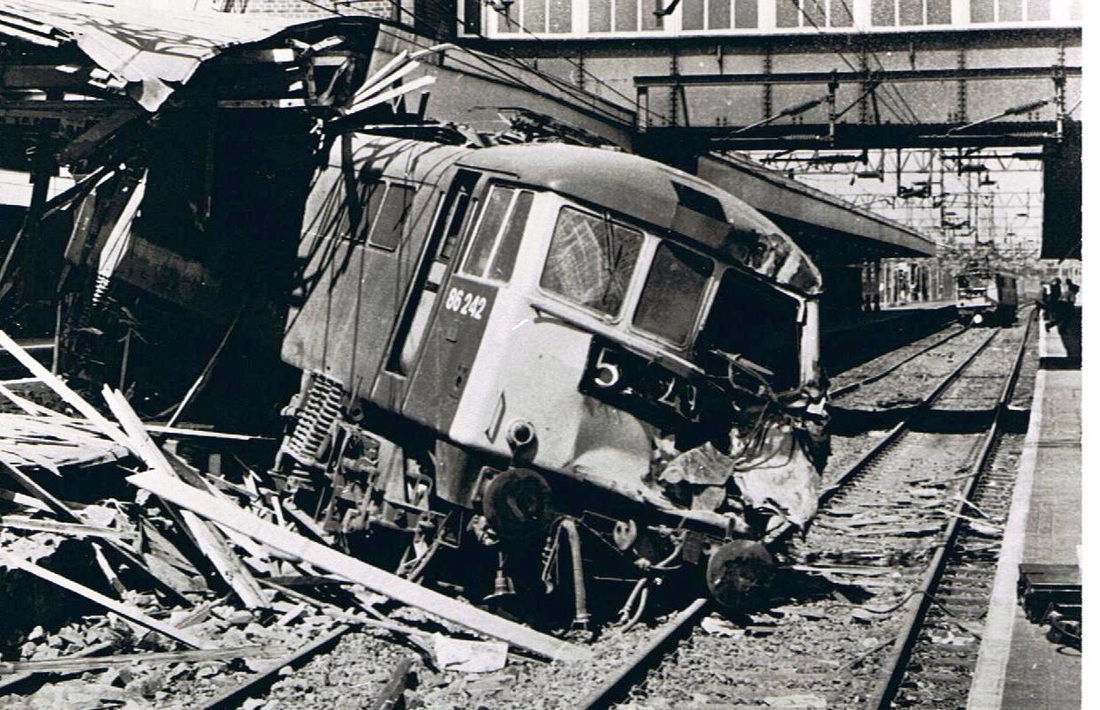
One of two electrics involved in the bad train smash at Nuneaton station in June 1975 has buried itself in the canopy of Platform 3 at Nuneaton station. The pilot engine can be seen in the distance down the platform which was relatively unscathed. The disaster was caused by the train hitting newly relaid track at high speed when it should have observed a severe speed restriction. The train engine bounced off the track with devastating results leading to the death and injury of many people. The train was a night sleeper out of Euston for Glasgow, when the train engine Nr. 86-242 failed just out of London. Another electric was sent for and this was attached at the front and Driver McKay transferred to the front engine. He was anxious to make up time. The track through Nuneaton station had been newly relaid and a permanent way slack imposed with an illuminated warning notice set up before the slow stretch. Unfortunately the light had gone out, although the driver's instructions that night indicated the pway slack was still in force, the driver thought the slack had been taken off as the sign was unlit and barrelled under Leicester Road bridge at full speed. With the results we see here. This was Nuneaton's worst rail accident but there have been others from time to time as you can see below. (Reg. Bull)
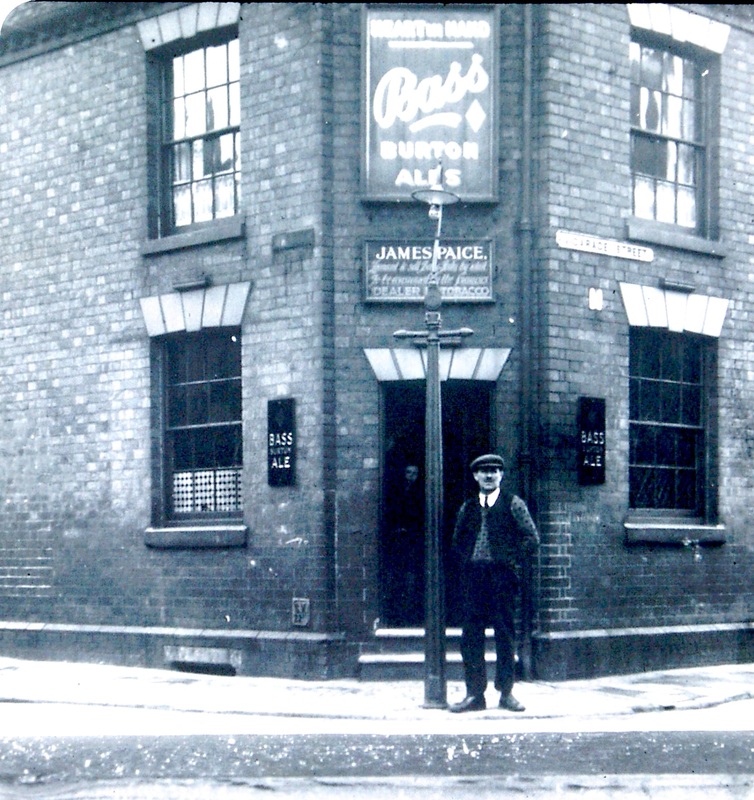
Pubs were a big feature of local Nuneaton, Atherstone, Bedworth and surrounding areas. They were the working man's front parlour. This is the "Heart in Hand" pub in Wheat Street. It was demolished in 1958 when Vicarage Street was widened. The pub was popular with railway footplatemen who enjoyed their ale before and after going on duty.
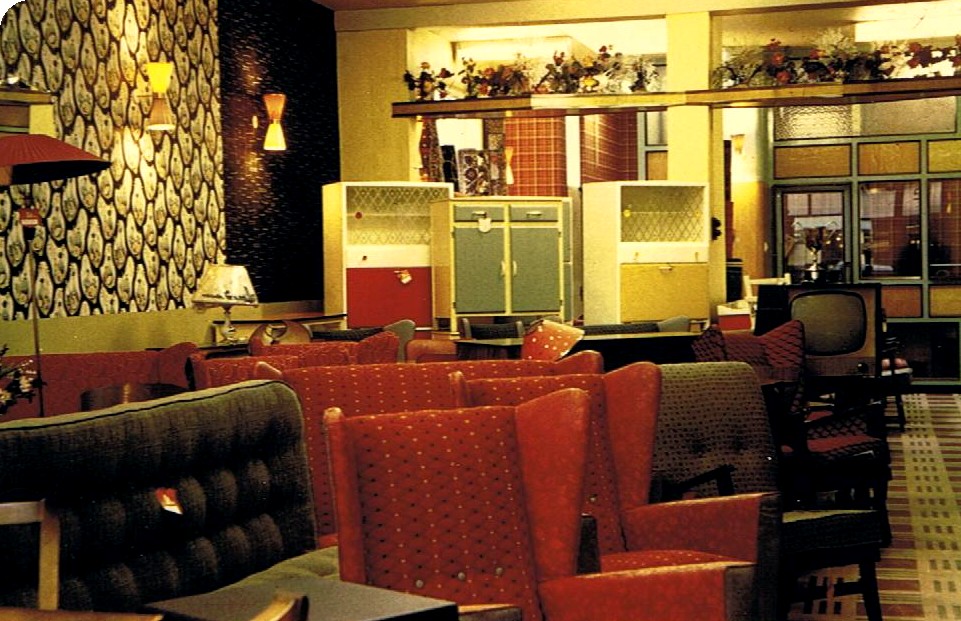
No this is not a second hand shop, but all new furniture in a store in Abbey Street, Nuneaton. remember the old kitchen cabinets where you stored your bread, baked beans, cans of food. The days before refrigeration when your thrawl in the pantry provided cold storage. The photo was taken in the 1950's. (Geoff Edmands)
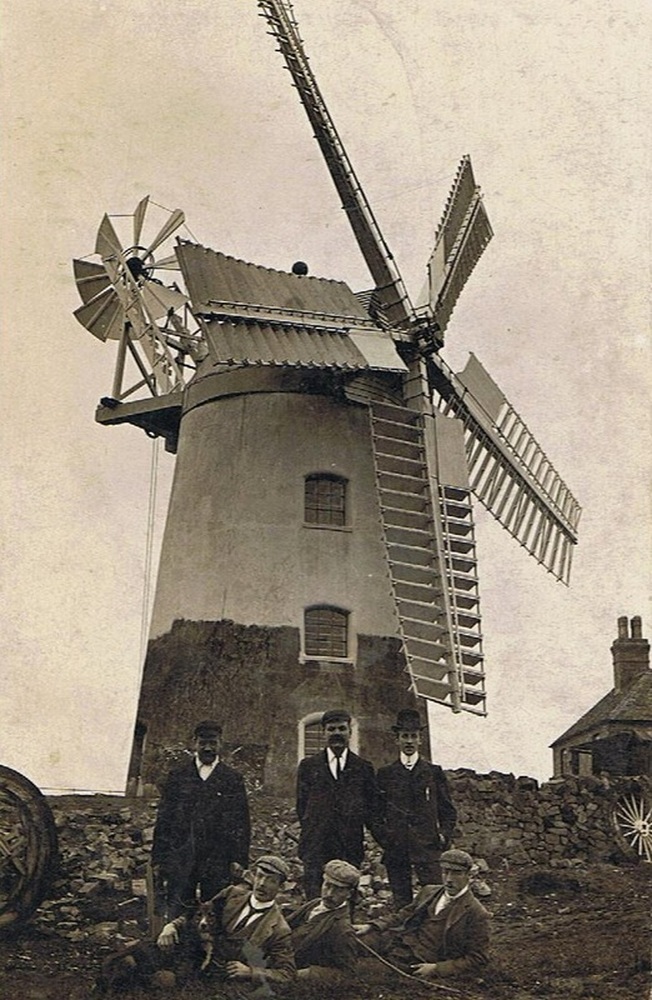
Tuttle Hill windmill c. 1905. it had just been re-sailed. The previous four sails taken down after one had been damaged in a violent storm. The old sails had been very long and it was dangerous diving between them to enter the mill so these five sails were shorter to meet safety requirements and, of course, they were engineered to catch as much wind as possible. Another bad storm damaged the sails again in 1936 and the wind mill was de-commissioned. Grinding corn henceforward was carried out using electric power. The old miller Sam Wright died shortly after the storm, and members of his family say this was brought on by the stress of that night when his beloved windmill was so badly damaged. The Wright family originated in Cheshire and were brought to Nuneaton by the Tompkinson family when they acquired the Manor of Nuneaton. The windmill, however, was leased from the Caldecote estate. As you can see here some progress has been made in whitewashing the mill after its rebuilt sails were commissioned.
(Tom Burgoyne Collection)
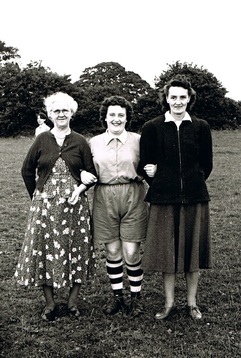
A member of Bermuda Ladies Football team in Nuneaton in the 1950's with the lineswomen! I am most grateful to Ralph Oldacres who has told me who these ladies were. Left to right - Ann Sparrow - Brenda Blackwell - Olwyn Dewis. Ann Sparrow together with her husband Jack ran the Bermuda village general grocery and sweet shop. Jack was also the grounds man and gardener at Bermuda Working Men's Club. Ann Sparrow ran the Bermuda Village Women's football team and also helped organise the annual village carnival. Her youngest son Joe became Managing Director of UVA Engineering ltd. of Caldwell Nuneaton.
(Alan Cook Collection)
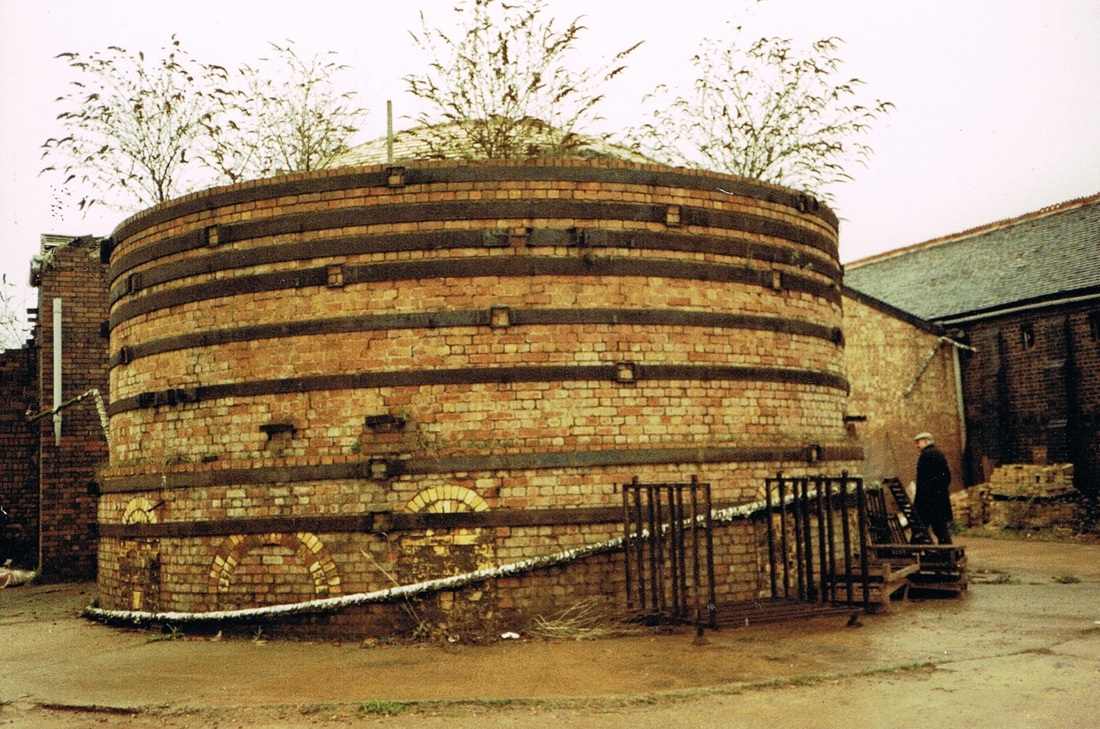
This surreal looking structure was one of the last, if not the last old fashioned brick kilns left at Stanley's brickyard in Croft Road, Stockingford, Nuneaton. The iron straps around the outside are known as bonts and stopped the kiln from swelling outwards due to the high temperatures generated inside. A gas pipe loops round to fire the kiln. There is now only one of this type of kiln left in Nuneaton town in the former brickyard once run by Judkins Quarry. The gentleman walking around the outside is Michael J. Lee who lived in St. Paul's Road, Stockingford. A great chum of your web site manager and one of Nuneaton's most researched local historians. The photo was taken c. 1987 just before the brickyard shut and we were on a tour of inspection preparatory to the Nuneaton Civic Society saving its archives for posterity. (Peter Lee)
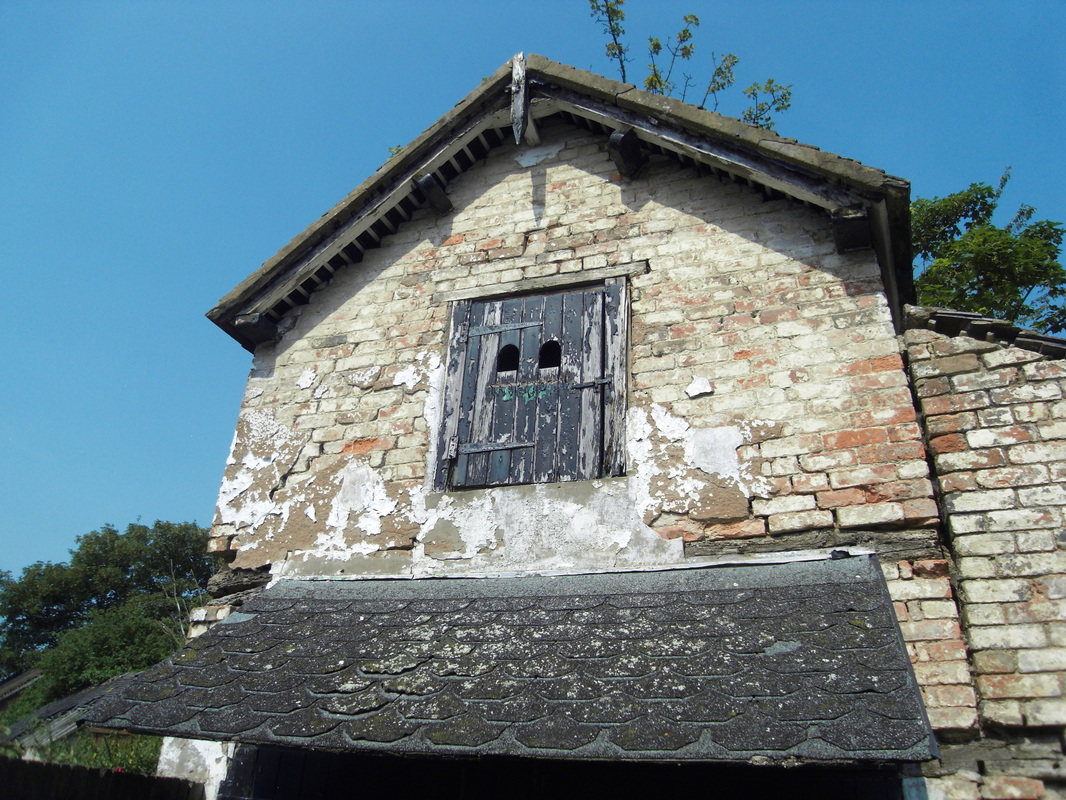
This structure, the Dovecot in the rear yard at Griff House, residence of George Eliot for the first 22 years of demolition. After a campaign of protest when it was threatened with demolition Whitbread will pay for its total reconstruction to be used as a study centre for George Eliot researchers. The Griff Preservation Trust has been set up to project manage the contract and deliver the study centre. The GPT is a joint venture between the George Eliot Fellowship and the Nuneaton Civic Society. (Peter Lee)
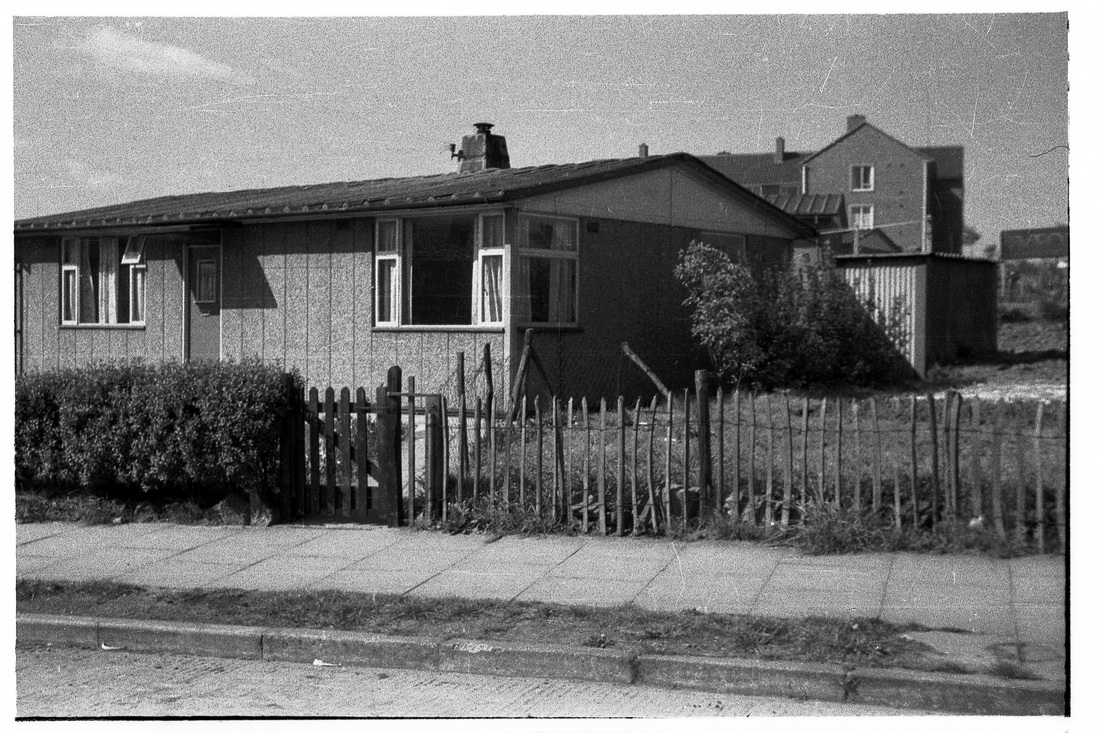
Pre-fabs were erected to house families bombed out of their homes during the war. Although only designed to be habited for a few years, many lingered on for forty or 50 years but I think I am right in saying that all those like this one at Caldwell in Nuneaton have all been pulled down and replaced by more conventional houses or apartments. Some locals found these prefabs offered far better accommodation than they had previously had in the bombed out terraced houses in the old town. Proper plumbing and bathrooms for example. (E.J.Wiltshire/Courtesy Colin A. Yorke)
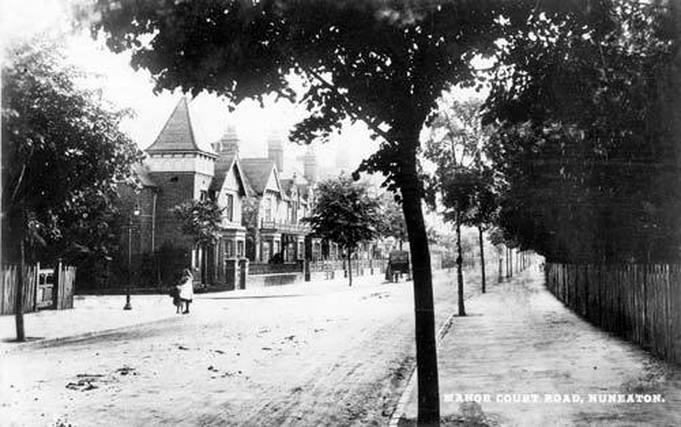
Manor Court Road. This was once an old cart track but the road was adopted by the local authority and opened out in the 1890's leading to the development of the road with fine Victorian villas. So by the time of the turn of the century this was Nuneaton's finest address. Local brickmaker Reg. Stanley financed these villas. He built his own house behind the fence on the right.
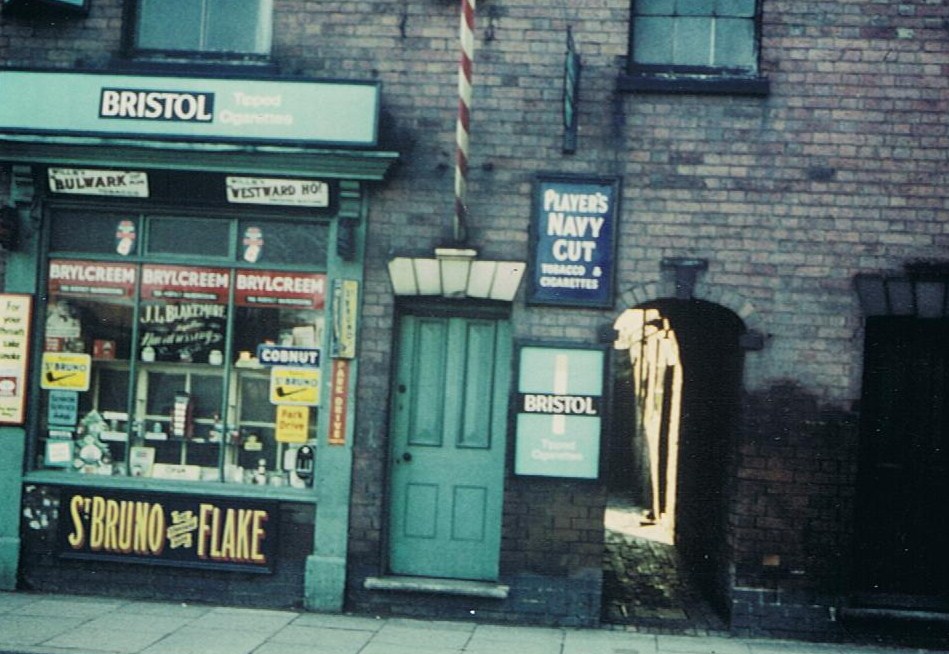
Up until the 1860's silk weaving was an important trade in our area. In the 1830s 60% of the local population were engaged in this trade. People crowded into the towns and villages and found accommodation in mean tenements behind squalid alleyways like this one. The yard at the rear of the front premises was known as a court and Nuneaton and Bedworth were riddled with them. The weavers often worked at home weaving on a single handloom throughout daylight hours to earn enough money to subsist. This was the reality of silk weavers lives. (Arthur Tooby)
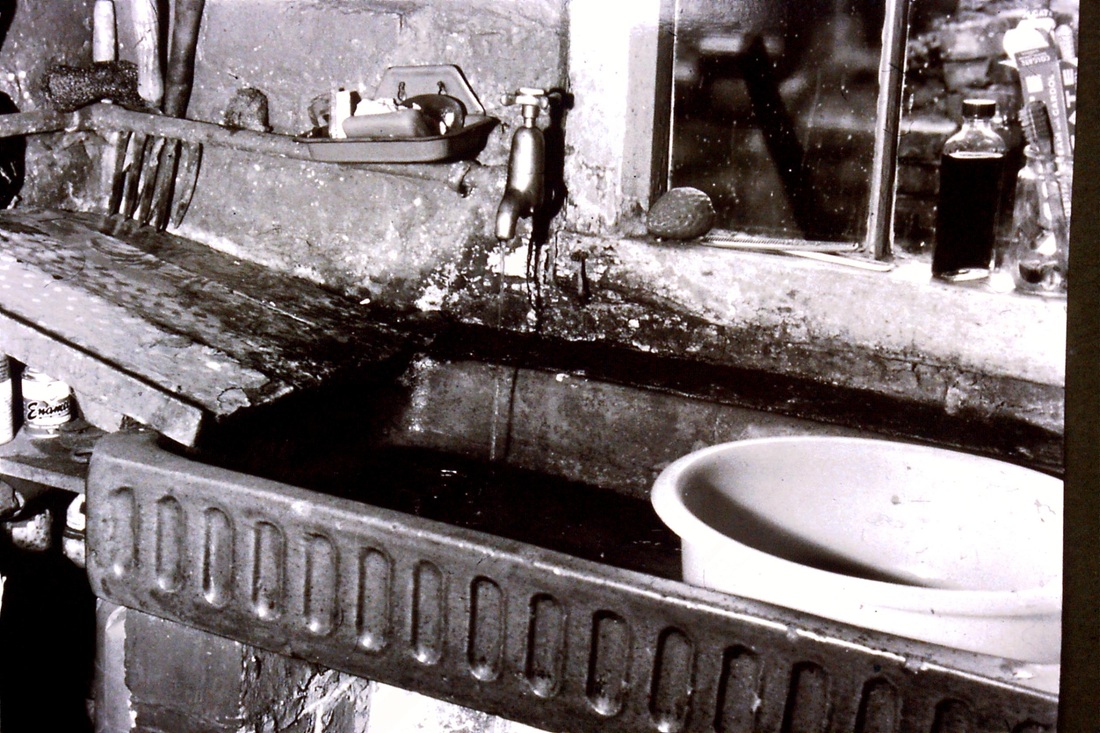
Remember the old Belfast sink? In the good old days when you descended the stairs in the old cottages in those grimy courts and yards this was what you were faced with. (Note a bottle of California syrup of figs is on the window cill). There is a touch of modernity here. A plastic bowl and a tap! In homes up until that time you depended on a communal pump in the yard outside. This was the scene in the 1950's.
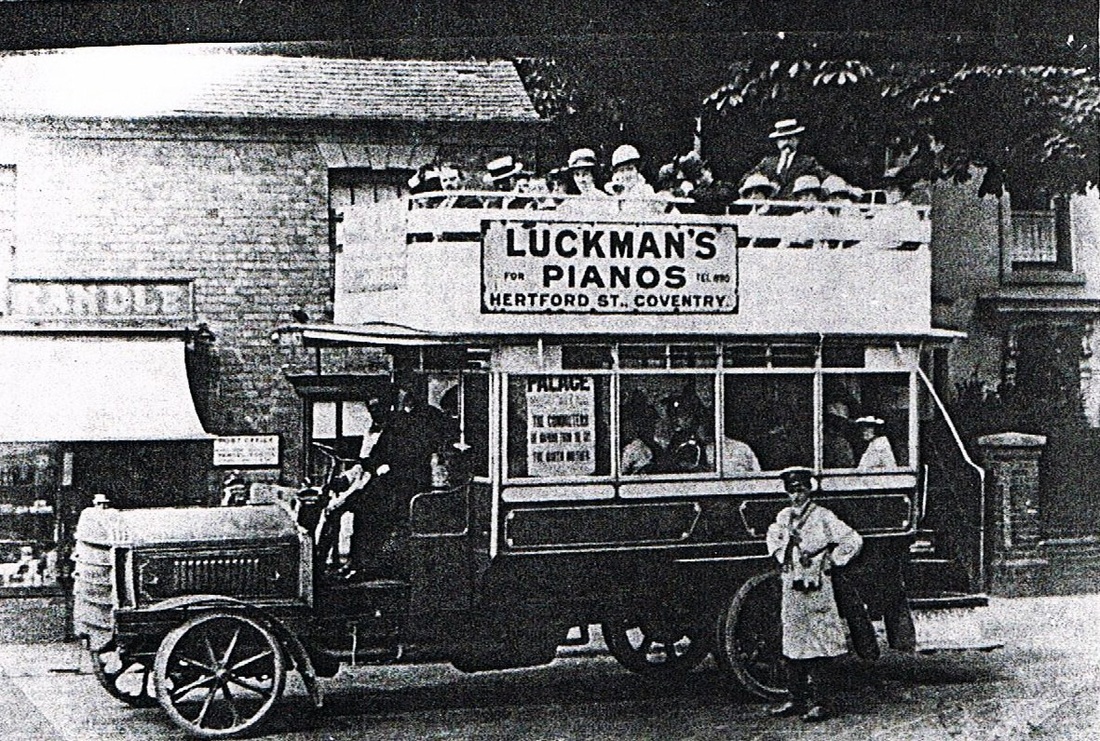
By 1911 the population of Nuneaton was 37,000 so public transport was becoming a great necessity. The first bus service started on 19th September 1913. This is one of the "new" buses. A Tilling Stevens reg. nr. AC43 which was new from the works in October 1914. AC43 passed to the Midland Red when the owners - the North Warwickshire Motor Omnibus and Traction Company, Ltd - was sold to that famous bus operator when it took over the North Warwickshire company on 1st February 1918. The First World War played havoc with the local bus company due to lack of spare parts with the resultant breakdowns and loss of revenue. By the time the Midland Red took over their fleet was reduced to two serviceable vehicles. The driver of the bus is believed to be Fred Scarr, a former Tilling Stevens employee who delivered the bus and liked Nuneaton so much he decided to stay, and lived for many years and is fondly remembered in the town. The location of the photo is Queens Road at the bottom of Norman Avenue (which was probably not built when this photo was taken). The shop behind the bonnet of the bus is a bakery run by T. Randle & Son, 99 Queens Road, and a large house to the right set back from the road was owned by William Matthews. Both these properties are long gone. The house had gone by the 1940's and Randle's shop by the 1950's. The site is now buried under Lidl's car park.
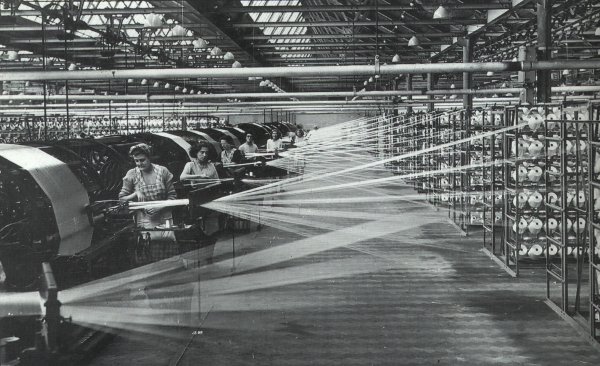
Rayon manufacture inside Courtaulds factory in Marlborough Road. This massive factory provided jobs for many women in Nuneaton. Sadly most of these large manufacturing jobs have disappeared never to be replaced. 20,000 jobs have been lost in the Borough in the last forty years or so. Almost half of the working age population do not work in the district. Even our neighbouring city Coventry,
which once had large factories providing thousands of jobs for North Warwickshire people has seen a fall in population of 10% in the last thirty years due to loss of manufacturing jobs.
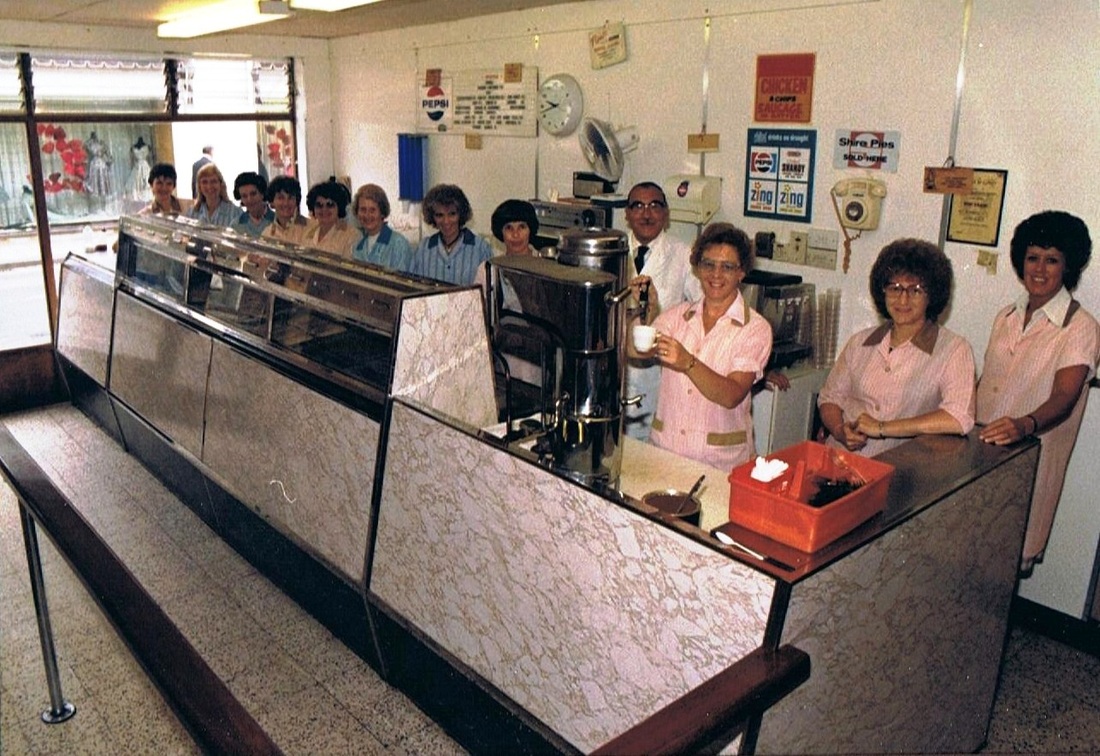
The Old Toppers fish & chip shop in Stratford Street, Nuneaton with Sam "Topper" Brown and his staff. Toppers today is one of the oldest chip shops in England being over 100 years old as a continuous fish & chip friers business in the same premises. The history of Toppers features in this web site. (Brown family archives)
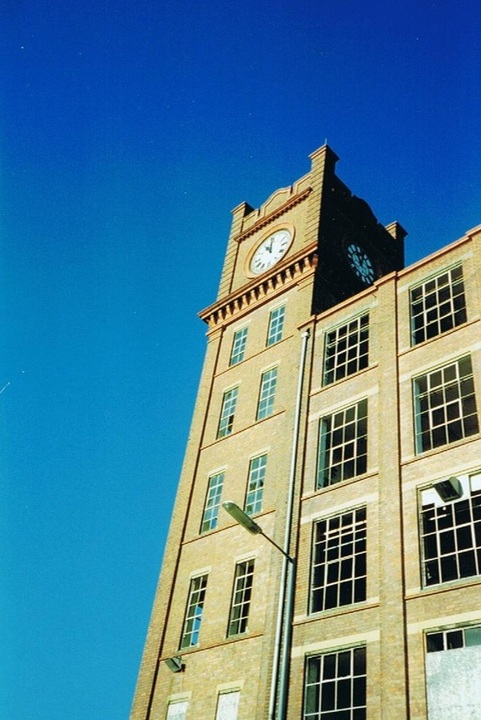
Courtaulds clock was a local landmark in Nuneaton. The clock tower was a notable feature of the townscape as it stood above the roof tops and could be seen from miles around. As you came over the Leicester Road railway bridge, down Croft Road through Stockingford and descended into Nuneaton from Coventry towards Coton Arches, you caught a glimpse of it and knew you were nearly home. You rounded the corner in some roads and caught glimpses of it as it appeared between the houses and the sound of its bell was heard all over town. Some people, including myself as a kid, regulated our day with it. The clock was maintained for six years by Harold Lapworth after the closure of the mill on a voluntary basis even when the place was closed and heavily vandalised he still climbed the high stairs every week to tend to this iconic symbol of the heart and spirit of old Nuneaton. He had lived for over 60 years in proximity to the clock and took over winding it during the Summer of 1989. The clock was built by Gillett & Johnson a world famous clock maker who also built the famous London clock on the Houses of Parliament we know as "Big Ben". The clock was very similar in construction to Big Ben and the weights and pulleys descended the entire five floors of the clock tower. The clock had many uses. For example the people of Camp Hill reckoned when the south wind blows they can hear the clock and they knew it was going to rain. So it acted as a kind of barometer. The recording accessed below is dedicated to Harold's memory of devoted service to the local community and his love of the clock and I hope it brings back many memories particularly to those whose days were regulated by it. After all you do not have to be very old today to remember it. Courtaulds mill was built1920-21 and demolished during July 1995. It was a splendid building and in the summer its soft pink brickwork (manufactured by Webster Hemmings in Coventry) glowed like a stately galleon above a sea of housetops. When Courtaulds was operational as a mill for the manufacture of rayon the whole factory shook with a million clicks a second like a giant wall of sound. Also it gave work to thousands of people at the time when Nuneaton had full employment. (Peter Lee)
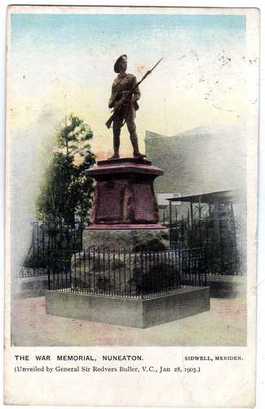
The original Boer War Memorial was unveiled in Bond Gate in 1905. Later it was moved to Riversley Park where it was stolen by scrap metal thieves a few years ago. But it has now been replaced as the town rallied round to restore this monument to the brave Nuneaton lads who went to South Africa at the the turn of the 20th century.
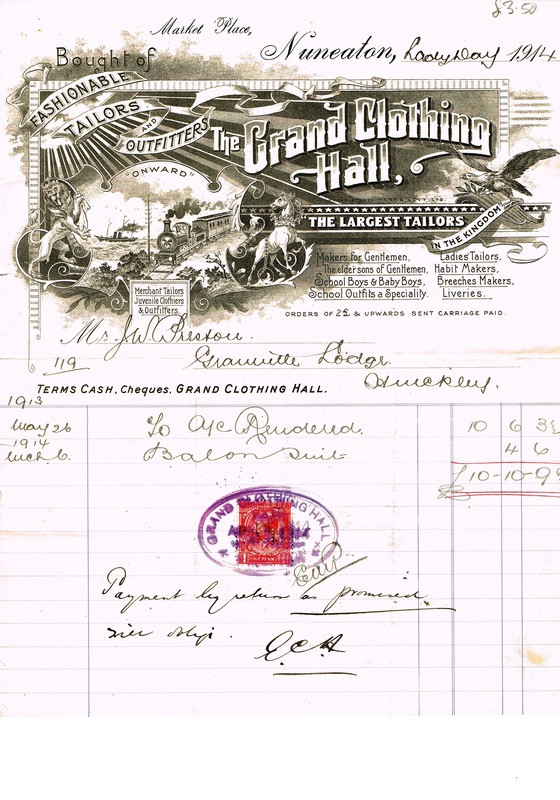
When you purchased something from the Grand Clothing Company in the Market Place, Nuneaton you received an elaborate receipt and the payment had a postage stamp affixed with this elaborate rubber stamp over the top. You knew you had made a purchase the paperwork was so magnificent and added to the dignity of the occasion. Not like the mean till receipts we get today.
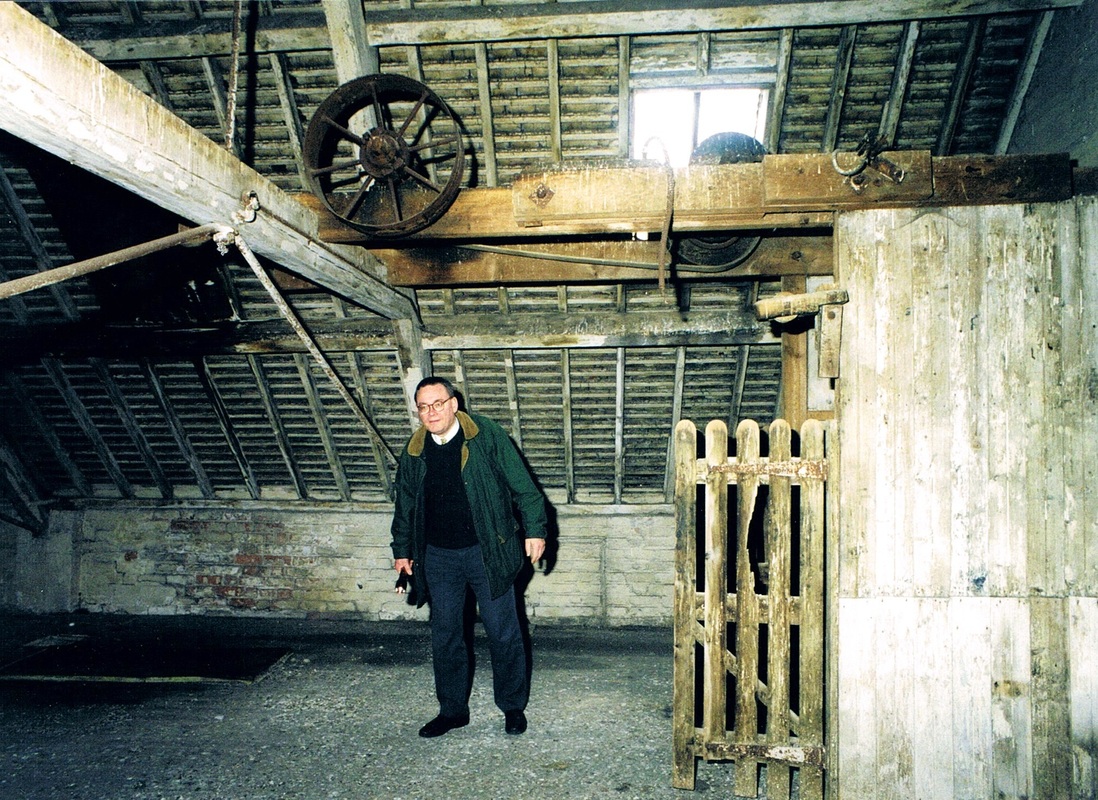
The late Harry Cawthorne inspects Nuneaton's "Treacle Factory". Which was not a treacle factory at all but a former provinder store and seed warehouse, discovered when properties fronting Queens Road were demolished exposing this old warehouse. News soon spread around the press that the origin of Nuneaton's nickname - "Treacle Town" had been discovered. It had not, of course. But it was an interesting morning out nevertheless. (Norman Raisen)
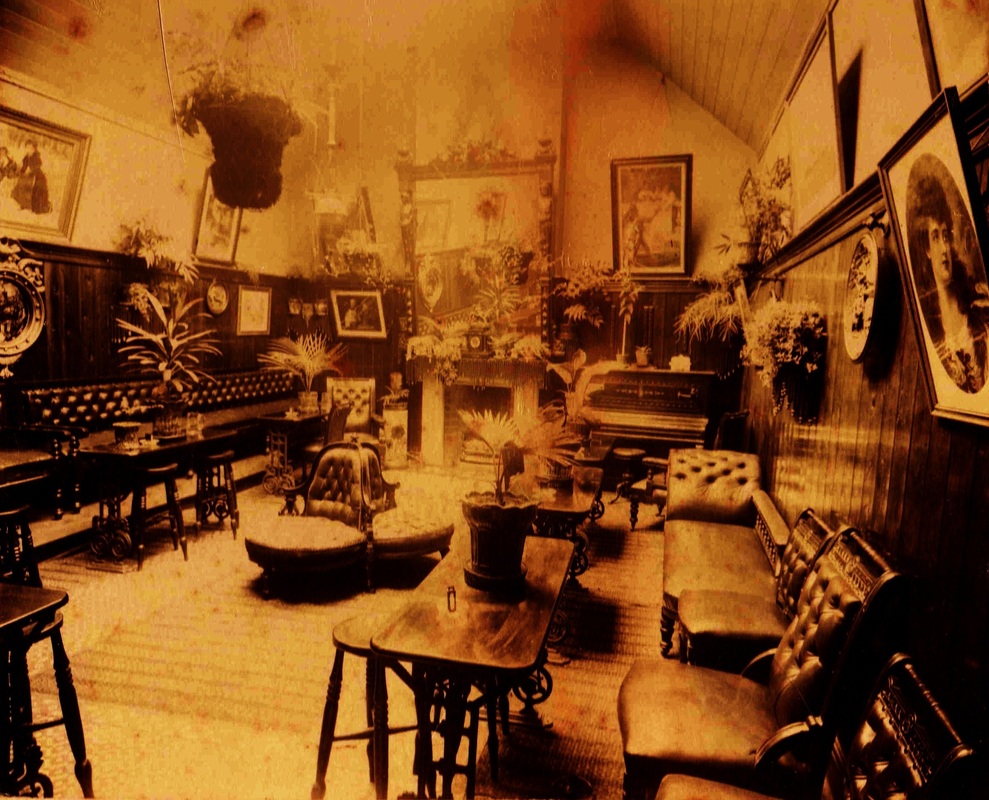
Inside the "Bohemian" smoking room of the Crystal Palace pub in Nuneaton Market Place. The sepia tone goes well with the scene because when the room was packed with Nuneaton folk on a Friday and Saturday night the smog from cigarette and pipe smoke must have been very dense indeed. Imagine Annie Wrighton, the publican, singing accompanied at the piano! This was as good as it got for local entertainment in Nuneaton at the week-end. Nothing else compared. The Crystal Palace pub was demolished in 1909 and Mrs. Wrighton's "Bohemian" smoking room became a dim and distant memory preserved here in tobacco smoke sepia for ever. (David Floyd)

